JOINTS AND SWIMMING IN THE SEINE
ANNE HIDALGO’S DIVE |  As the 2024 Olympic Games approach, a promise has become a media countdown: that of allowing swimming in the Seine, first for sporting competitions, then for the general public. As the 2024 Olympic Games approach, a promise has become a media countdown: that of allowing swimming in the Seine, first for sporting competitions, then for the general public.
A few days before the open water swimming events for the Olympic Games, the mayor of Paris Anne Hidalgo bathed in the Seine on Wednesday July 17, 2024. The State and Ile-de-France communities have invested 1.4 billion euros since 2016 so that the Seine and its main tributary the Marne are swimmable. With the promise of creating three swimming areas in Paris in 2025.
As city bids for the Olympic and Paralympic Games (OPG) lose popularity due to exorbitant costs and questionable benefits for local residents, the possibility for Parisians to swim in the Seine after the JOP is being highlighted. .
However, this media discourse has sometimes masked certain historical and current realities. Indeed, swimming in the Seine has been practiced over the centuries and persists clandestinely despite prohibitions.
Furthermore, this practice is not only recreational or sporting, but also linked to climate issues, while rising temperatures complicate the achievement of the objectives of the Paris agreement.
An ancient swimming tradition
 Swimming in the Seine in 2024 is often presented as a novelty, when in reality it is an ancient practice in Paris. Swimming in the Seine in 2024 is often presented as a novelty, when in reality it is an ancient practice in Paris.
Traces of ovens exist from the 13th century, although this practice is poorly documented in the absence of significant developments.
Over the centuries, bathing for hygiene, relaxation and leisure continued, gradually extending beyond Paris.
In the 17th century, we observed a boom in swimming in the Seine with the first bans and the first arrangements for river bathing.
These installations aimed to secure bathers against the current and to protect their nudity.
From the end of the 18th century, the facilities became more sophisticated with additional services and the appearance of the first swimming schools.
At the end of the 19th century, floating baths multiplied in Seine and Marne, while the first heated swimming pools were built in Paris.
Recurring but ineffective bans
Although swimming is not new, bans on swimming in the Seine have followed one another without succeeding in eradicating the practice.
Historians have found restrictions as early as the 17th century, motivated by the visibility of nudity.
Another reason, hindrance to navigation, appeared in 1840.... The sharing of public space was for the benefit of navigation. At the end of the 19th century, river boats appeared and barge traffic developed.
Despite competition from rail, navigation on the Seine continues. With the law of July 19, 1837 for the improvement of navigation on the Seine, major work was undertaken to supply Paris with water, and the bed of the Seine was dug. These restrictions led to the prefectural decree of 1923, still in force, prohibiting swimming in the rivers and canals of the former Seine department.
In 1970, the ban on swimming in the Marne cited water quality for the first time. However, even after 1923, bathing establishments continued to operate, experiencing a boom during the interwar period, particularly in the suburbs. Swimming persisted, particularly during heat waves.
Different authorities have in fact restricted swimming in the Seine since the 18th century without the health issue being the main reason before the 1970s. Swimming was authorized on exemption for medical reasons until 1867, with the idea that it was good to bathe and that it helped cure certain illnesses.
Swimming is also authorized in certain bathing establishments such as the famous Deligny swimming pool located at the foot of the Musée d'Orsay which was filled with unfiltered Seine water, exposing bathers to bacteriological contamination.
In addition, swimming in the river was authorized in Asnières, Gennevilliers, Epinay, i.e. downstream from the place where Paris sewers are discharged in Clichy. If we overlay the map of swimming and sewer discharges in Paris, we see that swimming authorized until 1923 is located downstream of the discharge points of these sewers.
This provides evidence that water quality was not the reason for bathing regulations at the time. After the Second World War, the rise of health issues led the police headquarters to occasionally prohibit swimming in the river but exceptionally authorized sporting events in the Seine. Photos notably show quite a lot of swimming during heat peaks.
Contemporary bathers
Today, occasional swimmers, activists or regulars, continue to swim in Parisian waterways. Sports competitions, such as the Paris triathlon in 2012, have seen athletes swim in the Seine. Amateur cold water swimmers also practiced in the canals despite the bans, with their own safety rules.
Activist swims took place to draw attention to water pollution, such as that organized by members of the Greens in 2005. The NGO European River Network popularized the Big Jump, collective swims demanding better quality of water. the water. The Marne Vive union has also been organizing Big Jumps since the early 2000s to make the river swimmable and protect its fauna and flora.
Urban swimming in Europe
In other European cities such as Basel, Zurich, Bern, Copenhagen, Vienna, Amsterdam, Bruges, and Munich, urban swimming is common. These cities have often achieved this goal through water sanitation policies. Copenhagen, for example, rehabilitated its sanitation system in the 1990s, gradually improving the quality of its water until inaugurating the "Harbor Bath" bathing area in the early 2000s.
With global warming and heatwaves in more and more frequent, access to swimming areas becomes crucial. Paris, vulnerable due to its dense and mineral urbanization, suffers from strong heat islands. Temporary swimming areas are organized by the City of Paris, such as those in the Villette basin integrated into the Canicule and Parcours Fraîcheur plans.
|
|
|
|
| Jaimie Potts for DayNewsWorld |
 |
LEGISLATIVES CHOOSING A PRIME MINISTER
IN OTHER EUROPEAN COUNTRIES
|

S ince July 7, 2024, the Fifth Republic has experienced an unprecedented situation: no party or coalition can, on election night, claim to exercise power: the New Popular Front has 182 seats, the Ensemble coalition totals 168, the RN and its allies 143, and LR 46. However, in the political practice of the Fifth Republic there exists a majority logic marked by the role of a President of the Republic elected by universal suffrage and usually capable of bringing about the victory of his side during the legislative elections, a mechanism amplified by the constitutional reform of 2000.
An unprecedented situation for Emmanuel Macron.
This is why Emmanuel Macron, through his letter to the French of July 10, 2024, tries to reaffirm his central role, while the elections did not allow him to maintain his majority, already relative, in the Assembly.
No doubt he will lead the usual consultations, he who has already spoken with the President of the Senate, the President of the Assembly not having to be appointed until July 18.
This election of the President of the Assembly should allow the President to learn more about the state of the broad Republican coalition that he is calling for. It will perhaps also allow the Assembly to regain control when the written Constitution is of no help to it and when foreign procedures, which sanction a faded head of state, are unsuitable for French institutions.
These in fact make the president the master of the clocks and the institutional game. Even more so in the face of a divided assembly. This he clearly understood when he stated in his letter of July 10: “It is in the light of these principles that I will decide on the appointment of the Prime Minister.”
But how does the formation of a government take place in other European countries when no clear majority emerges in the Assembly? Which is very common in many countries.
The German consensus model
In Germany, the voting method makes it almost impossible to obtain an absolute majority. This promotes a culture of compromise and political alliances going beyond simple left-right divisions, as in 2005 with the “grand coalition” bringing together the CDU (right), the SPD (center-left) and the FDP (liberals), or in 2013 with the CDU-SPD coalition, renewed in 2017.
After the elections, the parties of the new majority negotiate a coalition contract, committing each to support the texts translating this programmatic agreement. Thus, in 2017, negotiations lasted 171 days, compared to 3 months in 2013 and 2 months in 2021 for a government led this time by the SPD with the Greens and the FDP as allies.
These agreements, although extra-constitutional, are essential to the functioning of the institutions. Article 63 of the Constitution stipulates that the Federal President proposes a candidate for chancellor to the Bundestag, which must elect him by an absolute majority. In case of failure, a period of 14 days opens, after which, if no candidate obtains this majority, the president can appoint a minority chancellor or dissolve the Bundestag to clarify the majority through new elections.
Thus, the parties must agree in advance to present a candidate capable of gathering an absolute majority of deputies, otherwise they risk dissolution. The president, respecting the unwritten rules of the parliamentary system, is still waiting for this proposal.
The French Constitution is more succinct: “The President of the Republic appoints the Prime Minister. » By entrusting the appointment of the head of government exclusively to the president, the Constitution strengthens his powers beyond the simple role of arbiter provided for by other Constitutions, which seek to limit his prerogatives.
In Poland, the president recently failed to impose his will on the Assembly.
The Polish Constitution establishes a strict procedure with deadlines imposed on the president. According to article 54, the latter must appoint a head of government within 14 days following the election of the new Diet or the resignation of the previous government. However, the appointed government must obtain the confidence of the Diet within the next 14 days to be able to govern.
The implicit rules require that the president consult the Assembly in order to choose a head of government likely to receive the approval of the Diet. If the candidate proposed by the president is rejected, the Assembly may, within the same period of 14 days, elect its own candidate.
This election requires an absolute majority, with the presence of at least half of the deputies to validate the vote. In the event of another failure, the president takes the initiative again, but without being able to impose his candidate, because the Diet can still refuse to grant him its confidence.
In such a situation, the president can, as in Germany, dissolve the Assembly. The Polish Constitution, recognizing that the voting method does not always guarantee a clear majority, offers several solutions. The president must therefore consult the presidents of the Chambers and the heads of parliamentary groups to designate a head of government acceptable to the majority. If the president makes a mistake in his choice, the Constitution allows the Diet to reject the proposed government and nominate its own candidate.
This is what happened in 2023. Conservative President Andrzej Duda appointed the leader of PiS, the largest group in the Diet, but which was not supported by the victorious coalition. The Diet then refused to trust him and elected Donald Tusk. The president was unable to oppose the latter's nomination, despite political differences.
In France, although the Constitution provides mechanisms for the government to seek the confidence of the Assembly, it does not authorize the latter to impose its choice on the president, who remains the only one able to appoint the Prime Minister. Unlike other systems, France does not have the constructive motion of censure, which would allow the Assembly to impose its own head of government in the event of the overthrow of the existing executive. The Polish Constitution also includes deadlines binding on the president.
Parliamentary monarchies
In Sweden, on the contrary, the power to appoint the head of government is conferred on the Assembly (Riksdag). The Swedish Constitution assigns this responsibility to the Speaker of the Riksdag, who must consult the parliamentary groups and the deputy speakers of the Assembly before proposing a candidate for prime minister. This candidate is then appointed if he does not receive a negative vote from half of the deputies. Therefore, the head of state, who is hereditary, has no role in the procedure for appointing the head of government.
Other examples also show the limitation of the powers of the head of a monarchical state in the appointment of the prime minister. In Belgium, for example, the process can last more than a year, as after the 2010 elections when it took 541 days to form a government. After elections, often without a clear majority, the king appoints an informant responsible for sounding the Chamber to identify the parties capable of forming a coalition. Political parties must then compose a majority capable of supporting a government, or at least not dismissing it. This led to a political crisis in Belgium from 2010 to 2011, where it was impossible to form a government, forcing the outgoing executive to manage day-to-day affairs. A similar situation occurred in Northern Ireland between 2017 and 2018.
Towards a technical government like in Italy in times of crisis ?
In Italy in periods of crisis, the Italian head of state, President of the Republic, exercises a specific role, namely a remarkable power of initiative whereas in "normal" times his function as guarantor translates into a relatively erased profile.
During periods of political crisis to form a government in Italy, the President of the Republic conducts in-depth consultations with all parliamentary groups. Each party can then express its preferences for the appointment of a head of government. Once these consultations have been completed and after having taken into account the opinions of all political groups, including the smallest, the President of the Republic tasks a person with forming a government. This personality receives an exploratory mandate to assess the possibility of forming a government team and obtain the necessary support from Parliament. If the conditions are met, this person then presents the new executive to the chambers to obtain a vote of confidence.
The concept of technical government emerged in 1993 with Carlo Azeglio Ciampi, former governor of the Bank of Italy, at the helm of the executive branch. This model was reused in 1995 with Lamberto Dini, former general director of the Bank of Italy, then in 2011 with Mario Monti, and finally in 2021 with Mario Draghi.
Technical governments in Italy are often a response to political blockages, particularly when there is no parliamentary majority capable of supporting a partisan coalition. In these crisis situations, a head of government – the president of the Council of Ministers in Italy – is appointed to form a cabinet supported by a majority, or even by all political forces, in a spirit of national unity.
These technical governments are seen as transitional periods which ensure institutional continuity and prepare the return to a political cycle based on elections.
Their composition is generally mixed, including technical ministers – recognized experts in their fields, without previous political experience – and figures with political careers without strong partisan affiliation.
The agenda of these technical governments focuses on two aspects: economic and financial stabilization to maintain the country's position on the international scene, and the implementation of reforms difficult to pass within a framework of partisan majorities.
The question of whether Italian compromise is possible in France arises.
The conditions of political crisis and the impossibility of finding a majority could lead to this, the President of the Republic finding himself, after July 7, in a posture of cohabitation, that is to say in the obligation to leave a government and its leader the margin of power provided for by the Constitution in the conduct of policy...
However, Emmanuel Macron's hyper-presidency poses a real challenge in terms of a culture of compromise and negotiation.
|
|
|
|
| Joanne Courbet for DayNewsWorld |
 |
WHAT LESSONS CAN BE LEARNED FROM THE RESULTS
LEGISLATIVES IN FRANCE ? | 
The New Popular Front is in the lead, followed by Ensemble and the National Rally. All the parties being far from the absolute majority, negotiations began.
Emmanuel Macron had chosen to dissolve the Assembly to “give back the choice” to the French. However, instead of the desired clarity, the result was a new relative majority. According to the final results of the legislative elections announced by the Ministry of the Interior, the left-wing coalition of the New Popular Front obtained 178 seats (182 with the dissidents), ahead of Ensemble (156) and the National Rally with its allies (143). seats).
None of the parties reached the absolute majority of 289 seats, which led to a period of uncertainty and political negotiations. Gabriel Attal must present his resignation to Emmanuel Macron on Monday morning, but he expressed his desire to remain Prime Minister as long as necessary, particularly in view of the Olympic Games. Emmanuel Macron wanted clarification, but this did not take place, creating a risk of frustration among French voters and making an alliance between the New Popular Front and the presidential majority unlikely.
The presidential majority, with 23.15% of the votes, obtained much better results than in the European elections, winning around a hundred seats for Renaissance out of the 156 for Ensemble. For their part, Les Républicains, including various right-wing elected officials and some independents like Aurélien Pradié, obtained 66 seats. However, the central bloc, with its 156 deputies, lost almost 100 seats in three weeks.
France Insoumise stagnates, while the Socialist Party progresses
The results reveal the existence of three blocs of similar size. Emmanuel Macron dissolved the Assembly to obtain clarification, but the opposite happened. The left managed to unite quickly, while Emmanuel Macron's formation is holding on with difficulty, collapsing compared to 2017. The Republican right is resisting despite a difficult context. This is the paradox of this dissolution: Emmanuel Macron thought that the left was going to implode, but it was ultimately the right which fragmented between the former centrists allied with Emmanuel Macron, the Republicans rallied like Gérald Darmanin and Bruno Le Maire , those who followed Éric Ciotti in the alliance with the RN, and the Republicans stricto sensu.
This distribution of forces shows a polarization of the political landscape into three blocks almost equivalent in size. Emmanuel Macron's attempt to clarify political lines ultimately resulted in an even more complex situation, with a unified left, a weakened presidential majority compared to 2017, and a Republican right divided into several factions.
“The Republican front has completely reversed the scenario of this election. » Within the New Popular Front (NFP), which received 25.7% of the votes, La France insoumise (LFI) remains the main party in the coalition, but stagnates around 75 deputies. On the other hand, the Socialist Party (PS) almost doubled its membership with 59 seats, compared to 28 for the Ecologists and 9 for the French Communist Party (PCF).
Despite the uncertainties, the “republican front” succeeded in preventing the far right from progressing. Voters of the New Popular Front voted overwhelmingly against the National Rally (RN): 70% of NFP voters in the first round supported the candidate Les Républicains (LR) in the event of a duel with the RN, and 79% chose the candidate Together.
However, the transfer of votes varied depending on partisan affiliation during duels with the RN: voters in the presidential camp voted 54% for a candidate from the PS, EELV or PCF, but only 43% for a candidate. LFI candidate against the RN.
The RN changes dimension and becomes a credible alternative
In the second round, the RN and its allies, however, remain the leading force in terms of votes (37%, or 10 million votes), even if they only obtained " » 104 deputies, to which are added the 39 elected in the first round. Marine Le Pen denounced this gap between votes and seats as a “violated popular will”. Nevertheless, Jordan Bardella's party is the only political force to make significant progress in the National Assembly, going from 88 to nearly 150 deputies, a historic score which alleviates the bitterness of their defeat.
In addition, the RN now appears to be a real alternative. The entire period between the two rounds focused on this party and the question of the Republican front, without which the RN would probably have obtained a strong relative majority, or even a short absolute majority.
Although the RN comes in third position, it is nevertheless the leading party in the National Assembly behind two coalitions bringing together several parties. It is a first in the history of the Fifth Republic that such an important group finds itself in the opposition. This will have repercussions on the functioning of the National Assembly, influencing speaking time, questions to the government, the composition of committees, and the agenda . The RN has established itself over the long term in the parliamentary landscape.
The National Rally (RN) has radically changed in stature. It has become a catch-all party, similar to what En Marche represented in 2017. From now on, the RN appears to be a real political alternative. The entire period between the two rounds focused on this party and on the question of the Republican front, without which the RN would probably have obtained a strong relative majority, or even a narrow absolute majority.
The formation of a government therefore promises to be complex.
Forming a government in this context proves difficult. Disagreements remain within the New Popular Front. How can we envisage a coalition going from La France insoumise to the center-right?
From a constitutional point of view, it is up to Emmanuel Macron to choose a Prime Minister taking into account the results of the election. Jean-Luc Mélenchon affirms that the head of state has no other choice than to dismiss Gabriel Attal and appeal to the New Popular Front to govern, by appointing a head of government from this coalition. Marine Tondelier and Olivier Faure share this position.
A coalition with variable geometry
Jean-Luc Mélenchon insists on the fact that the New Popular Front must govern. At the same time, Raphaël Glucksmann seems more inclined to recognize the complexity posed by the relative majority and to envisage a coalition including the central bloc. “We are in the lead, but we are in a divided Assembly,” he declared, calling on political leaders, with the exception of the RN, to “behave like adults”.
This divergence within the left bloc itself shows the difficulty for Emmanuel Macron to build something solid, especially when the simple mention of La France insoumise (the most important group of the NFP) provokes strong reactions within his own camp. . The key question is this: could a coalition integrating the entire left, including LFI, resist a motion of censure? This is unlikely, given that macronie has often pitted the “extremes” against each other.
A scenario where Macron attempts to divide the NFP by ignoring the rebels seems unlikely, given the loyalty to the common program expressed by socialists and environmentalists. Another solution for Macron would be to turn to the central bloc, reinforced by LR elected officials, of whom there are around sixty. Numerically, a relative majority could emerge, but this scenario poses several problems.
First, right-wing elected officials presented themselves as opponents of Macron, and some of them, like Olivier Marleix or Laurent Wauquiez, harbor a tenacious aversion towards the president. Secondly, this choice would ignore the voters' verdict, since among the three main blocs, it was the left which came first. Finally, such a coalition would not resolve the problem of the relative majority, returning to the initial situation.
A coalition beyond the blocs ?
To avoid the blockage and respect the message of the ballot boxes, it will be necessary to find a coalition solution beyond the existing blocs. Jean-Philippe Derosier, constitutionalist, believes that a unifying figure must lead this coalition, because no clear majority emerges.
Emmanuel Macron, patient, is waiting for the new National Assembly to be structured to make the necessary decisions. “In accordance with republican tradition, he will wait for the structuring of the new National Assembly to take the necessary decisions,” announced the Élysée after the results, specifying that the head of state “will ensure respect for the sovereign choice of the French” . Gabriel Attal, who has resigned, remains ready to manage current affairs for as long as necessary.
The results show the existence of three blocks of similar size. Macron hoped to clarify political lines by dissolving the Assembly, but achieved the opposite result. The left has quickly unified, while the presidential majority has weakened compared to 2017, and the Republican right is resisting despite the difficulties. The dissolution, designed to weaken the left, ultimately fragmented the right into several factions, further complicating governance.
In short, these results show a polarization of the political landscape into three almost equal blocks. Emmanuel Macron's attempt to clarify the situation resulted in an even more complex configuration...
Will power pass from the Élysée to Matignon ?
Power seems about to shift from the Élysée to Matignon, especially through the Palais Bourbon and without forgetting the Luxembourg Palace, where the Republican right holds the majority in the Senate.
Emmanuel Macron no longer has all the cards in hand to govern. He will have to deal more with parliament and other political parties. |
|
|
|
| Joanne Courbet for DayNewsWorld |
 |
MACRON RESPONSIBLE FOR THE RISE
OF THE NATIONAL GATHERING | 
The first round of legislative elections, held on June 30, 2024, after Emmanuel Macron's announcement of the dissolution of the National Assembly on June 9, saw the National Rally (RN) and its allies ahead of other political groups with 33.15% of the votes. They are followed by the left-wing coalition of the New Popular Front (NFP) with 27.99%, and the presidential camp with 20.04%. The participation rate reached 66.71%, a record.
Today's political crisis is not without precedent. Crises are inherent to contemporary French political life, marked by a culture of conflict and radicalism since the French Revolution. Institutional instability characterized France between 1815 and 1958 with two monarchies, an Empire, an authoritarian regime and four Republics.
The Fifth Republic itself emerged in 1958 in a context of deep crisis, particularly due to the Algerian War, and faced significant crises in its first years: attempted assassination of the president, dissolution of the National Assembly in 1962, and the movement of May 68. Despite everything, the institutions resisted these crises, political alternations and cohabitation, creating the illusion of political stability which has been called into question for around ten years. years.
The RN vote
The success of the RN results from progression over 40 years, structured in three major phases:
1. Phase of rapid progression (1984-1988): The FN burst onto the electoral scene in 1984 with 10% of the votes in the European elections and Jean-Marie Le Pen obtained 14.5% in the 1988 presidential election.
2. Establishment phase (1988-mid-2000s): The FN maintains around 15% of the votes, wins symbolic victories (municipal victories in 1995, second round of the 2002 presidential election), and constitutes a network of executives and local elected officials, transforming itself into a “normal” party.
3. Normalization phase (from 2011): After stagnation at the end of the 2000s, the RN resumed its progression, accelerating from 2017 to heights rarely equaled in French electoral history.
The main driving force behind the recent progress of the RN is its ability to propose a political offer perceived as new and to benefit from a “clearance” reflex, similar to that which Emmanuel Macron benefited from.
The RN has long addressed a popular electorate neglected by other parties, notably the left, and offers apparently simple answers to requests for protection in terms of security, social issues and living conditions.:
Macron and the rise of the RN
Emmanuel Macron will remain as the president who potentially brought the National Rally to power.
This is both a paradox and a failure of his presidency. Emmanuel Macron, who presented himself in 2017 as the best bulwark against the RN, contributed to its progress and its takeover. By seeking to recompose political life around two poles - conservative nationalists and progressives - he made the RN the main opposition force. Since the 2022 legislative elections, by giving the impression that La France insoumise constitutes the main threat to the republican order, the presidential majority has contributed to trivializing the RN. The dissolution of the National Assembly, when the RN was at its peak, was a gift to its opponent.
The mobilization of the left against the far right is part of an anti-fascist tradition, symbolized by peaceful demonstrations like those of the Popular Front. The far right, meanwhile, has abandoned street activism since the 1980s, focusing on an electoral strategy. The RN, under Marine Le Pen, has further reduced its use of street demonstrations, preferring to capture the protest potential of movements like that of the “yellow vests” to destabilize the power in place.
The Relevance of the Republican Front ?
The notion of a "republican front" no longer commands consensus, although it retains meaning for part of the electorate and politicians. The weakening of the notion of "republican front" is in fact linked to two main factors. First, the strategy of trivializing the RN has paid off, just as much as the promotion of Jordan Bardella whose surname and background arouse less concern than those of Marine Le Pen, associated with the figure of her father, Jean-Marie Le Pen, and his divisive positions.
The success of the RN's strategy of trivialization therefore and the discourse of the outgoing majority on the two extremes make a broad regrouping against the RN difficult. In December 2023, for the first time, a majority of French people no longer see the RN as a threat to democracy.
Despite progress compared to the 2017 elections and the 2022 Nupes, the NFP has not succeeded in positioning itself as a real challenger against the RN for several reasons: the role of bulwark against the RN contested by the presidential majority, the internal differences on international and economic issues, and the absence of a leader to embody the coalition.
The dynamics of bringing together the left came up against strong differences which crystallized both on the question of anti-Semitism, omnipresent during this campaign, and on the personality of Jean-Luc Mélenchon. Furthermore, this coalition does not have a leader to embody and carry it unlike the RN with the young Jordan Bardella.
|
|
|
|
| Garett Skyport for DayNewsWorld |
 |
LEGISLATIVE CHALLENGES IN FRANCE | 
In France, early legislative elections will take place on June 30 and July 7, 2024, following the dissolution of the National Assembly by President Emmanuel Macron after the European elections, where the National Rally (RN) won a significant victory.
The number and role of the deputy
The National Assembly is made up of 577 seats. The deputies' mission is to propose, amend and vote on laws. During the first round of elections, scheduled for June 30, French voters will choose among the candidates in their constituency.
If a candidate obtains an absolute majority (more than 50% of the votes with at least 25% of registered voters), he is automatically elected. The abstention rate therefore plays a crucial role, unlike the presidential election.
If no candidate reaches an absolute majority in the first round, a second round will take place on July 7, 2024.
Any candidate having obtained more than 12.5% of the votes can participate in the second round. Whoever obtains the most votes in the second round wins a seat in the National Assembly.
Around 125,000 inhabitants per constituency
The number of deputies sitting in the Assembly is determined by the electoral division. France is divided into 577 constituencies (539 in mainland France, 27 overseas, and 11 for French people living abroad), and a deputy is elected by direct universal suffrage in each of them.
Each constituency represents around 125,000 inhabitants, with a margin of plus or minus 20%. Each department must have at least one constituency, as is the case for Lozère, despite its population of only 76,633 inhabitants according to the latest INSEE census. The more populated departments, such as Paris and the North, have 18 and 21 constituencies respectively.
The constituencies are redistributed regularly by the Ministry of the Interior to follow demographic developments. The last redistribution dates from 2010, launched in 2008 under the five-year term of Nicolas Sarkozy and the Fillon government. On this occasion, the number of inhabitants per constituency increased from 108,000 to 125,000 and the obligation to elect two deputies per department was repealed.
The electoral redistributions, often criticized for favoring the political camp in power, were contested in 2010 by the left-wing opposition. However, the Constitutional Council validated the modifications, affirming that they respected “the principle of equality before the vote”.
The French governance system
The French system of governance, unique in its kind, is a hybrid regime comprising a president elected directly by the people, thus giving him great legitimacy, and a powerful Parliament. The Fifth Republic, established by the 1958 Constitution, was born to limit the power of the National Assembly after the instability of the Fourth Republic. In 1962, a referendum allowed the election of the president by universal suffrage, thus strengthening the presidential character of the system. The Constitution grants the president specific powers, such as dissolving Parliament or calling referendums.
At least 289 seats for an absolute majority in the National Assembly
In the context of the next legislative elections, the objective of each party is to obtain at least 289 seats to achieve an absolute majority in the National Assembly. If a party only obtains a relative majority, as is currently the case for Macron's party with 230 seats, it must form alliances to govern.
The president must then appoint a prime minister from the majority coalition, who will choose his ministers, a situation known as "cohabitation". If no majority or coalition emerges, it could paralyze the government, an unprecedented situation in France.
New elections could not be organized for a year, and although Macron's resignation is a hypothesis, he has ruled it out for the moment.
During periods of cohabitation, the French president must adopt a more discreet role, similar to that of heads of state in other parliamentary systems, while retaining certain powers, particularly in matters of defense and foreign policy. It is the majority party in the National Assembly which mainly controls domestic policy. In the event of disagreement with a law, the president can refer the matter to the Constitutional Council or request a second reading from the National Assembly.
But if the Constitutional Council declares itself incompetent or if the deputies vote for the law a second time, the head of state must then sign it.
|
|
|
|
| Emily Jackson for DayNewsWorld |
 |
HARO ON THE PROGRAM
OF THE NEW POPULAR FRONT | 
At the opening of the conference where the New Popular Front detailed the costing of its program, Ian Brossat, representative of the Communist Party, criticized the economic record of Emmanuel Macron's government, describing it as "mismanagement". . The senator from Hauts-de-Seine highlighted an “unprecedented deterioration in public finances”, noting that the deficit rose from 2.3% of GDP in 2018 to 5.5% in 2023. He deplored that, despite the status as the seventh economic power in the world, France has 9 million poor people and consumption at an all-time low.
To strengthen its credibility, the New Popular Front presented possible new revenues to finance its electoral promises. Alexandre Ouizille, socialist senator from Oise, specified the three budgetary "limits" of the program: 25 billion euros in 2024, 100 billion in 2025, and 150 billion in 2027, with an intermediate estimate of 125 billion in 2026. Julia Cagé, professor of economics, criticized Emmanuel Macron's "unfair tax policy", advocating tax justice to create confidence and support a long-term investment policy.
The economist Eloi Laurent defended social spending potentially perceived as not very credible but economically effective, recalling the importance of measuring human well-being through various indicators, such as life expectancy and environmental protection, beyond simple monetary units.
Éric Coquerel, outgoing MP for La France insoumise, proposed measures to increase purchasing power, in particular by sharing wealth in such a way as to reverse the flow of income from uninvested capital to labor income. He estimated spending at 100 billion euros, to be balanced with equivalent tax revenues, including the hiring of teachers to reduce class sizes, a multi-year plan for the recruitment and upgrading of professionals in the medico-social sector. , as well as a guarantee of autonomy for young people below the poverty line.
The New Popular Front program also provides for an increase in the minimum wage to 1,600 euros, the repeal of pension and unemployment insurance reforms, and the establishment of an ISF with a climate component. To finance these measures, the coalition is proposing an additional contribution on high salaries and capital income. However, the cost of returning to retirement at age 60 has not been precisely assessed, although this remains a common objective of their legislative contract.
The presidential camp criticizes this program, calling it a "tax bludgeon" because of the planned expenses. He estimates that returning to retirement at 60 could cost between 53 and 100 billion euros, adding the costs of increasing the minimum contribution and indexing pensions to wages.
Eva Sas, Green MP, presented the program as a priority for purchasing power and rising wages, with financial support for businesses in difficulty faced with the increase in the minimum wage. According to Olivier Redoulès, economist and director of the Rexecode economic institute, the program is distinguished by greater state intervention in the economy, increased taxation of households for redistribution and reinforced regulation with more aid. .
What should we remember from the costing of the economic program of the New Popular Front?
“A very clear direction to move towards more State intervention in the economy” for Olivier Redoulès, economist and director of the Rexecode economic institute.
Two main lines to remember: “tax households more to redistribute more” and “regulate more, but help more”.
But what a lack of precision in the financing of such an unrealistic program ! |
|
|
|
| Jenny Chase for DayNewsWorld |
 |
FRANCE "DIRTY JEW"
BARBARIC AND ANTI-SEMITE RAPE OF A 12-YEAR-OLD GIRL | 
"Who could have believed that the methods used by Hamas on October 7 would end up being practiced in France – and by young people of 12 and 13 years old?”, asks Céline Pina in a column.
“This little 12-year-old girl could be my daughter, or yours, or your granddaughter. Her life was crushed by minors fueled with anti-Semitic hatred. The justice system will set in motion and find excuses for the inexcusable . But who is going to repair the broken life of this young girl who comes to cry crocodile tears, I don't care! Tonight, I'm a mother, I'm a French citizen who says. to this little girl: “Forgive us for not having been able to protect you from the madness of men”
After the drama, the emotion. Several days after the gang rape of which a 12-year-old Jewish child was the victim in Courbevoie (Hauts-de-Seine), the investigation is progressing. Three young people – all minors – were arrested by the police. Two of them are being indicted for gang rape, death threats, insults and anti-Semitic violence. The latter, aged 13, were placed under a committal warrant by a liberty and detention judge. The third, aged only 12, will be the subject of a provisional judicial educational measure.
The events took place last Saturday June 15. The little girl was then with a friend, in a park which was not far from her home. At the end of the day, the two oldest minors took the little girl to an abandoned building. It is here that the third suspect, aged 12, allegedly joined the two other attackers.
The chilling facts
As soon as she enters, she is bombarded with questions about her religion and the fact that she is hiding that she is Jewish. She claims to have been called a “dirty Jew” on several occasions.
In her complaint, she indicates that she was kicked, slapped and had her hair pulled. One of the three teenagers threatens to burn her.
She claims to have then been raped several times by two of the three teenagers. The facts were denounced by the young girl on Saturday evening. According to a police source, the minor explained that she was approached by three teenagers and dragged into a shed while she was in a park near her home with a friend. The suspects hit her and “forced anal and vaginal penetration on her, fellatio, while making death threats and anti-Semitic remarks,” said the same source. Her friend managed to identify two of the attackers. They also asked her to give them 200 euros or they would attack her and her family.
According to the victim's initial statements, one of the attackers filmed the scene, which took place in an abandoned premises. Another teenager threatened to kill her and burn her if she reported the facts to the police.
According to the police intervention report that Le Parisien was able to consult, one of the attackers added that on Sunday at 4 p.m., he "would return to the same place" and that the victim had to give him the sum of 200 euros. otherwise bad luck would happen to him and his family if he knows where she lives.”
One of the attackers was known to the victim: he was a former boyfriend with whom the girl had had a relationship which had ended just a few days before the attack. To the investigators, the person concerned claimed to have become angry over the fact that the young girl had not told him that she was of the Jewish faith. The suspects were identified by the victim's friend: two of the three suspects played in the same football club as him. The police also have anti-Semitic images on the suspect's phone (notably a photo showing a burned Israeli flag). The second suspect explained that the victim had made negative comments about Palestine. But we don't know more about their origin...
Reactions
“Sordid”, “abject”: in the middle of the electoral campaign, this affair arouses strong condemnation from politicians.
The SOS Racisme association provided “all its support to the victim and his family” in this “sordid affair”, recalling the “worrying” increase in anti-Semitic acts since October 7. Wednesday morning, the Nous Vivrons collective, born the day after the bloody Hamas attack, called for demonstrations that same day at 6:30 p.m. in Paris. “This anti-Semitic rape is a continuation of a climate hostile to Jews, fueled in particular by irresponsible political declarations, aimed at fanning the embers and fueling hatred of Jews for several months,” accused the collective.
Spike in anti-Semitic acts
In the Jewish community, the facts denounced by the young girl caused great emotion. The president of the Central Consistory, Elie Korchia, expressed on “No one can be exonerated in the face of this unprecedented anti-Semitic surge,” the chief rabbi of France Haïm Korsia commented on X, saying he was “horrified.” On the same social network, the Representative Council of Jewish Institutions of France (Crif) expressed its "immense emotion at the tragic rape of this young girl", warning that it will follow "with vigilance all developments in this extremely worrying affair" .
"Rape is a tool of destruction in the service of hatred and when children rape children, it is also society as a whole which must ask itself the question of its responsibility in the face of violence, anti-Semitism and misogyny in work in our country", reacted the Women's Foundation. “It’s a despicable act, we can’t think that it still exists,” Jacques Kossowski, LR mayor of Courbevoie, told AFP. “What I hope is that justice can firmly condemn these attackers, whatever their age,” continued the councilor.
Anti-Semitic acts soared in France in the first quarter of 2024, according to government figures, which reported “366 anti-Semitic acts” recorded between January and March, an increase of 300% compared to the first three months of 2023. In January, Crif reported a sharp increase in anti-Semitic acts in France, which quadrupled in one year, going from 436 in 2022 to 1,676 in 2023, with an “explosion” after October 7.
The director of Atlantico, Jean-Sébastien Ferjou, returning to the rape of a 12-year-old girl in Courbevoie, specified: "There is an over-representation of young people of North African origin in anti-Semitic attacks in Europe." A study conducted by the Institute for the Study of Global Anti-Semitism and Policy (ISGAP) in 2015 indicates that around 30% of perpetrators of anti-Semitic acts in France are identified as being of Muslim religion or of Arab origin. , although Muslims represent only 6-8% of the total population. We do not know the identity of the three minors involved.
The role of LFI in the explosion of anti-Semitism.
“LFI’s extremely violent speech on the conflict in Gaza has very worrying deleterious effects on our soil.”
“Anti-Semitic dimension in the choice of victim, reference to Palestine to justify the horrors committed, the young attackers implicated in Courbevoie would make good Hamas fighters. They master the communication codes in any case,” denounces Céline Pina. |
|
|
| | Garett Skyport for DayNewsWorld |
 |
FRANCE THE CHALLENGES OF DISSOLUTION
OF THE NATIONAL ASSEMBLY | 
"I have decided to give you back the choice of our parliamentary future through the vote,” announced the Head of State this Sunday, June 9, declaring the dissolution of the National Assembly and calling early legislative elections on June 30 and July 7th. This declaration follows the historic score achieved by Jordan Bardell in the European elections, and that, much weaker, of the presidential majority with Valérie Hayer
The European elections have transformed into a referendum against Macron, thus becoming a tool of opposition to the current government and an electoral springboard for the competing political forces. This nationalization of the vote was particularly evident during the recent televised debates (Bardella-Attal, Le Pen-Macron debate proposal), recalling the presidential election of 2022 and perhaps offering a foretaste of that of 2027
. President of the Republic justified his decision to dissolve the National Assembly and send voters to the polls by invoking the need for “clarity in the debates”. The political situation was complex for him, with a minority government despite the institutional advantages of the constitution, such as article 49.3, and growing rumors of motions of no confidence. The multiplication of parliamentary groups in the Assembly, now ten in number, also made it difficult to obtain stable majorities to vote on certain pieces of legislation. In addition, the result of these European elections, often perceived as a “mid-term vote”, added to the pressure.
This dissolution reflects Macron's penchant for disruptive decisions and constitutes a strong political act, giving voters a voice again, particularly for the legislative elections, where the National Assembly plays a central role as national representation.
The main issues for the National Assembly concern the sustainability of the political fragmentation observed since June 2022, with its ten parliamentary groups, and its impact on the organization of parliamentary work.
For political parties, several issues are emerging:
For the RN: A secret poll commissioned by the Republicans in December 2023 placed the RN in a majority position in the event of early legislative elections. The real issue is whether the RN will succeed in gaining power by obtaining a real majority in the National Assembly, necessary to obtain the confidence of the government. The exceptional result of the RN in the European elections - 16 points ahead of the current majority - is a real springboard for these early elections.
On the left: These elections will determine the new balance of power within the Nupes, with a social democratic left reinforced by the third positioning of the PS-PP list in the European elections, the debacle of the ecologists and the new weight of LFI. Discussions for a common list have already been discussed.
For Renaissance: Faced with questions about the post-Macron era from his re-election in 2022, Renaissance will have to define its political positioning and consider electoral alliances with the Republicans at the local level. Stéphane Séjourné, SG of Renaissance, has already announced that the majority would not present a candidate against outgoing deputies “part of the Republican field”. The presidential party went from a large majority in 2017 to a relative majority in 2022, risking now a move to the opposition.
The decision to dissolve the Assembly can be seen as an admission of weakness in the face of the threat of censorship.
The 2024 European elections have indeed marked a return of the left-right divide and a pro- or anti-EU divide, but it is the rise to power of the RN which will influence the positioning of the majority. A more liberal and conservative turn could be adopted, in particular to attract LR deputies, due to the realignment towards the right of macronism.
Cohabitation with the RN is possible and would reshuffle the cards between the president and his prime minister.
|
|
|
|
| Joanne Courbet for DayNewsWorld |
 |
TIDAL RISE OF THE EXTREME RIGHT IN EUROPE
IN FRANCE MACRON PLAYS WITH FIRE
WITH THE DISSOLUTION OF THE ASSEMBLY | 
"The wave is sweeping across the whole of Europe: from Italy to Denmark, from Austria to the Netherlands.(........) That of the “Radical Right”. “Nationalist” ? the obvious. “Sovereignist” ? It’s more complicated: it’s no longer a question of leaving Europe, but of changing it.
Depending on the country, it can vary in its forms, but everywhere it is nourished by a main cause: the concern that uncontrolled immigration poses to the balance of our societies, the threat that political Islam poses to the future of our civilization. This is what Europeans teach us,” according to Alexis Brézet in Le Figaro.
And France is on the podium!
Frontist tidal wave in France in effect this Sunday, June 9 at the end of the European election. By gathering 31.4% of the votes cast, Jordan Bardella's list is almost 17 points ahead of that of the presidential majority led by Valérie Hayer, who came second with 14.6%.
A generalization of the RN vote
For his second European campaign, the rising star of the nationalist right thus succeeded in considerably expanding the electorate of the party of which he took the reins in September 2021. While for nearly three decades, the frontist vote was concentrated in the In the north and south of France, few territories are today resisting the breakthrough of the RN. Proof of this is that in Sunday's European elections, the list led by the young wolf of Marine Le Pen exceeds 30% of the votes cast in more than sixty French departments...
In the north-east of France, where the RN flirts with the symbolic threshold of 50%. In Haute-Marne for example, more than 47% of voters who went to the polling station placed their trust in the RN. In Aisne, where the poverty rate exceeds the national average by three points, the percentage even climbs to 50.6%. Voters from Gard, Vaucluse, Var and even Corse-du-Sud also largely supported Jordan Bardella.
The big winner of this European election, the National Rally, for example, incontestably validates its roots in Gironde. And not just a little: the list led by Jordan Bardella came first in 522 Gironde municipalities, or 97.6% of the municipalities in the department.
In the Médoc, a political stronghold of the extreme right on which the Lepéniste party relies to launch its attempt to conquer power in Gironde, the RN almost achieved an absolute majority in Lesparre (49.8%) and Pauillac (48. 05%) for the main cities.
Another strong territory for the RN, Blayais, with significant scores in Blaye (37.31%), Saint-André-de-Cubzac (39.34%) and Saint-Savin, the stronghold of MP Edwige Diaz where he reached 53.57%. Note a real hit in Braud-et-Saint-Louis, the town hosting the Blayais nuclear power plant, where the RN reached 60.8% of the vote and where Reconquête stood at 6.5%.
In only five departments does the far-right party not come out on top: in Paris (75), in Seine-Saint-Denis (93), in Hauts-de-Seine (92), in Val-de- Marne (94) and Martinique. In the capital, voters placed Raphaël Glucksmann in the lead (22.86%), followed by Valérie Hayer (17.72%) and Manon Aubry (16.76%).
32%: this is the percentage of votes collected by Jordan Bardella's list in the European ballot. For her part, Marion Maréchal and her Reconquest list reached 5.3% of the votes. With the Les Patriotes list, the far right totals nearly 40% of the votes in France in this European election on June 9, 2024. A historic score.
An electoral slap for Renaissance which led Emmanuel Macron, soundly defeated - despite his involvement in the campaign - to dissolve the National Assembly. "Earthquake", "thunderclap", a "crazy" or "extreme" bet... The French press is competing with superlatives this Monday, June 10, 2024 the day after the large victory of the far right in the European elections and this response from Emmanuel Macron to dissolve the National Assembly.
Dissolution a high-risk strategy
This is certainly the sixth time in the history of the Fifth Republic that the weapon of dissolution, provided for by Article 12 of the Constitution, has been drawn by the president. But this sword, which allows a political crisis to be resolved by a return to the polls, is double-edged.
If Emmanuel Macron respects the spirit of article 12, "which provides for dissolution in the event of a political event or crisis", "Macron is however playing with fire". “A real leap into the void for a president exasperated by the disenchantment of the French. A sin of pride,” even comments Christophe Jakubyszyn, columnist in Les Echos.
Emmanuel Macron makes the French judges of a new and unprecedented political situation, with a National Rally led by Jordan Bardella which obtained more than double the votes of the presidential majority. This is a new and exceptional political situation. Let him not see the arrival of the RN in government as a lesser evil!
That he does not privately believe that his arrival in power would have the merit of demonstrating the unpreparedness of the extreme right to power. On the contrary, the French have not only expressed in their choice a sanction vote but a real desire for policy change and an assumed choice.
These French people feel dispossessed of their identity, of their purchasing power, of their ability to influence decision-making mechanisms. They also testify to a feeling of loss of influence of France, which no longer has its splendor of yesteryear.
Poll result: between 243 and 305 seats for the RN
At the end of 2023, the Les Républicains party commissioned a survey from the Ipsos institute on the voting intentions of the French if legislative elections took place very soon.
Unveiled in March 2024 by L'Obs, the results showed that a real shift had taken place in France and that the National Rally still had (large) room for progress at the Palais Bourbon. At the same time, the poll resulted in a massive disavowal for the Macronist camp. If its conclusions applied on June 30 and July 7, 2024, the date of the next legislative elections, the balance would therefore be even more upset than in 2022.
According to this survey on very hypothetical legislative elections at the time it was revealed, the National Assembly could thus lean greatly to the extreme right, or even pass into an RN majority.
According to the answers obtained by Ipsos, between 243 and 305 seats could be won by the formation of Marine Le Pen and Jordan Bardella. The absolute majority being at 289, the party with the flame would therefore not be far from having control over the legislative power and, therefore, from seeing one of its members be appointed Prime Minister and others be appointed within the government .
The National Rally may find itself with an absolute majority on the evening of July 7. President Emmanuel Macron will then have to appoint a Prime Minister or a Prime Minister from the political party that won and it will be cohabitation.
Thus the RN could acquire in Matignon what it lacks: a culture of government. They will have the means to prove themselves.
|
|
|
|
| Garett Skyport for DayNewsWorld |
 |
WHAT’S HAPPENING WITH THE RIOTS
IN NEW CALEDONIA ? | 
The events that have shaken Nouméa since May 13 and the convergence, towards the capital of the territory, of 10,000 activists or young delinquents, for days and nights of pillaging, have already left at least six families in mourning. Four people, including a gendarme, died during “very serious clashes”. A second agent was killed in an accidental shooting on Thursday, May 16. Militias, sometimes armed, patrol certain neighborhoods to monitor homes and businesses. The government announced the deployment of soldiers in order to “secure” the ports and airport of the overseas archipelago. A state of emergency has been declared since Wednesday evening and the use of the social network TikTok is restricted. A tumult which traumatizes the inhabitants of this confetti of France, 23 hours by plane and 17,500 km from the metropolis.
Peaceful demonstrations had taken place across the country in recent weeks, as the National Assembly's vote on the constitutional reform project which provides for the expansion of the electoral body specific to the provincial vote approached. On Monday evening, the crisis quickly intensified, taking local authorities by surprise.
To understand how this situation could degenerate so quickly, it is important to expose the complex political and socio-economic issues that are current in this region.
The political crisis
The political crisis first finds its source in a government bill providing for a constitutional amendment which extends the right to vote to French people who have lived on the island for ten years.
Since the Nouméa Agreement of May 5, 1998, only people holding New Caledonian citizenship according to specific criteria can participate in provincial elections and referendums. For example, it is necessary to have lived in New Caledonia between 1988 and 1998 or to be the child of a parent meeting this condition to enter the electorate.
This agreement aimed to “rebalance” political inequalities so that the interests of the indigenous Kanaks and the descendants of French settlers were equally recognized. It helped consolidate peace between these groups after a long period of conflict in the 1980s, known locally as "the events". At the turn of the 1980s, the idea of building a history together, a “community of destiny” and “a Kanak awakening” was discussed, as David Chappell writes.
The constitutional reform voted by the National Assembly on May 15 plans to lift this restriction by opening the right to vote to residents present in the archipelago for at least ten years. According to a Senate report, this revision would increase the composition of the electoral body by 14.5%, by adding 12,441 natives of New Caledonia and 13,400 French citizens.
The changes announced by Paris have therefore sown discord because they cancel provisions of the 1998 Nouméa Accord, in particular the restriction of voting rights.
These rules guarantee adequate representation of the Kanaks, the indigenous people, who represent 41% of the New Caledonian population, according to the Institute of Statistics of New Caledonia. As a result, approximately one in five citizens is now excluded from the electoral process. A share increased from 7.46% of the population in 1999 to 19.28% in 2023, underlines the Senate.
The separatists, however, fear that this revision will weaken the Kanak people. “No people want to be a minority in their country,” warns Rosine Streeter, herself a Kanak and creator of the Libre Unité Action union. “If the electorate is expanded, the separatists will lose control of the provinces [which they lead in the North and in the islands], or no longer be represented in the Southern province,” she fears.
Loyalists and separatists oppose each other
Currently two groups are opposed on this subject: the loyalists and the separatists A loyalist group (the term is used to designate the New Caledonian anti-independenceists, the “loyalists to French republican institutions”) of elected representatives in the Parliament of New Caledonian Caledonia rejects the contemporary meaning of “rebalancing” with regard to the electoral status of the Kanaks. According to them, after three referendums on the question of the independence of New Caledonia, organized between 2018 and 2021, which all resulted in a majority negative vote, the time for electoral reform is well past.
This position is clearly expressed by MP Nicolas Metzdorf. A leading loyalist, he defined the constitutional revision adopted by the National Assembly as “a vote for democracy and universalism”.
This point of view is rejected by Kanak independence leaders, who believe that these amendments undermine the political status of indigenous Kanaks, who constitute a minority of the voting population. These leaders also refuse to admit that the decolonization program has been completed, as the loyalists claim.
On the contrary, they contest the result of the final 2021 referendum which, according to them, was imposed on the territory by the French authorities too soon after the Covid pandemic. According to them, the organization of this vote did not take into account the fact that Kanak communities were very hard hit by the pandemic and were not able to fully mobilize before the vote. Requests to postpone the referendum were rejected and many Kanaks abstained as a result.
In this context, the electoral reforms decided in Paris this week are considered by the independence camps as a new political prescription imposed on the Kanak people.
Social and economic inequalities
But this violence is not just an echo of past political grievances. Deep social and economic inequalities make the situation explosive, particularly among a large part of young people. According to the Institute of Statistics and Economic Studies of New Caledonia, in 2020, one in five New Caledonians is in a situation of monetary poverty. The local populations, Kanak but also Wallisians and Futunians, are faced with profound disparities. Dropping out of school is edifying, as are difficulties in accessing employment or resources. In companies, the share of Kanaks among executives was only 11.6% in 2019, cites La 1ère.
How to get out of the crisis ?
At the end of his whirlwind trip to New Caledonia and a long day of discussions with the political and economic actors of Caillou, Emmanuel Macron could only face the obvious: the Congress with a view to validation of the constitutional reform providing for the reform of the electoral body cannot be convened by the end of June. Despite a timid return to calm on the security level, political tensions are too high.
“The gunshot to the temple as a pressure shot does not work with Oceanian culture,” warned Jean-Jacques Urvoas, former Minister of Justice and rapporteur in 2015 for the permanent information mission. on the institutional future of New Caledonia.
Mr. Macron said he had “made a commitment” that the reform of the electoral body “would not pass in force” and that “we were giving ourselves a few weeks (…), in order to allow appeasement, the resumption of dialogue with a view to a global agreement.
Emmanuel Macron promises this Thursday, May 28, 2024 not to “forcibly push through” electoral reform. “I am committed to ensuring that this reform will not be implemented in force today in the current context and that we will give ourselves a few weeks to allow for appeasement, the resumption of dialogue with a view to a global agreement,” he said. he declared during a press statement in New Caledonia. But the reform of the electoral thaw “has democratic legitimacy”, he affirmed.
In the event of a global political agreement, the Head of State wants it to be submitted to the vote of New Caledonians. “My desire is that this global agreement is the one which integrates our Constitution (…) This agreement must obviously be negotiated by the legitimate political forces to do so, but must also involve the mayors, the active forces, in particular economic, of the New -Caledonia. My hope is also that this agreement can be submitted to the vote of [New] Caledonians,” he declared.
A way out of the crisis could involve what has been lacking in recent years: a dialogue between the executive and the local level.
|
|
|
|
| Britney Delsey for DayNewsWorld |
 |
FIFTY YEARS OF GIGN
ELITE UNIT OF THE NATIONAL GENDARMERIE |
 "Save lives at the risk of your own”. On this Friday March 1st, the GIGN is celebrating its 50th anniversary. Specializing in high-risk operations, the elite unit of the national gendarmerie has built its reputation around spectacular interventions often linked to hostage-taking, sometimes of a terrorist nature. But the GIGN has much broader prerogatives. "Save lives at the risk of your own”. On this Friday March 1st, the GIGN is celebrating its 50th anniversary. Specializing in high-risk operations, the elite unit of the national gendarmerie has built its reputation around spectacular interventions often linked to hostage-taking, sometimes of a terrorist nature. But the GIGN has much broader prerogatives.
Creation of the GIGN in 1974
Although the GIGN was created in 1974, shortly after the Munich attack in September 1972, it was not the only affair that pushed the French Gendarmerie to think about creating a special force.
Two emblematic and painful cases, which took place one in 1969 and one in 1971, led us to realize that operations with people not trained for this led to tragedies.
The first of these cases was that of Cestas which took place in February 1969; A father who lost custody of his two children carries out his threats and kills them.
The other case, also widely publicized, took place in September 1971 in the Clairvaux remand center. Two inmates, Claude Buffet and Roger Bontems, take the nurse and a guard hostage. And slaughter them coldly.
These two tragedies had a painful impact on “the Gendarmerie as a whole but also at the level of public opinion where it was increasingly difficult to accept that the Gendarmerie did not have the means to intervene,” according to the founder of GIGN Christian Prouteau ON Cnew. “Despite everything, it was Munich which forced the decision” to create the GIGN.
Faced with this multiplication of tragedies, hostage-takings and plane hijackings (80 in 1969 alone), the idea of a special intervention force is gaining momentum.
Elite unit of the national gendarmerie
This elite unit of the national gendarmerie, specialized in dangerous missions and crisis management, carried out several significant interventions, from Loyada to Djibouti in 1976, with the hostage-taking of a student bus, in Ouvéa in 1988, passing through Marignane airport in 1994. More recently, the GIGN notably lent a hand to the RAID, during the assault on Dammartin-en-Goële in 2015, intended to neutralize the Kouachi brothers, guilty of the The attack on Charlie Hebdo on January 9 of this year. It was also the GIGN which was in charge during the negotiations with Radouane Lakdim, the murderer of Arnaud Beltrame in Trèbes in 2018, who was finally shot dead.
Before intervening, the GIGN must first be alerted by what is called a “first responder”.
Crisis management missions
The GIGN's missions are multiple: hostage taking, intervention on trains, sensitive sites such as nuclear power plants, close protection, surveillance of dangerous individuals, flagrante delicto operations, extortion of funds... Actions which are part of all areas such as air and maritime counter-terrorism... Since the beginning, the men of the GIGN have carried out famous operations in multiple crisis zones in France and abroad, freeing or evacuating more than 600 hostages and 700 French nationals and foreigners under threat.
The unit is also involved in the protection of the President of the Republic through the GSPR (Security Group of the Presidency of the Republic).
More discreetly, the GIGN has an intelligence section and has specific means to carry out these missions.
Finally, the GIGN's action extends abroad where it participates in training and shares the expertise of the national gendarmerie in war zones. The GIGN also ensures the security of all French embassies throughout the world. The military even has an intervention capacity in the event that something happens there.
A prerogative made possible by the extraterritoriality of these embassies. |
|
|
|
| Jenny Chase for DayNewsWorld |
 |
RACHIDA DATI ASKS FOR RANKING
FROM THE EIFFEL TOWER
TO HISTORICAL MONUMENTS | 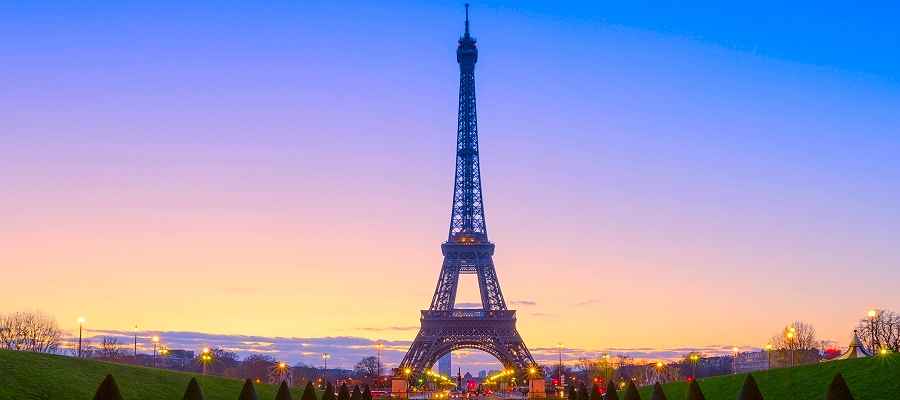
Rachida Dati, current Minister of Culture, took advantage of hot news around the Eiffel Tower to attack her long-time adversary, Anne Hidalgo.
The famous Iron Lady has been closed since Monday February 19 due to a strike, with employees and unions accusing the Paris town hall of poor financial management of the monument. The minister also wrote on Twitter on Thursday that it would be necessary to request the classification of the Eiffel Tower as a historic monument, claiming not to understand why the mayor of Paris did not take this initiative.
A classification which seems urgent given the current state of disrepair of the Eiffel Tower.
The Eiffel Tower has been listed as a historic monument since June 24, 1964.
Historical monuments were born around 1830, when the State began to preserve the great heritage of France. The first list of historic monuments was published in 1840. Only prehistoric monuments, ancient and medieval buildings appear. The definition will evolve over the centuries to expand.
In 1925, a second category was created: registration in the supplementary inventory of historical monuments, which was opened to more recent heritage. The Eiffel Tower was therefore included in this inventory in 1964, even though it was only 75 years old.
However, it is not classified and buildings that are benefit from tax advantages, subsidies for preservation work, and may be subject to strict conservation obligations to ensure the protection of heritage. To be eligible for this classification, it must be of public interest on a historical and artistic level. The Gustave Eiffel Tower corresponds perfectly to these criteria. Today it is simply listed in the inventory.
An opportunity for the future candidate for mayor of Paris in 2026 to point out for the umpteenth time the incompetence of her rival Anne Hidalgo.
|
|
|
|
| Emily Jackson for DayNewsWorld |
 |
BUT WHO TO SAVE MACRONIA
TO EUROPEANS | 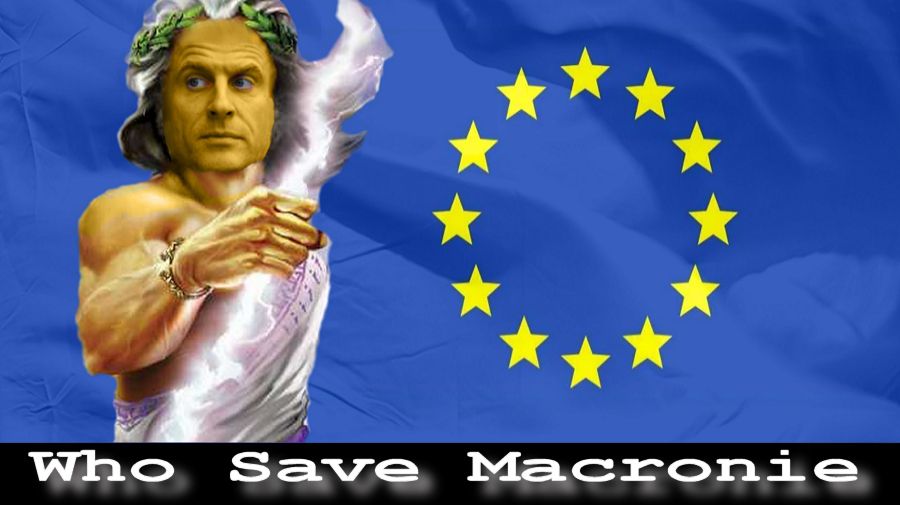 All political parties have their head lists for the European elections and have already attacked their campaign. François-Xavier Bellamy (LR), Manon Aubry (LFI), Raphaël Glucksmann (Place publique, PS), Marie Toussaint (ELLV) and even Marion Maréchal (Reconquête!) crisscross France. Jordan Bardella has been leading the polls since his appointment on September 3. All political parties have their head lists for the European elections and have already attacked their campaign. François-Xavier Bellamy (LR), Manon Aubry (LFI), Raphaël Glucksmann (Place publique, PS), Marie Toussaint (ELLV) and even Marion Maréchal (Reconquête!) crisscross France. Jordan Bardella has been leading the polls since his appointment on September 3.
The president of the RN even widens the gap with the list of the presidential majority, ahead of it by more than 10% in an Ifop survey of February 11 collecting 29% against 19 for a headless presidential majority. But who will carry the flag of Renew, the Renaissance political group, in the European elections on June 9 ?
This strategy of late announcement of the head of the Renaissance list would be desired according to a Renew MP:
“Since we don’t have a face, she avoids criticism.”
With the risk of letting opponents take the spotlight, like Raphaël Glucksmann, who can recover the votes of the Renaissance left wing, disappointed with the turn to the right of the new Macron government
But the truth would seem less rosy for Macronie.
Famous personalities refused the offer. European Commissioner Thierry Breton, Julien Denormandie, former Minister of Agriculture, have already said no and former ministers Olivier Véran and Clément Beaune seem to be left behind.
According to Ifop, the best defense against Jordan Bardella would be MEP Valérie Hayer, new president of the Renew group in the European Parliament and daughter... of a farmer. Yesterday morning, it was the former journalist and Renaissance MEP Bernard Guetta who applied.
A default choice that the President of a puppet party must ultimately make.
|
|
|
|
| Alyson Braxton for DayNewsWorld |
 |
FACED WITH THE INFLUX OF ILLEGALS AND EXCEPTIONAL DELINQUENCY
THE END OF LAND RIGHTS IN MAYOTTE | Will the latest announcement be enough to restore a feeling of security to the inhabitants of Mayotte? Arriving this Sunday in Mayotte, Gérald Darmanin announces his desire to put an “end to land rights” on the island facing a major migration crisis. “It will no longer be possible to become French if you are not the child of French parents, we will reduce the attractiveness of the archipelago,” explained the Minister of the Interior.
"We are going to take a radical decision, which is the inclusion of the end of land law in Mayotte in a constitutional revision that the President of the Republic will choose [...] It is an extremely strong, clear, radical measure, which obviously will be limited to the Mayotte archipelago", he indicated. In addition, he specified, the abolition of land rights in Mayotte will make it possible to "put an end to the territorialized visa", a device which prevents holders of a Mayotte residence permit from coming to France and the removal of which is one of the demands of the "citizen collectives", who have paralyzed the island for three weeks with roadblocks installed to protest against insecurity and uncontrolled immigration. According to the minister, the abolition of territorialized residence permits must be recorded in a Mayotte bill which will be studied in the National Assembly "in the coming weeks".
More than 150,000 illegal immigrants
The exceptional measure announced by Gérald Darmanin intends to calm the anger of some of the island's inhabitants who have been blocking traffic on major roads since January 22. The collective of “Forces vives de Mayotte” maintains blockades in the four corners of Mayotte, on the roads and at the port, paralyzing traffic and disrupting the economic life of the department.
They stand up against insecurity and delinquency, linked to illegal immigration which they consider uncontrolled. More precisely, they demand the expulsion of refugees from Great Lakes Africa, installed in a makeshift camp around the Cavani stadium, in Mamoudzou, and demand an end to acts of delinquency and clashes. This anger also shows the failure of Operation Wuambushu launched in spring 2023, during which hundreds of additional police and gendarmes were deployed in Mayotte to stem the flow of arrivals of migrants from the Comoros and combat delinquency and housing. unsanitary.
Mayotte, which became the 101st French department in 2011, attracts thousands of migrants each year, arriving by sea in "kwassa kwassa", makeshift boats, from the neighboring Comorian island of Anjouan, but also from Western Africa. Great Lakes and increasingly Madagascar.
Nearly half of Mayotte's estimated 350,000 inhabitants do not have French nationality, according to INSEE, but a third of foreigners were born on the island. In its February 2019 report, INSEE indicated that between "significant immigration from the Comoros" and the departures of "natives of Mayotte to the outside world", 48% of the department's population was foreign in 2017, a figure up 8% compared to 2012. And since then the situation has only deteriorated.
Comorian governments exploit their migrants whose remittances officially represent 20.5% of GDP. The Comoros is the fourth country in the world most heavily dependent on these transfers.
Insecurity and “extraordinary” delinquency
These illegal migrants, settled in particularly unsanitary neighborhoods, “bangas”, are prey to violence and trafficking.
In its report “Living environment and security in Mayotte” from November 2021, INSEE describes “extraordinary delinquency”. Over the period 2018-2019, in each area – burglaries, thefts, physical or sexual violence, etc. – Mahorese delinquency clearly exceeds the figures for mainland France.
This year, personal attacks have increased by 50%.
"The inhabitants of Mayotte are personally three times more victims of theft with or without violence", indicates INSEE, and the feeling of insecurity "far exceeds all the standards of the metropolis or other Drom (Departments and regions of Overseas)". 48% of Mahorais feel unsafe at home (52% in their neighborhood), i.e. five to six times more than in France. All these numbers are increasing year after year.
For six months, the island has also been suffering from a terrible drought which has forced the authorities to put in place water restrictions. Thanks to a recent improvement in the weather situation, and therefore to rainfall, water cuts were reduced in mid-January to every other day. Since the end of August 2023, running water has only been available one day out of three in Mayotte due to a historic drought, coupled with a lack of infrastructure and investment.
The Mayotte archipelago is the department where the National Rally scored its biggest score in the first round of the presidential election. Marine Le Pen received 59.10% of the votes, far ahead of the other candidates, but also very far from her score in 2017.
In a department undermined by insecurity and illegal immigration, the RN is attractive. |
|
|
|
| Kelly Donaldson for DayNewsWorld |
 |
THE CLOTH OF THE CONSTITUTIONAL COUNCIL AGAINST PARLIAMENT THE VOICE OF THE FRENCH
THE WIDELY CENSORED IMMIGRATION LAW | 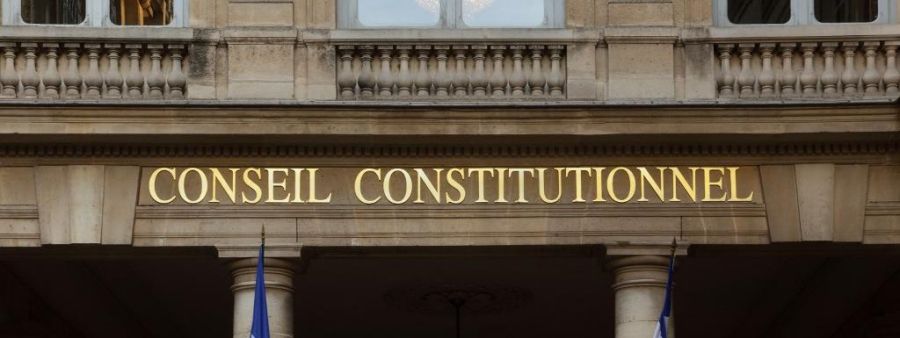
The Constitutional Council announced this Thursday afternoon that more than 30 articles (out of 86) of the immigration law were contrary to the Constitution or had no place in the text. The tightening of family reunification, the extension of the length of residence of non-Europeans, annual migration quotas and financial guarantees for foreign students are among the main provisions censored.
All these provisions introduced by the Senate were censored as legislative riders, the legislator not having the right to add provisions unrelated to the subject addressed by the bill. For these articles, the Constitutional Council did not have to take a substantive position on the constitutionality of these measures.
.The text, reduced by 40% of its volume, has regained its initial size, with four chapters: the reform of foreigners' litigation, that of the right to asylum, the integration of foreigners in particular through work and the question of removal of delinquent foreigners.
He largely censored the law by removing numerous measures obtained by the right.
LR calls for a new text
After the censorship of the Constitutional Council, the Les Républicains party asked the government to include the censored provisions in a new text.
"We ask the government to resume as quickly as possible in a specific legislative text all the provisions invalidated by the Constitutional Council as 'legislative riders'", indicates the party in a press release signed by its boss Eric Ciotti, as well as the president of the group in the Senate Bruno Retailleau and his counterpart in the National Assembly, Olivier Marleix.
In a press release, MEP LR François-Xavier Bellamy denounces "a coup against a law that the French were waiting for". “By asking the Constitutional Council to empty of its substance a text voted by Parliament and massively supported by society, the government proves that it does not want our country to be able to regain control of immigration. This confirms the requirement carried by LR of a referendum on this crucial subject", he writes.
Bardella denounces "a coup by the judges, with the support of the President of the Republic"
The president of the National Rally, Jordan Bardella, denounced Thursday "a coup of force by the judges, with the support of the President of the Republic himself", after the Constitutional Council rebutted, totally or partially, 35 measures of the law immigration voted in mid-December in Parliament. “The Constitutional Council censors the firm measures most approved by the French: the immigration law is stillborn. The only solution is the referendum on immigration,” added Jordan Bardella in a message published on X.
And Marion Maréchal in a message published on X .: “Those who claimed that this law would reduce immigration made fun of the French.
June 9 will be a referendum: each Reconquest ballot will be a ballot against immigration."
This censorship by the Constitutional Council is, beyond the law, an eminently political decision, in defiance of the will of the vast majority of French people.
|
|
|
|
| Garett Skyport for DayNewsWorld |
 |
FRANCE REHABILITATION
ELISABETH BORNE RESIGNATION | 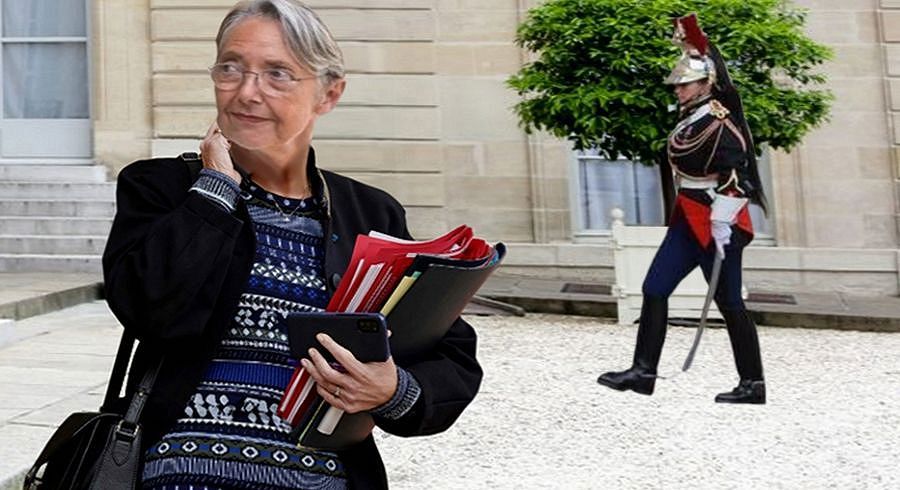
Elisabeth Borne, the Prime Minister, submitted the resignation of her government to the President of the Republic who accepted it.
Emmanuel Macron thanked Elisabeth Borne "with all my heart" for her "exemplary" work in the "service of the Nation", said the president.
Aurélien Rousseau, former Minister of Health and former chief of staff to Élisabeth Borne, reacted on X to the resignation of Elisabeth Borne and paid tribute to her.
"It's difficult to put a few words on such an intense human and political adventure. But working with Élisabeth Borne was an honor. The State is as close to the heart as the battle for employment and the desire to open up to all and all the paths to emancipation.
Clément Beaune says he is “very proud to have served our country” within the Borne government.
Transport Minister Clément Beaune praised the “ courage” and “ convictions” of Elisabeth Borne, shortly after the announcement of her resignation. “ I am very proud to have served our country in your government ,” he wrote on X.
Bruno Le Maire, in an attempt to save his place as minister, advocates the "virtues" of "stability" at Bercy, logical in a France, world champion of taxes, duties, and compulsory levies.
On the balance sheet side seen from here (USA) the balance sheet of Elisabeth Borne, Prime Minister, is really not positive, even if she is a champion of 49/3.
France remains very sick, and deserves a real prime minister who would reform the spending and wasting state of public money, who would significantly reduce taxes, who would bring order to its disastrous management of immigration which should be chosen and controlled, with many rigorous criteria, and of course subject to quotas.
Finally, France should establish a participatory democracy like that of Switzerland, a model for all countries that want to claim to be a true modern democracy respectful of its sovereign people.
Who will replace Elisabeth Borne, with what program ?
Even if it is well known, the saying "Too much tax kills tax" should be a mantra for the future Minister of Economy and Finance of France. |
|
| Pamela Newton for DayNewsWorld |
 |
THE POSTPONEMENT OF THE PUBLICATION OF THE IMMIGRATION REPORT OF THE COURT OF AUDITORS
"A SERIOUS BREACH OF DEMOCRACY" | 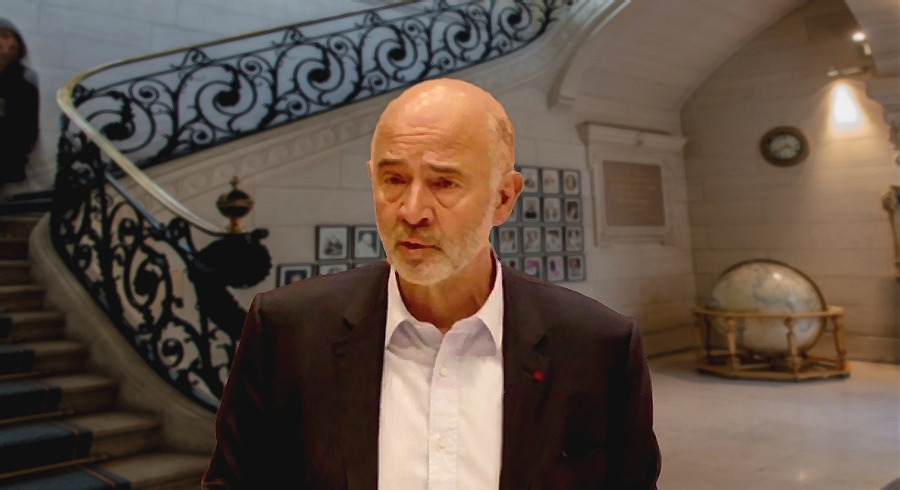
The postponement of the publication of the report on immigration arouses criticism from the opposition, who see it as an attempt to spare the executive on the part of Pierre Moscovici. However, the first president of the Court of Auditors defends himself vigorously.
“It’s a decision that I took personally and which I take full responsibility for.” This is what Pierre Moscovici declared on Friday January 5, 2024 during his intervention on LCI. He explains why he chose to postpone the release of the Court of Auditors' report on immigration by several days.
This document, published the day before, highlights the absence of a "global strategy" in migration policies and the ineffectiveness of the Obligations to Leave the French Territory (OQTF), of which only 12% actually result in removal measures.
The Court of Auditors estimates that this “deficient” policy has an annual cost of 1.8 billion euros.
However, it was the postponement of the publication decided by Pierre Moscovici, an early pro-immigrationist, which triggered a wave of indignant reactions on Saturday January 6.
The reason for this postponement ?
The desire of the first president of the Court of Auditors not to stir up the heated debates on the immigration law which agitated Parliament.
On LCI, Pierre Moscovici specified that the release of the report was initially scheduled for December 13.
“It happened to be two days after the vote on the motion to reject the immigration law.
I don't know if you imagine a report coming out at that time, and three days before the Joint Commission, but what would we have said? ", asks the former minister of François Hollande.
According to him, the "political crisis" generated by the examination of the text would have compromised the calm presentation of the work of the Court of Auditors.
The opposition calls this a "delusional admission".
For LR MP Aurélien Pradié, Pierre Moscovici deliberately concealed crucial information that could enlighten Parliament, calling this an unjustifiable fault. Laurent Wauquiez, LR president of the Auvergne-Rhône-Alpes region, goes so far as to demand the resignation of the first president of the Court of Auditors, considering this a serious breach of democracy.
The National Rally and France Insoumise also express their indignation, denouncing an “unacceptable” postponement and “shenanigans from another age”, respectively. Rock
Moscovici made a mistake
Article 47-2 of the Constitution gives food for thought to Pierre Moscovici's detractors.
Is it not stated that "the Court of Auditors assists Parliament in monitoring the action of the Government" and that it "assists Parliament and the Government in monitoring the execution of finance and financial laws ? The application of social security financing laws as well as in the evaluation of public policies ?" |
|
|
|
| Joanne Courbet for DayNewsWorld |
 |
ATTACK IN PARIS PSYCHIATRY AND TERRORISM
WHY THE CARE INJUNCTION
IS IT NOT THE PANACEA ? | 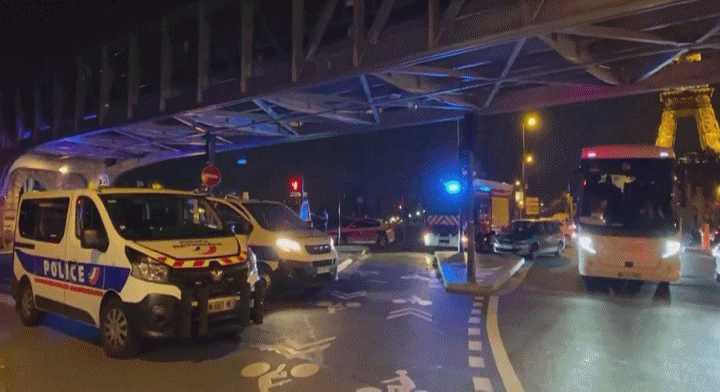
After the knife attack in the heart of Paris on Saturday evening, Gérald Darmanin points out the follow-up of the attacker as “a psychiatric failure” in the follow-up of the assailant.
He wants a change in psychiatric practice.
This hot and perhaps political reaction surprised more than one person, Darmanin's argument being a bit facile, even demagogic.
This is also the opinion of Antoine Pelissolo, professor of psychiatry, head of department at CHU Henri-Mondor de Créteil.
“It is, in any case, a sweeping judgment to find scapegoats, while we do not yet have a complete, detailed analysis of the situation.
I cannot say if the follow-up of this French suspect was perfect, not having access to his file, but Gérald Darmanin cannot cast shame on psychiatric professionals.
Known psychiatric pathologies
Placed in police custody, covered by an “S sheet”, he had already been convicted and declared to the police that he “was tired of seeing Muslims die”, particularly in Gaza, and that France was “complicit” of Israel. The profile of the attacker, who claimed responsibility for his terrorist act, was quickly presented, as well as his serious radicalized past.
But unlike the assassin of Samuel Paty and that of Dominique Bernard, the perpetrator, arrested in Paris and designated as Armand Rajabpour-Miyandoab., suffers from known psychiatric pathologies.
Already in 2019, while he was in detention incarcerated for a planned attack at La Défense, the latter made disturbing remarks "I hear the voice of all the people imprisoned for terrorism"
These remarks are recorded in a legal document consulted by colleagues as an incident reported by a prison guard.
“Senior officer, something dirty is going through my head. I hear the voices of all the people imprisoned for terrorism.
I even hear the voices of the Bataclan jihadists asking me to take action. I'm lost and I don't know who I am anymore," the assailant said. "I want to slit my parents' throats on the way out.
My release date is near, and I don't know where I stand. I will end up taking action,” he added, while addressing the supervisor.
.One night in April 2019, Armand Rajabpour-Miyandoab saw the doctor, following an anxiety attack in the cell. He had thus indicated to him his conviction that “the prison administration wanted to poison him through meals”.
There is no doubt that the murderer suffers from psychological disorders; he had also been the subject of psychiatric monitoring for many years.
It was during his detention that the first psychiatric disorders were detected. He is then placed on an atypical neuroleptic, a treatment that he will continue after his release in 2020.
In March 2022, a doctor gave his approval to stop it. But six months later, based on a psychiatric assessment, the sentencing judge ordered an injunction for treatment.
The possibility of an “administrative care order”
One thing is certain, however: Armand Rajabpour-Miyandoab has not been subject to any treatment since April 2023, when his probation ended after three years. The coordinating doctor's reports about him were rather encouraging: he kept his appointments, had worked in the same company since 2020.
On several occasions in his reports, he dismisses the possibility of psychiatric danger.
Certain elements, however, raise questions. Last October, his mother reported to the specialized services a worrying withdrawal towards him.
However, she refused to request forced hospitalization.
And the intelligence services' room for maneuver is limited...
The law passed in 2021, which gives the possibility of extending the monitoring of prisoners convicted of terrorism for five years, including treatment orders, was not in force at the time of the attacker's release.
Much already exists in this area. The prefect can order hospitalization or psychiatric monitoring, but always with the advice of a doctor, since this must be strictly within the framework of a pathology.
Today, the prefect can only request hospitalization without consent from a patient if the latter has caused harm to "the safety of people or, seriously, to public order".
“Even if we had managed to take him to see a doctor, he would probably not have ordered compulsory hospitalization in the absence of any obvious disorder,” insists a source close to the case.
"But the articulation of acute psychological suffering with an ideology offers the individual a perspective of action to be taken seriously. It is not uncommon for an individual to channel himself with religion, according to his follow-up to the letter of certain hadiths, collections of the actions and words of Mohammed.
Other fragile individuals give meaning to their apocalyptic vision of the world with elements of reality allowing them to fuel a delusion of persecution, redemption, megalomaniac or mystical.
They can achieve a form of unstable equilibrium, until they feel psychologically forced to act,” explains Laure Westphal, clinical psychologist, Doctor in psychopathology and psychoanalysis.
This order for care “ahead of any disturbance to public order” ?
Gérald Darmanin's additional proposal would therefore be to put in place this care order upstream, in a preventive manner, before any potential action, on the basis of suspicion or alert information.
To remedy this legal void – already pointed out for several years by the intelligence services – the Minister of the Interior has therefore demonstrated his desire to give prefects the possibility of requesting administrative care injunctions.
In short: to allow them to order a psychiatric examination "ahead of any disturbance to public order", specifies the minister's entourage.
This would perhaps be a small step forward in the care of these terrorists with identified “psychological disorders”. It remains to be seen in what legal framework this could fit – the ministry is already specifying that this is not a question of not a measure of deprivation of liberty – and when.
But the border is not watertight; a radicalized person may be prey to psychiatric disorders which can therefore play a role in the act.
Convictional radicalization, choices that have rationality
Certainly in Armand RM the meaning of the act certainly escapes its author, but not the meaning he gives to his murderous action: he exercises the latter consciously in the name of an ideological logic, that of radical Islam . This Islamist terrorist made choices that had rationality. He is also a rational individual who theorized his act, as the doctor-psychiatrist at the Paris La Santé prison center and director of the Center for the Study of Radicalization and Their Treatments rightly recalls.
The war in Israel may have accelerated the project of fanatics to fight for a common identity, taken as a sort of unique political-religious frame of reference. He “was tired of seeing Muslims die”, particularly in Gaza. “The jihadists do not only have the prophet to “defend”. There is also what they consider to be the suffering caused to the Umma, the homogeneous and mythical Muslim community. The Israeli-Palestinian conflict has long been identified as the focal point of Arab humiliations.
With the globalization of Islam, new generations of terrorists have replaced the conflicts in Afghanistan, Bosnia, Chechnya, Iraq and Syria. The military weakening of IS on Syrian and Iraqi territories has not extinguished desires for engagement. », underlines Laure Westphal.
1 6% of them only: “medium to strong” psychological fragilities.
And all the radicalized, far from it, have the profile of Armand
Indeed in 2022, a study by the Ministry of Justice, based on a panel of 350 detainees passed through radicalization assessment units, indicated that 8% of them presented psychiatric disorders and 16% fragilities. psychological “medium to strong”. .Among the large number of radicalized people, there is a proportion – not necessarily greater than in the general population – who suffer from psychiatric illnesses. The experience of the Center for Prevention, Integration, Citizenship, in 2016, confirmed this: only one of the beneficiaries of this structure for the prevention of radicalization suffered from psychiatric disorders. In the vast majority of cases, radicalization is conviction-based, there is strong ideological consent.
A significant number of radicalized individuals not covered by psychiatry !
Since the closure of the CPIC in 2017, support for radicalized people has been prioritized at the local level.
An information report, recorded at the Presidency of the National Assembly on June 27, 2019, states that, according to the Anti-Terrorism Coordination Unit (UCLAT), in April 2019, support was relayed in 269 municipalities.
These measures seem insufficient, if we believe that every year since 2015, attacks have been committed on our soil, although many are foiled. At the same time, in France, in March 2022, there were 570 radicalized common law prisoners and 430 prisoners for Islamist terrorism.
Armand M. had, according to French media, sworn "to no longer be Muslim", after several years spent behind bars for a planned attack in 2016 in the Parisian business district of La Défense. He was one of the 340 radicalized prisoners released since 2018 (around thirty others should be released in 2024).
Around fifty have been since the beginning of October, even though the DGSI reported this summer that the terrorist threat was still the number one in France... Potential bombs?
Let's add the Files S. There are officially 12,000 and 20,000, depending on the assessment of their dangerousness. These “files” for Islamic radicalism are classified as dangerous for state security. Will citizens still have to deal with it for a long time ! ? |
|
|
|
| Joanne Courbet for DayNewsWorld |
 |
PARIS DRAMA POLITICAL RESPONSIBILITY
FRANCE FACING RADICALIZATION
AND THE ISSUES OF IMMIGRATION | 
The night of December 2, 2023 will remain etched in Parisian memory, marked by an appalling act of violence just a stone's throw from the Eiffel Tower. A German citizen lost his life, two others were injured.
The attacker, a Frenchman born in 1997 in Neuilly-sur-Seine, already on file for his links with radical Islamism and his psychiatric disorders, was apprehended by the police.
The drama began around 9 p.m. in the 15th arrondissement, as recounted by Gérald Darmanin, Minister of the Interior, present on the scene late in the evening. The suspect allegedly dealt several fatal blows to a man in the street, precipitating his tragic fate. The victim, a German national, was walking with his wife, physically spared but plunged into deep emotional shock.
The intervention of a taxi driver put an end to the first phase of the attack, followed by a call to 17 around 9:15 p.m., mobilizing the police of the 15th arrondissement. What followed was a breathtaking hunt for the suspect on the Bir-Hakeim bridge to the 16th arrondissement on the other side of the Seine.
During this hunt, the suspect attacked two other individuals with a hammer. Although their lives are not in danger, one is of foreign nationality, while the other is a French man in his sixties. The arrest of the suspect was facilitated by the use of an electric stun gun by law enforcement.
The initial investigation, entrusted to the criminal brigade, was quickly transferred to the national anti-terrorism prosecutor's office (Pnat) after midnight. Disturbing details emerged that the suspect allegedly chanted "Allah Akbar" repeatedly, expressing intolerance towards the deaths of Muslims around the world.
Gérald Darmanin revealed that the individual had already been sentenced in 2016 to four years in prison for having expressed a desire for violent action. Released in 2020, he was under the administrative surveillance of the General Directorate of Internal Security (DGSI), while undergoing treatment for his psychological disorders.
Faced with this tragedy, Prime Minister Elisabeth Borne expressed her thoughts towards the victim, the injured and their loved ones, emphasizing the government's determination to not give in in the face of terrorism. Emmanuel Macron, later in the night, presented his condolences to the family of the deceased German national, praising the speed of the emergency services in arresting the suspect. He underlined the crucial role of the national anti-terrorism prosecution in the quest for truth on behalf of the French people.
This atrocious act of violence raises crucial questions about radicalization and the challenges linked to immigration in France. There are legitimate concerns about the system's ability to manage radicalized individuals with criminal histories, as well as the effectiveness of post-release monitoring systems.
This tragedy highlights the pressing need for in-depth reflection on immigration policies, in particular the distribution of French nationality without strict criteria and the management of the threat of radical Islamism. The French political authorities are now faced with their responsibilities in combating these challenges, in order to ensure the security and stability of the country.
Radicalization in the Spotlight
The echo of this tragedy resonates in the corridors of French power, raising broader questions about the management of radicalization in society. The cry of “Allah Akbar” uttered by the suspect highlights the religious dimension of this act, raising concerns about the way in which radical Islamism can take root in society.
The attacker's legal journey raises questions about the effectiveness of monitoring radicalized individuals after their release from prison. Convicted in 2016 for his violent aspirations, he was released in 2020, placed under the surveillance of the DGSI. However, despite this monitoring, he was able to carry out a murderous act, highlighting potential gaps in the security system.
The question of radicalization cannot be dissociated from the complexity of immigration in France. French nationality distributed without strict criteria is becoming a major concern.
How were individuals sharing extremist beliefs able to access citizenship without a rigorous assessment of their adherence to republican values being carried out ?
This question resonates with particular force in the current context where the rise of radical Islamism is creeping into the cracks of an immigration system that is sometimes too permissive.
Immigration: Challenges and Reflections
The tragedy of December 2, 2023 highlights the need for serious introspection on immigration policies in France. The distribution of French nationality without rigorous criteria may prove to be an open door to individuals whose extremist beliefs threaten the stability of society. The ease with which radical individuals can access citizenship calls into question the robustness of control and selection mechanisms.
A reassessment of nationality granting procedures
The redefinition of migration policies in France, focused on the establishment of selective immigration, is emerging as a promising solution to strengthen the social and economic harmony of the country.
Questioning land law is seen as an essential necessity to adapt the process of granting French nationality to a changing world.
The central idea of this transition is to move towards carefully selected immigration, based on rigorous criteria. The promotion of French culture, mastery of the language, as well as understanding of morals and customs, constitute essential elements among these criteria.
By opting for a proactive approach, France seeks to attract individuals whose values and skills align harmoniously with those of French society.
The strict quotas, inherent to this new approach, aim to ensure a balance between the economic needs of the country and the preservation of its cultural identity.
By favoring specific selection criteria, such as professional qualifications and commitment to republican values, France aspires to build a diverse but united community.
This transition towards selective immigration is not only seen as a response to current challenges, but also as an opportunity to strengthen the French social fabric.
By encouraging integration and valuing diversity, France seeks to create a society where each individual, whatever their background, can contribute positively to national dynamism.
It is crucial to emphasize that this approach does not aim to close the doors, but rather to open them in a more selective manner, promoting a cultural exchange beneficial to all. By placing French culture at the heart of the selection criteria, the objective is to preserve and celebrate the cultural riches that make the nation unique.
In conclusion, the transition to chosen immigration in France, based on selective criteria including the promotion of French culture, represents a positive step forward towards a more coherent and resilient society. This proactive approach demonstrates France's desire to shape its future by welcoming those who share its fundamental values, thus contributing to the construction of a more inclusive and prosperous society.
All his reforms will also have the consequence of putting an end to such barbaric acts. All our thoughts are of course with the families of the victims. |
|
|
|
| Kelly Donalson for DayNewsWorld |
 |
CREPOL DRAMA THE RACIST CHARACTER
MURDER MUST BE TAKEN INTO ACCOUNT | 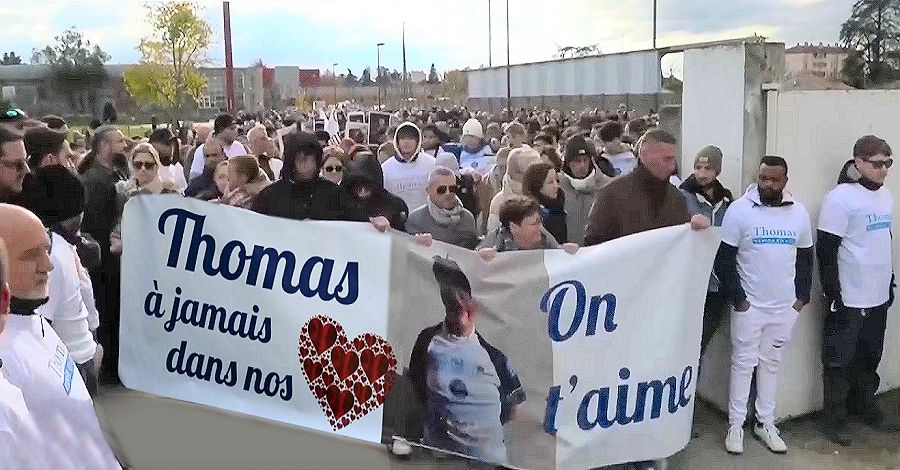
Regarding the profile of the suspects, the mayor highlighted the presence of around "a hundred young people, with a particularly violent hard core".
During an interview this Tuesday, November 28, 2023 on BFM-RMC, Marie-Hélène Thoraval also pleaded for “putting an end to the culture of excuses”.
The racist character
The mayor of Romans-sur-Isère, Marie-Hélène Thoraval, affiliated with right-wing diversity, declared this Wednesday, November 29 that the “families” of the victims of the attack during the village ball in Crépol, in Drôme, ten days ago, requested that the courts consider the incident as “racist”.
“Families are asking for two things,” said the elected official during her interview on BFM-RMC.
“The first is the incontestable firmness of justice, and the second is that the racist character manifested by the attackers be taken into account,” she stressed. The mayor of Romans-sur-Isère expressed her fears about possible future tragedies after Thomas' murder.
She regretted the fact that all those involved “come from already delinquent parents”. According to her, it is a culture that is transmitted, an observation she has made as mayor since 2014.
Asked about the Monnaie district, where some of the suspects come from, Marie-Hélène Thoraval said that among the 4,500 inhabitants, “around a hundred young people” pose problems, forming “a particularly violent hard core”.
Radicalization and drug trafficking
She described this hard core as seeking to establish “a lawless zone by occupying the territory” of Drôme, to the detriment of the city’s 34,000 residents who aspire to tranquility.
“It’s an entire territory that is affected,” insisted the elected official, adding forcefully:
“We must stop practicing the culture of excuses.”
Concerning the disclosure of the suspects' first names, the mayor of Romans-sur-Isère criticized the fact of "not having communicated the first names earlier", deeming this "indecent".
She questioned the initial lack of transparency, pointing out that disclosing first names on social media before they are confirmed by authorities only reinforces stigma.
Already on Sunday, the mayor had called for "sitting around the table and working differently" in the face of a level of delinquency which, according to her, has its roots in radicalization and drug trafficking, in Romans and in other other cities.
On Monday, the government tried to ease tensions sparked by Thomas' death.
What cost the 16-year-old high school student his life was not "a simple brawl" but "a tragedy which runs the risk of a shift in our society", declared Olivier Véran, calling for not to respond to violence with violence. Certainly, but when will the government have the courage to name things and take the necessary measures ?
|
|
|
|
| Boby Dean for DayNewsWorld |
 |
LOOTTING OF THE SACRE-COEUR BASILICA
FROM ROUEN |
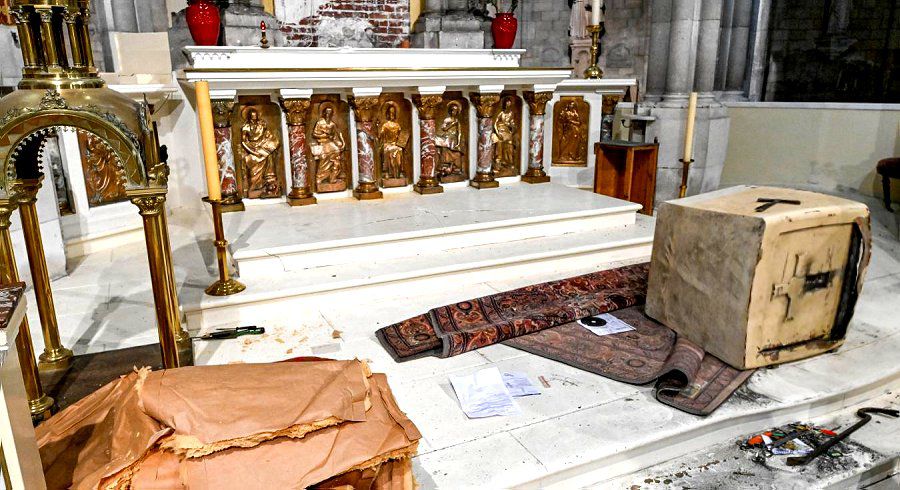
The Sacré-Cœur basilica in Rouen, in Seine-Maritime, was “ransacked” on the night of November 14 to 15, said Father Geoffroy de La Tousche. In a video published on social networks, the parish priest of Rouen explained that he discovered the basilica in an “absolutely terrible” state this Wednesday.
“A statue was broken. Sacred vessels have been stolen. The altar and the choir are in a terrible state, broken. By chance, grace or providence, the holy sacrament was not stolen,” reacted, still in shock, Father Geoffroy de La Tousche.
The parish priest of Rouen thus invited the faithful and Catholics to “pray […] for the parish”. He will meet them this Thursday, November 16 at 6:15 p.m. “for a time of prayer and reparation, at the request of the archbishop.” “At 6:30 p.m. we will celebrate mass, with new vases lent to us,” he continued.
The priest estimated the damage at “tens of thousands of euros”. A complaint was filed and an investigation was opened .
The investigation is to determine whether this act is linked to the conflict between Israel and Hamas.
|
|
|
|
| Boby Dean for DayNewsWorld |
 |
ILLUMINATIONS OF THE CHAMPS ELYSEES
IN HONOR OF HOLIDAYS AND OLYMPIC GAMES |
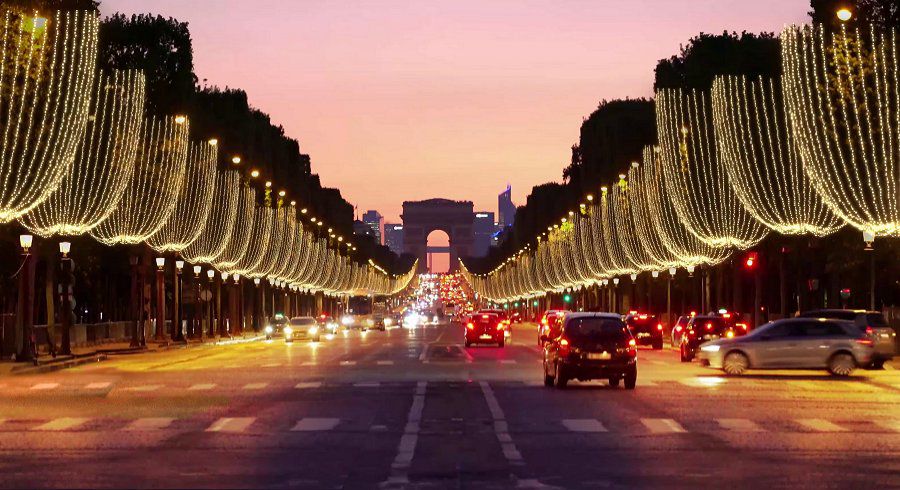
The prestigious Avenue des Champs-Élysées, stretching over 2.6 kilometers in the heart of Paris, is preparing to shine brightly in anticipation of the Holidays and the Olympic Games next summer. Indeed, it will be the exceptional setting for various sporting events, including the installation of a beach volleyball stadium on the Champ de Mars and the parade of the Paralympic Games ceremony scheduled for August 28, 2024.
Marc-Antoine Jamet, the president of the Champs-Elysées Committee, unveiled this Monday, October 30 in the morning, at the Barrière Le Fouquet's hotel, the new developments concerning the illuminations for the New Year celebrations and the innovations undertaken on the famous avenue Parisian.
The illuminations ceremony for the end-of-year holidays, scheduled for November 19, will be honored by the presence of renowned actor Gilles Lellouche, an emblematic figure of French cinema with recognized talent, with successes such as "Les Petits mouchoirs " and "Bac Nord".
The sponsor of this special edition of the illuminations will be surrounded by institutions and, new in 2023, a family of three sick children, accompanied by the “Petits Princes” association. Together, they will have the honor of lighting the 400 trees that majestically line the Champs-Élysées.
It is the Provençal company Blachere Illuminations which is once again responsible for installing the light creations this year, which this year will follow “a more sustained three-step rhythm”. “Each hour will be marked by a strong and long sparkle, which will be repeated every quarter of an hour, and every five minutes the rhythm of sparkles will change, explains Marc-Antoine Jamet. The Committee of the Champs-Élysées also presents its new logo
integrating evolving pictograms according to the theme and a blue-white-red color palette.
These illuminations, placed under the sign of energy sobriety since the unprecedented extinction last year, reflect a total consumption estimated at around 13 300 kWh for 2023. This slight increase compared to the previous year is due to the extension of lighting by one week this year.
To further mark the identity of the Champs-Élysées, a new slogan is appearing this winter : "Let's light up the avenue, make Paris shine." Four new posters, inspired by the famous kisses of Times Square and City Hall, highlight the artery while capturing the romantic essence of the city.
As part of the ambitious “La Clef des Champs” project, the Champs-Élysées are also reinventing themselves visually. The Chairman of the Committee underlines the efforts made to make this avenue even more attractive for Parisians, based on the "3 P" strategy: becoming Parisian, popular and shared again. Among the many new features, the reorganization of the avenue's 17 terraces, supervised by Belgian designer Ramy Fischer, promises a modernized aesthetic and improved accessibility.
Welcoming 150,000 visitors daily and more than 250,000 on Sunday, the Champs-Élysées remains a dynamic place, combining cultural spaces, restaurants, food stores, and international brands such as JD Sports and Sephora. This vitality illustrates the success of the strategy adopted over the years, testifying to an avenue still at the height of its charm and attractiveness.
See you on November 19 from 6 p.m. to experience this magical moment.
|
|
|
|
| Carl Delsey for DayNewsWorld |
 |
IS THE VOICE OF FRANCE BECOME INAUDIBLE
ON THE INTERNATIONAL SCENE ? |

The French capital, where world summits take place, is currently becoming the scene of intensified diplomatic efforts. The French president indeed participates in various international events in Paris, created under his leadership since his election in 2017, in a context of strong international tensions.
However, the foreign press is wondering: does Emmanuel Macron's "voluntarism" translate into concrete results ?
And wouldn't its primary objective be above all to restore the lost greatness of France ?
A diplomatic ballet in Paris
The list of objectives was as long as the hopes of success were slim. This was the sentiment expressed by the foreign press on November 9, while the International Humanitarian Conference for the civilian population of Gaza took place in Paris, followed by the Annual Peace Forum from November 11, 2023.
The Head of State is inaugurating this Friday, November 11, 2023, the 6th edition of the Paris Peace Forum at the Palais Brongniart, dedicated this year to “building together in a world of rivalries”.
It will also close the One Planet summit on the poles and glaciers at the National Museum of Natural History, after similar meetings on the oceans in Brest and forests in Gabon.
Two linked, "connected" meetings, which are part of the "same logic of preparing international cooperation to avoid the crises of tomorrow and create more common goods", according to the term of the Élysée upstream of the sequence .
To conclude this diplomatic week, Macron will chair the 5th summit of the Christchurch Call, an initiative launched with New Zealand after the 2019 attack, aimed at combating terrorist content online. A new opportunity for the president to show initiative and affirm the strength of unity.
And to affirm that we are always stronger together. This is the vision of the President of the Republic, champion of multilateralism on the international scene.
Multilateralism in the spotlight
According to the Élysée, the Paris Forum manages to maintain multilateralism despite tensions and conflicts, by cooperating on subjects where collaboration is essential."
What we manage to do at the Paris Forum is that despite the tensions and despite the wars, we continue to bring multilateralism to life on subjects where we have no choice but to cooperate", explains today today the presidency to journalists
However, diplomatic hyperactivity in Paris raises concerns among correspondents, who fear that messages will be diluted in the multitude of summits.
Politico highlights Emmanuel Macron's impressive to-do list this week, from resolving the crisis in Gaza to tackling melting ice caps and the challenges of artificial intelligence.
A “humanitarian conference” at the initiative of Emmanuel Macron
France hosted on Thursday November 10, 2023 a “humanitarian conference” at the initiative of President Emmanuel Macron to facilitate aid to Gaza, hampered by Israeli bombings since the Hamas attack on October 7, 2023.
After more than a month of strikes, hundreds of thousands of civilians, according to the UN, remain trapped in the north of the Gaza Strip, an area of intense Israeli offensive.
Around 1.5 million people of Gaza's 2.4 million inhabitants have been displaced by the conflict.
Emmanuel Macron stressed the need to work to protect civilians, calling for a rapid humanitarian pause and a ceasefire. He insisted on Israel's right to defend itself while emphasizing its responsibility to protect civilians.
“It is the protection of civilians that we must work on. For this we need a very rapid humanitarian pause and we must work for a ceasefire,” declared Emmanuel Macron in front of representatives of around fifty of countries and humanitarian organizations, which had until then only mentioned the need for a "truce".
If Israel has "the right to defend itself and the duty to protect its own", its government also has "an eminent responsibility (...) to respect the law and protect civilians", insisted the French president.
Paris also considers a truce necessary to obtain the release of some 240 hostages held by Hamas, including some French people.
At the end of the conference, the organizers announced that the commitments made yesterday by the participating countries exceeded one billion euros.
The disappointment of the NGOs
According to the White House, Israel has agreed to daily four-hour breaks. At the end of the conference, commitments from participating countries exceeded one billion euros.
However, the conference, organized as an emergency, mainly brought together only second-rate representatives in the absence of the Israeli government, and it took place without the participation of the belligerents and the United States.
Furthermore, despite financial commitments, much of the aid intended for the Palestinian territories, estimated at $1.2 billion by the end of 2023, risks being ineffective without regular access of aid trucks to Gaza. .
Humanitarian organizations have expressed their disappointment, stressing the impossibility of intervening as long as the bombings continue."
We are quite disappointed because there was no consensus on an immediate ceasefire (…).
Beyond the mobilized aid, the challenge is to get it back to Gaza,” said Jean-François Corty, vice-president of Médecins du Monde. Setting up relief on the battlefield is impossible.”
End of inadmissibility from Biden and Netanyahu
As if in response to these calls, the White House affirmed that Israel agreed to "daily" four-hour breaks in certain areas of the north "of the Gaza Strip, but US President Joe Biden ruled that there was “no possibility” of a real ceasefire.
Israeli Prime Minister Benjamin Netanyahu consistently rules out such a ceasefire without the release of the hostages.
An Israeli military official said Thursday that "there is no humanitarian crisis in the Gaza Strip," while acknowledging the "many difficulties" facing civilians in the Palestinian territory gripped by Israel's war. and Hamas. Israel "facilitates the delivery of humanitarian aid," said Colonel Moshe Tetro, head for Gaza of the Israeli Defense Ministry body overseeing civilian activities in the Palestinian Territories.
However, US President Joe Biden ruled that a real cessation of hostilities was impossible.
Israeli Prime Minister Benjamin Netanyahu rules out a ceasefire without the release of the hostages. An Israeli military official has denied the existence of a humanitarian crisis in Gaza.
The voice of France become inaudible ?
Israel and the United States may have differences on the strategic priorities of this war, but they are at least united in quickly dismissing their French counterpart. Emmanuel Macreon's desire to exist internationally through some show of brilliance falls like a bellows.
This is evidenced by the reception of several initiatives recently launched by the President of the Republic, and the small fallout from his trip to the Middle East.
His idea, put forward from Jerusalem, of an international coalition against the Palestinian Islamist group Hamas, behind the bloody attacks against Israel, has not aroused the enthusiasm of other Western capitals, far from it. It was rather mocked by experts considering it extremely complex to implement.
Just like the deployment of the ship “Tonnerre” off the coast of the Gaza Strip, announced this time in Cairo in Egypt to “support the hospitals there”.
The ship has arrived in the area, but it is still not receiving any wounded and its operations there are complicated by the blockade imposed by Israel.
These actions were met with skepticism, raising questions about France's ability to embody a respected and listened to diplomatic voice.
And to speak of a big diplomatic gap : "how can he be followed when in Israel, on October 24, he proposed - without warning anyone - to mobilize the international coalition against the Islamic State this time to "fight against Hamas" , then asks to “work towards a ceasefire” in the Gaza Strip this Thursday, November 9, 2023?
In other words, how can he go in 17 days from the idea of intervening mainly by air in Gaza with the added bonus of support from Arab countries (which is what "the coalition against Daesh" was doing) to the completely opposite objective of a ceasefire in the same place? ", we read from the pen of Maurice Bontinck in La Charente libre.
"But this great diplomatic gap carried out on a thread demonstrates that Emmanuel Macron thinks first of his country and of preserving its already well-divided unity. By blowing hot and cold with sometimes contrary ideas, he also embodies the tensions politicians who are found even in its own majority.
But above all he embodies French divisions. We can still see it in his hesitation to demonstrate on Sunday against anti-Semitism. ", concludes the editorialist.
|
|
|
|
| Joanne Courbet for DayNewsWorld |
 |
SHOCK REPORT
THE VULNERABILITY OF FRANCE
FOREIGN INTERFERENCE AND ESPIONAGE |

An alarming report. Is France sufficiently armed in the face of foreign influences ?
We can doubt it. The observation is clear. "The new dimension taken by foreign interference reveals persistent vulnerabilities, starting with our naivety, which is as much that of the political and administrative elites as [those] of economic and academic circles", indicates a report of the parliamentary intelligence delegation, published this Thursday, November 2, 2023.
Made up of eight parliamentarians, all authorized for defense secrecy, the parliamentary intelligence delegation is responsible for monitoring the action of specialized services, such as the DGSE, the DGSI or the DRM.
“High threat level”
Foreign interference has mutated to become a “protean, omnipresent and lasting” threat from espionage to the use of cyber space or information manipulation operations. His conclusion is clear: France is not armed enough to confront foreign influences.
The delegation underlines that this danger has taken “a new dimension in recent years, primarily due to a “radical change in the geopolitical context”…
“We have suddenly moved from a world of competition to a world of confrontation with authoritarian regimes on one side and Western democracies on the other (…). This divide between the West and the rest of the world emerges (…) as the dominant marker of the current period,” according to the document. Sacha Houlié, the president of the delegation, speaks of a “new cold era”.
“The informational and reputational war waged by authoritarian regimes.”
This danger arises, in fact, at the heart of a digital and technological revolution which has made cyberspace “the privileged field of confrontation and strategic competition between States”, a war led, above all, according to the DPR, by Russia. , China and Turkey.
The delegation's report dwells at length on "the informational and reputational war waged by authoritarian regimes." Because if classic espionage still exists, “fake news is the weapon of a war waged against the West without, for a long time, having identified the means to defend ourselves.”
And in this game Russia is the strongest. Moscow even has “its signature”, its techniques and they are formidable. Infiltration is part of this, for example the appointment of former European officials to the boards of directors of large Russian companies, such as the former French Prime Minister François Fillon or the former German Chancellor Gerhard Schröder.
There is also the manipulation of information, even if in France the banning of the media Russia Today and Sputnik has “helped reduce the scope of the information war” of Russia.
We must not neglect Xi Jinping's China, very effective with its “united front”, a “political strategy and a network of public and private institutions and key individuals, placed under the control of the Chinese Communist Party”. Chinese nationals (600,000 in France) are a key link in this system
Finally there is Turkey which since the arrival of Recep Tayyip Erdoğan at the top of power – in 2014 – no longer even hides its ambition “to control the Turkish diaspora as a relay of the ideas of Ankara’s power, it is i.e. hostile to Kurds and Armenians.” The report points to “religious practice”, “a powerful lever for promoting a political ideology”.
The document highlights the financing of places of worship in France and the assignment of Turkish imams to French mosques which “allowed Turkey to influence Islam in France”.
This system has since been banned... but its effects continue. Ankara also infiltrates through “entry into politics through participation in local and national elections”, through activism on social networks to propagate messages hostile to legislation, such as that on religious separatism.
“Our allies are not always our friends”
But not only that: unlike the fight against terrorism, where France can count on its traditional allies, the area of foreign interference is unique. “Our allies are not always our friends when it comes to espionage and economic interference,” summarized the chairman of the law committee, who cited the cases of the United States, Australia and even Israel. . “We are alone in this.”
Various operating methods, such as the extraterritoriality of law, are used in particular by the United States of America to capture data and undermine our economic security.”
Finally, the document insists on the need to pay attention to more discreet forms of espionage which may be the work of France's historical “allies”, as was the case with the Pegasus affair, named after the famous software Israeli spy that Morocco allegedly used to hack President Macron's telephone data. Since June 2022 the two countries have been at loggerheads and Israel has dried up Rabat's sources.
All these phenomena thrive on the “naivety” of elected officials, senior civil servants but also businesses and academic circles, writes the report. The report calls for a national awakening and intends to reduce the “naivety” and “denial” which are rampant within French society against an evil which undermines national sovereignty in all its forms: political, legal, military, economic and technological.
At the start of 2023, Emmanuel Macron explained that “war is no longer declared, it is waged quietly, insidiously, it is hybrid”. The delegation suggests the creation of an anti-interference bill aimed at detecting the action of foreign intelligence services, through data processing on the Internet.
To compensate for these deficiencies, the deputies propose the establishment of an “ad hoc legislative system for the prevention of foreign interference on the model of American law”, the adoption of a system of freezing assets for “any person or structure engaging in actions detrimental to the maintenance of national cohesion or intended to promote the interests of a foreign power.”
Furthermore, the authors of the report suggest “a European response” and are of the opinion that the different response strategies could be grouped “in a bill dedicated to the fight against foreign interference”.… At the level of national
emergency
The State elevates the fight against foreign interference to the rank of national emergency and devotes most of its annual report to it. Welcoming to see the budget and staff allocated to intelligence constantly increasing – 3.03 billion euros and 19,572 people in 2022 – the DPR also welcomes the injection of 5 billion additional euros planned in the 2024-2030 military programming law.
This will be necessary, say its members, to support “the paradigm shift in French intelligence” that constitutes the new priority given to counter-intervention.
|
|
|
|
| Alyson Braxton for DayNewsWorld |
 |
FAREWELL TO PROFESSOR DOMINIQUE BERNARD KILLED BY AN ISLAMIST TERRORIST
|
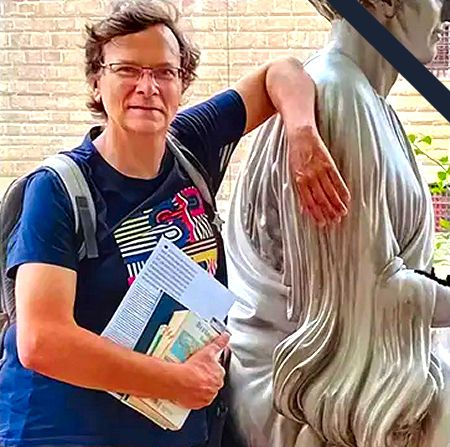
The funeral of Dominique Bernard, the teacher murdered on Friday October 13 by an Islamist terrorist, takes place this Thursday from 10 a.m. in Arras Cathedral.
Emmanuel and Brigitte Macron attended the ceremony, as well as the Minister of National Education Gabriel Attal. During this funeral, his relatives spoke to talk about what a man Dominique Bernard was. The French teacher was named a knight of the Legion of Honor on Thursday, the day of his funeral.
In Arras Cathedral.
“I would like to reiterate my gratitude to all the teachers in our country,” declares Olivier Leborgne
We must renounce the fact that others do not always correspond to what we expect of them or would like them to be. Hope demands that we leave all spirit of domination,” declared the Bishop of Arras. “But in this count, there is no resignation,” he urged.
“There is no invitation to resignation,” urges Monseigneur Leborgne
"When we say “thy will be done”, we must not be misunderstood. There is no invitation to resignation. God does not want death. Jesus is the one who recovers. He wants to make us into alive", declared Monseigneur Leborgne before beginning the Our Father with the assembly.
“When will the violence and madness of the world stop ?” asks the Bishop of Arras in his homily
“What are we allowed to hope ?, asks Monsignor Leborgne in his homily. Faced with the drama that brings us together this morning, this question crosses us all. And it crossed Dominique. He had very great sensitivity. Worrying about the "evolution of education and teaching."
“A teacher was brutally murdered in a school compound,” he continues, thinking of the three other victims of the attack who were injured. We are all stunned. When will the violence and madness of the world stop ?
Are we irremediably condemned to it ?
“We are stripped bare in the face of the odious and the unacceptable,” declares Olivier Leborgne. In his homily, the bishop, who notably celebrated Lola's funeral ceremony in October 2022, said he also feared "revenge and withdrawal".
No invitation to resignation. Jesus is the one who raises
“There is no invitation to resignation,” urges Monseigneur Leborgne
“When we say “thy will be done”, there should be no mistake. There is no invitation to resignation. God does not want death. Jesus is the one who lifts up. He wants to make us alive,” declared Monseigneur Leborgne before beginning the Our Father with the assembly.
A professor brutally murdered
“I would like to reiterate my gratitude to all the teachers in our country,” declares Olivier Leborgne
“A teacher was brutally murdered in a school compound,” he continues, with a thought for the three other victims of the attack who were injured. We are all stunned. When will the violence and madness stop world ?. Are we irremediably condemned to it ?"
“We are stripped bare in the face of the odious and the unacceptable,” declares Olivier Leborgne. In his homily, the bishop, who notably celebrated Lola's funeral ceremony in October 2022, said he also feared "revenge and withdrawal".
A teacher who will be remembered forever by his students "You were there for the students who were nourished by your passion for literature and the hope that you put in them. (...) Here you are elevated to the rank of martyrs." , remembers a colleague. But the State must protect its people against this blind violence of Islamism and fight against Islamo-leftism.
|
|
|
|
| Andrew Preston for DayNewsWorld |
 |
TERRORIST ATTACK AT ARRAS HIGH SCHOOL
THE WORRYING PROFILE OF THE FAMILY
OF THE MURDERER MOHAMMED MOGOUCHKOV | 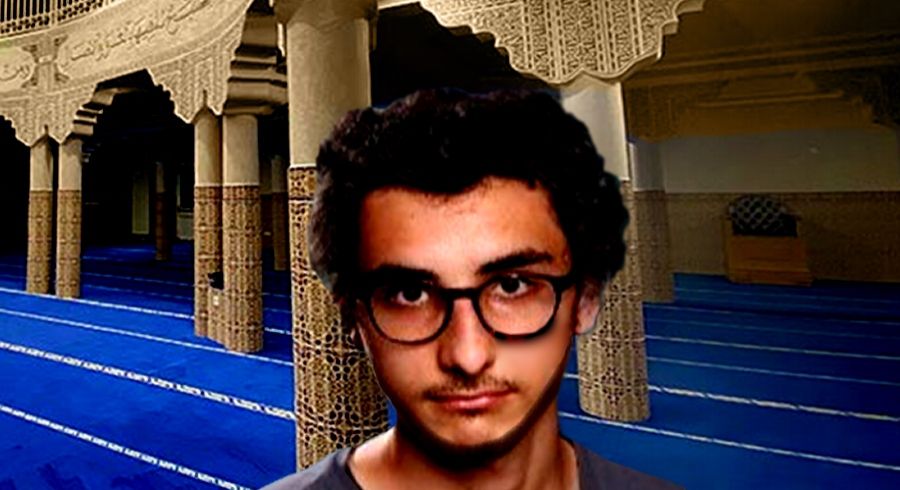 Jihadism has once again struck France in an international context of extreme tension. Jihadism has once again struck France in an international context of extreme tension.
Three years after the assassination of Samuel Paty in Conflans-Sainte-Honorine (Yvelines), the school, the symbol par excellence of the Republic, was targeted again, Friday October 13 in the morning, by an Islamist of around twenty 'years.
A literature teacher was killed and three others were seriously injured during a late morning knife attack at the Gambetta-Carnot high school in Arras by an Islamist terrorist. Three other people were injured by the attacker.
The latter was taken into custody like four members of his family and three other people. The assailant would have refused, for the moment, to speak in police custody.
The perpetrator of the attack also shouted “Allah Akbar”, a police source said. File S, the suspect was under surveillance by the DGSI and was checked on Thursday. If the attacker was followed by the intelligence services and on S file since October 2, his big brother was convicted of criminal terrorist association.
He was sentenced to 5 years in prison for terrorist conspiracy, plus 18 months for advocating terrorism.
An emergency system was quickly put in place around the Gambetta-Carnot school complex. The Raid was put on high alert.
Political reactions followed one another all day long.
Emmanuel Macron denounced a “cowardly and savage” assassination. The head of state also chaired a security meeting with several ministers.
Gabriel Attal declared from his ministry that, on Monday, "everywhere in France, we will have a moment of union and contemplation", in tribute to the teacher killed during a knife attack in a high school in Arras. The Minister of National Education also announced "to deploy nearly 1,000 prevention and security personnel in schools and educational establishments". "These are mobile security teams" in the rectorates.
First testimonies
Xavier Bertrand, president of the Hauts-de-France region, recounted how the tragedy unfolded: “According to my information, two teachers who were outside the establishment were attacked by a man. one was fatally hit, the other injured.
Then the assailant entered the high school and attacked a third victim. The police intervened very quickly, perhaps due to the very close police station or the patrols carried out. He was incapacitated with a Taser, then law enforcement worked to find the other members of his family. His brother was arrested in front of another school. "
A third grade student testified to the newspaper, explaining that the teacher “tried to calm him down and protect us.” According to the teenager, the suspect had “two knives”.
“More than 11 years after the killings perpetrated by Mohammed Merah, opening an endless list of tragedies from Charlie Hebdo to the Bataclan to Arras, it is in the name of the same Islamist ideology that wild obscurantists are shedding blood. ", we can read in a forum.
The disturbing journey of terrorist Mohammed Mogouchkov and his family
A collective expulsion aborted at the last minute, a father sent back to Russia, a mother rejected from asylum, a son imprisoned as part of a planned attack, a second who committed an Islamist attack on Friday: chronicle of fifteen years in France for the Mogushkovs. The family of Mohammed Mogouchkov, who stabbed a teacher in a middle school in Arras on Friday, arrived in France in 2008, according to a police source.
The attacker's route begins to take shape. But the young man, who was arrested by the police, was not the only one in his family to be known to the intelligence services.
The suspect, a young man of 20, presented as Chechen and born in Russia, shouted "Allah Akbar" before committing the murder of the teacher.
Originally from Ingushetia, he had been a student in the establishment where the attack took place. Since last summer, he had been under the surveillance of the DGSI and had been registered in the File for processing reports for the prevention of radicalization of a terrorist nature (FSPRT). He was later classified as a radicalized individual on October 2.
Monitored by intelligence services
Arriving in France in 2008 at the age of 6, he never obtained French nationality. In March 2021, his request for asylum was rejected by Ofpra, followed by a rejection of his appeal in August 2022. However, due to his presence in France before the age of 13, he benefited from protection against removal from French territory.
Intelligence services had been monitoring him for around ten days, using wiretapping and physical surveillance. On Thursday, he was checked without any offense being charged against him, before being released. Initial investigations suggest that this is a radicalized individual who suddenly decided to take action. His younger brother was also arrested near another high school in Arras.
The big brother already condemned
The big brother is also known to the intelligence services and was sentenced this year to five years in prison for “conspiracy of terrorist criminals” and to 18 months for “apology of terrorism”. He is currently detained at the Santé prison in Paris.
In 2019, the DGSI spotted a man suspected of preparing an attack. The investigation revealed that this project involved a trio aiming to attack the surroundings of the Élysée Palace and the police as well as civilians on the Avenue des Champs-Élysées. One of the suspects had links via Telegram with the big brother of the Arras attacker, described as a “particularly violent young radicalized person on social networks”.
This led to the arrest of the trio as they prepared to obtain weapons. In addition, the investigation revealed that the big brother had been involved in propaganda activities and had intentions of leaving for Syria for jihad.
And that's not all. During the investigation, the police discovered the existence of an incident at the Gambetta high school in Arras, at the beginning of December 2016. During a course devoted to freedom of expression and specifically to the attacks of Charlie Hebdo, he declared “that the attack took place because they had insulted Muslims.
They insulted Islam by representing the prophet and Shiites are not Muslims." On social networks, he offered an interlocutor "courses in throat-cutting in theory and practice."
An expulsion notice in 2014 In 2016, he made alarming comments at the Gambetta high school in Arras.
In 2013, the family submitted a first request for asylum in France, which was rejected. In 2014, an eviction attempt was initiated, but later canceled due to the mobilization of associations.
Organizations for the defense of foreigners are stepping up actions to prevent it. In a press release dated February 19, 2014, the Rennes branch of the French Communist Party (PCF) welcomed the “mobilization of associations which was able to push back the prefecture […] and free the Mogouchkov family” from the detention center where they had was placed for this operation “on the sly”.
This Friday, an investigation was opened by the National Anti-Terrorism Prosecutor's Office (Pnat) for charges of assassination in relation to a terrorist enterprise, attempted assassination in relation to a terrorist enterprise and terrorist criminal association with a view to prepare crimes against people. The investigations are carried out by the anti-terrorist sub-directorate of the national directorate of the judicial police (SDAT), the national directorate of the judicial police (DNPJ) and the General Directorate of Internal Security (DGSI).
Emotion and anger
“This company constantly produces amnesia…
We forget everything very quickly: between two attacks, between two murdered teachers, we act as if everything was fine!
What are we going to do now?
Shall we go drop off some teddy bears and candles?
Is this what will prevent the next attack?
Many still do not understand who we are dealing with, in particular because this society is incapable of decentering itself but also because of intellectual laziness and flight from reality.
Yes, this one is scary and we will have to confront it.", asserts history professor Iannis Roder, teacher in Seine-Saint-Denis and director of the Education Observatory of the Jean Jaurès Foundation in The Point .
This attack reminds us once again that our democracy, despite successive laws and the increasing efficiency of the police services, has shown itself incapable to date of eradicating evil. |
|
|
|
| Alyson Braxton for DayNewsWorld |
 |
VISIT OF CHARLES III TO FRANCE
STATE DINNER AT THE CHATEAU DE VERSAILLES
FOR THE ROYAL COUPLE |
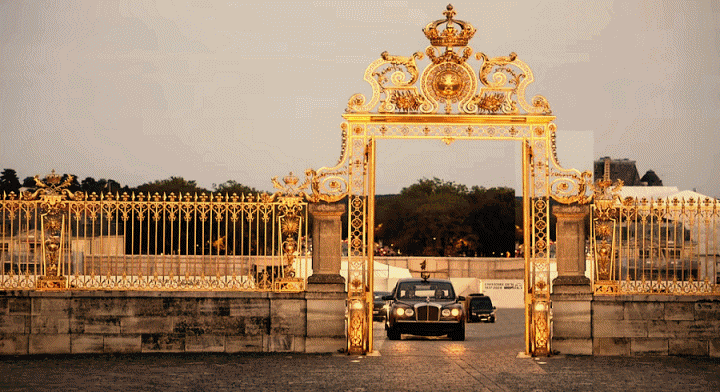 Royal banquet, blue lobster and Swedish violin. Here is the program for Charles III's dinner at the Palace of Versailles this Wednesday evening. The British monarch is visiting France for three days with Queen Camilla, six months after having had to postpone his visit in the midst of the movement against pension reform. Royal banquet, blue lobster and Swedish violin. Here is the program for Charles III's dinner at the Palace of Versailles this Wednesday evening. The British monarch is visiting France for three days with Queen Camilla, six months after having had to postpone his visit in the midst of the movement against pension reform.
At the Palace of Versailles, Emmanuel Macron will pull out all the stops. The dinner will be given this Wednesday in the Hall of Mirrors, the most emblematic place of the castle, originally intended to celebrate the omnipotence of Louis XIV, the Sun King, and to dazzle its visitors.
The choice of Versailles responds above all to a wish of Charles III, “sensitive to the idea of following in the footsteps of his mother”, and to a desire to “make France shine” through one of its most prestigious sites. , says the presidency. Elizabeth II was the most received foreign head of state at Versailles, in 1948 (then Crown Princess), in 1957, when a lunch was served in her honor in the same Hall of Mirrors, and in 1972. » At Versailles, it is centuries-old France that receives,” argues historian Fabien Oppermann.
Hugh Grant, Mick Jagger and Ken Follett
Among the 150 to 180 distinguished guests, we anticipate the notable presence of members of the government, powerful captains of industry and several public figures. Like Charlotte Gainsbourg, other Franco-British actresses are invited by the Macron couple. Kristin Scott Thomas, the illustrious actress, will also be there at Versailles, accompanied by Emma Mackey, a 27-year-old young actress propelled to the top thanks to the hit Netflix series, Sex Education.
The elite of the sports world will also be represented in force. Indeed, tennis champion Amélie Mauresmo, crowned at Wimbledon in 2006, as well as Arsène Wenger, the legendary Arsenal manager for 22 years, will honor with their presence at this sumptuous state dinner.
They will be accompanied by former football stars Patrick Vieira and Didier Drogba, and Tony Estanguet, president of the organizing committee for the Paris 2024 Olympic Games. Marie-Amélie Le Fur, president of the French Paralympic and Sports Committee, as well as Florian Grill , president of the French Rugby Federation, are also among the prestigious guests.
The big bosses are in the “party”
As for politicians, Emmanuel Macron invited the President of the Senate Gérard Larcher and the President of the National Assembly Yaël Braun-Pivet to join him in celebrating Charles III. MPs and members of the government will be joined by former political leaders, such as Laurent Fabius, Jack Lang or Pierre Moscovici.
Large French companies will be strongly represented with Bernard Arnault (LVMH), Xavier Niel (Illiad), Leena Nair (Chanel), Catherine Macgregor (Engie), Jean-Dominique Sénard (Renault). The guest list also includes heads of Franco-British institutions as well as around fifteen politicians, including five members of the government.
Lobster, poultry and Isfahan
The menu was leaked to the press in recent days. Three great chefs will be in charge for the starter, main course and dessert. Three-star chef Anne-Sophie Pic is in charge of the entrance. She will concoct a “Carier crab and blue lobster, veil of fresh almonds”, she reveals to Le Point. This starter will be served with a dash of mint gel, confirms the Élysée.
The chef, also three stars, Yannick Alléno will offer a dish of poached Bresse poultry flavored with corn accompanied by a porcini gratin.
Master cheesemaker Bernard Antony will then offer a 30-month Comté and a Stichelton, a 100% English blue cheese.
Finally, the famous pastry chef Pierre Hermé will make one of his signature desserts: Ispahan, a macaroon biscuit flavored with rose, raspberries and lychees. |
|
|
|
| Kate White for DayNewsWorld |
 |
A NEW TOOL THE PREFERENDUM FOR EMMANUEL MACRON ? | 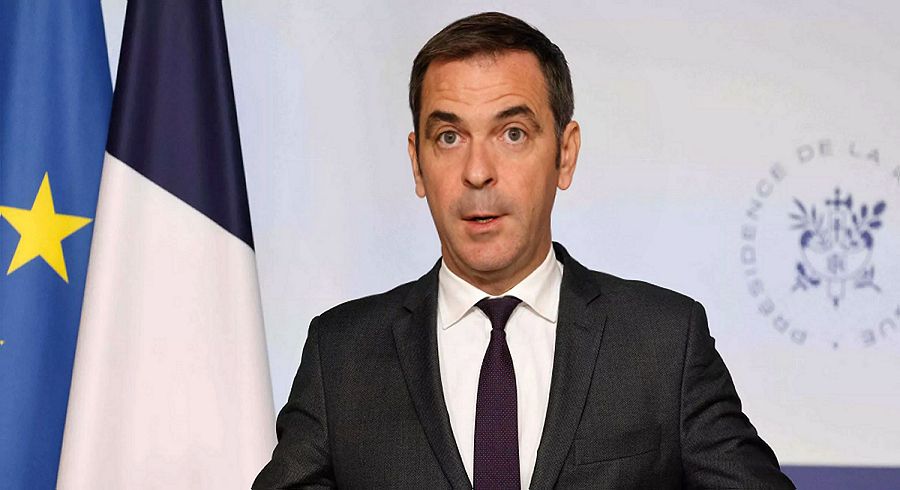
Emmanuel Macron could consider the adoption of a possible “preferendum”, revealed on Tuesday August 29, 2023, government spokesperson Olivier Véran.
This approach would make it possible to “simultaneously submit several issues during a single vote,” he later detailed. However, several constitutional law experts question the legal validity of such consultation. Clarifications to follow.
A “significant political approach”, an initiative previously announced by the President of the Republic.
A scheduled summit between Emmanuel Macron and the main leaders of political parties, scheduled for Wednesday August 30, 2023.
And, to top it all off, a possible establishment of a “preferendum” intended to solicit the opinion of French citizens. This terminology, mentioned on Tuesday August 29 by the government spokesperson, Olivier Véran, would, according to him, consist of "evaluating several questions simultaneously during the same vote".
The government spokesperson, who is also in charge of "democratic reform", maintained a certain ambiguity as to the contours of this concept of "preferential voting". This would make it possible in particular to “ask various questions to French citizens”, a sort of questionnaire with multiple choices, covering several themes.
According to Olivier Véran, this approach would have the advantage of circumventing the main weakness of a classic referendum: that of being reduced to a binary choice in favor or against the actions of the President of the Republic. “By asking multiple questions, individuals may express themselves more freely on one topic, while still providing substantive answers regarding other questions,” he said.
A concept not provided for by the Constitution
However, a problem arises: the concept of preferendum is not explicitly provided for in the French legislative framework. "
Technically, a referendum can include several questions, provided that they are understandable and distinct from each other,” explains Lauréline Fontaine, professor of public and constitutional law. Otherwise, the process would not comply with article 11 of the Constitution, which governs the use of referendums in France.
In this case, the procedure would become more of a consultation, "devoid of any binding power towards the executive power", underlines the specialist in constitutional law. This would be somewhat similar to the citizen consultations, particularly those related to climate, whose proposals have only been partially integrated into the legal texts.
The holding of several referendums in a single day
Olivier Véran wanted to clarify his vision on Wednesday August 30, after the meeting of the Council of Ministers:
“It is possible to hold several referendums at different times.
You could opt to ask several questions to French citizens during the same day. What the Constitution provides is that several distinct questions cannot be merged in the same ballot.
However, the Constitution allows citizens to be questioned on various issues on the same day, through independent ballots. This is what we could call a preferential ballot,” he clarified.
He also mentioned the prospect of a "pre-referendum", described as "national consultation, not accompanied by legal force: that is to say that we would poll French citizens on questions which could not be resolved. subject to a referendum under the Constitution. |
|
| Jenny Chase for DayNewsWorld |
 |
EMMANUEL MACRON MEETING
PARTY LEADERS | 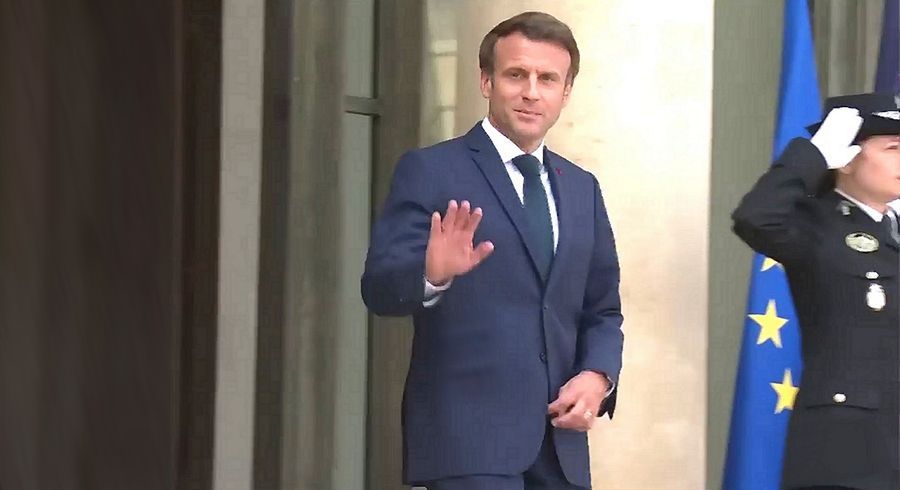
The representatives of Nupes arrived in groups to attend the meeting of political party leaders in Saint-Denis, at the invitation of Emmanuel Macron. The President of the Republic hopes to find "ways" to "move forward" the country, beyond political divisions, in the absence of an absolute majority in the National Assembly.
The famous “major political initiative” now has a name: the Saint-Denis Meetings. Between Emmanuel Macron and the political parties, the incompatibility is total. But yet the president chooses to lock himself away for several hours this Wednesday with party leaders to listen, exchange, and even expect from them ideas and support to nourish the rest of the five-year term.
Publicity stunt or real political progress? A government seminar will in any case meet on September 6 to follow up on Emmanuel Macron's "major political initiative", which brings together the heads of political parties in Saint-Denis (Seine-Saint-Denis) on Wednesday August 30. ), announced government spokesperson Olivier Véran.
Emmanuel Macron orchestrates this meeting within the educational establishment of the Legion of Honor, located in Saint-Denis to the north of the French capital. The declared objective remains the search for “paths” conducive to moving the country forward, transcending political divisions, given the absence of an uncontested majority. This approach could possibly open the door to the organization of referendums, as the presidential invitation suggests.
The summit, scheduled to begin at 3 p.m., will take place behind closed doors, bringing together the president and party leaders seated around a table. An “unprecedented” configuration, according to the head of state’s entourage. No staff members will be present,
Participants will take part in two discussion sessions around the international scene and institutional reforms. Subsequently, they will share a dinner focused on the multiple issues arising from the recent urban riots: education, authority, integration, disparities, according to declarations from the Élysée.
All invited parties will be represented. The leaders of all parties in Parliament have accepted the invitation, but each comes with distinct priorities.
The left insists on the need for a referendum on pension reform, while the right and the far right wish to submit to the French a question relating to immigration. For its part, the presidential majority intends to address the reform of institutions.
A form of confession away from the cameras. Emmanuel Macron's convictions towards his interlocutors remain generally unchanged, but by bypassing the National Assembly, he is going against all odds with the resources at his disposal.
“But what is this initiative launched in the middle of summer by the Head of State a sign of?
Of an executive power in search of oxygen, which is groping, desperately seeking a solution to its lack of majority, while striving to resuscitate democratic dialogue. », Analyzes a journalist from Le Figaro. |
|
| Carl Delsey for DayNewsWorld |
 |
EMMANUEL MACRON TIGHTENS THE SCREWS
OF HIS NEW GOVERNMENT | 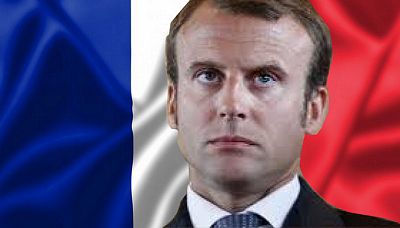 Following a ministerial reshuffle which saw the integration of eight new members, including Aurélien Rousseau in Health and Gabriel Attal in National Education, Emmanuel Macron, President of the Republic, solemnly addressed his ministers during the Council of Ministers, this Friday. Following a ministerial reshuffle which saw the integration of eight new members, including Aurélien Rousseau in Health and Gabriel Attal in National Education, Emmanuel Macron, President of the Republic, solemnly addressed his ministers during the Council of Ministers, this Friday.
The change at the head of these two key ministries, on priority files for Emmanuel Macron's second five-year term, seem to indicate that the Prime Minister, Élisabeth Borne, has partly succeeded in her bet. Ministers and advisers had been describing since Monday a hushed battle between the head of government, who hoped to renew at least these two posts to establish her authority, and the President of the Republic who only wanted a marginal reshuffle.
In accordance with his commitments, the Head of State had planned to speak after the "hundred days" of action and appeasement, a crucial period set for his Prime Minister, Elisabeth Borne, to get out of the pension crisis.
“You went through budgets, pension reform, important energy and economic texts and then implemented the 100-day roadmap. (…) this is why I have chosen continuity and efficiency for the times to come and which are opening up before us”, declared the president in introductory remarks before the reshuffled government, meeting in the Council of ministers.D He firmly announced his choice for continuity and efficiency in the times to come, praising the work accomplished and reiterating his confidence in Prime Minister Elisabeth Borne.
Emmanuel Macron has clearly defined the main political orientations for the rest of his five-year term with two themes that he wishes to highlight: independence and justice. "The course is clear and simple: it is the independence of the country, declared the president. In order to consolidate a fairer model". He underlined that independence must be reflected in all sectors, whether economic, industrial, energy, military or geopolitical, as it constitutes the foundation of a more equitable model for society.
The President insisted on the need to reduce inequalities from the start by investing massively in Education and Health. School and health are the pillars on which he intends to rely to build a more equitable future for all citizens. He thus proudly recalled his reforms for the vocational high school and the teacher pact, while evoking adjustments for the baccalaureate and Parcoursup.
Rigorous management of public finances is another key priority for the President. From the start of the school year, he intends to prepare the country for a demanding and orderly approach to budgetary matters. A solid strategy will make it possible to repay the debt, continue to lower taxes and manage deficits sensibly.
Concerned about the environmental future, Emmanuel Macron announced the implementation of "ecological planning" at all levels, thus consolidating the efforts already undertaken with the energy sobriety plan and the water plan.
In addition, the President pledged to respond comprehensively to recent urban riots, seeking to address issues of national fragmentation and division. The president considered that there is a "need for authority, respect and legitimate hope (...) We must learn the lessons of what has happened and provide in-depth answers", in specifying that this "will structure the work of the return to school" of the government
“I congratulate the government for having been able to pass this emergency response law, which was expected and which makes it possible to go faster on the procedures and to better support our elected officials”, declared Emmanuel Macron. Parliament definitively adopted the bill on Thursday to facilitate reconstruction work after the recent urban violence, a text promised on July 4 by Emmanuel Macron to the mayors affected. "We will have to continue to be alongside the mayors", also affirmed the Head of State. Action aimed at supporting the most vulnerable families and children will be undertaken to restore harmony and cohesion within the community. Nation.
The immigration law will be back on the table as soon as the school year starts: an "important reform with a solid text which responds pragmatically to many subjects", declared Emmanuel Macron. because the government must respond pragmatically to many issues.
For the sake of setting an example, the President reminded the ministers that being in government implies acting with dignity, collegiality and efficiency. Method lesson to ministers
“Being a minister is not about speaking in the post,” he told the ministers of his government. Emmanuel Macron wanted to talk about method and asked the ministers "to be exemplary" and to always act with "the greatest dignity". "You are watched in every detail of your action, your expressions, your life, and what we owe the country is to act, to explain, to respond and to do so always with the greatest dignity. ", he added.
"In times when language violence, sometimes inappropriate behavior, takes up too much space in public life, the government of France is expected to be exemplary and to make French men and women proud, so let's do it" , did he declare. The President of the Republic also demanded from his ministers "collegiality", because "there is no individual success", and "efficiency".
For him, "a good part of the democratic crisis is linked to the fact that decisions do not arrive quickly enough in the lives of our compatriots". He called on his ministers to "redouble their energy so that efficiency is there, that life changes for real" for the French. He therefore asked them to "direct their administrations", because "being a minister is not about talking in the post, it is about implementing decisions which correspond to a strategy". He encouraged them to redouble their efforts to accelerate decision-making and bring about the change expected by citizens.
Emmanuel Macron thus recalled that the democratic crisis can be resolved by acting quickly and by implementing coherent and strategic measures, well beyond speeches.
|
|
|
|
| Abby Shelcore for DayNewsWorld |
 |
GIGANTIC RIOTS IN FRENCH CITIES AND SUBURBS
|
|
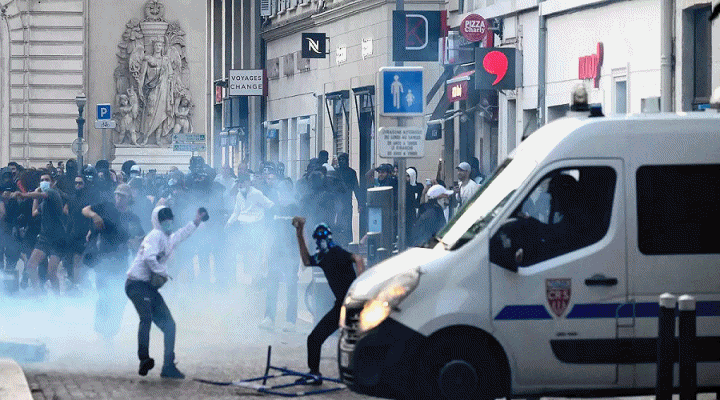
According to E. Borne, “all hypotheses” are considered for a return to republican order. Macron is ready to adapt the police system "without taboo". Gendarmerie armored vehicles point their noses... And yet the tension is going crescendo.
An appalling record
Burned bus, stoned tram, burnt cars, town hall or school targeted... new urban violence punctuated the night from Friday to Saturday in Paris, Lyon, Grenoble, Saint-Étienne or Annecy, but also smaller towns, after the death de Nahel, 17, killed by police shooting in Nanterre on Tuesday. In Saône-et-Loire, Mâcon, Le Creusot, Montceau-les-Mines and Chalon-sur-Saône saw "clashes between law enforcement and troublemakers, who set fire to garbage cans and vehicles,” the prefecture said in a statement.
According to the latest report from the ministry, established at 11 a.m. this Saturday, July 1, 2023, there were 1,311 arrests at the national level, including 406 in the Paris region. Still according to the ministry, in Vaulx-en-Velin (Rhône) four police officers were injured by police shotgun fire, two had bruises and two suffered impacts on the nose and thigh. A total of 79 police and gendarmes were injured. This report also reports 2,560 fires on public roads and 1,350 vehicle fires, as well as 266 fires or damage to buildings, including 26 town halls, 24 schools and five justice establishments. Earlier, the ministry reported 31 attacks on police stations, 16 attacks on municipal police stations and 11 gendarmerie barracks.
Added to this: according to a report mentioned by the Minister of the Interior during an interministerial council, "there were 3,880 fires on the public highway" Thursday evening. The day before, there were 2,391 , says Gérald Darmanin. “Many buildings were hit, 492, last night, including 77 targeted attacks on police stations and gendarmerie brigades,” insists the minister. In addition, nearly 2,000 vehicles were burned last night, compared to 800 on Wednesday evening.
Since the start of the urban violence, "at least ten shopping centers have been attacked and looted, as well as more than 200 large retailers", but also "250 bank branches", listed the Minister of Economy.
Foreign countries worried about their nationals
The German government is watching “with some concern what is happening in France,” German government spokesman Steffen Hebestreit said of the riots on Friday.
Norway, for its part, on Friday called on its nationals currently in France to avoid crowd gatherings because of the violence that is shaking the country "There have been riots in several places in France in recent days, including in Paris" , writes the Norwegian Ministry of Foreign Affairs in an SMS sent to Norwegian travelers who have registered on an app from the authorities. The United States has followed suit... |
|
|
|
| Britney Delsey for DayNewsWorld |
 |
DEATH OF NAHEL INSURRECTIONS IN
THE FRENCH SUBURBS WHITE MARKET
BECOME CONQUEST MARKET ? | 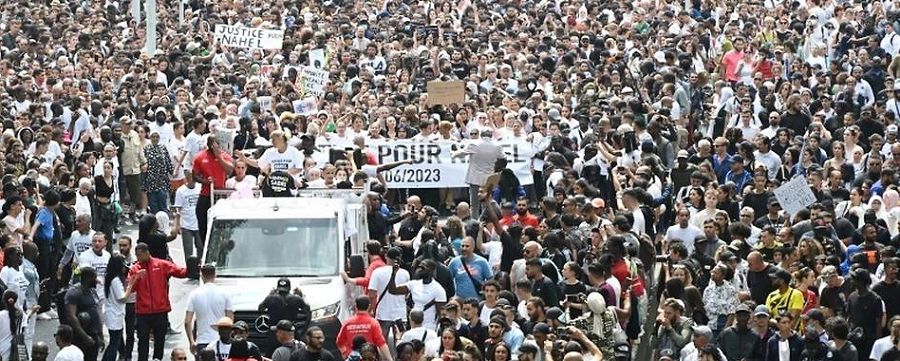
A while 150 arrests took placeand 90 buildings degradedthroughout France this night of riots and ransacking, Benoît Jimenez proposed a radical solution. The mayor of Garges-lès-Gonesse indeed pleaded Thursday for the establishment of a “curfew, at least in Île-de-France”, in order to limit urban violence. A curfew for “today and tomorrow”. Clamart has already ordered it for tonight.
A solution to "appease" the spirits in these turbulent times and obtain a "return to calm" quickly. Since Tuesday, June 27, an insurrection resounds every night in the cities of the surrounding suburbs. The mayor of Garges-lès-Gonesse also called for "everyone's responsibility" in order to stop the riots. For this Thursday evening, 40,000 police and gendarmes will be mobilized in France, including 5,000 in Paris according to Interior Minister Gérald Darmanin.
Rioters burn schools, police stations or town halls, loot shops and distributors. Calls for police murders in 2023. A youth casts shame on an entire function with calls for murders. A white march with Algerian flags of 6000 demonstrators which turns into a march of conquest for some and scenes of devastation and riots from 3 p.m.
Understanding people are arsonists. LFI adds fuel to the fire and they become "moral accomplices" according to the Minister of Justice Dupont-Moretti. Violence finally described as "unjustifiable" by President Macron.
“There is a political divide. A right Lola / Annecy opposes a left Naël. Lola was the symbol of uncontrolled immigration, because the murderess should not have been in France. For the "Rebellious", Naël is the emblem of the police who kill. Added to this political divide is an ethno- cultural divide. Malika Sorel spoke yesterday in Le Figaro about identity decomposition: behind the violence, she observes the “rejection of a society whose [the neighborhood rioters] do not wish to respect the laws or the habits and customs. We are therefore far from the only case of Naël.
Can we understand emotion?
Emotion, yes. Violence no. Understanding people are arsonists. In France it is justice that sanctions. “, hammers the journalist Elisabeth Lévy in Causeur. |
|
|
|
| Garett Skyport for DayNewsWorld |
 |
2024 OLYMPIC GAMES MORE NEGATIVE THAN POSITIVE IMPACTS FOR PARIS ?
|
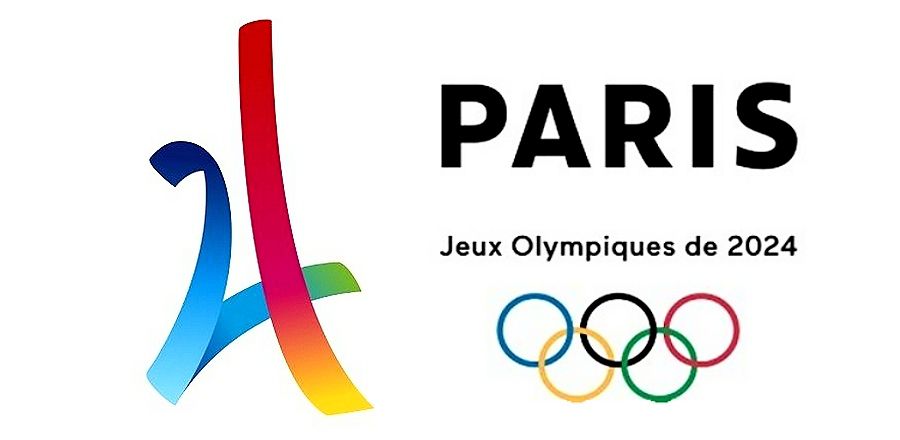
The 2024 Olympic Games are fast approaching and Paris is preparing to host this internationally renowned event. After several unsuccessful attempts, the French capital is finally ready to take up the challenge of the Summer Olympics and Paralympics, wanting to offer its inhabitants a lasting economic and social legacy. Paris succeeded in convincing by highlighting the expected positive effects.
The economic impact of the Olympics is often a subject of debate. Studies to date have shown that the costs associated with organizing often exceed the direct economic benefits.
Infrastructure already ready, or almost
In the area of infrastructure, Paris is already prepared, or at least almost, even before the Games begin. Indeed, nearly 95% of the equipment needed for the 2024 Games has already been erected.
More specifically, it remains mainly to finalize the construction of an aquatic center as well as the Olympic village, which will later be transformed into housing, located in the municipality of L'Île-Saint-Denis.
Given that France remains the world's leading tourist destination, the reception of spectators and visitors is also fully assured.
According to estimates by Bureau Veritas, France is able to simultaneously accommodate more than 1 million tourists in its hotels, thus having 470,000 rooms. It should be noted that "a third of the 155,000 rooms in Île-de-France will be reserved for the Olympics", underlines the study, highlighting the fact that 60% of French hotel establishments have a classification of 3 to 5 stars.
The quality of transport networks is also highlighted. The launch of the Grand Paris Express project, described as "one of the largest projects in the world" by the firm of experts, with its 68 new stations and 200 kilometers of new metro lines, will allow, in the next fifteen years, to halve the travel time between Roissy and Orly airports. These infrastructures contribute to reinforce the compactness of the sites, given that most of the competitions will take place within a radius of 10 kilometers.
The end of mismanagement ?
Since Paris is almost ready, she can hope to minimize the financial damage, which is a crucial point. Indeed, most of the previous editions have resulted in considerable losses. This was the case for Athens in 2000, Beijing in 2008, London in 2012, Sochi in 2014 and Rio de Janeiro in 2016. In October 2016, Rome decided to withdraw, mainly due to the decision of Virginia Raggi, the new mayor of the city elected four months earlier, not to "compromise the future of his city".
On the surface, funding is secure and expenses will be under control. Indeed, the overall budget will amount to approximately 6.6 billion euros. An organizational budget of 3.6 billion euros, called the "Cojo budget" (Organizing Committee for the Olympic Games),
This budget will not be financed by public funds, but by income from the IOC, ticketing and the marketing program (1 billion euros). It aims to cover the accommodation and catering costs of the athletes, as well as the temporary installations which will be dismantled after the Games.
As for the budget excluding Cojo, intended for the construction of the infrastructures that will remain after the Games, it is estimated at 3 billion euros. Half of this amount comes from private funds, while the other half comes from public investment, of which 1 billion euros will be paid by the State.
This budget will finance the Olympic village, the cost of which is estimated at 1.2 billion euros and which will be transformed into an eco-district after the event. It will also cover expenses related to the nautical center (108 million euros), the construction of footbridges in Seine-Saint-Denis, the development of an interchange on the A86 in Saint-Denis, as well as burying high voltage lines
When the costs exceed the benefits
According to a study published in June 2016 by the Center for Sports Law and Economics (CDES) in Limoges, the impact of the Games in Paris could be around 5.3 to 10.7 billion euros on the capital and the Ile-de-France region. Compared to the French GDP, this therefore remains measured.
Although under certain favorable conditions it seems possible to obtain a boost in the local economy, studies on the economic impact of GESI above all illustrate the way in which the costs almost always exceed the benefits, leading economists to evoke the "curse of winner" of the Olympic bid. In fact, economic impact studies do not distinguish between winners and losers: they simply measure whether there is a monetary gain.
Many Olympiads present the case of a public expenditure whose debt for the taxpayer has stretched over several decades, like the Games in Montreal in 1976 or Rome in 1960.
If the protesters denounce a waste of public funds for projects that would not have sufficient social utility, the choice to apply for a major international sporting event (GESI) would be justified for others by the promise of an economic heritage. and social sustainability that will benefit everyone.
A mixed lasting impact on the lives of Parisians
The impact of the Olympic Games can also have repercussions on the daily life of Parisians. Studies have assessed factors such as sense of belonging, happiness and satisfaction. The 2012 London Olympics were instructive in this regard, highlighting both elements of pride and well-being, as well as potential harms, depending on the contexts and populations studied.
The issue of social cohesion and local identity is also addressed.
The Olympics are meant to help break down social barriers and encourage the development of interpersonal relationships. However, these moments of identity communion can be ephemeral and sometimes lead to divisions and feelings of exclusion, as was observed during Euro 2016 in certain Parisian districts with little involvement in the event.
An increase in physical activity?
Another aspect to consider is the impact on physical activity. The 2012 London Olympics were accompanied by an effort to promote physical activity and sport, with mixed results. Some articles and surveys point to slightly positive effects (the rate of inactivity – less than 30 minutes per week – going from 29% to 27% between 2012 and 2021), while reporting an increase in inequalities between population categories . Ten years later, childhood obesity remains a major public health problem in England, including in the neighborhoods bordering the Olympic sites.
What could we expect from London 2012, a two-week event, in terms of developing sports practice?
If public policies are not able to meet the challenges related to food, lifestyle, lack of space and equipment, as well as the development of means of transport such as walking or cycling , so what can we really expect from such events? In July 2022, Sport England highlighted that hosting big events is not enough to drive long-term behavior change nationwide.
It's up to Paris 2024 to learn from these past experiences so as not to repeat the same mistakes.
|
|
|
|
| Joanne Courbet for DayNewsWorld |
 |
STRIKE OF JUNE 6 MOBILIZATION AT THE LOWEST
|
|
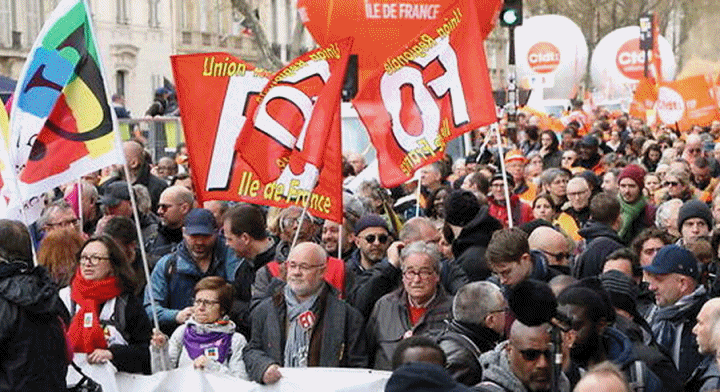
No last stand. While the unions called this Tuesday, June 6 for a 14th day of mobilization against the pension reform, participation in the processions marked time in France.
The examination, Thursday, June 8, 2023, of the Liot bill aimed at canceling the decline in the legal age of departure to 64 years was not enough to mobilize: in most cities, the processions had never been so little provided since the beginning of the social movement in January.
In Paris, there are – according to the CGT – 300,000 demonstrators who demanded the abandonment of the reform, the first implementing decrees of which have already been promulgated, 31,000 according to the police headquarters. A low also reached on February 11 and March 11, according to the central.
During the previous day of mobilization on May 1, the latter had counted 550,000 opponents in the streets of the capital, against 112,000 for the police headquarters – figures very far from the Parisian record of March 23 (800,000 for the CGT , 119,000 for the police).
Weakest ever recorded
This decline is also observed on a national scale, with “more than 900,000” demonstrators throughout France according to the CGT and only 281,000 according to the Ministry of the Interior. Figures very far from those given during the mobilization peak of March 7 (between 1.3 and 3.5 million according to Place Beauvau or the unions),
"The match is ending, whether we like it or not, with this unknown of what will happen Thursday at the Assembly," admitted Laurent Berger on Tuesday.
The number one of the CFDT called on the unions to "weigh in the balance of power to come" on other subjects such as wages or working conditions.
|
|
|
|
| Garett Skyport for DayNewsWorld |
 |
ADOPTION OF THE RECOVERY LAW
NUCLEAR BY SENATORS |
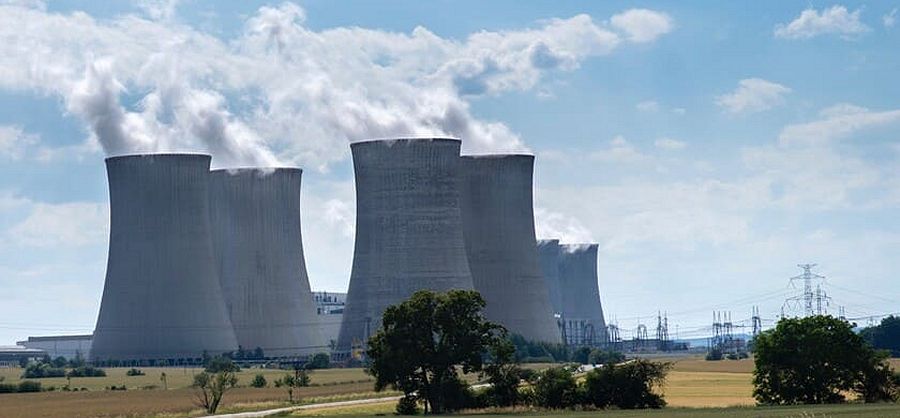
The senators adopted Tuesday, May 9, 2023 the bill providing for the acceleration of the construction of six new nuclear reactors and the study of eight others. The text must now be approved by the deputies.
“It is a new energy pact that we are building”, rejoiced the Minister for Energy Transition, Agnès Pannier-Runacher.
The text on the relaunch of nuclear power is indeed part of the government's strategy of reducing the energy consumption of the French, facilitating the development of renewable energies and nuclear power.
The text had been adopted at first reading in the Senate at the end of January and in the National Assembly at the end of March, before being sent to the joint joint committee (CMP) to build a compromise text between parliamentarians.
The CMP, bringing together seven deputies and seven senators on May 4, reached an agreement on the nuclear stimulus bill, which aims to facilitate the construction of six new EPR reactors promised by Emmanuel Macron by 2035.
The CMP underlined the maintenance of most of the provisions that it had introduced in the text along four axes.
In terms of energy planning, she cites the removal of "three obstacles to the revival of nuclear energy resulting from the 2015 'Energy Transition' law" - repeal of the objective of reducing nuclear energy to 50% and of the ceiling of authorization of 63.2 gigawatts (GW) and obligation for the government to revise the multiannual energy program (PPE) to withdraw the trajectory for the closure of the 14 existing reactors (article 1 A). The next "five-year energy law" will also have to set an objective for the construction of EPR2s and SMRs and specify the means to achieve it (article 1)
Nuclear safety and security
The committee also considers that it has strengthened nuclear safety and security through several provisions – integration of resilience to climate change in the safety demonstration of reactors, both at the licensing and review stage, and cyber-resilience, in their protection against malicious acts (article 9 bis), maintenance of a five-year report on nuclear safety within the framework of the review (article 9).
Instead of a merger deemed "badly assessed and badly anticipated" of the Nuclear Safety Authority (ASN) and the Institute for Nuclear Safety and Nuclear Radiation Protection (IRSN) as envisaged by the government, it consolidated the powers and resources of ASN (articles 11 to 11 ter and 15). Penalties for trespassing on nuclear power plant sites have also been increased and supplemented (Article 13).
Nuclear revival
The project aims to speed up town planning procedures and facilitate administrative procedures to launch the construction of six EPR 2 nuclear reactors, then to consider the construction of eight others. The first concrete is expected for 2027, hope the defenders of its revival.
On Tuesday, 315 senators voted in favor of the work that came out of it. The 12 senators from the ecologist group (Ecology, solidarity and territories - GEST), as well as one from the socialist group (Socialist, ecologist and republican - SER) positioned themselves against, while the 15 from the communist group (Communist, republican, citizen and ecologist — CRCE) abstained.
Environmentalists up in arms
Far from being an acceptable compromise for environmentalists, the bill as it emerges from the work of the CMP "moves even further away from democratic and environmental imperatives", they denounced in a press release.
On the merits, Mr. Salmon deplored the removal of the objectives of reduction and/or contraction of nuclear power in the French energy mix. So many locks that had to be removed, rather argue the defenders of the text.
The senator is also alarmed by the partial consideration of the effects of climate change on the existing and new nuclear fleet and the downward revision, by the government, of the data on the use by the nuclear fleet of water resources. .
For the left, the redevelopment of nuclear power runs counter to the EU's need for energy independence and its climate objectives.
As for the Communists, the latter abstained, although the president of the group Fabien Gay, reminded the podium that his group was "favorable to the development of new nuclear reactors".
But according to him, the text presented in the chamber "does not address any of the structural questions that are essential to the objectives assigned to it", noting the shortcomings in terms of financing, training, etc.
Conversely, among those who voted in favor of the bill, the senators of the group affiliated with the presidential majority (Rally of Democrats, Progressives and Independents - RDPI) note that it allows "one more step to concretize the President Emmanuel Macron's project to strengthen our sovereignty and make France the first major country in the world to get out of its dependence on fossil fuels".
For supporters of nuclear power, its very low CO2 rate - four times less than solar power, for example - makes it an essential energy for the low-carbon transition. Nuclear power avoids the release of 2 billion tons of CO2 each year worldwide, the equivalent of the production of 400 million cars.
The conclusions of the CMP will be examined Tuesday, May 16 by the deputies. The latter had voted by a large majority in favor of the text during the first reading. |
|
|
|
| Alyson Braxton for DayNewsWorld |
 |
MAJOR MOBILIZATION AND VIOLENCE IN THE MAY 1 PROTESTS | 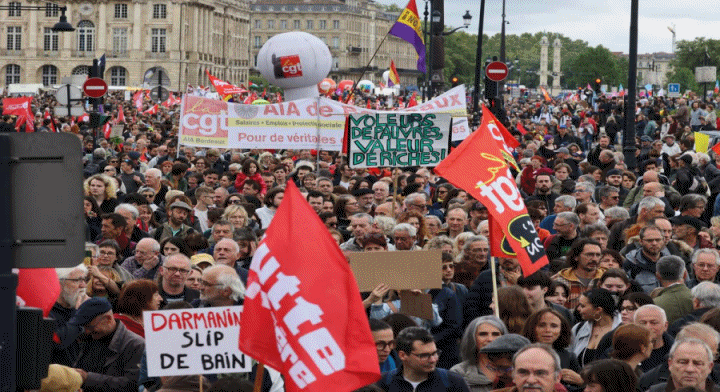
The traditional May Day rallies in France are particularly busy this year, with opposition to the pension reform still refusing to die down. Parades throughout France for May Day. Some 2.3 million people demonstrated across the country on Monday, May 1, according to the CGT. In Paris, the union counted around 550,000 demonstrators. They were 100,000 in Toulouse and 130,000 in Marseille according to the union, respectively 13,500 and 11,000, according to the police.
The police thus counted 16,300 demonstrators in Caen (40,000 according to the CGT), 11,000 in Marseille (130,000), 13,500 in Toulouse (100,000), 15,000 in Brest (33,000), 14,000 in Clermont- Ferrand (25,000), or 2,000 in Charleville-Mézières (4,500). A total of 782,000 people demonstrated across the country, including 112,000 in Paris, the interior ministry said. Last year, 116,500 people marched in France, including 24,000 in Paris, according to the Interior Ministry.
Clashes broke out between demonstrators and the police in several cities and 180 people were arrested, including 46 in Paris. the forces of order and stoned windows.
Hundreds of "black blocks" in Paris
On the other hand, the parades were marked by sometimes violent clashes in several cities in France, and mainly in Paris, Nantes and Lyon. “In many cities in France, May Day was a moment of responsible mobilization and commitment. The scenes of violence on the sidelines of the processions are all the more unacceptable. Support for our law enforcement,” Prime Minister Elisabeth Borne tweeted.
108 police officers and gendarmes injured and 291 arrests in France.
"If the vast majority of demonstrators were pacifists of course, in Paris, Lyon and Nantes in particular, the police face extremely violent thugs who came with one objective: to kill cops and attack the property of others”, for his part denounced on the same social network the Minister of the Interior. In Paris, "a police officer was seriously injured, burned following a Molotov cocktail jet", continued Gérald Darmanin, who then reported 108 police officers and gendarmes injured and 291 arrests in France.
In the capital, the violence intensified when the pre-cortège arrived at Place de la Nation, the end of the parade. Hundreds of "black blocks" notably used fireworks in direct fire at the police, who responded with a lot of tear gas and defensive grenades. The police headquarters reported in the evening 111 arrests and 25 injured among the police, including 24 taken to hospital.
In Nantes, the clashes, which lasted a good part of the afternoon, left five injured, including a gendarme and a demonstrator hit in the hand, according to the prefecture. The authorities have also reported 54 arrests in Lyon, 31 in Besançon or 23 in Bordeaux.
" It's a big May Day. It's not a last stand"
"We have a historic May Day, I can say that." Even before the departure of the Parisian procession, Laurent Berger welcomed the mobilization everywhere in France for this May 1, marked by the protest against the pension reform. "This great success of the mobilization shows the rejection of the reform and the aspiration of the workers to be considered differently by the government", added the boss of the CFDT.
"It's a big May 1st. It's not a last stand, it's the challenge of the world of work to this reform", rejoiced the leader of the CFDT Laurent Berger. "This May 1st is one of the strongest of the social movement", added the general secretary of the CGT, Sophie Binet.
The figures were in fact well beyond a classic May Day, even if it was not the "tidal wave" hoped for by the unions.
Sophie Binet, new secretary general of the CGT, also underlined that in addition to the rejection of the pension reform, the demonstrators were marching to obtain wage increases and responses to the environmental crisis. "No return to normal" without withdrawal of the reform. This is what the new boss of the CGT, Sophie Binet, has promised. She believes that this new day of demonstrations can serve to show the government that opponents of the reform "will not move on until [the text] is withdrawn".
The strength of this mobilization will influence the continuation of the opposition movement to the two-year extension of the retirement age, its form and its timetable. Laurent Berger indicated that the next day, Tuesday May 2, the inter-union will meet to take stock.
She will also have to determine the conditions for a possible new meeting with Prime Minister Elisabeth Borne, to whom a united trade union front has so far presented. Laurent Berger said he was ready to discuss whether the Prime Minister invites the unions, adding that the trade unions had an interest in continuing to work as an inter-union
It is indeed the first unit parade since 2009. The last unit parade with the eight main unions dates back to 2009, in the face of the financial crisis (the CGT had counted nearly 1.2 million demonstrators, the police 456,000). In 2002 (1.3 million people, according to the Ministry of the Interior), the unions had also united to "block" Jean-Marie Le Pen between the two rounds of the presidential election.
The RN gathers in Le Havre. Marine Le Pen's National Rally is expecting around 1,400 of its activists on Monday in Le Havre (Seine-Maritime), a way to relaunch its traditional May Day celebration formerly dedicated to Joan of Arc, now renamed "Fête de la nation" and oriented towards "social peace".
The week could be decisive on a subject that has dominated all debates for several months. The Constitutional Council must give its response on Wednesday to the second bill tabled by the Nupes to organize a referendum of shared initiative (RIP) on pensions. The first request had been rejected.
"There are two appointments coming up," recalls Laurent Berger. The decision of the Constitutional Council on May 3 and the bill filed on June 8 by the Liot group. He does not believe in a government retreat today. That would be "naive".
But "if the Constitutional Council grants the holding of a referendum of shared initiative, then the government will have to put its reform on hold".
In the meantime, the challenge for the intersyndicale will be to remain united as differences begin to emerge in the face of invitations from the executive to resume dialogue on other work-related subjects. |
|
|
|
| Britney Delsey for DayNewsWorld |
 |
FRANCE EXPULSION OF CLANDESTINE ALIENS
IN MAYOTTE |
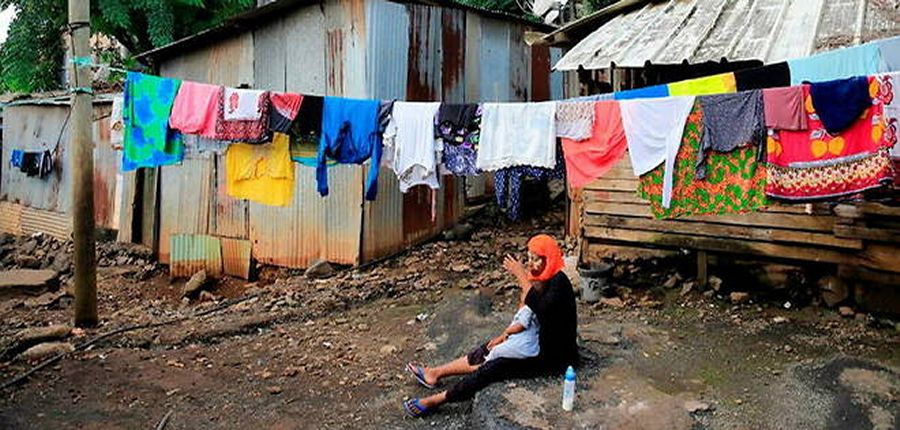
Barely started, the "Wuambushu" operation is already stuck. The Comoros declared this Monday, April 24, 2023 to have refused the docking of a boat carrying migrants from Mayotte, where the French authorities began this controversial intervention, supposed to expel a large number of illegal migrants to the neighboring archipelago.
"The port of Mutsamudu (on the Comorian island of Anjouan) is unable to operate on the embarkation and disembarkation of passengers from this day until April 26, 2023, the date on which we will inform you of the “possible resumption of operations”, announced the maritime services in a note addressed to a shipping company and of which AFP had a copy. "As long as the French side decides to do things unilaterally, we will take our responsibilities. No deportee will return to a port under Comorian sovereignty," said Comorian Interior Minister Fakridine Mahamoud.
Operation Wuambushu aims to expel illegal foreigners mainly from neighboring Comoros in Mayotte.
A plan hailed by local elected officials who repeatedly point to the increase in delinquency.
Interior Minister Gérald Darmanin confirmed on Friday a series of police interventions against delinquency and illegal immigration in Mayotte, called "Wambushu", in the 101st French department located in the Indian Ocean.
Gérald Darmanin, affirmed the holding of a "long-term" operation, called "Wambushu" (resumption, in Mahoran), validated by Emmanuel Macron in the Defense Council, according to a source familiar with the matter.
The Minister of the Interior denied a launch on Monday and for a period of two months, advanced by the press. "There is not a moment when we start it and a moment when we finish it", he added, even affirming that the operation had "already started".
2,500 staff mobilized
"There are 1,800 police and gendarmes right now in Mayotte who are carrying out police operations, which are putting an end to arms trafficking, which are putting an end to criminal gangs", of which 60 have been counted, he said.
In total, more than 2,500 personnel (law enforcement, regional health agency, justice, health reserve) are mobilized, according to a source familiar with the matter.
This operation must include mass expulsions of illegal aliens and destruction of slums. In Mayotte, slums extend over several kilometres. These hundreds of homes are inhabited by hundreds of illegal immigrants from neighboring Comoros. It is precisely these people who are targeted by the expulsion operation named Wuambushu.
More than 150,000 illegal immigrants
Mayotte, which became the 101st French department in 2011, attracts thousands of migrants every year, arriving by sea in "kwassa kwassa", makeshift boats, from the neighboring Comorian island of Anjouan, but also from West Africa. Great Lakes and increasingly Madagascar.
Nearly half of the estimated 350,000 inhabitants of Mayotte do not have French nationality, according to INSEE, but a third of foreigners were born on the island. In its February 2019 report, INSEE indicated that between "significant immigration from the Comoros" and the departure of "natives of Mayotte abroad", 48% of the department's population was foreign in 2017, a figure up 8% from 2012.
Insecurity and "non-standard" delinquency.
These illegal migrants, settled in particularly unhealthy neighborhoods, "bangas" prey to violence and trafficking, live for the most part quietly on the island, occupying small jobs.
The minors are educated. But they are also accused by the population and the elected officials of unbalancing the few infrastructures and resources of the island and of feeding a rate of delinquency Several operations called "decasing", sometimes carried out by inhabitants of the island themselves formed into militias, have already taken place since 2016.
The Operation is also hailed by local elected officials who denounce acts of daily delinquency. "This operation is already finding a solution inside the island to identify and locate these people and drive them back to the border," explains the mayor of Bandrélé (Mayotte). This year, personal attacks have increased by 50%.
In its report "Living environment and security in Mayotte" of November 2021, INSEE indeed describes "exceptional delinquency". Over the period 2018-2019, in each area – burglaries, thefts, physical or sexual violence… – Mahoran crime clearly exceeds the figures for mainland France.
"The inhabitants of Mayotte are personally three times more victims of thefts with or without violence", indicates INSEE, and the feeling of insecurity "far exceeds all the standards of the metropolis or other Drom (Departments and regions of Overseas)". 48% of Mahorais feel insecure at home (52% in their neighborhood), five to six times more than in France. All of these numbers are increasing year after year.
10,000 illegal aliens targeted
The archipelago of Mayotte is the department where the National Rally signed its highest score in the first round of the presidential election. Marine Le Pen won 59.10% of the vote there, far ahead of the other candidates, but also very far from her 2017 score. In a department plagued by insecurity and illegal immigration, the RN seduces.
The operation could target up to 10,000 illegal aliens. Some should be deported to a neighboring island.
Comoros "does not intend to welcome deportees"
The authorities of the Comoros, who still claim their sovereignty over Mayotte, which remained French after the independence of the Comoros in 1974, are up against this operation. The Comoros "do not intend to welcome deportees" said the government spokesman on Friday.
The Comoros have nevertheless committed in an agreement signed in 2019 to "cooperate" with Paris on immigration issues in exchange for development aid of 150 million euros. |
|
|
|
| Kelly Donaldson for DayNewsWorld |
 |
EMMANUEL MACRON'S VISIT TO CHINA ENDED A DIPLOMATIC FAILURE
|
|
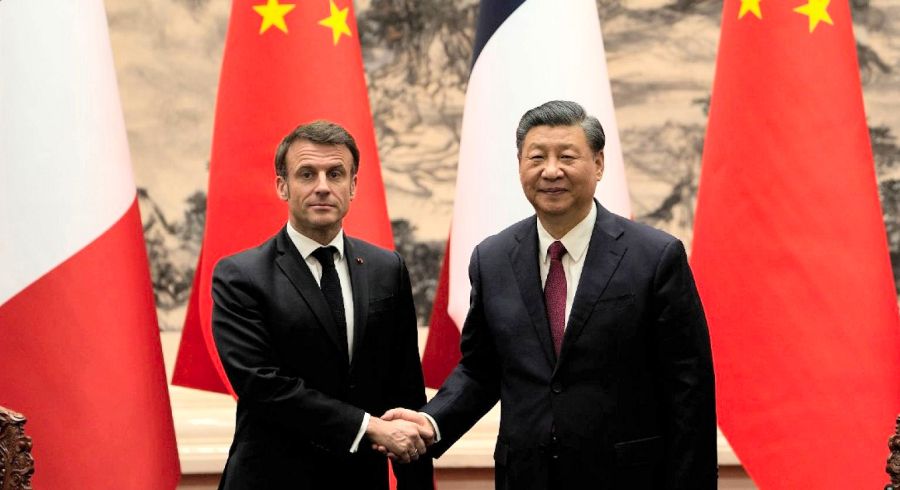
The three-day state visit of the French president to Beijing and Canton ends this Friday, April 7, 2023.
According to Marc Julienne, head of China activities at the Asia center of Ifri, nothing went as planned for the French head of state.
For Emmanuel Macron, this state visit is an opportunity to heal the wounds of a degraded Franco-Chinese relationship. The causes are multiple, starting with the Covid-19. China sees us as a middle power, with difficulties. Added to this the imbalance in the trade balance, the deterioration of Sino-American relations and recently the war in Ukraine, the time of the "friend Chirac" seems a long way off.
In addition, France claims to be a leading power in Europe, a permanent member of the UN Security Council and a driving force in the "Indo-Pacific". However, it remains deaf and dumb in the face of the paramount security issue in this region, namely stability in the Taiwan Strait.
The Elysée had let it be known that the question would not be broached, except at the initiative of China, a rather surprising attitude when the French president had been warned before his trip that it was going to coincide with an interview on Wednesday evening on the American soil between Taiwanese President Tsai Ing-wen and the Speaker of the American House of Representatives Kevin McCarthy, a "hawk" in the American political apparatus, in favor of more vigorous measures to "contain" the rise of China on the international scene.
This meeting did not fail to arouse the wrath of Beijing, the question of Taiwan therefore being on the agenda of Emmanuel Macron's visit.
Diplomatic failure on Ukraine
President Macron intended above all to try to drive a wedge between China and Russia over Ukraine: this is the avowed objective of the French president for his three-day state visit to the People's Republic of China. But Emmanuel Macron failed.
Indeed, Emmanuel Macron, who came with the President of the European Commission Ursula von der Leyen, is making this trip at a critical time from the point of view of China's strategic positioning.
On the one hand, President Xi Jinping has multiplied the signs of strategic rapprochement with Vladimir Putin: his state visit to Moscow on March 21-22 shortly after the announcement of the issuance of an arrest warrant against its host by the International Criminal Court, made an impression; his “peace plan” for Ukraine appeared as a backing for the Russian security agenda; and the development of trade with a Russia under multifaceted international sanctions constitutes an objective alliance with the Russian economy.
During the face-to-face meeting Thursday, April 6, 2023 with the master of Communist China in a hall of the People's Palace on the edge of Tiananmen Square, the latter replied to him by welcoming the links with France which have, according to him, known a “positive and steady development” in a world in “profound change”.
Quoted by the English-language Hong Kong daily, the South China Morning Post, Xi was a little more outspoken: "China is keen to invite the international community, together with France, to remain rational and measured and to avoid taking any action that could lead to further escalation in the crisis and spiral out of control. » The most vague formulas which do not commit to anything on what Xi Jinping wants and especially on what Xi Jinping will be able to do with Vladimir Putin to try to "bring him back to reason".
On the commercial level, a more positive balance sheet.
The European group Airbus has indeed obtained the ability to double its aircraft production capacity in China, thanks to a second assembly line at its Tianjin site, near Beijing. It is due to enter service in the second half of 2025. Airbus has already had one since 2008, which has produced more than 600 A320s. The Chinese airline market is the second largest in the world.
The energy group EDF, for its part, renewed with the Chinese nuclear giant CGN their global partnership agreement, in force since 2007. It covers the design, construction and operation of nuclear power plants. This agreement notably allowed EDF to operate nuclear power plants. This agreement notably enabled EDF to build with CGN the only EPR facility currently in service in the world, in Taishan, in southern China.
But this cannot make us forget that thanks to the massive transfers of technology from France, China now masters all the technology in this sector, to the point of exporting power plants to the detriment of the more expensive French power plants.
As for the Marseille shipowner CMA-CGM, number three in the world, it has signed an agreement with Cosco, the Chinese number one, and the port of Shanghai for the supply of bio-methanol. The champion of water and waste management Suez has obtained a contract via a consortium for a seawater desalination project, the amount of which has not been specified.
In 2019, Suez had already won a contract worth one billion euros to treat wastewater from a chemical industrial site in China for a period of 50 years.
Signing contracts for French companies is profitable. But here again, Emmanuel Macron has evaded a very serious subject of concern for France and Europe: the trade deficit with China. Ursula von der Leyen recalled the unequal access to the Chinese market due to protectionism...
If this visit is presented in Beijing and Paris as a success, obviously it is not one. "It's a failure on the diplomatic scene, costly in terms of image", judge the researcher Marc Julienne.
The French president also wanted to embody a "third way" between the United States and China No doubt Paris and Brussels are willing to play an intermediary role between China and the United States.
But the "Taiwanese trap" shows the extent of the difficulties that remain with a Chinese partner which, although seriously weakened by years of catastrophic management of Covid-19, declining economic growth, plummeting demography and a facto of Western and Asian countries allied with the United States and determined to face up, is not yet at the stage where Europe could dictate its will. |
|
|
|
| Britney Delsey for DayNewsWorld |
 |
MOBILIZATION AGAINST DROPING PENSION REFORM
|
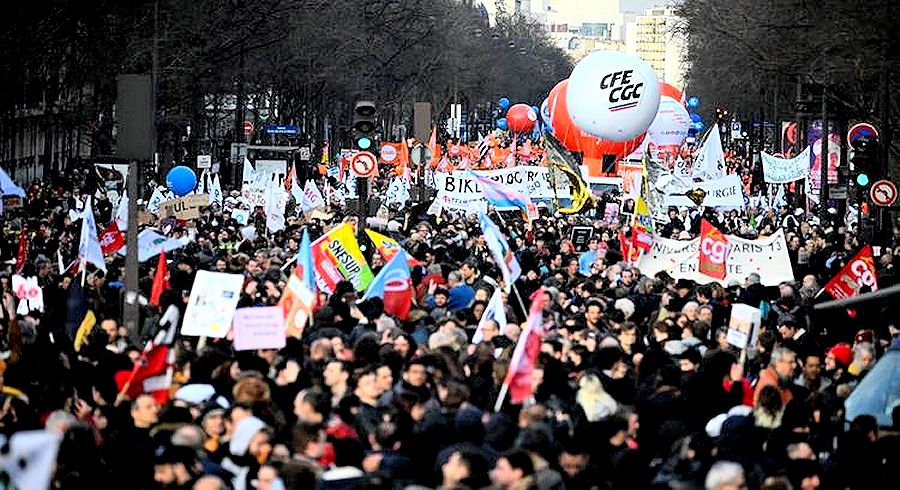
|
As discussions between unions and the government are at an impasse, a total of 570,000 demonstrators marched this Thursday, April 6 in France, including 57,000 in Paris, for the eleventh day of mobilization against the pension reform, indicated The police headquarters.
On March 28, 740,000 people had mobilized across the country, including 93,000 in Paris, according to Place Beauvau. The CGT has for its part identified nearly 2 million demonstrators, including 400,000 in the capital, against “more than 2 million” in France and 450,000 in Paris on March 28. In the evening, the inter-union set the date for the next day of action on April 13, the day before the long-awaited decision of the Constitutional Council.
Before the departure of the Parisian procession, the new secretary general of the CGT Sophie Binet castigated a government which "lives in a parallel reality", accusing it of acting "as if nothing had happened" in the face of "deep anger" against reform. At his side, the number one of the CFDT, Laurent Berger, observed that "the challenge is still as strong" even if the participation figures of the day are "not the most important since the beginning" of the social movement.
Interior Minister Gérald Darmanin reported 111 arrests and 154 police officers injured in France.
In Lyon, damage was committed on the route, including a looted Nespresso store and a destroyed Tesla car. Blocking actions at the gates of major cities have caused traffic jams, particularly in Lyon and Rennes but also around Brest and Caen.
Less followed strikes
The strikes were however less marked, in particular at the SNCF, with three out of four TGVs and one out of two TERs and, in Paris, "almost normal" traffic for the metro and the RER.
On the refinery side, after the announcement of the restart of production at the Esso-ExxonMobil site in Port-Jérôme-Gravenchon (Seine-Maritime), its neighbor TotalEnergies in Gonfreville-L'Orcher remains the only one whose production is still stopped.
In education, the ministry has identified less than 8% of striking teachers. Some high schools and universities have been blocked, for example, in Paris, the Sorbonne and Assas. In Rennes, the faculty of law was closed, as were the three campuses of Lyon-2.
The rate of strikers in local authorities and hospitals was 0.5 point higher than that of the previous day of mobilization. In the territorial public service (about 2 million agents), it thus stands at 3.9%, against 3.4% on March 28 at midday, according to figures from the Ministry of the Public Service.
In the hospital public service (1.2 million agents), it rises to 5.9% against 5.4% during the previous day of mobilization. On the other hand, in the largest side of the public sector, the State civil service (2.5 million agents), the rate of strikers is identical to that of March 28 and reached 6.5% at midday. .
At EDF, where around one in two agents went on strike during the first days of mobilization, participation stalled with 19.9% of strikers according to figures noted at midday by management, after 21.5% March 28 according to the same source.
The unions want to "keep the flame alive"
But as since January 10 and the presentation of the reform, the biggest blockage is above all to be found between the executive and the unions, whose relations are turning sour. After a meeting that came to an end on Wednesday at Matignon, the head of government said that she did not plan " to move forward without the social partners".
More battles are to be expected. The next was not chosen at random: the next day of action will take place on April 13, on the eve of the decision of the Constitutional Council. Laurent Berger hopes that the Sages censor "the whole of the law".
Otherwise, estimated the number one of the FSU Benoît Teste this Thursday, a green light to the procedure of referendum of shared initiative (RIP) on pensions "can allow us to maintain the flame".
|
|
|
|
|
|
| Boby Dean for DayNewsWorld |
 |
THE "BORDELIZATION" OF THE NATIONAL ASSEMBLY
|
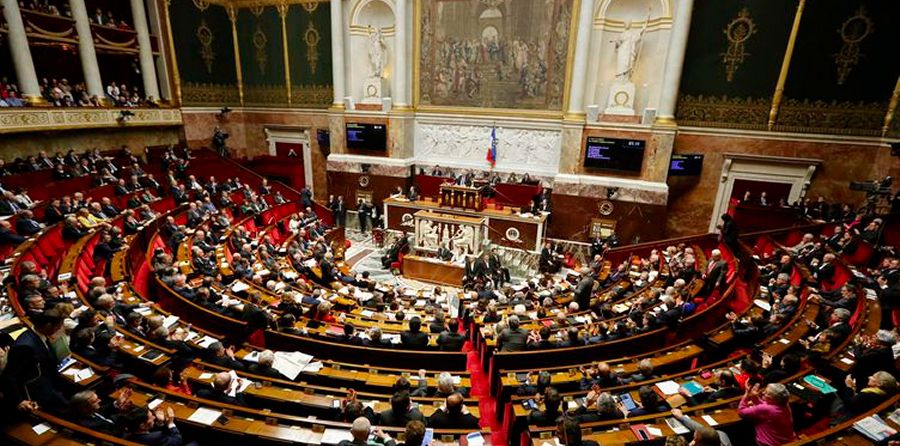
The violence of the parliamentary fight and the cries of orfray have always been the folklore of the hemicycle but since the entry of the Nupes the irresponsible slippages on the part of the Insoumis are flourishing.
The elected officials of the Nation seem to have a field day during the very stormy debates on the pension reform project.
It is Minister Olivier Dussopt whom the rebellious deputy of Hauts-de-Seine Aurélien Saintoul describes as "murderer".
It is Thomas Portes who proudly displays himself, tricolor scarf on his shoulder, his foot on a ball bearing the effigy of the same Dussopt. It was Louis Boyard who exploded when a Renaissance deputy asked him to calm down at the end of a session:
"What's the matter with you ? Come ! Come !"
"Bordelization" - the expression is from the Minister of the Interior Gérald Darmanin - within the lower house leaves more than one perplexed to such an extent that some of LFI, among others, François Ruffin, Clémentine Autain etc., dissociate troublemakers.
The qualities of eloquence were particularly valued for politicians at the time of great orators such Gambetta, Clemenceau...
Insults, intimidation, insulting remarks...were little accepted insofar as they contrasted with the restraint and calm that the Republicans then intended to impose on their speeches and on the manifestations of emotions, conceived as pledges of an "ethics of civic respect and democratic debate".
Léon Gambetta, Jules Ferry, Jean Jaurès, Aristide Briand, Léon Blum… who were nevertheless violently insulted, therefore generally refused to respond on the same level.
In this context, and therefore, at least when it is public, insult, which moreover remains repressed by the press law of 1881, constitutes a form of transgression, a breach of the norms of political well-being. .
So why use insult ?
Doesn't it want to be the weapon of the outsiders ?
Faced with the anger caused by the tweet of Thursday February 9, 2023 from the majority, the right and the RN who summoned him to apologize, Thomas Portes appeared. "I will never give up in front of the bourgeois," he blurted out as he left the hemicycle to his dumbfounded Nupes allies.
The insult thus appears clearly as the weapon of the political outsider fitting into a veritable strategy of scandalization. It allows you to set yourself up as the mouthpiece of the "real" people reduced to silence in the assemblies...
The ways of doing politics have changed under the effect of increased media coverage and the individualization of the political field, which emphasizes singularity more than exemplary or representativeness, and which values a certain exhibition of feelings more than emotional restraint.
But already in 1885, the pamphleteer Henri Rochefort, founder of L'Intransigeant, a socialist newspaper which gradually evolved towards Boulangism, claimed in an interview for Le Matin (October 3, 1885) his desire to undermine political theater and the rules of the game laid down by the establishments?
"The Palais-Bourbon had been transformed into an old-age hospice, where everyone sleeps; now, my duty is to wake up the residents of this branch of Sainte-Périne. […]. And when, at the Palais Bourbon, we'll talk to Ferry, there won't be any more “Mr. President of the Council” as big as his arm, we'll go under his nose, we'll shake his bridle and we can call him “assassin”. parliamentary formulas will have had their day".
Now, ladies and gentlemen, get to work ! |
|
|
|
| Carl Delsey for DayNewsWorld |
 |
WHAT ABOUT DIFFICULTY IN THE PENSION REFORM ?
|
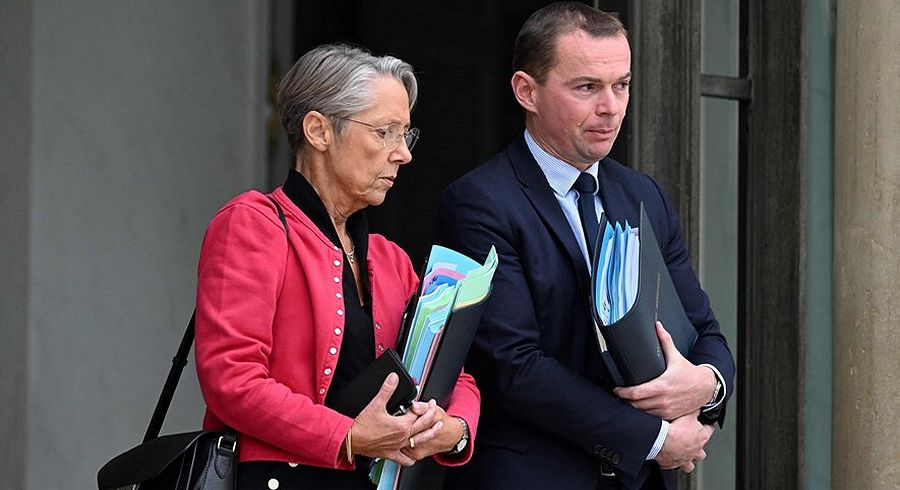
Can the government backpedal on the pension reform ?
At least in part, words of the Prime Minister, Élisabeth Borne.
"We are ready to further develop our project," said the head of government during the presentation of the bill on January 10.
The day after a first day of major mobilization in the face of the reform – more than a million demonstrators across France according to the authorities, 2 million according to the CGT – the executive insists on the fact that the text is still negotiable.
But there is no question of questioning the overall philosophy of the bill, as the text is about to be debated in Parliament. The Minister of the Economy, Bruno Le Maire, insisted this Friday, January 20 on the "two essential pillars of the reform": the increase in the number of years of contribution to 43 annuities to benefit from a pension at full rate and raising the legal retirement age to 64.
“They must be preserved because they guarantee this financial balance by 2030, supports the tenant of Bercy on BFMTV. There can always be improvements to this text but I set only one limit: to guarantee financial equilibrium by 2030. All openings and discussions are interesting but they must fall within this financial framework. »
Two talking points
Gabriel Attal, Minister of Public Accounts, for his part opened the door to very targeted discussions. “We can still progress and enrich our project on two subjects. One, the chopped quarries [...]. Second thing, the employment of seniors, we can probably go further, ”recalls the former government spokesperson.
Gabriel Attal explains that “leave to help a loved one or a child with a disability” was not taken into account in the “long career” system provided for by the pension reform. "During periods when the French had to stop working for reasons suffered, perhaps we can enrich things," explains the minister.
Same observation on the question of the employment of seniors: "A lot has been done to make it progress. We can probably go further", admits Gabriel Attal, who recalls that the government wishes to set up a "senior index" to encourage companies to employ more employees over 55 years of age. “These are very concrete elements that we can continue to enrich through discussion,” insists the Minister.
But the project for the future of the pension system includes measures to prevent professional wear and tear. During the reform presentation on Tuesday, January 10, Prime Minister Elisabeth Borne insisted on this point.
What about hardship at work ?
Four avenues are currently being considered by the government for physical or repetitive jobs: the creation of an investment fund of one billion euros for the prevention of professional wear and tear; the implementation of reinforced medical monitoring for employees with a difficult job; the possibility of financing retraining leave; the extension of the professional prevention account (C2P) to more employees and with more rights.
This famous C2P, born of "Macron orders", had replaced in 2017 the term "difficulty" in "professional risk factors" and had removed 4 factors (heavy loads, painful postures, mechanical vibrations and chemical risks) from the previous system, the personal hardship prevention account (C3P). But in December 2022, the Court of Auditors presented this C2P as “an unambitious and uncontrolled device” in its thematic public report on public policies in occupational health in companies.
Shouldn't we then also rethink with the social partners this precise point which stumbling blocks for long careers?
Work plays a determining role in the differences in life expectancy and health status between citizens. This finding is validated by numerous studies linking exposure to hardship factors with, in particular, early exit from employment, or state of health after 50 years. Disability-free life expectancy is also correlated with occupational categories.
However, the government refused to reinstate the 4 criteria excluded in 2017, while allowing, however, in the pension reform for employees exposed to heavy loads, painful postures and vibrations to benefit from new rights, each professional branch having to list the trades concerned. .. but subject to official recognition of incapacity. And this is where the shoe pinches: it creates a risk of mismatch between professions, some branches being able to recognize a profession as painful and others not.
One of the measures which should therefore only have a limited effect in order to avoid or reduce the evils of work.
The intersyndicale has announced a new mobilization date on January 31, 2023.
|
|
|
|
| Samantha Moore for DayNewsWorld |
 |
WISHES AND ANNOUNCEMENTS FROM EMMANUEL MACRON TO CAREGIVERS |
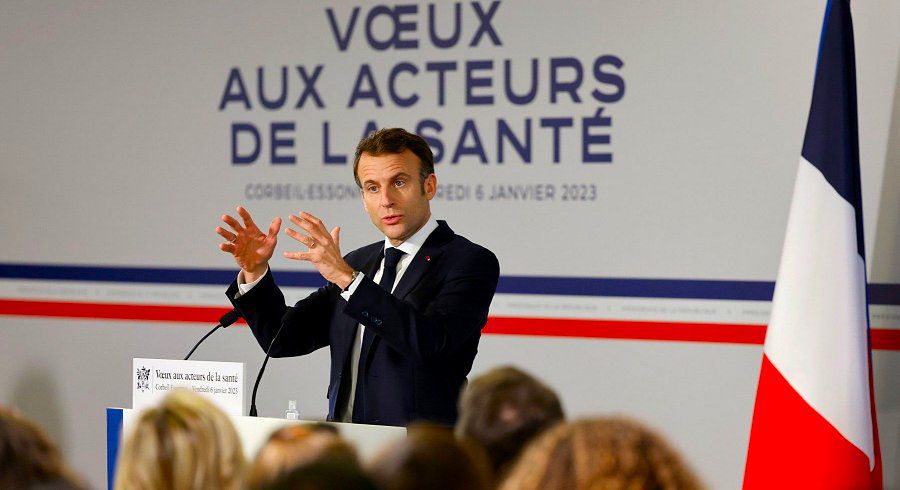
As the health sector is marked by a shortage of health professionals, Emmanuel Macron announced a series of measures during his greetings to caregivers on Friday January 6, in a hospital in Essonne. The Head of State acknowledged “the personal and collective exhaustion, this sometimes feeling of loss of meaning which has set in, the feeling basically of going from one crisis to another”.
A reorganization of work in the hospital
Denouncing "hyper-rigidity" in the application of 35 hours and a system that "only works with overtime", Emmanuel Macron promised a reorganization of work in the hospital "by June 1" in order to to retain caregivers who leave and make the sector more attractive.
An increase in the number of medical assistants from 4,000 to 10,000
Created in 2018 to assist private doctors in order to allow them to receive more patients, there will be more medical assistants. “We now have nearly 4,000 medical assistants who have already signed a contract, which is a real success. (…) We must reach 10,000 by the end of next year”, announced the Head of State.
The end of fee-for-service pricing
Emmanuel Macron also announced the pure and simple "exit" from the much criticized fee-for-service pricing in hospitals from the next Social Security budget, in favor of financing on "public health objectives", negotiated " on a territorial scale”. “Many of the debates are tense around this famous activity-based pricing. (…) The method of remuneration (…) does not take unscheduled care into account. It poorly takes into account the more complex activities that are going to take time,” he said.
Doctors for all patients with chronic disease
From the end of 2023, the 600,000 people with a chronic illness without a doctor will be offered one. In the absence of a "treating doctor", they will have access to a "treating team" of caregivers from various disciplines.
Beyond the only chronic patients, the Minister of Health, François Braun, had already promised that, among the 6 million patients without a doctor, all those who wish would have one "by the end of the five-year period". |
|
|
|
| Jaimie Potts for DayNewsWorld |
 |
EXPLOSIVE RETURN WITH THE REFORM
RETIREMENTS |
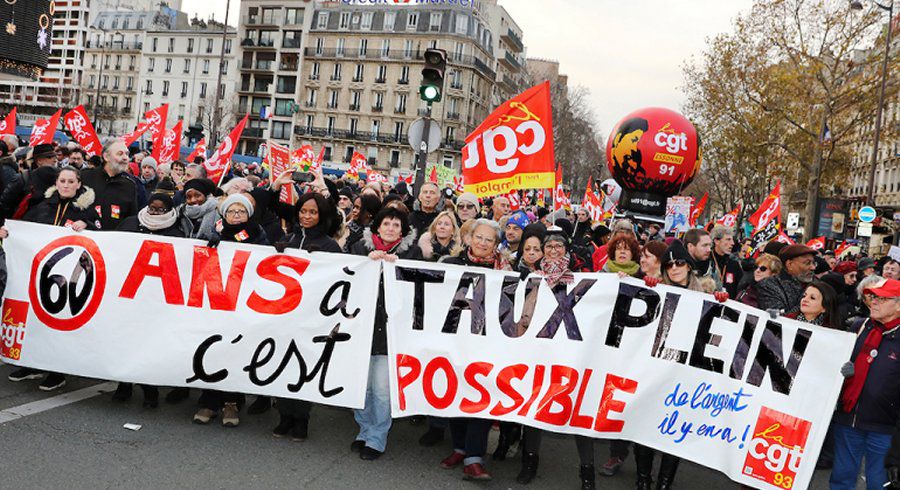
It 's time for the last arbitrations before the presentation of the pension reform next week. Receiving the social partners on Tuesday and Wednesday, the government wants to be open to their proposals. The financial leeway displayed to “accompany” the reform cannot, however, be extended.
Faced with the unions united against raising the retirement age and the reluctance of the right to support retirement at 65, Prime Minister Elisabeth Borne reiterated on Franceinfo on Tuesday that this threshold was "not a totem”, before a presentation of the pension reform on January 10. Several points remain to be clarified, in particular the postponement of the retirement age to 64 or 65 or even the French who will benefit from an increase in their pension to reach 1,200 euros.
The postponement of the retirement age to 65, “it is not a totem, I repeat. There are other solutions that will allow us to achieve balance in our pension system by 2030”. This is what Elisabeth Borne said on Tuesday, January 3.
The objective is “a presentation on January 10 then in the Council of Ministers on January 23 followed by debates in the National Assembly from the beginning of February. We would like the text to be voted on before the end of the first quarter for entry into force at the end of the summer, ”she explained.
Another certainty affirmed by the Prime Minister: “We will not go beyond the 43 years of contributions provided for in the Touraine reform to have a full pension”.
Similarly, "the threshold of 67 years we do not touch it", she said. This is the maximum age at which a French person can enjoy his retirement at full rate even when he does not have all his quarters.
Elisabeth Borne, however, was much more evasive regarding the amount of the minimum pension set at 1,200 euros by the pension reform, or 85% of the minimum wage.
Finally, when asked about a possible increase in the amount of employer or employee contributions, Elisabeth Borne assured that it was a "red line not to increase the cost of labor or even reduce it". "Lowering taxes for households and businesses is what has allowed us to create jobs", she assured, recalling that her "priority is full employment".
It will first be the secretary general of the CFDT, Laurent Berger, to be received at 3:30 p.m. by Élisabeth Borne. He will be followed by François Hommeril, president of the CFE-CGC, Frédéric Souillot, general secretary of FO and François Asselin, president of the CPME. On Wednesday, Cyril Chabanier, president of the CFTC), Geoffroy Roux de Bézieux, president of MEDEF, Jean-Christophe Repon, vice-president of the Union of local businesses (U2P) and its general secretary Pierre Burban, Laurent Escure, general secretary of the UNSA, and finally Philippe Martinez, general secretary of the CGT.
“What we want is to preserve our pay-as-you-go system”
If the government insists on the need to carry out "these consultations (which) are useful" to avoid a sling and major strike movements like those which had already paralyzed the country as in December 2019, it also hopes to win the support of the Republicans . Without them, for lack of an absolute majority in the National Assembly, the government would indeed be forced to use again Article 49.3 of the Constitution, which allows the adoption of a text without a vote.
By way of justification, Elisabeth Borne reaffirmed, on Tuesday, the need to carry out this reform. “Our pension system is structurally in deficit and it will be over the next few years. What we want to do is preserve our pay-as-you-go system at the heart of our social model. It is a system in which our assets finance the pensions of our retirees”. “However, we are living longer and longer so the number of active people compared to the number of retirees is constantly falling,” she recalled.
However, “there will be no extra money. All efforts will be used to finance pensions”, she assured, affirming that the revenues linked to the pension reform will not be used to finance “anything else”.
|
|
|
|
| Boby Dean for DayNewsWorld |
 |
THE STRATEGIC ERROR OF PRESIDENT MACRON
ON NUCLEAR DETERRENCE | 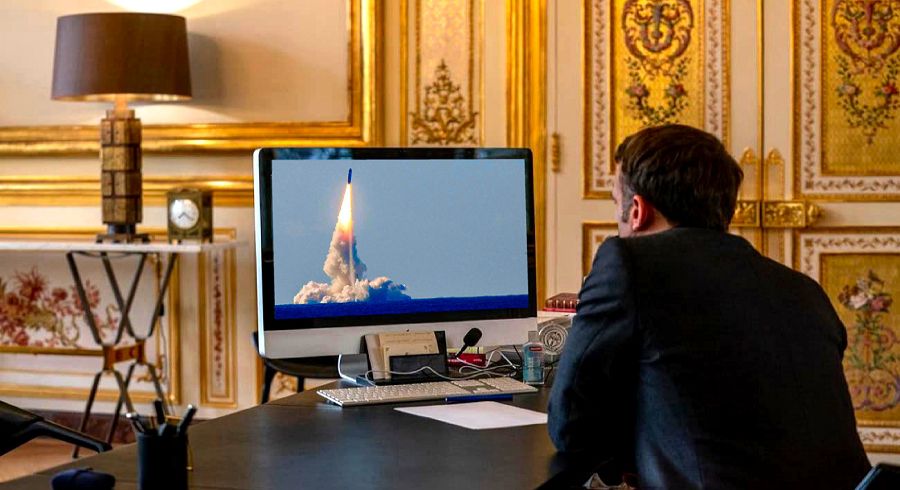
"Too many people " are talking about it.
Should this warning from Emmanuel Macron on nuclear power also apply to Emmanuel Macron ?
On France 2 Tv, Wednesday evening October 12, 2022, the President of the Republic criticized the leaders who pour out too much, for his taste, on the risks of a nuclear war…
Before doing the same.
Invited to speak on international issues, the Head of State actually mentioned what could be - or not be - a French response to a Russian nuclear strike in Ukraine.
"Our doctrine is based on what are called the fundamental interests of the nation, and they are defined very clearly. That is not at all what would be at issue if there was a nuclear ballistic attack in Ukraine or in the region", he explained in front of Caroline Roux, even if it means revealing – a little – his game.
Because this answer, certainly convoluted, is surprising according to several observers and other specialists in these ultra-sensitive questions.
Should the Head of State have listened to his own advice and been less talkative about nuclear deterrence ?
A "necessary ambiguity", says the Elysée
In any case, this is the opinion of François Hollande, his predecessor at the Élysée.
"On the force of deterrence, credibility is to say nothing about what we will have to do (...). We must stop there", thus intimated the socialist on franceinfo, Thursday, the day after the intervention of the Head of State on France 2 Tv.
According to him, "we must be careful not to say anything to anyone who could trigger the weapon".
In short: a president should not say that if he wishes to preserve France's deterrent capacity.
Especially since the former tenant of the Élysée - and ex-chief of the armies -, never stingy with criticism of the current political staff, is not the only one to worry about the exit of the chief of the state. Several French specialists in defense issues are also wondering aloud.
"He was both too precise and not precise enough, evoking the French response to a nuclear strike in Ukraine, but also a strike in the region", judge for example Héloïse Fayet with 20 Minutes .
The researcher at Ifri's Security Studies Center says she is surprised to hear the Head of State speak of very clear "fundamental interests", while the doctrine mentions "vital interests", which must remain vague by essence.
Emmanuel Macron has "pushed very far, too much in my opinion, the slider towards clarity", believes for his part Bruno Tertrais, of the Foundation for Strategic Research (FRS).
“Any excess of precision allows the adversary to calculate too precisely the risks of such and such an initiative”, estimates the specialist in geopolitical questions in the columns of Figaro.
In this context, the Elysée defends itself from any imprudence. We praise, on the contrary, the tightrope walker position of Emmanuel Macron… without going into too much detail of his declarations and his doctrine on the matter.
An assumed artistic vagueness in the entourage of the Head of State, according to whom the latter has maintained "all the ambiguity that goes around deterrence."
"A necessary ambiguity", explained the Elysée, this Thursday evening. And probably scalable.
Macron, sole master on board
Nevertheless, the Head of State's comments on Wednesday evening raise several concrete issues. What, for example, does the "region" considered as outside our fundamental interests correspond to ?
The questions, "which do not call for any additional comment", remained unanswered on the side of the Élysée. A desire, no doubt, to re-thicken the vagueness that the main interested party has helped to lift.
Beyond these concrete strategic debates, the presidency wanted to insist on the fact that only Emmanuel Macron (who is also the chief of the armies) has a hand on this subject. "Deterrence is the responsibility of the Head of State, of his assessment at the moment T of what is necessary to safeguard our vital interests", specifies the Elysée, referring, among other things, to the speech of the President of the Republic of the month of February 2020 at the war school.
In other words: it is he who defines everything that nuclear deterrence is, from its doctrine to its use. Its pre-square.
But at a time when Vladimir Putin's threats are intensifying, the controversy linked to Emmanuel Macron's statements does not stop at the borders of France. According to the daily newspaper across the Channel The Telegraph, the British Secretary of Defense, Ben Wallace, regretted the exit of the French president, this Thursday, on the sidelines of a meeting of NATO ministers in Brussels.
His comments "reveal his hand", believes the British leader. As if, in poker, Emmanuel Macron showed his game to his opponent.
Still, the President of the Republic, criticized for his words, is not the only one to remove, on the merits, the possibility of recourse to atomic weapons. "Any nuclear attack against Ukraine will lead to a military response", certainly "so powerful that the Russian army will be annihilated", explained the head of European diplomacy Josep Borrell, Thursday evening, at the end of the meeting in Brussels. But this response will be "not nuclear", he took care to specify.
Same thing or almost on the side of NATO, which considers "extremely remote" "the circumstances in which the organization could have to use nuclear weapons".
"The objective of NATO's nuclear deterrent is to deter any attack against the allies", underlined Secretary General Jens Stoltenberg. Which Ukraine, formally, is not.
|
|
|
|
| Garett Skyport for DayNewsWorld |
 |
THE INCURIA OF THE FRENCH GOVERNMENT
FACING STRIKES | 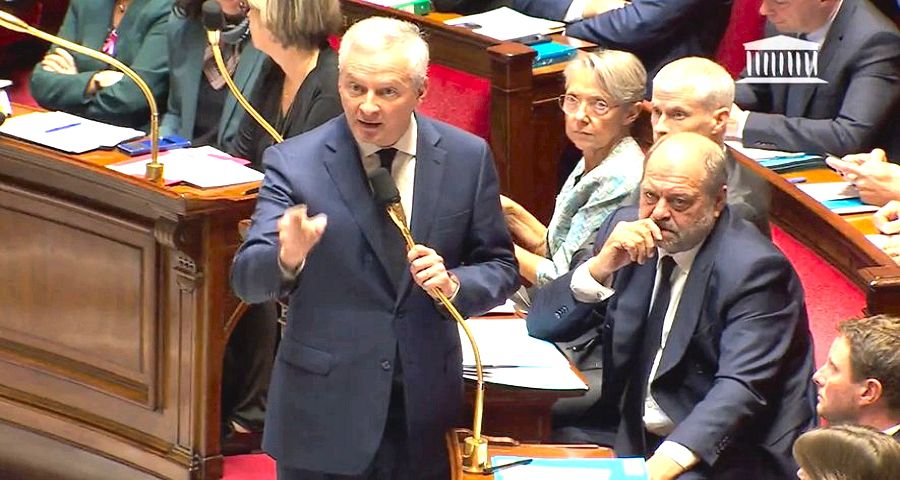
The conflictual social climate escalates. The CGT announces this Thursday, October 13, 2022 the renewal of the strike on the two production sites of Esso-ExxonMobil, including that of Port-Jérôme, concerned by requisitions of personnel. The secretary general of the CGT believes that the use of requisitions of striking employees has “set fire to the powder”: “The fact that the government is making requisitions of employees at Esso-ExxonMobil has not helped to calm the social climate. ". Six of the seven refineries in mainland France are still on strike: the four from TotalEnergies and the two from Esso-ExxonMobil. Only that of Lavéra, of the Petroineos group, is not blocked. The government, which called on Tuesday for an "immediate" unblocking of the situation,
Towards the requisition
Elisabeth Borne ordered yesterday "the requisition of the personnel essential to the operation of the depots" of the Esso-Exxonmobil group in order to put an end to the fuel shortages.
What the law says ? Pursuant to Article L2211-1 of the Defense Code, the State may order a requisition of persons or property "in the event of a threat relating in particular to a part of the territory, to a sector of national life or to a fraction Population ". In 2010, Nicolas Sarkozy had already ordered the requisition of refinery employees.
Without winning the case, the mobilization could however be a long-term one. “The CGT Chemistry Federation is undoubtedly one of the most combative CGT federations. There is no significant social movement without there being militant trade unionists who are determined to organize the mobilization”, underlines the historian Stéphane Sirot. Philippe Martinez will propose a new day of strike next week
Towards general mobilization ?
And in fact the leader of the CGT affirms on BFMTV / RMC that the decision of an interprofessional call to strike will be taken during the day. “We are going to propose a new call for a strike in all public companies,” said Philippe Martinez this morning. This day of strike and demonstrations could be held on Tuesday, October 18, day of mobilization of vocational high schools.
Mobilization has gained ground in refineries, but also in the nuclear industry. The movement, which has been going on at EDF since the end of September, is more discreet. At EDF, the mobilization extended Wednesday morning, at the call – as in oil – of the CGT (and FO). It now affects eight reactors in four nuclear power plants. Employees have indeed voted to strike in Cattenom, following the example of their colleagues from certain teams in Tricastin, Cruas and Bugey. In Gravelines, the employees voted to strike from October 13.
However, the movement could have serious consequences for electricity production at the height of winter. The context is already tense: a dozen power plants are shut down because of a corrosion problem and the authorities, fearing cuts in the event of a cold winter, are calling on the French and companies to reduce their consumption of kilowatt hours.
The impotence of the government
Bruno Le Maire calls on the CGT to "clarify its position": "The blocking of the whole country is unacceptable". The Minister of Economy and Finance speaks directly to the CGT, the second union of the TotalEnergies group.
“What does the CGT want ? salary negotiations ? It is acceptable. Blocking the whole country ? It is completely unacceptable,” said Bruno Le Maire on RTL.
On the side of the government, it is incompetence and impotence for lack of intelligence.
|
|
|
|
| Jenny Chase for DayNewsWorld |
 |
FRANCE THE EXPULSION OF THE IMAM
HASSAN IQUIOUSSEN VALIDATED BY THE COUNCIL OF STATE "A VICTORY FOR THE REPUBLIC" | 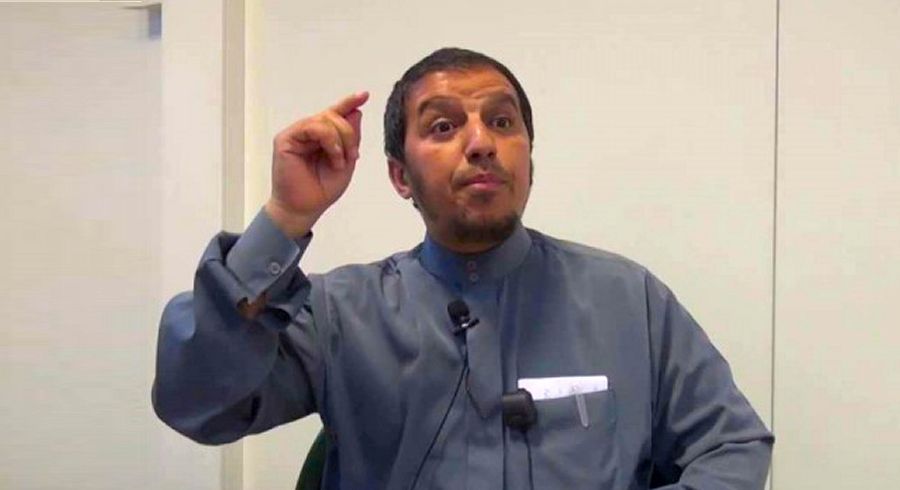
Hassan Iquioussen will have to leave France. The Council of State validated, Tuesday August 30, 2022, the expulsion of this imam. In his statement, he considers "that his anti-Semitic remarks, made for several years at numerous widely publicized conferences, as well as his discourse on the inferiority of women and their submission to men constitute acts of explicit and deliberate provocation to discrimination or hatred justifying the expulsion decision”. For the highest French administrative court, "this decision does not cause a serious and manifestly illegal attack on the private and family life of Mr. Iquioussen".
On July 28, the Interior announced the upcoming expulsion of Hassan Iquioussen, based near Valenciennes (North) and operating via videos posted on social networks. The ministry criticized him for his closeness to the Muslim Brotherhood and "a proselytizing discourse inciting hatred and discrimination and carrying a vision of Islam contrary to the values of the Republic".
In fact, remarks deemed anti-Semitic, favorable to the submission of women to men, or even pro-Sharia, were made by Hassan Iquioussen. He also campaigns for Muslims to structure themselves politically or via associations, in order to gradually impose their ideas in society.
The man, born in France 58 years ago but of Moroccan nationality, has also been on file S for eighteen months, revealed Gérald Darmanin.
After the announcement of his expulsion, his lawyer filed an appeal against the expulsion order. The administrative court had canceled the decision on August 5, pointing to a “disproportionate attack (on) private and family life” of the imam, father of five children and grandfather only fifteen grandchildren with French nationality.
The court recognized the “contentious remarks” about the women but noted that he had not uttered anti-Semitic words since 2014.
Gérald Darmanin said he was "surprised" by the decision to cancel the expulsion. By bringing his request to the Council of State, he had estimated that the institution “will apply the law. Either the law allows France to protect itself, or it does not allow it to be expelled and, in this case, the law will have to be changed to better defend the French”. He also accused Hassan Iquioussen of being "those who sow an atmospheric jihadism", a concept according to which ambient Islamist discourses or those flirting with doctrine favor the acting out of isolated individuals.
Imam Iquioussen, burkini in Grenoble but also, dissolutions of the Collective against Islamophobia in France and of the BarakaCity association : the jurisprudence of the Council of State, certainly in different files, displays a constancy in the defense of republican values.
|
|
|
|
| Alize Marion for DayNewsWorld |
 |
THE CONTESTED VISIT OF MOHAMMED BIN SALMAN THE CROWN PRINCE OF SAUDI ARABIA TO FRANCE
|
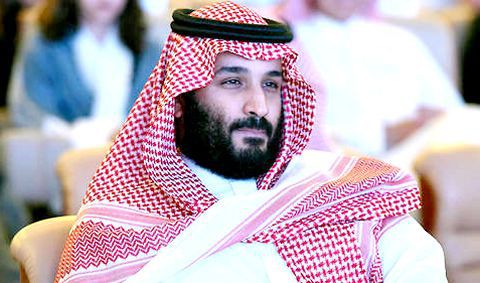
"Russia's special operation" in Ukraine has definitely changed many things. Four years after the assassination of journalist Jamal Khashoggi, Mohammed Bin Salman, Crown Prince of Saudi Arabia, a time ostracized from the international community is touring Europe this week.
He arrived in Greece on Tuesday July 26, 2022 for a two-day visit before a second stop in France, where he was received at the Elysee Palace on Thursday by Emmanuel Macron for a working dinner.
This meeting signs a little more the "rehabilitation" of the Saudi crown prince, less than two weeks after Joe Biden's visit to Saudi Arabia - and this famous "check fist" between the two men, which has earned much criticism from the American president , he who had yet declassified a damning report on the responsibility of the crown prince in the assassination of Jamal Khashogghi. The embarrassing investigator for the reigning family had been savagely suffocated and then cut with a saw at the Saudi consulate in Istanbul (Turkey), by a commando linked to the crown prince, according to the CIA investigation. Since then, MBS, a real strongman in the kingdom, had been almost quarantined by the capitals.
This was without counting the war in Ukraine which put the Gulf monarchies back at the center of the oil game destabilized by Western sanctions against Moscow. The “cold realpolitik” of this visit to Paris prevails over moral principles. The journalist Georges Malbrunot, specialist in the monarchy, thus specifies on franceinfo that the Kingdom is more than ever “essential and is even more so since the Ukrainian crisis. »,
Emmanuel Macron was also the first Western leader to visit Saudi Arabia last December. The French president had to do a balancing act by evoking the need to speak to the crown prince who represents the first country in golf, a key player in the region, while specifying that dialogue did not mean being complacent.
The war in Ukraine and the oil issue
First of all, there is the aspect related to energy issues. The EU needs the cooperation of the Gulf countries in energy matters. This file has already been at the heart of the visit of Mohammed ben Zayed, President of the United Arab Emirates, during his visit to Paris on July 18. Westerners want to convince Riyadh to open the floodgates of oil, of which the kingdom is one of the main producers, in order to lower prices. So far, the Saudi leader has refused to increase production to meet his commitment to OPEC, repeating that his country was at maximum capacity with little room for improvement. The Europeans are also trying to find other sources of supply in the absence of an increase in production.
Georges Malbrunot warns, however, "We risk being disappointed because Saudi Arabia is bound by certain commitments made within the framework of OPEC +, in which Vladimir Putin's Russia is located and with which Saudi Arabia maintains good relations. (...) Above all, Saudi Arabia has not invested enough in recent years in its oil production structures to be able to increase its production from 10 million barrels per day to 13 million, "he says. .
Files of Lebanon and Iran
Another particular file between France and Saudi Arabia concerns Lebanon immersed in a. dramatic economic and financial crisis. Paris particularly wants greater Saudi involvement in Lebanon. Iran is also a key point: the Iranian nuclear issue, at a time when talks between the great powers and Iran to revive the 2015 agreement have stalled. Saudi Arabia, Iran's arch-rival, fears Tehran will become a nuclear power and is increasingly worried about its activities in the region. The Saudis are therefore seeking to strengthen the political partnership with their main allies and benefit from their support at a time when concerns about the state of progress of the Iranian nuclear program are real.
Economic issues
Added to this are economic challenges for both countries. France intends to promote its know-how in the Kingdom which is engaged in a race against time to succeed in its diversification. The ambition is to build a “new Arabia” that is more prosperous, more liberal, more connected and open to the world. French companies therefore wish to benefit from the many opportunities of the Vision 2030 plan, which aims to prepare the country for the post-oil era by promoting new growth sectors. French expertise is appreciated; this is particularly the case of the Al-'Ula project, a Nabataean site listed as a UNESCO World Heritage Site, the enhancement and development of which have been entrusted to French players.
For its part, Saudi Arabia intends to invest in the French economic recovery plan. Arabia is indeed a great financial power. The Saudi Public Investment Fund aims to become the largest sovereign wealth fund in the world and manage more than 2,000 billion dollars by 2030 thanks to the revenues generated by hydrocarbons and privatizations. The country's financial institutions as well as private groups are interested in investing in French groups as part of the recovery plan.
What about human rights ?
Still, the image of France can take a hit: according to Abdullah Alaoudh, director for the Gulf region of the organization Democracy for the Arab World Now founded by Jamal Khashoggi, this visit to France is "a dishonor". The reaction, this Wednesday, of Amnesty International, considering that "France turns a blind eye" to "all human rights violations", shows that the bet is risky. Especially since the visit last week of the President of the United Arab Emirates, Mohammed bin Zayed, had already caused an outcry.
Vis-à-vis these two leaders of the Gulf, the diplomats of the Élysée prefer to emphasize the dynamic of "openness", in which they engage their country, rather than on the repressive aspects of freedom...
|
|
|
|
| Jaimie Potts for DayNewsWorld |
 |
SALAH ABDESLAM CASE NOVEMBER 13
SEVEN LIFE SENTENCES | 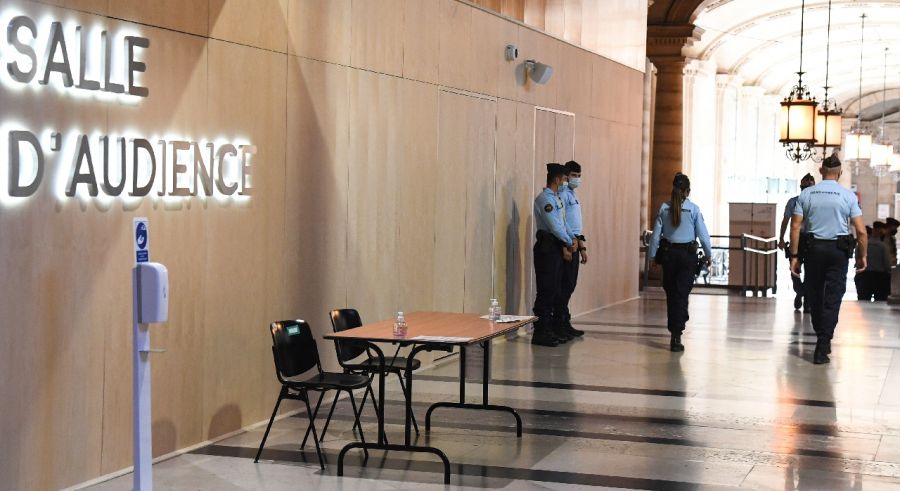
At the end of 149 days of marathon hearing, the special assize court of Paris delivered its verdict, read by President Jean-Louis Périès.
The court followed the National Anti-Terrorist Prosecutor's Office (Pnat) which on June 10 had requested the maximum sentence against Salah Abdeslam. The five magistrates sentence this 32-year-old Franco-Moroccan to life imprisonment, incompressible. He will therefore have to serve at least thirty years in prison before being able to request the lifting of this incompressible perpetuity, a prelude to any request for adjustment of sentence. He did not react publicly to this verdict.
The only surviving member of the November 13 commando, Salah Abdeslam is indeed considered "the co-author of the attacks, all the targets of this November 13 constituting a single crime scene", according to the Assize Court. .
The magistrate added that "the court also recognized that the explosive vest he was wearing was not functional, which seriously calls into question Salah Abdeslam's declarations as to his renunciation".
“Radicalized defendants”
No extenuating circumstances either against Mohamed Abrini, who had taken part in the famous convoy of death in November 2015.
On the other hand, Sofien Ayari, 28, and Osama Krayem, 29, escape life imprisonment. They are sentenced to thirty years of criminal imprisonment with two thirds incompressible, for "their participation in an association of terrorist criminals".
Mohamed Bakkali, 35, who has already been sentenced to twenty-five years in prison for the August 2015 attack on the Thalys train, is also sentenced to thirty years in prison. Just like Ahmed Dahmani, 33, currently detained by Turkey.
For all these defendants, the Court considers that by "their adherence to jihadist theses, and their radicalization", they could not ignore the plans for terrorist attacks in Europe.
Life also for the Clain brothers
Life imprisonment is also pronounced against the five great absentees from this trial, supposedly dead in Syria and therefore tried by default. Among them, Osama Atar, considered "as the sponsor of the attacks"; Obeida Dibo, operational manager, and Omar Darif, one of the chief bomb disposal experts. Same life for the brothers Fabien and Jean-Michel Clain, Normans at one time in their lives and who had claimed the carnage of Paris by telephone.
"Propaganda has played an essential role in Daesh's strategy, both to spread terror and to attract new fighters," summed up President Périès.
For the other defendants, aged 29 to 41, the sentences range from two years in prison to eighteen years in prison, depending on the degree of logistical assistance provided to the November 13 commando.
"None of the three defendants who appeared free is reincarcerated at the end of the hearing", confirmed the Pnat.
The twenty defendants sentenced yesterday have ten days to appeal. History will remember the ninety deaths of the Bataclan, thirty-nine on the terraces of cafés, one at the Stade de France. Of the 400 injured, a woman and a man have since killed themselves.
Six years after a night of terror that traumatized France and after a river trial marked by the chilling stories of nearly 400 survivors or relatives at the helm, out of nearly 2,600 civil parties, the survivors will finally be able to close a page.
|
|
|
|
| Carl Delsey for DayNewsWorld |
 |
EARTHQUAKE IN LEGISLATIVE ELECTIONS
LESSONS TO BE LEARNED | 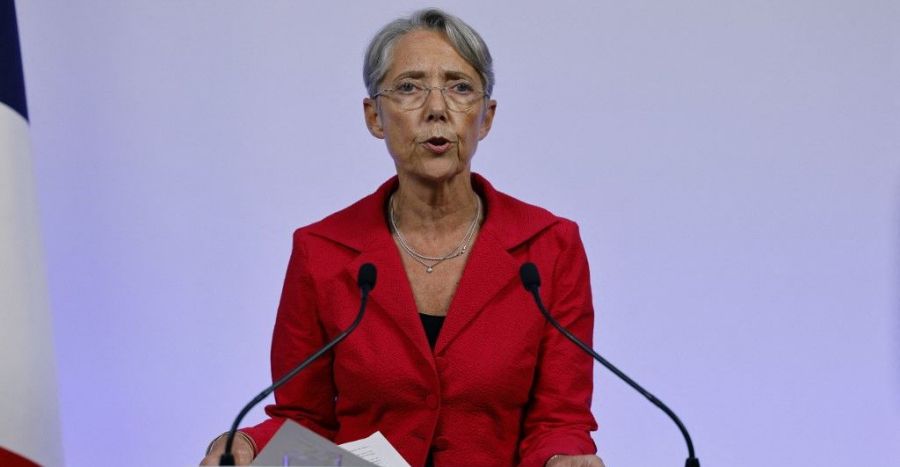
The second round of the legislative elections on June 19th put an end to the long electoral cycle, with two rounds of presidential elections and two rounds of legislative elections. In the presidential election, Emmanuel Macron had been largely re-elected, especially if we remember that an outgoing president inevitably displeases part of the electorate.
But the legislative elections last weekend will have marked a huge drop in the electorate of the presidential majority. The main issue for the second round was of course whether the presidential majority would also have an absolute majority of deputies or whether, as the polls suggested, it would only have a relative majority.
Distrust of the majority
The results are very bad for the majority. Together obtains 245 seats, far from the absolute majority of 289. The New People's Ecological and Social Union (NUPES) has 133 deputies, in the low range of what the polls predicted. On the other hand, the National Rally has 89 elected members against 8 in 2017 and 35 in 1988 with a departmental proportional voting system. The Republicans have 60, less than half the parliamentary group they had from 2017 to 2022. There are 20 various lefts, 10 regionalists, 10 various right, 4 various centers, 4 UDI, 1 sovereignist right.
Let us add that the two main blocks are composite. In the relative presidential majority, LREM would have only 162 deputies, almost half less than in 2017, the MoDem 45 (about the same as in 2017), Horizon, the new party of Édouard Philippe, 27.
On the side of the NUPES, La France insoumise (LFI) has 79 elected officials (against 17 today), EELV 25, the PS 25 and the PCF 12 (which will have difficulty in forming a parliamentary group). It is quite possible that this coalition will crumble or break apart, given the major program gaps, particularly in Europe and NATO.
For the first time since 2002, when the presidential mandate had been reduced to five years and the electoral calendar reversed, there is no amplification of the presidential victory in the legislative elections. On the contrary, there seems to have been a strong movement of defiance towards the majority. The front against the "extreme", which the presidential camp had called for, did not work. The fear of a "chaos" so radical left and right came first did not mobilize either.
A future made of alliances ?
The situation for the next five years is therefore very open, forcing the power to find alternative majorities on a case-by-case basis, unless it succeeds in convincing elected representatives from the right or various left, to join it. These results show that the recompositions of the French partisan system are not over. Republicans could split or crumble, with some moving towards Macronia, others possibly joining the National Rally.
This situation of very strong weakening of the majority could already be seen in the results of the first legislative round. The presidential coalition obtained only about 25.7% of the votes cast, at the same level as the NUPES. If we compare with 2017, LREM had then collected 32.3% of the votes cast in the first round, i.e. almost 7 points more than on June 12, 2022. Three major partisan blocs emanated from the polls: Together, the NUPES and the radical right at around 24% (RN, Reconquest, sovereignist right), while the traditional right was reduced to 13.6% (LR, UDI, various right).
The record level of abstention (52.5% of registered voters) has prevented many candidates from standing since it is necessary to obtain at least 12.5% of registered voters (ie more than 25% of those cast in most constituencies). The second round therefore opposed everywhere (with 7 exceptions) duels of candidates: 415 Ensemble were qualified, 380 NUPES, 209 RN and 71 LR.
An unconvincing strategy
Ensemble's strong decline in the legislative elections compared to the presidential election is probably linked to the adoption of an unconvincing strategy. In 2017, the newly elected president had chosen a prime minister very quickly. His government carried popular measures before the first round, particularly in terms of moralizing political life.
In 2022, on the other hand, the Head of State was slow to announce his government, without committing to specific measures despite an obvious climate, economic and health crisis. Thus, on the key issue of purchasing power, the Prime Minister was content to announce belatedly a 4% increase in pensions during the summer.
The presidential program for the next five years thus remains vague, particularly in terms of economic policy, as if the president wanted to keep the margins of initiative with regard to the policy he will pursue, or as if he thought that his presence on the international scene was enough to attract voters. Evidenced by the vagueness around his latest proposal with a National Council for Refoundation
In this context, the electoral alliance operated by Jean-Luc Mélenchon succeeded in almost tripling the number of left-wing deputies in the National Assembly.
However, as a percentage of the votes cast, it is only stable in percentage compared to 2017 around 30% (with the various lefts), while the radical right has progressed by around 10 points.
The importance of abstaining
Finally, the second round confirms the first as to the importance of abstention: 53.8%, a little more than in the first legislative round but a little less than in the second round of 2017 (57%). The gaps are even greater than before according to generations and social categories: when among those over 65, two out of three registered voters will vote, this is only the case for one person under 35. Many workers and employees have also become very fatalistic, not seeing the point of going to vote.
This is a very important question which the public authorities should take up at the start of the legislature so that reforms can possibly be implemented in 2027. We know that abstention could decline – without there being any miracle solutions – with the introduction of a voting system that is at least partly proportional, with the possibility of voting by post or on the Internet, with also a reform of registration on the electoral lists to prevent have a lot of "mis-registered".
Many are also those who propose to implement a real policy of strengthening citizenship among young people, to develop voting incentive programs during election campaigns, or even to organize major contradictory debates between the parties and that the professions of faith reach the voters well in advance.
A reflection on the type of reforms to be implemented is urgent for the future of representative democracy in France.
According to Pierre Bréchon, Emeritus Professor of Political Science, Sciences Po Grenoble, article published in The Conversation France. |
|
|
|
| Simon Freeman for DayNewsWorld |
 |
TRIAL OF NOVEMBER 13 MAXIMUM SENTENCE AGAINST SALAH ABDESLAM AND NINE OTHER ACCUSED REQUESTED BY THE NATIONAL ANTI-TERRORIST PROSECUTION
|
At the end of a three-day indictment, the prosecution asked this Friday for exemplary sanctions, including the heaviest existing in the Penal Code for Salah Abdeslam, the survivor of the commandos . The National Anti-Terrorism Prosecutor's Office (Pnat) has thus requested the maximum sentence against Salah Abdeslam and nine other defendants. The other sentences required range from five to thirty years in prison.
"Your verdict will not restore peace to the victims, it will not heal physical and psychological wounds, it will not bring back the dead, warns Camille Hennetier, concluding the river indictment of the three general attorneys of the National Anti-Terrorist Prosecutor's Office (PNAT) started on Wednesday. But he will say that justice and law have the last word. »
The twenty men accused of having helped and supported the killers of November 13, 2015 know, since yesterday, the sanctions that the National Anti-Terrorist Prosecutor's Office (Pnat) requires against them, on behalf of the French people. The verdict of the special assize court will fall on June 29.
"Their blood on their hands"
Unsurprisingly, the prosecution is asking for “incompressible” life imprisonment against the Franco-Moroccan Salah Abdeslam, 32, “soldier of the Islamic army, the only surviving co-author of the 130 deaths of November 13. He has their blood on his hands, as others have it on their conscience”, consider Camille Hennetier, Nicolas Braconnay and Nicolas Le Bris, magistrates of the prosecution. According to them, Salah Abdeslam, "who had dropped three human bombs" - three suicide bombers - in front of the Stade de France, carefully prepared "these massacres" with Abdelhamid Abaaoud, killed in the attack on Saint-Denis, November 18, 2015. The prosecution devoted long developments to Salah Abdeslam with an obsession: to dismantle the role of "alleged surprise guest" of the attacks put forward at the hearing.
“His jihadist commitment is old. There is no reason to say that he was his brother's puppet, ”recalled Nicolas Le Bris on Wednesday. The PNAT also emphasizes its essential role in the transport of the members of the commando to Belgium. "It's a key mission: the one who repatriates is necessarily someone in whom the cell has all its confidence", notes Camille Hennetier. The arrival in waves of future assassins between September 1 and October 14 acts “the constitution of a real katiba in the heart of Europe”.
No mitigating circumstances either, in the eyes of the prosecution, against Abdeslam's companions on the run between November 2015 and March 22, 2016, the date of the Brussels attacks. Life imprisonment is therefore also required against Sofien Ayari, 28, and Osama Krayem, 29, whom the prosecution suspects of having targeted an attack at Amsterdam airport.
As for Mohamed Abrini, " the man in the hat" of the Brussels attacks, "left like a thief" on the night of November 12 to 13 by forcing the cell to reorganize, "his renunciation cannot be analyzed as a withdrawal voluntary, and it has no effect on his previous acts of complicity. What will happen on the evening of November 13, he ardently wished, ”sings Nicolas Le Bris. The prosecution nevertheless took his escape into account by combining the required life imprisonment with a twenty-two-year security period.
The advocates general of the Pnat also demand life imprisonment against Mohamed Bakkali, 35, who has already been sentenced to twenty-five years in prison for the attack, in August 2015, of the Thalys train. And against the accused detained by Turkey, the prosecution asks for thirty years.
Perpetuity required, again, for the five major absentees from this trial, supposedly dead in Syria and therefore tried by default. Among them, Osama Atar, considered "as the mastermind of the attacks, the senior executive of terror". Ditto for the brothers Fabien and Jean-Michel Clain, Normans at one point in their life "and who had claimed on the telephone - singing - the carnage of Paris". For nine other defendants, aged 29 to 41, prosecuted for "participation in a terrorist criminal association", the sentences requested range from five, six (three defendants), eight, nine, sixteen and twenty years of imprisonment for the two most involved according to the Pnat.
If the prosecution admits that the accused do not all share the same jihadist convictions, ideology is in his eyes at the heart of this case. “We are not condemned for what we think, underlines Camille Hennetier. But we will have to be for what we have done in the name of what we think. »
And who can forget this terrible record? Ninety dead at the Bataclan, thirty-nine on the café terraces, one at the Stade de France. Two injured, a woman and a man, have since killed themselves. 397 survivors or relatives of victims have come to testify to their trauma since September. The defense will plead from Monday .
“This horrifying evening of November 13, 2015, the jihadists fired blindly, knocking the victims down like dominoes, dehumanizing them, treating them like animals,” recalled Nicolas Le Bris at the start of the hearing.
|
|
|
|
| Alyson Braxton for DayNewsWorld |
 |
HOSPITAL CRISIS NEW GENERAL MOBILIZATION
|
|
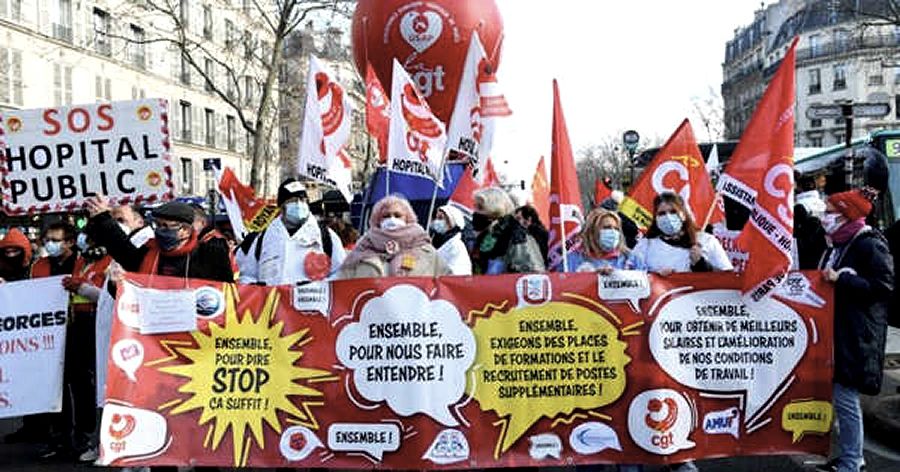
A week after Emmanuel Macron's announcement of a "flash mission" to find solutions to the emergency crisis and just days before the legislative elections, nine unions (including CGT, SUD and CFE-CGC) and collectives (including Inter-Hospitals and Inter-Urgences) are organizing a mobilization day.
The unions and collective organizations of caregivers have planned rallies in at least 50 cities. And are convinced neither by the Ségur de la Santé which was held in 2020, nor by the announcement of a “flash mission” which should lead to new proposals at the end of June.
In a leaflet distributed for a few days and entitled "there will be deaths", the inter-union denounces the immobility of the government despite regular alerts for three years.
“Access to first aid care is more and more complicated and the hospital no longer fulfills its public service role,” reads this leaflet. “Staff are angry and tired. (...) The Philippe and then Castex governments managed on a small scale, responding to emergencies with discriminatory measures such as hiring bonuses, without consideration for the staff already in office, despised ! »
The situation of emergency services in France is more than worrying. For lack of caregivers, at least 120 services have been forced to limit their activity or are preparing for it, according to a count at the end of May from the Samu-Urgences de France association.
The main demands
This Tuesday, the latter will therefore be in the street to make their five main demands heard, "the same for three years" remind the unions:
1 ° Immediate recruitment of additional caregivers
2° General increase in wages, taking into account time constraints and arduous work
3° Reinforcement of the financial means of establishments, recruitment of administrative staff to refocus caregivers on their tasks
4° Stopping of all closures of establishments and beds;
5° Implementation of measures to guarantee access to care for all French people, in all territories.
The salary increase for caregivers in the public and private non-profit sector to the tune of 183 euros, obtained at the end of the Ségur de la Santé, will therefore not have been enough to allay fears and anger..
|
|
|
|
| Britney Delsey for DayNewsWorld |
 |
SAFE FIASCO AT STADE DE FRANCE
|
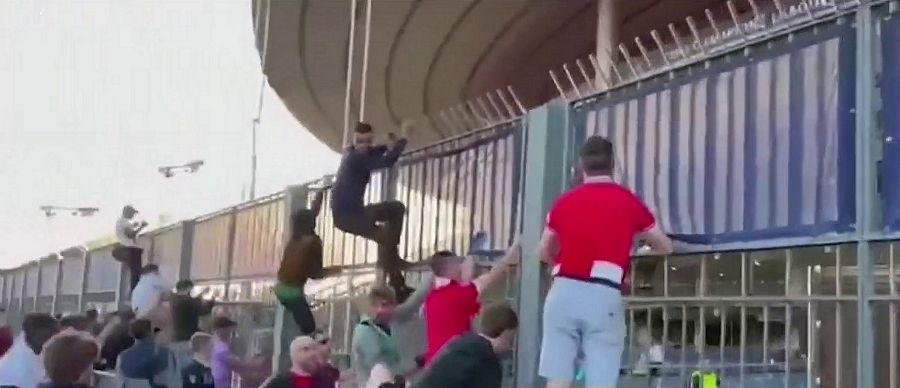 The Champions League final was postponed for a long time on Saturday May 28, 2022, due to incidents near the Stade de France (Seine-Saint-Denis). The gala match hasindeedtransferred to the debacle around 7:30 p.m. A kick-off postponed for more than thirty-five minutes. Images of congested supporters then sprayed with tear gas around the Stade de France. Intruders stepping over the gates of the enclosure. Stripped supporters. 27OO ticketed British supporters were unable to enter. The fiasco is resounding for the organization, and invites itself in the political field while the first round of the legislative elections is held in ten days. Between scenes of violence and overwhelmed security, the organization of the event was a serious failure.
An influx of Liverpool supporters with counterfeit tickets
This is the official version on which the Ministries of the Interior, Sports and UEFA agree. According to them, "thousands" of British supporters resorted to counterfeit tickets in an attempt to attend the Mersey club final. For the time being, it is difficult to know the extent of the phenomenon, even if a source within the organization assures us that a large number of these tickets have been identified. The FSE association evokes a “marginal” subject. One point may have favored the multiplication of these counterfeits. The Liverpool club, of which 20,000 supporters had valid tickets, asked to have paper tickets for the event. A support easier to divert than its electronic equivalent. Between 25,000 and 30,000 counterfeit banknotes were identified on Saturday evening. The prefect of police of Paris,
300 to 400 offenders
But a horde of young delinquents from the neighborhoods were also largely responsible for the mess that was created at the Stade de France. The number of 300 to 400 young people who looted personal effects and tickets for the match is mentioned. These young people also committed physical violence against the supporters present to enter the stadium. "We have undocumented thugs and city thugs who came opportunely to rob mainly Spanish and English spectators by stealing their personal effects, mobile phones and wallets and there were many thefts from vehicles parked around the Stade de France”, reported Matthieu Valet, spokesperson for the independent union of police commissioners to CNEWS. In addition, Jérôme Jimenez, Ile-de-France UNSA Police spokesperson,
Liverpool supporters and British officials were furious on Sunday. The Liverpool club immediately called for the opening of an investigation "to determine the causes of these unacceptable problems". On Sunday, Britain's Secretary of State for Sport, Nadine Dorries, called on "UEFA to launch a formal investigation to find out what went wrong and why, in cooperation with stadium staff, the French police, the French Football Federation, the Merseyside Police [the Liverpool region] and Liverpool FC”.
After this fiasco on Saturday, the ability of France to manage the crowds of supporters is called into question by the foreign press. An image of France once again tarnished two years before the Olympic Games in Paris.
|
|
|
|
| Alize Marion for DayNewsWorld |
 |
LABOR SHORTAGE
A THREAT TO THE HOLIDAYS |

Faced with the labor shortage as the high season approaches, several sectors are sounding the alarm. In a few weeks, on the seaside or in tourist towns, will holidaymakers find cafes closed in the middle of the day ?
Swimming pools with closed doors, crowded airports due to a lack of ground staff and summer camps canceled at the last minute for lack of facilitators ?
"It's a dark scenario, tempers Thierry Grégoire, president of Umih-Seasonals, the main employers' union in the hotel and catering industry. But it is very likely that we will have another organization of work this summer. Restaurants may close in the evening, or one or two days a week, or reduce their opening hours.
As for hotels, they may offer housekeeping every other day. Everyone will adapt. The first troubles could start at the airport. Aéroports de Paris (ADP) is concerned about the lack of maintenance technicians and security guards. Endless queues at baggage checks and flight delays are to be feared. Once at the seaside, vacationers could also see the red flag raised at the water's edge. Three quarters of aquatic structures are struggling to recruit for the summer. The risk ?
Closed swimming pools, pools open a few hours a day only and a very low offer of swimming lessons. Homair, a specialist in outdoor accommodation, is struggling to find the 300 seasonal workers it lacks in all areas (reception, sports activities, maintenance, upkeep, etc.).
Finally, some parents who planned to send their offspring to summer camp could become disillusioned. Because the directors of centers are tearing their hair out to find facilitators – not always trained – to supervise the stays.
600,000 seasonal workers needed
So the professionals pull out all the stops to unearth rare gems. Each summer, an average of 600,000 seasonal workers must be recruited (including 300,000 in the hotel and catering industry alone). All these positions are far from being filled, even if no official figure is communicated. To attract candidates, the bosses offer salaries above the minimum wage and benefits (days off, uninterrupted hours, accommodation, meals, etc.).
Overheated, temp agencies are trying to find motivated staff, sometimes failing to be qualified. But students – an essential resource for summer jobs – are shying away from overly physical, restrictive contracts this year. Waiters, lifeguards, summer camp leaders, security guards...
The summer of 2022 promises to be complicated to manage for tourism professionals, who are struggling to recruit motivated staff.
|
|
| Jaimie Potts for DayNewsWorld |
 |
LEGISLATIVE HOW JEAN-LUC MELANCHON ESTABLISHED HIS DOMINATION
ON THE LEFT PARTIES | 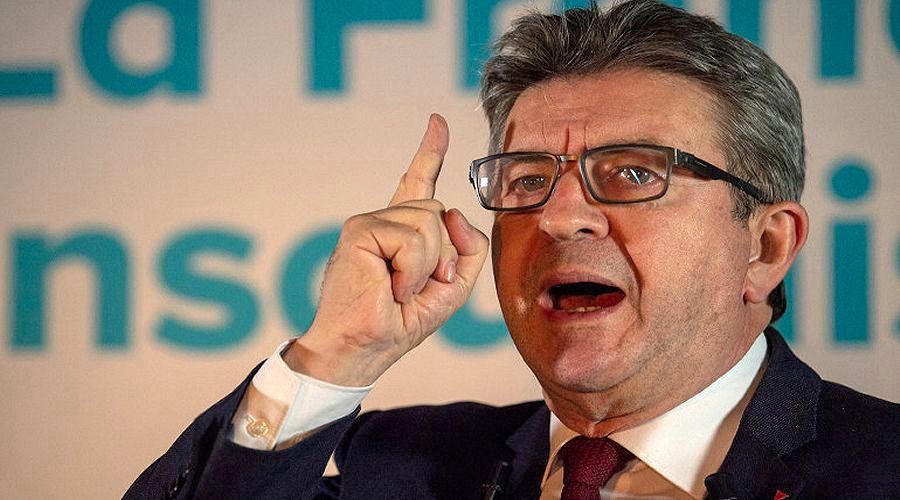
By obtaining 21.95% of the vote in the first round of the presidential election, Jean-Luc Mélenchon officially distinguished himself as the strong figure of the left-wing opposition to Emmanuel Macron. But he also wants to establish his domination over the left-wing parties in view of the legislative elections. Also on the occasion of the traditional May Day parades, Jean-Luc Mélenchon urged other left-wing groups and environmentalists to join La France Insoumise (LFI) without delay within its "Popular union", in order to to achieve a majority opposed to Emmanuel Macron in the National Assembly during the June legislative elections. "We took the matured, considered decision to sacrifice everything to the objectives of the fight, [...] to pass over divisions which had a deep reason and which we could not overcome", he said. explained on Sunday. The only subject now, "is to know if we set ourselves the goal of victory", added the deputy of Bouches-du-Rhône who shook hands with the first secretary of the PS, Olivier Faure, from the start of the Parisian procession. . Negotiations with EELV, the PS and the PCF were in full swing this weekend in order to conclude a possible agreement before May 3, the anniversary of the victory of the Popular Front in 1936. Faced with the imminence of an agreement, the central question is: yes to an electoral coalition but which one and at what price ?
First successful bet for Jean-Luc Mélenchon: LFI-EEVL agreement
La France insoumise and Europe Écologie-Les Verts (EELV) have reached a historic agreement for the June legislative elections on the night of Sunday to Monday. With EELV, the weekend indeed made it possible to make the final compromises, around the relationship to Europe ("disobedience" but only to certain economic and budgetary rules if necessary), the common label ("New People's Ecological and social”) or even on the division of constituencies, the most fiercely debated subjects. Another decided question: in the event of a majority in the National Assembly, "the Prime Minister would come from the largest group in the Assembly", ie Jean-Luc Mélenchon.
On the strength of a historic agreement for the legislative elections concluded with EELV, La France insoumise resumed negotiations yesterday with the PS and the PCF. The PRG will go it alone in this election, he warned.
At the PS, the difficult acceptability of an agreement with LFI
It remains to come to an agreement with the Socialist Party. A major challenge as the estrangement is deep since the departure of Jean-Luc Mélenchon from Solférino in 2008. “It is progressing, be sure that we are doing everything in our power to make it move forward”, assured Jean-Luc Mélenchon during the May Day demonstrations. Already weakened by the defeat of Anne Hidalgo in the first round of the presidential election (1.75% of the vote), the PS now finds itself threatened by the shock wave of the ongoing discussions with La France insoumise (LFI) for an agreement with the June legislative. Several PS figures, from François Hollande to Jean-Christophe Cambadélis via Stéphane Le Foll have accused party boss Olivier Faure of "submission" to LFI. "A first base of proposals" taking up the essentials of Jean-Luc Mélenchon's program was given by the party on Friday: Retirement at 60, minimum wage at 1,400 euros net, repeal of the El-Khomri law, ecological planning, changeover towards a Sixth Republic... But the document quickly set fire to the powder. "It's not an electoral alliance but a submission, I get lots of messages from activists who tell me: 'If that's it, I'm leaving'", strangled a parliamentarian in the morning. The president of Occitanie, Carole Delga, made known her disapproval on social networks by quoting Pierre MendèsFrance … and by presenting the socialist candidates for the legislative elections in the Tarn on Thursday. His Breton counterpart, Loïg Chesnais-Girard,
Failing to link their entire destiny to the LFI project for the coming term of office, will they have to hear the voice of the cynical former Prime Minister Manuel Valls who, like a bad dancer, constantly changes his waltz step? “The Socialist Party is dead (...) we have to get out of old divisions and outdated software. I say this to these sincere activists and elected officials, attached to a government, social, secular and republican left who refuse this submission: your place is alongside Emmanuel Macron, ”he proclaims.
Would the end (a few seats in Parliament) justify all the means (moral corruption) ?
The Melanchon strategy
The arm wrestling, as tough as it is, for Jean-Luc Mélenchon, this "new People's Union", extended to other forces must always remain in line with the strategy that has built its success in the presidential election.
This project of popular union for the legislative represents, indeed for him, the culmination of a long-standing strategy. A year ago, Yannick Jadot tried to become the strong man of the left by bringing together all the leaders for the presidential election. a total failure. At this meeting, Jean-Luc Mélenchon already had 2022 in mind. As of April 11, on the strength of his third place in the first round of the presidential election with 22% of the vote, the leader of the Insoumis therefore put himself in order battle to execute his vision. The objective now displayed: to unite the left for the "third round", the legislative elections, and to run for the post of Prime Minister.
And with his slogan, "Elect me Prime Minister" drawn between the two rounds, he succeeded not only in mobilizing his camp for the legislative elections but also in displaying himself as the number 1 opponent to Emmanuel Macron.
However, on April 24, Jean-Luc Mélenchon was clearly beaten: Emmanuel Macron obtained 2 million votes more than him and Marine Le Pen 421,000. He failed to rally more voters on his name and his project. Moreover, the camp he claims to lead is very clearly in the minority: the entire left won 11.2 million votes in the first round, ie 32% of the vote; in other words, the other political currents won 68% of the vote and 12.7 million more votes. The left and La France insoumise lost, by far, the presidential election, counts a journalist.
It is therefore a title that could well claim the National Rally of Marine Le Pen, unfortunate finalist of the presidential election.
|
|
|
|
| Joanne Courbet for DayNewsWorld |
 |
MACRON WHICH STRATEGIES
FOR THIS NEW FIVE-YEAR ? | 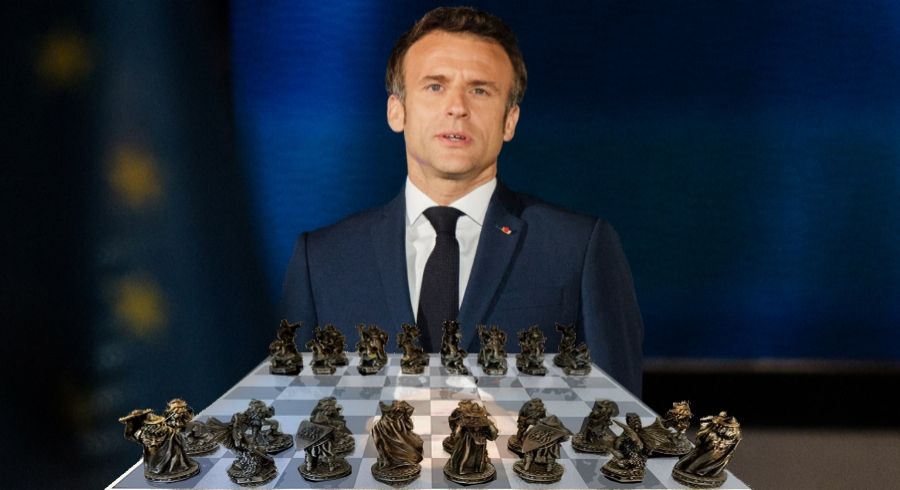
As the legislative elections are now widely perceived as a third round of the presidential election that could lead to a period of cohabitation, the strategic challenges appear numerous for Emmanuel Macron.
By becoming, at the age of 44, the first President to be re-elected by direct universal suffrage without following a period of cohabitation, Emmanuel Macron achieved an unprecedented performance in the history of the Fifth Republic.
This success, however, hides a paradoxical situation since it is accompanied by the highest abstention in the second round of a presidential election after Georges Pompidou in 1969 (31% against 28% this year) and the highest score ever obtained by a far-right candidate at this stage of the election.
The celebrations and the speech that followed the results of this second round reflected this contrasting situation. The party was short and Emmanuel Macron did not fail to underline the things he was going to have to change (need to change his method, to take into account opposition, to highlight certain themes such as ecology, etc.) even though he had just been elected with the 3rd best percentage score of the Fifth Republic (58.54% after Jacques Chirac's 82.21% in 2002 and his 66.10% in 2017) and a superior performance to the polls between the two towers.
While the legislative elections are now widely perceived as a third round of the presidential election that could lead to a period of cohabitation (which no newly elected president has ever known), the strategic challenges appear numerous for Emmanuel Macron.
The crucial choice of the Prime Minister
The 2017 legislative elections were marked by record abstention (51.3% in the first round and 57.4% in the second round) and by disunity among opponents of the new President. Driven by the momentum of Emmanuel Macron's victory, the alliance between En Marche and the MoDem had won this election by a large margin by obtaining 350 deputies out of 577 seats and the choice of a close friend of Alain Juppé, Édouard Philippe, as Prime Minister had undoubtedly contributed to this success.
The situation could be different this year if the National Rally finally decides to agree with the movement of Éric Zemmour Reconquête! or if Jean-Luc Mélenchon managed to bring together, under the banner of a new People's Union, all the leftist formations.
The first strategic challenge for the re-elected president therefore certainly lies in the choice of the new prime minister and in the impact that this appointment could have on the results of the general elections on 12th and 19th June.
After two Prime Ministers from the ranks of the right (Édouard Philippe and Jean Castex), it would seem logical, given the results of the 1st round and the announcement of a future Prime Minister in charge of ecological planning, to favor a personality more marked on the left and of ecological sensitivity. After two men, the idea of a female personality is also attractive and would respond to stated ambitions in terms of parity. The possibility of a person coming from civil society would also undoubtedly be an interesting strategic option and a sign in the direction of people who have turned away from the elections or who are demanding new forms of political expression.
After Édouard Philippe and Jean Castex, a woman at Matignon ?
The question of leadership
Two other elements will also be taken into account: the capacity of the person appointed to lead a battle in the legislative elections which promises to be particularly virulent in view of the declarations of Jean-Luc Mélenchon and the progression of votes in favor of the extreme right and the ability to get along with the President of the Republic. This last aspect refers to the question of leadership and the balance of power between the president and the prime minister. At this stage, Emmanuel Macron gives the impression of wanting to favor a more transformational leadership, relying more on trust in others and the ability to convince, and less narcissistic and Jupiterian, as he has often been criticized for. This apparent desire could also weigh in his choice.
The choices of the people who decide to work with him, like that of the alliances that will be forged, will necessarily be marked by the ambitions that the prospect of the presidential election of 2027 is already giving rise to.
But if the agreement and the complicity between the two heads of the executive are important elements, the situation which begins will also be particular insofar as Emmanuel Macron will not be able this time to succeed himself after two successive mandates. The choices of the people who decide to work with him, like the projects of the alliances that will be forged, will necessarily be marked by the ambitions that the prospect of the presidential election of 2027 is already giving rise to. Personal strategies risk colliding and his ability to control the power and balance of power of each other will be a key element as the end of his five-year term approaches.
The issue of alliances
In terms of alliances, the coopetition strategies (a term designating cooperation between competitors) that Emmanuel Macron will try to put in place also risk being affected by this deadline and it is likely that competition will quickly take precedence over cooperation and collaboration.
The results of this presidential election seemed to mark the end of the right/left divide which had structured the Fifth Republic until 2017. This historical bipolarization has given way to a French political spectrum made up of three blocks.
In this new landscape, the presidential movement represents an enlarged center. Emmanuel Macron's ability to bring together, for the legislative elections and over the next five years, former members of the Socialist Party and the UMP, tempted by the gathering of patriots from all sides desired by Marine Le Pen, the Union of the Rights defended by Éric Zemmour or the new People's Union advocated by La France Insoumise, will be crucial if he wishes to carry out his projects.
The Macronian “at the same time” symbol of a paradoxical world ?
Finally, the most difficult challenge for Emmanuel Macron in the period that opens will perhaps concern the sustainability of his doctrine of "at the same time". This calls for taking into account the complexity of the world around us to justify seemingly opposing actions and projects.
This approach notably echoes the theory of paradoxes increasingly used today in management science to understand and resolve the tensions arising from contradictory injunctions and paradoxical situations faced by organizations.
At a time when Emmanuel Macron's main opponents reproach him for the lack of radicalism in his decisions, the first question is whether such a strategy can enable him to gather and obtain a majority to govern after the legislative elections. next June. Above all, can this approach respond effectively to problems as profound as the strength of migratory flows, purchasing power difficulties or environmental issues ?
Beyond the actions necessary to reconcile rural and urban, globalist and national, rich and poor, the strategy advocated by Emmanuel Macron in environmental matters, and focused both on strong economic growth and on the preservation of the planet, could well come up against the limits of his “at the same time” method.
This is undoubtedly the biggest strategic challenge facing Emmanuel Macron if he wants to make his second five-year term a recognized and indisputable success.
According to Olivier Guyottot in TheConversation, teacher-researcher in strategy and political science, INSEEC Grande École. |
|
|
|
| Simon Freeman for DayNewsWorld |
 |
THE RE-ELECTION OF EMMANUEL MACRON
OR A DEFAULT VICTORY | 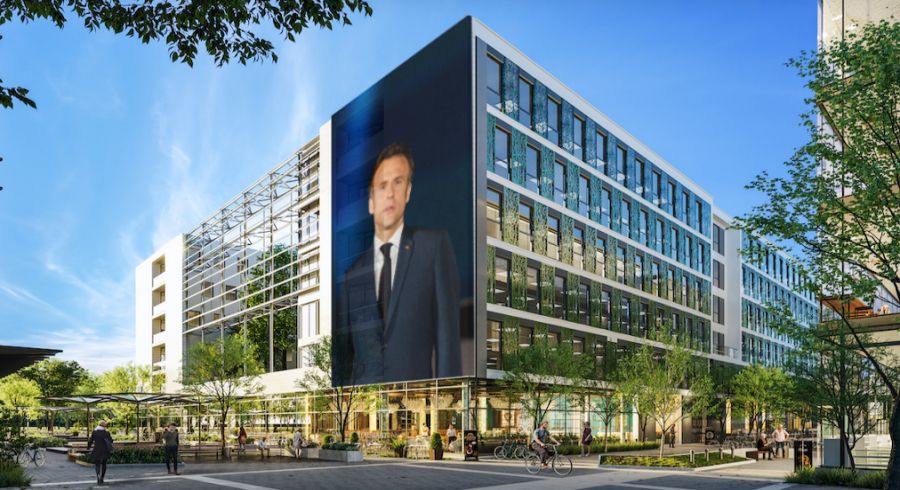
The re-election of Emmanuel Macron against Marine Le Pen in the second round of the presidential election, on April 24, 2022, does not come as a big surprise when we know that the Republican front was set up between -two-tower.
This success is also in line with the results of the first round, which had interrupted a dynamic that seemed to benefit, at the beginning of April, the main opponents of Emmanuel Macron (Marine Le Pen and Jean-Luc Mélenchon): with 4.5 points and 1.6 million voters ahead of his pursuer, the outgoing president approached this second round in a favorable tie situation, especially since he could count on the support of a larger number of candidates in the first round (Pécresse, Jadot, Roussel, Hidalgo – against Zemmour and Dupont-Aignan) as well as on Jean-Luc Mélenchon's repeated appeal not to “give a single voice to Mrs. Le Pen”.
Emmanuel Macron's victory should not, however, hide the lessons of the ballot.
The Three Teachings
First: Only 33% of his voters say they voted for him on his policy proposals. A victory yes, but a victory by default, even if one in two of his voters also voted for his presidential stature.
Second: Never has a far-right candidate been so high under the Fifth Republic, never have the French seemed so divided. Nor as defiant towards politics, to see the record rate – except for the Pompidou-Poher second round of the 1969 presidential election – of abstention: 28.01% (final figure). Almost one in three voters.
Third: Melancholy voters in the second round did not behave mechanically and uniformly. 38% of them abstained and 8% voted blank or null. On the other hand, the votes carried over were more in favor of Emmanuel Macron (36%) than Marine Le Pen (18%) but with however an increase of 10% compared to 2017. A significant proportion voted for Marine Le Pen, especially in the countryside, where Le Pen is now the majority, in this "peripheral France" described by Christophe Guilluy as well as in the overseas territories.
A fractured country
Doesn't the Ipsos-Sopra Steria survey also point out that 77% of French people think, after this election, that "there will be unrest and tension in the country in the coming months"? Equally worrying, 20% of those polled confide that their feelings after this re-election are “disappointment” (20% saying they are relieved) and 18% say they are angry. After a first five-year term marked by the Yellow Vests crisis, such a feeling is obviously not to be neglected.
Well aware of this deep divide, Emmanuel Macron tried to reassure this other France, also addressing these voters in his victory speech at the foot of the Eiffel Tower, late in the evening. "I am no longer the candidate of a camp but the president of all," he says. Reducing the divide, calming the country will be his first task. “We will have to be benevolent and respectful, because our country is steeped in so many doubts and so many divisions”, he warns, serious, in contrast to the joy of the supporters.
But reducing the divide, calming the country will not be easy, especially in such a tense context, with the war in Ukraine, the economic and social effects of which are added to those of the pandemic. The defeated in the 2 nd round as in the 1 st are not mistaken, who launched, barely proclaimed the results of the presidential election, the battle of the 3 rd round, the legislative elections of 12 and 19 June.
“A resounding victory” for Le Pen
Without even giving Emmanuel Macron time to join his supporters on the Champ-de-Mars to open the champagne, Marine Le Pen, Jean-Luc Mélenchon and Éric Zemmour sparked hostilities. “The result represents in itself a resounding victory”, she proclaims from the pavilion of Armenonville, in the Bois de Boulogne. For the legislative battle, she leaves no doubt about her determination. “I will lead this battle alongside Jordan Bardella […], I will continue my commitment to France and the French,” promises Marine Le Pen to her supporters. It even displaysits strategy calling for a broad rally on the right, in order to "present or support candidates everywhere". Targeted, the right wing of LR, the sovereignists of Nicolas Dupont-Aignan and of course above all the new Reconquest party of his rival Zemmour…
For his part, intervening shortly afterAfter the announcement of the results, Jean-Luc Mélenchon tackled "the worst elected president of the Fifth Republic" according to him.And wants to be "elected" Prime Minister.
The third man therefore – shortly behind the RN candidate – of the 1st round, Jean-Luc Mélenchon, to proclaim: “The 3rd round begins this evening”. |
|
| Garett Skyport for DayNewsWorld |
 |
FRENCH ELECTION EMMANUEL MACRON
ELECTED PRESIDENT OF THE REPUBLIC
|
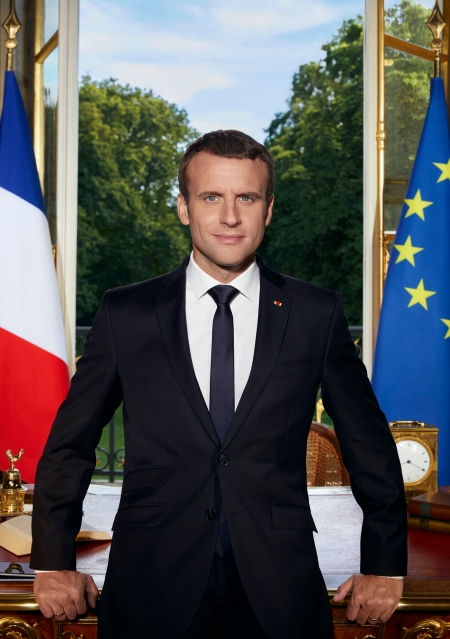
"This vote obliges me for the years to come", declares Emmanuel Macron at the Champ-de-Mars.
Emmanuel Macron was re-elected president for a second term against Marine Le Pen with 58.5% of the vote, according to Ifop.
Abstention, up from 2017, is estimated at 28.3%.
However, a majority of French people do not want Emmanuel Macron, just re-elected President of the Republic, to win the June legislative elections, according to two polls published on Sunday evening.
According to an Opinionway poll for Cnews and Europe 1, 63% of those questioned want Emmanuel Macron "not to have a majority and be forced to cohabit" , compared to 35% who want him to "have a majority in the National Assembly and can carry out its policy" (and 2% who do not comment).
Just-elected Emmanuel Macron dines with his relatives at La Lanterne.
At the same time, on the Place de la République in Paris, the few hundred demonstrators gathered promise to "redo Nuit Debout" and laboriously try to launch Act 1 of the new five-year term.
Emmanuel Macron said:
“We will have to be demanding and ambitious. The war in Ukraine is there, to remind us (that) France must raise its voice to show the clarity of its choices and show its strength in all areas, ”explained Emmanuel Macron at Champ-de-Mars.
“We will have to be benevolent and respectful because our country is steeped in so many doubts, so many divisions. No one will be left by the wayside. It will be up to us together to work for this unity through which we can live happier in France. The years to come will certainly not be quiet, but will be historic, and we will be able to write them for our generation!
And to conclude:
"This new era will not be the continuity of the five-year period which is ending", promising a "refounded method".
“Each of us will have to commit to it. This is what makes the French people this singular force that I love so deeply, so intensely, and that I am so proud to serve again. Long live the Republic and long live France!”.
In conclusion :
Emmanuel Macron was re-elected Sunday, April 24, 2022 President of the French Republic.
Good luck to France and he will need it !!! |
|
|
|
| Jenny Chase for DayNewsWorld |
 |
There are no translations available.
LE McKINSEYGATE OU LE POISON
DANS LA CAMPAGNE D' EMMANUEL MACRON
|
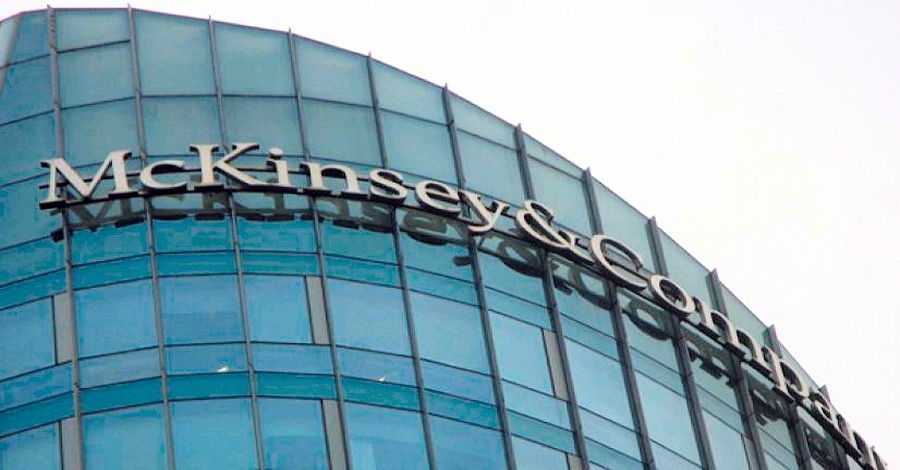 Le scandale McKinsey continue de prendre de l’ampleur. Au pavé dans la mare politique s’ajoute désormais une affaire judiciaire. Le Parquet national financier (PNF) indique en effet dans un communiqué avoir ouvert le 31 mars une enquête préliminaire pour blanchiment aggravé de fraude fiscale à l’encontre du cabinet de conseil. La justice s’appuie sur le rapport de la commission d’enquête du Sénat, accusant les entités françaises du cabinet McKinsey d’optimisation fiscale, de telle sorte qu’elles n’auraient versé aucun impôt sur les sociétés entre 2011 et 2020. Le scandale McKinsey continue de prendre de l’ampleur. Au pavé dans la mare politique s’ajoute désormais une affaire judiciaire. Le Parquet national financier (PNF) indique en effet dans un communiqué avoir ouvert le 31 mars une enquête préliminaire pour blanchiment aggravé de fraude fiscale à l’encontre du cabinet de conseil. La justice s’appuie sur le rapport de la commission d’enquête du Sénat, accusant les entités françaises du cabinet McKinsey d’optimisation fiscale, de telle sorte qu’elles n’auraient versé aucun impôt sur les sociétés entre 2011 et 2020.
Dans ce rapport remis le 16 mars, la commission d’enquête du Sénat, initiée par le petit groupe CRCE à majorité communiste, assurait que les contrats conclus par l’État avec les cabinets de consultants comme McKinsey avaient « plus que doublé » entre 2018 et 2021, atteignant un montant record de plus d’un milliard d’euros en 2021. McKinsey avait affirmé respecter les règles fiscales françaises, précisant qu’une de ses filiales avait payé l’impôt sur les sociétés pendant six ans sur la période au cours de laquelle le Sénat l’accuse d’ optimisation fiscale. Les élus du Palais Bourbon estiment en effet à plus d'un milliard d’euros l’enveloppe allouée par le gouvernement à ces conseils en tous genres (pas uniquement McKinsey.) Ce chiffre a plus que doublé en cinq ans.
« Que ça aille au pénal », c’est fait .
L’enquête du PNF, ouverte après « des vérifications », a été confiée au Service d’enquêtes judiciaires des finances (SEJF), précise Jean-François Bohnert dans ce communiqué qui ne mentionne pas le nom de McKinsey.
A deux semaines du premier tour de la présidentielle, les oppositions politiques au chef de l’Etat ont depuis demandé de manière répétée l’ouverture d’une enquête sur ce qu’elles considèrent comme du favoritisme dont la majorité macroniste ferait preuve au profit de ce cabinet de conseil, dont certains membres ont œuvré pour la campagne présidentielle 2017 d’Emmanuel Macron.
Le président-candidat Emmanuel Macron a alors mis au défi ses accusateurs : « s’il y a des preuves de manipulation, que ça aille au pénal », a-t-il ainsi lancé lors d’une émission dimanche 27 mars 2022, sur France 3. Face à la virulence des réactions, le Président, tentant de se justifier pour éteindre la polémique, a donc choisi la solution offensive, en invitant ses accusateurs à régler le problème devant les tribunaux , une attitude qui rappelle furieusement le « qu'ils viennent me chercher
» dans l'affaire Benalla. Le président candidat estimait notamment que
le non-paiement de l’impôt sur les sociétés par McKinsey s’expliquait
par les règles fiscales en vigueur.
Le PNF l’a donc entendu !
Si, dans leur rapport, les sages y décrivent des pans entiers de la puissance publique tombés sous l’influence de consultants, pour beaucoup issus de sociétés anglo-saxonnes, les sénateurs mettent également en avant l'explosion des dépenses liées au conseil dans les différents ministères. En 2021, ce sont plus d’un milliard d’euros qui ont été versés dont 893,9 millions par les ministères à plusieurs cabinets de conseil, pas seulement McKinsey. Ce chiffre a plus que doublé en quatre ans.
Doublée d'optimisation fiscale
Autre élément pointé par le rapport concerne la fiscalité, les parlementaires allant même jusqu'à parler d'un « exemple caricatural d'optimisation fiscale » . D'autant que la maison mère se trouve au Delawere, « considéré par l'OCDE et l'article 238-A de notre Code des impôts comme disposant d'un "régime fiscal privilégié" propre à focaliser l'attention française. « Le constat est clair : le cabinet McKinsey est bien assujetti à l'impôt sur les sociétés en France mais ses versements s'établissent à zéro euro depuis au moins dix ans, alors que son chiffre d'affaires sur le territoire national atteint 329 millions d'euros en 2020, dont environ 5% dans le secteur public, et qu'il y emploie environ 600 salariés ».
Face au tollé suscité par la publication de ce rapport sénatorial, McKinsey a tenu à rappeler qu'elle respectait « l'ensemble des règles fiscales et sociales françaises applicables ». Mais malgré tout, le Sénat continue de douter sur la véracité de ces déclarations et a annoncé vendredi 25 mars avoir saisi la justice pour « suspicion de faux témoignage ». Karim Tadjeddine est un proche d'Emmanuel Macron, artisan de sa campagne en 2017. Lors de son audition au Sénat, il reconnaît avoir mélangé les genres en utilisant son adresse McKinsey pendant la campagne de 2017 pour ses conseils de campagne. Il admet que c'était une « erreur »...
Pour ces raisons notamment le sujet du « McKinsey Gate » s’est immiscé dans la campagne présidentielle
Opacité du système et des conflits d’intérêt : la campagne de 2017
L'opacité du système s’appuie par ailleurs sur la présence historique de consultants dans les différents écosystèmes de la macronie. Selon le magazine M, une dizaine de salariés de McKinsey ont participé à l’élaboration du programme d’Emmanuel Macron en 2017, et les allers-retours sont nombreux entre la « firme » McKinsey et la macronie.
Mais pour qui travaille au fond McKinsey sur les deniers de l'État ?
Le rapport du Sénat ne tire aucune conclusion à ce propos, mais c'est une question qui se pose en filigrane à la lecture de ce rapport. Ce n'est qu'un des aspects de ce phénomène « tentaculaire » décrit par le Sénat. D'ailleurs le
gouvernement actuel ne rend pas publics les rapports qu’il a commandés
au cabinet privé, au point que, dans le rapport que le Sénat lui
adresse, est mentionné le principe selon lequel «
l’intervention des consultants doit rester discrète : lors de la crise
sanitaire, McKinsey indique qu’il restera “behind the scene”, en accord
avec le ministère. Le cabinet n’utilise pas son propre logo pour rédiger
ses livrables mais celui de l’administration ». Pourquoi alors qu'ils sont réalisés sur les deniers de l'Etat ?
Selon la politologue Chloé Morin, qui s’est interrogée sur l’efficacité de l’administration dans Les inamovibles de la République (l’Aube) en 2020, l’affaire McKinsey représente un « point de fragilité qui peut coûter cher au candidat Macron » .
Les macronistes savent que cette polémique a plus de chances que les autres de s’installer dans le paysage. « Elle entre en résonance avec le procès fait au macronisme : le monde de l’argent, la confusion public-privé, l’ancien banquier de Rothschild, le soutien des grands patrons », énumère un conseiller. |
|
|
|
| Garett Skyport pour DayNewsWorld |
 |
There are no translations available.
L'ECART SE RESSERRE ENTRE MACRON ET LE PEN
|
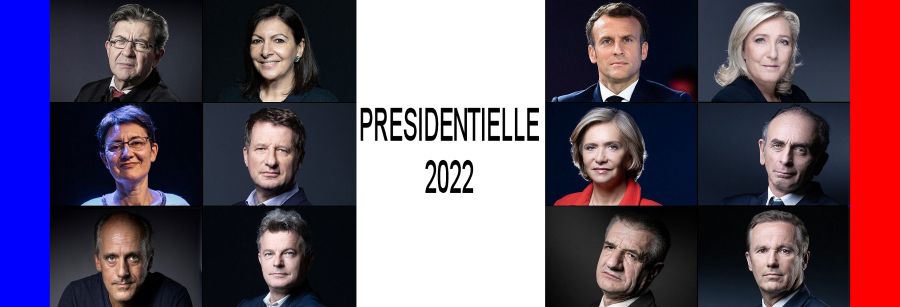 Si Emmanuel Macron demeure en tête au premier tour, l'écart avec Marine Le Pen au second tour se réduit cependant brutalement, selon un sondage Elabe publié mercredi 30 mars. Le président sortant repart légèrement à la hausse avec 28 % des intentions de vote (+ 0,5 point) au premier tour après une forte chute dans l'enquête réalisée la semaine dernière pour BFMTV et L'Express avec SFR. En revanche, l'écart entre Emmanuel Macron et la candidate du RN Marine Le Pen se réduit de sept points au second tour à 52,5 % face à 47,5 %.Les deux candidats étaient donnés respectivement à 56 % et 44 % la semaine passée. Marine Le Pen confirme sa tendance à la hausse dès le premier tour (21 %, + 1 point), déjà observée dans les différentes études au long du mois de mars. Elle progresse, notamment en cas de duel face à Emmanuel Macron au second tour, portée par une campagne axée sur le pouvoir d'achat. Si Emmanuel Macron demeure en tête au premier tour, l'écart avec Marine Le Pen au second tour se réduit cependant brutalement, selon un sondage Elabe publié mercredi 30 mars. Le président sortant repart légèrement à la hausse avec 28 % des intentions de vote (+ 0,5 point) au premier tour après une forte chute dans l'enquête réalisée la semaine dernière pour BFMTV et L'Express avec SFR. En revanche, l'écart entre Emmanuel Macron et la candidate du RN Marine Le Pen se réduit de sept points au second tour à 52,5 % face à 47,5 %.Les deux candidats étaient donnés respectivement à 56 % et 44 % la semaine passée. Marine Le Pen confirme sa tendance à la hausse dès le premier tour (21 %, + 1 point), déjà observée dans les différentes études au long du mois de mars. Elle progresse, notamment en cas de duel face à Emmanuel Macron au second tour, portée par une campagne axée sur le pouvoir d'achat.
Les inquiétudes économiques s’imposent en effet comme le thème dominant de la campagne. Selon la toute dernière vague de l’enquête électorale du CEVIPOF -Sciences Po Paris réalisée les 21-24 mars, 58 % des Français déclarent que les prix et le pouvoir d’achat auront une influence importante sur leur vote en avril, soit une hausse de 6 % depuis début mars. La flambée des prix de l’énergie s’ajoute à l’inflation qui a accompagné la reprise de l’économie française après les confinements liés à la pandémie de Covid-19. Comme ailleurs en Europe, les prix du carburant ont grimpé en flèche en
France à la suite de l’invasion de l’Ukraine par la Russie. Les questions liées au pouvoir d’achat s’imposent dans la campagne
Le résultat du premier tour de l’élection présidentielle dépendra en grande partie de la réponse des divers candidats aux questions de pouvoir d’achat, d’augmentation des prix et de protection des Français face à l’impact économique de la guerre.
Anticipant « une crise qui va s’installer », le gouvernement de Jean Castex a d’ores et déjà souligné l’importance de soutenir l’économie française en élaborant un plan d’urgence de « résilience ». Après le « quoi qu’il en coûte » pendant la pandémie de Covid-19, ce nouveau plan de 7 milliards d’euros est destiné à aider les entreprises et les ménages à faire face à la hausse des coûts de l’énergie suite aux sanctions économiques imposées par l’Occident à la Russie.
Face à ses deux principaux concurrents à droite, la candidate du Rassemblement national a très tôt choisi une voie économique différente, mettant l’accent sur le pouvoir d’achat, la santé, la défense des services publics et la redistribution.
Avant même l’invasion de l’Ukraine par la Russie, la candidate du Rassemblement national avait promis un « choc de pouvoir d’achat » en s’engageant à « protéger notre peuple » et à « rendre leur argent aux Français ». il permet à la candidate du RN d’asseoir sa crédibilité en tant que candidate du « pouvoir d’achat » auprès des catégories populaires et des classes moyennes les plus inquiètes de l’impact économique de la crise.Une analyse statistique du projet présidentiel de Marine Le Pen montre que la composante de « redistribution » représente pas moins des deux tiers (66 %) de son programme économique : il s’agit là du pourcentage le plus élevé depuis la percée électorale du FN au milieu des années 1980
Ce positionnement à la gauche économique, associé à la rhétorique populiste et nationaliste traditionnelle du RN opposant les élites économiques et politiques « mondialistes » au peuple, dessine les contours d’un « social-populisme » qui distingue aujourd’hui très clairement Marine Le Pen de ses autres compétiteurs à droite, y compris Éric Zemmour : le programme économique du candidat de Reconquête réunit au total 43 % de mesures d’orientation libérale, plus du double de celui de la présidente du RN.
Mélenchon, le troisième homme
Le candidat de l'Union populaire Jean-Luc Mélenchon affermit sa position de troisième homme (15,5 %, + 0,5 point) à bonne distance devant le candidat Reconquête ! Eric Zemmour (10,5 %, + 0,5 point) et de la candidate LR Valérie Pécresse, toujours cinquième dans le sondage (9,5 %, - 0,5 point). Dimanche 3 avril, la représentante de la droite sera présente au Parc des expositions de la porte de Versailles, à l'occasion de son tout dernier meeting en Île-de-France.Un lieu plein de symbolique puisque Nicolas Sarkozy le connaît bien,
étant donné qu'il y avait officialisé sa candidature à l'élection
présidentielle, le 14 janvier 2007.
Mais l'ancien chef de l'Etat Nicolas Sarkozy.a tout simplement décliné l'invitation de la candidate LR aux présidentielles |
|
|
|
| Emily Jackson pour DayNewsWorld |
 |
There are no translations available.
OCTROYER L'AUTONOMIE A LA CORSE POUR METTRE FIN AUX VIOLENCES ?
|
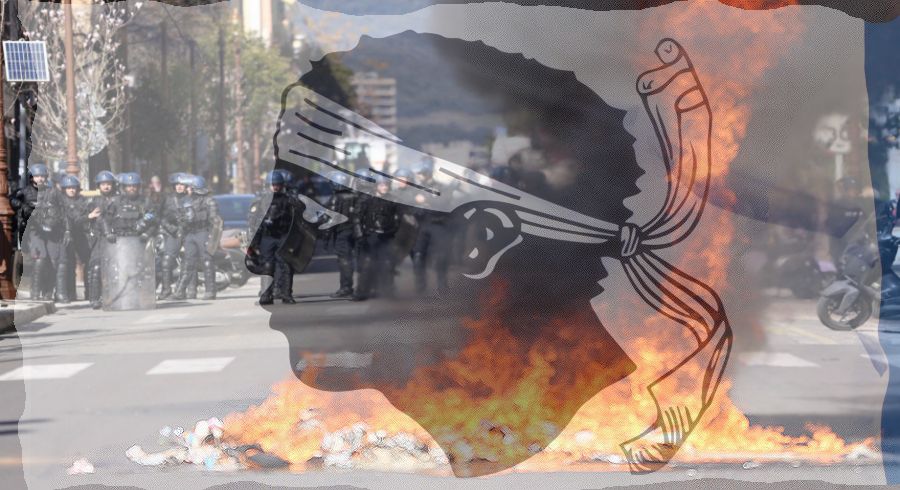 Le militant indépendantiste corse est mort lundi 21 mars à Marseille où il avait été hospitalisé. Il avait été condamné pour l’assassinat du préfet Erignac en 1998. Il avait été attaqué dans sa prison à Arles par un co-détenu djihadiste, début mars. Le militant indépendantiste corse est mort lundi 21 mars à Marseille où il avait été hospitalisé. Il avait été condamné pour l’assassinat du préfet Erignac en 1998. Il avait été attaqué dans sa prison à Arles par un co-détenu djihadiste, début mars.
L’attaque sur Yvan Colonna a marqué le début d’une vague de violences sur l’île de beauté qui s’embrase progressivement sous le feu des cocktails Molotov. Dans ce contexte, après l’échec du Premier ministre à restaurer la paix par la décision de rapatriement du militant indépendantiste corse, c’est l’autonomie qui est envisagée cette fois par le ministre de l’Intérieur Gérald Darmanin pour répondre à « la gravité des événements » qui secouent l’île. L’autonomie offrirait davantage de prérogatives et de libertés à la Corse.
Le ministre de l’Intérieur Gérald Darmanin, lors d’un entretien à Corse-Matin début mars, laisse ainsi entrevoir la diversité identitaire à travers la possibilité d’une autonomie corse. En effet, c’est la reconnaissance d’une identité spécifique qui motive la mise en œuvre d’un statut juridique
Mais l’autonomie de la Corse impliquerait une révision de la constitution, et elle serait cantonnée à la sphère législative. Il pourrait s’agir à côté des compétences administratives déjà exercées par la collectivité de Corse, comme les autres collectivités territoriales françaises, de lui conférer un véritable pouvoir législatif qui dépasserait les attributions actuelles de l’Assemblée de Corse.
Elle disposerait d’un Parlement qui adopterait ses propres décisions dans des domaines matériellement importants qui reviennent actuellement au Parlement national, telles que la fiscalité ou certaines politiques de développement économique.
Cette configuration accentuerait l’autonomie différenciée qui régit déjà les territoires de la République. La plupart des collectivités ne bénéficient que d’une autonomie administrative, alors que d’autres jouissent déjà à titre exceptionnel d’une autonomie législative, telle que la Nouvelle-Calédonie dont le Congrès peut adopter des lois pays.
Une annonce éloignée de la Constitution
ll y a trente ans cependant le Conseil constitutionnel déniait l’existence d’un peuple corse avec l’idée sous-jacente que la consécration de la diversité favoriserait les contestations.
Dans sa décision du 9 mai 1991, relative à la loi portant statut de la collectivité territoriale de Corse, le Conseil constitutionnel affirmait que « la mention faite par le législateur du « peuple corse, composante du peuple français » est contraire à la Constitution, laquelle ne connaît que « le peuple français, composé de tous les citoyens français sans distinction d’origine, de race ou de religion ».
Un nouveau statut juridique de la Corse contribuerait en effet à rapprocher la France de la stratégie de l’autonomie « à la carte » pratiquée par l’État espagnol.
Cet éloignement progressif du modèle de l’État unitaire classique à travers l’octroi d’une autonomie différenciée n'ouvrirait-il pas la dangereuse boite de Pandore pour que d'autres régions françaises(Bretagne, Alsace...) demandent à leur tour ce statut démembrant alors l'Etat français? |
|
|
|
| Emily Jackson pour DayNewsWorld |
 |
There are no translations available.
MANIFESTATIONS ET VIOLENCES EN CORSE
|
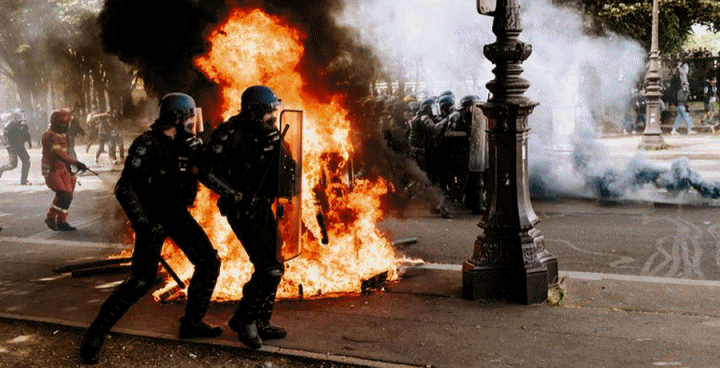
Lors de la manifestation de dimanche 13mars à Bastia, de nombreux affrontements ont eu lieu entre manifestants et forces de l'ordre, durant plusieurs heures.
Devant La Poste, un « engin explosif » a soufflé la devanture du bâtiment, ce qui a fait explosé les vitres et endommagé une partie des locaux. Les manifestants ont également réussi à pénétrer dans l'immeuble des finances publiques et à y déclencher un début d'incendie qui a endommagé deux étages. Des manifestants ont crié « Etat français assassin », lors d’un défilé qui a dégénéré en émeutes.
Scènes de guérillas urbaines
Les comptes-rendus des CRS engagés dimanche soir en Haute-Corse et transmis à leur hiérarchie font état de scènes de guérillas urbaines autour de la préfecture. Bombes artisanales, cocktail molotov, tirs de mortiers d’artifice, tirs de boules de pétanque. jet de bouteilles d’acide … Ce sont 39 CRS, 27 gendarmes mobiles et 3 policiers locaux qui ont été blessés.
Enquête ouverte
Une enquête a été ouverte lundi 14 mars 2022 pour « destruction par engin explosif en bande organisée » après l'explosion dimanche soir de la devanture d'un bureau de poste à Bastia lors de la manifestation en soutien à Yvan Colonna. L'enquête a été confiée à la police judiciaire.
La manifestation a rassemblé 7 000 personnes d'après la préfecture. 300 individus cagoulés ont jeté des coktails molotov, pavés ou bombes agricoles en direction du bâtiment, des forces de l'ordre ou de la collectivité de Corse.
« Ouvrir un véritable dialogue »
Cela alors même que les autonomistes, branche modérée des nationalistes, ont conquis, sous la houlette de Gilles Simeoni, non seulement la présidence du conseil exécutif de Corse mais la majorité absolue à l’Assemblée de Corse. Gilles Simeoni appelle urgemment le gouvernement à « ouvrir un véritable dialogue ». La réforme constitutionnelle lancée en 2018 mais bloquée par le Sénat ouvrait la voie à un statut plus différencié pour l’île, conférant de nouveaux pouvoirs réglementaires à la Collectivité de Corse, y compris en matière fiscale.
Mais la flambée de colère déclenchée par l’agression contre Yvan Colonna ne va pas aider M. Simeoni à défendre la stratégie non violente à laquelle il se tient. Vendredi 11 mars ,
le Premier ministre Jean Castex avait annoncé la levée du statut de DPS ,
de détenu particulièrement signalé, pour les deux derniers membres du
« commando Erignac », Alain Ferrandi et Pierre Alessandri. Cette
décision ouvre la voie à leur potentiel rapatriement dans une prison
Corse mais elle n'a pas réussi à calmer la colère des manifestants sur l'île
de Beauté.
Gilles Siméoni espère l’ouverture d’un dialogue durable avec le gouvernement. Le ministre Darmanin se rendra sur l'île mercredi 16 mars. Il en va du processus même de désescalade sur l’île de Beauté bien mis à mal ce dimanche. Ces derniers événements soulignent aussi l’occasion manquée avec la Corse pendant le quinquennat d’Emmanuel Macron.
|
|
|
|
| Boby Dean pour DayNewsWorld |
 |
There are no translations available.
PRÉSIDENTIELLE 2022 REVENUS ET PATRIMOINE DES CANDIDATS
|
 Immobilier, biens supérieurs à 10 000 euros, voitures, comptes bancaires, mais aussi participations dans le capital de sociétés, dettes éventuelles et activités professionnelles des cinq dernières années : chacun a dû remplir ces rubriques et remettre ses déclarations, certifiées sur l'honneur, au Conseil constitutionnel. C'était l'une des conditions, avec l'obtention des 500 parrainages, pour pouvoir concourir au premier tour le 10 avril. Immobilier, biens supérieurs à 10 000 euros, voitures, comptes bancaires, mais aussi participations dans le capital de sociétés, dettes éventuelles et activités professionnelles des cinq dernières années : chacun a dû remplir ces rubriques et remettre ses déclarations, certifiées sur l'honneur, au Conseil constitutionnel. C'était l'une des conditions, avec l'obtention des 500 parrainages, pour pouvoir concourir au premier tour le 10 avril.
Ce mardi 8 mars 2022, la Haute autorité pour la transparence de la vie publique a rendu publiques les déclarations de revenus et de patrimoine des candidats à l’élection présidentielle, avec quelques curiosités qui attirent l’œil.
Valérie Pécresse peut se targuer d’être à la tête du patrimoine le plus important, à environ 9,7 millions d’euros. Seules frivolités au sein de ce patrimoine, quelques tableaux d’art contemporain et une lithographie de l’artiste catalan Joan Miró valorisée à 14.000 euros. À noter en revanche qu’Emmanuel Macron ne déclare aucun patrimoine immobilier, et une fortune personnelle d’un peu moins de 500.000 euros. Emmanuel
Macron avait déjà remis, fin 2021, une déclaration de situation
patrimoniale de fin de mandat. La HATVP avait jugé que sa variation
depuis son entrée à l'Elysée en 2017 ne présentait "pas de caractère
anormal". Il a perçu 900 000 euros de revenus nets imposables entre le
début de son mandat et le 31 décembre 2021.
Marine Le Pen, elle, affiche l’une des lignes les plus impressionnantes de ces déclarations du fait du prêt de 10 millions d’euros contracté en son nom auprès d’une banque hongroise pour mener la campagne présidentielle de 2022. Un emprunt qui avait jusqu’alors été rendu public par RTL, mais pas confirmé par le Rassemblement national.
Le patrimoine d’Éric Zemmour, dont la sortie sur « les riches » avait beaucoup fait parler en novembre est assez élevé. Si le candidat d’extrême droite excluait de ladite catégorie « les propriétaires d’un appartement de 100m² à Paris », lui voit bien plus loin, avec les cinq logements qu’il possède pour une valeur totale de 2.886.440 euros.
Et cela sans même évoquer les revenus qu’il déclare, lesquels vont de 242.000 à près de 700.000 euros annuels au cours des cinq dernières années. Le fruit du salaire perçu au Figaro, mais surtout de la gérance de la maison d’éditions Rubempré, avec laquelle il édite ses livres, et des droits d’auteur qu’il perçoit. Le candidat de Debout la France ! est propriétaire de quatre biens immobiliers, pour un total de 2,16 millions d'euros, dont un appartement de 105 m² à Paris, évalué à 1,4 million d'euros. Il possède également quelque 26 000 euros sur ses comptes, une sculpture d'une valeur de 25 000 euros. Il doit encore rembourser près de 190 000 euros d'emprunt immobilier. Le député de l'Essonne tire l'essentiel de ses revenus de ses fonctions électives. Le patrimoine du candidat de La France insoumise est principalement composé d'un appartement à Paris, évalué à 1,2 million d'euros, d'une maison dans le Loiret pour 170 000 euros, ainsi que 95 000 euros sur divers comptes bancaires. Jean-Luc Mélenchon doit cependant encore rembourser près de 100 000 euros d'emprunt immobilier. La maire de Paris Anne Hidalgo et candidate socialiste est propriétaire, avec son mari, d'une maison de 118 m² à Paris, dont Anne Hidalgo détient 50%, soit 692 859 euros, et pour laquelle elle doit rembourser 207 628 euros. Elle dispose aussi d'environ 100 000 euros sur différents comptes bancaires. Le président-candidat Jean Lassalle a déclaré, comme en 2017, un patrimoine principalement constitué de comptes bancaires et d'instruments financiers, comme un Livret de développement durable de 120 000 euros ou encore un Livret A de 22 000 euros. Il détient également une assurance-vie dont la valeur de rachat s'élève à 113 000 euros. Il lui reste environ 122 500 euros à rembourser sur un prêt pour travaux contracté en 2011. L'essentiel du patrimoine du candidat EELV Jadot se compose de 337 700 euros répartis sur cinq comptes bancaires, d'un contrat d'assurance-vie de 67 000 euros et d'un scooter électrique évalué à 4 000 euros. Son mandat d'eurodéputé lui assure un revenu de 108 900 euros brut par an.
À l’opposé du spectre politique, on retrouve une déclaration de richesse aux antipodes en ce qui concerne Philippe Poutou. Le candidat du Nouveau parti anticapitaliste (NPA) assure ainsi ne posséder aucun bien immobilier et pour seul bien de valeur une Peugeot 308 SW de 2020, estimée à 22.500 à l’Argus. Une déclaration qui se rapproche de celle de Nathalie Arthaud, simplement propriétaire d’un appartement de 48 mètres carrés en Seine-Saint-Denis.
Pour en revenir aux véhicules, Yannick Jadot ravira probablement ses électeurs en affichant son scooter électrique d’une valeur de 4000 euros.
Nicolas Dupont-Aignan, lui, déclare comme Philippe Poutou posséder une Peugeot 308, mais dans sa version coupé-cabriolet, achetée d’occasion pour 7500 euros en 2018.
|
|
|
|
| Boby Dean pour DayNewsWorld |
 |
There are no translations available.
LE CANDIDAT EMMANUEL MACRON SORT DU BOIS
|
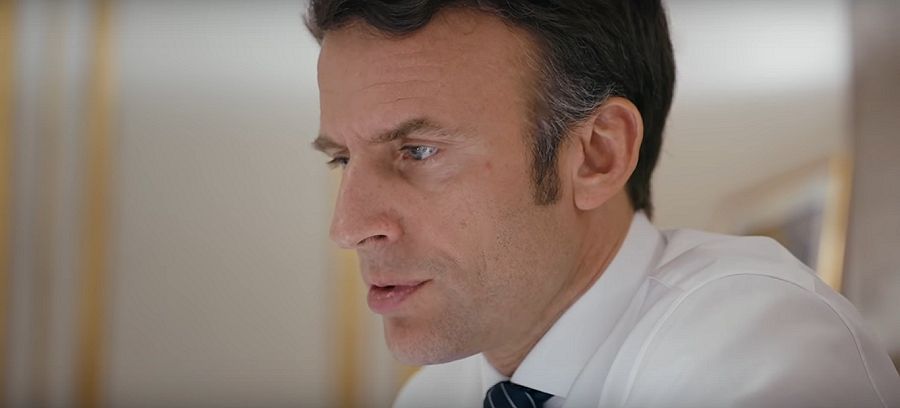 Le président de la République explique dans une lettre aux Français, transmise jeudi soir à la presse régionale, pourquoi il brigue un second mandat à l'Elysée.Sa candidature était un secret de polichinelle. Encore fallait-il l'officialiser. Emmanuel Macron a annoncé, jeudi 3 mars, qu'il était candidat à sa propre succession. Une déclaration très tardive, puisque la récolte des 500 parrainages d'élus requis pour se présenter à l'élection présidentielle prend fin vendredi. Le chef de l'Etat dispose cependant déjà des signatures nécessaires. Le président de la République explique dans une lettre aux Français, transmise jeudi soir à la presse régionale, pourquoi il brigue un second mandat à l'Elysée.Sa candidature était un secret de polichinelle. Encore fallait-il l'officialiser. Emmanuel Macron a annoncé, jeudi 3 mars, qu'il était candidat à sa propre succession. Une déclaration très tardive, puisque la récolte des 500 parrainages d'élus requis pour se présenter à l'élection présidentielle prend fin vendredi. Le chef de l'Etat dispose cependant déjà des signatures nécessaires.
Si l'officialisation de la candidature d'Emmanuel Macron intervient à la dernière minute, le chef de l'Etat n'a cessé, depuis plusieurs mois, de semer ses petits cailloux. A maintes reprises, il a laissé entendre que son choix était déjà fait. Le 18 novembre, par exemple, il est interrogé sur ses intentions dans une interview à La Voix du Nord. « Je ne pense pas que la France ait un dernier mot à dire. Elle a une histoire millénaire devant elle. C'est ça que je porterai », explique-t-il, dans une référence explicite à Eric Zemmour, qui connaît alors une envolée sondagière.
« Je sollicite votre confiance pour un nouveau mandat de président de la République. (...) Je suis candidat pour défendre nos valeurs que les dérèglements du monde menacent », a lancé le président de la République dans une lettre aux Français transmise à plusieurs journaux de la presse quotidienne régionale. Le texte a également été relayé par plusieurs ministres sur les réseaux sociaux. Une déclaration retardée par la guerre en Ukraine S'il parvient à se faire réélire, cela sera la première fois qu'un président sortant décroche un second mandat en dehors d'une période de cohabitation. Mais, si Emmanuel Macron est en tête des intentions de vote au premier tour, rien n'est joué et la campagne s'annonce très courte, notamment en raison de la guerre en Ukraine. Il reste très exactement 38 jours au locataire de l'Elysée pour convaincre les Français de continuer à lui confier les clés de la présidence.
Mais l'éclatement de la guerre en Ukraine a modifié les plans du président français, l'obligeant à se consacrer pleinement à cette crise majeure. « Bien sûr, je ne pourrai pas mener campagne comme je l’aurais souhaité en raison du contexte », explique ainsi le néo-candidat dans sa lettre.
Pour l'heure, Emmanuel Macron se contente de livrer des orientations plus que de véritables propositions à moins de 40 jours du premier tour.
Une défense de son bilan: « Nous avons tenu bon »
Après avoir rappelé les crises qui ont émaillé son mandat, entre « terrorisme, pandémie, retour de la violence, guerre en Europe », le chef d'État se félicite d'abord de son action.
« Nous avons tenu bon sans jamais renoncer à agir », écrit le président de la République. « Grâce aux réformes menées, notre industrie a pour la première fois recréé des emplois et le chômage a atteint son plus bas niveau depuis quinze ans. » .Mais le dirigeant esquisse aussi des regrets. « Nous n’avons pas tout réussi. Il est des choix qu’avec l’expérience acquise auprès de vous je ferais sans doute différemment », admet le président de la République, sans plus de précisions sur ses échecs.
« Je suis candidat pour inventer avec vous, face aux défis du siècle, une réponse française et européenne singulière », explique Emmanuel Macron au moment d'évoquer le pourquoi de sa candidature.
Le président esquisse ensuite à très grands traits un embryon de programme, basé sur une hausse du nombre d'heures travaillées et une baisse des impôts.Dans sa
lettre aux Français, Emmanuel Macron défend ainsi la « reconquête
productive par le travail ». Dans une allusion à la réforme des
retraites, suspendue en 2020, le candidat LREM estime qu'il « nous
faudra travailler plus et poursuivre la baisse des impôts pesant sur le
travail et la production ». Il souhaite aussi « placer la France en tête
dans les secteurs qui, comme les énergies renouvelables, le nucléaire,
les batteries, l’agriculture, le numérique, ou le spatial feront le
futur et nous permettront de devenir une grande Nation écologique ».
Emmanuel Macron n'oublie pas d'égratigner la vision du monde de certains de ses rivaux, à commencer par Éric Zemmour, sans pour autant les citer nommément. « Ne nous trompons pas: nous ne répondrons pas à ces défis en choisissant le repli ou en cultivant la nostalgie », explique-t-il
Quelques heures auparavant, son concurrent Éric Zemmour avait d'ailleurs publié une vidéo, brocardant le bilan du président sortant. «Emmanuel Macron, vous avez accéléré le déclassement des Français. Vous laissez le pays dans un état jamais connu de son histoire. (...) Vous avez appauvri les Français, bradé notre industrie et méprisé nos travailleurs.» Pour le patron de Reconquête, le chef de l'État «n'a pas été à la hauteur de (son) rôle pour protéger les Français.»
Ses concurrents tirent à boulets rouges
Face à ce non-suspense qui prend fin, les candidats à l'élection présidentielle ont finalement déminé l’événement pour mieux porter les coups contre le bilan d'Emmanuel Macron. A commencer par Valérie Pécresse qui a dégainé la première, quelques minutes après la publication de la missive du chef de l'État. Dans une déclaration très scolaire, la leader LR a considéré qu'«il est temps d'ouvrir les yeux.» « Si la gravité de la situation internationale exige aujourd’hui un esprit de responsabilité et une opposition digne, les Français ne peuvent pas être privés d’un vrai débat démocratique car c’est le destin de la France qui se joue et l’avenir de nos enfants », a affirmé Valérie Pécresse depuis son QG de campagne, étrillant le bilan présidentiel. Et de
tancer «(un) quinquennat (qui) fut celui des illusions perdues» et un
«pouvoir (qui) ne doit plus se croire au-dessus du peuple.» Pour la
porte-drapeau de la droite, «Emmanuel Macron doit rendre des comptes.». Les Républicains ont dégainé l’opération #Stop Macron sur les réseaux, dévoilant 100 visuels à télécharger sur les « échecs » du président.
La candidate RN Marine Le Pen n'a pas non plus hésité à égratigner son principal adversaire. «Il pouvait difficilement faire autrement, c'était la date limite pour annoncer sa candidature. C'est une demi-surprise. Je pense que le choix qu'il de le faire dans la PQR, c'est qu'il entend rester en retrait de cette élection présidentielle, de cette campagne en tout cas», tance celle qui se présente pour la troisième fois.
À gauche, du côté de LFI, son chef de file Jean-Luc Mélenchon n'a pas encore réagi. Son directeur de campagne de LFI , Manuel Bompard, a ironisé sur le fait «qu'on aurait pu s'attendre d'abord à une lettre d'excuses pour le bilan qui a été celui du président.» «La décision d'Emmanuel Macron n'est pas une surprise, j'espère qu'elle permettra de débattre projet contre projet, de confronter les différentes visions qui s'affrontent», a-t-il expliqué. |
|
|
|
| Joanne Courbet pour DayNewsWorld |
 |
There are no translations available.
PRESIDENTIELLE MEETING AU ZENITH DE PARIS
EN DEMI-TEINTE DE VALERIE PECRESSE
|
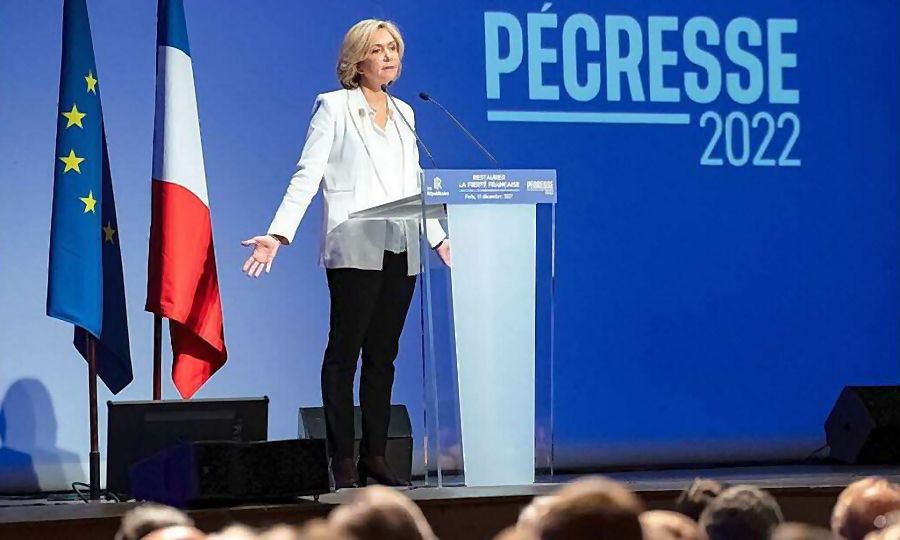 Abandonnée par plusieurs élus (les ex-ministres Catherine Vautrin et Éric Woerth, la maire de Calais, Natacha Bouchart) qui rejoignent Emmanuel Macron, essuyant les foudres de Rachida Dati. et talonnée dans les sondages par Éric Zemmour, la candidate LR devait impérativement relancer sa campagne à l’occasion de son premier grand meeting du dimanche 14 février 2022. Valérie Pécresse apparaît à l’heure prévue, 15 h 30. « Je veux porter un nouvel espoir. Celui d’une nouvelle France que nous devons reconstruire ensemble. » Au pied de la scène, la famille des Républicains serre les rangs. Politiques ou membres de la société civile, ses soutiens se sont exprimés auparavant depuis la salle – notamment ses « quatre mousquetaires », Michel Barnier, Xavier Bertrand, Éric Ciotti et Philippe Juvin, ses concurrents battus à la primaire – ou par des messages vidéo. Abandonnée par plusieurs élus (les ex-ministres Catherine Vautrin et Éric Woerth, la maire de Calais, Natacha Bouchart) qui rejoignent Emmanuel Macron, essuyant les foudres de Rachida Dati. et talonnée dans les sondages par Éric Zemmour, la candidate LR devait impérativement relancer sa campagne à l’occasion de son premier grand meeting du dimanche 14 février 2022. Valérie Pécresse apparaît à l’heure prévue, 15 h 30. « Je veux porter un nouvel espoir. Celui d’une nouvelle France que nous devons reconstruire ensemble. » Au pied de la scène, la famille des Républicains serre les rangs. Politiques ou membres de la société civile, ses soutiens se sont exprimés auparavant depuis la salle – notamment ses « quatre mousquetaires », Michel Barnier, Xavier Bertrand, Éric Ciotti et Philippe Juvin, ses concurrents battus à la primaire – ou par des messages vidéo.
Des marqueurs de la droite Dès le début la candidate ne désigne qu’un adversaire et appuie sur les marqueurs de la droite. « J’accuse Emmanuel Macron d’avoir cédé à la repentance, en reprochant à la France un crime contre l’Humanité qu’elle n’a pas commis. » ; « Je combats les mouvements wokistes » ; « Je promets de défendre toutes les familles, mais avec une ligne rouge : je m’opposerai toujours à la GPA. » Tout en veillant à ne pas aller trop sur sa droite : « Je suis une femme d’ordre. Je veux la France en ordre car je veux la France de la concorde. » « Protéger », « reconstruire », « réinventer », la candidate décline son mantra en trois verbes. Aux salariés, elle promet : « Avec moi, les salaires des Français augmenteront de 10 % sur le quinquennat. Dès cet été, chaque salarié gagnant 1 400 € net gagnera 500 € de salaire en plus par an. » Elle rappelle la « belle intuition de Nicolas Sarkozy : travailler plus pour gagner plus ! » La salle exulte à l’énoncé du nom de l’ancien président, qui n’a toujours pas apporté officiellement son soutien à la candidate. Une fois le projet détaillé, la candidate s’accoude au pupitre. « Vous êtes en droit de savoir qui je suis… Je suis née un 14 juillet […]. Oui, depuis l’enfance, la France coule dans mes veines. La France des bals populaires, des feux d’artifice et du Tour de France. »
Fendre l'armure Au bout d’une heure elle entrouvrit l’armure. Valérie Pécresse s’est présentée en « femme française indomptable » hier devant 7 000 personnes réunies au Zénith pour applaudir Valérie Pécresse. A « Mes chers compatriotes, commençait-elle, comme si elle était déjà présidente, vous êtes en droit de savoir qui je suis. » Et de retracer une vie et un parcours dont elle ne chercha pas à démontrer qu’ils furent difficiles ou malheureux, mais d’où il ressortait que sa condition de femme l’avait d’abord handicapée avant de faire d’elle une guerrière : « Ma volonté était intacte, personne ne me ferait baisser les yeux. » Moment personnel Petite fille déjà, « ni Roxanne, ni Milady, ni Madame Bovary », elle était plutôt « d’Artagnan, Cyrano, ou hussard sur le toit ».
Ce quart d’heure personnel au cours duquel elle se livra (un peu), tout en gardant pour elle ses « cicatrices », fut aussi l’occasion de rendre hommage à ses deux parrains en politique, Jacques Chirac et surtout Nicolas Sarkozy, dont elle loua « l’audace, la force, la vision », sans doute dans l’espoir de recueillir un soutien qui ne vient pas. Elle saluait ensuite son mari Jérôme ainsi que ses trois enfants, apparemment présents mais dont aucune image ne fut retransmise sur les écrans géants.
« Je veux porter un nouvel espoir, celui d’une nouvelle France que nous devons reconstruire ensemble », a lancé la candidate bien décidée à se poser en alternative à Emmanuel Macron, plaidant pour une France « réconciliée » et qui « réinvente son rapport au travail ».
Si l'ancien président Nicolas Sarkozy raconte « qu’elle ne fait pas une mauvaise campagne, elle ne commet pas d’erreur, mais elle n’a pas encore trouvé sa martingale », elle l'aura bien prouvé ce dimanche au Zénith de Paris. Appliquée, Valérie Pécresse a répondu sur le fond à toutes les attentes de son camp.
Mais manque toujours ce fameux souffle... « Moi, en 2007 et en 2012, j’avais deux ou trois sujets qui imprimaient très très fort dans l’esprit des Français », poursuit-il.
Pas sûr que ce meeting en demi-teinte relance suffisamment sa campagne pour la propulser jusqu’à l’Élysée.
|
|
|
|
| Jenny Chase pour DayNewsWorld |
 |
There are no translations available.
CONVOI DE LA LIBERTE
LE RETOUR DES GILETS JAUNES EN FRANCE ?
|
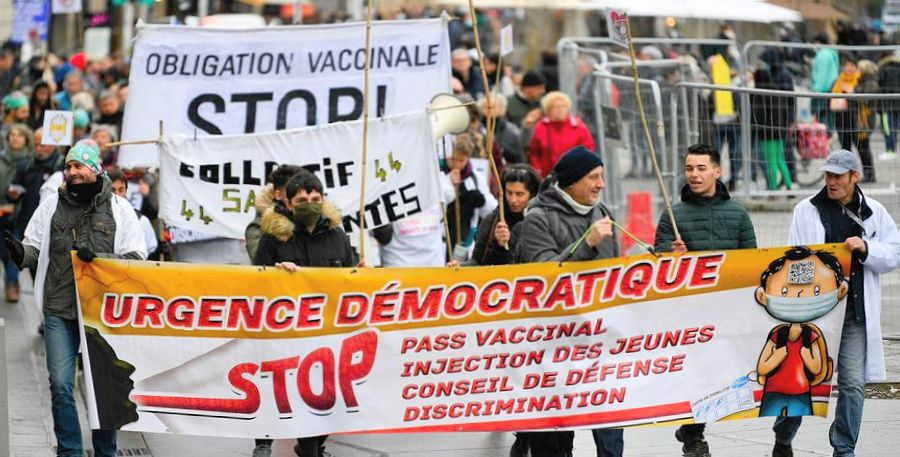 Des opposants aux mesures sanitaires venus de tout l'Hexagone se donnent rendez-vous dans la capitale, samedi. Les premiers convois sont partis ce mercredi 9 février 2022 .Dans la foulée de la spectaculaire opération de blocage organisée depuis fin janvier par les routiers canadiens, ainsi les réseaux sociaux français bruissent-ils à leur tour d’appels à la mobilisation tous azimuts. Et chaque département désormais de proposer – mercredi ou jeudi – un départ groupé en direction de la capitale, puis pour les plus courageux jusqu’à Bruxelles dimanche. Depuis Rochefort, Nice, Strasbourg ou bien Bordeaux, autant de pages Facebook et de messageries Telegram se multipliant sans vraiment permettre de jauger encore la mobilisation. Du Nord au Sud, de l'Ouest à l'Est, la liste des villes concernées par ce mouvement s'allonge d'heure en heure. Le principe est le même à chaque fois : « Emprunter le réseau secondaire et rouler entre 50 et 80 km/h. » Des opposants aux mesures sanitaires venus de tout l'Hexagone se donnent rendez-vous dans la capitale, samedi. Les premiers convois sont partis ce mercredi 9 février 2022 .Dans la foulée de la spectaculaire opération de blocage organisée depuis fin janvier par les routiers canadiens, ainsi les réseaux sociaux français bruissent-ils à leur tour d’appels à la mobilisation tous azimuts. Et chaque département désormais de proposer – mercredi ou jeudi – un départ groupé en direction de la capitale, puis pour les plus courageux jusqu’à Bruxelles dimanche. Depuis Rochefort, Nice, Strasbourg ou bien Bordeaux, autant de pages Facebook et de messageries Telegram se multipliant sans vraiment permettre de jauger encore la mobilisation. Du Nord au Sud, de l'Ouest à l'Est, la liste des villes concernées par ce mouvement s'allonge d'heure en heure. Le principe est le même à chaque fois : « Emprunter le réseau secondaire et rouler entre 50 et 80 km/h. »
Sur les réseaux sociaux, les internautes s'échangent de nombreuses cartes des trajets. Tous les points de départ, avec date, heure et adresse exacte, sont recensés sur le site convois.f,. L'arrivée est prévue dès le vendredi soir à 20 heures pour « une soirée de partage et de convivialité avec la solidarité citoyenne » Par ailleurs, « ceux qui le souhaitent » peuvent ensuite rejoindre la Belgique, dimanche, pour une « convergence européenne » prévue à Bruxelles le lendemain, lundi.
Un mouvement parti des réseaux sociaux
La mobilisation, inspirée du mouvement canadien « Freedom Convoy 2022 » prend ses racines sur les réseaux sociaux. Des citoyens de tous horizons sont appelés à « rouler sur Paris », samedi 12 février, notamment pour protester contre le passe vaccinal.Contrairement
au mouvement en cours à Ottawa (Canada) ou même à Wellington
(Nouvelle-Zélande), où des centaines de camions encerclent actuellement
des bâtiments officiels, la version française vise la capitale, mais
sans lieu précis pour le moment.
De nombreuses pages ou groupes Facebook dédiés à l'organisation de ce convoi sont apparues depuis la fin du mois de janvier. La plus importante, intitulée « Le convoi de la liberté », regroupait plus de 270 000 membres, mardi midi. D'autres pages « dissidentes », parfois régionalisées existent aussi. Chaque trajet organisé depuis Brest, Perpignan, Lille ou Strasbourg et convergeant vers Paris, dispose à présent de sa propre page Facebook. Des groupes de discussion se sont aussi mis en place sur l'application de messagerie sécurisée Telegram. Celui intitulé « Convoy France Officiel » dépassait les 24 000 abonnés, mardi midi. Pour diffuser leur appel au
rassemblement, les participants multiplient également les prises de
parole en direct sur Facebook, YouTube, Twitch...
Les routiers « minoritaires »
Tandis que le maire d’Ottawa, ville paralysée par 500 poids lourds, a décrété lundi l’état d’urgence, le mouvement peut-il faire tache d’huile de ce côté de l’Atlantique, comme ailleurs déjà en Australie et en Nouvelle-Zélande? Faut-il aussi s'attendre à d'interminables files de camions comme au Canada ? A priori, non : contrairement à la mobilisation outre-Atlantique, les poids-lourds devraient jouer un rôle moins important dans l'Hexagone.
A la différence des Canadiens, les routiers français ne se mobiliseront pas en effet comme un seul homme. D’abord parce qu’ils peuvent encore ici voyager et se restaurer sans passe vaccinal, mais surtout parce que la plupart – salariés – ne sont pas propriétaires de leur camion. Et qu’aucune organisation syndicale ne s’est associée au mouvement. C'est ce qu'a reconnu Florian, un routier des Rhône-Alpes, interrogé sur le média « gilet jaune » Vécu. Considéré comme l'un des porte-paroles de « Convoy France » ce dernier reconnaît que « les routiers seront minoritaires sur le convoi », que « ce n'est pas un mouvement de camions ». Raison sans doute pour laquelle l’appel à «rouler sur Paris» s’élargit peu à peu à tout possesseur de véhicules à moteur.
Des profils hétérogènes
Principal agrégat de volontaires, la page «Le convoi de la liberté» fédérait ainsi, hier, quelque 277000membres. Des profils hétérogènes, se réclamant tous ou presque apolitiques, mais dont la contestation du passe vaccinal souvent apparaît n’être un prétexte. Où l’on retrouvera pêle-mêle l’ancien Insoumis Juan Branco, l’ancien frontiste Florian Philippot, une petite armée de naturopathes, des restaurateurs et des militants souvent proches des deux extrêmes.
Des figures de meneurs se détachent déjà. Rémi Monde publie des vidéos en direct rythmant depuis quelques semaines plusieurs pages Facebook. Mobilisé activement contre le pass sanitaire depuis l'été 2021, il partage sur ses réseaux des visuels mettant en avant Didier Raoult, Louis Fouché ou le documentaire controversé Hold-Up. Par le passé, sur d'autres profils lui appartenant, Rémi Monde, auparavant entrepreneur dans le sud de la France, était investi dans des causes proches de Nuit debout en 2016, des « gilets jaunes », et était mobilisé sur les sujets de défense de l'environnement. Maria C. se présente comme porte-parole du mouvement Convoy France. Infirmière dans les Hautes-Alpes, elle s'était illustrée sur le plateau de l'antenne locale BFM DICI, sur le Covid-19.
«Convois de la liberté», héritiers des gilets jaunes?
L’appel au blocage de la capitale reste difficile à cerner. Dans son ampleur comme dans ses revendications contre le passe vaccinal. Le 4
février, deux porte-parole du mouvement « Convoy France » étaient
invitées sur « Putsch Media », chaîne YouTube dont l'animateur est
également chroniqueur sur RT France. L'une d'elles exposait pêle-mêle
des revendications : « Récupérer les droits fondamentaux, le respect du
référendum, l'accès inconditionnel aux soins, à l'éducation, à la
culture et le respect des valeurs essentielles de notre constitution. »
Et leurs revendications de s’éloigner du seul aspect sanitaire. Citons le litre d’essence à 1euro, le Smic à 2000, une baisse de 50% des tarifs du gaz et de l’électricité, et globalement une mobilisation générale contre un président honni. À la tête de «La meute», l’une des branches du mouvement, un certain Rémi Monde, agitateur aux 14000abonnés sur sa page Facebook: «Ils ont eu les moutons, il faudra venir chercher les loups.». Derrière des griefs très hétéroclites portés par l’addition des « anti-tout » , semble se dessiner une cartographie, celle des Français en colère. Une colère contre l’étranglement économique et le déclassement en général.
Un sentiment que l’on ne peut balayer d’un revers de main tant il est bien réel ...et des réponses autres sont attendues que l'interception d'un premier convoi d’une trentaine de manifestants par les forces de l’ordre entre l’Essonne et la Seine-et-Marne à deux mois de la présidentielle ...
|
|
|
|
| Abby Shelcore pour DayNewsWorld |
 |
There are no translations available.
COVID-19 LA HAS AUTORISE LE TRAITEMENT ANTIVIRAL PAXLOVID
|
La Haute autorité de santé (HAS) a donné ce vendredi son feu vert à l'utilisation de l'antiviral Paxlovid comme traitement curatif contre le Covid 19, dont les premières livraisons sont attendues en France d'ici quelques jours.
Suite à l'avis de l'agence nationale du médicament, la HAS «autorise l'accès précoce au traitement Paxlovid (nirmatrelvir/ritonavir) du laboratoire Pfizer pour les adultes atteints de Covid-19 ne nécessitant pas d'oxygénothérapie et à risque élevé d'évolution vers une forme grave de la maladie».« En complément de la vaccination, levier le plus efficace pour éviter les formes sévères, des traitements médicamenteux sont désormais validés pour apporter une solution complémentaire aux personnes les plus vulnérables », ajoute la HAS.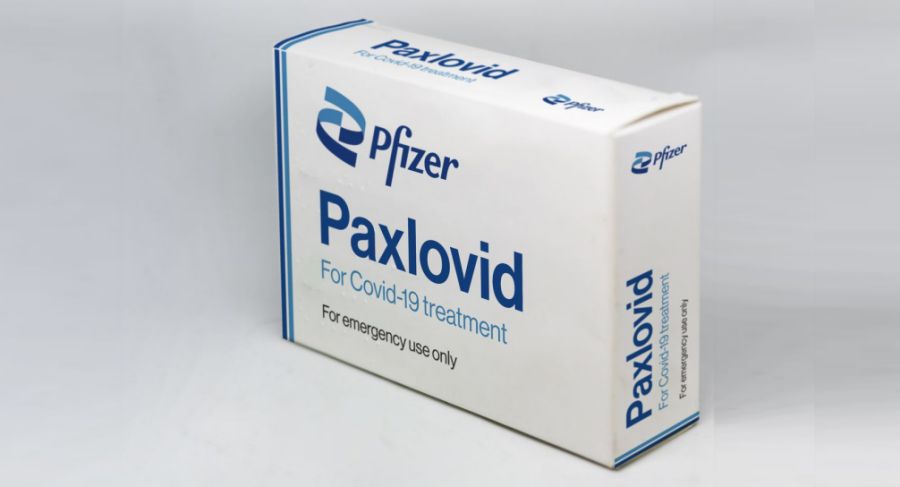
Il s'agit d'un traitement avant tout destiné aux populations à risque (personnes très âgées, immunodéprimées, atteintes de certaines maladies rares...) Cette pilule est administrée par voie orale à raison de trois comprimés par jour pendant cinq jours. Il est recommandé de la prendre dès que possible après le diagnostic positif au Covid-19 et au maximum dans les cinq jours suivant l'apparition des symptômes.
Le risque d'hospitalisation réduit de 85%
Efficace contre Omicron, ce traitement réduit d'environ 85% le risque d'être hospitalisé ou de décéder du Covid, selon les études cliniques. La HAS relève toutefois que l'antiviral est contre-indiqué chez les personnes avec une insuffisance hépatique sévère ou une insuffisance rénale sévère. Elle pointe également le risque important d'interactions médicamenteuses lors de la prise de Paxlovid pour les patients qui prennent un autre traitement.
«On a réservé 500.000 doses en 2022 et les premières livraisons - quelques milliers de doses - sont attendues dans une semaine», a indiqué jeudi l'entourage du ministre de la Santé Olivier Véran . Son déploiement se fera notamment via une prescription par les médecins généralistes, dans toutes les pharmacies. Le Paxlovid est le premier antiviral anti-Covid à obtenir une autorisation d'accès précoce.
La HAS rappelle également que « Paxlovid n’est pas destiné à être utilisé comme substitut à la vaccination contre » le coronavirus.
|
|
|
|
| Carl Delsey pour DayNewsWorld |
 |
There are no translations available.
DRAPEAU EUROPEEN SOUS L'ARC DE TRIOMPHE OU LA DISCORDE FRANCAISE
|
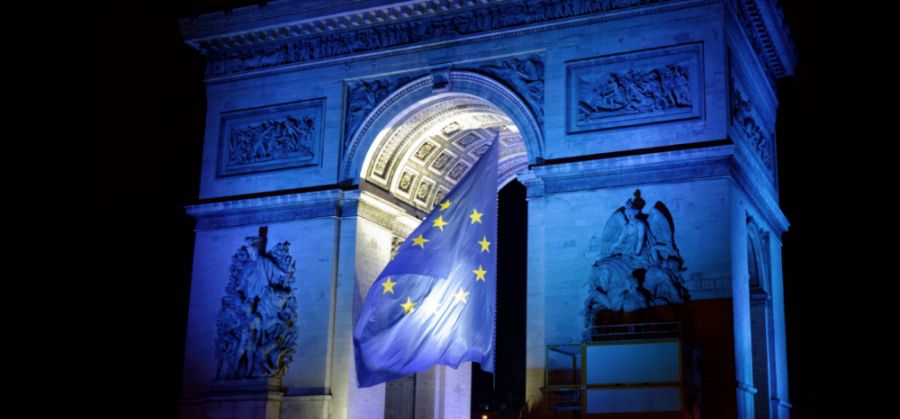 "A défaut de feu d’artifice dans le ciel, ce sont les étoiles sur fond bleu de l’emblème européen qui ont provoqué les étincelles de ce tournant d’année. Fallait-il le faire flotter sous l’Arc de triomphe pour marquer le coup d’envoi de la présidence française de l’Union? ", se demande Guillaume Tabard dans Le Figaro. "A défaut de feu d’artifice dans le ciel, ce sont les étoiles sur fond bleu de l’emblème européen qui ont provoqué les étincelles de ce tournant d’année. Fallait-il le faire flotter sous l’Arc de triomphe pour marquer le coup d’envoi de la présidence française de l’Union? ", se demande Guillaume Tabard dans Le Figaro.
C'est que la présence du seul drapeau européen sous l'Arc de Triomphe pour marquer symboliquement le début de la présidence française de l'UE a profondément agacé et continue d’alimenter la polémique. A minuit, elle a succédé à la Slovénie, qui présidait le Conseil de l'UE depuis le 1er juillet, et laissera la place au second semestre à la République tchèque. Le drapeau européen, qui flottait sous l’Arc de Triomphe pour le début de la présidence française de l’UE a été retiré dans la nuit de samedi à dimanche.
« Le président Macron a décidé tout seul et sans demander rien à personne », a critiqué Jean-Luc Mélenchon en ajoutant : « Il y a quand même un décret qui interdit de pavoiser sans les couleurs nationales. »
Drapeau européen sous l'Arc de Triomphe : @JLMelenchon dit avoir été "lui aussi" choqué. "Il y a un décret qui interdit de pavoiser sans les couleurs nationales. On pourrait respecter ça et pas seulement faire des caprices communicatoires." #le79inter #Elysee2022 pic.twitter.com/emwrgDmNQh
Le patriotisme en question
On ne saura sans doute jamais si le grand drapeau européen placé seul sous l’Arc de Triomphe devait encore « rester quelques jours » comme l’affirmait samedi Clément Beaune sous un feu nourri de critiques. Dimanche Marine Le Pen célébrait comme « une victoire patriotique » le retrait, dans la nuit, de l’emblème étoilé.
Les critiques : perte de souveraineté
Éric Ciotti, le candidat malheureux à la primaire LR a qualifié Emmanuel Macron de « président déraciné » qui « n’aime pas la France ». « Ne mettre que le drapeau européen sur la tombe du soldat inconnu » était « une faute », avait-il insisté sur RTL/LCI/Le Figaro.
Le candidat insoumis à la présidentielle Jean-Luc Mélenchon a brocardé sur France Inter le « caprice communicatoire » d’Emmanuel Macron qu’a été selon lui l’installation du drapeau. Le candidat LFI a cité le « protocole » proposé par Nicolas Sarkozy pour faire adopter en 2007 le traité de Lisbonne par le parlement, stipulant que « ni l’hymne ni le drapeau (européens) ne seraient reconnus comme tels par la France ». Au communiste Fabien Roussel d'enfoncer le clou sur Europe 1 trouvant « malvenu, regrettable que le gouvernement français, le président de la République, ait fait le choix d’effacer, retirer, le drapeau français sous l’Arc de Triomphe, symbole de la nation, de ces femmes et ces hommes qui ont combattu pour la France » pour installer « le drapeau européen à la place, qui est pour beaucoup, en tout cas pour moi - je l’ai vécu dans ma région - synonyme de délocalisations, de désindustrialisation (…), synonyme aussi de perte de souveraineté. »
L' Europe sujet de division profonde
Comme une impression de revenir 17 ans en arrière, au moment du référendum sur la construction européenne. L’Europe reste un sujet de division profonde et elle nous donne le premier débat polémique de cette année présidentielle. « Et vu les mots employés : « Fierté », « effacement », « outrage », « attentat », pour qualifier la place de ce drapeau, cette polémique raconte autant de l’état de l’opinion que de l’état des candidats. », argue un éditorialiste.
Dans le débat actuel, un chiffre est d'ailleurs fort instructif : 6 Français sur 10 estiment qu’il faudrait redonner plus de pouvoir de décision à notre pays et limiter celui de l’Europe....
Durant les cent jours qui nous séparent du premier tour, tout, absolument tout, sera prétexte à querelle et procès.
|
|
|
|
| Joanne Courbet pour DayNewsWorld |
 |
There are no translations available.
COVID PORT LE MASQUE OBLIGATOIRE DES 6 ANS TELETRAVAIL A PARTIR DE LUNDI 3 JANVIER 2022
|
 Les semaines à venir vont devenir difficiles sur le front sanitaire. Alors que le variant Omicron est devenu majoritaire en France, une explosion des nouvelles contaminations liées au Covid-19 est observée, avec près de 200 000 cas quotidiens depuis quatre jours. À partir de ce lundi 3 janvier, le gouvernement met donc en place de nouvelles restrictions et mesures pour lutter contre le « raz de marée » Omicron. Les semaines à venir vont devenir difficiles sur le front sanitaire. Alors que le variant Omicron est devenu majoritaire en France, une explosion des nouvelles contaminations liées au Covid-19 est observée, avec près de 200 000 cas quotidiens depuis quatre jours. À partir de ce lundi 3 janvier, le gouvernement met donc en place de nouvelles restrictions et mesures pour lutter contre le « raz de marée » Omicron.
Télétravail obligatoire
Adieu les open spaces et les pauses-café. Le télétravail devient obligatoire pour toutes les entreprises qui le peuvent « trois jours minimum par semaine et quatre jours quand cela est possible ».
Jusqu'à présent, le télétravail était bien préconisé par les différents protocoles sanitaires. La mesure sera désormais contraignante car intégrée à la loi sur le pass sanitaire.
Elle prendra effet dès le 3 janvier jusqu'à la fin du mois, avec, une fois la loi votée, un pouvoir coercitif qui devrait prendre la forme d'une amende de 2 000 euros par salarié pour les entreprises qui ne jouent pas le jeu.
Les entreprises doivent fournir le matériel adapté, elles ont l'interdiction de supprimer les tickets-restaurants et doivent respecter le droit à la déconnexion.
Ajustement flou du protocole dans les écoles
Dès le 3 janvier, de nombreux enfants vont reprendre le chemin de l’école avec un nouveau protocole sanitaire. Tous les cours vont se dérouler en présentiel. Les élèves de six ans et plus devront donc garder le masque, et les brassages resteront limités entre les classes et les niveaux, comme l'indique le ministère. Les mesures d'aération et de lavages renforcés des mains sont maintenues.
Côté gouvernement, c'est un peu la cacophonie. La semaine dernière, le ministre de l'Éducation Nationale, Jean-Michel Blanquer, avait affirmé que les élèves qui étaient considérés comme « cas contact » allaient prochainement devoir présenter plusieurs tests de dépistage négatifs pour revenir en cours. Avant de revenir sur ses déclarations.
Avant le départ en vacances, les élèves considérés comme « cas contact » devaient, pour revenir en classe, présenter un seul test positif. Ce lundi, c'est toujours ce protocole qui sera encore en vigueur.
Concrètement, ce qui change ce lundi c'est la priorité mise sur les activités physiques et sportives en extérieur et l'interdiction de répartir les élèves dans les autres classes. Port obligatoire du masque dès l'âge de 6 ans
La
mesure a été officialisée par un décret publié, ce samedi 1er janvier,
au Journal officiel : dès ce lundi, les enfants devront porter le masque
dès l'âge de 6 ans (contre 11 ans auparavant) dans les transports
collectifs, bateaux, avions, et véhicules (dont les taxis et VTC), ainsi
que dans les gares, stations de transports publics et aérogares
Le port du masque obligatoire dans les centres-villes
« L'obligation du port du masque sera étendue et mieux respectée. Notamment dans tous les centres-villes » avait déclaré Jean Castex lundi 27 décembre lors d'une nouvelle conférence de presse. Cette mesure entre en vigueur à compter de ce lundi et pour une durée de 3 semaines.
Le masque devient également obligatoire dès lundi dans certains lieux publics pour les enfants dès 6 ans. La mesure a été officialisée par un décret publié ce samedi 1er janvier au Journal Officiel.
Consommation d'aliments et de boissons interdites
La consommation debout sera interdite dans les bars et cafés. Il sera uniquement possible de consommer de manière « assise ».
La consommation d'aliments et de boissons sera interdite dans tous les théâtres, les cinémas, les établissements sportifs, sans oublier les transports collectifs (trains, bus, avions...), y compris pour les longs trajets.
Concerts debout interdits et retour des jauges
Le premier ministre Jean Castex a annoncé le retour des jauges pour limiter les grands rassemblements. Désormais, les évènements sont limités à 2 000 personnes lorsqu'ils se déroulent en intérieur et à 5 000 personnes en extérieur dès lundi pour une durée de 3 semaines. Les meetings politiques ne sont pas concernés. Il a également annoncé l'interdiction des concerts debout.
Fermeture des discothèques
Les discothèques, qui ont été fermées pour un mois le 10 décembre dernier pour faire face à la situation sanitaire, resteront fermées trois semaines supplémentaires, a déclaré mercredi 29 décembre le ministre délégué chargé du Tourisme et des PME, Jean-Baptiste Lemoyne.
Isolement et cas contact : l'assouplissement
Le gouvernement a décidé d'assouplir les règles d'isolement des patients Covid qui présentent un schéma vaccinal complet. On vous récapitule les règles à partir de ce lundi 3 janvier.
Positif et non vacciné - Isolement de dix jours à partir de la date du test positif. Fin de l'isolement si plus de symptômes au-delà des dix jours et pendant plus de 48 h.
Positif et vacciné - Isolement de sept jours, qui peut être levé en cas de test PCR négatif au bout de cinq jours.
Cas contact et non vacciné - Isolement de sept jours à partir du dernier contact avec la personne malade. Levée de l'isolement après sept jours si test négatif. En cas de Covid au sein d'un foyer, l'isolement est porté à dix-sept jours.
Cas contact et vacciné - Pas de période d'isolement, mais la réalisation de tests PCR à J+1 et J+5 est conseillée. A l'heure où Londres appelle à apprendre à vivre avec le virus, Paris durcit les mesures liberticides.
|
|
|
|
| Boby Dean pour DayNewsWorld |
 |
There are no translations available.
MALGRE LE PROCES DU 13 NOVEMBRE ON NE SAIT TOUJOURS PAS QUI EST SALAH ABDESLAM
|
 Depuis le 25 novembre et jusqu'au 8 décembre 2021, une cour d'assises de Paris entend les témoignages des officiers de la police judiciaire fédérale belge sur le parcours de radicalisation des jihadistes jugés lors du procès du 13-Novembre. Mardi, un enquêteur belge a retracé le parcours de Salah Abdeslam suscitant davantage de questions que de réponses. Frustration et silence gêné dans les rangs de l'assistance. Depuis le 25 novembre et jusqu'au 8 décembre 2021, une cour d'assises de Paris entend les témoignages des officiers de la police judiciaire fédérale belge sur le parcours de radicalisation des jihadistes jugés lors du procès du 13-Novembre. Mardi, un enquêteur belge a retracé le parcours de Salah Abdeslam suscitant davantage de questions que de réponses. Frustration et silence gêné dans les rangs de l'assistance.
Le volet de l'enquête belge laisse comme un goût d'inachevé dans le procès. Les explications apportées le 7 décembre par un enquêteur belge sur le parcours, les relations et la radicalisation de Salah Abdeslam, principal accusé des attentats du 13-Novembre, ont passablement frustré l'auditoire, quand elles ne l'ont pas fait rire ou énervé. Tant du côté partie civile que sur les bancs de la défense, presse comprise. Qu'est parti faire Salah Abdeslam lors d'un voyage en Grèce l'été 2015 ? Que se passait-il dans le bar Les Béguines de Molenbeek ? Salah Abdeslam ne présentait-il réellement aucune preuve de radicalisation ? L'assistance n'en saura pas davantage en quittant les bancs de la salle d'audience du palais de justice de Paris.
Déjà, l'audience du 7 décembre a mal commencé. Comme les jours précédents depuis le 25 novembre, la séance s'ouvre sur une suspension d'audience en raison de l'absence de quatre accusés. Une pause qui permet à l'huissier de procéder aux sommations à comparaître. Salah Abdeslam, Mohamed Abrini, Osama Krayem et Sofien Ayari refusent en effet de se présenter dans le box pour protester contre l'absence physique des policiers belges, qui ont choisi de témoigner anonymement par visioconférence.
De « Poulet » à « Abou Abderrahman »
Une heure plus tard, l'enquêteur belge de la police antiterroriste belge n°440 232 779 apparaît enfin sur le grand écran de la salle d'audience et dégaine, par écran interposé, un PowerPoint succinct. Simpliste diront les uns, soporifique lâcheront les plus perfides. Son caractère sommaire met tout le monde d'accord.
Le document couvre dans les grandes lignes la période allant de la naissance de Salah Abdeslam, le 15 septembre 1989 à Molenbeek-Saint-Jean, commune de Bruxelles, en passant par la gérance du bar Les Béguines et s'achève sur le mystérieux voyage en Grèce d'août 2015 avec Ahmed Dahmani (coaccusé détenu en Turquie et jugé par défaut). Au détour de diapositives elliptiques, on y apprend tout de même que Salah Abdeslam avait pour kunya (surnom arabe) Abou Abderrahman, qui signifie « serviteur du Miséricordieux », et pour surnom « poulet » ou « pouchos pouchos », sans autre explication. Une carte du quartier indique les domiciles des relations de l'accusé, notamment ceux d'Abdelhamid Abaaoud, Mohamed Abrini, Ahmed Dahmani.
L'inspecteur s'attarde ensuite sur la convocation de Salah Abdeslam le 28 février 2015 à la police de Molenbeek pour répondre de suspicions de voyage en Syrie. Un mois plus tôt, les policiers ont été informés que Brahim, le frère de Salah et kamikaze du Comptoir Voltaire, a fait un séjour en Syrie et qu'il projette aussi de s'y rendre. Salah Abdeslam se rend spontanément à la convocation et se défend de toute radicalisation. Face aux inspecteurs, il évoque « des voyages en Espagne et au Maroc pour vadrouiller et vivre chez l'habitant ». Il relativise ses liens amicaux et idéologiques avec Abdelhamid Abaaoud. Le procès-verbal qui en découle résume l'audition en ces termes : l'homme « ne présente aucun signe extérieur de radicalisme, que ce soit dans sa tenue vestimentaire, son allure physique ou ses propos ». Une conclusion un peu légère que la partie civile ne se prive pas d'épingler. « Si on se contente de poser la question, est-ce qu'il va dire : 'C'est vrai, je m'interroge sur ma participation au jihad' ? . On ne fait pas d'autres investigations ? », s'interroge Me Gérard Chemla, avocat de parties civiles. « Il faut se remettre à cette époque, se rendre en Syrie n'était pas une infraction » botte en touche l'inspecteur. « Mais on connaît ses liens avec Abaaoud, et on sait qu'Abaaoud constitue une menace particulière.
On ne regarde pas les téléphones ? Les ordinateurs ? On ne regarde rien ? », s'agace l'avocat. « La magistrate instructrice a décidé qu'il n'y avait pas assez d'éléments à ce moment-là », répond le témoin visiblement mal à l'aise.
Mystère autour du café Les Béguines Dans son exposé, le policier évoque également très brièvement la cogérance avec son frère Brahim du café Les Béguines. Lieu-clé supposé de sa radicalisation, car l'enquête a établi que c'est dans la cave de ce bar qu'il retrouvait régulièrement Abdelhamid Abaaoud. C'est dans ce même lieu qu'il a visionné une vidéo macabre de son ami traînant des cadavres au volant d'un pick-up. Problème, à l'issue de son exposé, l'inspecteur est incapable d'affirmer clairement s'il y avait réellement une cave au sein de l'établissement. « Probablement, il y en avait une, mais je n'ai pas été vérifier », répond, gêné, l'enquêteur aux questions insistantes de Me Olivia Ronen, l'avocate de Salah Abdeslam. Le rapport de la perquisition du café, lu par l'avocate, accable une nouvelle fois le travail de la police belge tant son contenu est sommaire. Les hommes de la section financière, et non de la section antiterroriste (DR3), qui ont réalisé la perquisition ne jugent pas utile de fouiller les lieux, ne se rendent pas dans la cave. La visite ne dure pas plus de quinze minutes. « Rien dans l'établissement n'intéresse l'enquête », conclue-t-on.
L'exposé de l'inspecteur ne permet pas non plus d'en savoir davantage sur les intentions de Salah Abdeslam, qui s'est rendu en Grèce en 2015. Le témoin n°440 232 779 ne s'est pas montré plus performant pour apporter des détails sur ce que l'accusé a pu y faire et y rencontrer. Pressé par les questions précises des avocats, l'inspecteur malmené ne parvient qu'à bredouiller des formules évasives faites de « pas à ma connaissance », « c'est probable », et de « je ne sais pas » dissimulant mal les approximations de l'enquête. On comprend peut-être mieux les raisons de son anonymat.
La veille, le président Jean-Louis Periès avait demandé aux avocats de ne pas se tromper de procès supportant mal les remontrances à peine voilées adressées à l'encontre du policier belge.
« Nous ne sommes pas là pour faire le procès de telle institution ou de tel service. Qu'il y ait eu des failles, des gens qui soient passés à travers les mailles du filet, malheureusement, c'est acquis depuis un moment. »... |
|
|
|
| Alize Marion pour DayNewsWorld |
 |
There are no translations available.
PRESIDENTIELLE ET SI VALERIE PECRESSE ECLIPSAIT EMMANUEL MACRON AU SECOND TOUR ?
|
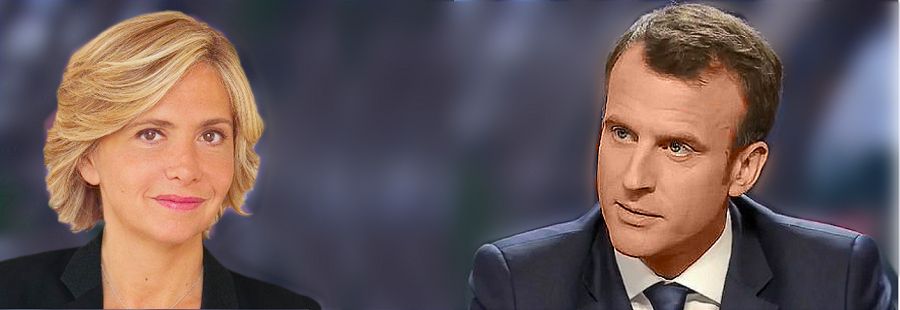 Avec la désignation par les adhérents des Républicains de Valérie Pécresse, l’Élysée a de quoi trembler Emmanuel Macron va devoir affronter Valérie Pécresse, qui s’installe en effet en deuxième position du baromètre. Grâce à une très forte progression chez les sympathisants de droite (+15 à 54%) et du centre (+12, 35%). Emmanuel Macron comptait sur les réserves de voix à droite pour l’emporter en avril prochain avec son allié Edouard Philippe, l'ancien Premier ministre et fondateur du parti Horizons, qui chasse pour lui sur les terre LR centre-droit et droite modéré. Avec la désignation par les adhérents des Républicains de Valérie Pécresse, l’Élysée a de quoi trembler Emmanuel Macron va devoir affronter Valérie Pécresse, qui s’installe en effet en deuxième position du baromètre. Grâce à une très forte progression chez les sympathisants de droite (+15 à 54%) et du centre (+12, 35%). Emmanuel Macron comptait sur les réserves de voix à droite pour l’emporter en avril prochain avec son allié Edouard Philippe, l'ancien Premier ministre et fondateur du parti Horizons, qui chasse pour lui sur les terre LR centre-droit et droite modéré.
Mais la présence de Valérie Pécresse bouleverse la donne : entre Edouard Philippe, ancien LR , et Valérie Pécresse, les proximités idéologiques demeurent fort nombreuses et les réseaux d'élus sont souvent très proches ... si bien que le chef de l’État n’a plus désormais la confiance que de 32% des sympathisants LR (-8) .Une chute de 8% en quelques jours seulement! (Sondage Kantar-OnePoint effectué par Le Figaro Magazine le 5 et 6 décembre 2021.). De quoi inquiéter sérieusement la majorité présidentielle qui avec sa boussole du « en même temps » passe son temps à naviguer à vue.
Sans conteste la présidente de l'Ile-de-France mord sur l'électorat macronien du centre et de la droite modérée ,Valérie Pécresse incarnant aussi dans son programme ce libéralisme économique dont se targue Emmanuel Macron. Sur le grand marché de l’attractivité, l’Ile-de-France pèse lourd, Valérie Pécresse a fait ses preuves.
La candidate attaque d'ailleurs fort : elle qualifie le quinquennat de « presque rien » et pointe la réforme avortée des retraites. Animé du seul souci de « plaire », il « crame la caisse », continue -t-elle. « La propension d’Emmanuel Macron à utiliser, en fin de mandat, l’arme budgétaire pour éteindre les départs d’incendies sociaux accrédite la thèse de l’opportunisme plutôt que celle de l’opiniâtre transformation du pays, qui était la promesse centrale de 2017 », analyse ainsi la chroniqueuse Françoise Fressoz dans le Monde. La candidate LR, elle, lui oppose sa volonté de « faire » autour d’un projet libéral consistant, comme en 2017, à réduire la dette, reculer l’âge de départ à la retraite, tailler dans les effectifs de la fonction publique.Une femme pro-business vient donc défier le président de la République sur son terrain de prédilection : l’économie.
Mais Valérie Pécresse va désormais devoir composer avec Eric Ciotti, le finaliste du congrès, et son programme clairement ancré à droite notamment sur les thèmes sécuritaires et migratoires. Les adhérents des Républicains n' ont-ils plébiscité à près de 40% des voix le député des Alpes-Maritimes au second tour ?
Eric Ciotti promet certes de former un « collectif puissant » avec Pécresse, mais souligne cependant avec justesse « l'immense responsabilité » de Valérie Pécresse pour « amener notre famille politique vers la victoire ». Pour ce, il a appelé la candidate à mener « une campagne de clarté absolue contre le macronisme », autour des valeurs « d'autorité, d'identité, de liberté ». Il a défendu les idées « d'une droite claire, forte, sans compromission » et réclamé de « tourner le dos à la prudence » .Ainsi Eric Ciotti est une ressource stratégique pour Valérie Pécresse, en jouant le rôle de gatekeeper, de portier, pour ceux qui seraient tentés d'aller chez Eric Zemmour. Sans la ligne Ciotti , les Républicains ne pourront pas porter Pécresse à la présidence.
Mais attention, cette ligne de la droite conservatrice pourrait en même temps éloigner à nouveau des LR ces électeurs du centre et de la droite modérée, peu portés par ces sujets de sécurité et d'immigration, et tant convoités...
Rien d'étonnant si interrogé mercredi 8 décembre 2021 sur CNews, le maire de Nice Christian Estrosi ancien LR, rallié de fraîche date à Horizons, a appelé « tous ceux qui ne se reconnaissent pas dans cette tentative d'aller vers les extrêmes, de se tourner vers les mêmes discours que Madame Le Pen et Monsieur Zemmour » à rejoindre le parti d'Edouard Philippe faisant campagne pour le président sortant.
Mais c'est oublier que la société et le corps électoral se sont « droitisés » par rapport à 2017 sur les questions régaliennes...
|
|
|
|
| Jaimie Potts et Joanne Courbet pour DayNewsWorld |
 |
HOW VALERIE PECRESSE OF CENTRIST RIGHT IS GOING TO COMPOSER
WITH RIGHT CONSERVATIVE ERIC CIOTTI |
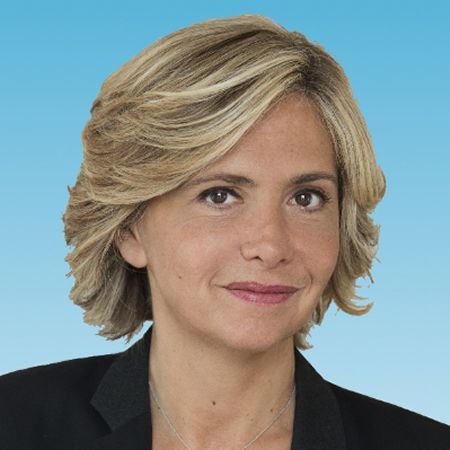
A new campaign begins for Les Républicains. Valérie Pécresse was appointed the party's presidential candidate, Saturday, December 4, 2021, after the second round of the congress disputed against Eric Ciotti.
The president of the Ile-de-France region confirmed her status as favorite, winning with 60.95% of the vote, against 39.05% for the deputy of the Alpes-Maritimes, challenger who came first in the first round.
Pécresse first female candidate LR.
"For the first time in its history, our party will have a candidate for the presidential election," said the winner of the congress.
"The Republican right is back", she proclaimed, promising to "restore French pride and protect the French" with a "project of frank rupture".
"I am the only one who can beat Emmanuel Macron", now assures Valérie Pécresse.
But for now, the candidate is struggling to exceed 10-11% in the voting intentions for the first round of the presidential election, even if her party is banking on the dynamics of the Congress to move the lines and reach 15%. It is that for a certain right LR Valérie Pécresse would be macron-compatible ...
Composing with Eric Ciotti on the program clearly anchored to the right
But Valérie Pécresse will now have to deal with Eric Ciotti, the finalist of the congress, and his very right-wing program.
Eric Ciotti certainly promises to form a “powerful collective” with Pécresse, but nevertheless rightly underlines “the immense responsibility” of Valérie Pécresse to “bring our political family to victory”.
For this, he called on the candidate to lead “a campaign of absolute clarity against macronism”, around the values of “authority, identity, freedom”. He defended the ideas of "a clear, strong right, without compromise" and demanded to "turn your back on caution".
Eric Ciotti is clearly heir to the Gaullist line of the RPR, while Valérie Pécresse is much more centrist (UDF) to the point of having left a party that she found too far to the right when it was led by Laurent Wauquiez.
But Eric Ciotti embarked on this competition because Laurent Wauquiez had given up.
It is because Auvergne and Niçois are linked by a convergence of views on certain subjects, especially those linked to identity and security. It is no coincidence that these two themes are at the heart of Eric Ciotti's project, which hammers home his desire to see France "remain France". "Zero impunity" against delinquents, "French Guantánamo" for terrorists, "national and European priority" in terms of employment and allowances ... So many measures that Eric Ciotti has been advocating for a long time and that the members of the Republicans voted nearly 40% of the vote in this second round.
Without the Ciotti line of the conservative right, Republicans will not be able to carry Pécresse to the presidency.
If Valérie Pécresse does not address this conservative LR electorate, the latter could turn to a Marine Le Pen or to an Eric Zemmour for whom the deputy of the Alpes-Maritimes had called to vote in the event of a duel against Emmanuel Macron in April 2022.... |
|
|
|
| Jaimie Potts for DayNewsWorld |
 |
TOUR OF EMMANUEL MACRON IN THREE COUNTRIES
OF THE GULF AND A MEGACONTRATE OF 80 GUSTS
IN THE UNITED ARAB EMIRATES |

The French President Emmanuel Macron, undertakes, Friday, December 3, a two-day visit to three Gulf monarchies, the United Arab Emirates (UAE), Qatar and Saudi Arabia. Objective: to strengthen partnerships with these Gulf countries.
President Emmanuel Macron is paying a short visit to Dubai on Friday, the first stop on a tour of the Gulf, to strengthen solid relations between France and the United Arab Emirates.
A mega-contract of 80 Rafales
The strongman of the Emirates, the crown prince of Abu Dhabi Mohammed bin Zayed Al-Nahyane, known as MBZ, welcomed the French head of state at the site of the World Expo which is being held in Dubai until the end of March. After a mid-morning interview, the United Arab Emirates signed an agreement to acquire 80 Rafale fighter jets, built by the French group Dassault Aviation. This order is the largest obtained internationally for the fighter aircraft since it entered service in 2004. The order aims to replace the 60 Mirage 2000-9 acquired in 1998 by Abu Dhabi.
In total, this order, with the purchase of 12 Caracal helicopters and associated elements, represents a total of 17 billion euros, according to the Ministry of the Armed Forces. "This is a major achievement of the strategic partnership between the two countries, consolidating their ability to act together for their autonomy and their security", welcomed the Elysee in a press release.
In Dubai, Emmanuel Macron is accompanied by a large delegation of ministers, including Jean-Yves Le Drian (Foreign Affairs), Bruno Le Maire (Economy) and Florence Parly (Armies), as well as business leaders, such as Airbus, Thales, Air Liquide or EDF. The powerful Emirati sovereign fund Mubadala is expected to announce that it is significantly increasing its investment envelope, which would be increased to four billion euros, in French companies.
Fight against Islamism and terrorism
During this tour which takes him to Qatar at the end of the day and then to Saudi Arabia on Saturday, Emmanuel Macron intends to discuss "the fight against terrorism, radical Islamism and their financing" because "to cooperate with these States, in particular against Daesh, is essential to guarantee the safety of the French and Europeans ”, according to the Élysée.
The record sale of Rafales to the UAE thus crowns the total alliance forged over the years between France and the United Arab Emirates. Linked to Abu Dhabi by a defense agreement since 2015, Paris has a strategic air base in the UAE capital for its operations in the Middle East.
It was used in particular to bomb Daesh targets in Iraq and Syria or to evacuate the last French nationals from Afghanistan to France, as well as hundreds of Afghan citizens in danger. Emmanuel Macron and Mohammed ben Zayed, the crown prince of Abu Dhabi, find themselves in particular in their common fight against Islamism and terrorism, and adopt similar positions in many crises which cross the region. The Minister of the Armed Forces, Florence Parly, believes that the Rafale mega-contract "cements a strategic partnership that is more solid than ever and contributes directly to regional stability".
"Reliable partner"
On major regional issues - Lebanon, Libya, Iranian nuclear power, Iraq - the Head of State wants France to play the role of a "balancing power" and of a "reliable and essential partner who dialogues with everyone. the relevant actors ”. He is expected to plead the cause of Lebanon as the economic crisis he is undergoing is aggravated by the sanctions taken by several Gulf states, including Saudi Arabia, which has stopped its imports from Beirut.
What about human rights?
Customers of the French armaments industry, considered at the Elysee Palace as useful interlocutors in the fight against terrorism, the regimes visited constitute three key partners of Paris in the Middle East, but they are also embarrassing allies due to their propensity to abuse human rights. The visit is severely criticized by many human rights associations. The city-state of Qatar, indeed faces many criticisms on the working conditions of migrants assigned to the preparation of the Football World Cup, organized on its soil, from November 21 to December 18, 2022 just like the sulphurous Mohammed Ben Salman, "MBS", with whom Mr. Macron will speak, and on whom the shadow of Jamal Khashoggi still floats,the Saudi journalist assassinated in 2018 at his country's consulate in Istanbul.
But Realpolitik does not often bother with human rights.....
|
|
|
|
| Alize Marion for DayNewsWorld |
 |
ERIC ZEMMOUR CANDIDATE
AT THE FRENCH PRESIDENTIAL OF 2022 |
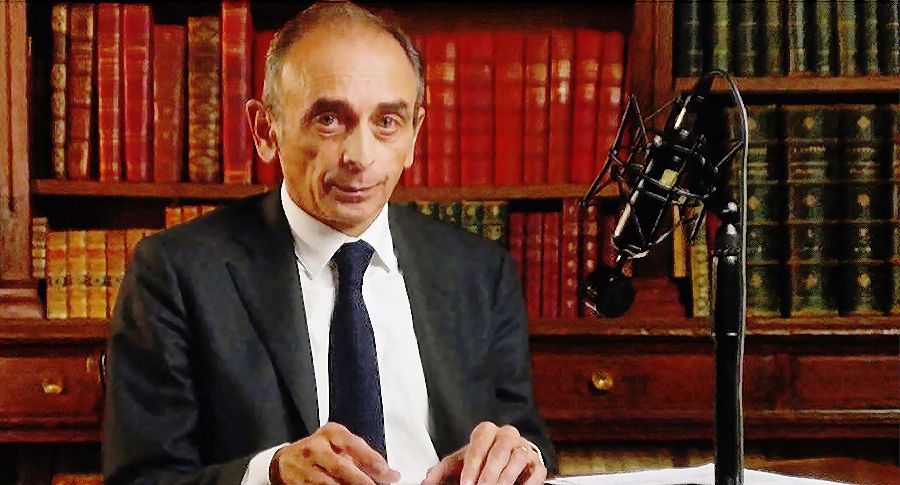 The essayist took the plunge. After numerous trips to France and abroad in recent weeks, Eric Zemmour formalized his candidacy for the presidential election on Tuesday, November 30. The essayist took the plunge. After numerous trips to France and abroad in recent weeks, Eric Zemmour formalized his candidacy for the presidential election on Tuesday, November 30.
“My dear compatriots, (...) like you, I have decided to take our destiny in hand. (...) It is no longer time to reform France, but to save it. I have decided to run for president. (...) Long live the Republic, and especially long live France! ”, He confirmed in a video published this Tuesday, November 30 on social networks.
Serious, the sixty-year-old slowly read a long text, in a scenography copied on the appeal of June 18 of General de Gaulle: a microphone placed on a desk, in front of a library as in the official speeches of the Presidents of the Republic.
He justifies his decision as follows: “I contented myself with the role of journalist, writer, Cassandra, whistleblower. I thought then that a politician was going to seize the torch that I passed on to him. I said to myself “to each his own job, to each his role, to each his own fight”. I came back from this illusion. "
This Sciences-po graduate, son of a stay-at-home mother and an ambulance driver, made himself known, often before being ousted, during his participation in televised debates - “It is argued” on I- Télé, “We are not lying” on France 2- or through its radio chronicles. He is also successful in bookstores with in particular Mélancolie française (2010), Destin français (2018) and especially Le Suicide français (2014). But Eric Zemmour decides today not to remain a simple commentator on political life.
On the 2nd movement of Beethoven's 7th Symphony, the far-right candidate insists on the “feeling of dispossession” which he believes affects “all” French people. “You feel like you're no longer in the country you know. (...) The country of Joan of Arc or Louis XIV, the country of Bonaparte and General de Gaulle (...). You understood (...) that France was no longer France and that everyone had noticed it, ”he says.
The candidate then discusses immigration. "Immigration is not the source of all our problems even if it aggravates them all", continued the candidate who explains in the wake of his commitment "so that our daughters are not veiled and that our sons are not subjected », Alluding to Islam.
It is that for Eric Zemmour, France is a Catholic country of Greco-Latin roots. And wanting to be the candidate who embodies historical continuity, he therefore defends the total assimilation of foreigners who arrive in France.
In addition to the identity question, he outlined other themes, in particular the need to reindustrialize France, to rebalance its trade balance and its debt, or even to "put the unemployed back to work". "We must protect our technological treasures and stop selling them off to foreigners, (...) allow our small businesses to live, grow and be passed down from generation to generation, (...) preserve our architectural heritage, cultural, and natural, ”he also pleads.
Criticizing the European Union, "which will never be a nation", Mr. Zemmour also promises to "reconquer" the sovereignty of France "abandoned to technocrats and European judges".
Not benefiting from the support of a party, the constitution of a network on the ground will be one of its challenges, if only to collect the 500 sponsorships of elected officials necessary for a presidential candidacy. His camp already ensures to rely on 250 to 300 sponsorship pledges.
Eric Zemmour is the guest of TF1 8pm on Tuesday evening and will hold his first major campaign meeting this Sunday, December 5 at the Zénith in Paris as an official candidate for the 2022 presidential election.
France has not said its last word, according to the title of the candidate's latest book....
|
|
|
|
| Garett Skyport for DayNewsWorld |
 |
COVID THE NEW MEASURES CONSIDERED
BY THE FRENCH GOVERNMENT |
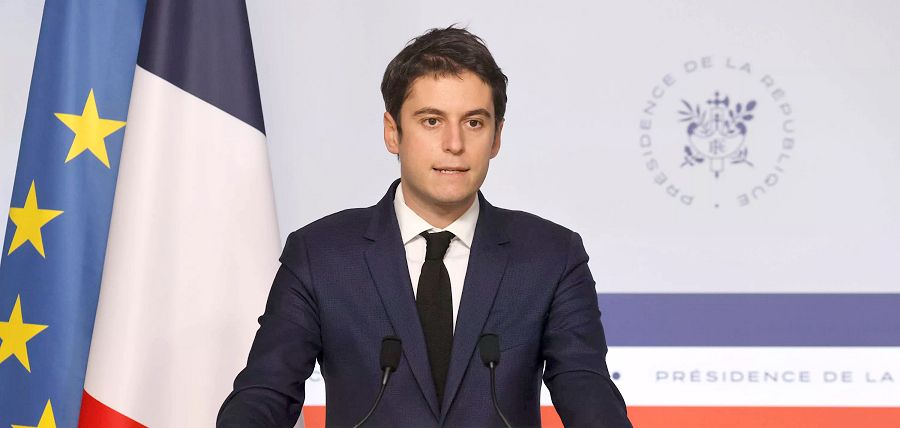
The "fifth wave is here", insists government spokesman Gabriel Attal to prepare the French for new measures.
For two weeks, the number of contaminations has increased rapidly, in the order of 40 to 50% per week. The incidence rate, which measures the number of coronavirus cases per 100,000 inhabitants, is now greater than 100 throughout the territory, and particularly high in the South-East and the West. With, moreover, a Prime Minister, Jean Castex, who tested positive for Covid on Monday evening, like 30,000 people in France in the past 24 hours. A figure which marks a very strong increase in the space of a week.
Similarly, 6,000 classes are now closed, announced Tuesday the Minister of National Education, Jean-Michel Blanquer. A real rebound. In a context where the World Health Organization (WHO) was alarmed on Tuesday about the "grip" of Covid-19 in Europe which could cause 700,000 additional deaths on the continent.
The number of cases explodes, but not hospitalizations
But the issue is whether this spike in infections will lead to a massive influx into the hospital, and for now, it is not. Around 8,000 Covid patients are hospitalized in France, including 1,300 in critical care services, against 6,500 and 1,000 respectively a month earlier. But for the Scientific Council, time is running out because this fifth wave can have "a significant impact" on the hospital, predicts Professor Delfraissy. "We think it will rise to 1,000 / 1,500 hospital admissions per day", but it will be "much more limited" than in the third wave (up to 2,500 per day), according to him.
A reminder for all adults, "this is the meaning of history", for Macron
Vaccination remains very effective in preventing severe forms of the disease. Almost 75% of the total population has been fully vaccinated in France. The outbreak of infections also remains lower than that observed in other European countries, including Germany or the Netherlands. The government attributes this to the health pass, in effect since July.
The prospect of a vaccine booster for all adults seems to be approaching, since the two bodies that advise the government during the pandemic are now considering it. "I would not be surprised if we are gradually moving towards vaccine booster shots for all adults who have been vaccinated, that's the meaning of the story", even advanced Emmanuel Macron on Friday during a trip to the North. Now, the Scientific Council and the Vaccine Strategy Orientation Council (COSV) write it in black and white.
There remains the calendar for the vaccine booster campaign against the Covid and until what age to define to give visibility to citizens before the Christmas holidays.
The third dose currently only concerns people over 65 and people at risk of severe forms (as well as caregivers). This dose will be necessary to extend their health pass, and this mechanism will be initiated from December 15. The recall campaign must already be extended in early December to 50 years and over. HAS on Friday recommended a booster for those over 40, six months after their last dose. The Scientific Council invited “consider a vaccination booster for the entire adult population”, keeping the interval of six months after the primary vaccination.
Masks, barrier gestures, gauges ...
Already back in French schools and in many departments, the mask could reappear more widely in France. In its last opinion of November 20, the Scientific Council called for "strengthening the barrier gestures, individual and collective, the impact of which on the circulation of the virus is very strong, in particular the wearing of a mask". He insisted on “the reintroduction of the mask in certain places.” With the masks, the installation of gauges in certain places welcoming the public could come to reinforce the anti-Covid measures. Topping the list: nightclubs, sports halls and entertainment venues.
Another opinion of the Scientific Council: the expansion of teleworking. But the Minister of Labor Élisabeth Borne instead called on companies to "mobilize again on this respect for barrier gestures, put the mask back on in meetings, when we are in shared spaces".
The objective for the government is to remain on the two tools that made it possible to cross the fourth wave: vaccination and therefore the recall as well as the health pass, a new confinement can no longer pass to the French. |
|
|
|
| Boby Dean for DayNewsWorld |
 |
THE REASONS FOR AN EXPLOSIVE SITUATION
IN GUADELOUPE |
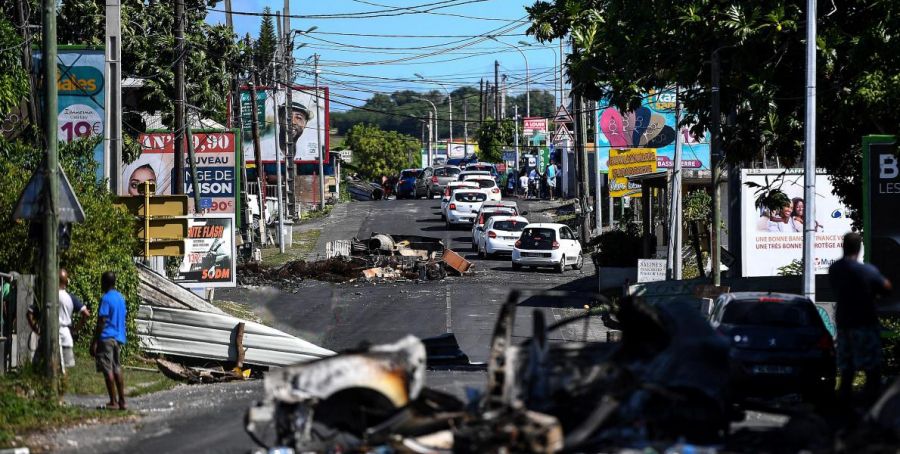 Guadeloupe, hit hard by the Covid-19 epidemic this summer, has been shaken for a week by a movement originating from the challenge of the vaccination obligation of caregivers. But this mobilization degenerated into violence last week, after the call for resistance launched last Monday by a collective of unions and citizen organizations. A meeting is scheduled for Monday, November 22, 2021 at 6 p.m. around Prime Minister Jean Castex. Guadeloupe, hit hard by the Covid-19 epidemic this summer, has been shaken for a week by a movement originating from the challenge of the vaccination obligation of caregivers. But this mobilization degenerated into violence last week, after the call for resistance launched last Monday by a collective of unions and citizen organizations. A meeting is scheduled for Monday, November 22, 2021 at 6 p.m. around Prime Minister Jean Castex.
Reinforcements arrived on Sunday.
In an attempt to restore order, police and gendarmerie reinforcements (GIGN AND Raid) were dispatched this weekend from the metropolis and a curfew was decreed on Friday, without making it possible for the moment to prevent the continued looting and nighttime incidents, the prefecture also reporting several firearms firing against the security forces.
The dismantling of the blockades began Sunday, November 21, but the continuing violence the rectorate suspended Monday the reception of students in schools.
"Very explosive" situation
The Head of State described this Monday, November 22, 2021, the situation in Guadeloupe as "very explosive", according to him because of the local context, "historical" tensions but also "certain interests which seek a little to use this context and anxiety "linked to the vaccination campaign against Covid-19." Our priority is to continue to convince that vaccination is the best protection and not to give in to lies, the misappropriation of information ", Emmanuel Macron also insisted.
"Speed up vaccination"
According to the latest available assessment of the Covid-19 epidemic, published last Wednesday by the Regional Health Agency (ARS) of Guadeloupe, the rate of protection of liberal caregivers stands at 85.3%, while it fluctuates between 85% and 100% for staff in hospitals on the island. But only 36.39% of inhabitants received at least one injection of the vaccine, against 89% in metropolitan France.
"We must speed up vaccination in order to protect the most vulnerable but also to create collective immunity in our archipelago," underlines the ARS in this situation.
Dialogue to restore confidence with the State,
If the mayor of Pointe-à-Pitre, Harry Durimel (EELV), interviewed by franceinfo, certainly agrees with the analysis of the ARS, he nevertheless underlines that it will "have to be a dialogue" to restore the confidence with the State, recalling that the populations of the Antilles remained marked by the scandal of pollution with chlordecone. "The chlordecone scandal gives credence to arguments for mistrust of the vaccine" [when it was banned in the United States as early as the 1970s; Editor's note], also underlines Pierre Odin, researcher in political science and specialist in social movements in the West Indies.
This toxic pesticide has in fact permanently contaminated the soil after its use from 1972 to 1993 in Guadeloupe and Martinique in banana plantations to fight against the weevil, an insect that ravaged plantations, and it is now suspected of being responsible for many diseases. , including cancers.
Towards a wider social movement
The mistrust and contestation of measures, such as the compulsory vaccination for caregivers and the establishment of the health care pass, is also superimposed on what appears to be a broader social movement. adds to this health crisis, to this fear of the vaccine and which means that we are there today, ”also commented the mayor of Pointre-à-Pitre Harry Durimel (EELV). A good part of the population is exposed to unemployment. Of which 50% among young people. In addition, the problem of access to drinking water affects many homes which suffer regular cuts due to the dilapidated nature of the network.
Moreover, the notice of strike in the neighboring island of Martinique, filed last week, calls not only for the end of the vaccination obligation and suspensions for caregivers, but also an increase in wages and social minima....
|
|
|
|
| Abby Shelcore for DayNewsWorld |
 |
FRENCH ENERGY INDEPENDENCE GOES THROUGH THE CONSTRUCTION OF AT LEAST 25 TO 30 REACTORS ACCORDING TO THE COUR DES COMPTES |

The Court of Comptes alerted Thursday, November 18, 2021 to the energy uncertainties weighing on France.
She believes that we must immediately choose the energy policy we want, particularly in the nuclear field, to ensure our energy independence and our national sovereignty.
The construction of new means of electricity production - whether nuclear or renewable - "now calls for urgent decisions to guarantee our supply by the decade 2040", underline the magistrates in a thematic note.
This was already the conclusion of the recent report by the operator of the RTE network, while the French nuclear fleet is aging - it was, for the most part, built in the years 77 to 87 and will be obsolete in the 2050s - and that the electricity needs must increase by 35% to reduce the use of fossil fuels.
Following this publication, Emmanuel Macron announced on November 9 the launch of a new nuclear program, while this theme was imposed before the presidential election of 2022. France is currently building a single new EPR reactor. generation, in Flamanville (Manche).
Between 25 and 30 reactors
EDF made a proposal to the State to initially build 6 new EPR models (EPR2) at an estimated construction cost of 46 billion euros. But the magistrates, for whom we cannot decarbonize French energy production without nuclear power, note that it would take a lot more (up to "25 to 30") to maintain a 50% share of nuclear power in electricity production in France. - beyond 2050. This would require "mobilization and an accelerated recovery effort in our nuclear industry" and would raise "the question of the number of available sites". They also note that EDF will not be able to finance new constructions on its own and that “risk sharing with the State will be necessary.
How to store, where to install, green energies ?
But nuclear is not the only one to raise questions: "the challenges to be taken up appear to be just as important for new renewable energies", notes the note. Even if there is no technological uncertainty on the wind or solar side, the latter face other challenges, particularly in terms of their storage or their implementation difficulties.
The Court concludes on the desire for a debate "on a better informed basis" when there is in particular "a significant risk for public finances". “There is no simple decision, no low-cost solution, no zero risk,” the authors stress.
To put it simply, the energy transition will cost the French dearly and necessarily involves nuclear power.
|
|
|
|
| Garett Skyport for DayNewsWorld |
 |
COVID-19 EPIDEMIC REBOUND IN FRANCE
|

The epidemic resumption which is affecting eastern Europe is spreading more and more in France. The last weekly update on the Covid-19 from Public Health France confirms this rebound, which is starting to be felt in the hospital.
Nationwide, "5,276 cases were diagnosed per day" on average last week (that of October 18) compared to 4,713 the week before.
“At the national level, the incidence rate (proportion of new cases within the population) was again on the increase (+ 14%)” for the week concerned, during which it amounted to 55 new cases per 100,000 inhabitants, i.e. more than the alert threshold of 50.
This threshold is also exceeded “in 44 metropolitan departments” and is “increasing or stable in all regions”. In the week of October 18, it “reached 73 per 100,000 inhabitants in Pays de la Loire (+ 52%) and Provence-Alpes-Côte d'Azur (+ 1%), and 71 in Île-de-France (- 0.2%) ”.
Increase in hospitalizations
In addition, “the number of new hospitalizations increased slightly (1,281, + 2%), with a higher increase in new admissions to critical care (346, + 12%)”.
Currently, some 6,500 Covid patients are hospitalized, including just over 1,000 in critical care, reserved for the most serious cases.
"In metropolitan France, the rates of new hospitalizations and admissions in critical care (are) increasing or stable in all regions", according to Public Health France. Provence-Alpes-Côte d'Azur, Île-de-France and Pays de la Loire have the highest rates.
"Encourage vaccination"
In this context of increase, "it is essential to encourage the vaccination of people not vaccinated against Covid as well as the administration of the booster to those 65 years and over eligible, and to maintain adherence to barrier gestures at a high level », Insists the health agency.
Despite these increases, the government hopes that the vaccination, which protects against serious forms, will prevent overcrowding of hospitals while nearly three quarters of the French population are fully vaccinated.
|
|
|
|
| Carl Delsey for DayNewsWorld |
 |
INCIDENTS NOT TO BE MINIMIZED DURING THE TRIBUTE TO SAMUEL PATY DECAPITE BY AN ISLAMIST |
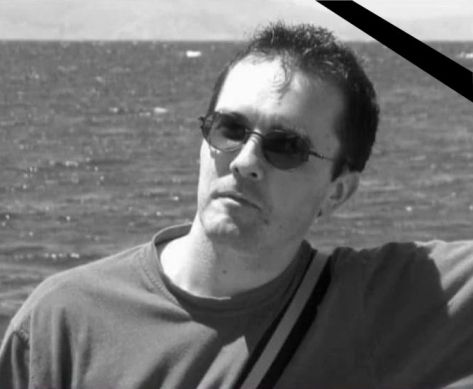 A year ago, on October 16, 2020, Samuel Paty was assassinated at the exit of the college of Bois d ́Aulne, in Conflans-Sainte-Honorine (Yvelines), where he was teaching history and geography. A year ago, on October 16, 2020, Samuel Paty was assassinated at the exit of the college of Bois d ́Aulne, in Conflans-Sainte-Honorine (Yvelines), where he was teaching history and geography.
His assassin, Abdullakh Anzorov, an 18-year-old Russian refugee of Chechen origin, resented the professor for showing caricatures of Muhammad in two moral and civic education (EMC) courses.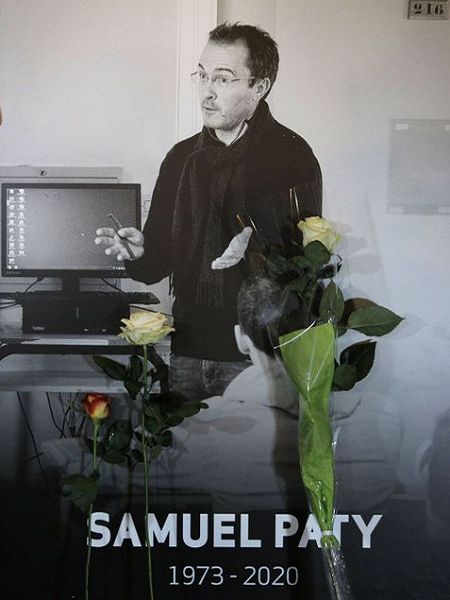
In the process of radicalization, in July 2020 he was the subject of several reports on the Pharos platform of the Ministry of the Interior.
Commemorations therefore took place in all schools in France this Friday, October 15.
"The best tribute we can pay to Samuel Paty is unity, dignity and that's what we had yesterday (Friday editor's note) in the French school system," said the Minister of National Education Jean-Michel Blanquer, guest of RTL this Saturday, October 16, 2021.
"This commemoration took place in great calm", he continued, conceding however that "there were a few incidents, we recorded 98 of them.
It is much less than what there was when there were attacks previously ”, explains the Minister. And to minimize the facts:
These incidents, “sometimes they are very small things. Sometimes it can go as far as the threat.
There are 7 of the 98 ”. These are “individual or collective” threats. We must not generalize.
Sometimes these are cookie-cutter comments, we take them seriously, ”said the Minister.
Still, if more than three quarters (77%) of 18 to 30 year olds totally condemn the author of the assassination of the history and geography professor in October 2020, 9% on the other hand condemn him but share some of his motivations, 5% do not condemn it and 9% remain indifferent.
If for 62% the decision to show a caricature of the Prophet Muhammad is an initiative that is strictly an illustration of the concept of freedom of expression, for 14% of them this initiative, behind this objective, is in fact an Islamophobic approach.
No wonder nearly two-thirds of young people (63%) believe that secularism is in danger today in France, according to a survey published Thursday on the view of 18-30 year olds on the assassination of Samuel a year ago. Paty.
Figures that should challenge the Minister of National Education....
|
|
|
|
| Garett Skyport for DayNewsWorld |
 |
There are no translations available.
LA FULGURANTE ASCENSION D'ERIC ZEMMOUR
AU SECOND TOUR DE LA PRESIDENTIELLE
|
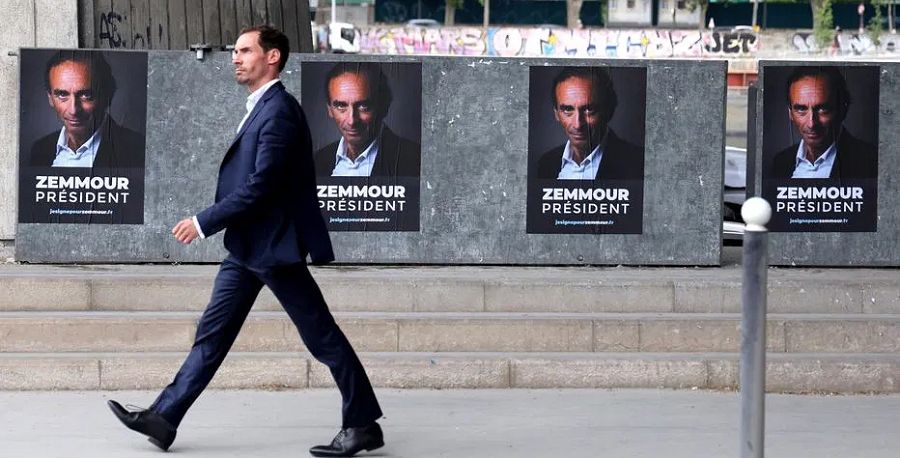 Un sondage donne pour la première fois Éric Zemmour qualifié au second tour de la présidentielle. L'essayiste, qui ne s'est pas encore déclaré, dépasse la candidate du Rassemblement national, Marine Le Pen, dans une enquête Harris interactive pour Challenges. Un sondage donne pour la première fois Éric Zemmour qualifié au second tour de la présidentielle. L'essayiste, qui ne s'est pas encore déclaré, dépasse la candidate du Rassemblement national, Marine Le Pen, dans une enquête Harris interactive pour Challenges.
Pour la première fois depuis avril 2013, Marine Le Pen n'est pas donnée au second tour de la présidentielle dans un sondage.
Derrière le chef de l'État, toujours donné en tête du premier tour (avec 24 à 27%), c'est désormais le toujours non-candidat, Éric Zemmour, qui arrive en deuxième position et est ainsi donné au second tour avec 17 à 18% des intentions de vote. Le polémiste a plus que doublé son score en moins d’un mois, devançant chaque semaine un nouveau prétendant à l’Élysée.
« Jamais nous n’avions assisté à une ascension aussi fulgurante en si peu de temps », insiste Jean-Daniel Lévy, directeur délégué de Harris Interactive. L'auteur du Suicide français (2014, Albin Michel) séduit désormais 30% des électeurs de Marine Le Pen en 2017 et 31% de ceux de François Fillon.
Donnée entre 15 et 16% des intentions de vote, la candidate soutenue par le Rassemblement national continue sa dégringolade. « On assiste à l’effondrement du cœur même de l’électorat » de Marine Le Pen . Elle aura perdu 13 points en quatre mois, selon les chiffres du même institut du mois de juin. « Alors qu’elle parvenait à conserver une bonne partie de son électorat de 2017, les transferts en direction d’Éric Zemmour se sont accélérés, dans un phénomène de vases communicants », constate Jean-Daniel Lévy. La défaite de Marine Le Pen face à Emmanuel Macron est un souvenir encore frais pour un noyau qui, rapidement, se fait à l’idée de présenter un nouveau champion pour augmenter ses chances en 2022.
Éric Zemmour donne également un coup de frein au décollage de la campagne de la droite. Ainsi, Xavier Bertrand, toujours le mieux placé à droite, perd un point à 13 % d’intentions de vote contre 11% pour Valérie Pécresse (-1) et 7 % pour Michel Barnier (-1).
À gauche, la candidate socialiste, Anne Hidalgo, et l'écologiste Yannick Jadot, sont à 6% d'intention de vote. Le candidat de la France insoumise, Jean-Luc Mélenchon à 11%.
Le polémiste pourrait continuer son ascension sondagière dans les prochaines semaines.
|
|
|
|
| Britney Delsey pour DayNewsWorld |
 |
There are no translations available.
QUI DE SANDRINE ROUSSEAU OU DE YANNICK JANOT VA GAGNER LA PRIMAIRE ECOLOGISTE ?
|
Ils sont les deux finalistes de la primaire écologiste. Ce dimanche, Yannick Jadot (27,7%) et Sandrine Rousseau (25,14%) sont arrivés en tête du scrutin. Les électeurs déjà inscrits pour voter les départageront entre les 25 et 28 septembre prochains. Bien que membres de la même famille politique, les deux prétendants au style différent défendent aussi leurs propres mesures. L' « écoféministe » radicale versus le pragmatique réaliste. C'est ainsi qu'est présenté le match du second tour de la primaire écologiste entre Sandrine Rousseau et Yannick Jadot. Qu'en est-il vraiment ?
L’économiste de 49 ans, peu connue du grand public, en retrait de sa famille politique après l’affaire Baupin, met en avant sa « radicalité » face au pragmatisme de son concurrent.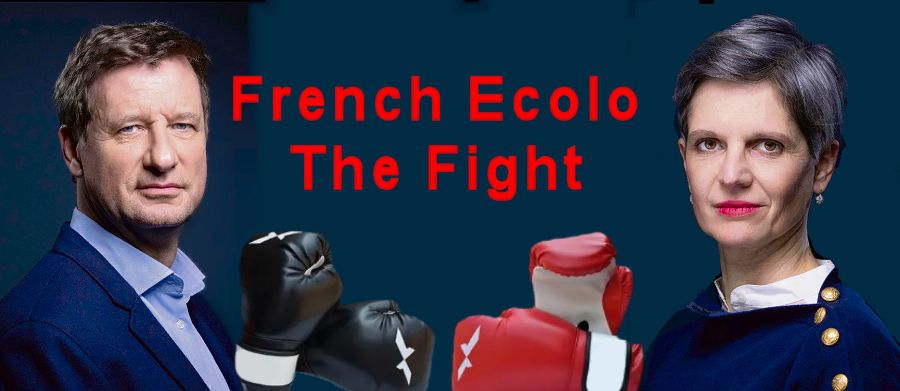
Une écologiste de gauche, radicale ,sociale « Le temps des petits pas et de l’accompagnement n’est plus le moment », a lancé la candidate, revendiquant un clivage avec son concurrent. « Yannick Jadot porte une écologie que je respecte mais qui n’est pas la mienne. Moi, je suis une écologiste de gauche, radicale, sociale », a-t-elle prévenu. Tout est dit. Il faut renverser la table.
« Il y a un désir de radicalité dans la société », affirme-t-elle péremptoirement quitte à prendre des positions des plus clivantes et des plus contestables.
Lors des universités d’été des Verts, son discours très en rupture a marqué les esprits. Sandrine Rousseau a en effet multiplié les prises de position radicales et les sorties « woke », reprenant notamment à son compte, sans sourciller, les thèses racialistes venant des Etats-Unis et du mouvement « BlackLiveMatter ». «L'écologie, c'est pas des hommes blancs à vélo», a-t -elle déclaré cet été. Ou encore : « Nous prenons, nous utilisons et nous jetons les corps des femmes, des plus précaires dans la société et des racisés. Nous ne voulons plus de ce système-là, c’est la révolution que je vous propose », martèle-t--elle fin août aux Journées d’été à Poitiers. Très engagée dans la lutte contre les discriminations, Sandrine Rousseau veut «ancrer la liberté des femmes à disposer de leurs corps», «faciliter les démarches liées à la transition de genre» et «lutter concrètement contre le racisme».
Partisane d'une «radicalité environnementale», Sandrine Rousseau défend la sortie du nucléaire le plus vite possible, la production d'une énergie d'origine 100% renouvelable d'ici à 2050, une fiscalité carbone «juste» ainsi qu'une augmentation «régulée» des prix du pétrole et du gaz. Elle souhaite ainsi instaurer une taxe carbone pour les entreprises de plus de 100 salariés ou réalisant plus de 15 millions d'euros de chiffre d’affaires, mettre en place une taxation du carbone aux frontières et orienter dans les cinq ans 500 milliards d'euros d'argent géré par la sphère publique et parapublique vers des activités 100% durables.
Il s'agit aussi d'instaurer «un droit à la nature», de renforcer le statut juridique des animaux et créer un «crime d'écocide». Un «nouveau contrat social» doit en outre garantir à chacun «l'accès aux biens de première nécessité» et instaurer «la semaine de 4 jours».
Socialement, l'un des points forts de son programme est la création d'un « revenu d’existence versé de façon individuelle à partir de 18 ans, sous conditions de ressources » qui s'élèverait à 850 euros, «majorée de 300 € en présence d’enfants, pour les personnes seules, les personnes en situation de handicap et variera selon la situation de logement ». Elle souhaite aussi garantir « la gratuité des premiers m3 d’eau et mégawatt heure d’électricité ».
Quant au volet institutionnel, la candidate ambitionne notamment de «garantir l'État de droit grâce à une nouvelle République» par le biais d'une «convention citoyenne pour la démocratie». Pour donner plus de pouvoir aux citoyens, elle souhaite notamment la création d' « une chambre composée de citoyens tirés au sort » et « la modification des règles du Référendum d’Initiative Partagé pour qu’il soit plus accessible et qu’il ait un vrai pouvoir ».
Un programme de rupture assumé par la candidate écologique.« La radicalité est la seule manière de gagner, martèle Thomas Portes, porte-parole de Sandrine Rousseau. Elle a fait revenir des gens dégoûtés de la politique, en se faisant le porte-voix des colères et des discriminations » défend Thomas Portes, ciblant en creux le positionnement de Yannick Jadot.
Le pragmatisme de Yannick Jadot ou l'écologie au pouvoir
En réponse Yannick Jadot, concurrent de l’économiste au second tour de la primaire écologiste, revendique lui aussi une certaine radicalité, refusant d'être cantonné à l'aile droite d'EELV. En effet même s’il bénéficie d’une meilleure notoriété auprès du grand public, le candidat doit d’abord séduire les militants et sympathisants écologistes les plus politisés, c.à-d les plus jeunes. Il ne peut donc se laisser enfermer dans l’aile droite d’EELV, notamment après les bons scores d’Eric Piolle et de Delphine Batho, à plus de 22 %.
Mais l'eurodéputé se veut pragmatique et préfère jouer la carte de « l'écologie au pouvoir ». « La radicalité de Yannick, c’est de mettre l’écologie au pouvoir, d’agir en actes et non en paroles. C’est tout ce que montre son parcours. Il n’a jamais rien cédé aux lobbys, de son passage à Greenpeace au combat contre la pêche électrique au Parlement européen », dit de lui Eva Sas, porte-parole d’EELV et soutien de Jadot.
Ses proches louent aussi son profil consensuel, plus à même de rassembler une majorité de Français. « Les écologistes souhaitent passer un cap, ne plus être dans le témoignage. On l’a fait dans les villes de plus de 100.000 habitants [aux municipales de 2020], on veut le faire maintenant au niveau national », poursuit Eva Sas. « Il faut rassembler autour d’un projet et – c’est peut-être la principale différence – Yannick souhaite le faire avec les forces syndicales, les ouvriers de l’industrie, les agriculteurs… ».
Pour ce faire, l'eurodéputé propose d'investir 20 milliards d’euros par an sur cinq ans pour réussir la transition écologique, en mettant l'accent sur la rénovation thermique et les énergies renouvelables, les mobilités et les infrastructures, la mutation agricole, la préservation de la biodiversité, les universités et l’innovation. Selon lui, cela permettrait de créer un million d’emplois de qualité, non délocalisables et répartis sur tout le territoire. Il souhaite également conditionner les soutiens publics accordés aux entreprises au respect de l’environnement, du progrès social et de l’égalité femmes-hommes.
Sur un plan purement énergétique, si les deux candidats souhaitent sortir du nucléaire, Yannick Jadot souhaite le faire« de manière responsable, c’est-à-dire sur quinze ou vingt ans ».
Le candidat européen veut aussi «s'engager pour une agriculture et une alimentation saines et respectueuses de l'environnement» avec comme objectif l'interdiction des néonicotinoïdes et le glyphosate dès 2022. « D’ici 2030, 30% des fonds de la PAC seront destinés à approvisionner la restauration collective publique en produits 100% bio, de qualité et de proximité », lit-on également sur son site Internet.
Pour «décarboner nos modes de vie» et construire une «France résiliente, innovante et décarbonée», il propose d'interdire la vente de voitures diesel et thermiques classiques à partir de 2030 et généraliser les Zones à Faibles Émissions en 2025.
Le volet social comprend l'ouverture de «droits nouveaux pour les salariés et les actifs» avec un droit au télétravail, ainsi que l'organisation des «transitions professionnelles» et la protection «des plus vulnérables». Aussi Yannick Jadot souhaite-il mettre en place un plan de soutien à la demande doté de 30 milliards d’euros, qui représenterait une aide immédiate de 2000 euros pour les personnes vivant sous le seuil de pauvreté, financé par une contribution exceptionnelle sur les très hauts patrimoines et les dividendes des sociétés dont les bénéfices ont crû pendant la pandémie de Covid-19. L'eurodéputé souhaite également instaurer un revenu citoyen et revaloriser le RSA de 100 euros. Ce dernier serait alloué aux jeunes fiscalement autonomes dès 18 ans, et versé à condition qu'ils aient un projet ou fassent une formation dans des métiers émergents.
Enfin sur le plan institutionnel,Yannick Jadot propose un septennat non renouvelable et l'élection des députés via un scrutin proportionnel « dans un cadre départemental avec un seuil de représentation de 5% et la parité ».
Avec ce programme qui se veut donc moins révolutionnaire que celui de Sandrine Rousseau, Yannick Jadot espère « construire un grand rassemblement» pour gagner les élections .
« Il s’agit plus d’une question de communication que de fond, car le projet d’EELV est déjà radical. En réalité, quel est le meilleur moyen pour faire basculer une partie de l’opinion sur l’urgence climatique ? », interroge Alain Coulombel, le porte-parole d’EELV qui résume le choix des prochains jours.
« Yannick Jadot mise plutôt sur l’apaisement pour ne pas effrayer l’opinion publique. Sandrine Rousseau incarne, elle, le thème de l’urgence de manière plus tranchée, en écho à la partie la plus politisée de l’opinion publique, notamment les jeunes, qui ont un désir de radicalité. », conclut-il.
|
|
|
|
| Joanne Courbet pour DayNewsWorld |
 |
There are no translations available.
FRANCE LE PROCES HORS-NORME
DES ATTENTATS DU 13 NOVEMBRE 2015
|
Le procès des attentats du 13 novembre 2015 s'ouvre ce mercredi 8 septembre 2021 devant la cour d'assises spéciale de Paris. C' est la plus grande audience criminelle jamais organisée en France. Au moins 145 journées de procès sont prévues jusqu'au 25 mai 2022, le dossier d'instruction compte un million de pages, 330 avocats y figurent, et 1.765 personnes, d'une vingtaine de nationalités différentes, se sont constituées parties civiles. Huit caméras enregistreront les débats au titre des archives audiovisuelles de la justice.
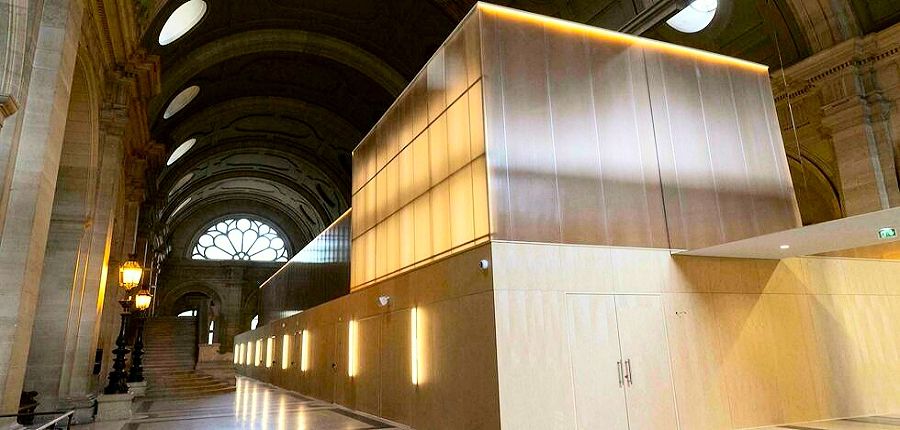 Une salle d'audience de 700 m2 Une salle d'audience de 700 m2
Dans le bâtiment historique du palais de justice de Paris, sur l'île de la Cité, une salle d'audience de 700 m2, la « plus grande jamais construite », a été bâtie, dans le respect du style du palais. Au moins 17 salles annexes pourront retransmettre les débats et une webradio sécurisée permettra aux victimes de suivre les audiences de chez elles, en léger différé.
Salah Abdeslam entendu en janvier.
Un des moments forts du procès sera l'audition de Salah Abdeslam, le seul membre du commando encore en vie. Son interrogatoire est prévu les 13 et 14 janvier 2022. Agé de 31 ans, ce proche d'Abdelhamid Abaaoud, le chef opérationnel des commandos, a abandonné sa ceinture d'explosifs dans la soirée du 13 novembre 2015 pour des raisons qui restent encore inconnues. Depuis, il a presque systématiquement gardé le silence face aux juges ou lors de son procès à Bruxelles en 2018, où il a été condamné à vingt ans de prison pour avoir tiré sur des policiers en 2016. Il risque la perpétuité.
Vingt personnes jugées.
En plus de Salah Abdeslam, dix-neuf autres personnes seront jugées.
Quatorze seront présentes (onze sont détenues et prendront place dans le box des accusés, trois comparaîtront libres). Parmi elles, Mohamed Abrini (jugé pour avoir accompagné en région parisienne les commandos du 13-Novembre et participé à leur financement et à la fourniture de leurs armes, également impliqué dans les attentats de Bruxelles), Mohammed Amri (qui a reconnu être allé chercher Salah Abdeslam en voiture le soir des attentats pour le ramener en Belgique), Mohamed Bakkali (considéré comme un des logisticiens du commando) ou encore Osama Krayem (un compagnon de cavale de Salah Abdeslam à Bruxelles après les attentats de Paris).
Les autres sont absentes, certains présumés mortes. Il s'agit notamment des frères Fabien et Jean-Michel Clain, tous les deux identifiés dans le message audio revendiquant les attentats du 13-Novembre (ils auraient été tués en février ou mars 2019 dans une frappe aérienne en Syrie) ou encore d'Oussama Atar, considéré comme l'un des responsables de la branche renseignement du groupe Etat islamique et un ordonnateur des attentats parisiens (il aurait été tué dans une frappe occidentale en Syrie en 2017).
Olivia Ronen est l'avocate de Salah Abdeslam.
A 31 ans seulement, Olivia Ronen aura la délicate tâche d'assurer la défense de Salah Abdeslam. Profil bien éloigné du médiatique ténor du barreau de Lille Frank Berton, un temps l'avocat du dernier survivant du commando, elle a été officiellement désignée en novembre 2020. C'est Salah Abdeslam lui-même qui a pris contact avec elle, il y a trois ans, depuis la prison de Fleury-Mérogis où il est détenu sous très haute sécurité.Abdeslam avait officiellement désigné l'avocate en novembre 2020.
Mais Olivia Ronen ne dira rien sur cette rencontre et le moment où la décision a été prise. Pas davantage sur l'état d'esprit de son client ainsi que la manière dont il aborde son procès, alors qu'il est resté principalement mutique depuis plusieurs années. Une ligne de conduite pour ne pas « l'enfermer dans quelque chose de prédéfini », étaye l'avocate.
Reçue au concours de la Conférence du stage qu'elle avait préparé en 2015, elle avait dans ce cadre assuré la défense de l'ancien militaire Erwan Guillard, parti faire le djihad en Syrie et condamné à 11 ans de réclusion criminelle en appel en 2019.
Elle était aussi intervenue dans le dossier de l'attentat perpétré le 14 juillet 2016 à Nice. Une incursion qui s'était soldée par un « sentiment d'impuissance » après le suicide en prison de son client, en 2019.Dans le cadre du procès l'avocate, qui a prêté serment en 2016, sera aussi épaulée par Me Martin Vettes, âgé de 32 ans.
Jean-Louis Périès, un président expérimenté.
A l'inverse, le magistrat qui a été choisi pour présider le procès historique est très expérimenté. A 65 ans, Jean-Louis Périès vivra même son dernier procès avant la retraite. Il s'y prépare depuis près d'un an et demi. Jean-Louis Périès sera épaulé par deux autres présidents d'assises pour le procès : la première assesseure Frédérique Aline et la magistrate honoraire Xavière Siméoni.
Trois avocats généraux représenteront l'accusation, portée par le parquet national antiterroriste : Camille Hennetier, Nicolas Le Bris et Nicolas Braconnay
|
|
|
|
| Garett Skyport pour DayNewsWorld |
 |
There are no translations available.
FRANCE LES POLICIERS POURRONT PRENDRE LE TRAIN GRATUITEMENT
|
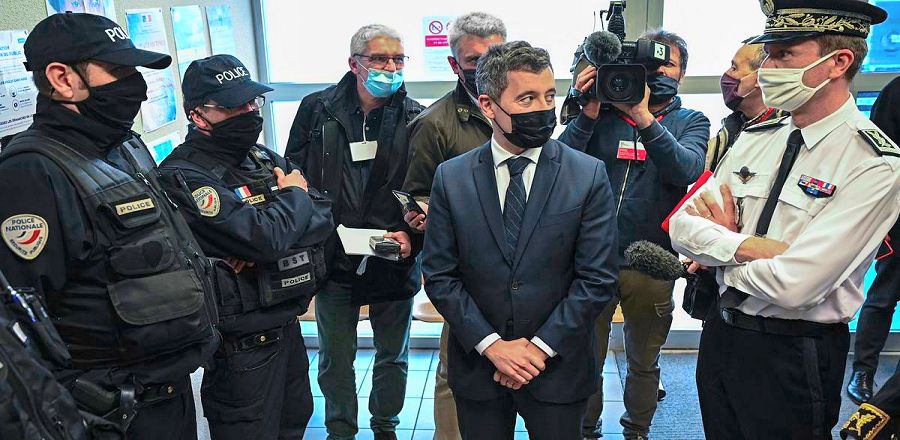 La promesse de Gérald Darmanin, formulée fin mars lors d’un déplacement à Thionville, va devenir réalité. La gratuité des transports sur le réseau SNCF pour les policiers en service actif relevant de la Direction Générale de la Police Nationale a été actée ce vendredi et sera appliquée dès 2022. La promesse de Gérald Darmanin, formulée fin mars lors d’un déplacement à Thionville, va devenir réalité. La gratuité des transports sur le réseau SNCF pour les policiers en service actif relevant de la Direction Générale de la Police Nationale a été actée ce vendredi et sera appliquée dès 2022.
« Gratuité des transports : conformément à la demande de l’Unsa Police avant l’ouverture du Beauvau de la sécurité, le ministre de l’Intérieur confirme la mise en place du dispositif au 1er janvier 2022 », a tweeté vendredi ce syndicat. Le ministre de l’Intérieur en fera l’annonce officielle lundi aux syndicats de policiers.
En contrepartie de la sécurisation des trains
Mais pour bénéficier de la gratuité de leurs trajets quotidiens domicile- travail, ils devront se signaler au personnel à bord et porter leur arme pour participer à la « sécurisation des trains ».
Le ministre s’est félicité sur Twitter d’un « partenariat gagnant / gagnant permettant de mieux sécuriser les trains et faciliter la vie de nos policiers ». Le prix du billet sera pris en charge par le ministère, a-t-on poursuivi de même source.
En contrepartie de la sécurisation, Gérald Darmanin s’est également engagé à dédommager à hauteur de 75% les trajets de loisirs des policiers sur le modèle de la convention qui existe entre la SNCF et le ministère des Armées. Le reste à charge de 25% sera progressivement pris en charge par un système de bon d’achat puis totalement au 1er janvier 2023.
Une mesure sociale aussi
«Enfin une mesure sociale digne de ce nom», salue sur Europe 1 Fabien Vanhemelryck, secrétaire général du syndicat Alliance. «C’était acté depuis 2016 mais il a fallu attendre ce ministre de l’Intérieur pour qu’il le mette en application. C’est une avancée historique que nous attendions depuis des décennies», précise le policier. Le ministre de l'Intérieur fait d'une pierre deux coups...
A sept mois de l’élection présidentielle la sécurité de la population deviendrait-elle une priorité pour le gouvernement d'Emmanuel Macron ?
|
|
|
|
| Alize Marion pour DayNewsWorld |
 |
There are no translations available.
CORONAVIRUS
LA FRANCE SUR LE RETOUR A LA VIE NORMALE
|
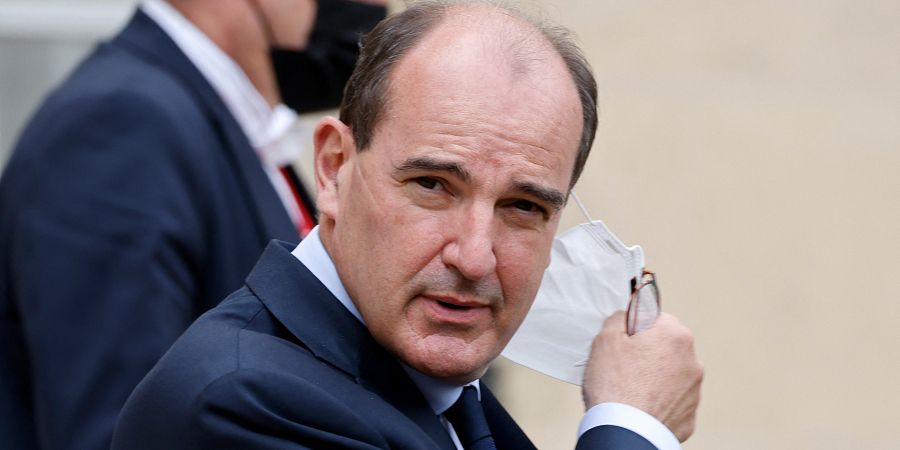 En visite mardi 31 août 2021 dans un centre de vaccination mobile d'Illkirch-Graffenstaden (Bas-Rhin), Jean Castex s'est voulu optimiste estimant que la France était sur « le bon chemin » d'un retour à la « vie normale ». En visite mardi 31 août 2021 dans un centre de vaccination mobile d'Illkirch-Graffenstaden (Bas-Rhin), Jean Castex s'est voulu optimiste estimant que la France était sur « le bon chemin » d'un retour à la « vie normale ».
« Oui, on est sur le bon chemin car l'on connaît l'origine du bon chemin, c'est la vaccination », a lancé le Premier ministre. Environ 48,5 millions de Français ont reçu au moins une dose à la date de lundi, et 43,9 millions, soit 65,1% de la population, sont considérés comme complètement vaccinés.
La vaccination comme préalable
Le Premier ministre a également estimé que la quatrième vague de Covid-19 était « maîtrisée et contrôlée »Mais il a fait .« Il y a quand même un lien entre le taux d'incidence et le taux de vaccination. On voit que cette quatrième vague - on va parler avec prudence - est maîtrisée on va dire, contrôlée. Nous préparons les rentrées scolaires, universitaires, les vaccinations etc. Donc nous devons rester mobilisés ».
Si en ce qui concerne Ia vaccination, le Premier ministre a une nouvelle fois écarté la mise en place d'une obligation pour tous,. les soignants, par contre, sont concernés et devront avoir reçu au moins une injection au 15 septembre, puis justifier d'une vaccination complète au 15 octobre, pour exercer « La vaccination des soignants, je m'en réjouis beaucoup car elle a fortement progressé », a estimé Jean Castex.
« Donc, la conviction, le sens des responsabilités, restent nos armes privilégiées. »
« Mais je considère qu'il y a encore du travail, il y a encore des populations qui ne sont pas vaccinées et donc qui sont exposées et quelque part qui sont en danger », a insisté le Premier ministre.
Une question de responsabilité collective et individuelle Ainsi le premier ministre confirme-t-il les propos tenus hier par le président du conseil d'orientation de la stratégie vaccinale , Alain Fischer, qui avait estimé que la France n'était « pas très loin du retour à une vie proche de la normale ». Tout en soulignant qu'il ne pouvait pas « être plus précis » sur la date, « car ça dépend de l'adhésion de la population à la vaccination, du respect des gestes barrières... »
« On n'en est pas encore complètement sorti, c'est une affaire de responsabilité collective et individuelle. », a conclu le successeur d'Edouard Philippe.
|
|
|
|
| Britney Delsey pour DayNewsWorld |
 |
There are no translations available.
CINQ AFGHANS EXFILTRES EN LIEN
AVEC LES TALIBANS ?
|
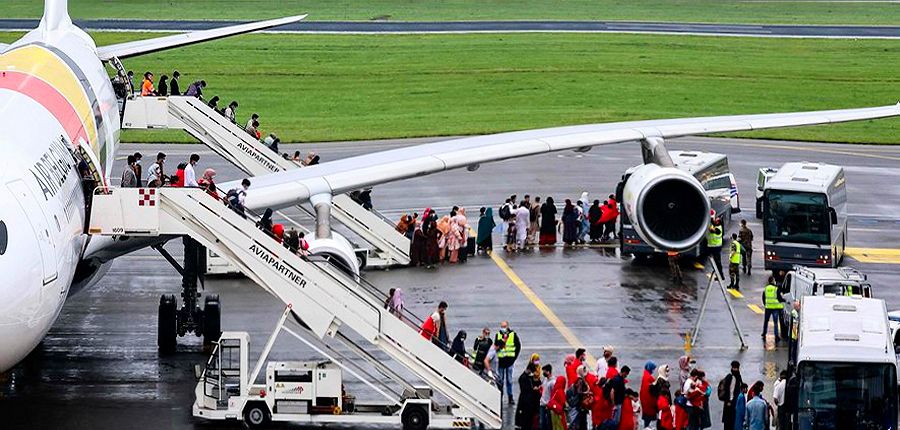 Des talibans auraient profité du chaos régnant dans le pays pour s’infiltrer à bord des vols rapatriant les ressortissants afghans et, ainsi, gagner la France. A peine débarqués sur le sol français, cinq Afghans se sont en effet vu notifier leur placement sous surveillance accrue, dans le cadre de la prévention du terrorisme islamiste. Des talibans auraient profité du chaos régnant dans le pays pour s’infiltrer à bord des vols rapatriant les ressortissants afghans et, ainsi, gagner la France. A peine débarqués sur le sol français, cinq Afghans se sont en effet vu notifier leur placement sous surveillance accrue, dans le cadre de la prévention du terrorisme islamiste.
Les services de renseignement ont identifié ces derniers jours cinq afghans soupçonnés proches du mouvement taliban, parmi lesquels un certain Niangalay S.
Le jeune homme, né en 1995 dans la province de Logar, dans l’est du pays, à moins de cent kilomètres de Kaboul, a pu profiter d’une opération de rapatriement le 18 août à la faveur, souligne une source policière, « de la confusion ambiante qui régnait sur place ». Transféré de l’ambassade de France à l’aéroport international de Kaboul puis à Abou Dhabi (Emirats arabes unis) par avion militaire gros porteur A400M, il a ensuite pu gagner la France.
Le jeune homme lui-même aurait non seulement admis appartenir au mouvement taliban, mais encore confirmé les éléments recueillis par les services de renseignement, selon lesquels il occupait notamment la fonction de responsable d’un check-point situé non loin de l’ambassade de France, avant de se mêler au flot des réfugiés accueillis dans l’enceinte du bâtiment lors de la chute de la ville.
Le ministre de l’intérieur, Gérald Darmanin, a précisé que cette personne avait «très largement aidé à l’évacuation de l’ambassade de France » …
«Devant les difficultés extrêmement fortes de pouvoir faire des enquêtes de sécurité sur les personnes devant être rapatriées », les autorités françaises « ont accepté d’embarquer cette personne et sa famille », a ajouté le ministre.
A l’arrivée du vol à Abu Dhabi, la Direction générale de la surveillance intérieure (DGSI) « a fait le travail qu’elle n’avait pas pu faire à Kaboul » en menant des entretiens de sécurité, a-t-il expliqué.
|
|
|
|
| Alize Marion pour DayNewsWorld |
 |
There are no translations available.
AFGHANISTAN PLUS D'UN MILLIER D'AFGHANS EXFILTRES EN FRANCE
|
 Une sixième rotation du pont aérien mis en place par l’armée française pour exfiltrer les Français et certains Afghans de Kaboul tombée aux mains des talibans a permis l’arrivée dimanche soir à Paris de 250 personnes, a annoncé l’État-major. Une sixième rotation du pont aérien mis en place par l’armée française pour exfiltrer les Français et certains Afghans de Kaboul tombée aux mains des talibans a permis l’arrivée dimanche soir à Paris de 250 personnes, a annoncé l’État-major.
Pont aérien, opération Apagan
« Ce soir un A330 s’est posé à Paris, en provenance d’Abu Dabi. À son bord, 250 Français et Afghans désormais en sécurité. Un autre A330 se posera dans la nuit, avec 150 personnes », a tweeté l’État-major Français. Le vol arrivé dimanche soir représente la sixième arrivée et celle annoncée sera la septième.
250 Français et Afghans ont été exfiltrés et mis en sécurité dimanche soir grâce au pont aérien entre Kaboul et Paris. Un autre vol avec 150 personnes à bord est attendu
Le pont aérien français, baptisée opération Apagan, transporte les exfiltrés de Kaboul à Abou Dhabi, sur une base militaire française, puis jusqu’à Paris.
Le premier vol arrivant à Paris a ramené mardi 41 personnes, principalement des Français, mercredi 209 personnes, principalement des Afghans, jeudi 206, vendredi une centaine, tout comme samedi.
Deux ministres aux Émirats arabes unis .
Depuis le 15 août, « près de 100 ressortissants français, près de 40 ressortissants de pays partenaires et plus d’un millier d’Afghans » menacés pour avoir travaillé auprès d’institutions et ONG françaises ou en raison de leur engagement dans la société civile afghane ont ainsi rejoint la France via les Émirats, a précisé le ministre français des Affaires étrangères, Jean-Yves Le Drian
De nombreuses personnes disant avoir travaillé pour des structures françaises ou des membres de la société civile ont demandé à être exfiltrées, alors que la situation à Kaboul est tendue, l’ambassade s’est repliée sur l’aéroport, cerné d’une foule d’Afghans qui voudrait être exfiltrée.
Les ministres Jean-Yves Le Drian et Florence Parly aux Emirats-Unis
Les ministres français des Affaires étrangères et des Armées sont attendus lundi aux Émirats arabes unis, où ils feront le point sur le dispositif français qui a déjà permis d’évacuer plus de mille Afghans depuis le retour des talibans au pouvoir à Kaboul. Jean-Yves Le Drian et Florence Parly vont se rendre sur la base aérienne 104 d’Al-Dhafra, à 30 kilomètres d’Abou Dhabi, où l’armée de l’Air française a mis en place un pont aérien vers Kaboul, ont annoncé les deux ministères dans un communiqué commun.
Les deux ministres rencontreront « les diplomates, les militaires, les policiers et l’ensemble des personnels qui concourent, dans des conditions extrêmement difficiles, au déroulement des opérations d’évacuation depuis Kaboul ».
Les cas de tous les Afghans qui sollicitent les autorités françaises pour demander à être exfiltrés de leur pays tombé aux mains des talibans sont examinés, a assuré le ministre des Affaires étrangères Jean-Yves Le Drian.
« Plus de 9 Afghans sur 10 obtiennent l’asile et un statut de réfugié » Depuis la conquête de l’Afghanistan par les Talibans et la déclaration controversée d' Emmanuel Macron sur la nécessité, pour la France, de se « protéger contre les flux migratoires irréguliers », la question de l’accueil des Afghans exilés domine le débat politique national.
Stanislas Guérini, délégué général de La République en marche (LREM) et Laurent Jacobelli, porte-parole du Rassemblement national (RN), ont ainsi avancé des chiffres similaires.
« Chaque année, ce sont 10.000 Afghans qui demandent l’asile dans notre pays. Plus de 9 sur 10 obtiennent l’asile et un statut de réfugié », avançait le premier, quand le second affirmait :
0« Il y a déjà 10.000 réfugiés afghans par an qui demandent l’asile politique en France, les 4/5e l’obtiennent ». « Il faut donner le droit d’asile à tous ceux qui remplissent les critères, et particulièrement à ceux qui ont travaillé pour notre armée ou avec des ONG françaises, qui sont aujourd’hui en danger », confirme Sylvain Maillard, député de Paris et porte-parole du groupe LREM. « Nous n’avons pas du tout à rougir car nous sommes l’un des pays qui accueillent le plus d’Afghans et qui leur donnent le plus de protection », a souligné l’Elysée ce mardi, alors que depuis 2018, la France a accordé l’asile à environ 90 % des quelque 10.000 demandes d’asile d’Afghans.
Les Afghans exfiltrés pourront effectuer une demande d’asile en France s’ils le souhaitent.
|
|
|
|
| Alyson Braxton pour DayNewsWorld |
 |
There are no translations available.
LES ANTI-PASSE SANITAIRE, UN MOUVEMENT HETEROCLITE ET CONTRADICTOIRE
|
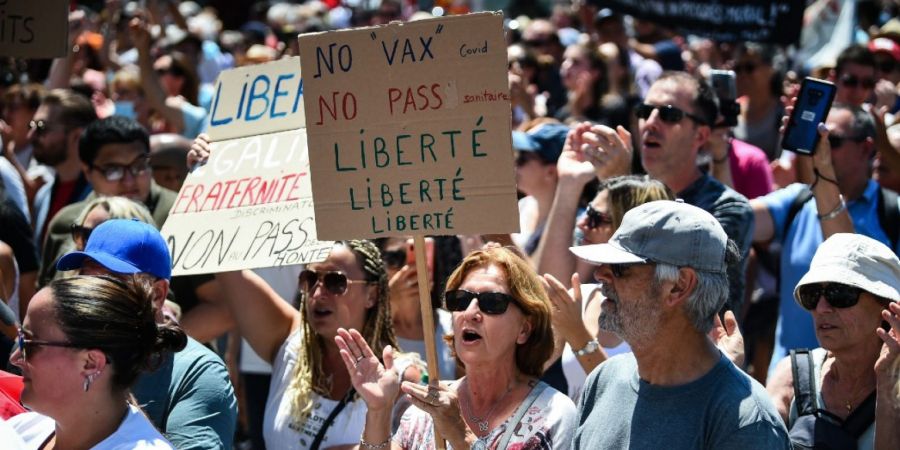 Les opposants au pass sanitaire et à la vaccination étaient au rendez-vous pour leur sixième week-end de mobilisation, samedi 21 août, avec plus de 220 manifestations recensées par le ministère de l'Intérieur. Ils se sont élancés aux quatre coins du pays en début d'après-mi. Au total, 175 503 personnes ont défilé, annonce la même source, un chiffre en baisse par rapport à la semaine précédente, qui avait mobilisé près de 215 000 manifestants. Vingt personnes ont été interpellées, et un membre des forces de l'ordre a été blessé. Les opposants au pass sanitaire et à la vaccination étaient au rendez-vous pour leur sixième week-end de mobilisation, samedi 21 août, avec plus de 220 manifestations recensées par le ministère de l'Intérieur. Ils se sont élancés aux quatre coins du pays en début d'après-mi. Au total, 175 503 personnes ont défilé, annonce la même source, un chiffre en baisse par rapport à la semaine précédente, qui avait mobilisé près de 215 000 manifestants. Vingt personnes ont été interpellées, et un membre des forces de l'ordre a été blessé.
Mais qui sont ces manifestants ?
« Une ultraminorité », assurait le ministre de la santé Olivier Véran vendredi 16 juillet. Une des clés de la réussite de la mobilisation des manifestations contre le passeport sanitaire, tous les samedis dans plusieurs villes, est de réunir des personnes aux motivations diverses, se recoupant ou non : anti-passe sanitaire, anti-vaccins, complotistes et anti-système.
Dans les cortèges se mêlent militants des partis extrêmes, adeptes des médecines douces, complotistes biberonnés aux réseaux sociaux, personnels soignants vent debout contre la vaccination obligatoire ou commerçants excédés. Un mouvement hétéroclite et parfois contradictoire: on peut être anti-passe sans être anti-vaccination. On trouve par exemple des restaurateurs qui manifestent leur mécontentement car le passe sanitaire nuit en partie à leurs revenus. Dans ce mouvement, tout se mélange.
Les non-vaccinés voient à 94 % un danger dans un « vaccin sur lequel on manque de recul ». Ils jugent à 88% que le passe sanitaire « est une atteinte aux libertés », et à 89% qu'il y a « d'autres moyens de lutter contre le Covid-19 que la vaccination ».
Les conspirationnistes peuvent dans ce contexte libérer leurs théories les plus folles. Par exemple, les vaccins du Covid-19 sont conçus pour réduire la population mondiale, ou encore pour contrôler les esprits grâce à la 5G ». Les mesures sanitaires restrictives de liberté auraient pour objectif d’imposer un nouvel ordre mondial reposant sur une surveillance généralisée des populations. Il y a ceux aussi dont la principale motivation n’est pas la crise sanitaire mais l’opposition à la politique d’Emmanuel Macron ou, plus globalement, au « système », c’est-à-dire aux partis de gouvernement. Et les mots pour l'exprimer, violents : pour 43% des sondés, « la France devient une dictature ». Une opinion surtout défendue par les non-vaccinés (82%), les sympathisants LFI (64%) et RN (68%). Apparaissent ainsi des figures habituées de la contestation sociale, comme Jérôme Rodrigues, Eric Drouet ou Maxime Nicolle, tous trois anciens leaders du mouvement des gilets jaunes. Mais aussi les ennemis indéfectibles du système. Qu’ils soient d’extrême gauche, libertaires de la mouvance « antifa » ou militants du Nouveau parti anticapitaliste (NPA). Ou qu’ils soient d’extrême droite, des chrétiens intégristes de Civitas aux divers groupuscules néofascistes, souvent en ravivant un complotisme antisémite. Leur cohabitation est parfois émaillée de tensions voire de violences comme on l'a vu à Nantes, à Montpellier ou à Metz.
Face à cette minorité bruyante 72% des Français plébiscitent la vaccination et près de 46 millions ont reçu au moins une dose. L'opinion soutient aussi majoritairement le passe sanitaire, à 57%. D'ailleurs, 60% des sondés le voient comme « une façon de responsabiliser ceux qui ne veulent pas se vacciner ».
|
|
|
|
| Jaimie Potts pour DayNewsWorld |
 |
There are no translations available.
COVID LE TRI DES PATIENTS ATTEINTS DU VARIANT DELTA EN GUADELOUPE
|
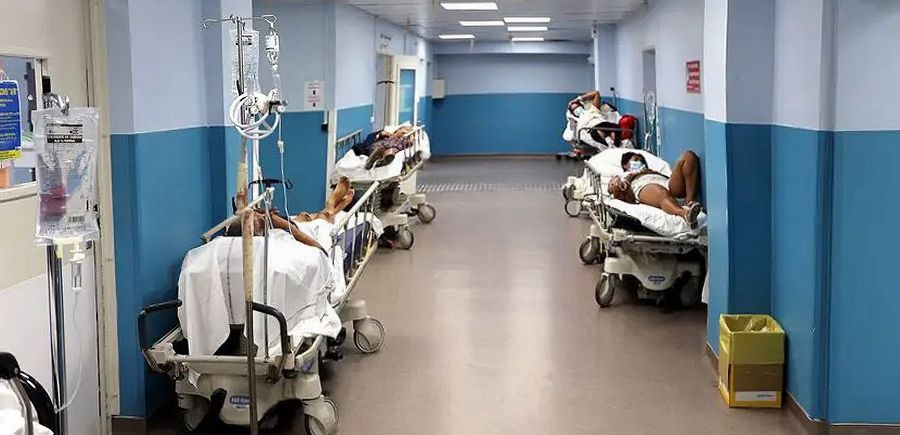 Depuis plusieurs semaines, les Antilles, dont la situation sanitaire est jugée « d'extrêmement grave » par le ministre des Outre-mer Sébastien Lecournu, subissent de plein fouet les effets de la quatrième vague de Covid-19. Depuis plusieurs semaines, les Antilles, dont la situation sanitaire est jugée « d'extrêmement grave » par le ministre des Outre-mer Sébastien Lecournu, subissent de plein fouet les effets de la quatrième vague de Covid-19.
Un tri des patients
La Guadeloupe et la Martinique sont aujourd'hui les départements les plus touchés dans le pays. Pour faire face à cette situation, un tri des patients à l'entrée de l'hôpital et au niveau de l'admission en service de réanimation serait effectué en Guadeloupe, selon une source du Courrier Picard.
Ce tri en service de réanimation s'opérerait à partir de 50 ans et depuis ce lundi. « Les malades au-dessus de 50 ans et ceux en dessous ayant au moins un facteur de comorbidité ne sont plus intubés, confient au quotidien deux infirmières du CH de Dunkerque, envoyées en renfort à l'hôpital de Pointe-à-Pitre en Guadeloupe la semaine dernière. La perte humaine sera énorme malgré toutes les bonnes intentions. Plus les jours passent, plus on se rend compte que la situation est catastrophique ! Les gens meurent dans les couloirs faute de place ».
L'information a été confirmée par le quotidien L'Echo de la Lys, dans les colonnes duquel une infirmière a confié « qu'aujourd'hui, ne pas être admis en réanimation c’est possible si vous n’avez pas 50 ans. On recule encore une fois. Les plus de 50 ans ne reçoivent malheureusement pas les soins auxquels ils pourraient prétendre ».
De nouveaux renforts de soignants venant de la métropole
Face à la dégradation de la situation sanitaire aux Antilles, de nouveaux renforts de soignants vont être envoyés vendredi en Guadeloupe et en Martinique, d’où une dizaine de malades devraient être évacués vers la métropole dans les prochains jours, a indiqué le ministère de la Santé, ce mercredi.
Le pont aérien se poursuit pour soulager les hôpitaux antillais saturés par les cas de coronavirus. « Un peu plus de 120 » soignants sont partis mardi pour la Guadeloupe et la Martinique, et « d’autres renforts arrivent vendredi », toujours « équitablement répartis entre les deux îles », selon le ministère.
Envoi d'oxygène médical
Florence Parly, ministre des Armées, a annoncé lundi un premier voyage du navire Dumont d’Urville de la Marine nationale pour livrer de l’oxygène aux Antilles, frappées de plein fouet par la quatrième vague de l’épidémie. L’acheminement de plus de 100 tonnes d’oxygène médical en Martinique doit permettre de prévenir tout risque de pénurie dans l'île.
Parti le 15 août depuis la Guyane, il « devrait accoster à Fort-de-France le 19 août pour mettre ces stocks d’oxygène à la disposition de l’Agence régionale de santé », indique son communiqué.
Des évacuations qui vont « se renforcer »
Ces professionnels de santé – dont le nombre n’a pas été précisé – doivent assurer « la relève » des 240 médecins, infirmiers et aides-soignants arrivés la semaine dernière. Au CHU de Guadeloupe, 40 % des lits sont désormais occupés par des patients Covid-19, et la morgue est saturée, a indiqué mercredi Gérard Cotellon, le directeur général du CHU. Les 46 lits de réanimation ouverts sont occupés et les urgences enregistrent jusqu’à 80 passages par jour, pour le Covid uniquement. « Tout le monde fait du Covid, même ceux dont la spécialité est loin de ce type de pathologie », a souligné Gérard Cotellon.
De nouvelles évacuations sanitaires vers la métropole sont « en cours d’organisation pour la fin de semaine ou le tout début de semaine prochaine », afin de désengorger les services de réanimation de Pointe-à-Pitre et Fort-de-France. Le ministère envisage le transfert de huit malades par gros-porteur dans le cadre de l’opération « Hippocampe », ainsi que de trois autres patients en jet Falcon, dont « les dates et îles de départ sont en cours de calage ». La directrice générale de l’Agence régionale de santé en Guadeloupe Valérie Denux a indiqué lors d’une conférence de presse que les évacuations sanitaires allaient « se renforcer » dans les semaines à venir.
La vaccination encore trop faible aux Antilles
En début de semaine prochaine, « nous ferons une autre rotation et on va ensuite accélérer les évacuations sanitaires en fonction des besoins car la vague est très forte et nous rattrape », a-t-elle ajouté, anticipant plusieurs évacuations par semaine. Ce dispositif est « plus que nécessaire pour soulager les services du CHU », a relevé Valérie Denux. « Nous avons ouvert 86 lits de réanimation sur tout le territoire et 82 sont occupés. Or, nous avons 5 à 7 entrées par jour ». Entre le 9 et le 15 août, la Guadeloupe a enregistré 7.276 nouveaux cas. Aux Antilles, la couverture vaccinale est trois fois inférieure à celle de la métropole. Côté vaccination, 32 % des Guadeloupéens de plus de 18 ans ont reçu une première injection, quand seulement 20,9 % ont un parcours vaccinal complet.
|
|
|
|
| Andrew Preston pour DayNewsWorld |
 |
FIFTH EVENT
AGAINST THE MEDICAL PASS IN FRANCE |

The're opponents to pass health to the streets, Saturday, Aug. 14, 2021, for the fifth consecutive weekend, over 200 events are planned in France.
The authorities expect to see some 250,000 demonstrators marching across the country.
Unprecedented in the middle of summer, the protest continues to grow. They were just over 237,000 last week, according to the interior ministry, more than double the scale of the movement's beginnings in mid-July.
Protesters accuse the government of underestimating the anti-health pass protest.
The militant collective Le Nombre Jaune, which publishes a city-by-city count on Facebook, for its part, last Saturday more than 415,000 participants at "minimum" in France.
In several cities, the movement is presented in dispersed order.
Particularly in Paris, where the presence of the far right has hitherto prevented the creation of a common front. Three different gatherings are still scheduled for Saturday. |
|
|
|
| Boby Dean for DayNewsWorld |
 |
DRAMATIC HEALTH SITUATION
IN THE CARIBBEAN |
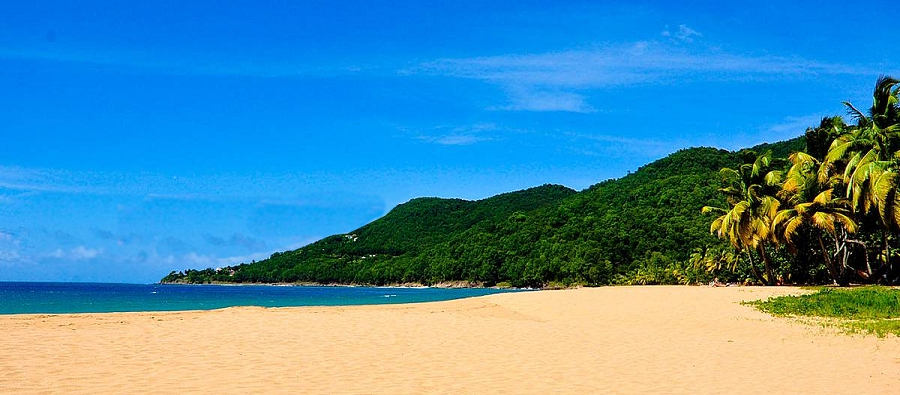
In France, the fourth wave of Covid-19 particularly hits the overseas territories. Emmanuel Macron was alarmed, Wednesday August 11, 2021 by opening a health defense council, of the "dramatic situation" of the epidemic in the West Indies, where "the increase in contaminations results in an explosion of serious forms" of Covid-19.
In addition to the outbreak of Covid-19 cases in the West Indies, the Head of State underlined "the worrying state of affairs" in the Provence-Alpes-Côte d'Azur, Corsica and Occitanie regions, where the incidence rate exceeds 500 cases per 100,000 and raises fears of hospital pressure, he added.
"An emergency scenario is before us today", declared the Head of State during this defense council by videoconference.
This situation "implies the unconditional solidarity of the nation" and offers "the cruel demonstration" that "vaccination is the most effective means" against the virus, he added. This outbreak of contaminations has indeed an explanation: the weak vaccination. In Martinique, only 14.8% of the population is fully vaccinated against 55.6% nationwide.
"The objective is the vaccination of all French people," said Mr. Macron, launching a "call for civility and a sense of duty".
He explained "that we must meet at least the target of 50 million vaccinated at the end of August", and that
"We are on the right track", since "37.8 million French people" are already fully vaccinated.
The president also confirmed the establishment, at the start of the school year, of a vaccine booster campaign, with a third dose for those over 80 and particularly vulnerable people.
Finally, middle school and high school students will have the opportunity to be vaccinated in their schools.
|
|
|
|
| Andrew Preston for DayNewsWorld |
 |
ASSASSINATION OF A PRIEST IN VENDEE
IN FRANCE |
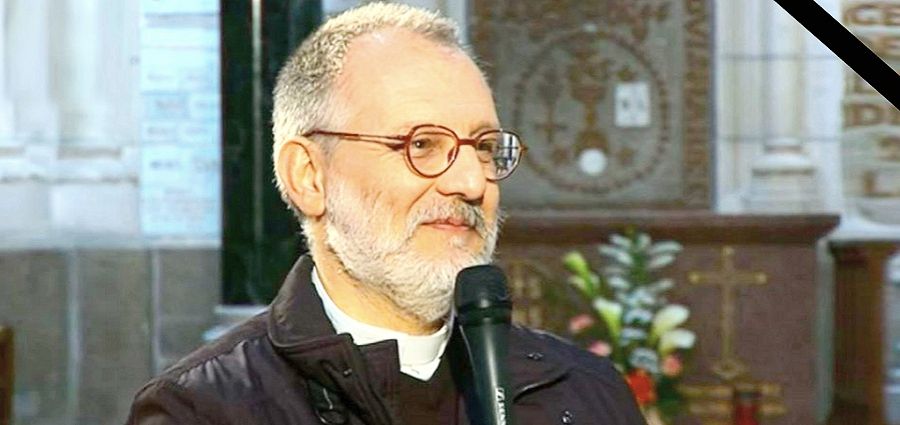
The Father Olivier Maire was found dead on Monday August 9 in Saint-Laurent-sur-Sèvre in Vendée. The town is located about twenty kilometers south of Cholet have confirmed the diocese and the gendarmerie of Mortagne-sur-Sèvre.
Gérald Darmanin announced that he was going there via a tweet. “All my support for the Catholics of our country after the dramatic assassination of a priest in Vendée. I go there. "
The suspect released in June
A man reportedly went to the Mortagne-sur-Sèvre gendarmerie. It would be the volunteer sacristan of Rwandan nationality, indicted for the fire at Nantes cathedral on July 18, 2020, reports France 3.
He was released under judicial supervision last June after several months of imprisonment pending trial.
The alleged perpetrator was coming out of a stay in a psychiatric hospital and was lodged by the community of Montfort missionary brothers according to our colleagues.
The Montfortian missionaries constitute a congregation present in some thirty countries, focused on charity and hospitality.
The last fatal attack targeting a member of the Catholic Church in France dates back to October 29
Brahim Aouissaoui, a Tunisian then aged 21, had killed with a knife two faithful and the sacristan of the Notre-Dame-de-l'Assomption basilica in Nice. |
|
|
|
| Carl Delsey for DayNewsWorld |
 |
BIRTH OF TWO TWIN PANDAS
AT THE BEAUVAL ZOO IN FRANCE |
The panda family is growing at Beauval ZooParc after the birth of twins, on the night of Sunday August 1 to Monday August 2, 2021. The two little plantigrades join their big brother Yuan Meng, born on August 4, 2017, in the siblings.
“The two babies are pink. Both are in perfect health. (...) They are magnificent ”, reacted the president of the ZooParc, Rodolphe Delord, from the control center of the Beauval panda reproduction and protection center.
“The first ten days are the sensitive period, but the two babies, two little girls in principle, are strong and Huan Huan has a much better behavior. She has the gestures of a good mother. It's a great birth ”, appreciated the head veterinarian of the zoo Baptiste Mulot, who will not be able to determine with certainty the sex of the small pandas for a few days.
Huan Huan first gave the first signs of restlessness on Sunday around 5:30 p.m. Alternating activity and sleep, she finally lost water at 12:30 a.m. before giving birth to her young at 1:03 a.m. are shown sharp and uttered shrill cries. Appropriate weight for baby pandas.
Incubated
A caregiver from the Chengdu Giant Panda Research Center, who came especially for the births, managed to seize one of the baby pandas to provide care and place it in an incubator. It weighed 149 grams, a "very reassuring" weight for a baby panda.
“The bigger they are, the less fragile they are. They are in the high range because they must weigh between 100 and 150 grams at birth, ”explained the veterinarian.
The second small female, who enjoyed a little more time with her mother, was weighed at 128 grams. The caregivers will now have to manage the health of Huan Huan and carry out regular rotations of the babies with their mother.
The reproduction of the panda is very difficult and the female is fertile only two days a year maximum. The two cubs will be reared by their mother and the caretakers alternately, one cub at a time. This to relieve the bear, according to the president of the Beauval zoo. “In nature, the mother abandons the weaker one because she cannot raise two young. "They are going to be put in an incubator and they will go to breastfeed their mother alternately. They will be monitored 24 hours a day, ”said Rodolphe Delord.
A species that is no longer "endangered" but "vulnerable"
At the end of March, the two giant pandas, Huan Huan and Yuan Zi, one of Beauval's main attractions, had tried to mate. Artificial insemination was also carried out as a precaution, the female being fertile only 24 to 48 hours per year.
It was through this technique that Huan Huan gave birth to her first twins, only one of whom was found to be viable. Now 4 years old, the first panda born in France now weighs more than 100 kilos.
Since 2016, giant pandas are no longer "in danger" of extinction on the red list of the International Union for the Conservation of Nature (IUCN). But the species remains "vulnerable", while 500 pandas live in captivity and 2000 in the wild in China.
Chinese National Treasure Status
Long poached, the animal has become an emblem of China but also that of the fight for the protection of nature. It is notably present on the WWF (World Environment Fund) logo. For many years, Beijing has offered or lent pandas to certain countries, with the aim of preserving or improving diplomatic relations.
The twins, along with their older brother, will return to China in four years, in accordance with the agreement with the country. For parents, initially on loan for ten years in 2012, the zoo will "extend the agreement for another ten years." Negotiations are underway between the two countries and go directly through the heads of state, due to the status of Chinese national treasure of the panda and the diplomatic symbol it represents.
The two newborns from Loir-et-Cher will only have final names in 100 days. According to tradition, they will be chosen by the Chinese First Lady. As a sign that the birth is part of “panda diplomacy”.
|
|
|
|
| Alyson Braxton for DayNewsWorld |
 |
FRANCE
THE PROMOTION OF JULY 14, 2021
OF THE LEGION OF HONOR |
This promotion distinguished 467 people, equally: 393 knights, 53 officers, 17 commanders, 2 grand officers and 2 grandcross.
The philosopher Edgar Morin, the skipper Jean Le Cam, the prefect Didier Lallement or the choreographer Carolyn Carlson are part of the promotion of July 14 of the Legion of Honor which was published this Wednesday in the Official Journal.
This promotion distinguished 467 people, on an equal basis: 393 knights, 53 officers, 17 commanders, 2 grand officers and 2 grandcross, including Edgar Morin, who celebrated his 100th birthday on July 8. He was elevated to the dignity of Grand Cross, the highest distinction of the Legion of Honor, like Alain Mérieux, founder of the institute of the same name (industrial biology). Former director of the WTO, Pascal Lamy, Honorary President of the Jacques Delors Institute, was promoted to Grand Officer. The Paris police chief Didier Lallement becomes a commander, among the 30% of public sector actors (excluding health and education) promoted.
Jean-Pierre Pernaut, Harry Roselmack ...
In the cultural sector, the Franco-American choreographer Carolyn Carlson and the lawyer, writer and member of the French Academy, François Sureau received the same rank.
Actress Laetitia Casta and journalists Jean-Pierre Pernaut and Harry Roselmack, two figures from TF1, were named knights. The winner of the Vendée Globe 2020/2021, Yannick Bestaven, was appointed to the same rank, as well as the skipper Jean Le Cam.
Among the health professionals, Marcel Lascar, founder of SOS Médecins, also received the knight's decoration.
A list of 467 personalities, honored on this Wednesday of national holiday, was published in the Official Journal
The Legion of Honor is the highest French distinction and one of the best known in the world. The promotion of July 14 is one of the two annual civil promotions of the Legion of Honor, along with that of January 1.
Founded by Napoleon Bonaparte in 1802, the Legion of Honor now has 92,000 members, rewarded for their eminent merits in the service of the nation.
|
|
|
|
| Carl Delsey for DayNewsWorld |
 |
GENERAL LECOINTRE HEAD OF STATE-MAJOR
FRENCH ARMIES TAKES ITS REVERENCE |
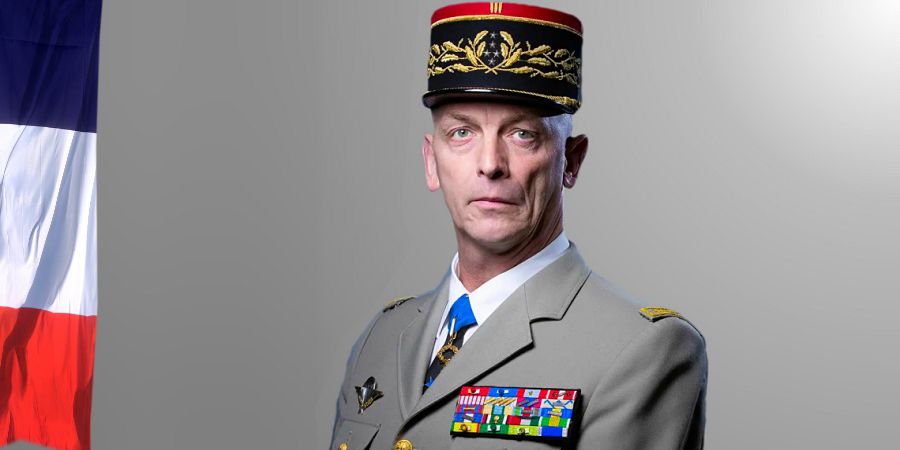
The Elysée announced his departure and the appointment of General Thierry Burkhard, current Chief of Staff of the Army, before General Lecointre confirmed it this Sunday, June 13 during the broadcast of the Grand Jury ( RTL / LeFigaro / LCI).
“General François Lecointre submitted to the President of the Republic several months ago his request to leave active service after July 14, 2021.
The President of the Republic wishes to salute in him the great soldier, the military leader and the servant of the State ”, indicated the presidency.
The Chief of Staff of the Armed Forces commands all of France's military operations and ensures the proper functioning of the institution. General Lecointre could still have been kept at his post. He did not want it even if the president "asked him to stay longer".
"Preserving the armies"
"It is not good that a chief of staff of the armed forces can be exactly aligned with a presidential mandate", estimated for his part François Lecointre. "We must at all costs protect the armies from the risk of suspicion about their absolute political neutrality."
"I did not want a Chief of Staff of the armed forces to be associated with a politician (...) Tiling guarantees continuity", he added.
"You do not know the heart of the armies (...) The President of the Republic, by definition, no more than anyone of his generation", continued François Lecointre.
Words that come when two military forums caused a small political storm a few weeks ago, sparing no party and pushing the Minister of the Armed Forces Florence Parly to intervene to recall, too, the requirement of neutrality of the soldier . In the second forum, anonymous senior executives denounced what they perceive as "the civil war (which) is brewing" in the country.
"That a soldier goes to take advantage of his rank and engage the armies in a position that can be assimilated to political activism, it is not acceptable", reacted François Lecointre, still on the set of the Grand Jury ( RTL / LeFigaro / LCI) this Sunday, June 13, 2021.
A high function "difficult, trying"
General Lecointre succeeded Pierre de Villiers in July 2017, who resigned with a bang against the backdrop of abrupt budget cuts and stepped-up reforms.
His high office, which he describes as a "pivotal post between the politician and the military" is "difficult, trying: she forces you to be very honest with respect to politicians on the consequences of decisions, which you must then implement by fully adhering to it, ”he confided.
Rwanda, ex-Yugoslavia, Matignon: he has a career that combines brilliant service in the field and solid experience behind the hushed scenes of power. Aged 59, this Saint-Cyrien pepper and salt with an athletic profile was notably chief of the military cabinet of the Prime Minister, where he had served the socialists Manuel Valls and Bernard Cazeneuve, then Édouard Philippe.
From the marine infantry, he served in Iraq during the first Gulf War (1991), in Djibouti (1991-93), in Somalia (1992) as well as in Rwanda, in the midst of genocide, as part of Operation Turquoise (1994) then during the Yugoslavian War (1995).
Hero of the battle of Vrbanja in Bosnia in May 1995, where the young captain fought with the bayonet to regain the bridge from the Serbian forces and defend the honor of France, General Lecointre will have spent 4 years accompanying the " revival of the armies ”.
Means that do not allow a rise in power
At the head of the French armies, he experienced a Military Programming Law (LPM) which breathed new life into the troops after years of very severe budget restrictions.
However, disagreements persisted between the armies and the Elysee. Military resources remain limited compared to the threats described in the Strategic Review. General Lecointre never ceases to raise the specter of the return of a “high intensity” conflict facing an adversary with means as efficient as those of France.
"The current military programming law today aims to consolidate this model of a complete army," he confided recently. With this "complete" model, the armies retain, sometimes at a minimum, all the skills. "It is not aimed at a rise in power or the acquisition of a mass that would allow the army to engage in a major state conflict," he added.
He is also leaving when the Head of State has just announced, after more than eight years of massive engagement, a reduction of the French military presence in the Sahel, marked by the closure of bases and a re-articulation of the anti-jihadist struggle around of an “international alliance” bringing together Europeans.
His successor Thierry Burkhard will also have to orchestrate a major strategic upheaval. "It has been more than ten years that the military has focused on the threat of militarized terrorism at the moment," he explained in November. "The Army must change scale and prepare for harsher, high intensity conflicts."
A shift which imposes in particular a rejuvenation of the armored fleet and artillery, but also in particular of aviation, ground-to-air defenses, information warfare and drones.
“A departure which is not, officially at least, linked to the end of Operation Barkhane in the Sahel, nor to the recent publication of military forums with a factious tone. ". , according to the daily Le Parisien.
|
|
|
|
| Alize Marion for DayNewsWorld |
 |
FINALLY THE THIRD STAGE OF DECONFINEMENT
IN FRANCE |
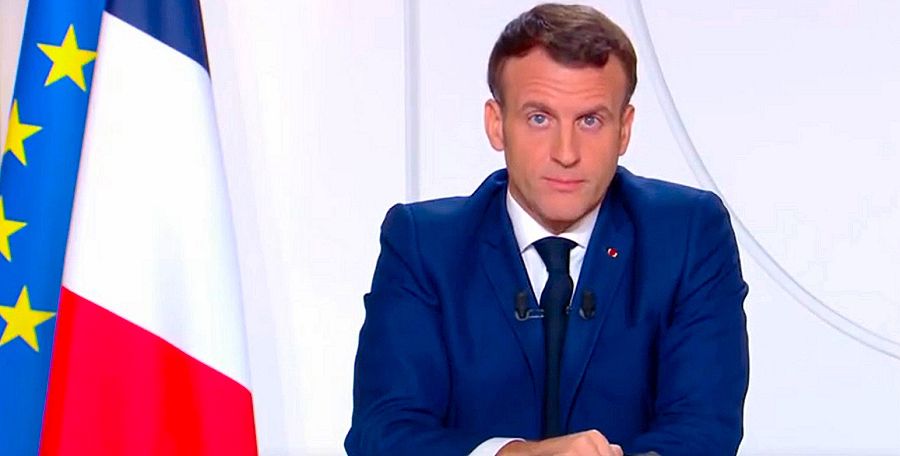
The President of the Scientific Council nevertheless called for maintaining the wearing of the mask outdoors "at least until June 30".
While the health situation is improving in France, the country must enter a new phase of deconfinement this Wednesday, June 9. Curfew shifted to 11pm, reopening of restaurants with reduced capacity or even health passes .....
This new step promises to be important, both for the French, but also for the government.
Finally, good news on the eve of this third stage of deconfinement.
"The situation is contained and is going in the right direction, it is true in France and in all European countries", rejoiced on RTL Jean-François Delfraissy, president of the Scientific Council, Tuesday 8 June.
“We have figures that have fallen faster than we had imagined. ";
The reason ?
“The dynamics of vaccination (…), there should be 35-38 million vaccinated [with at least one dose] by June 30, so this is the right way out. "
"We should, with this dynamic of vaccination, have a summer that should go in rather satisfactory conditions", therefore believes the President of the Scientific Council.
The immunologist nevertheless calls for caution during this new phase of deconfinement:
“Until now, we were outside and we are now going to open inside and that's where it will play out,” explains Jean-François Delfraissy.
May 19, 2021 finally presents the beginning of a return to normal life.. |
|
|
|
| Carl Delsey for DayNewsWorld |
 |
A QUIET SUMMER WITHOUT COVID
ACCORDING TO THE PASTEUR INSTITUTE |
If the figures for transmission and hospitalization continue to drop and the vaccination accelerates even further, we may be able to go a summer without an epidemic recovery from Covid-19. It is, in any case, a hypothesis of the Pasteur Institute.
The Pasteur Institute has sometimes been alarmist in its projections for the pandemic. This time, good news, the Parisian researchers consider that "the conditions are favorable for the summer". Several scenarios are still being considered which take into account the figures that have been falling for a month and the acceleration of vaccination. The unknown remains the effects of the deconfinement in progress.
Keep up the pace until June 9
"If we manage to maintain the current rate of decline in infections and hospitalizations until June 9 while maintaining or increasing the rate of vaccination, we do not expect to observe this summer of significant resumption of the epidemic linked to variant B.1.1.7 (the English variant, Editor's note) ”, explains the Institut Pasteur. But beware, if the decline observed in hospitals is stopped after the reopening of terraces, shops and cinemas, a rebound cannot be ruled out.
“The size of this rebound would depend in particular on the transmission rates in the second half of May and in June, the vaccination rate and the hypotheses on the increase in transmission of the B.1.1.7 variant.
But the Institute wants to be reassuring all the same: “In all the scenarios explored, this rebound would remain smaller than the third wave. "
Maintain the vaccination effort this summer
“Shifting from the rate of 500,000 doses to 700,000 doses of vaccines distributed per day could significantly reduce the intensity of the recovery,” the researchers write. Currently, the vaccination campaign is experiencing a real acceleration but the bar of 700,000 daily injections has not yet been reached. The Institut Pasteur wishes to emphasize that “these scenarios are not forecasts”. For example, a new vaccine-insensitive variant could reshuffle the cards.
In addition, the summer is less conducive to the epidemic rebound especially thanks to the temperatures, but a new wave of contamination in the fall is not excluded, insist the researchers who recommend "to maintain the vaccination effort this summer".
|
|
|
|
| Carl Delsey for DayNewsWorld |
 |
MANIFESTATION OF THE FRENCH POLICE
BEFORE THE NATIONAL ASSEMBLY IN PARIS |
The police, unions and politicians of several sensibilities met on Wednesday, May 19, 2021 in front of the French National Assembly in Paris.
After a minute of silence which was observed in tribute to members of the police who died on mission.
Gérald Darmanin to explain his presence in the police demonstration:
"It's a way of telling them that I love them and that I support them!"
It is a gathering heavy with meaning, two weeks after the murder of Brigadier Eric Masson in Avignon and with the approach of important electoral deadlines.
All the unions are unanimous, thousands of police officers but also the Minister of the Interior and politicians of all stripes gathered in front of the National Assembly.
According to the organizers, 35,000 people gathered.
Thus, even Gérald Darmanin went there, shortly before 1 p.m., a first in police memory for a Minister of the Interior.
The minister took the opportunity to discuss with the police officers on the spot.
"We have to help us […] the job is very difficult, we need you, we need to be protected […] We go to work and we don't know how we are going to get back, in what state ...", one of them threw him, obviously very moved.
Minister Gérald Darmanin replied:
“Every morning I think of you […]. There is no doubt about my support for you ”.
“You send wood! », Congratulated another policeman.
"I came like all French people to support the police, that's all," commented only for the media Gerald Darmanin, in the middle of the crowd and accompanied by the Paris police chief Didier Lallemant.
"You need recognition, recognition and support when they are attacked"
"The problem of the police is justice", also rebelled a representative of Alliance, while Minister and Keeper of the Seals, Eric Dupond-Moretti indicated that he was considering going to the demonstration. .
The mention of his name was hissed by several of the participants. He ended up answering in the hemicycle, during questions to the government.
“As a citizen I could have found myself in this demonstration to support the police services,” he begins.
What seems to me dangerous for our democracy, however, is that we oppose permanently and for electoral purposes and therefore with a certain cynicism, the justice and the police.
The police officers, the magistrates of this country are in the same republican boat (...) I affirm that on the ground magistrates and police officers work together. "
Some demonstrators appeared in the demonstration with their faces masked, with tears of blood, carrying a coffin.
Then, a little later in the early afternoon, a minute of silence was observed, again in tribute to their colleagues who died on duty, followed by applause.
The event ended with a performance of the national anthem by lyric singer Chloé Chaume.
"It's my job, my way of supporting them, to be with them," says Gérald Darmanin!
"I bring my support to the police and gendarmes every day since I was Minister of the Interior and even before, as mayor of Tourcoing, the Minister of the Interior was justified on Wednesday on France Inter as to his presence at the event. I had the opportunity to see that these are courageous people, […] who are particularly the victims of an increasingly violent society ”.
For Minister Gérald Darmanin, who evokes the “two assassinations” of Stéphanie Montfeture in Rambouillet and Eric Masson in Avignon, the police officers
“Are marked by mourning, emotion and anger. "
“I'm going to tell them that we love them,” he also proclaimed, adding:
“It's my job, my job, my way of supporting them to be with them”.
Before 11 a.m. on Wednesday, the first demonstrators gathered in front of the National Assembly. The trade unions have erected a podium, where several non-political interlocutors will follow one another, in front of a large banner on which is affixed the inscription "Paid to serve, not to die".
By 1 p.m., the crowd had grown considerably, with many union flags flying in the middle.
Unions demand "the implementation of minimum sentences"
The unions have decided to organize this rally two weeks to the day after the murder of Eric Masson, killed at a deal point in Avignon.
A drama that shook the police, already marked by the assassination on April 23 of Stéphanie Monfeture, administrative officer at the Rambouillet police station (Yvelines), by a Tunisian who would have become radicalized.
According to union officials, many “angry” and “disgusted” police officers see the death of the sergeant during this banal intervention as a symbol of repeated violence against them, which requires a firmer “criminal response”.
Prime Minister Jean Castex in particular pledged to extend the safety period to thirty years for people sentenced to life imprisonment for a crime against a police officer or a gendarme.
And to strictly limit the possibilities of reducing sentences for those who attack the police.
But the unions deplore that their "most important demand", "the implementation of minimum sentences" (also called floor sentences) for "attackers of the police", has not been "taken into account" .
Obviously the French government will have to take action very quickly to resolve a growing problem !!
|
|
|
|
| Alize Marion for DayNewsWorld |
 |
FINALLY THE ANTI COVID VACCINATION
OPEN TO ALL FROM MAY 12, 2021
|
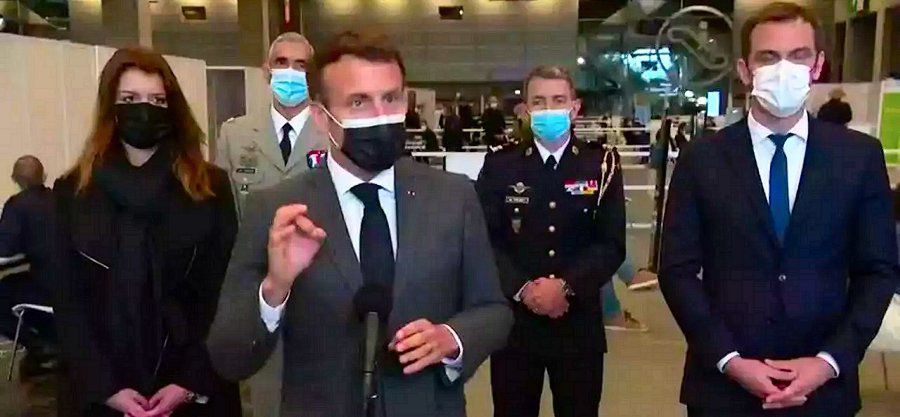
A visit to a new Paris vaccination center, the Head of State also announced that the age of access to the vaccine will be lowered to over 50 years from May 10. be vaccinated from May 10, instead of May 15, and the doses available at the end of the day will be open to all the next day "without age limit", announced Thursday, May 6 Emmanuel Macron, in order to accelerate the vaccination campaign against the Covid-19.
“We don't want to waste any dose,” so “from Wednesday the 12th you will be able to look the day before on the site if there are any doses available the next day where you are and appointments. you who are not taken "and these available appointments will be open" without age limit ", explained the Head of State by inaugurating the first large Paris vaccine park, Porte de Versailles in Paris.
So far in Paris "there has been no mess, all the doses have been used in the centers, but we want to optimize and be sure that all the doses are fully used", he added, specifying that “it is an exceptional device.” When people over 50, for whom the opening date for vaccination has been brought forward by 5 days, they can make an appointment as of Friday, May 7.
"The objective, of course, is to continue to march forward," insisted Emmanuel Macron, reaffirming the objective of reaching 30 million vaccinated on June 15. The government has set itself the goal of reaching the 20 million mark for the first doses injected by May 15, then 30 million a month later. As of Tuesday, 16.4 million people had received at least one dose and 7.3 million received two doses.
France expects more vials of the four vaccines authorized in May (4.5 million doses per week) and June (6.9 million weekly). |
|
|
|
| Boby Dean for DayNewsWorld |
 |
THE BICENTENARY OF THE DEATH OF NAPOLEON
|

At the heart of the memorial battle, the French President, Emmanuel Macron, commemorates, on Wednesday, at Les Invalides, the 200th anniversary of the death of the Emperor Napoleon, a historical figure still contested.
On May 5, 1821, at 5:49 p.m., Napoleon Bonaparte breathed his last on Sainte-Hélène, an island located in the heart of the South Atlantic. The ex-emperor of the French dies after a long night of agony and delirium, during which a storm sweeps this territory at the end of the world.
The next day, an autopsy is performed, following the requests of the deceased. Antomarchi, Napoleon's personal physician, assisted by seven English colleagues, study the bowels of the winner of Austerlitz.
All agree in affirming that the death of Napoleon is of natural origin, he would have died of the consequences of a perforated ulcer in the stomach.
Two hundred years later, Emmanuel Macron will lay a wreath on Wednesday afternoon at the foot of his tomb, under the majestic dome of the Invalides. Just before, the Head of State will deliver a speech at the Institut de France to "look in the face" this "complex being" that was Napoleon, by being "neither in hagiography, nor in denial, nor in repentance ”, indicates the Elysee.
This “major figure in history” has been “contested for a long time”, recalls the Institute. And it continues to ignite the debates between its defenders, who celebrate the military strategist and the initiator of the "modern state", and its critics, who accuse him of having caused hundreds of thousands of deaths during his campaigns. military and to have re-established slavery driven by the economic and political pressures of his time.
The Head of State should salute Napoleon as the organizer of the modern State with the creation of the Civil Code, high schools, the Court of Auditors, the Council of State or the prefects ... Faced with a legacy too controversial, the heads of state have refrained from taking a position on Napoleon since Georges Pompidou celebrated in 1969 the bicentenary of his birth in Ajaccio, his birthplace .
“There is no name more glorious than that of Napoleon. Starting from nothing, stripped of everything, he obtained everything, ”summed up the Gaullist president. |
|
|
|
| Abby Shelcore for DayNewsWorld |
 |
FRANCE DECONFINEMENT ACTS THREE
WHERE TO LIVE WITH COVID-19 |
|
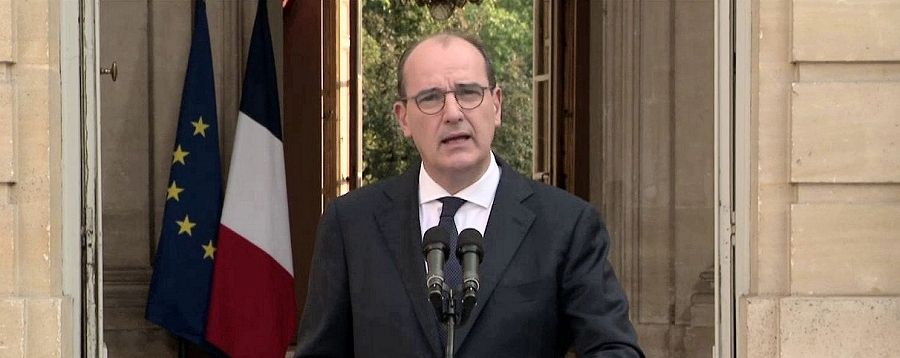
Deconfinement, act 3: it will be done in 4 stages, extending until June 30, subject to changes in the health situation in each department. After the travel restrictions are lifted on May 3, 2021, terraces, cultural venues and shops will reopen on May 19, if the incidence rate permits. And we will have to wait until the end of June to return to an (almost) normal life. By starting the deconfinement of the country while the epidemic is still at a relatively high level, the Head of State is betting on a "positive agenda".
While a little over a year ago, Emmanuel Macron declared "war" on Covid-19, the Head of State has finally resolved to "live with" his "enemy", without the 'eradicate altogether.
The president assumed this strategy aimed at letting the virus circulate at a relatively high level, while hoping that respect for barrier gestures and the progress of vaccination will avoid a situation that is out of control.
"The choice of reason"
Precautions have been taken and "brakes" can be activated in areas where the virus circulates too much, but the slight drop observed in recent days, both in the incidence rate of the disease and in the occupancy rate of the health services. resuscitation, clear the horizon. “It's all a mixture of humility, pragmatism and determination. We will have to see in two weeks whether the decline has continued and in what proportion. It is also necessary that the acceleration of vaccination is maintained or even accentuated ”, indicates a relative of the Head of State. On this last point, "we will keep our objectives", assured the spokesperson of the government, Gabriel Attal.
Possible "emergency brakes"
"It is a timetable which is prudent and pragmatic, which is made with common sense and above all which takes into account the fact that the French want to resume an increasingly normal life, and that must be understood" after "More than a year with restrictions", already argued Gabriel Attal Friday, during a press point.
Referring to the “emergency brakes” cited by Emmanuel Macron in the event of a resumption of the epidemic locally, he explained that reaching one of the three criteria (more than 400 infections per 100,000 inhabitants, a “very sudden” increase in this rate, "threat of saturation of intensive care services") will trigger a "discussion at the local level with elected officials, representatives of the State - prefect, ARS)". "We will look and if we consider that there is a risk, we will pull on the brake."
While the opposition accuses the executive of making a new health "bet", Gabriel Attal again defended Sunday, May 2, 2021, on Europe 1, the deconfinement promised by Emmanuel Macron.
However, the figures for the epidemic are not looking good. For Raphaël Haddad, political communication specialist and founder of the Mots-Clés agency, having put forward a precise date for deconfinement is “an unprecedented blunder since the start of the crisis.” In November, the executive had set 5,000 new daily cases the condition of deconfinement. At the end of April, more than 25,000 cases are recorded per day and yet the restrictions will begin to be lifted.
A blind deconfinement or a new health challenge ?
“There is no figure announced because we know that they will not be kept. "
To lift the restrictions, this time, therefore, no target in terms of viral circulation. This decision is contested by epidemiologist Dominique Costagliola. “Taking measures without explaining which determinants we are basing ourselves on is not rational.
This makes it possible to decide anything, no matter how ", she annoys This absence of epidemiological objectives testifies to a desire of the executive" to simultaneously optimize the impacts of confinement on the health situation and socio-economic, ”says Mircea Sofonea, lecturer in epidemiology and evolution of infectious diseases at the University of Montpellier.
“By freeing itself from deconfinement objectives, the executive makes a compromise between the effectiveness and the duration of the confinement. Yet this is the whole point of the objectives: to say where we want to go. Without it, containment no longer plays its role of controlling the epidemic in the long term. "
"Set arbitrarily", this figure of 5,000 daily contaminations was to allow "efficient tracing" of patients, explains to "Obs" Benjamin Davido, infectious disease specialist at the Raymond-Poincaré hospital in Garches. “Today, there is no figure announced because we know that they will not be required,” he adds. Another reason according to him: “We have drawn the line on tracing, impossible if the number of cases is too high and it is not automated. "
So would not displaying a quantifiable objective be a way of getting rid of epidemiological indicators ?
If no figure has been given, it is a sign that the executive is not counting on this confinement to make the virus disappear. In his last speech, on March 31, Emmanuel Macron himself explained that "the way out of the crisis is finally taking shape thanks to vaccination".
Hospital saturation, the dominant criterion
Indeed, Benjamin Davido believes that it is this other objective which has taken control: “I do not believe that this leaves the government a very important margin of maneuver. If the hospital tension does not go in the right direction, the executive will not be able to deconfin as planned. "
Lifting restrictions in mid-May, a realistic goal ?
If the objective were to return to 5,000 new daily contaminations by May 15, "it would not be reached", explains Pascal Crépey, epidemiologist and biostatistician at the School of Advanced Public Health Studies. According to him, during this period, we will certainly still be on a high plateau, “which will reduce the government's room for maneuver”. Similarly, Mircea Sofonea believes that reopening the country is possible, "if the curfew is maintained: we can afford some reopening, but not all".
The deconfinement of France may seem insane to some with regard to health indicators. But it would not only be health in life ... contrary to what we believed a year ago.
"From May 19, successive stages will lead us together to define a new model of growth and prosperity," said Emmanuel Macron, Saturday, May 1, 2021, during the traditional lily of the valley ceremony at the Elysee Palace.
|
|
|
|
| Joanne Courbet for DayNewsWorld |
 |
SUSTAINING THE MEASURES CONTAINED IN THE ANTI-TERRORIST ACT OF 2017 IN FRANCE |
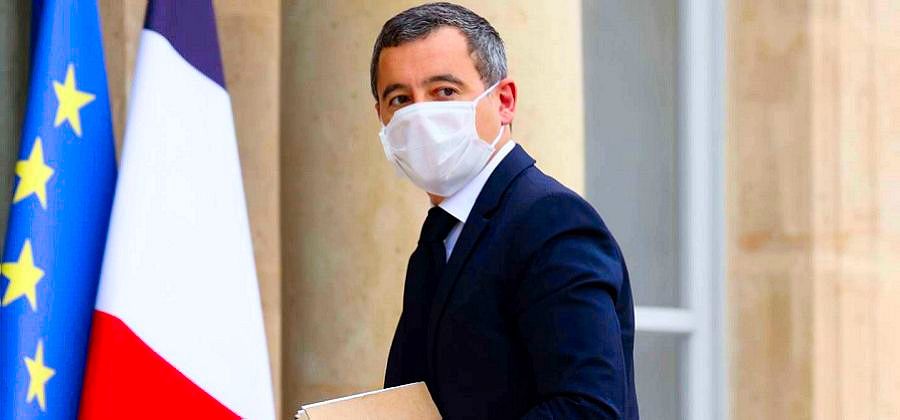
A bill aimed at "perpetuating" the measures contained in the anti-terrorism law of 2017 and the intelligence law of 2015 will be presented Wednesday in the Council of Ministers, we learned on Saturday from a source close to the executive.
Gérald Darmanin will present a bill on Wednesday to strengthen the means of combating terrorism. A text - planned for several weeks - but which occurs in a context marked by the Rambouillet attack.
"The will is to perpetuate the current mechanisms of the two laws within the same law", the same source said. The text, which will be filed less than a week after the fatal attack at the Rambouillet police station (Yvelines), has been in preparation for several weeks, it was pointed out. Gérard Collomb's law on internal security and the fight against terrorism (Silt) was adopted in October 2017 to take over from the state of emergency put in place after the attacks of November 2015.
Three years of experimentation
This text made it possible to experiment for three years in common law with measures to fight terrorism, highly contested by defenders of public freedoms, such as “home visits” - ex-administrative searches -, individual control measures ( Micas), the establishment of a security perimeter and the closure of places of worship.
These controversial measures were extended in December 2020 by Parliament until July 31, 2021, the deadline for the adoption of the new bill.
Communications analysis
According to Interior Minister Gerald Darmanin, interviewed by the Journal du Dimanche, this text should allow France "to be more efficient" by venturing more into "the field of technology used by terrorists". As such, the legislative project “provides for updating and perpetuating the use of algorithms, ie the automatic processing of connection data, by the DGSI”. “All big companies use algorithms. And would it be only the State that could not use them? Asks the minister, who rejects an excessive encroachment on individual freedoms . This technique, already tested in the intelligence law of 2015, makes it possible to analyze communications exchanged within an operator's network to detect threats.
The national intelligence coordinator Laurent Nuñez stressed Saturday on BFMTV "the importance of this technique with increasingly isolated individuals whose only traces are digital traces". "The signs of radicalization they show are very weak so it becomes very complicated for the intelligence services to detect this kind of profile," he added.
Two years of follow-up for terrorists leaving prison
Another major focus of this new text: monitoring terrorists after their release from prison. Thus, "the administrative measures of constraint which target persons convicted of terrorism on their release from prison may go up to two years", indicates Gerald Darmanin. In addition, the project of the Minister of the Interior aims to strengthen prevention with in particular “socio-psychiatric monitoring of potentially dangerous people”.
Mourning after yet another attack, France therefore wants to toughen the security law by strengthening the French anti-terrorism arsenal.
In any case, this is the wish of the Minister of the Interior who also welcomed the 36 plans for attacks thwarted by the intelligence services since 2017.
|
|
|
|
| Alize Marion for DayNewsWorld |
 |
TERRORIST ATTACK IN RAMBOUILLET
A MOTHER OF 2 CHILDREN SLUT IN A STATIONARY |
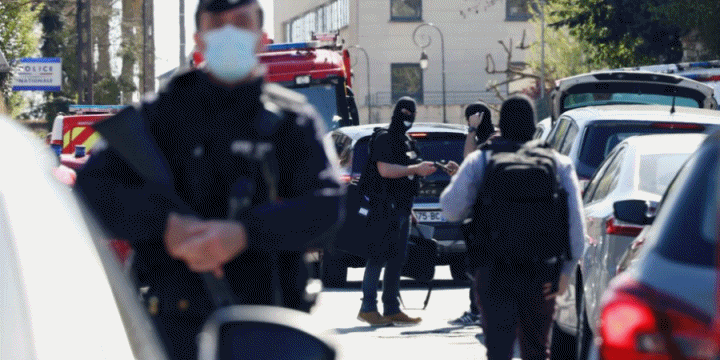
A 49-year-old police officer lost his life on Friday in Rambouillet. A man, said to be of Tunisian nationality, stabbed him twice in the throat. He also lost his life.
According to the first elements of the investigation, the administrative official, aged 49, received two stab wounds in the throat in the airlock of the police station. She died of her injuries. The victim's name was Stéphanie, she had worked in Rambouillet (Yvelines) for 28 years and was the mother of two daughters, aged 18 and 13.
The national antiterrorist prosecution has announced that it is opening an investigation "of flagrante delicto of the heads of assassination on a person holding public authority in connection with a terrorist enterprise and terrorist criminal association." It was entrusted to the Central Directorate of the Judicial Police (DCPJ) and the General Directorate of Internal Security (DGSI).
The 36-year-old man would be of Tunisian nationality according to the first elements of the investigation. He died of his injuries after being shot in response by a police officer. According to a judicial source, three people from the assailant's entourage are currently in custody.- According to the anti-terrorism prosecutor, the assailant spotted the scene shortly before the attack.
The assailant shouted "Allah Akbar" in the airlock of the police station, according to the victim's colleagues. A police operation was underway at his home in Rambouillet at the end of the afternoon as well as in Val-de-Marne where the assailant had been accommodated before settling in Yvelines.
Prime Minister Jean Castex and Interior Minister Gérald Darmamin visited the site..
|
|
|
|
| Carl Delsey for DayNewsWorld |
 |
COVID-19 THE PREMIUM BOOST STRATEGY WITH ASTRAZENECA ?
|
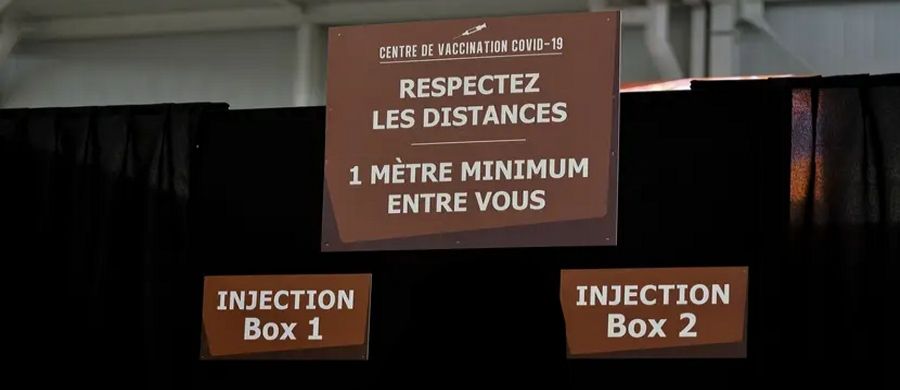
What second dose should be administered to 500,000 French under 55 who have already received a first injection of the vaccine against AstraZeneca Covid-19? In an opinion issued this Friday, April 9, the High Authority of Health (HAS) recommends using a mixed vaccination schedule (or "prime boost") since AstraZeneca is not recommended for young people, because of a higher risk of thrombosis , a very rare but potentially serious side effect.
This strategy, which consists of using another vaccine as a booster, will be deployed for the first time in France to allow people who have received a first dose of AstraZeneca to benefit from strong immune protection while avoiding any risk of thrombosis.
Change the vaccine between the two doses
Using a different vaccine platform, ie changing the vaccine between the two injections is a device that has not been used much so far in humans, but very interesting and without any additional risk of side effects ”, explained the Professor Élisabeth Bouvet, President of the HAS Technical Committee on Vaccinations.
If the HAS recommends to vaccinate in this way, it is because the immune reaction triggered by the first dose of AstraZeneca decreases after three months, it must therefore be stimulated after this period of time. The HAS considers that this stimulation can be done by another vaccine as long as it also causes immunity, is authorized, safe and available on the market. For the moment, only Pfizer and Moderna meet these criteria.
Two doses, two technologies, without any risk that this cocktail will increase the side effects, assures the High Authority of Health, which considers that varying the vaccines could even lead to better efficacy. The vaccine combination is an avenue explored in many countries, particularly in the United Kingdom with the Com-Cov study.
The mixed vaccination scheme is a promising strategy, in development in particular to combat influenza, AIDS or hepatitis B. In the context of Covid-19, the Russian vaccine Sputnik V is based on an almost identical principle, the viral vector is not is not the same for the first and the second dose.
A healthy strategy?
If the preliminary data and the theoretical elements suggest that the “prime boost” strategy is beneficial, studies launched by the National Medicines Safety Agency must specify the duration and the level of protection thus obtained. According to the doctor and journalist Damien Mascret on the set of 19/20 of France 3, Friday, the theory says that "the main thing is to have restimulated immune memory". But in practice, no experimentation proves that the efficacy obtained with two doses of AstraZeneca will be the same as that obtained with a dose of AstraZeneca and a dose of an RNA vaccine. "It's all the difference between theory and experience," said the specialist.
WHO awaiting data
Due to a lack of data, the WHO said it could therefore not make recommendations.
The WHO reiterated Friday that it could not, for lack of "adequate data", make a recommendation on a change in the anti-Covid vaccine between two doses, a few hours after the decision of the French regulator.
|
|
|
|
| Boby Dean for DayNewsWorld |
 |
WHAT ABOUT EMMANUEL MACRON'S ADS ?
|
"Decisions were taken" during the health defense council announced the government spokesperson. Emmanuel Macron will present them to the French this Wednesday evening.
What will Emmanuel Macron announce this Wednesday evening during his speech ?
Spring break will they be advanced ?
Braking measures extended to other departments ?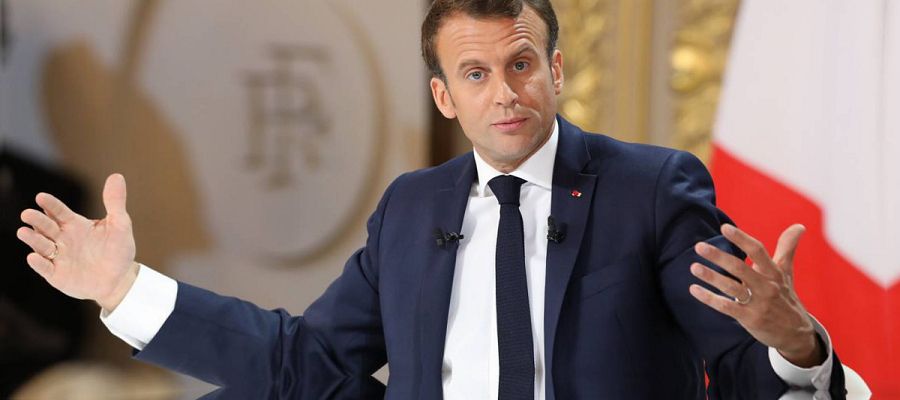
The head of state has probably decided and will announce it to the French at 8 p.m.
5,000 patients in intensive care
While more than 5,000 patients are in intensive care, the French are suspended from its arbitration, after a Defense Council during which "decisions were taken", according to government spokesman Gabriel Attal. These measures, which aim to "see the light at the end of the tunnel" according to him, should be partly "national" and concern in particular "school, travel and vaccination," said a government source.
"France will not refuse a patient" Sign of the importance of these announcements, Prime Minister Jean Castex will deliver a statement on Thursday, which will be followed by a debate and a vote in front of the two chambers of Parliament "on the evolution of the health situation ”.
"We have difficult weeks ahead of us", insisted Gabriel Attal, specifying that the new measures take into account "the dynamics of the epidemic" but also their consequences "on the morale of our compatriots, on the education of our children and on the activity in our country ”. "But the key factor in our decisions remains the situation of our hospitals", he added before ruling out any sorting of patients: "One thing is clear: France will not refuse a patient, the sorting of patients is not 'is not an option and never will be an option'.
On the side of health professionals: re-containment
On the side of health professionals, the call is also becoming more and more urgent. The National Council of the Order of Physicians and the French Hospital Federation have both called for strict action. According to the order of physicians, there needs to be "real re-containment wherever it is necessary", France having "lost control of the epidemic" of Covid-19.
The board of directors of the Hospital Federation of France (FHF) calls, for its part, "unanimously" for "strict confinement". "The projections indicate that a very strong deterioration in the hospital situation is to be expected in the short term, which will be all the more important without new sufficient measures to curb the epidemic," says the FHF. She is also worried about the cascade deprogramming made necessary by the influx of Covid-19 patients, which will not be able to last "without major consequences on public health".
Finally, the federation of public hospitals calls for "the strongest acceleration of vaccination", the only one capable of "definitively containing the epidemic".
"Until we are massively vaccinated, wherever the situation is serious, we must confine ourselves", writes the president of the council of the order (CNOM), Patrick Bouet, in an open letter published on Wednesday by the newspaper Liberation and addressed to Emmanuel Macron.
"There were probably errors"
“We have always watched with lucidity and humility the management of this epidemic. There are things that have been successful. There are points that have been less so. There were probably some mistakes. I believe that the important thing is to recognize it ”, declared the representative of the government questioned on this subject at the end of the Council of Ministers.
Gabriel Attal argued "the coherence" of the government's action for a year, "the fact of having refused since the start of this crisis to put our hospital in a position to sort the sick, the fact of continuing to accelerate our vaccination campaign, which allows us to have a light at the end of the tunnel ”.
Once again, the French are suspended from the arbitrations that the Head of State will make after the new defense council which was held at 9 am at the Elysee Palace. |
|
|
|
| Abby Shelcore for DayNewsWorld |
 |
There are no translations available.
CORONAVIRUS LA VACCINATION POUR QUI ET AVEC QUEL SERUM EN FRANCE ?
|
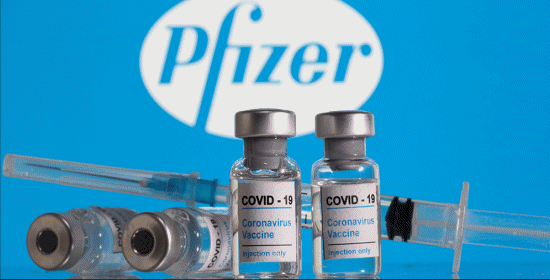 Nouveau coup d'accélérateur pour la vaccination contre le Covid-19, érigée en « priorité nationale » par Emmanuel Macron. Nouveau coup d'accélérateur pour la vaccination contre le Covid-19, érigée en « priorité nationale » par Emmanuel Macron.
Le chef de l'Etat, en déplacement ce mardi à Valenciennes, a annoncé une série de mesures pour accélérer la campagne, dont l'ouverture de la vaccination aux 70-75 ans qui ne souffrent d'aucune comorbidité.
« Je veux qu'on organise les choses de manière très méthodique, descendre par tranches d'âge », a souligné le président.
Voici un récapitulatif des Français éligibles à la vaccination, où et avec quel sérum.·
Tous les plus de 70 ans
Qui ? Les patients des Ehpad et les plus de 75 ans ont fait partie des premiers publics éligibles à la vaccination. Au 21 mars, ils étaient respectivement 91 % et 48 % à avoir déjà reçu une première dose, selon le ministère de la Santé. Emmanuel Macron a élargi cette tranche d'âge en abaissant ce mardi l'âge minimum requis à 70 ans.
Quel vaccin et où ? Le choix est vaste pour les seniors. Soit les vaccins Pfizer-BioNTech ou Moderna dans un centre de vaccination, ou en Ehpad si la personne y réside. Soit le vaccin d'AstraZeneca chez le médecin traitant, en pharmacie, ou en Ehpad.
Les moins de 70 ans « à très haut risque »
Qui ? Tout majeur considéré comme « personne vulnérable à très haut risque » de développer une forme grave du Covid-19 est éligible à la vaccination. La liste des pathologies est détaillée sur le site du ministère de la Santé . Il s'agit notamment de personnes atteintes de cancers en cours de traitement par chimiothérapie, de maladies rénales chroniques sévères, de poly-pathologies chroniques, de certaines maladies rares ou encore de trisomie 21 et de personnes transplantées.
Quel vaccin et où ? Ce sont les vaccins Pfizer-BioNTech ou Moderna en centre de vaccination, sur présentation d'une ordonnance du médecin traitant, ou éventuellement dans l'établissement où la personne est déjà soignée.
Les plus de 55 ans peuvent aussi recevoir le vaccin d'AstraZeneca chez leur médecin traitant ou le médecin du travail, en pharmacie, ou éventuellement dans un établissement de soins.· Les 50-69 ans « à risque »
Qui ? Ce public n'est pas considéré « à très haut risque », mais seulement « à risque » en raison d'une des comorbidités listées par la Haute Autorité de Santé : pathologies cardiovasculaires, respiratoires chroniques ou neurologiques, obésité, diabète, cancer, maladies hépatiques, etc.
Quel vaccin et où ? Ils peuvent recevoir celui de Pfizer-BioNTech ou de Moderna en centre de vaccination. La tranche d'âge 55 -69 ans peut aussi bénéficier du vaccin d'AstraZeneca dans tous les lieux où il est administré (médecin traitant, médecin du travail, pharmacie, ou éventuellement un établissement de soins si la personne s'y trouve déjà).
·Les soignants
Qui ? Après avoir été réservée dans un premier temps aux professionnels soignants de plus de 50 ans, la vaccination est ouverte à tous les âges depuis Quel vaccin et où ? Pour les 18-54 ans, les vaccins de Pfizer-BioNTech ou de Moderna en centre de vaccination ou dans leur établissement de santé. Les plus de 55 ans peuvent aussi recevoir celui d'Astrazeneca dans tous les lieux où il est administré.
Bientôt d'autres professions
Emmanuel Macron a annoncé que des campagnes ciblées à destination de professions spécifiques, comme les enseignants, seraient lancées en avril-mai.
Tous les autres Français - les mineurs et les moins de 55 ans ne souffrant pas de comorbidités - ne sont donc pas éligibles pour le moment à la vaccination. Le gouvernement vise 10 millions de personnes vaccinées mi-avril, 20 millions à la mi-mai et 30 millions mi-juin, contre 6,35 millions actuellement.
|
|
|
|
| Boby Dean pour le DayNewsWorld |
 |
There are no translations available.
COVID-19 AU MOINS 35 VACCINODROMES DEPLOYES PAR L'ARMEE ET LES POMPIERS EN FRANCE
|
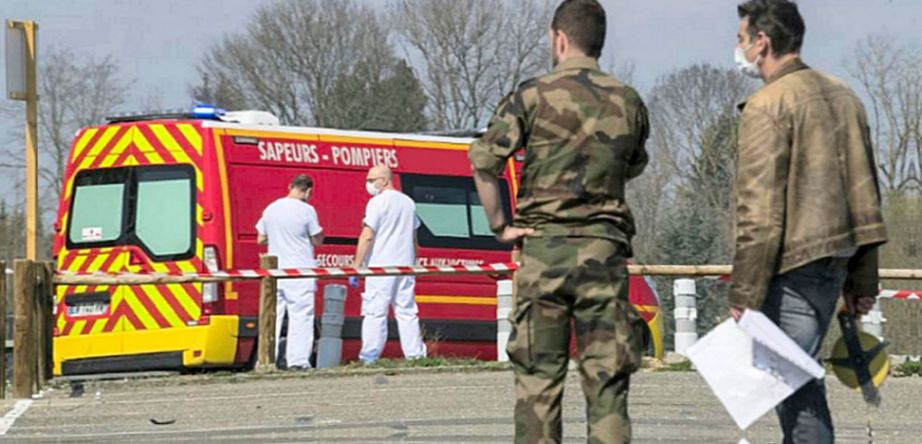 La France passe la vitesse supérieure. L'armée et les pompiers vont déployer « au moins 35 grands centres de vaccination contre le Covid-19, pour pouvoir être capables d'utiliser » toutes les doses qui seront livrées à la France « à partir du mois d'avril », a indiqué lundi le ministre de la Santé. La France passe la vitesse supérieure. L'armée et les pompiers vont déployer « au moins 35 grands centres de vaccination contre le Covid-19, pour pouvoir être capables d'utiliser » toutes les doses qui seront livrées à la France « à partir du mois d'avril », a indiqué lundi le ministre de la Santé.
« Le service de santé des armées va travailler à développer un certain nombre de grands centres de vaccination - on peut les appeler 'vaccinodromes' ou 'mégacentres', quel que soit le nom », a déclaré Olivier Véran lors d'un déplacement à Epinay-sous-Sénart, en Essonne, en compagnie de sa collègue déléguée chargée des Sports, Roxana Maracineanu.
Ces 35 centres, pris en charge par l'armée, s'inscrivent dans les 1 à 2 grands centres de vaccination par département gérés par le ministère et l'assurance maladie.
Il s'agit pour les autorités de « pouvoir être capables d'utiliser tous les vaccins qui nous sont livrés à partir du mois d'avril pour vacciner massivement les Français », a-t-il poursuivi.Olivier Véran a réaffirmé l'objectif de « 10 millions de primovaccinés à la mi-avril, et puis ensuite ça va augmenter, parce que les apports de vaccin vont augmenter », a-t-il assuré.
Le service de santé des armées (SSA) a également déployé un cinquantaine de ses personnels en renfort à Mayotte, afin de gérer dix lits de réanimation supplémentaires au sein du centre hospitalier.
Pendant la première vague épidémique, au printemps 2020, les militaires français avaient également contribué à l'effort collectif sous le parapluie de l'opération « Résilience »:
ouverture d'une structure médicale de réanimation sous tente à Mulhouse (Haut-Rhin),transfert de patients par voie aérienne ou encore convoyage de matériel médical et de renforts outre-mer.
|
|
|
|
| Boby Dean pour DayNewsWorld |
 |
There are no translations available.
CORONAVIRUS LA FRANCE VEUT METTRE LE PAQUET SUR LA VACCINATION
|
Pour lutter contre la hausse de l’épidémie de coronavirus, un confinement est mis en place à partir de ce week-end dans le Pas-de-Calais, comme à Nice et Dunkerque. Paris et sa région y échappent certes pour le moment mais les commerces de plus 10 000 m² devront fermer et il sera interdit de boire la journée dans plusieurs zones. Trois nouveaux départements sont placés sous surveillance : les Hautes-Alpes, l’Aube et l’Aisne, ce qui porte le total à 23.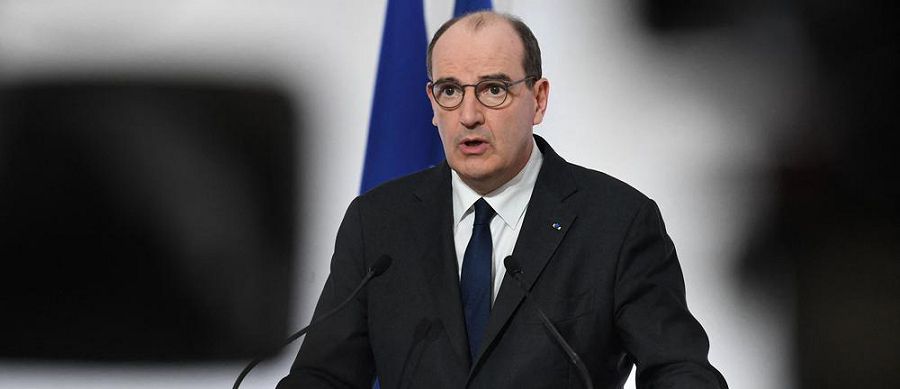
Jean Castex, rappelant que les prochaines semaines seront « très sensibles » sur le front du Covid-19, a promis ce samedi 6 mars 2021que le gouvernement allait « mettre le paquet sur la vaccination » et qu'il « ne débranchera pas tout de suite » les aides au secteur de la restauration lorsqu'il pourra rouvrir.
D'ailleurs vendredi 5 mars, ce sont 250.000 personnes ont reçu une injection en France, un record depuis le début de la campagne de vaccination. Et la campagne devrait encore s’accélérer : le décret autorisant les pharmaciens, infirmiers et sages-femmes à vacciner contre le Covid-19 a été signé vendredi.
Objectif : vacciner 10 millions de Français d’ici à la mi-avril et 20 millions d’ici à la mi-mai, promet le gouvernement.-
Est-ce réalisable ? Oui, mais à condition de passer à la vitesse supérieure ce qui implique de vacciner quasiment quatre fois plus qu'aujourd'hui, 7 jours sur 7. Jusqu'à présent, pendant le weekend il y avait un ralentissement voire un arrêt des vaccinations. Dorénavant ce ne sera plus le cas.
Sachant qu'il y a actuellement 400.000 doses d'AstraZeneca à écouler., tout est mis en œuvre : l'armée est mobilisée avec l'ouverture ce weekend de quatre hôpitaux militaires au quatre coins de la France. En Essonne, ce sont les pompiers qui ont construit des boxes supplémentaires pour pouvoir vacciner environ 1.800 personnes en deux jours. Le personnel soignant est également mobilisé.Et les doses sont censées arrivées à temps...
Le gouvernement a donc déployé les grands moyens avec les yeux rivés sur le compteur.
L'objectif est en effet atteignable que si 250.000 personnes sont vaccinées chaque jour, weekend compris. |
|
|
|
| Andrew Preston pour DayNewsWorld |
 |
There are no translations available.
VERS UN « CONFINEMENT TRES SERRE » EN FRANCE FACE A L'ECHEC DU COUVRE-FEU ?
|
Rien n’est encore décidé mais depuis une semaine les tergiversations sur un éventuel troisième confinement sont à l'ordre du jour au sommet de l'exécutif. Le chef de l’État, qui déteste être mis sous pression, qui plus est par certains membres de son gouvernement comme par sa propre famille, veut prendre son temps face à un reconfinement à hauts risques. D'autant qu'il a entre les mains des enquêtes d’opinion montrant que le
taux d’adhésion au confinement a fondu de 85 % en mars à 40 %
aujourd’hui. Et qu'existe un risque de désobéissance civile.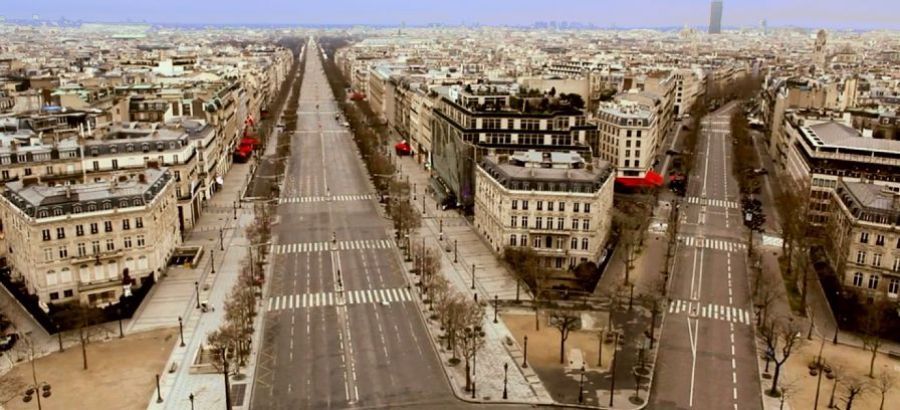
Pourtant les mauvaises nouvelles s'accumulent. Le couvre-feu instauré à 18H «ne freine pas suffisamment» la propagation du virus du Covid-19 pour être «pleinement efficace»,a déclaré ce mercredi 27 janvier 2021 le porte-parole du gouvernement Gabriel Attal. Le couvre-feu a, selon lui, «une efficacité relative, qui est réelle mais qui n'est pas suffisante à ce stade». Elle «ralentit la progression du virus», mais ce dernier «continue à progresser» tandis que «les variants se développent à un rythme important», a-t-il expliqué.
Le gouvernement étudie donc plusieurs «scénarios» qui vont «du maintien du cadre actuel jusqu'à un confinement très serré», a-t-il précisé à l'issue du conseil des ministres ayant suivi un conseil de défense sanitaire à l'Elysée.
Le président Emmanuel Macron a demandé «des analyses supplémentaires» sur ces différents scénarios avant de prendre des décisions, a encore précisé Gabriel Attal.
Mais «le maintien du cadre actuel paraît peu probable», selon le porte-parole, qui a promis «une concertation avec le Parlement et les syndicats» dans les prochains jours.
|
|
|
|
| Britney Delsey pour DayNewsWorld |
 |
There are no translations available.
COVID POURQUOI LA FRANCE DE PASTEUR
N'A-T-ELLE PAS SON VACCIN ?
|
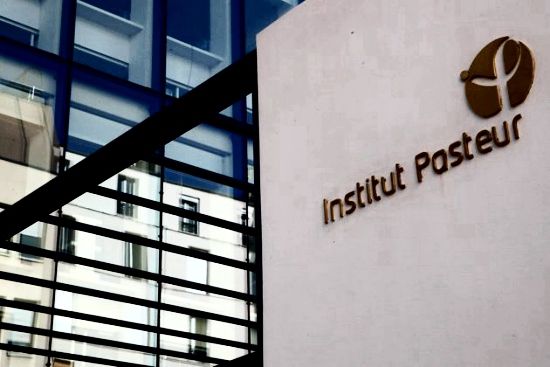 Sur le front du vaccin, l’Institut Pasteur a annoncé hier qu’il abandonnait le développement de son principal projet de vaccin. Les résultats des premiers essais cliniques ont montré que « la réponse immunitaire était inférieure à celle provoquée par une infection naturelle et à celle rapportée pour les autres vaccins », explique la société. Sur le front du vaccin, l’Institut Pasteur a annoncé hier qu’il abandonnait le développement de son principal projet de vaccin. Les résultats des premiers essais cliniques ont montré que « la réponse immunitaire était inférieure à celle provoquée par une infection naturelle et à celle rapportée pour les autres vaccins », explique la société.
Certes, on savait que le candidat-vaccin de Pasteur avait pris du retard, en particulier sur les deux vaccins aujourd’hui disponibles, celui de Pfizer-BioNTech et celui de Moderna, fondés sur la technologie très innovante de l’ARN messager.
Mais le projet pastorien, conçu sur le principe des « vaccins vecteurs viraux », semblait prometteur et toujours dans la course.D'où la question suivante:
Pourquoi
la France, pays de Pasteur, n'est-elle pas capable de mettre au point
un vaccin contre le Covid quand les Britanniques et les Allemands y
parviennent ?
Et ce, même avec le soutien d'un grand laboratoire comme Merck MSD, qui aurait pu jouer pour l'Institut Pasteur le rôle d'AstraZeneca pour l'université d'Oxford, ou de Pfizer, pour BioNTech. Sans oublier le champion tricolore Sanofi, tout numéro deux mondial des vaccins qu'il est, qui a lui aussi trébuché et dû remettre humblement l'ouvrage sur le métier en revoyant son calendrier.Comment notre industrie pharmaceutique en est-elle arrivée là ? Le Conseil d'analyse économique (CAE) tente d'apporter une réponse dans une note, publiée ce mardi, à l'intitulé explicite : « Innovation pharmaceutique : comment combler le retard français ? ». La commission, qui réunit un panel d'économistes chargés de conseiller le Premier ministre Jean Castex, a analysé les points faibles de la recherche tricolore en matière de conception et de commercialisation de nouveaux médicaments.
Premier constat : la France n'a pas su anticiper puis s'adapter aux bouleversements que subit le secteur. « En témoigne un certain nombre d'échecs récents dans la recherche de vaccins, souligne Jean Beuve, l'un des conseillers scientifiques du CAE, en faisant allusion au retard de Sanofi, puis à l'annonce de l'Institut Pasteur de résultats insuffisants pour son candidat vaccin. « L'industrie pharmaceutique a fait face ces dernières années à des changements majeurs, enchaîne Anne Perrot, Inspectrice générale des finances, membre du CAE et co-rédactrices de l'étude. Avec notamment le passage de la chimie aux biotechnologies et à la génomique, rendant le processus d'innovation plus complexe et plus coûteux. »
Les progrès de la biologie, et notamment de la biotechnologie, ont en effet débouché sur une vague d'innovations sans précédent durant la dernière décennie. Avec des conséquences notables sur le portefeuille des laboratoires, leur business model, les coûts de développement et in fine, le prix des médicaments. A titre d'exemple, le coût moyen de développement d'un médicament commercialisé était estimé à 802 millions de dollars en 2003 ; en 2016, il était de 2558 millions de dollars, les coûts capitalisés ayant augmenté de 8,5 % par an. D'où l'importance des partenariats. Une nébuleuse de PME et de start-up sont ainsi venues compléter un environnement trusté jusque-là par quelques grands groupes historiques.
Or, deuxième constat : une collaboration insuffisante entre les start-up et les grands groupes, mais aussi les universités. D'autres pays en ont pourtant fait un pivot fondamental de leur innovation. Et le rapport de citer les exemples de l'allemand BioNTech et de l'américain Moderna, qui participent aujourd'hui à la production les deux premiers vaccins anti-Covid. BioNTech a ainsi été fondé par trois chercheurs en Allemagne en 2008, en menant des développements de pointe en immunothérapie. La start-up s'est rapidement développée en bénéficiant de la proximité de centres de recherche et d'hôpitaux universitaires en Allemagne (Mayence, Munich, etc.) et aux Etats-Unis (Cambridge, San Diego), établissant ainsi un solide pont entre recherche fondamentale et recherche appliquée.
Même schéma pour l'entreprise Moderna, créée par un biologiste de Harvard pour commercialiser ses recherches sur les cellules-souches. Les accords de licence, les partenariats ou les investissements de capital-risque des grandes entreprises pharmaceutiques sont en effet plus en capacité de fournir un financement essentiel.
L'Hexagone pâtit de ne pas pouvoir s'appuyer sur une université de pointe dans les biotechs, à l'image d'Oxford ou de Cambridge en Angleterre, du MIT ou de Harvard aux Etats-Unis. Cette absence est d'autant plus dommageable que « les liens entre universités et laboratoires pharmaceutiques sont faibles et de mauvaise qualité », souligne Philippe Martin, le président du Conseil d'analyse économique. Côté financement des recherches, « les crédits publics manquent mais aussi le maillon suivant : le financement privé », pointent les auteurs de la note.
Troisième constat : tous les fonds ne vont pas forcément dans les bonnes poches. A commencer par l'argent mis… dans les salaires. Plusieurs rapports alertent en effet sur la perte d'attractivité de la profession de chercheur dans l'Hexagone : la rémunération moyenne en début de carrière s'établit à seulement 63 % du salaire moyen des pays de l'OCDE. Résultat ? Une fuite des cerveaux, malgré une qualité de la formation tricolore toujours reconnue.Une fuite des cerveaux à cause de salaires trop bas. La française Emmanuelle Charpentier — passée par la Sorbonne et l'Institut Pasteur — vient ainsi d'obtenir le prix Nobel de chimie. « Elle fait aujourd'hui de la R&D en Allemagne et sa carrière s'est déroulée à peu près partout sauf en France », lâche l'une des autrices de la note.
Se pose enfin la question du trop faible recours aux génériques dans notre pays. Un meilleur usage de ces médicaments, dont le brevet est tombé dans le domaine public, permettrait de mieux faire jouer la concurrence et de libérer des crédits pour d'autres médicaments innovants.
Un tableau dressé par le CAE inquiétant quand d'autres pays comme les Etats-Unis, la Grande Bretagne ou l'Allemagne, mais également des nouveaux venus du côté de l'Asie, ont déjà pris une longueur d'avance.
|
|
|
|
| Abby Shelcore pour DayNewsWorld |
 |
There are no translations available.
UN TROISIEME CONFINEMENT
DES LA SEMAINE PROCHAINE EN FRANCE ?
|
Un troisième confinement en France ?
Ce serait une simple question de jours. « La décision est sur le point d'être prise » selon les sources proches de l'exécutif citées dans l'édition du 24 janvier du JDD. Emmanuel Macron pourrait prendre la parole dès mercredi soir, après le conseil de défense sanitaire, pour une entrée de vigueur en fin de semaine, présagent nos confrères
La France vivrait alors une troisième période de confinement après l'avoir connu du 17 mars au 11 mai 2020 et du 30 octobre au 15 décembre 2020. . Le calendrier précis et les modalités restent à définir. Le JDD indique que les sorties seraient de nouveau limitées, que les commerces non essentiels devraient limiter leurs horaires et que le télétravail obligatoire n'est pas envisagé. En revanche, les établissements scolaires resteraient ouverts « Maintenir la continuité de l'enseignement reste un marqueur primordial pour le Président autant pour ne pas creuser les inégalités sociales que pour ne pas empêcher les parents de travailler » assure un conseiller cité par le JDD.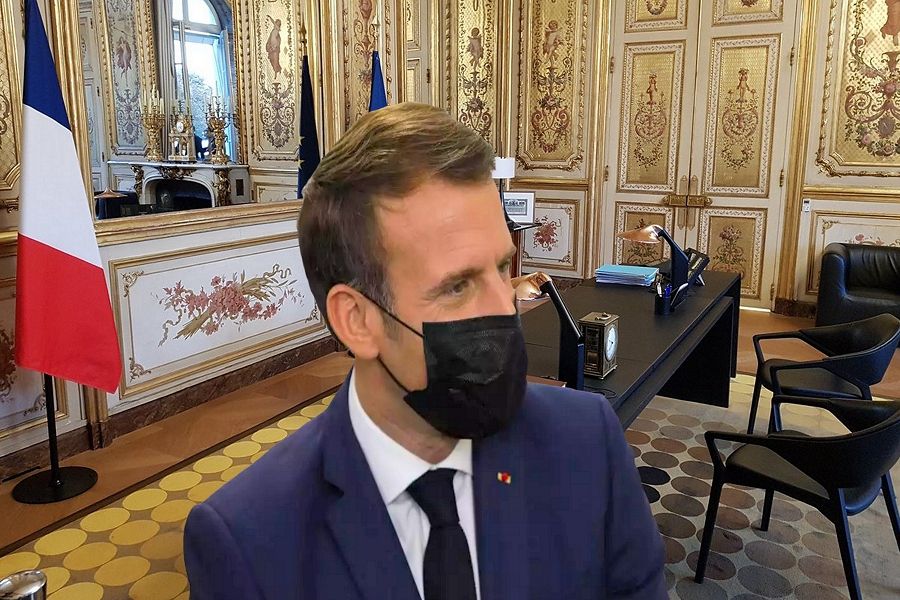
Situation sanitaire préoccupante
Les dernières projections de l'Institut Pasteur et de l'Inserm ne présagent rien de bon avec des courbes exponentielles des infections. La cause : les différents variants ,beaucoup plus contagieux, déjà présents en France. Le variant anglais devrait même devenir le virus principal en France courant mars.
Ce samedi, 24 000 nouvelles contaminations ont été enregistrées par Santé publique France. 230 patients sont morts du Covid-19 en 24 heures. Dans les hôpitaux, la tension ne recule pas. 25 864 personnes sont hospitalisées dans toute la France (+ 1174 en 24 heures). Les services de réanimation accueillent 2886 patients (+ 172 en 24 heures). Pour tenter de freiner le virus et les nouvelles contaminations, le gouvernement avait élargi le couvre-feu entre 18 heures et 6 heures du matin à toute la France il y a une semaine. La France demande, par ailleurs, depuis ce dimanche, un test PCR négatif de moins de 72 heures à tout voyageur en provenance des pays de l'Union européenne.
L'Europe se reconfine
C'est la flambée de l'épidémie dans les pays voisins avec des restrictions sanitaires fortes qui met la pression sur le gouvernement français.
Plusieurs pays européens ont déjà mis en place un nouveau reconfinement depuis le début de l'année : confinement total au Royaume-Uni depuis le 6 janvier jusqu'en mars, confinement au Portugal depuis le 15 janvier pour un mois, confinement en Allemagne du 5 au 31 janvier. D'autres pays ont adopté un couvre-feu comme les Pays-Bas depuis ce samedi et même un couvre-feu municipal en Catalogne.
72 % des Français s'attendent à un troisième confinement
Le troisième confinement , redouté par une majorité de Français, devrait en contrarier plus d'un. Selon un sondage publié par Les Echos, 72 % des Français s'attendent à un reconfinement mais seulemment 41 % le souhaitent. C'est beaucoup moins que lors des deux précédents confinements.
Le hashtag #JeNeMeConfineraiPas était un des thèmes les plus populaires sur Twitter en France samedi.
|
|
|
|
| Alyson Braxton pour DayNewsWorld |
 |
There are no translations available.
VERS UN TROISIEME RECONFINEMENT EN FRANCE ?
|
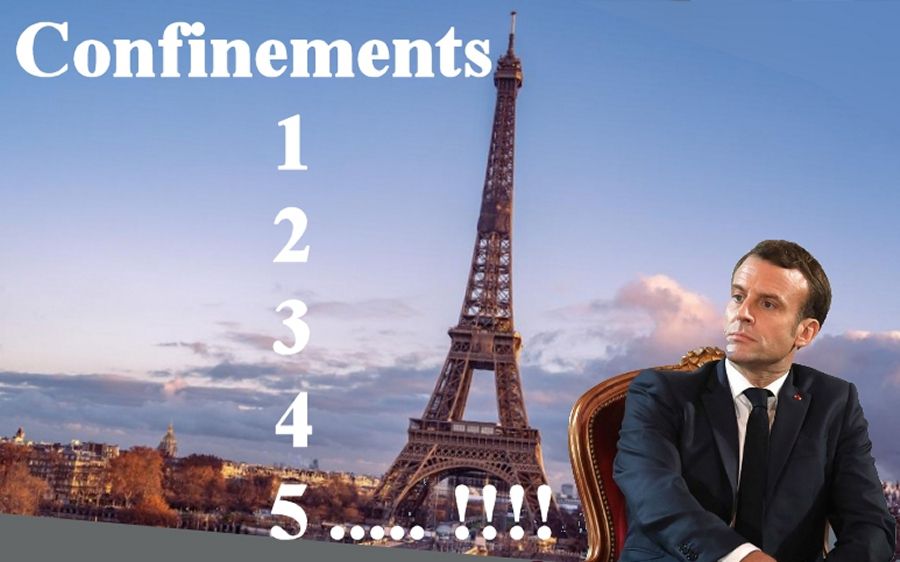 Couvre-feu national à 18 h, confinement le week-end ou reconfinement total: les trois scénarios sont à l'étude. Mercredi 13 janvier, le gouvernement se réunit autour d'un nouveau conseil de défense sanitaire, à la veille d'une nouvelle prise de parole officielle. Couvre-feu national à 18 h, confinement le week-end ou reconfinement total: les trois scénarios sont à l'étude. Mercredi 13 janvier, le gouvernement se réunit autour d'un nouveau conseil de défense sanitaire, à la veille d'une nouvelle prise de parole officielle.
Ce mardi 12 janvier, il y a désormais officiellement 25 départements français en couvre-feu de 18 h à 6 h. Mais qu'en sera-t-il à partir de la semaine prochaine ? C'est la question que va devoir débattre le conseil de défense sanitaire réuni mercredi 13 janvier, alors que le président du Conseil scientifique doit remettre ce mardi un rapport à l'Elysée, sur l'efficacité de cette mesure. Troisième vague, variant britannique…
L’hypothèse
d’une troisième vague ne peut pas être écartée tant que les retombées
des fêtes de fin d’année sur le rythme des contaminations n’ont pu être
établies.
À
cela s’ajoute le variant britannique que le gouvernement souhaite
surveiller au plus près. 70 % plus contagieuse, cette souche a entraîné
une hausse exponentielle de cas dans le sud-est de l’Angleterre.
Des
foyers d’infections ont été depuis localisés à Bagneux, Lille, dans les
Hautes-Alpes et Marseille, où la première adjointe a évoqué, lundi 11
janvier, la possibilité d’un reconfinement local.
Quant
à la campagne de vaccination, commencée le 27 décembre, la première
phase ne concernera qu’un million de Français en janvier. Cela permettra
de limiter les contaminations et la mortalité au sein de Ehpad, mais
pas de contrôler massivement la circulation du virus.
Selon
plusieurs sources, trois scénarios seraient donc à l'étude pour faire face au
rebond épidémique d'après les fêtes de fin d'année et à l'arrivée du
variant britannique du Covid-19, qui sème le chaos en Angleterre et dont
plusieurs foyers épidémiques ont été repérés en France.
Quels départements sont sur la sellette ?
Le scénario du couvre-feu laisserait donc en l'état le couvre-feu anticipé dans les département où cela a été acté et permettrait aux préfets, après concertation avec les élus locaux, de placer les territoires sous tension, au régime du couvre-feu dès 18 h.
Selon le Parisien, les départements qui pourraient basculer sont la Haute-Savoie, l'Yonne mais aussi les Deux-Sèvres où le taux d'incidence apparaît particulièrement élevé.
Un reconfinement national
Parmi ces scénarios, celui du reconfinement national, qui commence à faire de plus en plus de bruit. À ce sujet, le gouvernement ne ferme pas totalement la porte, mais présente cette option comme le « dernier recours ». C'est en tout cas le message qu'a fait passer Jean Castex, le Premier ministre, lors de la réunion « comité de suivi parlementaire » qui s'est tenue lundi 11 janvier. Lundi
après-midi, lors du comité de suivi parlementaire, le Premier ministre
Jean Castex lâchait : « Il ne faut pas exclure un troisième confinement
en dernier recours. »
De nombreuses
voix se font entendre pour réclamer un reconfinement :
l’association PandémIA, constituée d’experts médicaux et scientifiques,
craint que « l’aggravation de l’actuelle vague impose mi-janvier, un
nouveau confinement, du fait, de nouveau, des graves pressions sur le
système de santé. »
Pour l’association, « un reconfinement strict est la meilleure arme pour lutter contre la pandémie de Covid-19. » Reconfinement ou couvre-feu étendu Pour l’heure, le gouvernement semble plutôt miser sur le couvre-feu, avancé à 18 h dans un nombre grandissant de départements. Il pourrait être étendu à tout le territoire.Le couvre-feu national dès 18 h permettrait à l'exécutif de revenir à
des mesures généralisées à l'ensemble du territoire, permettant ainsi
davantage de lisibilité.
Mais le couvre-feu à 18 h est-il efficace ? Ce qui est sûr, c'est qu'il ne fait pas l'unanimité, de nombreux élus s'élevant contre l'engorgement provoqué notamment dans les magasins pour que les gens qui travaillent puissent faire leurs courses avant de rentrer chez eux.
Chez les scientifiques non plus, on n'est pas tout à fait d'accord sur l'efficacité de la mesure. Au Parisien, l'épidémiologiste Catherine Hill, confie : « Un couvre-feu avancé à 18 heures ne changera grand-chose. Cela va embêter les gens et ne va pas beaucoup réduire le nombre de personnes qui se croisent, et qui se contaminent ». Autre hypothèse, celle d’une solution hybride : un couvre-feu à 18 h en semaine et un confinement le week-end, afin de
limiter totalement les déplacements, alors que certains Français
profitent de ces deux jours de repos pour se déplacer ou voir de la
famille.
Des options sur lesquels le conseil de défense, qui se tiendra mercredi, aura à se prononcer.
Vers une fermeture des écoles ?
Les leviers ne sont pas très nombreux. Depuis jeudi 7 janvier, un nouveau protocole sanitaire permet aux salariés qui le souhaitent de se rendre un jour par semaine sur leur lieu de travail.Une
semaine plus tard, difficile d’imaginer le gouvernement faire marche
arrière et inciter à nouveau massivement au télétravail. Idem pour
l’ouverture des lieux des cultes.
Quant à la fermeture des écoles, c’est un tabou – « Nous sacralisons, nous sanctuarisons l’école parce que l’éducation est fondamentale pour notre pays », avait insisté dimanche 10 juin Olivier Véran, sur Europe 1- même si certains scientifiques la réclament.
À l’issue d’une réunion avec les syndicats enseignants jeudi 7 janvier, le ministre de l’Éducation nationale Jean-Michel Blanquer a annoncé que le protocole sanitaire ne serait pas renforcé dans les établissements scolaires. Tout en disant se tenir en alerte et prêt à bouger le curseur s’il le fallait. Mais il se refuse à envisager pour l’heure un report des épreuves anticipées du baccalauréat.
Une marge de manœuvre étroite
La marge de manœuvre est étroite mais le gouvernement ne peut se permettre le statu quo si les chiffres de contaminations gonflent. Si
l’épidémie, portée par le variant britannique, devient, à l’image de ce
qui s’est passé au Royaume-Uni, à nouveau hors de contrôle, ce troisième
confinement sera inévitable.
« En milieu de semaine, on saura quelle est la taille de l’ennemi et là il faudra prendre des mesures appropriées », prévient l’épidémiologiste Arnaud Fontanet, membre du conseil scientifique.
Le verdict tombera alors jeudi, lors de la conférence de presse du Premier ministre.
|
|
|
|
| Carl Delsey pour DayNewsWorld |
 |
There are no translations available.
COVID-19 LE VACCIN MODERNA ARRIVE EN FRANCE
|
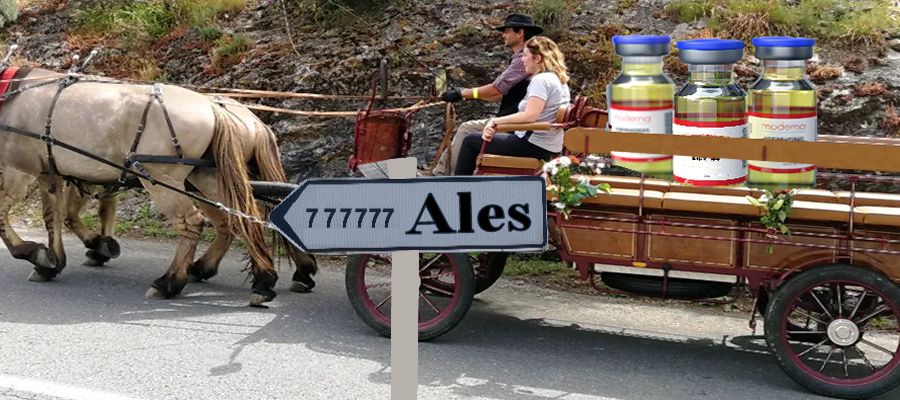 Après Pfizer, c'est au tour du vaccin Moderna, qui vient de recevoir une autorisation européenne de mise sur le marché, d'arriver en France. Après Pfizer, c'est au tour du vaccin Moderna, qui vient de recevoir une autorisation européenne de mise sur le marché, d'arriver en France.
Dès ce lundi 11 janvier , 50000 doses de vaccin contre le Covid-19 de la société américaine vont être livrées. Elles sont réservées en priorité aux régions qui en ont le plus besoin, à l'instar du Grand-Est, de la Bourgogne Franche-Comté, de l'Auvergne-Rhône-Alpes et de la Provence.
D'ici à fin juin, ce sont près de huit millions de doses qui sont attendues pour le vaccin Moderna, précise ce communiqué. Ces doses s'ajoutant aux livraisons hebdomadaires du vaccin Pfizer.
Le vaccin Moderna présente des contraintes moins lourdes que celui de Pfitzer dans la mesure où il est plus simple dans son utilisation, notamment parce qu'il peut se conserver au réfrigérateur pendant 30 jours au lieu de 3 pour Pfizer et qu'il nécessite une congélation à seulement -20 degrés contre -70 degrés pour le premier.
Comme le vaccin Pfitzer, celui de Moderna a recours à la technologie dite à ARN messager, et les deux peuvent donc être utilisés « indifféremment dans le cadre de la stratégie vaccinale », précise le ministère. |
|
|
|
| Alyson Braxton pour DayNewsWorld |
 |
There are no translations available.
COVID-19 EN FRANCE JEAN CASTEX
N'EXCLUT PAS DE NOUVELLES RESTRICTIONS A VENIR
|
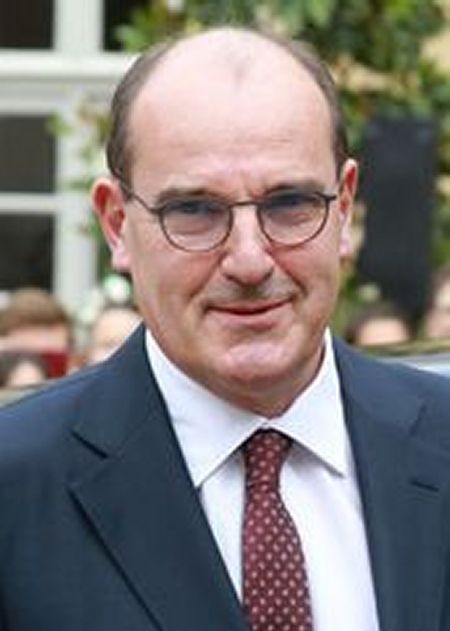 Le premier ministre français Jean Castex a tenu ce jeudi une conférence de presse consacrée aux mesures de lutte contre l'épidémie de Covid-19. Le premier ministre français Jean Castex a tenu ce jeudi une conférence de presse consacrée aux mesures de lutte contre l'épidémie de Covid-19.
Le ministre de la Santé, Olivier Véran a participé, comme à à l’accoutumée, à cette conférence.
Une situation sanitaire préoccupante
Le chef du gouvernement a mis en garde face à une situation sanitaire toujours préoccupante sur le territoire national. « La situation sanitaire est devenue plus fragile », a même souligné le chef du gouvernement. Il a indiqué que « le niveau des contaminations reste à un niveau élevé, il a même tendance à progresser depuis la mi-décembre. Les nouveaux cas tournent autour de 15 000 quotidiennement ».
« La pression sur les établissements hospitaliers reste importante avec en moyenne 2 000 nouvelles hospitalisations et 200 nouvelles admissions en réanimation par jour ». Or « il est hors de question de désarmer nos systèmes hospitaliers » et « il n'est pas question que nous baissions la garde dans les semaines à venir », a donc prévenu le Premier ministre.
Deux variants du virus en France
Le ministre de la Santé a fait le point sur les deux variants du virus, la souche britannique et celle provenant d'Afrique du Sud .19 cas étaient actuellement en circulation, dont deux dans des clusters à risque. Olivier Véran a expliqué que ceux-ci étaient plus contagieux de l'ordre de « 40% à 70% » que le virus initial, et que les autorités sanitaires prenaient « très au sérieux » cette menace.
Tous les laboratoires sont donc mobilisés pour traquer le variant, tous les tests PCR douteux seront analysés pour faire du séquençage. Jean Castex a ajouté que « la frontière avec le Royaume-Uni restera fermée jusqu'à nouvel ordre ».
Vers un nouveau durcissement des mesures ?
Concernant les restrictions, le Premier ministre a indiqué que « les lieux culturels, établissements et équipements sportifs resteront fermés jusqu'à la fin du mois » ajoutant que les bars et les restaurants rouvriront « a minima mi-février ». Sur la situation des stations de sports d'hiver, un point sera organisé le 20 janvier prochain pour voir si une réouverture des remontées mécaniques sera possible « début février ».
Couvre-feu dès 18h envisagé dans 10 nouveaux départements
Jean Castex a annoncé également que la mesure de couvre-feu à partir de 20h reste en vigueur jusqu'au 20 janvier. En outre, le Premier ministre a fait savoir que 10 départements français supplémentaires pourraient être concernés par un couvre-feu à partir de 18 heures, alors que 15 départements de l'Est de la France y sont déjà soumis. Une décision devrait être prise d'ici vendredi soir. « Les décisions seront prises vendredi soir pour rentrer en vigueur dimanche » après des concertations menées par les préfets des territoires concernés. Le Premier ministre a aussi déclaré que de nouvelles mesures pourraient être appliquées au niveau national, « si la situation se détériore ».
45 000 Français vaccinés
Sur la stratégie vaccinale, le chef du gouvernement a indiqué que « la phase deux avait été avancée ». Ainsi, les personnes de plus de 75 ans pourront se faire vacciner « à partir de lundi 18 janvier dans des centres de vaccination ». 300 vont ainsi ouvrir rapidement pour atteindre 600 centres dans les prochaines semaines. Les personnes de plus de 75 ans pourront organiser leur vaccination soit via un numéro de téléphone ou le site internet santé.fr. Ils seront orientés vers le centre le plus proche de leur domicile pour y prendre rendez-vous.
La vaccination est également ouverte aux personnes handicapées hébergées dans des établissements spécialisés et aux personnels de 50 ans et plus qui y travaillent, a annoncé ce jeudi le gouvernement.
Jean Castex a indiqué que « 45 000 personnes avaient été vaccinées au cours des cinq derniers jours ». Le gouvernement s'est engagé à publier les chiffres des vaccinations quotidiennes dans les prochains jours.
Olivier Véran a indiqué que « 78 millions de doses seront livrées avant l'été entre les cinq principaux vaccins ».
Le ministre de la Santé a ajouté concernant le Vaccin Pfizer-BioNTech, que la deuxième dose peut être différée « jusqu'à six semaines au lieu de trois ». |
|
|
|
| Andrew Preston pour DayNewsWorld |
 |
There are no translations available.
LA FRANCE EST LA RISEE DU MONDE
POUR LA VACCINATION ANTI-COVID
|
La France est à la traîne avec seulement 5 000 personnes vaccinées le 6 janvier 2021 alors que près de 15 millions de personnes ont reçu une première dose de vaccin contre le Covid-19 à ce jour . Et bien entendu la presse internationale en fait des gorges chaudes, moquant la lenteur de l' Hexagone.
La France a de nouveau « un retard à l’allumage évident » dans la campagne vaccinale contre le Covid-19 si bien que le ministre français de la Santé Olivier Véran a promis mardi 5 janvier « d’amplifier, d’accélérer et de simplifier » les injections de vaccin anti-Covid-19.
Lourdeurs administratives
Les médias étrangers pointent du doigt les lourdeurs administratives françaises en matière de vaccination. La France est en effet le seul pays à imposer une consultation préalable à l’injection, pour recueillir le consentement des personnes vaccinées.
« Les retards pris dans la campagne de vaccination contre le Covid-19 sont largement imputables aux blocages administratifs dans le secteur de la santé », déplore le journal Le Temps qui estime que « les vaccins français empêtrés dans la bureaucratie sanitaire ».
Le quotidien britannique The Guardian l’explique notamment par le fait que la France est « le seul pays insistant pour que les gens concernés par la vaccination donnent leur consentement après avoir été informés de possibles contre-indications ».
« L’État central »
En Italie, Il Foglio titre : « Comment se fait-il que la France soit si lente ? C’est l’État central, chéri ». Ce qui rappelle la boutade de Jean Rottner, président LR de la région Grand Est dénonçant le fait que « Se faire vacciner est plus compliqué que d’acheter une voiture ».
Die Welt, l’un des trois plus grands quotidiens allemands, va même jusqu’à parler de « désastre var Et au média Bloomberg qui n'hésite pas à traiter la France de Pasteur de mauvais élève :« la mère patrie du pionnier de la vaccination Louis Pasteur, et porteuse de grandes victoire scientifiques comme la découverte du VIH dans les années 1980, se trouve aujourd’hui en bas du tableau en matière d’injections contre le coronavirus ».
« La défiance française »
Autre ralentisseur majeur : « le cercle vicieux de la défiance française », titre Le Soir. Puis développe : « alors qu’ailleurs, plus on pique, plus on recueille l’adhésion du public, dans l’hexagone, c’est la défiance qui croît ». Le quotidien espagnol El Pais décrit la France comme « l’un des pays les plus anti-vaccins d’Europe et du monde ».
En effet 58 % des Français refuseraient de se faire vacciner, soit 6 Français sur 10. Cette défiance contre les vaccins caractériserait selon le Le Japan Times le peuplke français depuis la nuit des temps. « Quand le roi Louis XVI, ses deux frères et sa belle-sœur ont été inoculés contre la variole, le public s’est inquiété des risques encourus. Bien que l’expérience fût un succès, inspirant même une nouvelle mode capillaire, les doutes n’ont jamais disparu. Si le vaccin a décollé au cours du XIXe siècle, l’ère de Pasteur, il en a été de même pour la résistance, l’apathie et la méfiance. C’est un défi similaire qu’affronte Emmanuel Macron », développe le quotidien anglophone japonais.
Et au grand quotidien allemand Die Welt de conclure tout bonnement au« désastre vaccinal français » !
|
|
|
|
| Kelly Donaldson pour DayNewsWorld |
 |
There are no translations available.
ACCELERATION DE LA VACCINATION EN FRANCE APRES LE FIASCO DU DEBUT
|
Après les difficultés liées à l'approvisionnement en masques puis le déploiement des tests, c'est au tour de la campagne de vaccination de prendre du retard en France par rapport à ses voisins européens. En effet, au 2 janvier, seules 432 personnes avaient reçu une première dose de vaccin, contre 239 000 en Allemagne et 88 000 en Italie. Ce lundi 4 janvier 2021, un octogénaire d’Oxford a été la toute première personne dans le monde à recevoir le vaccin anti-Covid développé par la société AstraZeneca et l’université d’Oxford. C’est le deuxième vaccin distribué au Royaume-Uni après l’autorisation donnée à Pfizer et BioNTech. Aujourd’hui, plus d’un million de Britanniques ont été vaccinés contre le covid-19. Et si l'on se tourne vers les Etats-Unis : ils sont à l'heure actuelle plus de 4 millions d’Américains à avoir reçu la première dose des deux vaccins (Pfizer/BioNTech et Moderna) ayant reçu le feu vert des autorités.
Face aux critiques sur les lenteurs de la vaccination contre le Covid le chef de l’Etat s'est vu dans l'obligation de piloter lundi à l'Élysée une réunion de crise consacrée à la stratégie vaccinale.Une façon de tenter de reprendre la main et de mettre un coup d’accélérateur dans les moyens engagés. L'exécutif promet en effet une montée en puissance dès mardi soir.
En charge de la gestion de la crise depuis dix mois, le ministre de la Santé Olivier Verran a précisé ce mercredi 5 janvier 2021 que l'Hexagone a « dépassé les 2.000 vaccinations hier » et promis que « d'ici jeudi on va augmenter encore de façon très importante, on va être sur une courbe exponentielle ».
Aussi Olivier Verran bouscule-t-il le calendrier vaccinal en ouvrant notamment la vaccination aux personnels soignants de plus de 50 ans, initialement prévue début février, dès le 4 janvier. Olivier Véran a indiqué que cet élargissement concernerait aussi les pompiers et les aides soignants à partir de cet âge. « Ce sont des professionnels qui sont au contact de personnes fragiles et qui peuvent être amenés à travailler auprès de malades », explique-t-il. Le ministre de la Santé a défendu le seuil fixé à 50 ans car « nous savons que le vaccin Pfizer protège des formes graves du coronavirus (...) Les gens qui sont en réanimation massivement sont âgés de 60 ans et plus (...) Nous priorisons les personnes les plus fragiles ». Les citoyens de plus de 75 ans pourront également bénéficier d'injections avant début février. « Cela fait 5 millions de personnes », a quantifié Olivier Véran. Plus généralement, l'exécutif prévoit notamment de permettre aux Français volontaires pour se faire vacciner de se signaler. « Nous allons ouvrir dans les prochains jours une inscription possible pour les Français qui le souhaitent par internet, par téléphone sans doute, et pourquoi pas par l'application TousAntiCovid, pour que les Français qui souhaitent se faire vacciner puissent le faire savoir, s'inscrire et puissent prendre des rendez-vous », a annoncé le ministre de la Santé sur RTL.
Le gouvernement compte aussi déployer davantage de centres de vaccination. « De 27 hôpitaux équipés en vaccins, nous en aurons 100 demain (mercredi, ndlr) après-midi afin de couvrir tout le territoire », a indiqué Olivier Véran qui souhaite aussi « développer les centres de vaccination destinés à la ville ». « La semaine prochaine, nous aurons 300 centres de vaccination. Et 500 à 600 centres de vaccinations seront accessibles en ville fin janvier », a-t-il ajouté.
« Nous allons désormais amplifier, accélérer et simplifier notre stratégie vaccinale » contre le Covid-19, a également promis Olivier Véran mardi 5 janvier.
Tout cela alors que le variant du virus plus contagieux qui sévit en Angleterre est aussi sur le sol français. Entre 10 et 15 cas ont été détectés, a précisé le ministre de la Santé. |
|
|
|
| Andrew Preston pour DayNewsWorld |
 |
There are no translations available.
ENCORE DEUX SOLDATS FRANCAIS TUES AU MALI
|
 L'Elysée annonce samedi 2 janvier 2021 la mort de deux soldats français de l'opération Barkhane au Mali Le sergent Yvonne Huynh et le brigadier Loïc Risser, du 2ème régiment de hussards de Haguenau, sont décédés dans l'explosion de leur véhicule qui a roulé sur un engin explosif, près de Ménaka, dans l'est du pays, lors d'une mission de renseignement. L'Elysée annonce samedi 2 janvier 2021 la mort de deux soldats français de l'opération Barkhane au Mali Le sergent Yvonne Huynh et le brigadier Loïc Risser, du 2ème régiment de hussards de Haguenau, sont décédés dans l'explosion de leur véhicule qui a roulé sur un engin explosif, près de Ménaka, dans l'est du pays, lors d'une mission de renseignement.
« Le Président de la République rend hommage à la mémoire de ces soldats, morts pour la France dans l’accomplissement de leur devoir. Il partage la douleur de leurs familles, de leurs proches et de leurs frères d’armes et les assure de la gratitude et de la solidarité de la Nation », écrit l'Elysée dans un communiqué, tout en rappelant sa « détermination » face au terrorisme.
50 soldats français tués au Sahel
Yvonne Huynh, qui avait 33 ans, est la première femme de l'armée française tuée au Sahel depuis l'intervention Serval en 2013. Loïc Risser avait 24 ans. Tous deux étaient engagés dans un régiment spécialisé dans le renseignement.
Ces deux décès portent à 50 le nombre de soldats français tués au Sahel depuis 2013 dans les opérations antijihadistes Serval puis Barkhane, a précisé l'état-major des armées. Il y a cinq jours, trois militaires français avaient perdu la vie dans le même pays. En novembre, la France confirmait étudier une possible réduction du contingent français sur place, pour l'instant fort de quelque 5 000 hommes. La force Barkhane opère depuis 2014 avec pour objectif de permettre aux forces armées du Sahel de faire face à la menace djihadiste.
Le nord du Mali était tombé en mars-avril 2012 sous la coupe de groupes jihadistes liés à Al-Qaïda, à la faveur de la déroute de l'armée face à la rébellion à dominante touareg, d'abord alliée à ces groupes, qui l'ont ensuite évincée.
Les jihadistes en ont été en grande partie chassés ou dispersés à la suite du lancement en janvier 2013, à l'initiative de la France, d'une intervention militaire, qui se poursuit toujours.
Cependant les violences jihadistes ont non seulement persisté, mais se sont propagées du nord vers le centre du Mali, puis au Burkina Faso et au Niger voisins, se mêlant souvent à des conflits intercommunautaires ayant fait des centaines de morts.
|
|
|
|
| Britney Delsey pour DayNewsWorld |
 |
There are no translations available.
CORONAVIRUS FEU VERT DE
LA HAUTE AUTORITE DE SANTE POUR
LE VACCIN DE PFITZER ET BIONTECH EN FRANCE |
La Haute Autorité de santé (HAS) a donné jeudi 24 décembre son aval à l’utilisation du vaccin contre le Covid-19 développé par Pfizer et BioNTech.
Le vaccin « peut être utilisé chez les personnes de 16 ans et plus », « du fait de son efficacité et de son profil de tolérance satisfaisant », a estimé la HAS. Cela constitue la dernière étape réglementaire avant le lancement de la campagne de vaccination en France, dimanche 27 décembre.
Après le feu vert donné cette semaine par l’Agence européenne des médicaments (AEM) et l’Agence nationale de sécurité du médicament (ANSM).
La « stratégie de priorisation » déjà annoncée (commencée par les populations les plus à risque de forme grave et les plus exposées au risque d’infection) reste valable pour ce vaccin, ajoute l’avis de l’autorité sanitaire.
Elle précise que « cet avis sera revu en fonction de l’évolution des connaissances, notamment au regard des résultats complets des essais de phase 3 ».
« Nous confirmons que ce premier vaccin a bien une place dans la stratégie vaccinale, au regard tant de son efficacité que de son profil de tolérance, ce qui est une excellente nouvelle », a déclaré la présidente de la HAS, Dominique Le Guludec.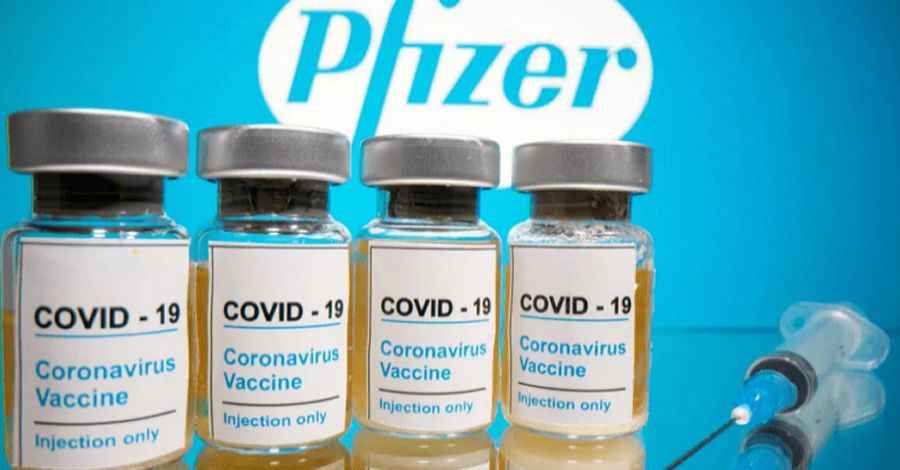
« Les modélisations mathématiques que nous avons réalisées nous confortent dans la stratégie de vacciner en priorité » les résidents des établissements d’hébergement pour personnes âgées et le personnel à risque qui y travaille, c’est-à-dire ceux « qui ont le bénéfice individuel le plus important à cette vaccination ».En effet, si le vaccin de Pfizer et BioNTech a démontré une efficacité « importante » pour empêcher de développer la maladie Covid-19, « pour l’instant nous n’avons pas d’information sur l’impact de ce vaccin sur la transmission du virus », a souligné Elisabeth Bouvet, présidente de la commission des techniques de vaccination de la HAS.
Aussi, la campagne vaccinale qui débutera dimanche a essentiellement pour objectif de « réduire la mortalité et les formes sévères » de la maladie et de « préserver le système de santé en France », a-t-elle rappelé.
Le vaccin est, par ailleurs, « très bien toléré », avec « très peu d’effets secondaires graves », a encore précisé Elisabeth Bouvet. Les effets indésirables majoritairement rapportés, comme une douleur au point d’injection, sont « conformes à ce qu’on observe habituellement quand on administre un vaccin », a-t-elle ajouté, tout en soulignant qu’il serait « important d’avoir des études de post-administration sur les personnes vaccinées ».
Débuts des vaccinations dans plusieurs pays
La campagne de vaccination dans l'UE devrait commencer dimanche. Les premières injections concerneront « quelques dizaines de résidents [d’Ehpad] d’abord dimanche ». Ensuite, cela sera étendu à d’autres établissements, lundi puis mardi.« La France a fait le choix d’une vaccination progressive, privilégiant en premier lieu les personnes les plus à risque (…), et fondée sur leur consentement. Nous ne confondons pas vitesse et précipitation », a déclaré M. Véran sur Twitter, rappelant que le consentement des personnes serait recueilli, la vaccination n’étant pas obligatoire. Le Royaume-Uni a déjà approuvé un premier vaccin, créé par Pfizer et BioNTech, envoyé depuis le début du mois chez les personnes les plus vulnérables.
Le Koweït a lancé aujourd'hui une campagne de vaccination après avoir réceptionné des doses du vaccin américano-allemand Pfizer-BioNTech, comme ont déjà commencé à le faire plusieurs de ses voisins. Le Premier ministre cheikh Sabah al-Hamad Al-Sabah a inauguré cette campagne en se faisant administrer le vaccin, ont rapporté des médias officiels Koweïtiens.
Plus d'un million d'Américains ont reçu leur première dose contre le Covid-19 depuis que la campagne a débuté il y a 10 jours, a annoncé mercredi le directeur de la principale agence fédérale de santé publique des Etats-Unis, Robert Redfield.« Les Etats-Unis ont franchi un palier préliminaire mais crucial », s'est-il félicité.
Le Chili et le Costa-Rica qui commencent à dégainer les seringues, également remplies du vaccin de Pfizer/BioNTech. L'Argentine a pour sa part autorisé le Spoutnik V devenant le premier
pays d'Amérique latine, et un des premiers pays au monde à donner son
feu vert au vaccin russe contre le Covid-19. De leur côté, les tests cliniques du vaccin CoronaVac, du laboratoire chinois Sinovac, ont « atteint le seuil d'efficacité » exigé par l'OMS, a révélé le même jour l'Institut Butantan, chargé de sa production et distribution au Brésil, sans toutefois rendre publics les résultats officiels.
|
|
| Andrew Preston pour DayNewsWorld |
 |
There are no translations available.
COVID-19
UNE GESTION DEFAILLANTE DE LA PANDEMIE
|
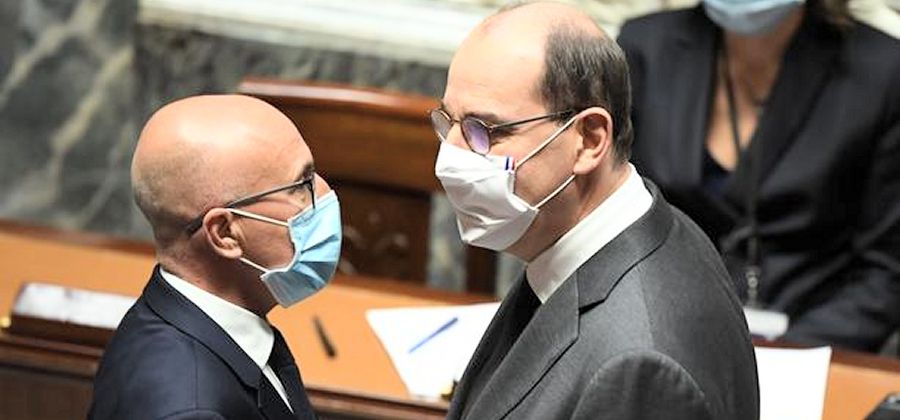 Le gouvernement a-t-il été à la hauteur face à la pandémie de Covid-19 ? Le gouvernement a-t-il été à la hauteur face à la pandémie de Covid-19 ?
Une commission d'enquête de l'Assemblée nationale qui devait en partie répondre à cette question brûlante a adopté un rapport accablant pour l'exécutif, mercredi 2 décembre 2020. Eric Ciotti, rapporteur LR de la mission parlementaire mise en place dès le début de la crise sanitaire, a présenté mercredi les conclusions de son rapport. Il y dénonce le manque d'anticipation des autorités sanitaires et un défaut de pilotage pendant la crise.
Une mission d'information
Créée dès le 17 mars, la mission d'information « sur l'impact, la gestion et les conséquences du Covid-19 » s'était vue attribuer, en mai dernier, les pouvoirs d'une commission d'enquête, et bénéficiait à ce titre d'un délai de six mois pour auditionner les acteurs de cette crise et parvenir à ses conclusions.
Les députés ont mené 53 auditions, pendant environ 130 heures. Ils ont entendu, entre autres, l'ex-Premier ministre Edouard Philippe, alors à Matignon au début de la crise sanitaire, l'ancienne ministre de la Santé Agnès Buzyn, qui a quitté le gouvernement en février pour tenter de devenir maire de Paris, ou encore le directeur général de la santé Jérôme Salomon.
La commission avait également entendu, le 24 juin 2020, pendant près de trois heures, le professeur Didier Raoult, qui est à la tête de l'IHU, à Marseille .Des membres du conseil scientifique ont aussi été auditionnés, le 18 juin 2020, comme Jean-François Delfraissy, le président de l'instance, ou encore l'épidémiologiste Arnaud Fontanet.
Après six mois d’auditions tous azimuts, la commission d’enquête parlementaire sur la Covid-19 conclut donc à un « pilotage défaillant de la crise ». Les conclusions, sévères pour le gouvernement et les autorités sanitaires, ont été présentées mercredi par le vice-président de la mission Damien Abad, patron des députés LR, et par le rapporteur LR Eric Ciotti.
« Pilotage défaillant »
Les députés LR ont pointé parmi leurs conclusions, une situation où la France était « mal préparée », souffrant d'un « pilotage défaillant », de « lourdeurs administratives » alliées à un « manque de décentralisation » des prises de décisions.
Damien Abad a dénoncé « un manque d'anticipation, une sous-estimation du risque pandémique dans la hiérarchie des menaces ces dernières années ».
« Nous constatons aussi dans ce rapport une baisse des stocks stratégiques avec bien sûr les masques, des messages contradictoires sur les masques qui ont considérablement affaibli les capacités de résilience sanitaire, et des manques dans la politique de tests », a-t-il énuméré.
Le rapport critique également la mise à l'écart de la médecine de ville dans cette gestion.
La France est au « quatrième rang des pays les plus touchés en Europe », a souligné Eric Ciotti. « Des pays ont mieux fait face que d'autres », a-t-il martelé : la moyenne dans l'Union européenne a été de 532 décès pour un million d'habitants, et la moyenne en France a atteint 727 décès.
Le rapport, qui conclut à l'absence d'un pilote unique dans cette crise, propose notamment la suppression des actuelles Agences régionales de santé (ARS) au profit d'agences départementales sous l'autorité des préfets. Mais il propose aussi - comble de l'ironie- de créer un ministère chargé de l’anticipation des crises !
Jugeant les conclusions des députés LR à charge, les députés LaREM et leurs alliés Modem, qui participaient à cette mission, ont décidé de s'abstenir lors de l'adoption du rapport.
|
|
|
|
| Jenny Chase pour DayNewsWorld |
 |
PRESIDENT VALERY GISCARD D'ESTAING
IS DEAD |
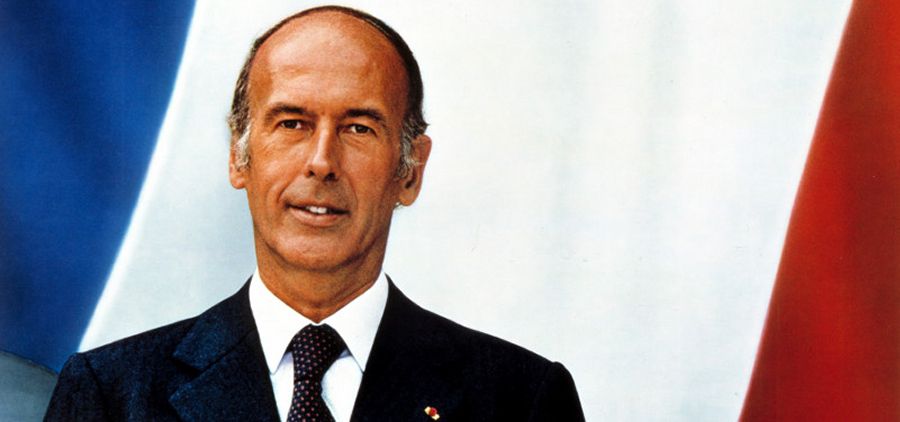 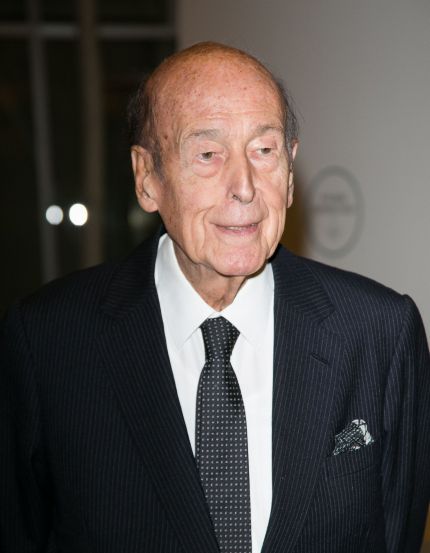
The Former President of the Republic Valéry Giscard d'Estaing died this Wednesday evening, December 2, 2020 at the age of 94, his entourage announced.
He passed away "surrounded by his family" on his property in Authon in Loir-et-Cher.
He died "as a result of the Covid" then said his family.
The former head of state was admitted to "the cardiology department" of the Tours hospital on November 17, 2020 for "heart failure", said his entourage.
In September, the former head of state had already been hospitalized at the Georges Pompidou hospital in Paris for "a slight infection in the lungs".
He had already been hospitalized several times at the Georges Pompidou hospital a few years ago, in cardiology for the placement of stents.
Youngest president of the Fifth Republic when he was elected in 1974, Valéry Giscard d'Estaing had made one of his last public appearances on September 30, 2019 during the funeral in Paris of another President of the Republic, Jacques Chirac , who was its prime minister from 1974 to 1976.
Embodiment of triumphant modernity
He wanted to be the incarnation of a triumphant modernity, resulting from the liberal center-right and Christian Democrat which built post-war Europe.
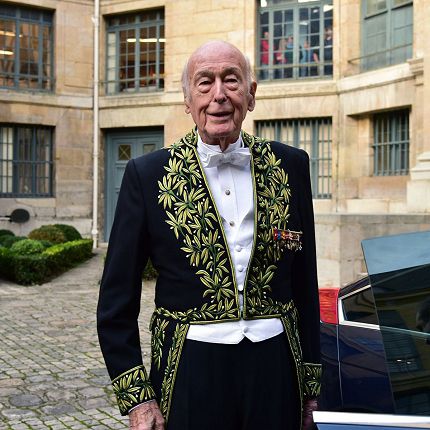 Polytechnician and Enarque, from a large bourgeois family, VGE entered the government in 1959, multiplying ministerial positions in the Economy and Finance in the 1960s and 1970s. Polytechnician and Enarque, from a large bourgeois family, VGE entered the government in 1959, multiplying ministerial positions in the Economy and Finance in the 1960s and 1970s.
A convinced European, in 2001 he took the helm of the Convention for Europe, responsible for drafting a European constitution, which would be rejected by referendum.
Brilliant economist, author of several books, he was elected in 2003 to the French Academy
After a political rise carried out at a sustained pace, the President of the Republic gave way to the man marked by the failure of 1981, finding in Europe another role to his measure.
Son of Edmond Giscard, Director of Finance of the French High Commission in the Rhineland, young Valéry immersed very early in the world of senior civil service.
An area that he embraced as quickly as after having participated in the liberation of Paris in 1944, he joined the ENA in 1949, from which he graduated sixth in his promotion.
It was then in Puy-de-Dôme, the department of his ancestors, that Valéry Giscard d'Estaing distinguished himself by becoming a member of parliament in 1956 at the age of 29.
The young man also made a place for himself at the top of the state, with General de Gaulle, who appointed him at the age of 32 Secretary of State for Finance.
He became Minister of Finance and Economic Affairs in 1962.
A role that he would resume from 1969 to 1974, under the shortened presidency of Georges Pompidou.
The death of the latter on April 2, 1974 requires the holding of an early election where Valéry Giscard d'Estaing will distinguish himself against François Mitterrand, to whom he will say the famous phrase during a televised debate: "You do not" have no monopoly of the heart ”.
On May 27, he became the third president of the Fifth Republic at only 48 years old.
A record of precocity that he held until the election in 2017 of Emmanuel Macron.
His presidency was marked by a serious oil shock, but also by strong measures, such as the decriminalization of abortion, led by the Minister of Health, Simone Veil.
Advocating an “advanced liberal society”, the new president notably voted to lower the majority from 21 to 18 years, the decriminalization of abortion, framing the voluntary termination of pregnancy (abortion), strongly defended by his Minister of Health, Simone Veil, the extension of the right of referral to the Constitutional Council and the end of the ORTF.
Its international policy was marked by the strengthening of European construction.
Thanks to the support of the German Federal Chancellor, Helmut Schmidt, he was also at the origin of the creation of the European Council in December 1974.
Valéry Giscard d'Estaing was only 48 years old when he acceded to the Élysée in 1974, beating François Mitterrand on the wire, and thus became, in a France which buried the Trente-Glorieuses and digested May-68, the first non-Gaullist to seize the Élysée.
However, on May 10, 1981, he failed to be re-elected against François Mitterrand.
A man with an extraordinary destiny who will have marked the Hexagon.
In 1981, he was still opposed to François Mitterrand, who succeeded him at the Elysée.
After a short retirement, Valéry Giscard d'Estaing arises in the 80s as the figure of the centrist opposition at the head of the UDF.
President of the Auvergne Regional Council between 1986 and 2004, Member of the European Parliament from 1989 to 1993 but also holder of a French Academy chair since 2004.
|
|
|
|
| Paul Emison for DayNewsWorld |
 |
GLOBAL SECURITY
CRISIS AT THE SUMMIT AROUND ARTICLE 24 |
The article 24 of the bill relating to global security, driven by aa LREM deputies led large demonstrations and was even the source of a political crisis between the executive and Parliament. before being de facto suspended.
The President lectured his Minister of the Interior on Monday morning at the Elysee Palace, furious at the fiasco of the Global Security bill "How did we come to suggest that we could limit the freedom of the press ? Thundered President Macron.
This text, tabled in early November, contains a total of 32 articles.
The 24th aims to better protect the police in the event of the dissemination of images concerning them, argue its promoters.
Conversely, his opponents see it as a “liberticidal” provision which would prevent police and gendarmes from filming during security interventions. To ease these tensions, the presidents of groups forming the majority in the National Assembly announced this Monday afternoon a “new writing” to come of article 24.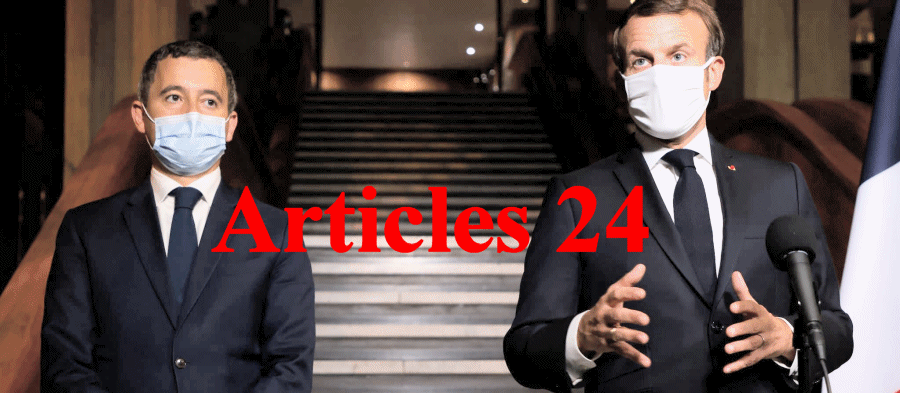
Article 24 consists of two paragraphs. In its initial version, the first of them provided as follows: "Is punished by one year of imprisonment and a fine of 45,000 euros for broadcasting, by whatever means and whatever the support, with the aim of harming his physical or mental integrity, the image of the face or any other element of identification of an agent of the national police or the national gendarmerie other than his identification number individual when acting in the context of a police operation. ".
The second paragraph stipulates that the law on freedom of the press "does not prevent the communication to the competent administrative and judicial authorities, within the framework of the procedures which they initiate, of images and elements of identification of an official of the national police or a soldier of the national gendarmerie ”.
Clearly, the goal is to better protect the police when they carry out their missions, as the Minister of the Interior Gerald Darmanin regularly insists. So a person who films an agent and disseminates the footage on social media with an insulting message or a call to violence, for example, could be prosecuted and then sentenced.
This article crystallized the tensions, while it planned to supervise the dissemination of the image of the police. '' include the new writing of article 24 in a different framework than that of the 1881 law on freedom of the press.
"It is clear that today the choice we made has left a disturbance to settle, if it is not even the conviction among the population that the right to inform, that the right to information, that the very exercise of the legitimate control of police actions was threatened, the balance that we sought on this article 24 was not unanimously perceived, of which act. », Concluded Christophe Castaner, the former Minister of the Interior, now president of the LREM Group in the National Assembly.
The method and timetable adopted by parliamentarians and the government provide that this work gives rise to all the necessary consultations. These will then be conducted under the aegis of the Law Commission, with a view to finalizing a new bill which will be submitted to the Prime Minister before the end of year recess.
Finally, it will be up to the Prime Minister to submit this proposal to the Council of State for opinion.
|
|
|
|
| Garett Skyport for DayNewsWorld |
 |
There are no translations available.
CORONAVIRUS LE PLAN DE VACCINATION EN FRANCE
|
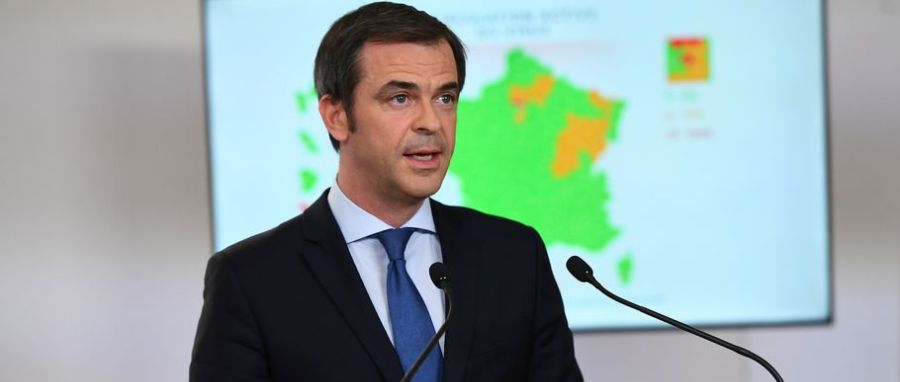 En France, la campagne de vaccination contre le Covid-19 doit démarrer à la fin de cette année.La Haute autorité de santé a détaillé ce lundi les 5 phases progressives de cette vaste campagne qui deviendra plus massive dans un deuxième temps. En France, la campagne de vaccination contre le Covid-19 doit démarrer à la fin de cette année.La Haute autorité de santé a détaillé ce lundi les 5 phases progressives de cette vaste campagne qui deviendra plus massive dans un deuxième temps.
Premier objectif de la Haute autorité de santé : « protéger en priorité les plus vulnérables et ceux qui s'en occupent ». Seront donc vaccinées en premier les personnes âgées résidant en Ehpad, soit 750 000 personnes visées.
Egalement concernés par cette première phase de vaccination, les salariés des Ehpad « qui présentent un risque de forme grave : les professionnels de plus de 65 ans et/ou avec comorbidité(s)) ». Ils représentent quant à eux 90 000 à 100 000 personnes.
La deuxième phase devrait concerner l'ensemble des personnes âgées, en commençant par « les personnes ayant plus de 75 ans, puis les personnes de 65 à 74 ans ayant une comorbidité, puis les autres personnes de 65-74 ans », ainsi que les « professionnels du secteur de la santé, du médico-social et du transport sanitaire, en priorisant les professionnels âgés de plus de 50 ans » ou présentant un facteur de risque de forme grave.
Dans une troisième phase, suivraient « l'ensemble des personnes de plus de 50 ans ou de moins de 50 ans mais à risque de forme grave du fait de leurs comorbidités » ainsi que « l'ensemble des professionnels du secteur de la santé et du médico-social » et les « professionnels issus des secteurs indispensables au fonctionnement du pays (sécurité ou éducation par exemple) ».
La HAS recommande d'élargir dans un quatrième temps aux « professionnels dont l'environnement de travail favorise une infection (contacts réguliers du public, milieu clos...)»et aux « personnes vulnérables ou précaires ayant un pronostic moins favorable en cas d'infection par la Covid-19 (résident en hôpital psychiatrique, sans domicile fixe, détenus...) ».Enfin, dans une cinquième et dernière phase, « sous réserve que les allocations de doses vaccinales auront été suffisantes pour vacciner chacune des populations prioritaires, la vaccination des personnes de plus de 18 ans et sans comorbidité pourrait alors être initiée ».
La vaccination contre la Covid 19 n'est pas obligatoire en France. Elle s’inscrit dans le cadre de la nouvelle stratégie du gouvernement « tester, alerter, protéger [et] soigner ». Seuls 41 % des Français ont l’intention de se faire vacciner, selon un sondage IFOP pour Le Journal du dimanche.
|
|
|
|
| Jaimie Potts pour DayNewsWorld |
 |
There are no translations available.
PROCES DE L'ATTAQUE DU THALYS PAS DE TEMOIGNAGE DE L'EX-MILITAIRE
AMERICAIN HOSPITALISE
|
 Hospitalisé mercredi 18 novembre 2020 après un malaise à son arrivée à Paris, Spencer Stone rentre aux États-Unis, indique son avocat ce dimanche 22 novembre. Il s’était jeté sur le tireur lors de l’attaque déjouée du Thalys, en 2015. Hospitalisé mercredi 18 novembre 2020 après un malaise à son arrivée à Paris, Spencer Stone rentre aux États-Unis, indique son avocat ce dimanche 22 novembre. Il s’était jeté sur le tireur lors de l’attaque déjouée du Thalys, en 2015.
L’ex-militaire américain q ne témoignera finalement pas au procès et rentre aux États-Unis après une brève hospitalisation à Paris, a-t-on appris ce dimanche 22 novembre auprès de son avocat.
Son témoignage, d’abord prévu jeudi soir avant d’être repoussé à lundi après-midi, n’aura donc pas lieu.
« Après une sérieuse alerte de santé, il n’est pas en état de témoigner et retourne aux Etats-Unis », a expliqué son avocat, Me Thibault de Montbrial.
Spencer Stone, ancien soldat de l’armée de l’air américaine, avait été hospitalisé à son arrivée à l’aéroport de Roissy, mercredi 18 novembre, après un malaise, avait indiqué jeudi Me Thibault de Montbrial.Le 21 août 2015, Spencer Stone et deux amis américains avec qui il voyageait avaient
maîtrisé, avec l’aide d’autres passagers, Ayoub El Khazzani, monté à bord du Thalys armé d’une kalachnikov et de près de trois cents munitions.
« On aurait dû mourir ce jour-là »
Les trois Américains avaient été célébrés en héros pour avoir évité un probable carnage à bord du train, quelques mois avant les attentats islamistes du 13-Novembre, et joué leur propre rôle dans un film de Clint Eastwood sorti en 2018, intitulé Le 15 h 17 pour Paris.
Ses amis d’enfance Anthony Sadler et Aleksander Skarlatos (lui aussi ex-militaire), ont témoigné respectivement jeudi et vendredi devant la cour qui juge Ayoub El Khazzani et ses trois coaccusés « On aurait dû mourir ce jour-là », a résumé devant la cour Aleksander Skarlatos, 28 ans, en décrivant comment ils étaient parvenus à maîtriser l’auteur de cette attaque, qui a « changé sa vie ». |
|
|
|
| Boby Dean pour DayNewsWorld |
 |
A MANDATORY ANTI-COVID -19 VACCINE ?
|
 Will vaccination against Covid-19 become compulsory ? Will vaccination against Covid-19 become compulsory ?
The issue has arisen in the political debate since the encouraging results on the anti-covid front. The whole question is whether this vaccine will be used once it becomes available.
"My fear is that the French are not getting enough vaccinations," Prime Minister Jean Castex warned in a recent interview with Le Monde. A concern justified by a recent Odoxa-Dentsu Consulting poll for Le Figaro and Franceinfo which revealed that one in two French people would refuse to submit to it.
Selon cette même étude, 60% des Français sont contre l’obligation de se faire vacciner. Or pour atteindre une immunité collective, 60 à 70% de la population doit se faire vacciner d’après plusieurs spécialistes.
Pour un vaccin obligatoire, comme le préconisent l’écologiste Yannick Jadot Gérard Larcher, président LR du Sénat ou Daniel Cohn-Bendit ?
Mais peut-on imposer une vaccination ?
Non. Ce serait tout d'abord porter atteinte aux libertés individuelles des Français.
Et de plus aujourd’hui il faut légiférer pour rendre le vaccin obligatoire. Comme en 2018, lorsque onze vaccins ont par exemple été imposés aux enfants après qu’un projet de loi défendu par l’ex-ministre de la Santé Agnès Buzyn a été approuvé par l’Assemblée nationale et par le Sénat. Pas un, mais plusieurs vaccins
Another limitation to the debate on compulsory vaccination as it has been posed in recent days is that there is in reality not one, but several candidate vaccines on the table. Three of these have recently been the subject of very enthusiastic announcements about their potential effectiveness :
The candidate vaccine from Pfizer and BioNTech, presented as effective “90%” according to intermediate results mentioned in a press release from the laboratory, Monday, November 9; the Russian research institute Gamaleya, which claims for its product a higher efficiency (92%);
Moderna's vaccine, which would be effective "at 94.5%", announced the American biotech, Monday, November 16.
All the candidate vaccines have their own characteristics, especially since they were developed using different procedures. Pfizer and Moderna's products are “messenger RNA” vaccines, which use pieces of modified genetic material while Gamaleya's is “viral vector”, using as a carrier another virus which is modified to adapt to the virus.
fight against the SARS-CoV-2 coronavirus.
It is therefore not a vaccine but vaccines, with different characteristics involving differentiated vaccination strategies.
Rather, there is a prioritization system among decision-makers for health personnel, people at risk and caregivers, as for the flu vaccine. A caution shared by the High Authority for Health which, for its part, recommends not to introduce a vaccine obligation, but on the contrary to "promote adhesion" and "respect a principle of transparency" in a sheet in terms of vaccination published on November 9, 2020. And to recommend, as for the executive, to "prioritize people at risk" in the campaign. The criteria remain to be defined.
Progressive vaccination for priority people, “with their consent” could then be considered.
Questions about the vaccination strategy
The spectacular figures on the supposed effectiveness of candidate vaccines also hide a more complex reality. These are results obtained in the weeks following the second injection of the vaccine, which does not give us, at this stage, any hindsight to know what immunity will be conferred, for example, six months later.
Likewise, it is not known today whether these vaccines only protect the person vaccinated against Covid-19 and its symptoms, thereby reducing the number of severe cases, or whether they also prevent them from transmitting the disease. Neither do we know how effective they are on different types of audiences.
Judith Mueller, epidemiologist attached to the Institut Pasteur questions “the effectiveness of a vaccine against Covid-19. “We do not know the effectiveness of the vaccine in the long term. For group immunity to be achieved with a compulsory vaccine, the immunity induced by the vaccine would have to prevent transmission and persist for some time, over 6 months. In theory, this would eliminate the pathogen from the population ”.
Moreover, for the epidemiologist, a vaccination campaign on a voluntary basis could be enough to protect part of the population and to relieve the burden on hospitals.
Question of the responsibility of the State or of the manufacturers
Finally, we must above all look at the real questions, such as the evaluation of the benefit-risk ratio. Many questions about the effectiveness of the vaccine and its possible side effects should be asked before considering a compulsory vaccination campaign. Who from the State or from the manufacturers will pay the compensation in the event of serious side effects?
The urgency is to reflect on the responsibility:
"Who in the state or the manufacturers will be held responsible for serious adverse reactions?"
Who will pay for the compensation ?
And what will be the role of insurers ? “, Asks Olivier Borraz, research director at CNRS and co-author of the book Covid-19: an organizational crisis.
Today, France has pre-ordered 90 million doses of anti-Covid vaccines.
Knowing that two doses would have to be injected into the French for the vaccine manufactured by Pfizer and BioNtech to be effective, the 90 million doses would only allow 45 million French people to be vaccinated, and not the entire population.
|
|
|
|
| Jenny Chase for DayNewsWorld |
 |
TOWARDS A PROGRESSIVE DECONFINEMENT
FROM DECEMBER 1, 2020 |
Emmanuel Macron is due to speak next week, ahead of December 1, 2020, the deadline for confinement, in order to discuss the stages of the coming months.
On the menu of the Defense Council Wednesday, November 18, 2020, an equation from which many questions arise: how to loosen the noose without taking the risk of relaunching the circulation of the virus and being forced into a third confinement?
It is a question of "providing an organization and a framework allowing the French to live as normally as possible, while keeping the epidemic under control", explained the spokesman of the government, Gabriel Attal, after the Council of Ministers.
We can therefore reasonably count on "a possible adaptation of the confinement from December 1, 2020".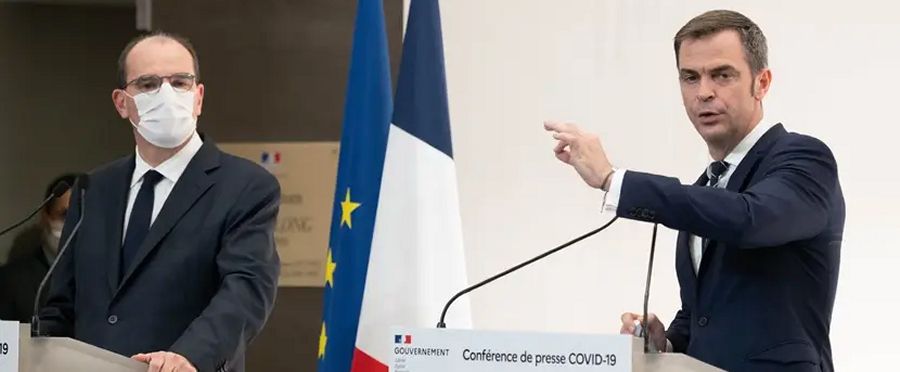
A progressive deconfinement
“We are not at all in deconfinement, we are even far from it. We are talking about a possible adaptation of the confinement from December 1 if the health situation allows us, "said Gabriel Attal, stressing the" extreme tension in hospitals "during the report of the Council of Ministers.
Sports halls should be able to accommodate minors from December 1 and worship could also resume on that date, with health restrictions. But the question of the reopening of so-called "non-essential" businesses has not yet been decided: for the moment they must be satisfied with online sales and by appointment, and are calling for a resumption from November 27, the day of the gigantic “Black Friday” commercial operation.
In a letter posted on Twitter on Wednesday, the Association of Mayors of France called on the Prime Minister to "gradually reopen" non-food convenience stores, such as bookstores, florists, hair salons and the clothing sector. , "Who are in a position to apply a reinforced strict sanitary protocol and to welcome the public again".
The situation is even more difficult for bars and restaurants. For them, the government spokesman, Gabriel Attal, only promised "prospects at the beginning of December", and they fear to remain closed until 2021. A disaster for these establishments but also for the sectors of supply like those of poultry and foie gras.
"A significant increase in depressive states"
Even if the figure of 2 million confirmed cases since March has been exceeded, "the epidemic is slowing down", confirmed Tuesday evening the director general of health, Jérôme Salomon. But "hospital pressure remains very strong", with "an unprecedented number of 33,500 Covid patients" on Monday, which decreased slightly to 33,170 on Tuesday.
Among these patients, more than 4,800 were in intensive care on Tuesday, for a total of patients in intensive care, all pathologies combined, over 8,000. The daily rate of hospital deaths does not weaken either, with 437 new deaths. recorded in twenty-four hours.
If he welcomed the slowdown in the epidemic, Mr. Salomon worried Tuesday evening about the consequences of the crisis for mental health in the French population. We thus observe "a significant increase in depressive states", which affected twice the number of people at the beginning of November compared to the end of September, from 10% to 21% within a representative sample of the population surveyed by Public Health France.
The increase is "even more marked among people in difficult financial situations, people with a history of psychological disorders, the inactive and young people," noted the director general of health. |
|
|
|
| Boby Dean for DayNewsWorld |
 |
THE ARMISTICE OF NOVEMBER 11
MAURICE GENEVOIX AT THE PANTHEON |
At the initiative of Emmanuel Macron, Maurice Genevoix joined the crypt of the Great Men and Great Women of the Panthéon this Wednesday, alongside the 560 combatant writers whose names are inscribed on the walls
With Maurice Genevoix, the Poilus enter the Panthéon; I wanted to testify, said Maurice Genevoix.
And distort as little as possible. Maurice Genevoix, whose literary vocation was born in the trenches of the Great War, immortalized the memory of the Poilus in his remarkable story "Those of 14".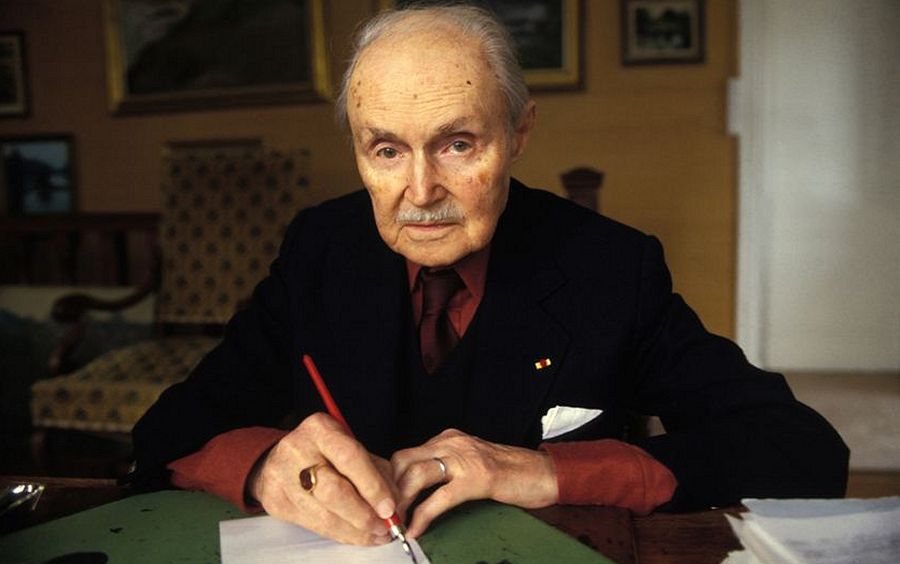
Goncourt Prize for his novel Raboliot (1925) and perpetual secretary of the French Academy for more than fifteen years (from 1958 to 1973), this survivor occupied a prominent place in French literary life of the twentieth century, celebrating "the 'invincible hope of men'.
The war writer
In August 1914, at the general mobilization, Maurice Genevoix who knew Germany well, was a student at the Ecole normale supérieure. Incorporated as a second lieutenant in the 106th infantry regiment, he took part in the battle of the Marne and the march on Verdun. Promoted lieutenant, he saw the daily life of the infantryman, the mud, the blood, the steel storms, all this "insane farce".
On April 25, 1915, he was seriously wounded on the Eparges coast, a village in the Meuse surmounted by a strategic hill which would swallow up 12,000 men in four months.
It is during his hospitalization, which will last seven months, that the young man of 24 years begins to write, from notes and drawings, because he also drew very well, recorded on the forehead. Anxious to bear witness to the horrors that he and his comrades experienced in the trenches, he becomes the voice of the Great War.
In 1916, he published "Sous Verdun", a story whose realism earned him wide censorship. Then "Nuits de guerre" (1917), "At the threshold of guitounes" (1918), "La mud" (1921) and "Les Eparges" (1923) united under the title "Those of 14" in 1949. "What we have done, it is more than one could ask of men, and we did it ", he writes in this masterful testimony, devoid of any subversive analysis. 70% invalid, it is reformed. His body will never forget the Meuse line of fire. And his nights, will testify his second wife Suzanne, will remain haunted.
"The first of our ecologists"
Born on November 29, 1890 in Decize (Nièvre), "a small town in the Loire Valley", Maurice Genevoix belongs to the Loire Valley. "I hold more than ever a great privilege to have spent all my childhood in a small French town before 1914", he explained, alluding to Châteauneuf-sur-Loire where he grew up. Then it was in Orléans that he followed his secondary school as a brilliant student, already eager to express himself. He lost his mother there at 12 years old.
After the war, he returned to Châteauneuf and celebrated there in his first novel, "Rémi des Rauches" (1922), the Loire, "mirror of moonlight and nights full of stars". He wrote dozens of hymns to the inhabitants of Sologne, to the animals of the forest, to the waters of the river and the ponds: "Raboliot", "The fishing box" (1926), "Rroû" (1931), "La lost forest "(1968).
Author of a series of bestiaries from 1968 to 1971, the flâneur of the Loire, who has since settled in the hamlet of La Vernelle, is also an excellent animal writer. On his death on September 8, 1980, President Giscard d'Estaing greeted "the first of our ecologists". The Academician
Elected in 1946 to the French Academy in the chair of Joseph de Pesquidoux, he became its perpetual secretary in 1958. "You marvelously humanized the function", Joseph Kessel will regret when Maurice Genevoix, eager for freedom to write, resigned in 1973.
We owe him the election of Paul Morand, Julien Green, Montherlant. An assiduous member of the Dictionary of the French Language Commission, the sparkling storyteller drives out the Anglicisms of scientific literature, participates in numerous television programs and revives a whole neglected vernacular vocabulary.
"When we were in daily contact with death from our youth, we understood with our viscera that life is a wonderful thing", explained Maurice Genevoix.
|
|
|
|
| Emily Jackson for DayNewsWorld |
 |
THE SPEECH BY JOE BIDEN THE GATHERER
|
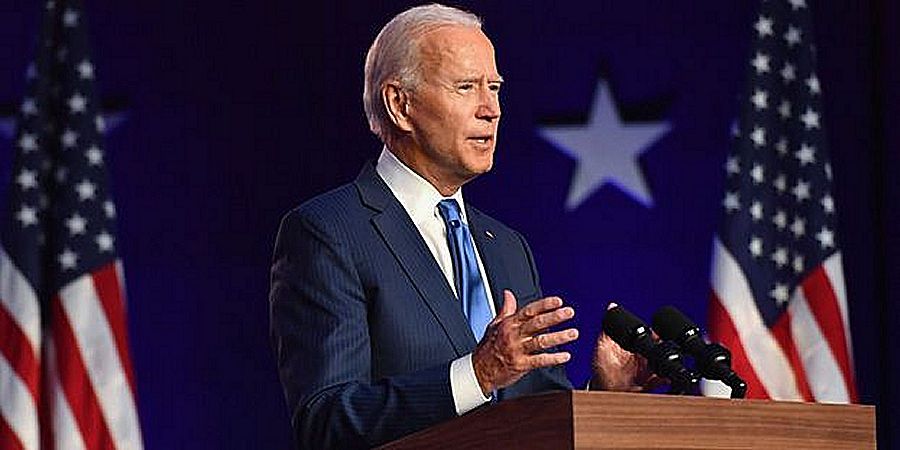
A few hours after the election results were announced, in front of a cheering crowd gathered for a drive-in, Joe Biden promised, Saturday, November 7, to be the president who will unify America, celebrating in his City of Wilmington "a convincing victory" against Donald Trump.
A unifying speech
Joe Biden on Saturday thanked American voters for giving him a "convincing victory" and pledged to be "a president who unites, not who divides."
“I promise to be a president who doesn't try to divide, but to unite. Who does not see Republican and Democratic states, but the United States. ", He declared Saturday evening." I will work as hard for those who did not vote for me, as for those who chose me ", he still promised. The former vice-president of Barack Obama said he understood the “disappointment” of the voters of Donald Trump, who refuses to admit his defeat. "Myself, I lost elections, but (...) it is time to put aside the abrasive rhetoric, to bring down the temperature", he declared. "I am proud to be a Democrat but I will govern like a president," he added.
"A new day for America"
"Let's see, let's talk," "let's give ourselves a chance," insisted Joe Biden, to the sound of enthusiastic horns. It is "time to heal the wounds" of the country and to put an end to "demonizations". Thanking the "broad and diverse coalition" which applied for it, he paid tribute to the African Americans, who played a central role in his victory. “They always support me, as I will support them. "I campaigned to restore the soul of America," he repeated.
The election of Joe Biden as President of the United States marks "a new day for America," also greeted Vice President-elect Kamala Harris in her victory speech. “You walked, you demonstrated for equality, for justice, for our country. And then you went to vote. And the message is clear: you have chosen decency and unity. You have chosen Joe Biden as the next President of the United States! "
“As our democracy itself hangs in the balance in this election, with the soul of America at stake in the eyes of the world, you marked a new day for America,” she said. asserted to Democratic supporters.
Tribute to Women with Kamala Harris
Kamala Harris, who is the first woman of color to hold the post of vice-president, has also assured that she would not be "the last". In February 2019, Democratic women in Congress had already dressed in white during Donald Trump's State of the Union address.
The Democratic Senator paid tribute to her mother, Shyamala Gopalan Harris, who arrived in the United States from India at the age of 19, and to all the "generations of women" who "paved the way" for her and fought to achieve equality.
Civil rights activist Shyamala Gopalan Harris was a breast cancer researcher. She passed away in 2009. "She couldn't have imagined that moment, but she deeply believed in an America where a moment like this was possible," Kamala Harris said Saturday night.
"I think of black, white, Asian, Latin women, I think of all those women who paved the road leading to this moment," said the vice-president-elect.
|
|
|
|
| Alyson Braxton for DayNewsWorld |
 |
TOWARDS A CONTAINMENT OF THE ONLY VULNERABLE PEOPLE IN FRANCE ?
|
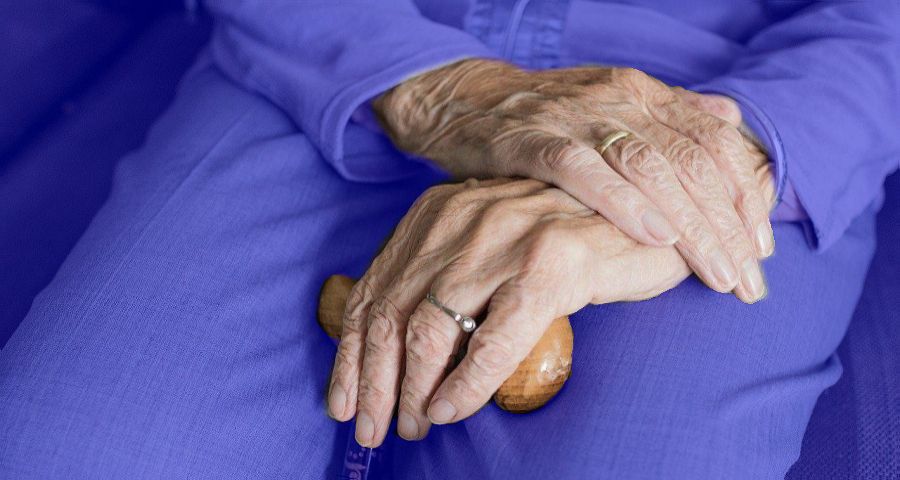
The executive is considering the scenario of confinement for the only vulnerable people.
Emmanuel Macron leaves the door open to this hypothesis, for the moment ruled out, yet long recommended by some doctors.During the speech on October 28 announcing a re-containment for the entire population without distinction, Emmanuel Macron the had ruled out. “A measure may be relevant but not sufficient. This route is not, as I speak to you, usable ”, he declared to the French.
The possibility seems however to return to the front of the stage, even if the President of the Republic had suggested that the measure would be unconstitutional, according to information from Le Monde.
The reason: the strong spread of the Covid-19 epidemic and the damage caused to seniors. Targeted isolation in order to preserve economic and social life as much as possible while awaiting the arrival of a vaccine is now a serious possibility
The re-containment put in place would not be effective enough.
According to the words of the Director General of Health Jérôme Salomon, in a confidential note to the Defense Council obtained by Europe 1, the re-containment would not be effective enough because of the schools left open, as well as the public services and the maintenance of visits to nursing homes.
France is "the country in Europe with the largest number of cases" of contamination since the start of the pandemic, said Jérôme Salomon. For the day of Thursday, November 5 alone, more than 58,000 new cases have been identified in the country.
But such a measure should also "respect the principle of the dignity of the human person - which is also a constitutional principle", explained public law professor Guillaume Drago, public law professor, at Le Figaro.
According to the Covid-19 scientific council which advises Emmanuel Macron, 22 million people could be considered vulnerable in France.
|
|
|
|
| Carl Delsey for DayNewsWorld |
 |
DESPITE THE NATIONAL ASSEMBLY
THE STATE OF HEALTH EMERGENCY UNTIL
FEBRUARY 16, 2021 | 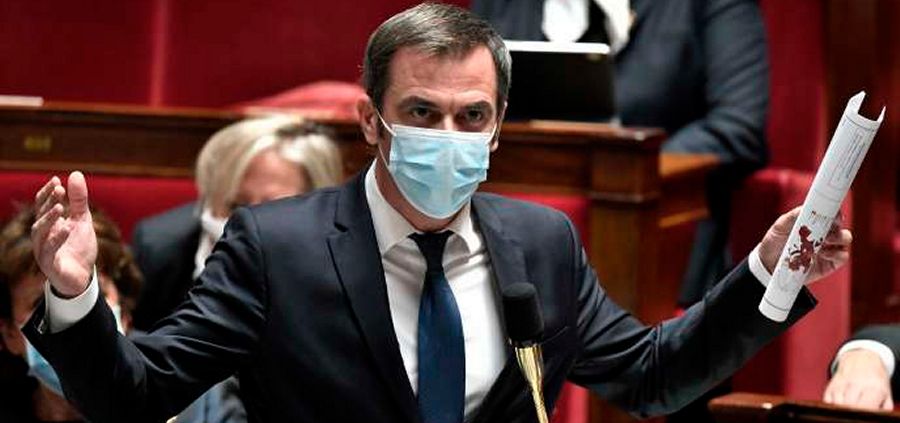
A while opposition MPs had adopted an amendment rejecting the extension of the health emergency until February 16, the text was again put to the vote on Wednesday. This time with enough members of the majority.The opposition had indeed succeeded in passing an amendment extending the state of health emergency until December 14, when the government wanted to extend this date to February 16.The opposition deputies simply wanted, by limiting the extension of the state of health emergency to December 14, to obtain a parliamentary debate every two months on the situation: What is done in any democracy.
To vote again an amendment or a bill, the possibility is certainly offered by article 101 of the regulations of the National Assembly. And Olivier Véran did not hesitate to seize the opportunity for a second deliberation. with the LREM, MoDem and Agir deputies present, this time, at the rendezvous to have the government text adopted. At the end of this second deliberation, the government also canceled an opposition amendment voted on Tuesday, relating to confinement and providing that the latter can only be renewed beyond November 30 after agreement by Parliament.
A new vote which did not fail to react opposition members of all sides, accusing the government of authoritarianism.
By revoting article 1 of the bill, the government came under criticism from the opposition. “All of this is consistent with who you are. You are building an authoritarian regime with a smile on your face, ”said the leader of the LFI deputies, Jean-Luc Mélenchon. "We are under the direction of the Defense Council which decides everything and we are called here to record your decisions," he added. "Vote and re-vote until it is the vote that the majority wants! The National Assembly is transformed into a simple registration chamber and the government grants itself full powers until February, lambasted MP LR Brigitte Kuster. The term authoritarianism also came out of the mouth of Jean-Christophe Lagarde (UDI),who denounced "an abnormal circumstance of deliberation where we cannot exercise our rights and our prerogatives"
"There is a drift which ends up characterizing a displaced authoritarianism", he concluded.
The bill on the extension of the state of health emergency continues its parliamentary shuttle. It must be examined this Thursday by the Senate, then return for final adoption after a final reading at the Palais-Bourbon on Saturday, November 7.
|
|
|
|
| Garett Skyport for DayNewsWorld |
 |
FRANCE ATTACK IN LYON
BULLETIN WOUND ORTHODOX PRIEST | 
An Orthodox priest was shot and wounded this Saturday, October 31, 2020 afternoon in the seventh arrondissement of Lyon.
The facts took place on rue Saint-Lazare, in the seventh district of the city, at the level of the Greek Orthodox Church.
The archpriest, of Greek nationality, was injured while closing his church.
The archpriest, 52 years old and of Greek nationality, was injured around 4 p.m. while closing his church.
A lone man approached him before shooting him twice with a rifle in the abdomen, police sources said.
The priest was medicalized on the spot.
The priest's vital prognosis is engaged, he was medicalized on site
A security perimeter was installed around the scene of the assault.
The police are calling to avoid the area.
A security perimeter was installed around the scene of the assault. The police are calling to avoid the area.
The investigations were entrusted to the judicial police of Lyon.
Prime Minister Jean Castex, traveling to Saint-Etienne du Rouvray announced that he is returning immediately to Paris where a crisis unit has been opened at the Ministry of the Interior.
A suspect was arrested rue Baraban, in the 3rd arrondissement. It could correspond to the report of the shooter .
A crisis unit has been opened at the Ministry of the Interior. |
|
|
|
| Boby Dean for DayNewsWorld |
 |
COVID-19 IN FRANCE UNLIMITED RECONFINATION
IN TIME OR
THE FAILURE OF A PANDEMIC MANAGEMENT ?
|
It is a feeling of failure that may have embraced the citizen in the face of the presidential announcement of new confinement for this month of November. The deconfinement did not go well: the government's objective is now to go from 40,000 cases of contamination per day to 5,000 within four weeks. An unachievable goal for some scientists. who believe that an extension of the confinement will already be necessary.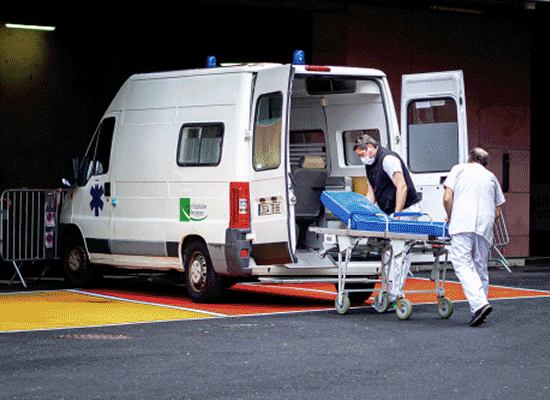
“As of December 1, 2020, we will not be at 5,000 contaminations per day, I can tell you straight away today. It will take more time, ”retorted the President of the Scientific Council Jean-François Delfraissy.
All the indicators of the epidemic continue to deteriorate in France. As of October 29, the curves of resuscitation, hospitalizations and hospital deaths are all on the rise. The health situation is more serious than during the first confinement in the spring.
The entire territory concerned
“We are in a situation which is less favorable than the one we had at the beginning of March. (...)
The contamination is on the whole of the territory, and not only in certain regions ”as in spring, warned Jean-François Delfraissy. With the exception of Guyana, all French departments have reached an alert threshold on the basis of the incidence rate for the population as a whole, the incidence rate for those over 65, the rate of occupation of resuscitation services.
“In France, the virus is doubled every 10 to 14 days. (...) We had 36% more cases yesterday [Wednesday October 28] than the previous Wednesday. », Clarified Olivier Véran.
A funny reconfinement
Containment does not allow transmissions to be completely stopped insofar as there is intrafamily contaminations.In addition, the health restrictions of this new confinement have been relaxed compared to the first. Nurseries, schools, colleges and high schools remain open, as do parks and gardens. Factories and public works companies will continue their activity, as will the public service counters. Containment therefore slows the spread of the virus but does not guarantee that it will stop.
As of October 29, there were 3,156 patients in intensive care, and a total of 21,183 hospitalizations, numbers up from previous weeks. According to a report submitted to the Defense Council on Tuesday, patients with Covid-19 could in this case occupy more than 40,000 hospital beds and more than 9,000 intensive care beds in mid-November. However, these figures are well above the normal capacities of hospitals, which were 5,080 before the pandemic, and which amounted to “5,800 beds last week, and 6,400 at the start of the week and were soon to reach 7 000 ”, Olivier Véran said Thursday.
However, many non-Covid patients will be added to patients with Covid-19 to be taken care of. Winter is favorable to contamination
Difficult to model the future results of the current containment on those obtained in the spring, because several parameters differ, in particular the temperatures. “In April, it's dry and hot. The autumn months, it is humid, heavy, cold. These are climatic situations favorable to the transmission of the virus, ”explained Olivier Véran.
From the end of July, the Scientific Council also called to prepare for an at the end of July, the Scientific Council also called to prepare for a second wave in the fall. A report published in July by Public Health France on the seasonality of the virus, underlines that "human coronaviruses other than Sars-CoV-2 have a seasonal behavior with attenuated transmission during the summer season".
Failure of testing policy
If the head of state said he had done everything to deal with the coronavirus after the 1st confinement, the testing policy was flawed. Emmanuel Macron certainly spoke about it during his speech but he did not go far enough Antigenic tests still awaited According to the professor of medicine Jérôme Marty, it would also be necessary to have saliva tests in companies and in places where there is a lot traffic. This would rule out people who are positive. ) we could also give self-tests so that people test themselves when they go to unstable places (weddings, family reunions, with friends, going to the cinema ...).
Zero health risk and our freedom?
"For want of having anticipated, rearmed our public policies, simplified our Byzantine administrative organizations, we are running after a virus which operates as a metaphor for the political loss of credit. The most serious thing is that in the light of this double obsession with zero health risk and unreasoned faith in technical mastery of this risk, we condition men and women socialized in a context of fundamental freedoms to avoid it. deprive them without their appearing to take offense.
This learning of docility, against a background of health imperative, should appeal to all those who think that a society, in order to be free too, must agree to an incompressible share of risk, otherwise it is threatened by entropy. », Asks Arnaud Benedetti in Altlantico.
|
|
|
|
| Carl Delsey for DayNewsWorld |
 |
FRANCE THE DRAMA !!
TERRORIST ACT THREE DEAD IN THE NICE ATTACK |
A knife attack took place in and around the Notre-Dame de l'Assomption basilica, in Nice, around 9 a.m., Thursday, October 29, 2020.
Three people died, a man and two women, according to police sources in Le Monde.
The first woman was slaughtered inside the Notre-Dame de l'Assomption basilica. The second, a man, was fatally stabbed.
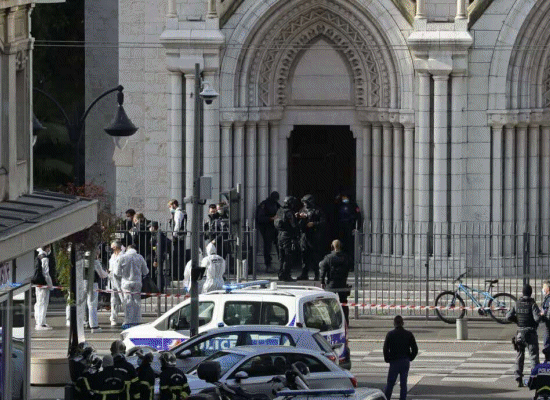
The third was killed in a bar in front of the basilica, where she had taken refuge.
The national police and the municipal police intervened and the alleged perpetrator was arrested.
Shot by the municipal police, he was in an absolute emergency and was taken to hospital.
The National Anti-Terrorism Prosecutor's Office (PNAT) has opened an investigation for “assassination” and “attempted assassination”. The alleged perpetrator repeatedly shouted “Allahu akbar” as he left the church.
The Elysee Palace announced that Emmanuel Macron would visit the site in the early afternoon. Gérald Darmanin, the Minister of the Interior, immediately set up a strengthening of the surveillance of places of worship and cemeteries.
The Prime Minister, Jean Castex, announced that the Vigipirate plan was going to the level of "emergency attack" throughout the territory.
The prosecutor insists on the fact that the investigation is continuing, in particular on the possible complicity from which he could benefit.
Jean-François Ricard calls on the media to take responsibility for disseminating the identity of the accused:
"Many points remain to be verified," he insists.
The prosecutor gave some information on the profile of the terrorist, who is still between life and death:
The suspect is in the hospital, where he was operated on. He is very seriously injured.
Its vital prognosis is engaged. He is not known to the intelligence services, nor for that matter to the police.
The assailant carried a document from the Italian Red Cross with him. It entered Europe through Italy via the island of Lampedusa at the end of September. He was also reportedly in Bari on October 9, 2020. |
|
|
|
| Carl Delsey for DayNewsWorld |
 |
TOWARDS A RECONFINATION
FOUR WEEKS IN FRANCE ?
|
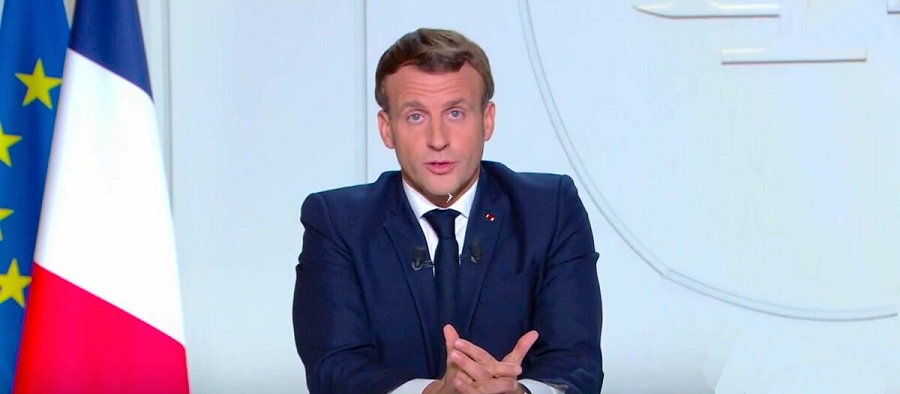
Reply Emmanuel Macron tonight at 20h. The President of the Republic, faced with the worsening of the Covid-19 epidemic, must announce new restrictions at 8 p.m., explained government spokesman Gabriel Attal after the Council of Ministers.
“We have implemented many measures to slow this second wave,” he said. “But like everywhere in Europe, it touches us very strongly and we must do everything so that it does not overwhelm us, so that it does not take tens of thousands of our compatriots. "
Half of the resuscitation beds in hospitals are now occupied by Covid-19 patients. A trend set to grow, since 33,000 new cases were identified in twenty-four hours. A total of 523 additional deaths were recorded on Tuesday; a record since April.
As a result, Emmanuel Macron is considering subjecting the whole country to confinement which is partly lightened compared to that which was imposed in the spring. the path of a four-week reconfinement is favored while keeping schools open and strengthening teleworking in companies.
Towards national reconfinement
The objective being to break the curve of the epidemic, currently exponential and dizzying, according to the executive, even departments that are still relatively untouched will be affected by the measure so as not to switch in their turn. The measure will therefore be national. The government plans to put an end to the principle of territoriality to protect the hospital capacities of the green areas and allow the transfer of patients, since it is no longer possible to transfer them to border countries where the epidemic is resuming.
Schools still open, telework reinforced
The re-containment will not however be done under the same conditions as in March, when there were no masks or tests.
Emmanuel Macron does not want to close either schools or colleges. Developing distance education is on the other hand envisaged in high school. At the university, this distance work is recorded: no more lectures in lecture halls, tutorials in half-groups every other week.
In companies, teleworking should be reinforced, the ministry preparing an evolution of the health protocol by the end of the week.
EU calls for health coordination
The EU will commit € 100 million for the purchase and distribution of rapid tests, which it recommends for use by member states to stem the new outbreak of Covid-19, European Commission President Ursula announced on Wednesday. von der Leyen, calling the pandemic situation “very serious”.
On the eve of a videoconference summit of the 27, the head of the European executive also called again to harmonize the rules for travelers across Europe.
She called for increased interoperability between national tracking applications and called on states to step up sharing of health data. |
|
|
|
| Boby Dean for DayNewsWorld |
 |
CURFEW IN FRANCE
|
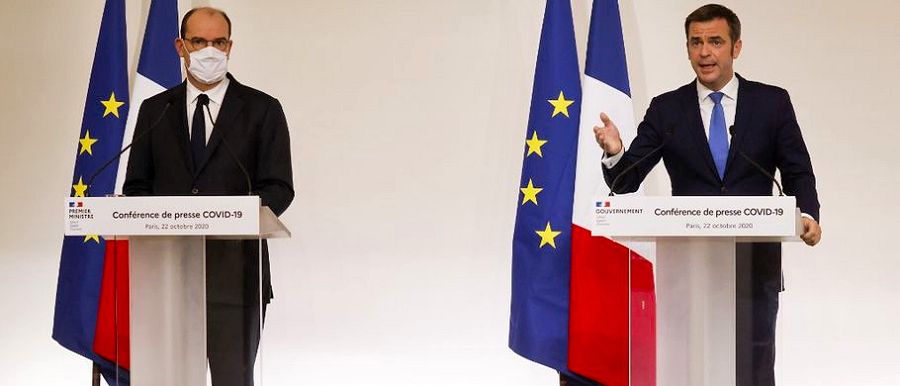
IT ALL STARTED LIKE THIS !
The head of state took this decision to slow the spread of the virus.
It will last at least four weeks
In addition to the Ile-de-France region, the cities of Grenoble, Lille, Lyon, Saint-Etienne, Aix-Marseille, Montpellier, Rouen and Toulouse are concerned.
The curfew established between 9 p.m. and 6 a.m. came into effect on Saturday, October 17, 2020 at 12 a.m.
It will last at least four weeks. "We will go to Parliament to extend it until December 1, 2020," added the President of the Republic.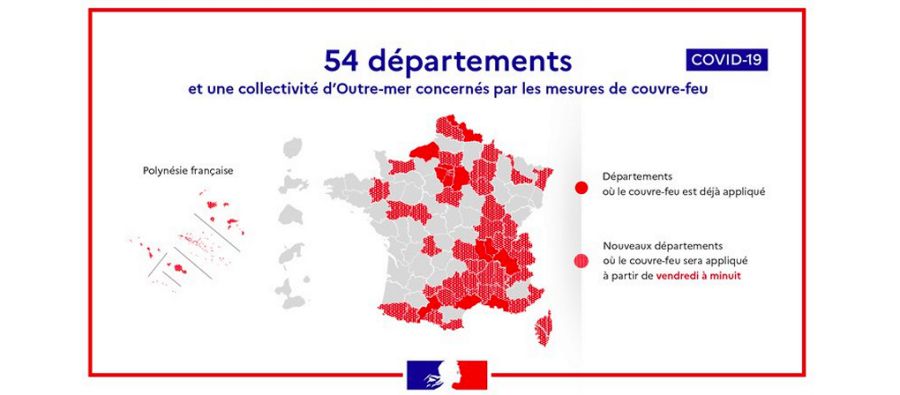
Today, Thursday 22 October 2020, Prime Minister Jean Castex completes the number of zones facing Covid-19
“Six weeks is the time that seems useful to us. "
Faced with the threat of Covid-19, this curfew measure seems to be a necessity !!
|
|
|
|
| Boby Dean for DayNewsWorld |
 |
DECAPITATION OF PROFESSOR SAMUEL PATY
AND A NOTE OF GENERAL INFORMATION |
Since Friday, 5 p.m., France has been plunged into fear. Two days later, investigators are still trying to find out how the young Chechen got there, and whether he acted alone.
A history-geographic teacher, Samuel Paty, was beheaded by an 18-year-old Chechen, a political refugee, for after showing caricatures of Muhammad during a course on freedom of expression in early October with his students of 4th.
He had become the target of violent criticism from a father of a student and an Islamist activist known to the police, Abdelhakim Sefrioui, who accused him in videos posted on social networks of having shown on October 5, 2020 the caricatures of Muhammad to his 4th year students, as part of a course on freedom of expression.
 An information note dated October 12, 2020 refers to an "incident in connection with the principles of secularism" within the college where Samuel Paty taught. An information note dated October 12, 2020 refers to an "incident in connection with the principles of secularism" within the college where Samuel Paty taught.
A note of information
This note retraces the facts day after day, with the start of tensions on October 5, the date of the professor's course on press freedom, with the cartoons of Muhammad.
The day after this session, the first parents of the students react and then, from the 7th, the establishment receives anonymous emails of protest.
But on the spot, "communication between management and families helped ease tensions," the note concludes.
Recent signs of radicalization
The student's father and the Islamist activist maintain that they did not know the young Chechen. However, the terrorist would have contacted them, via social networks. For now, it is not known whether the two men have responded to his requests.
In the Madeleine district in Evreux, Abdoullakh Anzorov's neighbors evoke a "discreet" young man, "immersed in religion" for three years. According to prosecutor Jean-François Ricard, the young man was known for damage to public property and violence in meetings, when he was still a minor.
Reports on the Pharos police platform
Also according to his relatives, the young had recently shown signs of radicalization and frequently referred to the videos relating to the teacher's course. The assailant had published calls for violence. At the end of July, this had earned him a report by an Internet user to the police platform Pharos, which had transmitted it to the Counterterrorism Coordination Unit (Uclat).
Abdoullakh Anzorov was also pinned for the publication of a first beheading photo at the end of August. According to Mediapart, several Pharos reports (the Platform for harmonization, analysis, cross-checking and orientation of reports) had thus been made in recent months. Still according to the investigation site, the examination of a few tweets, as well as of the subscribers and friends of the Twitter account made it possible to draw the portrait of a man very anchored in religion, "and probably in jihad".
So how did he get under the anti-terrorism radars?
When he arrived in front of the Bois-d'Aulne college on Friday, equipped with two knives and an Airsoft-type handgun, Abdouallakh Anzorov resorted to an unusual procedure for a terrorist, equipped with several hundred 'euros, he approached college students by offering them money in exchange for information .... The name of Samuel Paty has been added to the long list of victims of Islamist terrorism in France. “He was returning to his home, on foot, at the end of the afternoon when he left Conflans-Sainte-Honorine abruptly to find himself plunged into the Algeria of the GIA years, in the Syria of the Islamic State, in the Afghanistan of the Taliban, in Nigeria of Boko Haram, in Mali of the Signatories by blood. "Writes Barbara Lefebvre, teacher and essayist, author ofGeneration I have the right(ed. Albin Michel, 2018). “Because, by regular eclipses, this is where our France today falls. In a few moments, a life, lives, switch to another space-time: that of jihad. Fright seizes us, emotion invades us, tributes are organized. But so far, no serious fight against the cancer of political Islam has been waged. », Continues to analyze the essayist in an interview given to Figaro.
Urgent measures taken by the Minister of the Interior
The Minister of the Interior, Gerald Darmanin, announced that he would soon “propose”, in the Council of Ministers, the dissolution of several associations considered “separatist”. Among them is the very controversial “Collective against Islamophobia in France” (CCIF). According to him, the CCIF has indeed contributed to the “fatwa” launched by the parents of pupils against Samuel Paty, professor of history and geography. beheaded in the street by a terrorist on Friday. The elected representative of Tourcoing (North) then assured that his office would target other structures, including "BarakaCity", an Islamic NGO whose founder - very active on social networks - is close to the Salafist current.
During the Defense Council which was held at the Elysee Palace on Sunday 18 October, the Minister of the Interior, Gerald Darmanin, also announced that he wanted to expel "231 people in an irregular situation and followed for suspicion of radicalization".
Very late measures ... and homeopathic
"Fear will change sides, Islamists must not be able to sleep peacefully in our country," said Emmanuel Macron, while part of the political class urged him
" To go to war" .....!!!
|
|
|
|
| Garett Skyport for DayNewsWorld |
 |
A PROFESSOR BEED UP FOR SHOWING
MAHOMET'S CARTOONS |
Three weeks to the day after the terrorist attack by a Pakistani in front of the former Charlie Hebdo premises, which left two seriously injured, a teacher was beheaded with a knife. The national anti-terrorism prosecution has just taken up the facts.
Nine people in custody
Five new people were arrested overnight, bringing the total number of people in custody to nine, according to a judicial source on Saturday morning. Among the five new people are two parents of students from the college where the victim worked, as well as people from the assailant's non-family entourage.
The first four people, including a minor, placed in police custody come from the family entourage of the assailant, said a judicial source. They were arrested in Yvelines, Conflans-Sainte-Honorine and Chanteloup.
The Head of State spoke at the scene of the attack:
“One of our fellow citizens was assassinated because he taught, taught his students freedom of expression, to believe or not to believe. Our compatriot was the victim of a marked Islamist terrorist attack. (…) I want to say this evening to all the teachers in France that we are with them, that the whole nation will be there, by their side today and tomorrow, to protect them, defend them, allow them to do their job. , which is the most beautiful there is: to make free citizens. "
Facts
An armed individual was shot dead on Friday October 16, 2020 by the police in Éragny, in Val-d'Oise. He is suspected of having beheaded Samuel P., a history teacher, in the Yvelines.
The individual, suspected of having beheaded a man in the neighboring town of Conflans-Sainte-Honorine (Yvelines), was armed with a knife and threatened the Bac police who came to arrest him, according to Europe 1.
The decapitated body was found Friday afternoon by BAC police officers on the public road not far from his college in Bois d'Aulnee, in Conflans-Sainte-Honorine, according to "Le Parisien". The suspect, present at the scene, fled in the direction of Eragny, where he was caught by the police before being shot because he would have been threatening. The assailant of the professor shouted "Allahu Akbar" before being killed by the police.
The victim is said to be a history teacher who recently gave a course on freedom of expression to his students and showed them caricatures of Muhammad.
The attacker is said to be an 18-year-old man ; He has also been identified as a young man of 18 years of Chechen origin, born in Moscow, according to the judicial source.
A message claiming responsibility for the attack was posted on a Twitter account on Friday evening minutes after the tragedy. This account had, according to a judicial source in Le Monde, a kunya (Muslim nickname) of someone claiming to be Chechen. The published message was addressed to "Macron, the leader of the infidels", before continuing: "I executed one of your hell dogs, who dared to belittle Mohammad. "
The link is established between the perpetrator of the attack and a message of demands broadcast on Twitter with a photo of the victim, broadcast immediately after the attack, according to a source close to the investigation.
Neither the perpetrator nor his family were known to be radicalized.
The victim was a history teacher who was reported in early October by parents of students for showing cartoons of the Prophet Muhammad.
"He was assassinated because he had done his job, that is to say, building a critical mind," Sophie Venetitay, deputy secretary general of SNES-FSU, said on BFMTV. This history-geography professor was also in charge of “moral and civic education”. "In this context, he had given a course on freedom of expression with caricatures of Muhammad," she confirmed.
Interior Minister Gérald Darmanin, traveling to Morocco, decided to return to Paris immediately. He announced his return on Twitter, indicating that he was “informed live from the crisis unit”. From Rabat, he met with Prime Minister Jean Castex and President Emmanuel Macron.
The magistrates of the national anti-terrorism prosecution, including the prosecutor Jean-François Ricard, went to the scene and took up the investigation opened for "murder in connection with a terrorist enterprise and criminal terrorist association".
The investigations were entrusted to the anti-terrorism sub-directorate (Sdat) and the General Directorate of Internal Security (DGSI).
The fifth Islamist terrorist attack since January 2020
The beheading of the history and geography professor in Conflans-Sainte-Honorine is the fifth terrorist attack since the start of the year. The first took place on January 3 in Villejuif. The second, on April 4 in Romans-sur-Isère. The third, on April 27 in Colombes. Finally, the last dates back to September 25 in front of the former premises of the satirical newspaper Charlie Hebdo. On the occasion of this assault, the Ministry of the Interior recalled that 32 attacks have been foiled in France since 2017.
"One of our fellow citizens was assassinated today because he was teaching": said Emmanuel Macron this October 16 in Conflans-Sainte-Honorine where a college teacher was beheaded in the middle of the street. In a course on freedom of expression, he had shown his students a caricature of Muhammad, a prophet of Islam.
"It is the Republic which is under attack", declared the Minister of Education Jean-Michel Blanquer with "the despicable murder of one of his servants". “Our unity and our firmness are the only answers to the monstrosity of Islamist terrorism. We will face it, ”he added.
Those days leading up to the beheading:
October 5: the teacher teaches a course on freedom of expression. It is in this context that he intends to show caricatures of Muhammad to his 4th year students.
October 8: the father of a student at the establishment decides to file a complaint against the teacher. A report also reaches Rodrigo Arenas, co-president of the FCPE, the first association of parents of pupils, reporting "an extremely angry father". An investigation is then opened.
October 12: the teacher is heard and the police reveal to him the content of the father's complaint. The teacher discovers, amazed, that this father is talking about a student who is not part of his class.
He recounts the course he did, which focused on the cartoons of Muhammad. He says he suggested that students who did not want to attend this class leave it. The design showed the prophet crouching with a star drawn on his buttocks and the inscription "a star is born".
In view of the accusations to which he is the subject, the teacher decides in turn to file a complaint, not for violence or threats, but for defamation and slanderous denunciation.
Four days later, he was found beheaded.
|
|
|
|
| Carl Delsey for DayNewsWorld |
 |
JEAN CASTEX DETAILED MEASURES TAKEN
WITH THE CURFEW |
The government is once again strengthening measures to fight the Covid-19 epidemic. The day after the shocking announcement of night curfews in Île-de-France and in eight metropolises from Saturday, the government to the text explanation this Thursday with a press conference by Jean Castex.
The Prime Minister therefore clarified certain points . "All private parties, such as weddings or student parties, which are held in halls, in multipurpose rooms or any other establishment open to the public will be prohibited3 throughout the country, " Jean Castex said on Thursday. .
In addition, "all restaurants in France will apply the health protocol which was recently reinforced and provides in particular for the limitation to six of the number of customers per table" as well as "the registration of the names of customers to facilitate contact tracing". Until now, these measures intended to halt the progression of the Covid-19 epidemic have only applied in areas with a maximum alert level.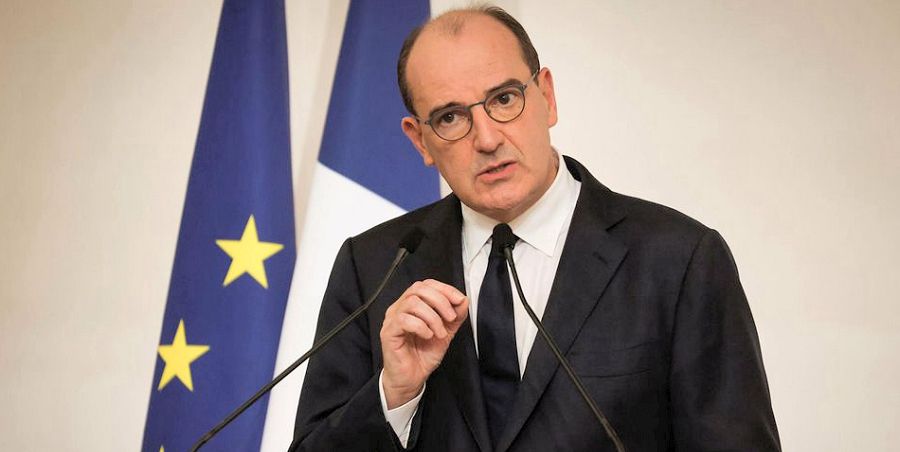
Prime Minister Jean Castex nevertheless specified that some establishments - including restaurants that sell take-out - could remain open after 9 p.m. “These are health and medico-social establishments, the most precarious reception structures, hotels, restaurants providing home delivery and public establishments providing service in the evening and at night”.
Public transport not directly affected by the curfew
Public transport is not directly affected by the curfew. "There will be no transport restrictions," Emmanuel Macron said on Wednesday evening, because "there are people who will continue to work at night, or in the evening, or in the early morning". In addition, "we have not decided to reduce travel between regions," said the President of the Republic.
Among the reasons for waiving the curfew, the Prime Minister mentioned the possibility of taking a train or a plane after 9 p.m. or before 6 a.m., provided that it can be justified with a ticket.
Jean Castex was accompanied by Olivier Véran, Gérald Darmanin, Bruno Le Maire and Elisabeth Borne. Its ministers of health, the interior, the economy and labor specified points specific to their area of expertise.
Telework encouraged
Teleworking remains encouraged and not compulsory for companies. In his televised intervention Tuesday evening, Emmanuel Macron recommended “two to three days of teleworking per week” in companies where it is possible, to “reduce collective pressure a little”. "It must also be negotiated in the branches and as closely as possible in the company", insisted the Head of State. Teleworking remains encouraged and not compulsory for companies. In his televised intervention Tuesday evening, Emmanuel Macron recommended “two to three days of teleworking per week” in companies where it is possible, to “reduce collective pressure a little”. "It must also be negotiated in the branches and as closely as possible in the company", insisted the Head of State.return travel certificate
Exceptional travel certificate
Gérald Darmanin told him that a derogatory travel certificate, on the model of that in force during confinement, will be necessary to travel between 9 p.m. and 6 a.m. from Saturday where the curfew will apply.
As during confinement, the certificate can, on the website of the Ministry of the Interior, be downloaded on his phone and stored on it.
Any offender will be liable to a fine of 135 euros then, in the event of a double recidivism (three frauds in total), to "6 months of imprisonment and a fine of 3,750 euros", he recalled.
In addition, 12,000 police officers, gendarmes, and if necessary municipal police officers will be "every night between 9 p.m. and 6 a.m. specially responsible for checking the bans" in the areas affected by the curfew, namely the entire city. Ile-de-France and the metropolitan areas of Lille, Grenoble, Lyon, Aix-Marseille, Montpellier, Rouen, Toulouse and Saint-Etienne. Those who have to visit a loved one in a situation of dependency or take their pet for a walk may, among other reasons, circulate during the curfew with this certificate.
It "is valid for one hour when the trips have no connection with work," said the Minister of the Interior.
Extensive solidarity funds
The Minister of the Economy Bruno Le Maire, for his part, announced that all companies with less than 50 employees located in curfew zones will be eligible for the solidarity fund up to 1,500 euros if their loss of turnover. business reaches 50% for as long as the curfew continues.
For hotels, cafes and restaurants, the solidarity fund of up to 10,000 euros can be received by companies with a loss of turnover of at least 50%, and no longer 70%, added the minister.
Bruno Le Maire also indicated that the state guaranteed loan scheme (PGE) is extended from December 31, 2020 until June 30, 2021.
On the other hand, the minister asked "the French banking federation to examine a postponement of the repayment of these loans for an additional year for companies which really need them".
|
|
|
|
| Boby Dean for DayNewsWorld |
 |
CURFEW IN FRANCE
TO FIGHT AGAINST CORONAVIRUS ?
|
Emmanuel Macron, who will speak on Wednesday early evening on television, is chairing a new health defense council on Tuesday, October 13, 2020 to study ways to stem a second epidemic wave of coronavirus. of the Covid-19 crisis poorly managed from the start ...
As in the other European countries, France is confronted this autumn with a clear deterioration of health indicators. The threshold of 1,500 patients treated in intensive care for a Covid-19 infection was crossed again on Monday for the first time since May 27.
Localized re-containments under study, perhaps curfews?
Referring to a "very difficult" situation faced with the "reality of a second epidemic wave", the Prime Minister, Jean Castex, did not rule out Monday ordering localized reconfigurations in the country where the health crisis will last according to him several more months.
"General reconfinement must be avoided by all means," said the head of government on France Info, referring to the "absolutely dramatic" consequences of such a drastic measure. "Nothing should be excluded when we see the situation in our hospitals," he replied, however, when asked about possible local reconfigurations.
Several media also evoke the possibility of curfews in the most affected territories, a measure that specialists are calling for, like the president of the National Academy of Medicine, the former Minister of Health Jean- François Mattéi.
“Everything is on the table” according to Marlène Schiappa
Asked about LCI on the possibility of a curfew in Ile-de-France, Marlène Schiappa, Minister Delegate in charge of Citizenship, replied that everything was "possible". "Everything is on the table and nothing can be excluded since the virus is evolving", she added, stressing that in this unprecedented health crisis, there were "no good solutions" and that it was necessary constantly making “new tough choices”.
Nine metropolises and Guadeloupe on high alert
Nine metropolises (Aix-Marseille, Paris, Lyon, Grenoble, Saint-Etienne, Lille, Toulouse and Montpellier) as well as Guadeloupe are now in the maximum alert zone, with the closing of bars and strict protocol in restaurants.
More and more health professionals are raising concerns about the health situation in France, in particular the saturation of certain intensive care services. In Ile-de-France, according to the director of the Regional Health Agency (ARS), Aurélien Rousseau, the occupancy rate of intensive care beds by Covid patients is now 42% and the incidence of the virus in the population general is very high
The latest: the director general of the AP-HP, Martin Hirsch, who warns this Tuesday morning in Le Parisien on a possible occupation of 90% of resuscitation beds in Île-de-France by Covid patients from here the .
An intermediate measure: the curfew
Among the tools made available to the executive is, among others, the curfew, while the government is particularly concerned about what happens in the evening in the private sphere, whether it is meetings between friends or meetings in the family sphere. In addition, three curfew scenarios would be considered at the top of the State, particularly in the Paris region. The first at 8 p.m., the second at 10 p.m. and the last at 11 p.m. In Guyana, the curfew is still in place, from midnight to 5 a.m. This measure would indirectly prevent private gatherings, since the executive cannot legislate on private places.
The health authorities have been putting forward this hypothesis of a curfew for several weeks. Also internationally, several curfews have been implemented. In August, the city of Melbourne in Australia decided to confine its citizens between 8 p.m. and 5 a.m. Similar measures have just been put in place in Antwerp and Berlin.
Young people in the sights
Thus, if this measure is indeed applied, it would target in particular the youngest classes, more and more affected by the disease. Aurélien Rousseau, director general of ARS Île-de-France, stressed that the incidence rate in Paris for 20-29 year olds exceeds 800 cases per 100,000 individuals. The alert threshold is set at 50 cases per 100,000.
But the establishment of a curfew, a symbolically strong measure, remains delicate and can be badly perceived by citizens who do not feel they are in a period of war !!
|
|
|
|
| Jaimie Potts for DayNewsWorld |
 |
FACING THE REPEATED ATTACKS OF THE FRENCH GOVERNMENT'S LAXISM COMMISSIONS
|
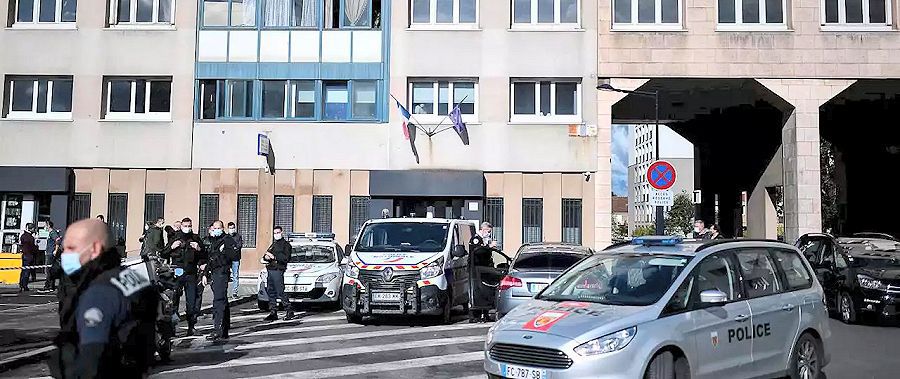
Sunday, October 11, 2020, dozens of young people attacked a police station in Champigny-sur-Marne in Val-d'Oise. He had already been in April.
Neighborhoods in "republican reconquest" Champigny-sur-Marne: two attacks in a few months
This time around forty young people tried to enter the police station, armed with iron bars. The assailants, however, were unable to pass through the armored doors that protected the police station.
It all started with a traffic accident. The police are accused of being responsible for it and it is in the district of Bois-l'Abbé (a district classified as “republican reconquest”, very marked by drug trafficking) that young people have gathered to attack. at the police station.
In recent months, several police stations have been attacked in Île-de-France, each time by means of "mortars", fireworks of large caliber, prohibited for sale to individuals in France.
Pyrotechnic means
The use of these pyrotechnic means is not new, "we've seen this for about twenty years", explains Thierry Clair, deputy general secretary of the UNSA Police union. “But previously, we only saw them around July 14. Which is no longer the case today, ”he adds.
One more law as a response from Darmanin
On Sunday, the Minister of the Interior, Gérald Darmanin, announced his intention to ban the Internet sale of fireworks mortars to the general public. Because launched horizontally, these pyrotechnic devices with a very simple composition - a cardboard or metal tube and a low explosive charge - can reach a speed of 100 km / h and turn into real weapons, causing damage as in Champigny , but also injuries. Last May, two police officers were burned in Argenteuil, in the Val d 'Oise, after being the target of fireworks mortars. A success which is explained, according to him, by the legal vacuum which surrounds the mortars of fireworks. "Today, the young people know that even if they are challenged with mortars of fireworks, they do not fear much. - something ”, according to a trade unionist.
Legislation easily circumvented
Since 2017, the sale of these machines is however reserved for professionals. A ban easily circumvented on the Internet where European sites offer these fireworks for around fifteen euros. At the end of 2019, Christophe Castaner had already announced, after the fire of an associative circus in Chanteloup-les-Vignes, to strengthen the legislation in this area, without however this being followed up. During confinement, the resurgence of ambushes against the police after a motorcycle accident in Villeneuve-la-Garenne, forced the Paris police headquarters to temporarily ban the purchase and possession of mortars from fireworks in Paris but also in the inner suburbs. A similar decree was taken in Essonne and Val-d'Oise.
Territory war
Beyond the legal vacuum, the “visual” side of these devices promotes the virality of certain videos posted on social networks. "The delinquents know very well that these mortar attacks, especially at night, are very spectacular and will be repeated in a loop on social networks and on news channels, specifies Christophe Soullez, director of the National delinquency observatory. and criminal responses. In turf war, the communication aspect is very important. ”
At least nine police station attacks since the start of the year
Champigny-sur-Marne this weekend is far from being an isolated case. Since the beginning of the year, the police stations of Ulis, Corbeil-Essonnes or Plaisir have also been targeted by these fireworks mortars.
In Argenteuil, on the night of May 18 to 19, the Argenteuil police station was attacked for hours by about fifty individuals. The previous Sunday, an 18-year-old town man had been killed on a scooter while trying to escape the police. Quickly, young people in the city blamed the police, before attacking the police station directly. The attackers fired with mortars and threw molotov cocktails at the police station. Several trash and car fires were also set off to surround the police. Four policemen were injured.
At Les Mureaux, at Fontenay-le-Fleury, aPlaisir is no less than three attacks in three days in July! Between July 6 and 9, every night, police stations in Yvelines were attacked at Les Mureaux, Fontenay-le-Fleury, Plaisir. Each time, several dozen people attacked the officials with mortar fire and stone throwing. In the surrounding municipalities, in Mantes-la-Jolie, or Guyencourt, several police patrols had also been attacked at the same time.
Trappes experiences a resurgence of violence on leaving confinement
May 16, 11:15 p.m., the Trappes police station in Yvelines was attacked by fireworks. The ten people behind the shootings were spread out on either side of the gate, they then fled, pursued by the police from the Anti-Crime Brigade. Confronted with the gang of young people behind the attack, the police used de-encircling grenades to disperse the group, without any injuries being reported.
Boissy-Saint-Léger is an acid attack that starts on Monday February 3, around 9:20 p.m. : three bottles of acid were thrown in the courtyard of the Boissy-Saint-Léger police station in Val-de-Marne. One of these bottles exploded, poisoning four police officers.
Faced with these inadmissible attacks against depositaries of public authority, Gérald Darmanin is content to bulge his chest evoking the making of a new law. Faced with the seriousness of the facts, the government's laxity. To the rioters to feel unpunished !!! |
|
|
|
| Garett Skyport for DayNewsWorld |
 |
CORONAVIRUS AGAIN THREATS OF RECONFINATION AND AFTER ?
CALAMITE GOVERNMENTAL MANAGEMENT |
The executive will examine the epidemiological data on Wednesday, October 14, 2020, during the weekly defense council, to see whether there is reason to take additional measures after the screw turns given in several metropolises.
“Nothing should be excluded when we see the situation in our hospitals. »An admission of incompetence and powerlessness
“At the national level, new hospitalizations, admissions in intensive care for Covid-19 and the numbers of deaths currently remain at moderate levels compared to the situation observed in March-April 2020, but the increase in the circulation of the virus, in particular among the oldest people, raises fears of the continuation of hospitalizations and deaths in the weeks to come ”, notes the health agency Public Health France in its weekly bulletin, which relates to the week of September 28 to October 4, 2020 .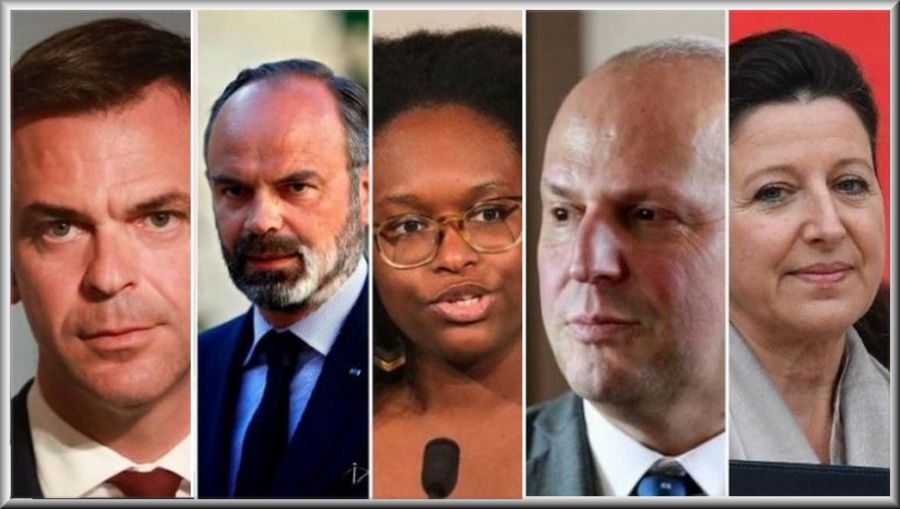
"The overall trend of monitoring indicators for the SARS-CoV-2 epidemic remains on the increase": the number of new confirmed cases is up 7% to 77,980 throughout France, the test positivity rate also increased, to 9.1% against 7.7%, and the incidence rate (new cases over seven days) in metropolitan France was also increasing with 116 cases per 100,000 inhabitants (108 the previous week). But the health agency warns that the number of new cases and the incidence rate can be underestimated, "because of the still existing tensions on the diagnostic capacities (of the laboratories) and the deadlines for reporting results and therefore the data consolidation "
Possible reconfigurations
Faced with worsening indicators, the government has decided to place several new metropolises in high alert zones, synonymous with restrictions such as the closure of bars and stricter reception conditions in restaurants.
After Aix-Marseille and Paris, this has been the case since Saturday for Lyon, Lille, Grenoble and Saint-Etienne. The cities of Toulouse and Montpellier also switch on Monday, October 12, 2220.
In an attempt to stem the second epidemic wave due to the new coronavirus, the Prime Minister, Jean Castex, did not rule out, Monday, October 12, ordering localized reconfigurations in France, while insisting that a "General re-containment must be by all means avoided".
"A graduated and territorialized response"
"We are in a second strong wave", noted Mr. Castex, who "calls extremely clearly that we all mobilize to face this second wave (...) There can no longer be any relaxation ". He considered that the French had, in particular during the summer holidays, "considered a little too quickly that this virus had disappeared", while he himself did not "cease [have] all summer to call for vigilance" .
He thus ruled that "something is wrong" when this weekend again in Paris and in the inner suburbs, 95 of the 500 checks carried out by the police gave rise to "findings of offenses in bars and restaurants ”. The government's strategy is "clear" - "a graduated and territorialized response" -, as have been "the instructions for several months", he insisted, calling for "respect".
But the French can also, for their part, judge that the management of the epidemic by the government is calamitous when the latter threatens a containment because of the saturation of hospitals and the insufficiency of tests !!!
|
|
|
|
| Garett Skyport for DayNewsWorld |
 |
CHANGE OF DOCTRINE OF THE HIGH AUTHORITY OF HEALTH WITH THE EXTENSION OF COVID TESTS
|
We had to face the facts, the access time to PCR tests and their results was becoming unmanageable for the management of the epidemic in France - the HAS wants to develop the use of antigenic tests. The High Authority of Health (HAS) held Friday to refine its doctrine on the use of these tests, fifteen days after a first positioning.
These tests, which no longer detect the genome but the proteins of the virus from a nasopharyngeal swab, were previously reserved only for symptomatic people - because they are less sensitive than PCR tests.
Symptomatic people at risk
But now the HAS is extending their use to screening in clusters such as universities or slaughterhouses, where the density of people possibly infected is greater than in the general population.
Faced with the congestion of PCR testing circuits, HAS is indeed trying to broaden its criteria to substitute for PCR tests whenever possible, and it is also trying to reduce the use of PCR tests whenever possible. it is not essential. Until now, rapid antigenic tests performed on symptomatic people had to be confirmed by a laboratory PCR test. From now on, only symptomatic people over 65 or presenting an aggravated risk factor (chronic diseases, immunocompromised patients or undergoing chemotherapy, etc.) and tested negative, will continue to be required to carry out this confirmation. The others are now exempt.
Used on an experimental basis in Ile-de-France
Antigenic tests have already been used since Monday on an experimental basis in Ile-de-France, for a screening campaign among the staff of 80 nursing homes. The favorable opinion of the High Authority opens the way for reimbursement and wide use of this new tool, once the government has published the decree authorizing it. It should be "in October", according to HAS.
A large-scale test in the Grand Est
The Grand Est, severely hit by the virus in the spring, was appointed to immediately carry out a campaign of 400,000 tests targeting mainly students before their departure for the All Saints holidays on October 24, announced the Prefect of the Region, Josiane Chevalier. “This is an experiment,” she said.
Public health lens : Detect positive cases in minutes to better control the epidemic.
“It is true that rapid antigenic tests are less sensitive than PCR tests, recognizes Dominique Le Guludec, president of the HAS, but people who escape detection would have a lower viral load and would therefore also be less contaminating. In addition, in the absence of an aggravated risk, they also have very little chance of developing a serious form of the disease ”. On condition that the tests meet the minimum efficacy criteria (with a sensitivity greater than 80% and specificity greater than 99%) and are carried out on time, that is to say before the fifth day after the appearance of the symptoms.
Health authorities must finally establish the list of tests that are sufficiently efficient to be used.
|
|
|
|
| Abby Shelcore for DayNewsWorld |
 |
There are no translations available.
PRESIDENTIELLE 2020 LE GENERAL PIERRE DE VILLIERS PUBLIE REPARER LA FRANCE
|
A moins de deux ans de la présidentielle, le général Pierre de Villiers s'apprête à publier son troisième ouvrage, « L'équilibre est un courage », sous-titré « Réparer la France », qui pose à nouveau la question de ses intentions secrètes sur son engagement politique.
Comme en 2017 lorsqu’il a publié « Servir » en pleine tempête sociale des Gilets jaunes, comme en 2018, quand « Qu’est-ce qu’un chef ? » s’arrachait en librairie sur fond de polémique à propos de la réforme des retraites, la sortie du troisième ouvrage du général Pierre de Villiers, le 14 octobre prochain en pleine crise sanitaire du coronavirus, pose une fois encore la question des intentions secrètes du militaire préféré des Français.
Celui qui a démissionné de ses fonctions de chef d’état-major en juillet 2017 en signe de désaccord avec le nouvel exécutif veut-il régler ses comptes avec Emmanuel Macron en présentant sa candidature à la présidentielle de 2022 ? Ou ne cherche-t-il qu’à consolider sa carrière fulgurante d’auteur à succès ?
Le « en même temps » version Pierre de Villiersvec « L’équilibre est un courage » et son sous-titre énigmatique « Réparer la France », Pierre de Villiers cultive encore l’ambiguïté et le mystère, faisant sienne, en définitive, l’arme du « en même temps » qui a conduit Emmanuel Macron au pouvoir.
Ainsi le frère cadet du souverainiste Philippe de Villiers rejette-t-il systématiquement toute tentation de reconversion politique lorsqu’on l’interroge sur son avenir, tout en distillant année après année livres-programmes et conférences que l’on dirait au service de son destin de chef d’État, et pourquoi pas « d’alternative »…
« J'ai ressenti le déchirement qui s'opère dans notre nation, l'impérieuse nécessité d'une véritable réconciliation nationale », déclare l'officier dans le communiqué de presse diffusé par l'éditeur Fayard à quelques jours de l’arrivée du nouvel ouvrage en librairie. Les deux précédents se sont vendus à plus de 350 000 exemplaires et il faut s’attendre sans doute à ce que le troisième accède de la même façon au rang de best-seller.
De ses 40 ans passés sous les drapeaux, Pierre de Villiers conserve à l’évidence un sens aigu de la stratégie, cette fois politique ou commerciale. Calée sur un calendrier millimétré, sa production littéraire surfe sur le trouble et la colère sociale qui semblent constituer son fonds de commerce. Gilets jaunes, réformes controversées, crise sanitaire.
Quand le pays va mal, alors surgit celui qui incarne l’ordre et la discipline, une certaine idée de la France . |
|
|
|
| Alyson Braxton pour DayNewsWorld |
 |
There are no translations available.
A NOUVEAU L'HORREUR
ATTAQUE TERRORISTE A L'ARME BLANCHE A PARIS
|
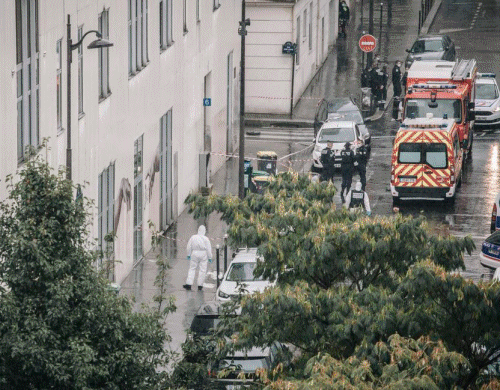 Deux personnes ont été blessées à l’arme blanche au pied de l’ancien immeuble de « Charlie Hebdo », en plein procès des attentats de janvier 2015. Voici ce que l’on sait de cette attaque, qui intervient dans un contexte de menaces accrues pour l’hebdomadaire satirique. Deux personnes ont été blessées à l’arme blanche au pied de l’ancien immeuble de « Charlie Hebdo », en plein procès des attentats de janvier 2015. Voici ce que l’on sait de cette attaque, qui intervient dans un contexte de menaces accrues pour l’hebdomadaire satirique.
Une attaque à l’arme blanche a fait deux blessés vendredi à Paris près des anciens locaux de l’hebdomadaire satirique , en plein procès de l’attentat meurtrier qui l’avait visé en janvier 2015. Voici ce que l’on sait du drame.
Peu avant midi, un homme muni d’une arme blanche a blessé deux personnes près des anciens locaux de l’hebdomadaire satirique, rue Nicolas Appert, dans le 11e arrondissement de Paris. « Cela s’est passé vers 11h45, un homme est arrivé et a attaqué avec un hachoir deux salariés qui fumaient devant l’immeuble, un homme et une femme », a raconté Paul Moreira, fondateur et co-dirigeant de l’agence de presse Premières Lignes. « L’homme et la femme ont été tous les deux très gravement blessés ». Les deux victimes, blessées, travaillaient au sein des studios Bocode, une société de production et de post-production de films appartenant à Premières Lignes.
La première, une femme, s'occupe de l'accueil, tandis que le second est assistant de production au sein de cette structure, qui fournit des prestations à une multitude de sociétés . Une photo diffusée sur les réseaux sociaux montre un hachoir ensanglanté. Une source proche de l’enquête a confirmé qu’il s’agissait bien de l’arme utilisée lors de l’attaque.
Les deux victimes se trouvent dans un état d’« urgence absolue » mais leur pronostic vital n’est pas engagé. « L’auteur principal », qui a reconnu les faits au moment de son interpellation, a notamment été identifié en raison de ses baskets rouges.
Le Parquet national antiterroriste (PNAT) a été saisi, et une enquête a été ouverte pour « tentative d’assassinat en relation avec une entreprise terroriste » et « association de malfaiteurs terroriste criminelle ». Le procureur du PNAT, Jean-François Ricard, a confirmé en milieu d’après-midi que l’« auteur principal » de l’attaque a été arrêté, et a ajouté qu’un « second individu » a été également interpellé et placé en garde à vue. Le suspect principal de l’attaque au couteau est né en 2002 au Pakistan et était connu pour des faits de droits commun et de port d’arme illégal. Il a été
arrêté en juin en possession d'une arme blanche, selon une source
proche du dossier. Le second suspect est un Algérien de 33 ans, selon
une autre source proche. Le principal suspect à l'identité floue
L'individu interpellé vendredi, principal suspect dans l'attaque au hachoir dans le 11e arrondissement, « assume son acte », indiquent des sources proches de l'enquête.
Cet homme, qui se présente comme né au Pakistan et âgé de 18 ans, invoque « le contexte de la republication des caricatures par Charlie Hebdo », ajoute l'une de ces sources. Il est le principal suspect de l’attaque au hachoir perpétrée vendredi midi devant les anciens locaux de Charlie Hebdo mais les enquêteurs s’interrogent encore sur son identité. L’homme, qui a revendiqué son geste lors de son interpellation, s’est présenté comme Hassan Ali, un Pakistanais de 18 ans arrivé en France trois ans auparavant. Mais un document d’identité découvert dans son téléphone portable jette le flou sur ses déclarations : une autre identité y figure, Zaheer Hassan Mehmood, un Pakistanais de 25 ans, a appris 20 Minutes de sources proches de l’enquête, confirmant une information du Monde. Cette pièce d’identité n’a cependant pas encore été authentifiée par les enquêteurs.
L’assaillant avait indiqué lors de son arrivée sur le territoire – en août 2018 – être né en 2002 à Islamabad. Il avait alors été pris en charge par l’Aide sociale à l’enfance du Val-d'Oise. Le département, ne croyant pas à sa minorité, avait contesté sa prise en charge. La justice avait finalement confirmé sa prise en charge, jusqu’à sa majorité, le 10 août 2020.
Un acte de terrorisme islamiste
Cette attaque survient alors que la rédaction de Charlie Hebdo fait l'objet de nouvelles menaces depuis que l'hebdomadaire a republié des caricatures de Mahomet le 2 septembre, à l'occasion de l'ouverture du procès des attentats de janvier 2015, qui doit se tenir jusqu'au 10 novembre. Après
une courte suspension au procès, l'audience a repris sans aucune mention
par la cour d'assises spéciale de Paris de cette attaque.
« Il y a peu de doute c'est une nouvelle attaque sanglante contre notre pays. Manifestement c’est un acte de terrorisme islamiste. Manifestement la menace terroriste a été sous-estimée dans cette rue. J'ai demandé un rapport au Préfet. Deux personnes ont été arrêtées dont manifestement l'auteur présumé de l'attaque près des anciens locaux de Charlie Hebdo. L'auteur n'était pas connu pour des faits de radicalisation », a déploré Gérard Darmanin. Le ministre de l'Intérieur a annoncé que des policiers avaient été déployés près de sites « symboliques » visés par des attentats ces dernières années et de synagogues.
|
|
|
|
| Alize Marion pour DayNewsWorld |
 |
FRANCE IN DANGER ?
ECONOMIC STORM, HEALTH AND SOCIAL IN FRANCE |
Here he is back in the ring.
Edouard Philippe is once again campaigning for the senatorial elections. On the 25th, the former head of government will participate in the re-entry of La République des maires in Angers, a network of center-right elected representatives led by his friend Christophe Béchu. And it's up to him to predict difficult times, which all observers have already predicted :
“I think we're going to face a storm - an economic storm, a health storm, a storm in every way - and maybe a social storm, maybe a political storm. And I think that the times to come are difficult times ”, observed the elected Norman. Very quickly, probably, as soon as the State no longer plays the role of insurer !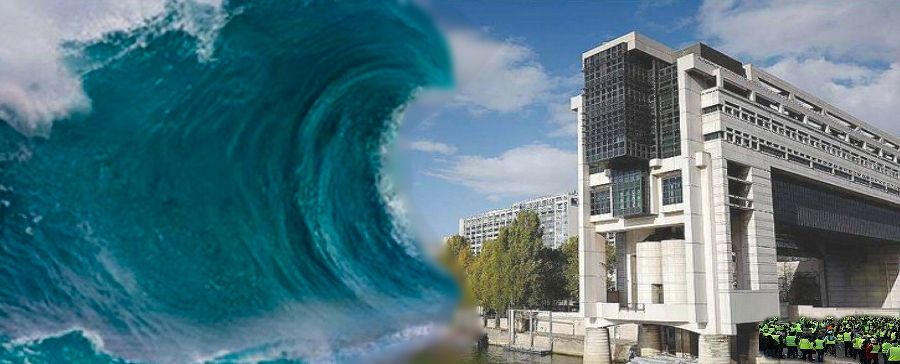
In this context, and by spinning the maritime metaphor, Edouard Philippe praised “calm, open, balanced minds”, as well as “the ability to gather, to go beyond”. “When you're on a boat and the storm comes, it doesn't have to be that you agree on all issues with those who are with you on the boat. The important thing is to know where we want to go and how we are going to weather the storm, ”he explained. For the former head of government, “the compass” that must be “favored” in order to “work together” is therefore that of “going beyond”, of “the meaning of the State”, of the “meaning of France”, rather than the “partisan compass”.
Hence a call to his troops? "We will need these women and men of good will who understand that we are going to suffer, that we are going to go through a very strong squall," he said, who experienced the yellow vests crisis, the protest against pension reform, and the first wave of the coronavirus epidemic.
The ex-tenant of Matignon has also subtly referred to his former status as leader of the majority. “Experience shows that when majorities are very short, they are also often very tight-knit. And when they are bloated, we forget ourselves, we disperse, we ventilate. ” “Rather than partisan logic, let's focus on women, men, projects, method, values, what you want to fight for. Surpassing, the sense of the State, the sense of France, should be able more surely than a partisan compass to tell us how to work together ”, added Édouard Philippe.
This first public expression confirms, for those who still doubted it, that he intends to weigh and make his voice heard, recalling in passing his exclusion from the Les Républicains party, he who has never joined the LREM either. “We preferred to consider that I would be better outside. And I must say that I am quite grateful, it is true that I am rather better on the outside! ”, Quipped Philippe.
A candidate who sees well beyond the Senate.....
|
|
|
|
| Garett Skyport for DayNewsWorld |
 |
There are no translations available.
CORONAVIRUS POUR UN COLLECTIF DE MEDECINS IL FAUT « SIFFLER LA FIN DE LA RECREATION »
|
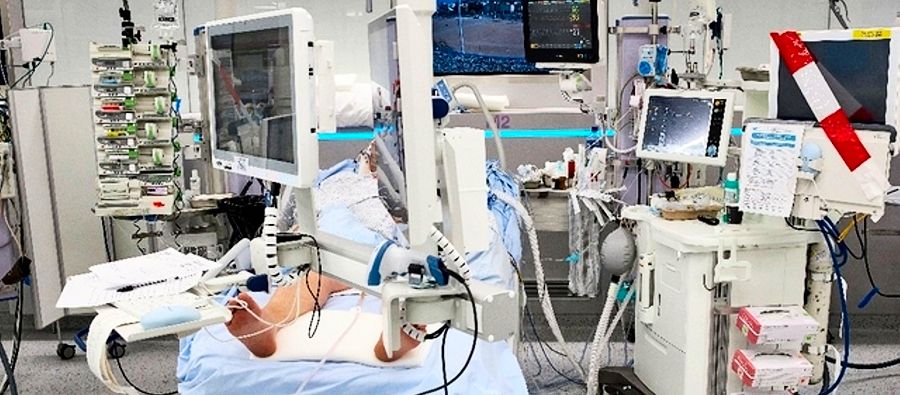 Plus de 10 000 nouveaux cas de Covid-19 ont été détectés en France en vingt-quatre heures, un bilan au plus haut depuis le lancement des tests à grande échelle dans le pays, selon les données publiées, samedi 12 septembre, par Santé publique France. D'où l'avertissement sans appel d'un collectif de médecins dans une tribune parue dans le Journal du dimanche : « Il reste probablement peu de temps pour agir collectivement » préviennent les six médecins dont Axel Kahn et Anne-Claude Crémieux Plus de 10 000 nouveaux cas de Covid-19 ont été détectés en France en vingt-quatre heures, un bilan au plus haut depuis le lancement des tests à grande échelle dans le pays, selon les données publiées, samedi 12 septembre, par Santé publique France. D'où l'avertissement sans appel d'un collectif de médecins dans une tribune parue dans le Journal du dimanche : « Il reste probablement peu de temps pour agir collectivement » préviennent les six médecins dont Axel Kahn et Anne-Claude Crémieux
Des médecins et professeurs, dont le généticien Axel Kahn, appellent dimanche à « siffler la fin de la récréation » face à la dégradation de l’épidémie de Covid-19, en demandant aux Français d'« éviter les rassemblements privés ». « Nous sommes à une nouvelle étape de l’épidémie : celle de sa diffusion (…). Il reste probablement peu de temps pour agir collectivement », avertissent six médecins et professeurs dans une tribune au Journal du dimanche.
« Après la joie des retrouvailles de l’été, il est temps de faire attention dans le milieu privé. A mesure que l’épidémie progresse, la probabilité d’être contaminé dans ces lieux clos augmente. Vendredi, en Grande-Bretagne, la ville de Birmingham a interdit les rencontres entre amis et en famille », rappellent les signataires.
« Evitez, autant que possible, les rassemblements privés »
Se défendant d’être « dans l’injonction », ils estiment qu’il faut « peut-être siffler la fin de la récréation » en France : « Evitez, autant que possible, les rassemblements privés. Plus une pièce est petite, plus elle contient de monde, moins elle est aérée, et plus vous augmentez les risques. Réduisez le nombre de personnes présentes dans le cadre privé. Si possible, reportez toute réunion », détaillent-ils.
« Nous sommes à une nouvelle étape de l'épidémie : celle de sa diffusion (...). Il reste probablement peu de temps pour agir collectivement », avertissent six médecins et professeurs dans une tribune au Journal du dimanche.
« Si possible, reportez toute réunion »
« Après la joie des retrouvailles de l'été, il est temps de faire attention dans le milieu privé. A mesure que l'épidémie progresse, la probabilité d'être contaminé dans ces lieux clos augmente. Vendredi, en Grande-Bretagne, la ville de Birmingham a interdit les rencontres entre amis et en famille », rappellent le collectif.
|
|
|
|
| Abby Shelcore pour DayNewsWorld |
 |
There are no translations available.
HAUSSE ALARMANTE DU COVID-19 EN PACA
|
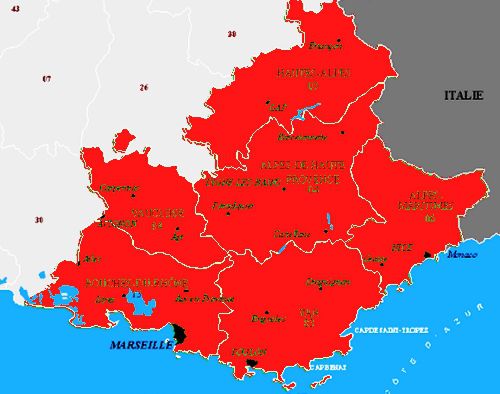 Près de 25 000 nouveaux cas de Covid-19 ont été détectés en France dans les trois derniers jours. Dans les Bouches-du-Rhône des médecins ont alerté sur la situation qui se dégrade de plus en plus. Près de 25 000 nouveaux cas de Covid-19 ont été détectés en France dans les trois derniers jours. Dans les Bouches-du-Rhône des médecins ont alerté sur la situation qui se dégrade de plus en plus.
« Ce qui nous fait peur », c'est l' »augmentation exponentielle des cas graves qui arrivent dans nos unités », s'est inquiété ce lundi 7 septembre 2020 le professeur Lionel Velly, membre du service d'anesthésie-réanimation du CHU La Timone à Marseille.
« Notre service est presque saturé, avec une augmentation des cas en PACA qui est importante, et en particulier dans les Bouches-du-Rhône. On a plus 12 patients en 24 heures en PACA et en particulier plus 6 dans les Bouches-du-Rhône.
Sur La Timone, nous avons 16 lits disponibles pour les patients Covid-19 et nous sommes actuellement à 13 lits et bientôt 14 avec un patient qui vient d'arriver.» , alerte-t-il .
On a eu une situation ultra-stable, surtout l'été, avec peu de patients. A partir de fin août, avec le passage des détections Covid-19 positives chez les patients âgés, on a eu une augmentation exponentielle. Pour cause: le taux d'incidence dans les Bouches-du-Rhône est de 179 cas positifs pour 100.000 habitants, c'est 3 fois plus que la moyenne nationale.
On va être en permanence dans le doute en se demandant si c'est du Covid-19 ou de la grippe. Par exemple, nous avons une épidémie de rhinovirus qui va mimer de nombreux symptômes du Covid-19 et on s'aperçoit que pas mal de patients vont être positifs en rhinovirus. On va avoir le même problème avec la grippe et une vaccination antigrippale va nous permettre de soulager déjà le système de santé pendant la période hivernale.
La prise en charge de nouveaux patients atteints par le coronavirus est à conjuguer avec celle des patients en réanimation pour d'autres pathologies.
|
|
|
|
| Andrew Preston pour DayNewsWorld |
 |
There are no translations available.
CORONAVIRUS EN FRANCE MONTEE EN FLECHE
DE NOUVEAU CAS
|
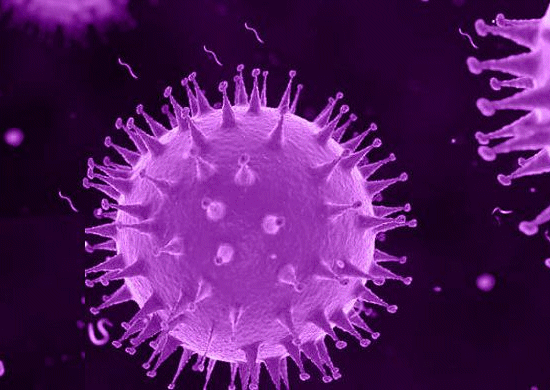 C’est une augmentation sans précédent depuis le 30 mai. La France a recensé 1 695 nouvelles contaminations au coronavirus en vingt-quatre heures, a annoncé mercredi 5 août 2020 la direction générale de la santé (DGS) dans un communiqué. C’est une augmentation sans précédent depuis le 30 mai. La France a recensé 1 695 nouvelles contaminations au coronavirus en vingt-quatre heures, a annoncé mercredi 5 août 2020 la direction générale de la santé (DGS) dans un communiqué.
Neuf personnes supplémentaires sont mortes entre mardi et mercredi, portant à 30 305 le nombre total de décès du Covid-19 dans le pays – 19 799 au sein des établissements hospitaliers et 10 506 en Ehpad et autres établissements sociaux et médico-sociaux.
Le nombre de personnes hospitalisées à cause du virus, lui, s’élève à 5 148, soit 14 personnes de moins que la veille.
L’Ile-de-France, la Provence-Alpes-Côte d’Azur, les Hauts-de-France et la Guyane regroupent 70 % des malades en réanimation, rappelle la DGS.
« Même en vacances, même en été, le virus circule toujours activement. Nous sommes donc toutes et tous concernés », souligne la DGS, qui appelle une nouvelle fois au respect des gestes barrières et des mesures de protection vis-à-vis des plus âgés et des plus fragiles. Mardi, le conseil scientifique qui guide le gouvernement dans la lutte contre le Covid-19 avait prévenu que la France n’est pas à l’abri d’une deuxième vague à l’automne et il avait exhorté les Français à respecter les mesures barrières.
A l’échelle mondiale, la pandémie a provoqué la mort de plus de 700 000 personnes depuis fin décembre . |
|
|
|
| Boby Dean pour DayNewsWorld |
 |
There are no translations available.
LA VENUE D'EMMANUEL MACRON AU LIBAN LE FRUIT D'UNE LONGUE AMITIE FRANCO-LIBANAISE
|
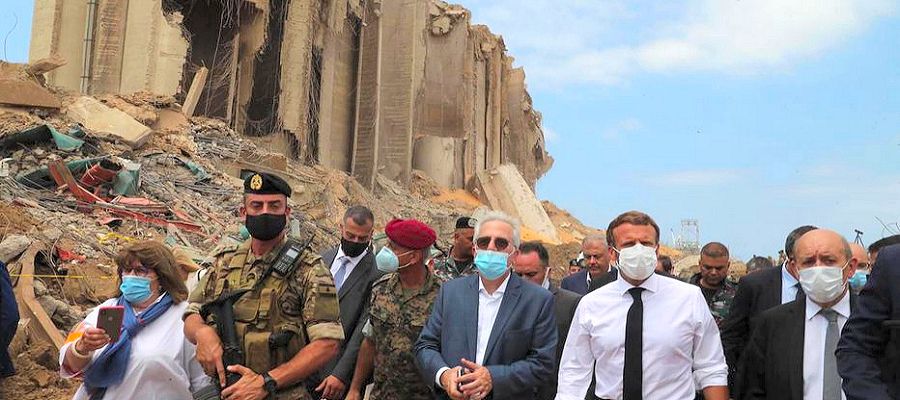 "Quand le Liban saigne, la France souffre avec lui ", a réagi l'ex-président socialiste François Hollande, appelant à une « solidarité internationale à la mesure des pertes humaines et des destructions ». "Quand le Liban saigne, la France souffre avec lui ", a réagi l'ex-président socialiste François Hollande, appelant à une « solidarité internationale à la mesure des pertes humaines et des destructions ».
La France n'oublie pas son rapport singulier au pays du cèdre. En se rendant dès ce jeudi 6 aout à Beyrouth, Emmanuel Macron est le premier chef d'État étranger à se déplacer dans la capitale libanaise ravagée par des explosions qui ont fait au moins 137 morts et 5000 blessés, montrant les liens étroits entre les deux nations.
De l'aide, il en a tout de suite été question de la part de l'État français dès mardi soir, après que Beyrouth a été frappé de pleins fouets par deux explosions. Emmanuel Macron a promis mardi au Liban l'aide de la France. Dès mercredi, du matériel d'urgence et du personnel médical a été envoyé au Liban. Un premier vol a décollé de Marseille le matin, un second de Paris vers 17 heures, un troisième en fin de journée. Par ailleurs, une enquête a été ouverte par le parquet de Paris, après l'identification de « 21 personnes de nationalité française blessées dans l'explosion », selon l'institution.
Une importante communauté chrétienne
Ces liens sont le fruit d'une longue histoire. Le Liban compte depuis le Ve siècle une importante communauté chrétienne, les maronites, des catholiques orientaux disciples du moine saint Maron. Le roi Louis IX, saint Louis, à l'occasion de la VIIe croisade à laquelle il a participé, leur promet en 1250 une « protection comme aux Français eux-même » des rois de France, comme l'indique un rapport d'information du Sénat. Le lien entre chrétiens d'Orient (donc maronites) et les rois de France est confirmé à plusieurs reprises dans l'Histoire. En 1536, les capitulations entre François Ier et le sultan Soliman Ier le magnifique confirme le rôle de protection de la France sur les lieux saints et les chrétiens d'Orient.
Et en 1860 la France au nom de l'Europe intervient militairement pour mettre fin aux affrontements religieux entre les Maronites et les Druzes. Des missionnaires sont envoyés et des écoles françaises sont mises en place. Ce qui explique en partie pourquoi le Liban est aujourd'hui toujours francophone avec la présence notamment d'un peu plus de 20 000 Français au pays du Cèdre.
Le Liban un « protectorat français »
Le Liban a ensuite passé 25 années sous mandat français au sortir de la Première Guerre mondiale. En vue de la dislocation de l'Empire Ottoman, l'Irak et l'actuelle Palestine sont attribués à la Grande-Bretagne par la Société des Nations (SDN) lors des accords secrets Sykes-Picot. Pour des raisons culturelles et historiques, la France revendique, elle, la Syrie et le Liban. Le pays du Cèdre passe donc sous mandat français (sorte de protectorat) en avril 1920 lors de la conférence de San Remo. La France s'engage alors à mener le pays à l'indépendance quand le niveau de développement économique et politique sera jugé suffisant.
En1936 un premier traité d'indépendance est signé par l'État français gouverné alors par le Front populaire. En réalité ce n'est qu' en 1943 que la France Libre accorde l'indépendance définitive et que l'État du Liban est créé.
Découlant de ces liens, durant la guerre civile libanaise (1975-1990), un certain nombre de Libanais se sont réfugiés en France.
Les liens étroits entre Chirac et Hariri
Les relations particulières entre les deux pays ont perduré, tout particulièrement avec l'amitié entre la famille Hariri et Jacques Chirac qui débute dès 1980 alors que Jacques Chirac est maire de Paris . Rafic Hariri est nommé Premier ministre du Liban en 1992 et Jacques Chirac devient président de la République en 1995.
Une idylle stoppée nette le 14 février 2005. Rafic Hariri est retrouvé mort dans un attentat à l'explosif contre son convoi à Beyrouth. Jacques Chirac est le seul chef d'État occidental à se rendre aux obsèques. L'amitié qui liait l'ancien Premier ministre du Liban Rafic Hariri à l'ex-président de la République française Jacques Chirac a ainsi poussé ce dernier à faire pression auprès de l'ONU pour la création d'un tribunal spécial afin de juger les responsables de l'attentat. Le verdict devait d'ailleurs être prononcé vendredi. Il a finalement été repoussé au 18 août en raison de la situation sur place. La communauté internationale y voit un acte de la Syrie, alliée du Hezbollah et essayant de faire du Liban un « protectorat ».
Dans le même sens, lors du conflit direct entre Liban et Israël à l'été 2006, Jacques Chirac demande au Conseil de sécurité des Nations unies d'instaurer un cessez-le-feu et le retrait de l'armée israélienne le 11 août 2006. Poursuivant cette logique, en 2017, Emmanuel Macron a un temps offert l'asile politique au fils Hariri, Saïd, démissionnaire de son poste de Premier ministre et dénonçant la mainmise de l'Iran sur son pays avec le mouvement chiite du Hezbollah.
En somme, du fait de ces liens singuliers entre les deux nations, Paris compte jouer un rôle de premier plan afin de mobiliser l'aide internationale nécessaire, notamment au niveau européen, dans un
pays déjà traversé avant l'explosion par une grave crise économique et
sociale due à une classe politique jugée corrompue et incapable d'engager
des réformes.
|
|
|
|
| Joanne Courbet pour DayNewsWorld |
 |
There are no translations available.
LA STATUE DE COLBERT VANDALISEE
|
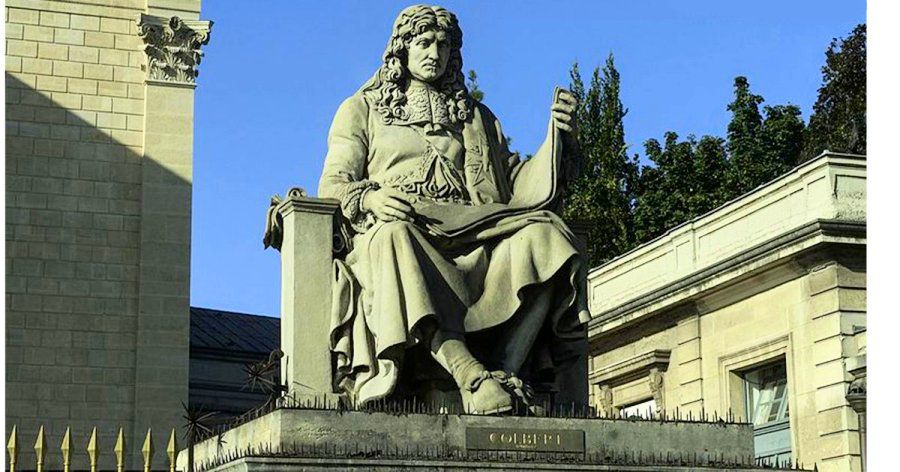 Après la statue de Faidherbe à Lille, ou celle du général Gallieni à Paris, celle de Jean-Baptiste Colbert, devant l'Assemblée nationale, a été vandalisée, mardi 24 juin, en étant recouverte de peinture rouge au torse et aux jambes et d’une inscription « Négrophobie d’Etat ». L’auteur des dégradations, qui a été arrêté, revendique une action antiraciste. Une vidéo postée sur Twitter par la « Brigade antinégrophobie » montre l'auteur du tag être interpellé par la police et se justifier : « Ce qui est interdit, c'est le racisme. Cet homme-là (Colbert, ndlr) fait l'apologie de la négrophobie ». Ministre de Louis XIV, Colbert est considéré comme à l’initiative du Code noir, rédigé en 1685 et qui a légiféré sur l’esclavage dans les colonies françaises. Après la statue de Faidherbe à Lille, ou celle du général Gallieni à Paris, celle de Jean-Baptiste Colbert, devant l'Assemblée nationale, a été vandalisée, mardi 24 juin, en étant recouverte de peinture rouge au torse et aux jambes et d’une inscription « Négrophobie d’Etat ». L’auteur des dégradations, qui a été arrêté, revendique une action antiraciste. Une vidéo postée sur Twitter par la « Brigade antinégrophobie » montre l'auteur du tag être interpellé par la police et se justifier : « Ce qui est interdit, c'est le racisme. Cet homme-là (Colbert, ndlr) fait l'apologie de la négrophobie ». Ministre de Louis XIV, Colbert est considéré comme à l’initiative du Code noir, rédigé en 1685 et qui a légiféré sur l’esclavage dans les colonies françaises.
Face à la recrudescence de ces actes de vandalisme et aux appels à déboulonner les statues jugées racistes, le président de la République avait réagi, le 15 juin dernier. « La République n’effacera aucune trace ni aucun nom de son Histoire. La République ne déboulonnera pas de statue. Nous devons plutôt lucidement regarder ensemble toute notre Histoire, toutes nos mémoires », avait-il martelé.
Cet acte prétend s'inscrire dans le sillage des manifestations antiracistes dans le monde à la suite de la mort de l’Américain George Floyd. Mais plusieurs responsables politiques ont dénoncé avec justesse, mercredi, une tentative de « censurer » l'Histoire ou de « culpabilisation ». Côté LR, le député souverainiste Julien Aubert a estimé sur Twitter « purement consternante » le tag apposé sur la statue de Colbert, « grand serviteur de l'État et promoteur de notre industrie ».
« Arrêtons cette culpabilisation permanente qui est vraiment ridicule », a surenchéri sur Public Senat le député LR des Alpes-Maritimes Eric Ciotti, pour qui « on juge avec des valeurs qui viennent d'autres pays, et nous n'avons pas la même histoire que les Etats-Unis ».
|
|
|
|
| Andrew Preston pour DayNewsWorld |
 |
THE CALL OF 18 JUNE BY GENERAL DE GAULLE OR THE SPIRIT OF RESISTANCE
|
On the occasion of the 80th anniversary of the Appeal of June 18, part of the commemorative cycle of "the year of Gaulle", the Head of State pays tribute this Thursday to General de Gaulle. The President of the Republic calls, on this occasion, to the unity of the nation, while all his opponents compete for the heritage of General de Gaulle.
"Revive the embers" of the nation's values.
Emmanuel Macron, accompanied by many political figures, attended the traditional military ceremony at the Mont-Valérien memorial, west of Paris, to honor the memory of the roughly one thousand hostages and resistance fighters executed by the Nazis during the Second World War.
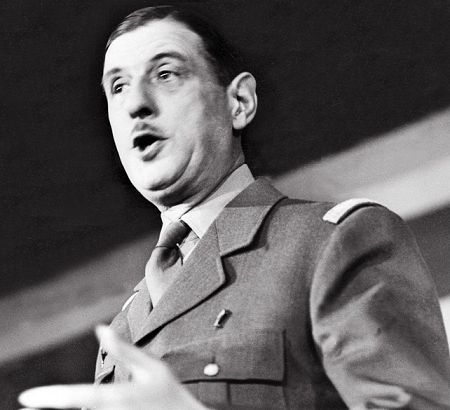 The Patrouille de France and the Red Arrows, the Royal Air Force patrol, flew over the memorial and the Invalides. The Patrouille de France and the Red Arrows, the Royal Air Force patrol, flew over the memorial and the Invalides.
Before going to Mont-Valérien, Emmanuel Macron spent an hour at the Musée de la Liberation, with Hubert Germain, 99, one of the first companions in Free France in 1940 and one of the four last Companions of the Liberation still alive.
“We have to be inspired by this strength of soul. Even when the love of the fatherland seems to fade (...) the example of the General must inspire the young generations.
Do not give in to confusion and doubt. The embers can be rekindled and they can burn again, ”he told the former resistance fighter.
The President of the Republic then had to fly to London to pay homage to the city which was the capital of free France.
In the presence of Prince Charles, Mr. Macron will deliver the Legion of Honor to the city of London, the seventh city thus decorated after Algiers, Belgrade, Brazzaville, Liège, Luxembourg and Volgograd.
The day after his arrival in London, General de Gaulle had called on the French military, engineers and workers to join him to continue the fight against Nazi Germany, despite the armistice requested by Marshal Pétain. "Whatever happens, the flame of French resistance must not go out and will not go out," he said in concluding his speech. Emmanuel Macron will be received at Clarence House, residence of Prince Charles, heir to the British crown, and his wife, Camilla.
This trip will be for the Head of State the second event in the framework of "the year of Gaulle" after the celebration, on May 17, of the 80th anniversary of the Battle of Montcornet (Aisne) and before the 50th anniversary of the death of the general in Colombey-les-Deux-Eglises, November 9. The historian Serge Berstein summarizes, for the newspaper L'Opinion, the Elysian intentions behind these productions.
“What is striking for historians is that it commemorated the anniversary of the Battle of Moncornet, a small local victory that had no effect in a France that completely collapsed in 1940. Emmanuel Macron took the opportunity to celebrate 'the French spirit of resistance'. He implicitly poses as heir to the General. After all, that’s what history is for politicians: to rise to the height of one who is considered a role model, ”he said.
"The DNA of our family"
Emmanuel Macron is not the only one to claim to be General de Gaulle, in particular as the defender of the "sovereignty" of France, a word now used by the entire political class.
Right and left parties claim, in this moment of social crisis against a background of health and economic crisis, of General de Gaulle. While for the Republicans (LR) the general is "the DNA of our family", according to the leader of the party, Christian Jacob, he is a man who “never joined the invisible hand of the market and preferred planning”, for Jean-Luc Mélenchon, leader of La France insoumise (LFI). For its part Marine Le Pen, the president of the National Rally (RN), went on Wednesday to the island of Sein to commemorate the call of June 18. Citing as an example its defense of the independence of France, it now considers that the RN is the real heir to the values of De Gaulle.
But who can today rise to the level of providential men like General de Gaulle was ?
|
|
|
|
| Garett Skyport for DayNewsWorld |
 |
THE COUNCIL OF STATE IN FRANCE RE-ESTABLISHES
FREEDOM TO MANIFEST |
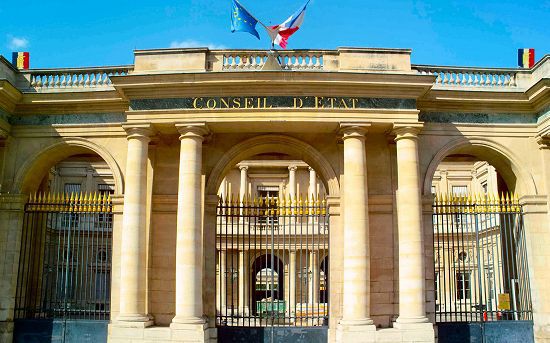 As of Thursday by unions and the Human Rights League, the Council of State ruled in favor of the demonstrations.
The Council of State lifted Saturday June 13, 2020 the ban on the assembling of more than ten people, imposed within the framework of the state of health emergency, put in place because of the coronavirus, restoring the freedom to demonstrate, in compliance with "barrier measures".
Since the end of confinement on May 11, the French have partially recovered their pre-epidemic life, but still could not gather more than ten, as the decree of May 31, 2020 reaffirmed:
"Any gathering, meeting or activity on the public highway (...), bringing together more than ten people simultaneously, is prohibited throughout the territory of the Republic".
The ban "not justified" by the health situation
"The judge of summary proceedings of the Council of State considers that the ban on demonstrations is not justified by the current health situation when the barrier measures can be respected," writes the Council of State after the hearing.
"While the freedom to demonstrate is a fundamental freedom, the President concludes that, except in special circumstances, the prohibition of demonstrations on the public highway is justified by health risks only when the barrier measures cannot be respected or that the event risks bringing together more than 5,000 people. "
"Consequently, the judge in summary proceedings suspends the execution of article 3 of the decree of May 31, 2020, for the demonstrations on the public highway subjected to the obligation of a preliminary declaration", ends the Council of State. |
|
|
|
| Andrew Preston for DayNewsWorld |
 |
PRELIMINARY MANAGEMENT SURVEY
FROM THE CORONAVIRUS CRISIS |
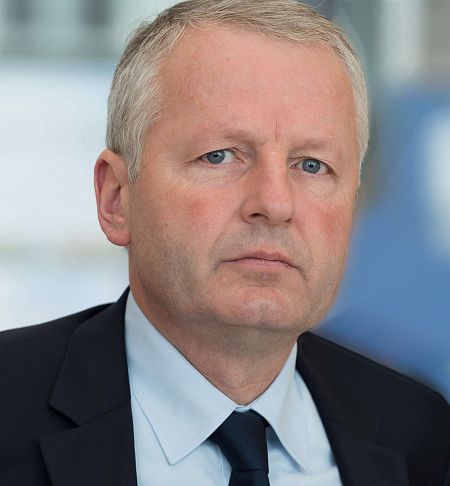
The Paris prosecutor, Rémy Heitz, announced the opening on Monday June 8 of a vast preliminary investigation into the criticized management of the Covid-19 crisis in France.
It mainly targets the crimes of "endangering the life of others", "homicide and involuntary injury" and "failure to assist a person in danger".
These complaints against X sometimes target by name officials of the administration, in particular the general director of health Jérôme Salomon, or even Public health France. Also included are the prison administration and the ministry of labor.
The survey does not concern Ehpad
These investigations, entrusted to the Central Office for the fight against damage to the environment and public health (Oclaesp), relate to the main grievances expressed since the beginning of the epidemic: protection at work, provision of masks and tests, etc.
This national survey does not concern accommodation establishments for dependent elderly people (Ehpad), which are the subject of local surveys to date, including two in Paris, but also in Nanterre or Grasse (Alpes-Maritimes).
This survey "is not there to define political or administrative responsibilities," explained Rémy Heitz, "but to uncover possible criminal offenses" of national decision-makers. With the exception of the Head of State, who is criminally irresponsible, and members of the government, whose responsibility falls to the Court of Justice of the Republic, hearing eighty complaints.
"If there are criminal faults, they are very likely - it is a hypothesis - unintentional faults. However, the law sets precise conditions for establishing these crimes: it requires proof of a “qualified fault” which is not mere recklessness or negligence, ”explained the prosecutor.
Combining these investigations will, according to the prosecutor, establish a common documentary fund on the state of scientific knowledge. Because "for this type of offense, the penal code says that we must assess the responsibilities" of the decision-makers "in the light of the means and knowledge they had at the time of the decisions," he stressed.
The Paris prosecutor anticipates “considerable” work, in a “historic situation”:
"This is the first time that complaints have been filed while the crisis is in full swing," he revealed, while until then "in major public health cases (contaminated blood, asbestos ...) , justice intervened well a posteriori ".
|
|
|
|
| Andrew Preston for DayNewsWorld |
 |
DEMONSTRATION AGAINST
POLICE VIOLENCE IN FRANCE
|
Despite the prefectural ban, some 20,000 demonstrators gathered in court Tuesday evening to answer the call of the family support committee for Adama Traoré, the 24-year-old black man who died in 2016 after his arrest. A parallel with the death of Georges Floyd and the American police violence
On the signs we could read many references to Eric Garner, who died in 2014 in New York during his arrest, or to Zyed and Bouna, who died in 2005 in Clichy-sous-Bois (Seine-Saint-Denis) after a race- prosecution with the police. Three featured letters: "BLM", for "Black Lives Matter [". On the masks we sometimes read "I can't breathe", words spoken in their respective languages, shortly before their death, by George Floyd and Adama Traoré. "The death of George Floyd is modeled on the death of Adama Traore" claims his sister, Assa Traore.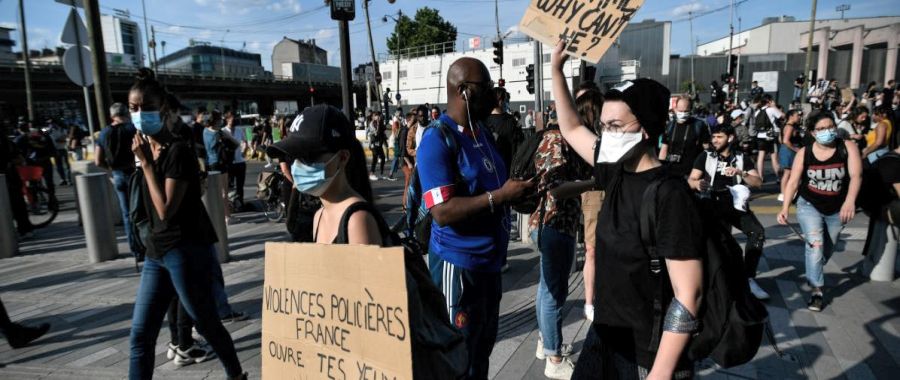
Certain members of the security forces in France have been accused in recent years of disproportionate use of force, in particular during the opposition to the Sivens dam project in 2014, demonstrations against the El Khomri law in 2016, or more recently during the Yellow Vests demonstrations in 2018 and 2019. The current government has always rejected the term "police violence", denounced by human rights organizations
Violent clashes and 18 arrests in a prohibited demonstration
This rally in tribute to Adama Traore and against police violence, which took place in peace until 9 p.m., then degenerated into sometimes violent incidents. Street furniture fires were lit and participants blocked the ring road while the police were trying to evacuate the premises.
Eighteen people were arrested. 13 were carried out in Paris and gave rise to 12 police custody, including 4 against minors. Individuals placed in police custody are suspected of having carried a weapon without legitimate reason, participated in a crowd after summons, committed degradations, aggravated violence or insults on any person holding public authority. "Violence has no place in democracy," tweeted the Minister of the Interior, Christophe Castaner. Nothing justifies the excesses which occurred this evening in Paris, whereas the rallies of public way are prohibited to protect the health of all. "
The demonstration, which had been announced since May 29 on social networks but had not been the subject of a prior declaration, had been banned by the Prefecture, on the grounds that it was "not authorized by the decree of May 31, 2020 relating to the health emergency, which prohibits any gathering, in the public space, of more than ten people.
Four years after the death of Adama Traoré, on July 19, 2016, this case became a battle between legal experts who dismiss the responsibility of the gendarmes and the doctors chosen by the family who sweep their conclusions.
Condemnation of the government and the right
French government spokeswoman Sibeth Ndiaye on Wednesday called for caution over the comparison between police violence in the United States, where the death of a 46-year-old black man during a police check continues to cause outrage and monster protests in the United States. "I believe that the situation of our two countries is not entirely comparable either in terms of history or in terms of the organization of society, I call to approach these subjects with great caution" she said.
The right, meanwhile, condemned this Wednesday the prohibited rally organized the day before in Paris at the call of the support committee for the family of Adama Traore. "It is inadmissible because I remind you that we are still in the grip of a state of health emergency and that normally the gatherings of more than ten people are prohibited", indignant the leader of the senators LR Bruno Retailleau on Cnews. "What is also unacceptable is that some of the Adama Traore memory support committee want to link what happened in the United States to what supposedly happened, four years ago, here in France, "he added in connection with accusations of police violence.
"Such a demonstration, in full state of emergency, is to flout the law", also denounced the president LR of the Senate Gérard Larcher on RTL.
"In a state of law, justice is rendered by the judges, neither by social networks, nor by the street", he added, estimating that "what is happening in the United States is another nature ".
|
|
|
|
| Jenny Chase for DayNewsWorld |
 |
PHASE TWO OF DECONFINEMENT IN FRANCE |
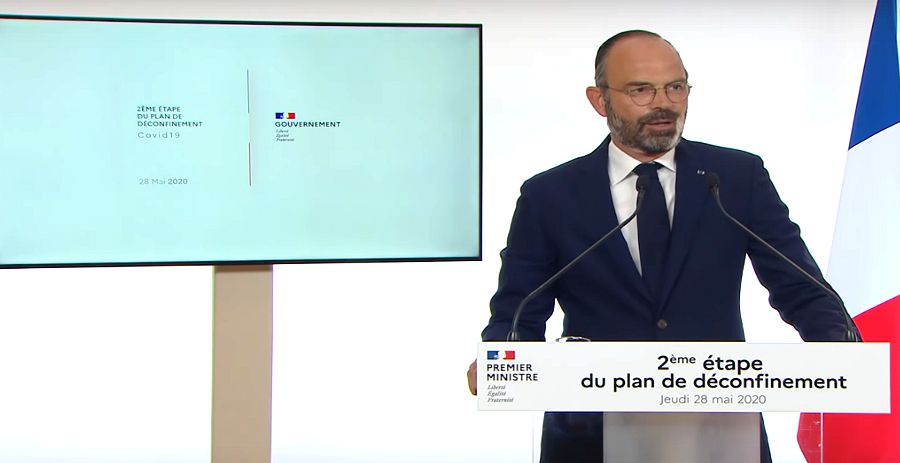
The Prime Minister Edouard Philippe announced, Thursday, May 28, 2020, new measures decontainment. This second phase, which runs between June 2 and June 22, allows the French to find more freedom. The presence of the disease is indeed declining on the national territory. "The results are good in terms of health", announced Edouard Philippe, even if he specified that it was not necessary to be casual to avoid any risk, the virus continuing to circulate and new clusters forming.
But for Edouard Philippe the urgency, from now on, is economic: the country will have to face a historic recession, announces the Prime Minister.
The new map of departments
No more departments are in red, but the orange of the first presentations is making a comeback. "Today, all indicators are green, with the notable exception of Val d'Oise and Mayotte," said Edouard Philippe. The news is "good", but not good enough for "everything to be normal". The departments of Île-de-France, Guyana and Mayotte are the three areas where the virus circulates more than elsewhere so that the deconfinement will be more "careful than in the rest of the territory".
Reopening of bars, cafes and restaurants
1 ° Restaurants, bars and cafes can reopen from June 2.
2 ° People who have chosen to have lunch together can meet up to 10 at the most. Each table must be separated by one meter.
3 ° Wearing a mask is compulsory for customers who travel and for staff.
4 ° In bars, standing consumption will be prohibited to avoid grouping.
5 ° In the orange departments, only the terraces may open on June 2.
6 ° Parks and gardens will reopen Beaches and museums will also be reopened. Wearing a mask will be mandatory, says Édouard Philippe.
7 ° In the green zones, theaters, gymnasiums, sports halls and leisure parks will reopen on June 2.
8 ° In the orange zones, theaters, gymnasiums, sports halls and leisure parks will reopen on June 22.
9 ° Cinemas will reopen everywhere on June 22.
But contact sports, nightclubs or gatherings in covered places will remain prohibited.
Travel ban lifted in France
In Europe, France is in favor of reopening the borders of Europe without a fortnight. For the time being, the country's borders remain closed, except for French nationals who will be able to return to the country. Outside Europe, borders remain closed.
Measures for national education
The Minister of Education intervened to speak about the reopening d . at school. In phase 2 all schools will be opened, announced Mr. Blanquer. "All schools must offer a welcome for families", up to a maximum of 15 students per class.
As for the colleges, 95.5% of the colleges were opened in the green zone. In phase 2, in the green zone, all classes will resume, from 6th to 3rd. In the orange zone, pupils in grades 6 and 5 will be given priority. The health program is maintained and “sport, culture and civics” courses will be offered.
Regarding high schools, in the green zone, all high schools will open on June 2 (general, technological and professional), at least on one of the three levels, at technological and professional appreciation), at least on one of the three levels, at the discretion of the principals. In the orange zone, only professional high schools open. Students from technological and vocational high schools can have recourse to individual interviews.
StopCovid app
Edouard Philippe did not fail to recall the supposed interest of StopCovid, voted the day before. The mobile application, he says, is not a "magic weapon against the epidemic", but an instrument to fight the epidemic more effectively.
It will be available on June 2, for the second phase of deconfinement, said Édouard Philippe. |
|
|
|
| Boby Dean for DayNewsWorld |
 |
GREEN LIGHT FROM PARLIAMENT FOR THE STOPCOVID APK
|

The Parliament approved on Wednesday evening the StopCovid smartphone application, supposed to contribute to the fight against the epidemic, but deemed "liberticide" by its detractors, with a cleavage between deputies and right-wing senators and some dissonant voices at LREM.
The government intends to launch this digital tracking tool in the coming days, to support the second phase of deconfinement.
The deputies approved this controversial project by a comfortable majority, by 338 votes against 215, and 21 abstentions. In the Senate, after a debate, 186 senators voted for (majority of the LR group, LREM, Independent), 127 voted against (PS, CRCE with communist majority, major part of RDSE with radical majority) and 29 senators (mainly centrists) abstained.
Target
As soon as it is downloaded, and each time the user meets a person within a meter, and this for more than a quarter of an hour, the phone records the references of the other person in an encrypted manner.
Thus, if one or the other comes to contract the Covid-19 during the following days, the user who has been in contact receives a notification informing him of this “risk of exposure” with advice on walking. to be continued
The government targets in particular the “active urban”, who take “public transport”, cross “unknown” in the stores…
The application uses the bluetooth function and not the geolocation.
Cédric O, secretary of state for digital technology and the linchpin of the device, estimated that the application would make it possible to fill certain gaps in the current strategy for detecting contact cases, particularly in transport or restaurants.
The guarantees surrounding this application
Before the Assembly and then the Senate in the evening, the Minister of Justice Nicole Belloubet insisted at length on the "guarantees" surrounding this "temporary, voluntary installation, non-identifying and transparent" application.
“This application is not intended to become the alpha and omega in the fight against Covid-19. Nor is it a pretext for the state to transform itself into a police state controlling the actions of our fellow citizens, "defended the Keeper of the Seals.
The application only works if both people have downloaded the application and are using it. On the other hand, StopCovid is anonymous and does not have access to the directory of the phone that hosts it.
Bruno Retailleau, leader of LR in the Senate, explained that a significant part of his support was due to the "digital sovereignty" of France, which chose not to use the tools designed by Apple and Google to follow up of contact cases. In fact, unlike other countries, the French government chose not to use Google and Apple solutions, and asked researchers from Inria, the French IT research institute.
The government, for its part, has repeatedly reminded the green light of the National Commission for Information Technology and Liberties (Cnil). This body estimated Tuesday that StopCovid respects the legislation relating to the private life, while demanding a regular evaluation and a detailed information for the users.
A dangerous and liberticidal tool ?
However, this application raises questions from its critics about respect for private life.
For Paula Forteza, digital expert and former member of the majority group, this application "presents significant technical risks", pleading for a "digital precautionary principle". She also denounced an effort intended to "force the social acceptability of this technology which digitizes our social interactions through a massive deployment driven by the State ”.
Philippe Gosselin, deputy (LR) of La Manche and member of the National Commission for Information Technology and Liberties (CNIL), meanwhile, denounced “the frog syndrome, guilty falling asleep, slouching in the fight against collective and individual freedoms ”. "Let's not create a precedent! ", He enjoined.
If this double positive vote in the National Assembly then in the Senate removes the last uncertainties on the future of StopCovid, the final decision returns to Emmanuel Macron and Prime Minister Edouard Philippe.
|
|
|
|
| Emily Jackson for DayNewsWorld |
 |
LREM KNOWS BLEEDING WITH
SEVEN NEW DEPARTURES |
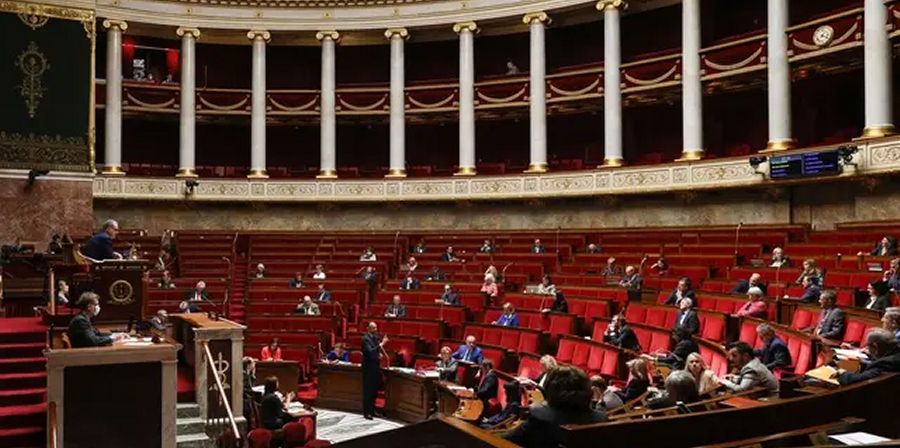
The defections continue.
This Tuesday morning, seven new deputies leave the LaREM group in the National Assembly to join a new group, called "Acting together". Despite this departure, the group presents itself in its press release as a "pillar of the majority".
At present, there are therefore 281 deputies in the LaREM group at the Palais-Bourbon. In fact, the loss of the absolute majority (289 seats) is widening. The new group, called "Acting together", whose spirit aims to be "constructive", includes 17 elected officials in all.
Barely a week ago, "walkers" and ex "walkers" officially tabled in the National Assembly a ninth political group called "Ecology democracy solidarity" so that La République en Marche (LREM) thus lost the absolute majority. politicians elected.
A new thunderbolt in the political landscape: the party of Emmanuel Macron not only no longer knows its absolute majority at the Palais-Bourbon, set at 289 deputies. But since 2017, would lose an average of one deputy every two and a half months. The movement now has only 281 - against 314 at the start of the legislature three years ago.
But what are the reasons given by the interested parties ?
Why are these elected officials leaving the ship ?
A colleague from Franceinfo explains the flight of "walkers". With the exception of the case of deputy M'jid El Guerrab who left in September 2017 after being accused of intentional violence with a weapon, Jean-Michel Clément, MP for Vienna, is the first to leave the macronist movement. He slams the door in April 2018, after several political disappointments.
Security laws that put off leftist deputies.
The former socialist did not appreciate the extension of the state of emergency in June 2017, the law on the transparency of political life, which, according to him, omits the question of lobbies but especially the asylum and immigration law, in April 2018, which precipitates his departure.
The security texts put off a myriad of deputies from the PS or with a left-wing sensitivity. Thus Albane Gaillot, elected in the Val-de-Marne, who first stood back from the group by sitting among the related in September 2019, before finally leaving his former comrades in March 2020. “It was a gradual evolution.
There was the asylum and immigration law and the anti-breakers law. I was more and more uncomfortable on these subjects, and then the government's response to the crisis of 'yellow vests' was not up to par, ”she explains for France-info. The use of 49.3, this article of the Constitution brandished by the government to push through the pension reform was the last straw that broke the camel's back, she explains.Sébastien Nadot also joined Ecology, democracy, solidarity after having been excluded from the LREM group in December 2018, for not having voted the budget ...
Lack of political culture and aides-de-camp.
In addition to their political disagreement on certain texts, these deserting deputies also advance another major dysfunction specific to the young macronist movement and likely to explain in part their departure. “LREM is an empty ideological shell. The deputies have no other choice but to put themselves in phase with the text of the minister because they have no ideological basis to get in the way.
There are no resources collectively, explains Sébastien Nadot. At the PS and at LR's, when a minister came to present his text, he would eventually get into it. It was not necessarily visible, but the text was evolving ”. An observation shared by all those who left. "It is a plethora of unexpectedly elected people, with no political background or culture, and who do notwere not in the sense of disobeying, "says Jean-Michel Clément. We do not have an ideological corpus, we have not worked on it and therefore we do not have this political depth, which is lacking in all this architecture ", continues Albane Gaillot, ex-deputy LREM on franceinfo
LREM deputies would have no room for maneuver. “It is run like a business with four out of five MPs who decide in relation to the government. The others are aides-de-camp, ”says Sébastien Nadot.
|
|
|
|
| Garett Skyport for DayNewsWorld |
 |
IN FRANCE A CHILD MISSING EVERY TEN MINUTES
|
 Figures that are cold in the back : in France, a child disappears every ten minutes. Figures that are cold in the back : in France, a child disappears every ten minutes.
Police and gendarmerie services counted more than 51,000 disappearances of children in 2019. These include runaways or abduction by a separate parent. But sometimes the reason for these disappearances remains unknown.
Every May 25, the International Day of Missing Children raises public awareness of these tragedies and publicizes 116,000, a free, European number that allows families to find a child. This issue processed nearly 1,200 cases in 2019. It provides social and psychological assistance to families, offers support and provides care for parents in distress.
Fortunately, most of the missing children are found. "A third of these young people return or are found within seventy-two hours, a second third in the first quarter following their disappearance" explains Parisian Laureen Burbau, director of communication at Droit d'Enfance. But another third, that is to say thousands, disappears definitively each year, without being able to trace them.
In the majority of cases, these untraceable children are adolescents who have run away from the family home.
They fall into wandering and when they reach the age of majority, they disappear from the Register of wanted persons.
Many of them fall into drugs, prostitution or become marginalized. The police and gendarmerie services are also focusing their research on these voluntary departures, a wandering minor being always vulnerable.
|
|
|
|
| Carl Delsey for DayNewsWorld |
 |
HEALTH EMERGENCY STATUS LAW IS NOT PROMULGATED ON TIME
|
At midnight on Monday, the hour of deconfinement in France struck. After fifty-five days of unprecedented confinement throughout the territory, certain trips, and the reopening of most businesses are again authorized, with however rules to be respected. To avoid a second wave
But it is with a major failure for the government that this deconfinement begins: the law of state of health emergency was not promulgated in time by the Constitutional Council seized by Emmanuel Macron. In a joint press release, the Elysée and Matignon explain that the Constitutional Council will not finally give its opinion until Monday on this emergency law adopted Saturday by the Parliament.
This postpones until Monday evening, subject to this approval, the entry into force of two flagship provisions: limiting travel to 100 km and compulsory certification in public transport.
The executive is therefore forced this Monday to appeal to the "responsibility of the French" for limiting travel and the use of public transport while stressing that it was "in any event expected that the news measures had to be subject to a tolerance period ”Failure to present the employer certificate requested to use public transport in Ile-de-France between 6.30 am and 9.30 am and between 4 pm and 7 pm will not be fined that from Wednesday, had also announced Sunday the president of the region Valérie Pécresse.
As for the other deconfinement measures, they will enter into force on Monday morning since, "taking into account these exceptional circumstances", a temporary decree was published in the Official Journal on Monday to have them applied with immediate effect. These are the end of the restrictions on leaving the home, the obligation to wear a mask in public transport, the reopening of shops provided that the barrier gestures are respected and the distance and limitation to 10 people rallies in public places.
Another decree will finally be, after the CNIL's opinion "taken before the end of the week" to authorize, still subject to the decision of the Constitutional Council, "the information systems necessary for epidemiological investigations".
In particular, monitoring of coronavirus patients and contact cases, thanks to a file linked to Health Insurance, the data of which will only be kept for three months. |
|
|
|
| Andrew Preston for DayNewsWorld |
 |
THE CHARLES DE GAULLE A FLOATING CLUSTER
|
| The Charles de Gaulle is the second officially contaminated aircraft carrier in the world, after the American aircraft carrier USS Theodore Roosevelt, in the Pacific.
Over a third of seafarers infected
More than a third of the sailors of the French aircraft carrier Charles-de-Gaulle have tested positive for Covid-19 since their early return to France on Sunday, after the discovery of fifty cases of coronavirus on board, according to a report provisional published, Wednesday, April 15, by the Ministry of the Armed Forces. The 1,900 seafarers were placed in solitary confinement for 14 days before being able to return to their homes. 
“As of April 14 in the evening, 1,767 sailors of the carrier strike group were tested. The vast majority of these tests concern sailors of the aircraft carrier at this stage. 668 were positive, ”details the ministry. Among them, "31 are now hospitalized at the Sainte-Anne army training hospital in Toulon (south), including one in intensive care," he said. This temporary assessment is set to swell further because "30% of these tests have not yet delivered their results", and "the test campaign is still in progress", according to the ministry.
In parallel, "the disinfection operations of aircraft and surface buildings have started", carried out by the armies in association with industrialists, underlines the ministry. High temperature steam and anti-virus product will be used.
"The army played with our health, our life"
The origin of the contamination of the aircraft carrier is not yet known. The crew had not been in contact with an outside element since a stopover in Brest from March 13 to 15. The first confined sailors, ten, were around March 10, according to some sources. The ship had been refueled by the Somme, and could have been contaminated even before the stopover on March 13-15 which precipitated the contagion, when the sailors were in town. The French general staff first followed its officers who, again in early April, announced to the sailors of the ship that the mission was continuing despite the numerous cases of Covid-19 detected on board.
Testimonies from sailors and relatives raise questions on how to manage the crisis on board, on condition of anonymity. The Médiapart site claims to have identified two cases of sailors presenting symptoms without being confined. "From April 3 or 4, the situation worsened very quickly, according to a relative of a sailor. According to information from Mediapart, not all precautions have been taken on board in order to limit the spread of the virus.
France Bleu Provence, for its part, published the testimony of a crew member, father of the family, tested positive. "The army has played with our health, our life," he said, assuring that the commander of the aircraft carrier would have proposed to interrupt the mission in Brest, when several sailors he said were already showing symptoms of coronavirus. Still according to this anonymous sailor, this proposal was refused by the ministry.
“The Covid-19 changes our plans and our operations”
Continuing military operations in the Sahel, in France or at sea, this is the priority set by President Macron for the armies. But at what cost when the coronavirus epidemic gains ranks ?
This is the first time in the armies.
“Does the Covid-19 change our plans and our operations, yes, sometimes. But does it deflect us from our objectives, no, "assured Minister Florence Parly on April 10 before the senators of the Committee on Foreign Affairs and the Armed Forces.
|
|
|
|
| Kelly Donaldson for DayNewsWorld |
 |
THE DATE OF MAY 11 IS NOT CERTAIN
BUT A GOAL |
| On the evening of April 13, Emmanuel Macron announced the extension of the strictest confinement until May 11. Date on which “progressive” deconfinement should start to take place, with respect for civic responsibility and that the progression of the SARS-CoV-2 epidemic will be halted.
May 11 is a goal
The horizon of May 11 to begin a gradual deconfinement is a date to "conquer by respecting confinement", said this Tuesday April 14 Interior Minister Christophe Castaner
“May 11 is a target date.
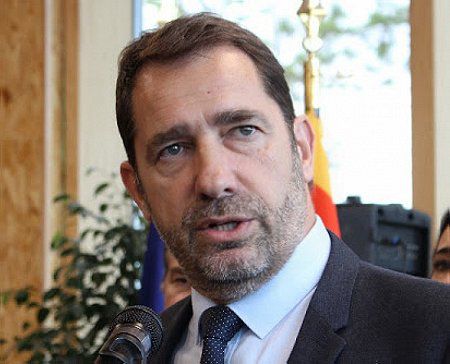 What the President of the Republic announced yesterday, it is not the deconfinement on May 11, it is the confinement until May 11 ", underlined on France Inter Christophe Castaner reminding the French the" discipline "q who must prevail while respecting confinement What the President of the Republic announced yesterday, it is not the deconfinement on May 11, it is the confinement until May 11 ", underlined on France Inter Christophe Castaner reminding the French the" discipline "q who must prevail while respecting confinement
"It is necessary not to project ourselves by saying May 12, it is the month of May and we do what we please and well no, we will have to keep fighting," continued the minister.
Resumption of classes
Jean-Michel Blanquer, for his part, indicated that all the students will not return to school, or classes, "at the same time".
"It is out of the question to have crowded classes in this situation," he said, adding: "We can only imagine small groups. "
Without further details, which will have to be provided by the deconfinement plan to be unveiled within the fortnight, the Minister of National Education simply implied that vocational high schools could be led to resume classes first.
Summer vacation ...
Asked several times about the prospects for deconfinement in this or that area, for example departures on summer holidays abroad, Christophe Castaner stressed that there was "no precise answer at the time" when he was aimed at journalists and listeners.
"I would advise my family not to rush on reservations especially in foreign countries", he only commented, before adding elliptical: "I think there will be summer holidays" .
Longer containment for the most vulnerable
"We will ask the most vulnerable, the elderly with severe disabilities, people with chronic diseases, to stay, even after May 11, confined at least initially," said the President of the Republic , but without specifying who can be described as "vulnerable".
Tests on people with symptoms
Emmanuel Macron has promised that as of May 11, "anyone with symptoms" of Covid-19 can be tested.
The next day, Christophe Castaner added that the possibility of tests for the entire population had been ruled out. "It is necessary to do the tests when there is a risk, he insisted. On the other hand, to imagine that we test all the French every day would perhaps be something that could answer media expectations, but that doesn't meet medical expectations. "
Asked about the interest of systematic tests of the whole population, many carriers of SARS-CoV-2 being asymptomatic, Christophe Castaner took refuge behind the fact that these tests "were not necessarily reliable".
Seen from abroad, we are worried by so many incompetences and lies.
|
|
|
|
| Alyson Braxton for DayNewsWorld |
 |
TERRORIST ATTACK IN ROMAN SUR ISERE IN FRANCE ?
|
| The Drôme was the scene on Saturday April 4, 2020 of a stabbing attack which claimed the lives of two people. Two Sudanese were arrested on Saturday.
A third Sudanese man was arrested Saturday evening in the investigation into the knife attack perpetrated in Romans-sur-Isère by a Sudanese refugee in south-eastern France.
He is "a young Sudanese man who lived in the same home" as the respondent, said the National Counterterrorism Prosecutor's Office. This brings the number of Sudanese men in police custody in this investigation to three. There is the author of the attack born in 1987 and refugee in France since June 2017, a second man presented as "one of his acquaintances"; he was arrested "at the latter's but did not live at home", according to a source close to the investigation. 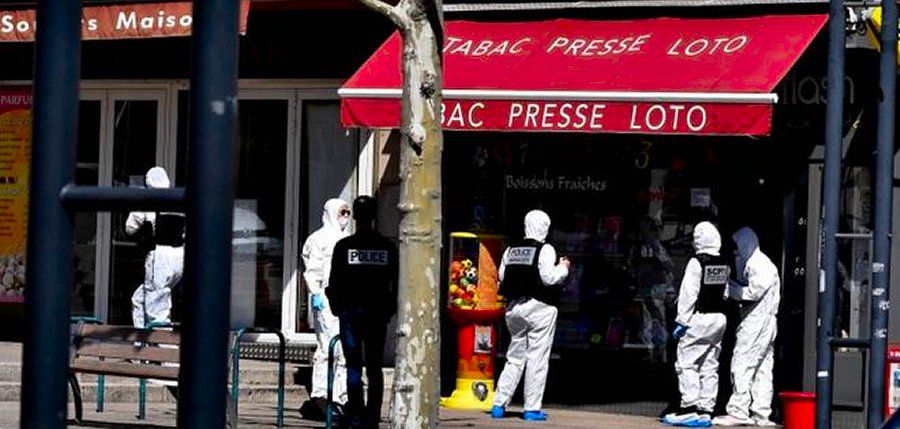
Terrorist track ?
Armed with a knife, the first attacked passers-by on the street and people in a tobacconist, a butcher and a bakery on Saturday morning in Romans-sur-Isère. Two people died, and two injured are in intensive but stable care, a third is in the recovery room and two others have left the hospital, according to the source close to the investigation. .
The perpetrator obtained refugee status on June 29, 2017 and a ten-year residence permit in July of the same year. He is unknown to the French or European police or intelligence services, according to the Public Prosecutor's Office, which has opened an investigation in particular for "assassinations in connection with a terrorist enterprise" and "criminal criminal criminals association".
The assailant first lived in Moras-en-Valloire, in the north of Drôme, "accompanied by state services and Catholic Relief", and "followed a professionalization contract and training in leather goods" , according to a press release from the mayor of the town, Aurélien Ferlay. He would have settled in late 2019 in the center of Romans-sur-Isère.
"Land of unbelievers"
The first elements of the investigation "highlighted a murderous course determined to seriously disturb public order by intimidation or terror", the same source. According to a source close to the investigation, the assailant said "do not remember what happened". His hearing had been delayed a bit because he was very agitated after his arrest. A psychiatric assessment is scheduled for Sunday.
During a search of his home were found "handwritten documents with a religious connotation in which the author of the lines complains in particular of living in a country of unbelievers", according to the prosecution, "a priori" written by him.
The Anti-Terrorism Sub-Directorate (SDAT) and the General Directorate of Internal Security (DGSI) were seized, in addition to the judicial police of Lyon.
France has lived under a constant terrorist threat since the wave of unprecedented jihadist attacks that began in 2015, which left a total of 258 dead after Saturday's attack. |
|
|
|
| Carl Delsey for DayNewsWorld |
 |
MEDICINE SHORTAGE IN FRANCE
|

A visibility of a few hours. After the lack of masks, beds and respirators, caregivers alerted to the shortage of drugs.
In Moselle, this is already a reality. Morphine, curares, propofol…
For certain essential treatments in intensive care, "the reserves are between twenty-four hours and five days", alert 10 elected Moselleans of all stripes in a letter sent yesterday to the Minister of Health.
After the transfer of six patients from Metz to Toulouse today, they make two requests:
1 ° Revise the quota of medicines, to restock the Great East;
2 ° Operate new patient transfers to less affected French regions.
"We need national solidarity," insisted Les Républicains member Fabien Di Filippo, who signed this letter. It is a way of saying to the rest of France:
"Don't abandon the Moselle! ' but also 'Get ready! ".
Yesterday, while Edouard Philippe conceded "very strong tensions" on TF1, a decree authorized the use of drugs intended for veterinary use.
To believe that the French health system is out of breath !
|
|
|
|
| Boby Dean for DayNewsWorld |
 |
MORE THAN HALF OF THE POPULATION LIKELY CONTAMINATED BY CORONAVIRUS
|
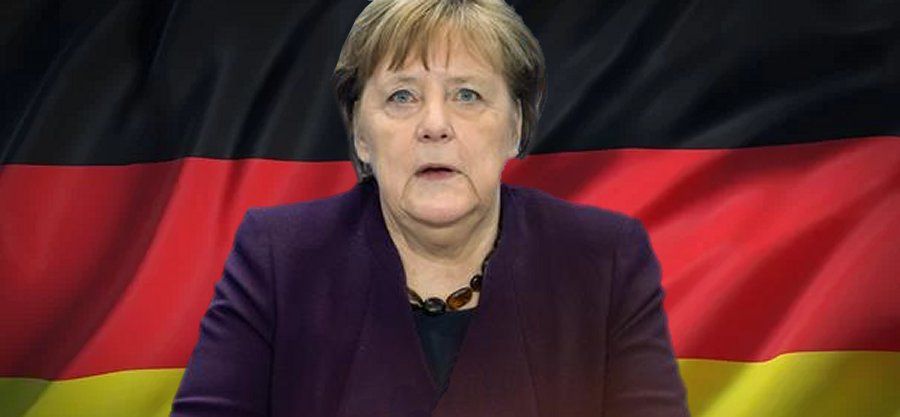
The German Chancellor Angela Merkel behind closed doors on March 10, 2020 at a meeting of the CDU / CSU fraction of the Bundestag had already announced that "60 to 70% of the Germans will be infected by the coronavirus".
The French Minister of Education, Jean-Michel Blanquer, estimated, for his part, this Sunday March 13 on the chain of a colleague that the coronavirus epidemic would "probably" affect more than half of the French population.
"We consider, and here, I am only repeating what the scientists say, that 50 to 70% of the population in the end ends up being contaminated by the virus, and it is moreover that which puts an end to the virus since it creates a form of majority immunity, and therefore the virus dies out by itself. "
With twelve deaths and 839 additional confirmed cases in twenty-four hours, France now has 4,500 confirmed cases of contamination, including 91 fatalities. More than 300 patients are in serious condition and are in intensive care, announced Saturday March 14, Jérôme Salomon while specifying that more than 50% of them are aged under 60 years.
"We have a doubling of the number of cases in 72 hours," he insisted during his daily press briefing, an evolution, he said, which gives an idea of the speed with which the virus is spreading. spreads in France.
Faced with such a speed of spread of the virus throughout the territory and, at the same time, a first round of municipal elections maintained it was time for France to enter phase 3. This Sunday, March 15, 2020, the French are waking up with an extraordinary scenario to counter the epidemic. Have the citizens been too disrespectful of preventive security measures, as the Prime Minister explained ?
The fact remains that the government has decided to close all "non essential" public places since midnight on Saturday.
The prohibition measures announced by Edouard Philippe were also specified by a decree of March 14, 2020 published on March 15 in the Official Journal.
|
|
|
|
| Britney Delsey for DayNewsWorld |
 |
MEASURES AGAINST CORONAVIRUS
INCREASING IN FRANCE | Would France take the same path as Italy ?
Transmission chains of the new coronavirus appear clearly in at least two of its departments, that of Oise, in the north of the country, and in Haute-Savoie, in the east. The number of confirmed cases of contamination has more than doubled, from 18 to 40, of which 26 are currently hospitalized.
It is in the Hauts-de-France region that the coronavirus has developed its highest contamination:
12 people are affected, who were in contact with the teacher of the college Jean de La Fontaine in Crépy-en-Valois, who died at 60 in the night of Tuesday to Wednesday in Paris, or in connection with another man of 55 years old, who is hospitalized in Amiens and is in serious condition. Neither of them had yet traveled to a country at risk. 
Consultation or confinement
In the college of 700 students where the deceased professor worked, classes will not resume until next Thursday. But Monday and Tuesday, middle school students and all staff of the establishment will be able to be received in consultation by doctors, in coordination with the infectiology services of the University Hospital of Amiens and Lille.
"Around 2,000 students" have not returned to school and are currently staying at home because they have returned from an area affected by the coronavirus, a figure likely to increase next week, said the Minister of Education Jean-Michel Blanquer. Jean-Michel Blanquer also assured that a distance education device could be deployed on a large scale if necessary: "We have been preparing for it for several weeks with the Cned".
Finally, some organizations expect the government to make binding decisions. The Synerpa Federation of Aid to the Elderly calls for directives limiting access to retirement homes and senior residences for people from "China, South Korea, Macao, Hong Kong, Singapore and Italy (Lombardy and Veneto)" , "Or anyone who has been in contact with a traveler from these countries".
Measures for companies
For their part, Bruno Le Maire, Minister of the Economy, and Muriel Pénicaud, Minister of Labor, announced exceptional measures to deal with the epidemic of Coronavirus which is considered as "a case of force majeure for the business, employees and employers ”.
The minister announced to companies working for the state that they will not be penalized in the event of delays in delivery. He also announced "possibilities of recourse to partial activity" and "the spreading of social and fiscal charges for the companies which will need it". Local communities will have to do the same.
The Minister of Labor, Muriel Pénicaud, meanwhile, announced the posting of a question and answer online on the rules to follow for companies and employees. It underlines in particular that the employer can set up teleworking without the employee's agreement, contrary to the usual practice, or modify the dates of leave already set. The Ministry of Health also recalls that "the employer is responsible for the health and safety of the employees of his company in accordance with the provisions of article L. 4121-1 of the Labor Code".
It also confirmed that the parents of confined children can be "put on sick leave" without a waiting day and with coverage for daily social security benefits.
For their part, large companies are multiplying the precautions: if some are content to restrict travel to Asia, L'Oréal has just implemented a travel ban for the entire month of March for its employees.
No cancellation a priori for events
For his part, the new Minister of Health, Olivier Véran, agreed with his counterparts from the countries bordering Italy, Tuesday, to exchange information on the situation in their respective countries. The ministers undertook to harmonize the alerts sent to travelers and not to cancel a priori cultural and sporting events. The goal is not to create panic.
The message is already struggling to get across, however. Wednesday, the arrival of Turin's Juventus supporters in Lyon was criticized by opposition leaders, while the same day, we learned of the postponement of the Ireland-Italy rugby match scheduled for March 7 in Dublin in the as part of the Six Nations Tournament.
The arrival of Turin supporters is "not reasonable", judged the president of the RN, Marine Le Pen, and "not consistent", said the socialist Ségolène Royal. And in Nice, the mayor LR Christian Estrosi decided to shorten the carnival which was planned until Saturday.
|
|
|
|
| Alyson Braxton for DayNewsWorld |
 |
THE SAME MACRONIAN TIME TO TREAT
FROM ISLAMIC COMMUNITY TO WATCH MUNICIPALS | | To launch the umpteenth debate on "communitarianism", "republican reconquest" and "Islamic separatism", Emmanuel Macron is currently in Mulhouse, more precisely in the popular district of Bourtzwiller. A choice that is not trivial ...
"Republican reconquest districts" (QRR)
Populated by more than 15,000 inhabitants, Bourtzwiller was chosen for this visit because the neighborhood has "real difficulties", said Emmanuel Macron, citing the presence of "associations which advocated leaving the Republic", "deschooling, external influences ”...
It is one of the 47 “Quartiers de reconquête républicaine” (QRR) in France, a system created in 2018 to combat crime and trafficking.
"The Republic must keep its promises"
"The Republic must keep its promises," says Emmanuel Macron, evoking communitarianism in the face of the inhabitants of a sensitive neighborhood in the big city of Haut-Rhin. "We must fight against separatism because when the Republic does not keep its promises, others try to replace it", he continued, stressing " that we must fight against discrimination, we must put the meritocracy all over ".
The President of the Republic therefore opens with this "field visit" a sequence dedicated to this politically sensitive issue in the run-up to municipal elections.
The head of state aims to "appease" and not "to put society under tension", according to those around him.
But will the Head of State speak of the An-Nour mosque, the great An-Nour mosque, under construction in Mulhouse, which is partly funded by Qatar?
"The President of the Republic, however, does not want to go into the veil, which divides his majority," said a government source. 
The famous "At the same time" -
“Islam is going through a crisis with a radicalization of some and very hard movements which want to go towards political Islam. I'm just saying that, in our country, political Islam has no place, "he said, accompanied by several members of the government including Christophe Castaner (Interior), Julien Denormandie (City and Housing), Gabriel Attal (Youth) and Roxana Maracineanu (Sports).
"We must fight against separatism because, when the Republic does not keep its promises, others try to replace it" And at the same time, "we must fight against discrimination, we must put meritocracy everywhere", announced Emmanuel Macron .
He thus defended the “at the same time” of his strategy, based on two pillars: that, more coercive, on the financing of places of worship from abroad or the education of children in non-contract schools; the second, "positive" which aims at the "republican reconquest of the districts which need it" based on more present and efficient public services and on the associative network.
But "Where are the acts? "
Since the start of the five-year term, right-wing oppositions have pressed Emmanuel Macron to assert his policy on this subject, accusing him not without reason of laxity. The debate has further hardened in recent months, fueled by heated controversy over the presence of communal lists at municipal level or over the wearing of the veil by a mother accompanying a school trip.
"Emmanuel Macron will do what he has done best for three years: he will give a speech, but where are his actions? "Denounces the leader of the senators LR Bruno Retailleau. Number 2 of LR Guillaume Peltier calls for "strong and clear acts because we are losing the war against political Islam".
The spokesperson of the RN Sébastien Chenu for his part castigates "big strings completely corny which are, just before the elections, to ignite the subjects which annoy in the country and which will especially not be treated".
|
|
|
|
| Garett Skyport for DayNewsWorld |
 |
FRANCE A REFORM OF RETIREES
NO BRUTALITY
|
In order to maintain the vagueness of his pension reform, Édouard Philippe tried to take over the file. Eight days of a day of mobilization against this reform, the French Prime Minister says "more than ever determined" to implement a new system by points and universal but with amenities. 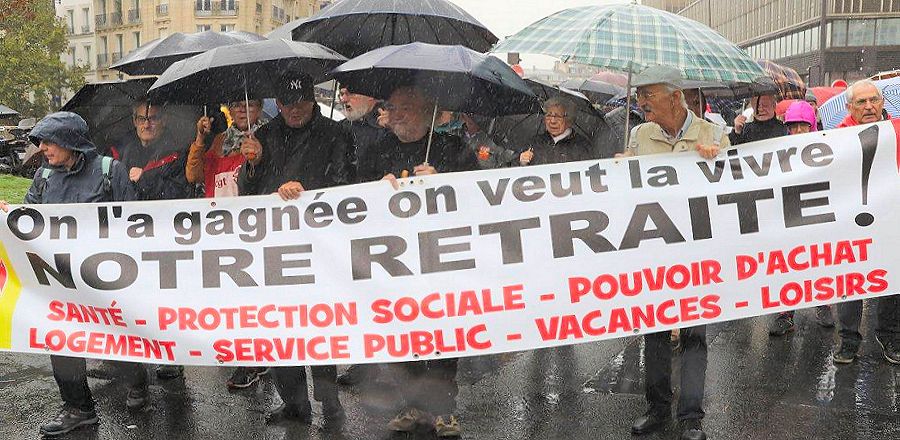
"We will not compromise on the target but we will take the time it takes to get there," said the Prime Minister. We will put an end to the special diets, but we do not want to stigmatize those who are there today. In other words, universality yes, brutality, no.
Between "determination" and "appeasement". This is the line that wanted to adopt this Wednesday Edouard Philippe after the consultations he had with the social partners on pension reform. This, after weeks where the words of the executive alternated between great flexibility to consider "the clause of the grandfather" and haro on special diets "of another time".
Find the right cursor
What is not negotiable for Édouard Philippe is the change of system. What is still negotiable, on the other hand, is the "transition", that is, the date of entry into force of this new system. The prime minister said it was "open" Wednesday that the first generation concerned by the pension reform is no longer the generation 1963. "I do not believe that an immediate and brutal transition is acceptable and legitimate, and I do not believe that a slow transition to the point of returning to decades the effect of reform is timely, "continued the head of government He also slipped that the transition mechanisms must be equitable between the regimes ... while taking into account "the history of public enterprises", where the transitions will certainly be longer.
Rights granted to unions
He assured that he heard "the importance" of the CFTC family rights and committed to guaranteeing them (the question of the eight quarters of career bonus for children already born is particularly on the table, as well as the 10 pension bonus for families with three children), in the wake of a controversy over the impact of the reform for mothers With regard to the CFDT, he highlighted the issue of the work of seniors and that of hardship, which will have to be extended to the public service or will have to evolve for night work (for the health care staff in the hospital, in particular). On the employment of seniors, he - form of pressure - says wait for solutions Medef and CPME. The report Bellon-Soussan-Mériaux, expected in December, should indeed be made in January.
At the attention of Unsa, Edouard Philippe promised to write "in the law guarantees for teachers for example". And for U2P, he promised to continue to discuss the situation of the liberal professions. Finally, the Prime Minister has reiterated that social partners such as Parliament will have an important place in the future governance of the system.
The Prime Minister has thus occupied the ground since the beginning of the week to do what he calls "pedagogy" but above all, to show the French that the executive is already preparing after December 5.
The after December 5th
In communication, this is called a sequence, and this sequence is Emmanuel Macron who launched it after his trip to Amiens late last week with a goal: to try to show that he is not paralyzed while waiting for the December 5th strike. A Edouard Philippe to launch in turn a tone of matamore. "I do not feel like someone who is paralyzed, usually people say I'm determined, sometimes they say I'm calm. I recognize myself quite well in these two qualifiers, "he explained.
The head of the government specified that the main lines of the reform will be presented around mid-December: Jean-Paul Delevoye would give his conclusions of the consultations on December 9 or 10 before he himself gives the arbitrations of the government before Christmas for a bill presentation in early 2020. An acceleration of the timetable to try to remove doubts about the executive's willingness to carry out a major reform.
One way also to allow yourself the opportunity to make ads likely to defuse the movement while trying to sell a "refoundation" of "social justice", a "system common to all French with the same rules for all.»
|
|
|
|
|
|
|
|
| Garett Skyport for DayNewsWorld |
 |
GERARD DARMANIN REVIEW OF THE NON-PLACE
FOLLOWING A COMPLAINT FOR RAPE
|
|
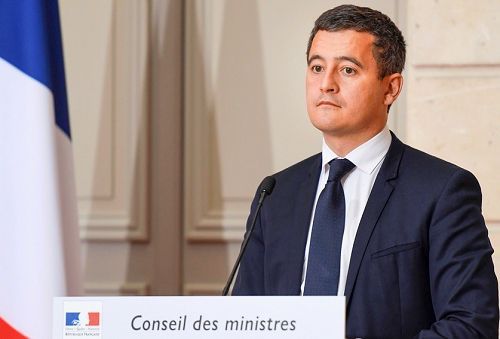
The Court of Cassation announced Thursday that the dismissal, following a complaint for rape, which benefited the Minister of Action and Public Accounts, Gerald Darmanin, in 2018, will be reviewed.
Indeed, an examining magistrate refused on 16 August 2018 to restart the investigations after a dismissal by the Paris prosecutor of the initial complaint of Sophie Patterson-Spatz. The latter had appealed this decision, but her appeal had been judged out of time by the Paris Court of Appeal.
But the highest court of the judiciary on Thursday said that "the proof of the notification of the order (no place, Ed) was not established, the time for appeal had not begun to run As expected on the day of the decision, made in the middle of the summer. Consequently, the Court of Cassation ordered the investigating chamber to reconsider Mrs Patterson-Spatz's appeal against this dismissal.
Gérald Darmanin, 37 years old, is accused by this 46-year-old woman of having raped her in 2009. At the time, she spoke to the elected representative, who was then in charge of the legal affairs department of the UMP. , to try to cancel a 2004 conviction for blackmail and malicious appeals against a former mate. According to her, Mr. Darmanin would have shown him his support to the Chancellery, in exchange for sexual favors.
At the height of this affair, a second accuser, a resident of Tourcoing (North), whose minister was mayor from 2014 to 2017, had lodged a complaint of "abuse of weakness", claiming that the elected representative had asked her for sexual favors. in exchange for housing. This procedure was also dismissed by the Paris prosecutor's office in spring 2018.
Benjamin Griveaux, still spokesman of the government, had excluded any resignation of the tenant of Bercy: "the questioning (...) against Gerald Darmanin is not an indictment, so we must leave the justice do its job.»
|
|
|
|
|
|
|
|
| Kate White for DayNewsWorld |
 |
BLACK DAY IN PUBLIC HOSPITALS IN FRANCE
|
|
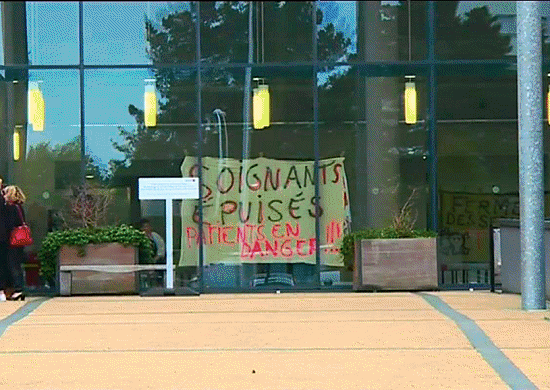
Black day in public hospitals. All hospital staff, from doctors to caregivers, deans to students, is called Thursday, November 14 to demonstrate throughout France, to demand more resources and staff.
It is a question of putting pressure on the government, which is expected to announce a long-awaited "support plan" in the near future.
A widespread challenge
Rarely, all unions in the hospital public service have rallied, especially the CGT, FO and CFDT, which are struggling so much to agree on other topics at the national level.
In practice, Snphare anesthetists rely on "historic mobilization", while the gynecologists of Syngof "prepared the strike by avoiding any non-emergency care programming". At AP-HP, which has 37 hospitals in Île-de-France, 80% of all paramedics (nurses, caregivers) should declare themselves strikers, even requisitioned ..
Even the discrete chiefs of service have started a "coding strike". This is the case in Marseille and the AP-HP, where 380 services are affected by this practice which penalizes the finances of the 39 hospitals of the group.
The claims have not changed since the start of the emergency crisis eight months ago: the recovery of hospital debt estimated at nearly 30 billion euros salary increase of 300 euros, increase in staff and reopening of beds removed.
Health Minister Agnès Buzyn has already failed with her plan of rebuilding in September and the premium of 100 € to come out of this conflict which lasts for eight months, so that the demonstrators intend to be received at Matignon.
|
|
|
|
|
|
|
|
| Jaimie Potts for DayNewsWorld |
 |
There are no translations available.
11 NOVEMBRE INAUGURATION D'UN MONUMENT AUX
SOLDATS MORTS EN OPERATION EXTERIEURE
|
|
 A l'occasion des commémorations du 11 novembre, Emmanuel Macron inaugure lundi à Paris un monument pour les 549 militaires « morts pour la France », en opérations extérieures depuis 1963. A l'occasion des commémorations du 11 novembre, Emmanuel Macron inaugure lundi à Paris un monument pour les 549 militaires « morts pour la France », en opérations extérieures depuis 1963.
Le mémorial est une haute sculpture de bronze dans un espace tranquille du parc André-Citroën. Il représente six soldats de chaque armée - cinq hommes et une femme portant un cercueil invisible.« Matérialiser le cercueil par le vide est la meilleure forme symbolique pour rendre hommage à nos soldats disparus », explique le sculpteur, Stéphane Vigny.
À côté, sur un mur,on peut lire les noms de 549 militaires, dont deux femmes, tués par l'ennemi ou morts à la suite de blessures de guerre, de maladie ou d'accident au cours des « Opex », ces interventions des forces militaires françaises menées en dehors du territoire national depuis la fin de la guerre d'Algérie. Un « mur des noms » qui permettra à chaque famille de soldat mort pour la France « de se recueillir, passer un moment paisible », la secrétaire d' Etat aux anciens combattants Geneviève Darrieussecq.
Ces représentants de « la quatrième génération du feu », comme l’appelle l’armée, sont morts sur 17 théâtres d’opération, dont 141 au Liban, 129 au Tchad, 85 en Afghanistan et 78 en ex-Yougoslavie.
« La France n'oublie pas ceux qui sont morts pour elle. Elle n'oublie aucun de ses enfants. C'est notre devoir et notre honneur », avait déclaré le chef de l'Etat le 13 juillet 2018 dans un discours aux armées.
|
|
|
|
|
|
|
|
| Carl Delsey pour DayNewsWorld |
 |
TAKING CONTROL OF IMMIGRATION IN FRANCE
|
| The executive wants at all costs to occupy the ground on immigration setting up the future presidential debate - much desired by the majority - between Emmanuel Macron and Marine Le Pen.
"We want to regain control of our migration policy," said the Prime Minister on Wednesday, November 6 in twenty measures on its migration policy. 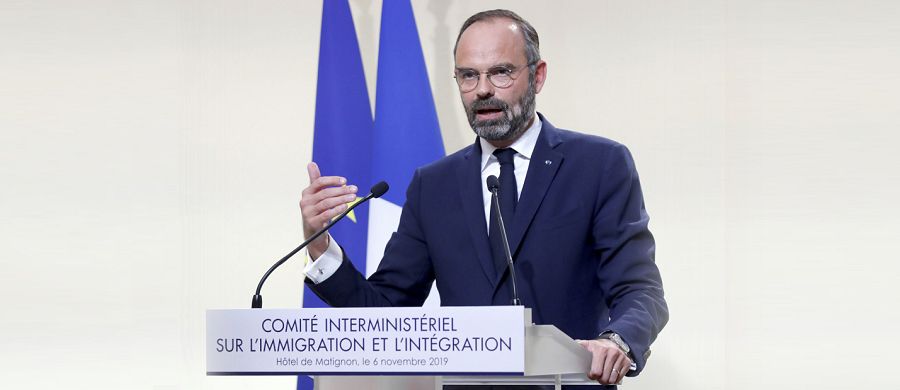
The government, however, has been content with simple announcements balancing, wanting to please his right as much as his left. And nothing new: for most measures announced, even in force.
In fact, the Prime Minister first attacked "medical tourism" by mentioning measures already announced by Agnès Buzyn a few weeks ago. Asylum seekers will now have to wait three months before they have access to universal health coverage (PUMa) when today they have access to it as soon as their application is registered.
The duration of the maintenance of the PUMa should also be reduced for failed asylum seekers from twelve to six months. In the same vein, for undocumented foreigners who can now benefit from state medical aid (AME) after three months of presence on the territory, restrictive measures will be taken.
But to counterbalance this logic of closure, the government plans to revive an economic immigration policy, a measure widely demanded by the majority. Also Muriel Pénicaud, Minister of Labor, she spoke of "quotas" or "numerical objectives" of welcoming newcomers in professional networks in tension whose list, which dates from 2008, will be updated this summer. But this measure should have little impact ...
By seizing sovereign subjects such as immigration, the executive tries to divert sensitive social topics, including that of pension reform, while being in the perspective of a duel with the extreme right during the presidential election of 2022.
|
|
|
|
|
|
|
|
| Alyson Braxton for DayNewsWorld |
 |
There are no translations available.
ROUEN INCENDIE USINE LUBRIZOL LA DEFIANCE
ET LA COLERE NE CESSENT DE MONTER
|
|
Malgré les propos qui se sont voulus rassurants, tenus hier au soir, 30 septembre 2019, par le Premier Ministre Edouard Philippe, la population de l’agglomération rouennaise est au bord de la crise de nerf.
Cinq cent (500) personnes étaient massées hier au soir devant les locaux où se tenait une réunion organisée à l’initiative du Préfet ,devant les élus eux aussi inquiets et demandeurs d’informations précises.
La foule hurlait : « on veut savoir » !
Il faut dire que depuis plusieurs heures les choses se sont singulièrement compliquées, cette évolution étant due aux contradictions successives de la communication gouvernementale .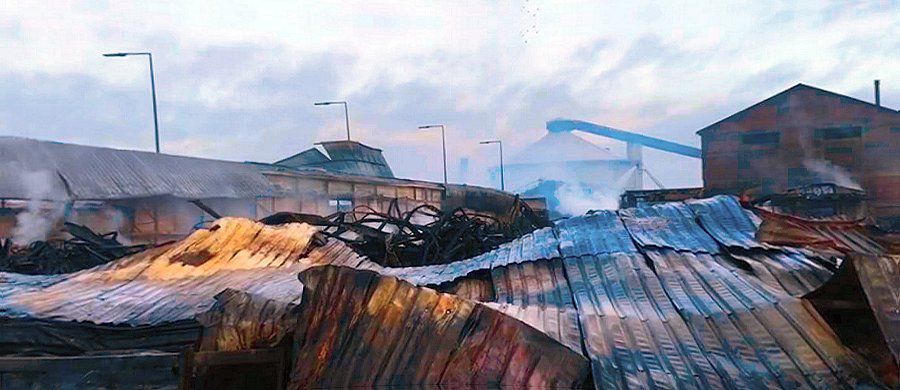
Hier, le PDG de LUBRIZOL qui déclarait qu’il n’y avait aucune activité humaine dans la nuit du 25 au 26 septembre dans le secteur du stockage, a fait savoir simultanément qu’en s’appuyant sur des vidéos et témoignages de riverains, il avait déposé plainte.
Il faut convenir que non seulement la zone de stockage de Lubrizol a brûlée mais que le feu s’est étendu aussi à un entrepôt voisin, appartenant à la Société SCMT (Société Commerciale de Magasinage et de Transports).
Ce qui est sûr, en tout état de cause, c’est que le nuage de fumée s’est répandu bien au delà de l’agglomération rouennaise, jusque dans les Hauts de France, peut-être même au-delà de la frontière belge.
La campagne environnante a été si sérieusement touchée par les retombées de suies, que décision a été prise d’interdire aux agriculteurs de vendre leurs produits, conduisant par suite le Ministre de l‘agriculture à promettre des indemnités de réparations. Qui va payer ? Pour l’instant ! On ne sait pas !
Les informations contradictoires recueillies heure après heure par les élus locaux, directement concernés et en charge de leurs concitoyens, ont mis ces derniers en colère, à la sortie de la réunion préfectorale d’hier soir certains n’ont pas hésité à déclarer que l’on se retrouvait en face du Syndrome de Tchernobyl ( le nuage s’était soi-disant arrêté aux frontières) ou encore devant celui plus récent de l’incendie de Notre-Dame de Paris dont on ignore encore tout des résultats de l’enquête, toujours inachevée après l’incendie spectaculaire du 15 avril 2019
Pour contrecarrer le silence des autorités: Corinne Lepage, Présidente de Cap 21, avocate spécialisée dans le droit de l’environnement et ancienne ministre de l’Environnement sous les gouvernements Juppé 1 et Juppé 2 (Présidence Jacques Chirac).
A la demande de l’association « Respire » elle vient de déposer, dans le cadre d’une procédure d’urgence, un référé dont l’objectif est de savoir quels sont exactement les produits qui ont brûlé dans l’incendie, quels sont les polluants qui ont été découverts. Selon elle, il se pourrait que des métaux lourds soient découverts dans les suies qui sont retombées sur le sol, dans les prés et les champs et dans les habitations et leur environnement. Elle s’appuie pour lancer cette procédure sur diverses informations :
- Réalisations de travaux d’extension, en juin 2019, dans la zone de stockage de Lubrizol où l’incendie s’est développé rapidement
- Informations qui n’auraient pas été données à temps en raison d’une simplification excessive des procédures de contrôle initiées par Emmanuel Macron et ses équipes.
Ajoutons, parallèlement qu’une enquête parlementaire a été demandée par des élus nationaux
Pour ne rien arranger, mais aussi pour aider encore mieux à comprendre le niveau de défiance et de colère des habitants de Rouen, nous rappellerons que l’entreprise Lubrizol, qui est installée depuis 1954, (et qui vient d’être mise à l’arrêt) appartient au groupe de Chimie américain Lubrizol, lui-même propriété de Berkshire Hatthaway, holding du milliardaire Warren Buffet aujourd’hui âgé de 87 ans.
A 80 ans, Warren Buffet, troisième fortune mondiale selon le magazine Forbes (85 milliards de dollars) s’est offert Lubrizol, pour 9 milliards de dollars.
L’homme, qui n’a jamais investi dans les technologies internet, aime les sociétés qui rapportent de l’argent de façon quasi mécanique.
Selon le milliardaire lui-même, lorsqu’il a fait cette acquisition « il avait le fusil de chasse rechargé et le doigt sur la gâchette le démangeait ».
Son choix est tombé sur Lubrizol « qui vend des composants chimiques aux industries du bâtiment, aux industries cosmétiques, des lubrifiants pour les moteurs de voitures et de bateaux, comme Coca Cola vend son sirop (sic), en imposant ses prix à ses clients car sa technologie n’est pas imitable ».
Ces déclarations risquent de redonner du corps à l’idéologie de ceux qui pensent que le capitalisme nuit à la santé…..
|
|
|
|
|
|
|
|
| Clara Mitchell pour DayNewsWorld |
 |
GREAT MOBILIZATION AGAINST REFORM
RETIREMENTS
|
| The Prime Minister wanted reassurance on the construction site of the retreats. But hardly lost, three days after the unprecedented strike of the RATP agents of other categories beat the pavement this Monday, September 16 in Paris, between Opera and Nation to oppose the reform.
"For the first time in the social history of this country, lawyers, healthcare professionals and employees of the air transport together will march together to denounce the project of capturing without summation of their autonomous retirement plans," he said. the collective "SOS Retraites" created by these professions to defend the specificity of their schemes. 
At the forefront of the mobilization is the National Council of Bars (CNB): this event is coupled with a strike hearings with almost all 164 French bars "mobilized" according to the Conference of the bâtonniers. Almost everywhere, the lawyers decided not to plead any case and to request the referral of the lawsuits.
These "unprofessional" professions go out on the streets to defend their "self-governing" retirement systems against the "universal system" desired by the executive. "The common point is that each of us has autonomous plans," says Ghislaine Sicre, president of Convergence Nurse (CI).
The "universal system" promised by the head of state must indeed result in a sharp rise in contributions "that many of us can not support," she says. regimes that are all bound to merge, in the long run, into the universal system promised by Mr. Macron.
This scenario involves a "collection of reserves" accumulated by the various funds involved with significant sums involved. At lawyers, it is two billion euros. As for the Carpimko - the fund of paramedical professions - the amounts amounted to 3.4 billion "We do not want a hold-up takes place," says the president of CI.
Moreover for several professions the contribution rate could be higher for less pension: thus lawyers to whom it should double. Similarly in paramedical professions where contributions are expected to increase by fourteen points which will bring the rate of load to 60%. To Mrs. Sicre to conclude "In the end, there will be more punctures for less pensions. "
To curb the nascent revolt, High Commissioner Jean-Paul Delevoye will meet "by October 15" the representatives of the 42 regimes will be extinguished, to "draw up an inventory" and "set a timetable of work ".
|
|
|
|
|
|
|
|
| Alyson Braxton for DayNewsWorld |
 |
There are no translations available.
DES RASSEMBLEMENTS DE GILETS JAUNES
AVEC TRES PEU DE JAUNE FLUO
|
|
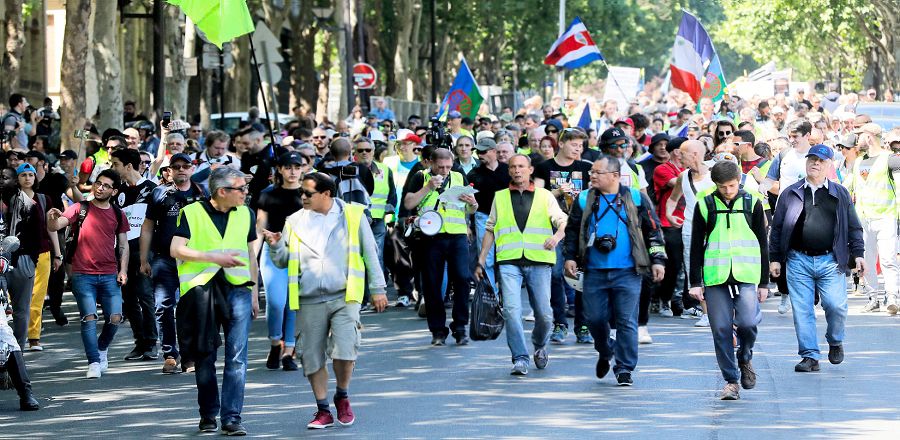 Pour leur 44e semaine consécutive de mobilisation, plusieurs groupes de Gilets jaunes se sont donnés rendez-vous dans la ville de Nantes pour une manifestation nationale. La cité des ducs n’a pas été choisie au hasard. Pour leur 44e semaine consécutive de mobilisation, plusieurs groupes de Gilets jaunes se sont donnés rendez-vous dans la ville de Nantes pour une manifestation nationale. La cité des ducs n’a pas été choisie au hasard.
Elle est est le fief de l’ancien ministre, François de Rugy, qui a dû démissionner après une série de révélations de Mediapart. C'est également une ville marquée par la mort de Steve Maia Caniço, 24 ans, qui avait disparu le soir de la Fête de la musique après une intervention policière controversée et dont le corps avait été retrouvé cinq semaines plus tard dans la Loire.
Des heurts à Nantes avec les blackblocs
«Contre le pouvoir en place, manifestation», peut-on lire sur les affiches ornées d’un homard en référence aux fastueux dîners organisée par l’ancien minnistre de la Transition écologique.
Dans un communiqué, le collectif citoyen Justice pour Steve a appelé à se joindre à la manifestations des Gilets jaunes, ce 14 septembre 2019, «contre un pouvoir qui utilise la violence policière pour réprimer les mouvements sociaux, les réfugiés ou les rassemblements festifs de jeunes [...]
Face à la violence et au cynisme de l’État... Pour dire non à une police qui ressemble de plus en plus souvent à une milice d’extrême droite».
La situation a rapidement dégénéré. Dans le cortège, des manifestants ont scandé des messages contre la police et plusieurs commerces et abribus ont été vandalisés.
Des poubelles ont été incendiées. Des projectiles ont été tirés contre la police qui a répliqué par du gaz lacrymogène. Au total, 30 interpellations ont eu lieu à Nantes dans la journée.
Des manifestations ont eu lieu dans plusieurs autres villes.
À Paris, ce sont environ 500 personnes qui ont manifesté dans le calme entre la porte de Choisy et le boulevard de Grenelle, tandis qu'à l'aéroport d'Orly une centaine de «gilets jaunes» ont manifesté contre la privatisation d'Aéroports de Paris (ADP). A Lyon, 400 manifestants se sont rassemblées malgré l'interdiction de la préfecture.
Les forces de l'ordre ont procédé à 9 interpellations pour « attroupements illégaux en vue de commettre une infraction et au port d'armes illégal », selon la préfecture.
Environ 700 personnes, selon la police, ont défilé à Nancy, plusieurs centaines de personnes à Toulouse, Marseille, Montpellier ou 150 à Bordeaux.
Si peu de manifestants arboraient le gilet jaune, le gouvernement n'en sait pas moins qu'il faut compter désormais avec l'opinion pour mener à bien ses réformes.
|
|
|
|
|
|
|
|
| Britney Delsey pour DayNewsWorld |
 |
There are no translations available.
LE MIS EN EXAMEN RICHARD FERRAND
GARDE LE PERCHOIR
|
|
Le président LREM de l'Assemblée nationale a été mis en examen, dans la nuit du mercredi 11 au jeudi 12 septembre 2019 à Lille (Nord), pour « prise illégale d'intérêts » dans l'affaire des Mutuelles de Bretagne. Il a été entendu par trois juges d'instruction lors d'un "interrogatoire de première comparution" au tribunal de grande instance de Lille, où l'affaire a été dépaysée
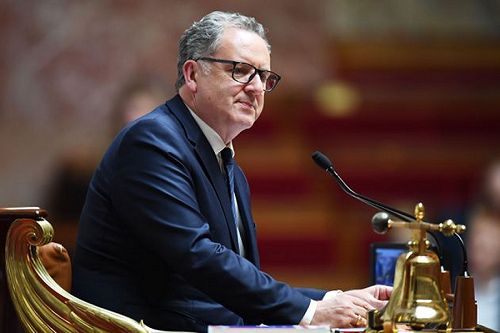 Sandrine Doucen entendue à son tour, la compagne de Richard Ferrand est entendue, jeudi, par les juges lillois en charge du dossier. Sandrine Doucen est au cœur de l'affaire. Sandrine Doucen entendue à son tour, la compagne de Richard Ferrand est entendue, jeudi, par les juges lillois en charge du dossier. Sandrine Doucen est au cœur de l'affaire.
En effet, alors que Richard Ferrand était directeur général des Mutuelles de Bretagne, celles-ci ont voulu louer des locaux commerciaux à Brest.
Entre trois propositions, elles ont choisi celle d'une société civile immobilière appartenant à Sandrine Doucen.
Quelle est vraiment cette affaire ?
Les faits remontent à 2011, quand Richard Ferrand était directeur général des Mutuelles de Bretagne. L'organisme à but non lucratif recherchait des locaux commerciaux à Brest pour ouvrir un centre de soins.
Trois propositions: l'établissement choisit une société civile immobilière, la Saca pour un loyer annuel de 42.000 euros annuel.
Mais petit problème : Saca, qui propose un « petit » loyer appartient à la compagne de Richard Ferrand, Sandrine Doucen, avocate. Ce serait Richard Ferrand lui-même qui aurait quelque mois plus tôt acheté les locaux concernés. Il aurait notamment signé en décembre 2010 une promesse de vente conditionnée à la conclusion d'un bail commercial entre une SCI, devant se substituer à lui, et les Mutuelles de Bretagne. De plus la promesse de location aurait permis à sa compagne d'obtenir un prêt bancaire.
Offre de Sandrine Doucen la mieux-disante ? La proposition de Mme Doucen était certes la moins chère MAIS sans prendre en compte le coût important des travaux pris en charge par les Mutuelles par la suite soit la bagatelle de 184 000 euros.
On a l’impression de nager en eaux troubles dans le rôle joué par Richard Ferrand autour des Mutuelles de Bretagne.
Précisons qu'il a été directeur général des Mutuelles de Bretagne de 1998 à 2012, avant d’y conserver un poste de chargé de mission de 2012 à 2017. ..
La SCI Saca appartient aujourd’hui à Sandrine Doucen (99 % des parts) et à la fille qu’elle a eue avec Richard Ferrand (1 %). Les loyers de ces locaux brestois ont permis à la SCI d’acquérir en 2013 un appartement de 353 000 euros à Paris. Une belle opération immobilière !
Juste après l'annonce de sa mise en examen, Richard Ferrand a annoncé être « déterminé à poursuivre [sa] mission à la tête de l'Assemblée ».
Il a également assuré « rester serein sur l'issue de la procédure, au regard du classement sans suite de l'ensemble des griefs de la première plainte » en octobre 2017, « d'autant plus qu'aucun élément nouveau n'a été versé à ce dossier dans lequel il n'y a ni préjudice ni victime ».
Jérôme Karsenti, avocat de l'association anticorruption Anticor qui s'est portée partie civile dans ce dossier, a expliqué : "Pour nous, Richard Ferrand doit partir, en raison de l'équilibre des pouvoirs et de la manière dont les institutions doivent fonctionner". Il a également jugé que "cette mise en examen [allait] perturber les institutions".
Jamais un président de l'Assemblée nationale n'avait été mis en examen !
|
|
|
|
|
|
|
|
| Alyson Braxton pour DayNewsWorld |
 |
There are no translations available.
L'ADOPTION DEFINITIVE DU PASSE SANITAIRE EN FRANCE
|
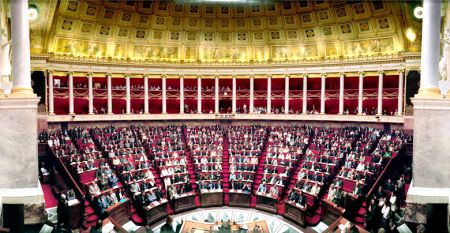 A l'issue d'un ultime aller-retour entre l'Assemblée nationale et le Sénat, le Parlement a adopté ce dimanche 16 janvier le projet de loi controversé transformant le passe sanitaire en passe vaccinal à partir de 16 ans, que le gouvernement veut voir entrer en vigueur au plus vite face au « raz-de-marée » du Covid-19. A l'issue d'un ultime aller-retour entre l'Assemblée nationale et le Sénat, le Parlement a adopté ce dimanche 16 janvier le projet de loi controversé transformant le passe sanitaire en passe vaccinal à partir de 16 ans, que le gouvernement veut voir entrer en vigueur au plus vite face au « raz-de-marée » du Covid-19.
Les derniers ajustements.
Outre l'obligation de présenter une preuve de vaccination dans les lieux publics et les transports interrégionaux, les parlementaires ont voté la possibilité pour les restaurateurs de vérifier l'identité du détenteur du passe vaccinal en cas de doute. Par ailleurs, le dispositif ne s'appliquera pas aux Français âgés de 12 à 15 ans.
L’article 1er prévoit qu’un justificatif de statut vaccinal pour le Covid-19 sera demandé aux personnes d’au moins 16 ans, en lieu et place de l’actuel pass sanitaire, pour accéder aux activités de loisirs, aux restaurants et débits de boisson (à l’exception de la restauration collective), aux foires, séminaires et salons professionnels et aux transports publics interrégionaux (avions, trains, cars). Dans le cas des transports, une exception est prévue: pas besoin d’un pass pour « motif impérieux d’ordre familial ou de santé » -un proche mourant par exemple- sous réserve de présenter un test négatif, « sauf en cas d’urgence ».
Les salariés des secteurs concernés auront l’obligation, sous conditions, de disposer d’un tel pass. Un « justificatif d’engagement dans un schéma vaccinal » pourra être suffisant, le temps de recevoir les doses requises.
Un simple pass sanitaire (test Covid négatif, attestation de vaccination complète ou certificat de rétablissement) restera valable pour les plus de 12 ans afin d’accéder aux établissements de santé et aux services médico-sociaux, sauf urgence, que ce soit pour les malades ou leurs accompagnants.
Et les mineurs de 12 à 15 ans resteront soumis à l’obligation de présenter l’actuel pass sanitaire pour l’accès aux activités de loisirs, restaurants et bars, foires ou transports publics interrégionaux.
Les organisateurs de meetings politiques auront la possibilité d’exiger un pass sanitaire aux participants.
Pour les autres salles et les stades, les règles d’accès du public pourront prendre en compte « la situation sanitaire » et les « caractéristiques » de ces lieux, notamment leur capacité d’accueil. Les grands rassemblements sont limités actuellement à une jauge uniforme de 2000 personnes en intérieur, 5000 en extérieur.
Pour obtenir le nouveau pass vaccinal, il faudra un schéma complet (deux doses ou une seule, en fonction du vaccin). À partir du 15 février, il faudra effectuer une dose de rappel quatre mois -et non plus sept- après sa deuxième dose pour que le pass reste valable.
Dans certaines circonstances à définir par décret, et au nom de “l’intérêt de la santé publique”, il pourra être exigé la présentation cumulée d’un justificatif de statut vaccinal et d’un test négatif.
Le pass vaccinal doit entrer en application dans les prochains jours mais les préfets pourront adapter la date, en particulier en Outre-mer où le taux de vaccination est plus faible.
Lutte durcie contre la fraude
- Contrôles: outre les forces de l’ordre, les gérants des lieux et activités soumis au pass, tels les cafetiers et restaurateurs, pourront vérifier ces pass mais dans des conditions très encadrées. Ainsi, « lorsqu’il existe des raisons sérieuses de penser que le document présenté ne se rattache pas à la personne qui le présente », il pourra être demandé « un document officiel comportant sa photographie ». - Faux
pass: la détention elle-même de plusieurs faux pass sera réprimée de
cinq ans d’emprisonnement et 75.000 euros d’amende.- “Repentir”: sous
la condition de s’engager dans un parcours vaccinal, il pourra ne pas y
avoir de sanction pour faux pass.
- L’absence de contrôle du pass par l’exploitant d’un établissement recevant du public sera passible dès le premier manquement d’une amende de 1000 euros, contre une sanction à partir du troisième manquement actuellement.
- Les entreprises ne jouant pas le jeu du télétravail pour lutter contre l’épidémie pourront être sanctionnées d’une amende administrative allant jusqu’à 500 euros par salarié, dans la limite de 50.000 euros.
Entrée en vigueur
Deux recours différents au Conseil constitutionnel sont prévus à gauche, pour garantir le respect des « libertés fondamentales », ce qui va désormais repousser de quelques jours la promulgation.
Dans un baroud d’honneur, les députés LFI ont ainsi défendu une motion de rejet préalable contre un projet de loi imposant « un tri numérique » et créant « une sous-citoyenneté » selon eux.
Le Conseil constitutionnel, qui a en temps normal un mois pour se prononcer, pourrait là devoir le faire dans les huit jours maximum si le gouvernement estime qu’il y a urgence. Ce qui sera le cas ici. Selon des informations du Parisien, l’exécutif estime que les Sages devraient rendre leur avis le 20 janvier, ce qui amènerait une promulgation le lendemain, avec des décrets d’application dans le week-end suivant.
Outre-mer
Le projet de loi programme l’état d’urgence sanitaire jusqu’au 31 mars en Martinique, à La Réunion, en Guadeloupe, en Guyane, à Mayotte, Saint-Barthélemy et Saint-Martin. Et si ce régime d’exception, qui permet reconfinement ou couvre-feu, était déclaré sur un autre territoire ultra-marin avant le 1er mars, il serait automatiquement prolongé jusqu’à la fin mars également.En France métropolitaine, c’est un régime transitoire dit de “sortie de l’état d’urgence sanitaire” qui est déjà en vigueur, et ce jusqu’au 31 juillet 2022. C’est ce régime, sorte de boîte à outils à la disposition du gouvernement, qui permet d’ordonner des mesures de restrictions (circulation des personnes, manifestations, accès aux établissements recevant du public...) dont le pass.
En cas d’aggravation de l’épidémie et s’il y avait nécessité de mesures plus lourdes, l’état d’urgence sanitaire devrait être réenclenché en métropole. Et si ce régime devait être prolongé plus de quatre semaines, le Parlement devrait l’autoriser. |
|
|
|
| Abby Shelcore pour DayNewsWorld |
 |
There are no translations available.
LE COLLECTIF CITOYEN EST UN LEURRE DEMOCRATIQUE
|
 Le tirage au sort des 35 citoyens devant former le collectif citoyen pour accompagner la stratégie vaccinale a commencé ce lundi 4 janvier 2020. Le président de la République avait annoncé la mise en place de cette nouvelle instance, sous la coupe du précise le Conseil économique, social et environnemental (Cese), dès le 24 novembre dernier. Le tirage au sort doit permettre une mise en place dès le 10 janvier pour un début des travaux fixé au 16 janvier prochain. Le tirage au sort des 35 citoyens devant former le collectif citoyen pour accompagner la stratégie vaccinale a commencé ce lundi 4 janvier 2020. Le président de la République avait annoncé la mise en place de cette nouvelle instance, sous la coupe du précise le Conseil économique, social et environnemental (Cese), dès le 24 novembre dernier. Le tirage au sort doit permettre une mise en place dès le 10 janvier pour un début des travaux fixé au 16 janvier prochain.
Un « collectif citoyen » mais pour quoi faire ?
Il s'agirait en fait d'associer plus largement la population à la campagne de vaccination voulue par le gouvernement. Gabriel Attal, le porte-parole du gouvernement, a détaillé la mission de ce collectif citoyen : « Leurs membres pourront poser toutes les questions, faire toutes les observations et interpeller Olivier Véran ou le professeur Alain Fischer ». Ils « sont là pour dire si oui ou non ils comprennent ce que (nous sommes en train de faire) résumait ce lundi la ministre de l’Enseignement supérieur, de la Recherche et de l’Innovation Frédérique Vidal sur BFMTV, avant que le président de la République ne préside, cette après-midi, une « réunion de suivi » de la vaccination en France à l’Élysée.
Les citoyens tirés au sort débuteront dès le 16 janvier une phase de réflexion et de propositions qui durera tout le long de la campagne vaccinale. Le gouvernement table sur un total d’environ 20 millions de Français vaccinés lors du premier semestre 2021. Ce n’est donc qu’en juillet qu’un bilan des travaux est attendu. L’Elysée précise qu’une plateforme dédiée de consultation citoyenne sera mise en place en parallèle d’ici
Mais Emmanuel Macron tiendra-t-il compte des propositions des personnes tirées au sort. On se souvient que celles retenues par les 150 Français à l’issue de la Convention Citoyenne pour le Climat n’avaient pas toutes été sélectionnées, ou alors largement modifiées...
De plus quelques jours après avoir pris l’engagement d’accélérer la stratégie vaccinale dans l’Hexagone, le gouvernement ne devrait donc pas attendre le 16 janvier pour prendre les mesures qui s’imposent. Cela soulève la délicate question de l’utilité d’un tel collectif, si ce n’est pour suivre et évaluer les résultats des décisions prises.
Un « gadget totalement délirant et antidémocratique ».
L’opposition n’a pas de mot assez fort pour fustiger la nouvelle initiative de l’exécutif dénonçant une « nouvelle usine à gaz », qui ne permettra pas d’optimiser la stratégie vaccinale .Nombreux sont les responsables politiques, à l’image de l’eurodéputé RN, Jean-Lin Lacapelle, à demander la fin de à souhaiter « que le gouvernement prenne ses responsabilités ».
« La démocratie représentative, ce n’est pas se défausser dès que l’on ne maîtrise plus rien, c’est assumer son rôle de représentant du peuple, faire ce pour quoi on reçoit un mandat et une délégation du peuple français », fustige par exemple la présidente du Rassemblement national Marine Le Pen sur Twitter, selon qui « l’exécutif renonce à décider, à agir, donc à gouverner. ». Les parlementaires s’estiment (encore) contournés. Même au centre, le président de l’UDI Jean-Christophe Lagarde dénonce, toujours sur les réseaux sociaux, un « gadget totalement délirant et antidémocratique ». Car avec ce collectif, ou « comité Théodule », selon des critiques toutes plus acerbes les unes que les autres, les oppositions estiment que le gouvernement contourne, à nouveau, le Parlement.
Mais pour le gouvernement, l’objectif est ailleurs : ce collectif citoyen vise principalement à renforcer la confiance de la population envers ses classes dirigeantes mais aussi envers les vaccins en général...qui n'ont pas cessé de nous mentir.
|
|
|
|
| Jaimie Potts pour DayNewsWorld |
 |
There are no translations available.
ZONE D'ALERTE MAXIMALE A PARIS ET SA PETITE COURONNE ET DE NOUVELLES MESURES CONTRAIGNANTES
|
Paris et les trois départements de la petite couronne passent en « zone d’alerte maximale », a annoncé ce dimanche 4 octobre Matignon à l’ ajoutant que de nouvelles restrictions seront annoncées demain, lundi.
Ces « mesures contraignantes »dureront 15 jours et ont été détaillées lors d’une conférence de presse à 11H30 par la maire de Paris Anne Hidalgo. Cette décision gouvernementale s’est fondée sur des données inquiétantes du week-end qui confirment une tendance de fond à la dégradation des trois indicateurs principaux: taux d’incidence de la maladie, taux d’incidence pour les personnes âgées, et taux d’occupation des lits de réanimation par des patients Covid.
Les restaurants resteront toutefois désormais ouverts avec un protocole sanitaire renforcé dans les zones d'alerte maximale. Les bars et cafés sont eux toujours dans le flou.
Un nouveau coup dur pour un secteur déjà durement éprouvé par la crise sanitaire.
Par ailleurs, et toujours pour faire face à un regain de circulation du Covid-19, le télétravail est « plus que jamais » privilégié dans les zones rouge et écarlate. Soulagement pour le secteur de la restauration. Après la fronde soulevée par la fermeture obligatoire des restaurants dans les zones en alerte maximale, le gouvernement a revu sa position ce dimanche 4 octobre annonçant leur réouverture
Les universités sont également concernées. Les salles de classe ou amphithéâtres des universités ne pourront être remplis qu’à 50% de leur capacité au maximum en zones d’alerte renforcée et maximale, a annoncé dimanche 4 octobre Matignon, en précisant que cette mesure s’appliquait à partir de mardi.
Avant que Paris et sa petite couronne ne soient placés en alerte maximale ce dimanche, seuls la Guadeloupe et Aix-Marseille étaient concernés par ces fermetures obligatoires.
|
|
|
|
| Carl Delsey pour DayNewsWorld |
 |
OFFICIAL G7 SUMMIT PROGRAM
TO BIARRITZ
|
|
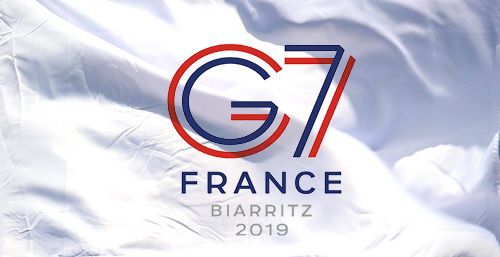
The meeting takes place in the center of Biarritz, at the Hotel du Palais, an establishment overlooking the Grande Plage.
The press center is planned at the Halle d'Iraty, 1 km away.
What is the official program of the summit?
The reception of G7 leaders organized in Biarritz will take place from Saturday at 19:30.
Here is the official program of the summit organized until Monday in the Basque city.
Saturday, August 24
19:30: Reception of the G7 leaders by Emmanuel Macron
8.30 pm: Informal dinner of Heads of State and Government
Sunday, August 25
9:30: Working Session "International Economy / Trade and continuing discussions on the international security agenda"
11:15: Bilateral interviews
12:45 pm: Welcome of the leaders of the United Nations, the World Bank, the International Monetary Fund, the World Trade Organization, the International Labor Organization, the Organization for Economic Cooperation and Development, of the African Union and the African Development Bank
1 pm: Working lunch "Fight against inequalities"
2 pm: Presentation of the report of the Consultative Council for Gender Equality
14:45: Welcoming Heads of State and Government of South Africa, Burkina Faso, 2:45 pm: Welcoming Heads of State and Government of South Africa, Burkina Faso, Egypt, Senegal and Rwanda by the President of the Republic and representatives of the African Development Bank and the African Union.
15h: Working session "G7 Partnership with Africa".
4:45 pm: Press briefing Sahel
17h: Bilateral interviews
5:15 pm: Press Briefing on Women's Entrepreneurship in Africa
7:15 pm: Welcome of the leaders of Spain, Australia, Chile and India by Emmanuel Macron
19:30: Family photo
8:45 pm: Official dinner
Monday, August 26
9am: Bilateral interviews
10am: Working session "Climate, Biodiversity, Oceans"
12h: Bilateral interviews
1 pm: Working lunch "Digital Transformation"
14.45: Closing session of the G7
3 pm: Closing press conferences
The summit of the G7 that opens this Saturday in Biarritz (until Monday 26th) in the South of France promises to be electric with leaders at the antipodes on the major issues of the world.
To President Emmanuel Macron, who sees himself as the architect of a new world order, deploying treasures of diplomacy and skill to bring his peers in tune.
From Iran to taxes on GAFA through Brexit, the lines of fracture are multiplying.
|
|
|
|
|
|
|
|
| Garett Skyport for DayNewsWorld |
 |
JEFFREY EPSTEIN CASE
OPEN INVESTIGATION IN PARIS
FOR RAPE AND SEXUAL AGGRESSION ON MINORS
|
|
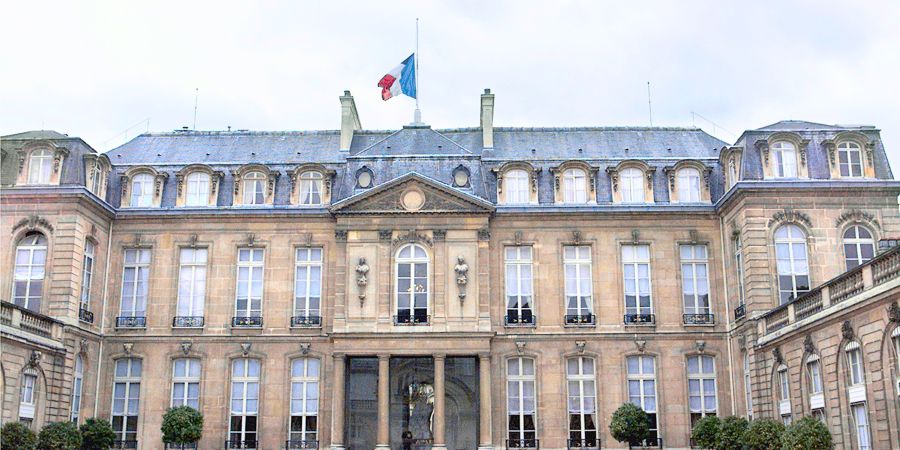
The Paris prosecutor's office on Friday opened an investigation into "rape" and "sexual assault," particularly on minors, in the Jeffrey Epstein case, prosecutor Remy Heitz said.
The investigations, entrusted to the Central Office for the Repression of Violence against Persons, will aim to uncover possible offenses committed not only on the national territory, but also abroad to the prejudice of French victims or to against authors of French nationality, "said the prosecutor in a statement.
"Several victims" French
Upon the arrest of the American financier, the French association Innocence in danger had alerted the prosecution. "From a reliable source, Innocence in danger has been confirmed recently that several victims of the prostitutional network, created by Jeffrey Epstein and his accomplices, are also of French nationality" wrote the association to the public prosecutor of Paris on Monday, August 12th.
The association announced Thursday, August 22 that it held "ten testimonies", "mainly victims," concerning acts related to the case Jeffrey Epstein "committed on French soil," according to President Homayra Sellier.
As "surprise birthday gift"
The prosecution made this decision after carrying out "checks and cross-checks on the basis of the elements" that had been transmitted to it and having had "exchanges" with the competent US authorities, the statement said.
In a testimony dating from 2011 but recently made public in the United States, a complainant also accused the financier and jet-setter of abusing very young French women who had been sent to her as a "surprise birthday present".
According to Anglo-Saxon media, she also assured that these girls had been sent to the United States by a former close friend of Epstein, the French Jean-Luc Brunel, founder of modeling agencies Karin Models and MC2 Model Management.
Sexual crimes on minors
The American businessman was accused of organizing a network of exploitation of girls and sexual assault on minors. Already convicted in the United States in 2008, he avoided a trial and was sentenced to 13 months in prison thanks to a plea bargain.
He was arrested again on 6 July 2019 and charged with sexual exploitation of minors. The facts alleged against him date from the period from 2002 to 2005, at least.
According to the indictment, he allegedly "brought minors (some 40 and some 14 years old) to his residences in Manhattan and Palm Beach (Florida) and on an island in the Caribbean to engage in sexual acts with him. him, after which he gave them hundreds of dollars in cash. "
He was found dead on August 10 in his New York cell, the results of the autopsy confirming a suicide by hanging.
|
|
|
|
|
|
|
|
| Kate White for DayNewsWorld |
 |
FRANCOIS DE RUGY THE RESIGNATION
|
|
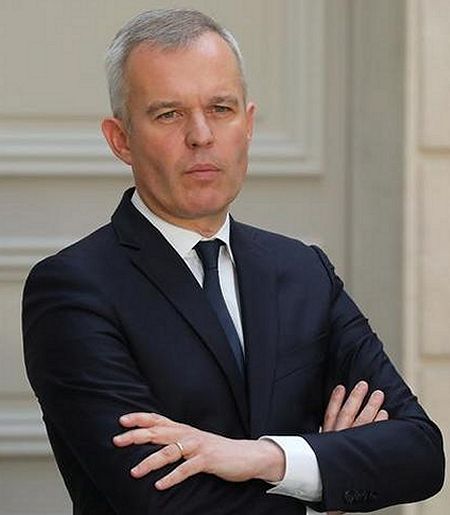
François De Rugy resigns and says: "I privileged the sense of responsibility for the president and the government"
The French Minister of the Ecological Transition after the multiple cascading revelations of MEDIAPART resigned this Tuesday, July 16, 2019.
At the center of a controversy over excessive spending, François de Rugy announced his resignation from the government, while considering himself victim of a "media lynching", and announcing to have filed a complaint of defamation against the site of investigation MEDIAPART .
François de Rugy:
"I feel good even if I feel a great feeling of injustice with the methods of MEDIAPART ".
Since last week, the site of investigation revealed that the interested party had organized sumptuous dinners at the Hotel de Lassay at the time when he was president of the National Assembly from June 2017 to September 2018.
MEDIAPART also reveals work worth 63,000 euros in its company housing.
One thing is certain: the torch burns between the French people and their leaders (political class) who seem to abuse public money in the eyes of citizens, while at the same time poverty and difficulties only increase with a taxation become unbearable, France being the world champion of taxes, taxes and levies of all kinds !!!
|
|
|
|
|
|
|
|
| Simon Freeman for DayNewsWorld |
 |
CASE OF BERNARD TAPIE ADDIDAS / CREDIT LYONNAIS
THE BEGINNING OF JUSTICE
|
| The latest episode in a 20-year-old judicial serial, marked by many reversals, the Paris Criminal Court decided on Tuesday, July 9, 2019, to relax former Minister Bernard Tapie and the five other defendants in Arbitration of the case of Addidas / Credit Lyonnais
Bernard Tapie: "My cancer has just taken a dirty blow in the mouth" launched the former minister, under chemotherapy for a double cancer
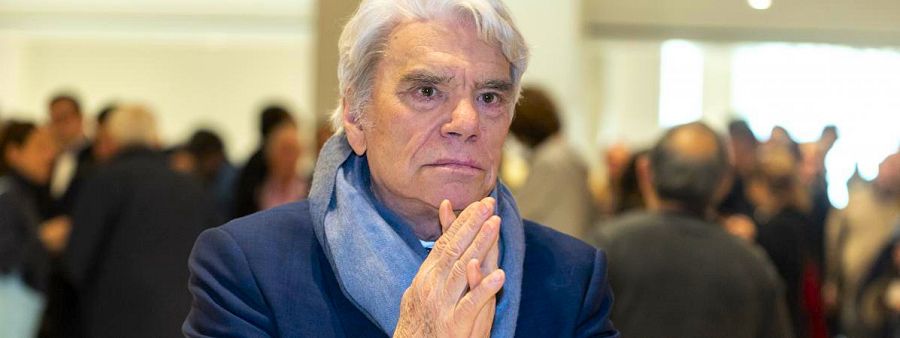 "It's proof that you always have to fight to the end." "It's proof that you always have to fight to the end."
Dominique Tapie, the wife of the former minister commented:
"It's the best day of my husband's life because his honor has been recognized"
Hervé Temime Bernard Tapie's lawyer:
"The court has rendered with rare independence a judgment of exceptional clarity and it is for us (...) an immense satisfaction and a great liberation"
Prosecuted for fraud and embezzlement of public funds, former minister Bernard Tapie, a five-year prison sentence and 375,000 euros fine that was required on April 1, 2019, against the businessman, He was reproached for organizing, with his former lawyer Maurice Lantourne, arbitration "rigged" in consultation with one of the three members of the arbitral tribunal, the high magistrate Pierre Estoup to settle the dispute between Bernard Tapie and Credit Lyonnais, bound on the resale of Adidas in the 1990s.
 For the public prosecutor, who has not yet announced whether he would appeal, Bernard Tapie had "rigged" the arbitration which had granted him in July 2008 the unprecedented sum of 45 million euros in respect of non-pecuniary damage . For the public prosecutor, who has not yet announced whether he would appeal, Bernard Tapie had "rigged" the arbitration which had granted him in July 2008 the unprecedented sum of 45 million euros in respect of non-pecuniary damage .
This judgment does not, however, call into question the judgment of the Paris Court of Cassation in the civil part of the case.
The court annulled the arbitration in 2016, deeming it "fraudulent" and sentenced Bernard Tapie to repay the 404 million euros obtained.
A decision that appears today at odds with the relaxation pronounced in the criminal aspect.
However, the two procedures were not exactly the same thing.
- In the civil part, it was a question of judging the decision taken during the arbitration itself.
- In the criminal section, judges were interested in the conditions under which this procedure was chosen and executed.
- The court has not retried Adidas litigation, it was not seized, said Hervé Temime, the lawyer Bernard Tapie.
- But for me there is no consistency between these decisions.
Other relaxed person Stéphane Richard, 57, Orange CEO at the head of the telecom operator, at the time of the case, Stephane Richard was Chief of Staff of the Minister of Economy and Finance Christine Lagarde, for which the public prosecutor had requested against him three years of prison of which 18 months firm, 100,000 euros fine and a prohibition of any civil service during five years
Stéphane Richard, said on leaving the court:
"Today there is this relief to have my innocence totally recognized by this court, it's the feeling that dominates me, the court said the arbitration was legal, it even said it was legitimate" .
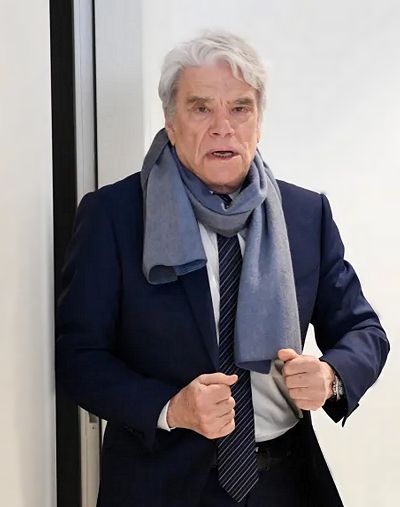 Seen from here (USA) Seen from here (USA)
This judgment is only the beginning of a right return of things, because if the memory is missing a certain it is necessary to remember on the bottom of the facts which generated this situation !!
Indeed the case Addidas Bernard Tapie is not the only one in which the Credit Lyonnais has been involved !!!
Jean-Maxime Lévêque former president of Crédit Lyonnais but also owner of an exotic bank, International Bankers, is one of the actors of the Crédit Lyonnais disaster and its 120 billion losses of the nationalized bank!
Jean Maxime graduated from the ENA in 1948, senior official, inspector of finance, he accumulates prestigious appointments and represents France at the International Monetary Fund and the International Bank for Reconstruction and Development.
He left his post of economic adviser at the Elysée in 1964 for the Crédit commercial de France (CCF), of which he became president in 1976.
In 1982 that turns the fate of Jean-Maxime Lévêque. This year he created a promising small bank, the International Bankers Incorporated Cy NV Holding (IBI), which he lives in the Netherlands Antilles.
The sulphurous story of Jean-Maxime Lévêque begins in Curaçao, in the Netherlands Antilles.
This tax haven will be the home of IBI. The Bank's operational headquarters, International Bankers SA, is located in Luxembourg.
In addition to the mysterious Sheikh Baroum, IBI's round table brings together three former CCF clients. There is the Syrian Akram Ojjeh, the Saudi Adnan Kashoggi and the Lebanese Samir Traboulsi.
With 130 million initial capital, the small IBI has great ambitions.
Jean-Maxime Lévêque, who wants to make it a star of international trading, quickly creates branches of the bank in Paris, London, Hong Kong and Geneva.
The bank's range of services is vast and particularly suited to companies and business people who want financial flows to be lost in specially created exotic companies.
In the field of the administration of offshore companies, explains a report of the direction of the economic and financial studies of Credit Lyonnais, IBI is able to intervene on twenty types of companies, located legally in Luxembourg or on other offshore places (Jersey, Panama, Netherlands Antilles, etc.).
The appointment of Jean-Maxime Lévêque in July 1986 as President of Crédit Lyonnais.
After the defeat of the right in the parliamentary elections of 1988, Jean-Maxime Lévêque is dismissed from the presidency of Lyonnais and regains the seat of president of an IBI he had not really left, since he had taken great care to maintain, in the meantime, the functions of vice-president of the bank.
In 1994, IBI's losses amounted to several billion francs, and Crédit Lyonnais, the leading shareholder, paid the bill alone.
On the money of the French taxpayer !!!
The most extravagant records of this financial madness:
Altus Finances, MGM, Addidas, Sasea and its accounts in Switzerland ...
With many influential businessmen like Robert Maxwell, Bernard Tapie, Florio Fiorini, Giancarlo Parretti ........ !!
Crédit Lyonnais innocent?
That's a lot of business !!
All guilty except the Credit Lyonnais ???
The case Addidas Bernard Tapie / Credit Lyonnais is too long, the compensation of Bernard Tapie seems normal, even if the sum of 404 million euros may seem important to the general public.
|
|
|
|
|
|
|
|
| Simon Freeman for DayNewsWorld |
 |
BIG SCANDAL AROUND TOXIC ASHES
OF THE CATHEDRALE NOTRE DAME DE PARIS
|
| The information was passed at the time, almost unnoticed, except for the residents who had been recipients.
In a press release dated April 27, 2019, the Prefecture of Police of Paris and the ARS (Regional Health Agency of the Ile de France) had invited the residents of the Cathedral to carry out a meticulous household of their home or their premises, using wet wipes, to remove any dust likely to contain dust containing a high lead content from the combustion residues of the smoked frame of the Notre Dame de Paris Cathedral.
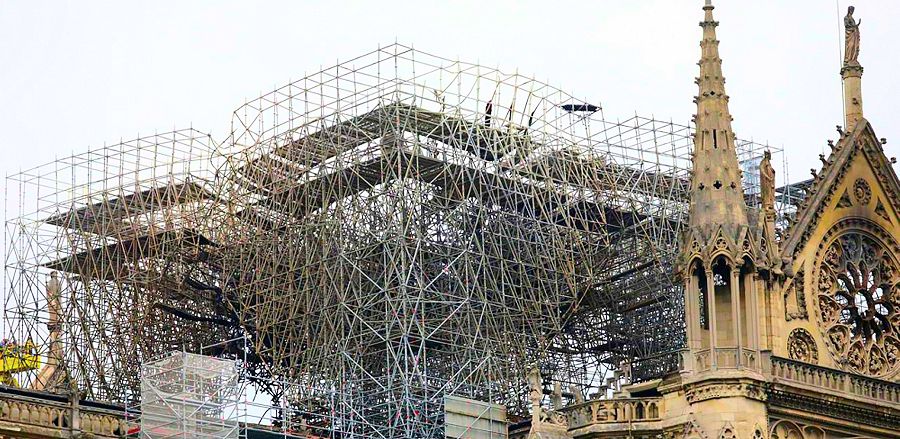 However, in this note, the two administrations indicated that "no poisoning was reported in the days following the fire". However, in this note, the two administrations indicated that "no poisoning was reported in the days following the fire".
We had wanted to believe it ... notwithstanding the fact that, at the same time, pregnant women and children were asked to dose their lead levels?
What everyone had learned simultaneously was General Gorgerin, a devout Catholic, cultivated but also politically savvy, whom Emmanuel Macron had appointed on April 27 to oversee the operations of reconstruction "of the Cathedral.
Since radio silence!
Until our colleague Médiapart makes last Thursday, July 4, disturbing revelations on the subject.
This is how we learned that:
According to documents dated May 3, sampling to measure lead in the debris revealed rates up to 740 times the authorized thresholds. On the forecourt, the measured rates are around 500 times, while on some bridges, squares or streets nearby, the rates are up to 800 times higher.
That during a meeting of May 6, organized in the offices of the ARS where were found officials of the Police Laboratory, the City of Paris, the Antipoison Center, the CRAM of Paris and the Direction of the Work we asked ourselves whether we should communicate on the subject? One person at the meeting revealed that "the ARS was playing the watch by refusing to communicate and even forcing individuals and associations to seize the CADA", thus paving the way for a real obstacle course for the victims.
The law of silence that had settled seemed nevertheless to be perfectly suitable for the Ministry of Culture and the health authorities.
The only concern of the government was to vote the bill on our Lady of Paris which provides for the creation of a Public Establishment and derogations to the rules of urban planning and environmental protection.
On the construction site, the prospects are worrying: companies that do not want to be the scapegoat for the event and its consequences; but also all stakeholders according to which, the dangers to health and the environment may increase due to the opacity that has developed.
As a result, some protagonists began to show their embarrassment at the example of the Prefecture of Police, some of whose premises were affected by lead pollution, or the bottle-feeding room or "Thousand Paws" of the nursery of the said prefecture. had to be closed for emergency decontamination. Functional apartments have also been decontaminated.
Safety checks on the construction site revealed that workers were working on site with bare hands, without gloves, handling rubble in protection, without a mask. Decontamination showers verified by the Labor Inspectorate do not work. The workers go home with the lead dust?
Sources close to the site even indicate that Franck Riester, the Minister (former LR / Macron-compatible) would not be dissatisfied that workers walk on the site without protections, thus not arousing any fear or residents or tourists.
With the fire of Notre Dame de Paris which caused the melting then the evaporation of some 500 tons of lead, the file which had at the beginning already triggered a scandal and doubts now takes the appearance of a scandal Sanitary, in-situ, near the building but also in the capital intra and extra muros, the cloud of lead dust having not as Chernobyl respected borders.
The malaise is even giving rise to the vocations of investigators whether it is on the side of those who plan to launch the American "class actions" to obtain compensation or pensions or on the part of those who have never believed in the accidental thesis of the fire.
They rely on the fact that the "guilty" have enemies from everywhere who will not miss the opportunity to deprive themselves of delivering sensitive information to put a spoke in the wheels of the state, owner of the monument.
It will be recalled that lead poisoning by ingestion or inhalation that causes serious damage to the central nervous system is called lead poisoning. And so, the saturnism, taken from the name of Saturn, (the disturbing Roman God) which would have caused the fall of the Roman Empire, could at the beginning of XXI century cause the fall of Jupiter / Saturn.
|
|
|
|
|
|
|
|
| Clara Mitchell for DayNewsWorld |
 |
CASE GENERAL ELECTRIC/ ALSTOM
|
|
Case Alstom, the Elysée again pointed the finger.
1000 employees of General Electric, Belfort in particular will lose their job!
The news fell on May 29, 2019, three days after the European elections, even though the American company had promised, during the Alstom takeover, to create a thousand!
Mayor LR Belfort, Damien Beslot and employees immediately shouted scandal, going so far as to denounce a state scandal.
From an internal source, the details of these dismissals will be presented to the unions around mid-June 2019. 
It was Hugh Bailey, a former adviser to Emmanuel Macron in Bercy, who confirmed what had been going on for weeks and that he could not ignore because on April 22 he became the boss of General Electric.
But, cross of wood-iron cross, the Elysee assures for his part that he knew nothing before May 26:
"We were not more aware than the people concerned" swore on France Info the Secretary of State to the Minister of Economy and Finance, (Bruno Le Mayor) Agnès Pannier Runnacher who nevertheless wished to recall " that General Electric had been required to set up a 50 million euro fund to finance industrial revitalization plans ".
Just believe it and especially believe that the Elysee has not maneuvered for information to fall after the European elections.
However, early June 2019, we learned that the deputy of Eure et Loir, Olivier Marleix had been heard May 29 by investigators of the Central Office of the fight against corruption.
The MP reported to the floor last January the sale of Alstom's energy activities to General Electric and the merger of Tecnip FMC, in order to know if personalities who have contributed financially and operationally to them, were not on the list of supporters to Emmanuel Macron during the presidential election campaign.
And to add that during his two years at Bercy, Emmanuel Macron authorized mergers for colossal amounts: Alstom / General Electric for 13 billion €, Lafarge for 17 billion €, Tecnip for 8 billion €.
Each time the sums involved have been considerable, in unprecedented acceleration in the history of mergers and acquisitions. Each time, they have provided the Bankers with success fees ranging from 10 to 15 million euros.
These sales were examined by the Ministry of Defense for activities concerning it (for example the turbines that equip our submarine) but the procedures of control provided by decree were largely bypassed each time, according to Olivier Marleix, who presided over the Commission of Investigations to examine the decisions of the State in matters of industrial policy, including that of Alstom.
In April 2018, MP LR had already expressed his damning conclusions in the role played by the Elysee Palace in the sale of the French flagship of his American competitor. "We must, of course be careful," said Jacques Myard, former deputy and mayor LR Maison Lafitte who also interested in the file; but Olivier Marleix, whom he knows well, is, according to him, "a precise and serious deputy" who never ceases to denounce the mixing of genres in these cases, due to the fact that they are the treasurers of Emmanuel Macron's campaign, Alexis Köhler former Secretary General of the Elysee, resigned and under investigation in the case of Benalla and Julien Denormandie, Minister of the City and Housing, who were in charge of these cases in the Cabinet. "This is an extremely serious matter," added Jacques Myard; "It is a matter of sovereignty and industrial power but also of justice because today hundreds of jobs are threatened".
In the 4-page letter published by the newspaper "Le Monde" on January 17, 2019, Olivier Marleix had already noted that the two consulting banks that had been called upon for the sale of Alstom-Activities Energies at General Electric were Bank Of America / Merill Lynch and Rothschild & Co, two banks that have come back to be mandated in the privatization of ADP (Paris Airport). We recall in passing that Emmanuel Macron was manager of Banque Rothschild from 2008 to 2012.
We will also like to remind you that four years ago, on May 25, 2015, Emmanuel Macron, then Minister of the Economy and Finance, visiting the industrial site Energy and Transport had assured that "Belfort had an industrial future "(sic) We understand the anger of local elected officials and employees.
The state scandal seems to be looming on the horizon which has already allowed several observers to say that the sinking of Alstom could well cause that of Emmanuel Macron.
Case to follow ...
|
|
|
|
|
|
|
|
| Clara Mitchell for DayNewsWorld |
 |
THE PRESIDENTIAL BLAH ASLEEP
SEVERAL MINISTERS
|
|
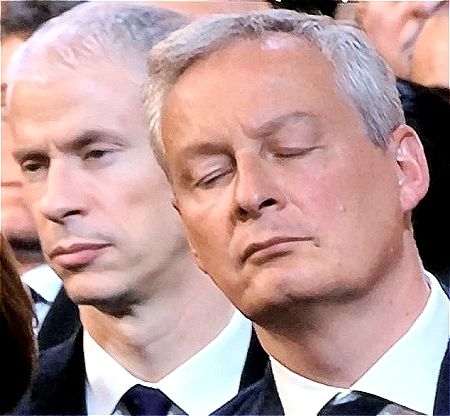
Images are looping on social networks:
several ministers of Emmanuel Macaron went to sleep in front of the cameras during the press conference of Emmanuel Macron of April 25, 2019.
Obviously, indeed, the presidential purr was far more effective than the Prozac.
Besides, fortunately the event happened in France, a Republic, still (but for how long?) Democratic and liberal. In North Korea, Hyon Yong Chol, the Minister of Defense who had fallen asleep during military celebrations, was executed by air gun ...
Of course, the continuous news TV channels have seen nothing and heard nothing!
And yet, while Emmanuel Macron was talking about the pension reform that called on the French to work more, his ministers began to sleep.
The images have raised hilarity and mockery on social networks: "the pipo player, sandman (remember good night little ones) a man named Emmanuel Macron, went well that night.
It is true that the scene we followed from end to end was soporific.
Before the presidential election of 2017, we had been announced a new world, happy, alive and satisfying, led by a brilliant man, charismatic, with a good knowledge of France, a man with a feather new to rhyme poetry, philosophy and politics .
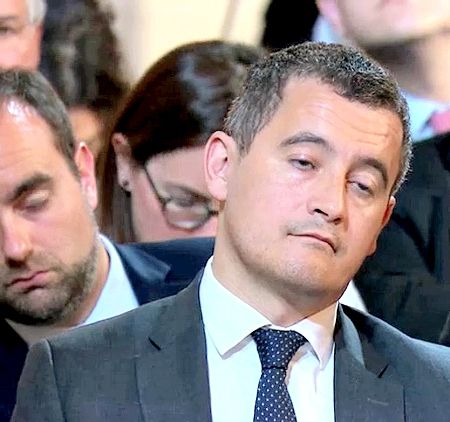 The French found themselves in fact, less than 2 years after the said election, in the face of an austere man, pronouncing endless monologues, in a tone and by means of proposals that sound wrong, so much Emmanuel Macron overplay his score facing the events of more and more agitated. The French found themselves in fact, less than 2 years after the said election, in the face of an austere man, pronouncing endless monologues, in a tone and by means of proposals that sound wrong, so much Emmanuel Macron overplay his score facing the events of more and more agitated.
Even Christophe Castaner, who usually drinks the words of the monarch and who seems, again, the most "motivated" minister, has given the impression of anger. ... thinking maybe, according to some nasty languages, at his last night out.
What we have seen in any event, April 25 is that, or Emmanuel Macron exhausted or they became, one after another zombies against a president, prophet of misfortune who debits " complex sentences ", more and more irrational, disconnected from the daily life of the French.
It is also true that on the side of the floor of some 300 journalists, handpicked (some have not managed to get an access badge) the impression was no better. The eyecups of the cameras swept that evening a public amazed or even annihilated.
The introductory speech that was announced to last 20 minutes actually lasted 1:30, leaving a small hour available for questions and answers where, it should be noted, women journalists and their impertinence, were the brightest.
But then, if LREM falls asleep, imagine what could happen in response to the 3.4 million viewers who, at a prime time, had agreed to listen to the speech of the Head of State.
Let us point out, from the same point of view, that Emmanuel Macron had had more exceptional hearings during the last six months: on December 10, 2018, the President of the Republic's speech, devoted to the violence during the Yellow Vest demonstrations, had gathered 23 million listeners (3 times more) ...
A Harris Interactive-Agence Epoka survey, commented on Saturday (April 27th) shows that Emmanuel Macron only convinced 37% of the French; 63% were therefore not persuaded of the correctness of the speech in relation to the current situation and their demands.
Also, it seems vain to believe, as Jean Michel Blanquer, Minister of National Education, who has come to do after sales service on France Info, suggested, that hope could come "when people will see concrete measures"? ? We will have to wait again!
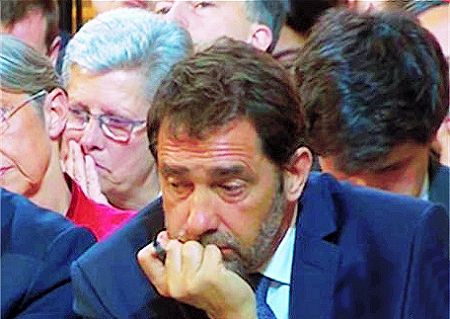 Discontent therefore remains important. Far from lulling the French, Emmanuel Macron and his acolytes annoy more and more, preventing a large majority of French to fall asleep in front of wallets or empty fridges. Discontent therefore remains important. Far from lulling the French, Emmanuel Macron and his acolytes annoy more and more, preventing a large majority of French to fall asleep in front of wallets or empty fridges.
On the other hand, while the great debate had somewhat anesthetized opinion today, the day of the XXIV episode of the Yellow Vests, the context of the demonstrations could prove that the trap of the Great Debate, could close soon on Emmanuel Macron.
A few weeks before the European elections, the hardest will indeed start for the executive who was expected at the turn for the press conference Thursday night.
Because many have not yet found "there had been a before and after Yellow Vests" or even a change of course, Emmanuel Macron remained straight in his boots.
Let's be honest nonetheless! Edouard Philippe had warned and prepared the ground: "after the Great Debate would be deceptive"; but deceptive! I invite you to consult the Larousse is synonymous with "deception".
The French would have been deceived which would explain the anger that is still expressed in the streets, during the demonstrations during which we heard: "Macron resignation" or "dissolution of the National Assembly" next to the RIC ...
A good look at the images of Ministers sleeping in front of the cameras during the speech of Emmanuel Macron one is taken to the impression that the somnolences macron-diurnal some ministers could soon end, tired that are some of them, of always hear the same speech that fails to convince and does not interrupt the sometimes violent manifestations.
If our impression was good, it could soon (in the aftermath of the European elections ?) A schism appears on awakening, in the government, the "and left and right" can not continue for a long time.
The awakening will then be hard for Emmanuel Macron, who has not long ago dreamed of a European leader ship ...
But if this was still his state of mind, the Head of State could have at least told us about Europe during its Press Conference and reform, priority, of the ECB (European Central Bank), a dossier which will inevitably be tackled immediately.
|
|
|
|
|
|
|
|
| Clara Mitchell for DayNewsWorld |
 |
SHOULD WORK MORE IN FRANCE ?
|
How to respond to the crisis of yellow vests that require more purchasing power?
This is the question that tears the government and especially Emmanuel Macron two days of his speech in the form of a press conference, the first of his quinquennium. The president would be prepared to advocate for longer working hours as a response to the tax cut.
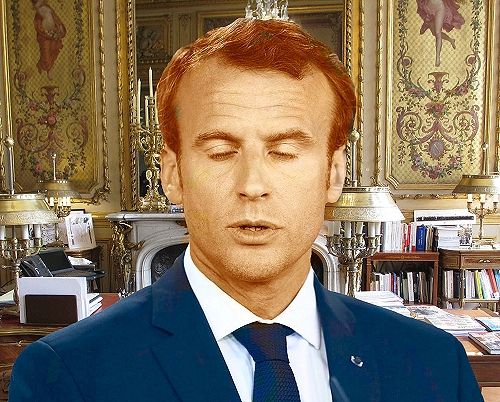 Emmanuel Macron wants the French to "work harder" to finance the tax cuts. But the solutions envisaged can be explosive ... Emmanuel Macron wants the French to "work harder" to finance the tax cuts. But the solutions envisaged can be explosive ...
"I asked the government to implement this tax cut by funding it by removing some tax loopholes, the need to work more and cuts in our public spending. "
This excerpt from Emmanuel Macron's address, recorded last Monday but not broadcast because of the Notre-Dame fire, highlights a new, unconventional axis of the President's policy, even explosive in a social context. very degraded especially as 54% of the French voted against an extension of the work in an Ifop survey published Sunday by the JDD. Ian Brossat, head of the PCF list for Europeans, is one of them.
"When I hear President Macron tell us he will have to work more to earn as much, it is insulting for millions of French (...) while the number of billionaires in France has increased threefold in the last ten years He said on RFI.
In what form? A holiday worked for free, like what had made Pierre Raffarin then prime minister under Jacques Chirac for the financing of solidarity. May 8, for example, for a single memorial day on November 11, the elimination of certain tax loopholes or even the decline in the legal retirement age.
The subject divides the political class even among the LREMs.
For Nicolas Bay of the National Rally, the French are "ready" to work more "conditions are favorable", while calling "gadget" the idea of removing a holiday to establish a day of solidarity that would bring only three billion euros per year to the State The subject divides up within the LREM.
While Aurélien Taché, deputy of the left wing of LREM, advocates "privileging tracks where we will not ask the French to work more" and allocate the contribution for the repayment of the social debt (CRDS) to the dependence, Aurore Bergé, another MEP LREM, defends the proposal for a new day of solidarity.
France is one of the countries where we work the least and one of those who redistribute the most towards the most disadvantaged.
The executive will have to be convincing in the battle of working time.
|
|
|
|
|
|
|
|
| Britney Delsey for DayNewsWorld |
 |
OUTCRY AROUND THE NOMINATION OF
RAPHAELE RABATEL DIRECTOR
OF COMMUNICATION AND
DEVELOPMENT DURABLE OF THE FDJ
|
|
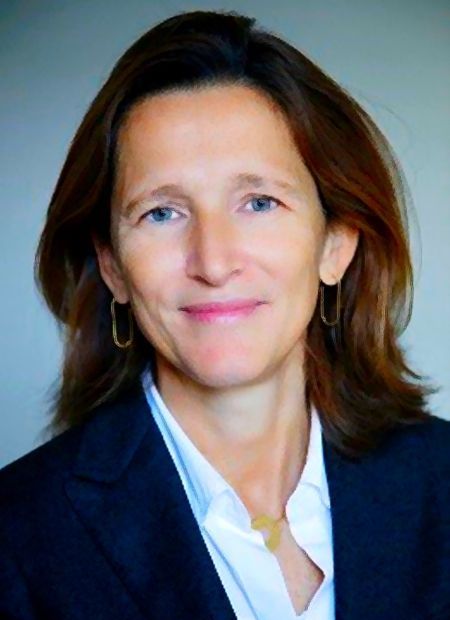
It is by a brief statement of about thirty lines that the FDJ (French Games) announced on April 9, 2019 that Raphaële Rabatel had been appointed Director of Communication and Sustainable Development of the company, a function that she will join in early May.
The information immediately aroused an uproar, Raphaele Rabatel being the wife of Gilles Legendre, macronist of the first hour, deputy of the 2nd district of Paris and President, since the cabinet reshuffle of September 2018, the LREM Group of the 'National Assembly.
The reasons for the bronca: the information fell in the middle of the adoption of the PACT law, which provides for the privatization of the FDJ. (Adopted definitively on April 11, 2019).
The weekend of week 15 was certainly put to good use to endorse the decision, in the pipes before April 11th. The phones have to heat up this weekend!
"Curious mix of genres", "Bravo the new world", "deeply shocking"! The opposition has given it to heart, denouncing in bulk, serious suspicion of conflict of interest and nepotism.
In their creaky remarks, most of the opponents point out that they would never have been on the front line of criticism, if Gilles Legendre, who for months campaigned on the theme of probity and moralization of public life had been deported during the PACTE vote.
Given the timetable described above, Gilles Legendre could not ignore that his wife had been approached for several weeks to occupy the post of Director of Communication and Sustainable Development at the FDJ and that this decision would be taken the day after its privatization!
New world or not, we see that the small arrangements between friends still have long life and that the arrival of Emmanuel Macron did not change anything to this unbearable phenomenon, despite the protests, the hand on the heart of the executive .
In the LREM camp it is objected that the case of Raphaële Rabatel is malicious attacks ... without convincing, the Penelope Gate (Fillon case) is not so old.
Protestant of his good faith and the "proven" competence of his wife, retained by him regularly by recruiters, the Paris MP who had chosen, certainly, to formalize the appointment of his companion, has just backed down.
To put an end to the controversy, he announced today, April 15, that he had seized the deontologist of the Assembly.
The position was created in April 2011. He is currently occupied by Agnès Roblot-Troizier, doctor in public law. She was appointed to this post on the proposal of François de Rugy.
Since the passing of the law of moralisation of public life, the deontologist has a power of investigation. It will therefore be necessary to wait for the closure of his investigation.
According to Gilles Legendre it would be the only way to definitively remove doubts about the conditions surrounding the vote on the law providing for the privatization of the FDJ, a vote he nevertheless participated in "forgetting to withdraw"?
Meanwhile, and to parody Arnault Montebourg, it is possible to say that the biggest fault of Gilles Legendre is his wife….
|
|
|
|
|
|
|
|
| Clara Mitchell pour DayNewsWorld |
 |
THE OFFICIAL JOURNAL COMES TO GIVE US
NEWS BY ALAIN GIBELIN
|
| Et hop ! Here is a small decree quickly signed, Friday, March 15, 2019, before leaving (Emmanuel Macron) ski at Mongie!
The Official Gazette (OJ) published on 16 March 2019 a decree which had been signed the day before by the President of the Republic and which ends the functions of Director of Active Service of the Prefecture of Police, and, Director of the Public Order and Circulation of the Prefecture of Paris occupied until that date by Alain Gibelin who is reinstated in his original body of Commissioner General of Police.
This decree gave Alain Gibelin the provisions of a decree of 16 June 2016 establishing the rank of Commissioner General of Police. The decree of March 15, 2019 has 4 lines, succinct!
 Phew! we have just heard from Alain Gibelin, who was told by our colleague "Le Point" that he had been hospitalized in the Emergency Department of the Salpetriere Hospital on February 28, 2019, in a probable state of burnout. ? Phew! we have just heard from Alain Gibelin, who was told by our colleague "Le Point" that he had been hospitalized in the Emergency Department of the Salpetriere Hospital on February 28, 2019, in a probable state of burnout. ?
We purposely use the terminology "probable state" because we do not know much about what exactly happened that day.
What we are sure nevertheless is that Alain Gibelin was not hospitalized in the emergency for a burn out following a heartache ...
It will be recalled, moreover, that the decision to suspend this senior police officer was taken with complete discretion.
It will also be recalled that this decision was put on the account of the back-pedaling of the latter before the Commission of Inquiries of the National Assembly, a back-pedaling that had not been the taste of the Elysee and even less the President of the National Assembly, Richard Ferrand who for the occasion had invented the "corrigendum of declaration under oath".
But it will also be recalled that Alain Gibelin was decorated with the Order of National Merit on November 5, 2018, which decoration was given to him by Michel Delpuech, Prefect of Police of Paris, who today, at the same time as we write risk, (we have just learned this moment), to be also dismissed, attacked from all sides that it is following the incidents that occurred on the Champs Elysees Saturday, March 16th.
The day of the publication by the JO of the reinstatement decree of Alain Gibelin, was also published the decree appointing Jerome Foucault to replace Alain Gibelin. Jerome Foucault is also a senior police official, heard by the Senate Investigations Committee.
Alain Gibelin was, however, in the opinion of all a specialist of public order. From this point of view, one can imagine that his presence in police headquarters last Saturday, during the incidents that occurred on the Avenue des Champs Elysees could have been very useful, as could have been useful also the presence of 3 police officers , very competent, suspended in the Benalla case, all decisions that beheaded the Parisian National Police.
We are not finished, obviously, with the Benalla affair!
But the authority that sits at the Elysee since May 2017 is misguided in the words of Philippe Bilger (see twitter account # Philippe Bilger, former Attorney General near the Court of Appeal of Paris) and it is necessary Admittedly, it was not because of the doglit reign on Paris that Alain Gibelin was sacked but because the latter had simply contradicted the Elysee Palace in the Benalla affair.
As a result of this latest information, we have waited impatiently for the decision of the President of the Senate, Gérard Larcher, "the first institutional opponent of Macron".
Indeed, Gerard Larcher promised to convene the highest instances of the Senate on March 21, 2019 to decide whether or not the referral to the prosecution in the case of Benalla, following the report of the Senate Inquiry Commission.
All French citizens, whether they are Yellow Vests or not, are waiting with interest and impatience for the decision of the President of the Senate. Unless …
 We have just announced that hand in hand, Gerard Larcher and Richard Ferrand are expected to make several trips in the coming weeks "to bring the democratic voice in this period when institutions are attacked." We have just announced that hand in hand, Gerard Larcher and Richard Ferrand are expected to make several trips in the coming weeks "to bring the democratic voice in this period when institutions are attacked."
Their first trip is scheduled for Friday, March 22. Their first meeting must take place at Sciences Po Lilles.
Hopefully, in the closed-door of a smoked-glass sedan or in the cabin of a Falcon aircraft, the two men will not agree ... to conclude that there is no urgency in this case Benalla, democracy being in danger, since the violence of last Saturday?
It will be recalled that in September 2018, Emmanuel Macron, himself, had telephoned Gerard Larcher, to complain about the attitude of Philippe Bas, Senator of the Channel and President of the Senate Inquiry Commission, and to solicit indulgence against Alexandre Benalla. The event took a public turn, Gerard Larcher then promised not to let insult the Senate ....
NB At 3:23 this morning, March 17, 2019, Alain Gibelin published on his twitter account a message at the end of which he said: "To put definitely (?). A term to false rumors about me, it was not terminated by the government as seems to say the media obviously not well informed. I have had a stroke for a month and will be hospitalized for several months. It is impossible for me to assume my duties.
At 3:23? this stroke victim seems particularly awake........
|
|
|
|
|
|
|
|
| Clara Mitchell for DayNewsWorld |
 |
There are no translations available.
NICOLAS DUPONT AIGNAN
PRIVATISATION DE ADP OU PILLAGE EN FRANCE
|
«On va vendre une infrastructure qui rapporte à la France, qui produit des dividendes et qui est bien gérée, pour la placer sur un fonds qui va rapporter au budget 2 à 3 fois moins » et « qui va faire la transaction ? » ajoute-t-il : « C’est la Bank of America ». Et qui « s’occupe de ce dossier chez Bank of America ? … c’est Bernard Mourad un soutien fidèle d’Emmanuel Macron ».
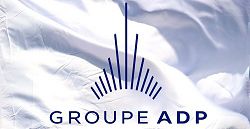 Ces propos ont été tenus devant un public gêné et à l’air constipé sur le plateau de l’émission de RMC , Les Grandes Gueules où officiaient, nos confrères médusés ce jour là , Alain Marshall et Olivier Truchot . Ces propos ont été tenus devant un public gêné et à l’air constipé sur le plateau de l’émission de RMC , Les Grandes Gueules où officiaient, nos confrères médusés ce jour là , Alain Marshall et Olivier Truchot .
L’attaque a fait bredouiller Thibault Lanxade (le fils de l’ancien amiral) PDG du Groupe Jouve, une entreprise financière de services numériques et d’impressions spécialisées dans les datas dont on apprend qu’il a été nommé le 10 janvier 2018, par la Ministre du Travail , Muriel Pénicaud et par le Ministre des Finances et de l’Economie, Bruno Le Maire, ambassadeur à l’intéressement et à la participation ?
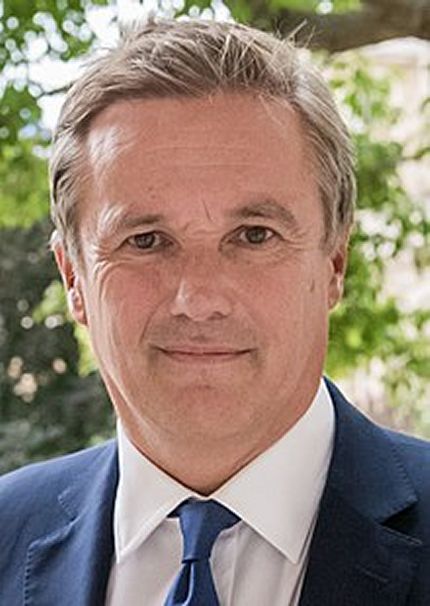
Que sa quo ?
Savait-il ou ne savait-il pas ?
Nous penchons pour la seconde hypothèse, car Thibault Lanxade a cherché à esquiver la question , tout en niant, quelques secondes après, une situations de conflit d’intérêts.
Pour sauver l’affaire sur le plateau, quelques voix se sont élevées pour indiquer que c’est l’UE qui ordonnait à la France de vendre ses bijoux de famille ( ?), et « de la dépecer comme cela s’est passé en Grèce… ».
Une très mauvaise argumentation en tout état de cause à quelques semaines des élections européennes du 26 mai .
Mais qui est donc Bernard Mourad ?
Bernard Mourad est un banquier qui vient (lui aussi) d’être nommé (en septembre 2018/ l’annonce de la privatisation d’ADP a été faites officiellement en octobre 2018) à la direction du Siège Parisien de la Bank of América-Merryl Lynch.
Bernard Mourad , 43 ans, est le grand copain d’Emmanuel Macron depuis 2008. Il fait toujours parti du premier cercle, notamment de celui qui s’est engagé dans la conquête du pouvoir.
En dehors du dossier d’Aéroport de Paris (ADP) de gros dossiers sont dans les mains du banquier qui est assisté depuis septembre 2018 de 200 traders rapatriés de la City (400 personnes au total) en raison du Brexit qui s’approche (comme on le voit, tout le monde ne sera pas perdant dans cette affaire du Brexit).
Bank of America a signé un bail pour plus de 10 000 m2 de bureaux , rue de la Béotie, dans les anciens locaux de la Poste (adieu services publics) rénovés à grands frais .
Les deux hommes ont toujours été proches. Quand Bernard Mourad appelle le Président de la République (ou précédemment le candidat à la Présidentielle d’En Marche) on s’échange des « mon lapin » ; Bernard Mourad bombarde Emmanuel Macron de « Forza, tient bon mon chou !». Par messagerie chiffrée Telegram , il lui susurre « Love U.. » (voir enquête interview faite par notre excellente collègue Sophie des Déserts pour Vanity Fair publiée en décembre 2018, n°24)
Avant qu’Emmanuel Macron devienne le résident de l’Elysée les deux hommes se rencontraient souvent dans un bar parisien, devant une bière ou un déjeuner.
Là, ils se donnaient rendez vous pour le prochain meeting de campagne .Le magasine Vanity Fair déroule dans son papier la confiance de l’époque qui règne entre Bernard Mourad et celui qui fut son poulain et à qui il lançait régulièrement avant de se quitter : « je viens avec une perruque rose et un string En Marche… t’as intérêt à être bon » ! Ce à quoi Emmanuel Macron répliquait « qu’il allait balancer la sauce » !
Les échanges sur ce ton ont duré encore longtemps, car le nouvel occupant de l’Elysée avait encore besoin des conseils de son ami qui connait le Tout Paris de la finance et de la politique. En décembre 2018, le banquier était parait il encore fier de son ami Président. Il avouait néanmoins que, les mois défilant, il s’agaçait, en se mettant à ne plus reconnaitre son ami de l’époque Rothschild. Certains pensaient même que les liens étaient coupés.
L’affaire ADP vient de démontrer le contraire… on ne se voyait plus, pour des raisons stratégiques ?
Les liens personnels sont de toute évidence encore très forts, pouvant aller jusqu’au conflit d’intérêts que Nicolas Dupont Aignan (Debout la France/Droite Nationaliste) compare à une opération de pillage de la France.
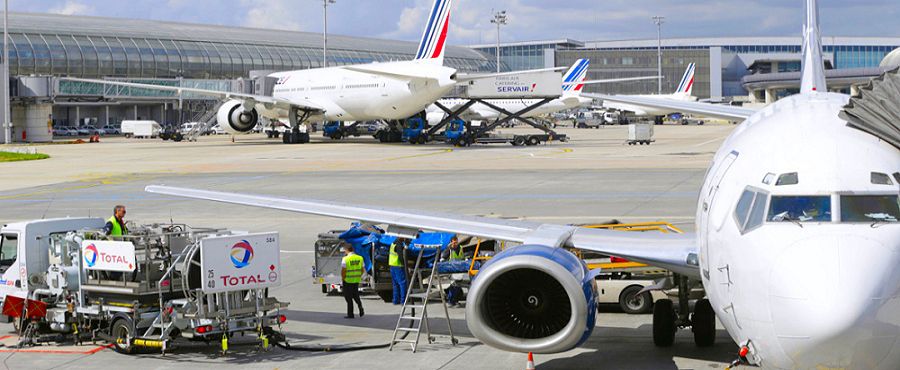 Le projet de privatisation de ADP , défendu par Edouard Philippe et Bruno Le Maire suscite de nombreuses critiques . A l’heure où nous écrivons l’Assembée Nationale vient de voter pour le dossier de privatisation d’ADP, et ceci même si le Sénat l’avait rejeté à l’automne. Le projet de privatisation de ADP , défendu par Edouard Philippe et Bruno Le Maire suscite de nombreuses critiques . A l’heure où nous écrivons l’Assembée Nationale vient de voter pour le dossier de privatisation d’ADP, et ceci même si le Sénat l’avait rejeté à l’automne.
Selon Nicolas Dupont Aignan, le gouvernement espère retirer 300 millions d’€ de l’opération, alors qu’elle rapporte beaucoup plus aujourd’hui !
Les députés PS, PCF et LFI ont déjà annoncé qu’ils saisiront le Conseil Constitutionnel où l’arrivée d’Alain Juppé début mars 2019 (mais est ce un hasard) va donner au gouvernement une majorité de soutien.
Face à la levée de boucliers contre son projet, Bruno Le Maire a donné des gages aux députés, notamment en ce qui concerne le contenu du Cahier des Charges qui sera imposé au concessionnaire et qui sera révisé tous les 10 ans (ce qui n’est pas le cas pour les concessions d’autoroutes)
Le ministre de l’Economie et des Finances accuse néanmoins Nicolas Dupont Aignan « d’abuser l’esprit public » et de « renforcer les théories du complot ».
Sauf que, il faut en convenir les révélations de NDA ont fait tomber à plat les accusations de Bruno Le Maire, en caractérisant tout aussi bien les liens malsains qui existent entre Emmanuel Macron et Bernard Mourad que la précision du jeu de chaises musicales qui s’est joué depuis le début du mandat présidentiel.
Les Gilets Jaunes auront une fois de plus des raisons d’être en colère !
|
|
|
|
|
|
|
|
| Clara Mitchell pour DayNewsWorld |
 |
YELLOW VESTS LOOTING TRASHED
AND CHARS IN PARIS
|
| Looting of luxury shops on the Champs-Elysees, Fouquet's ransacked.
Saturday is marked by renewed violence in Paris. The 18th Saturday of Yellow Vest mobilization takes place in a much more tense climate than the previous ones. Clashes take place since mid-morning in Paris in the Champs-Elysees district
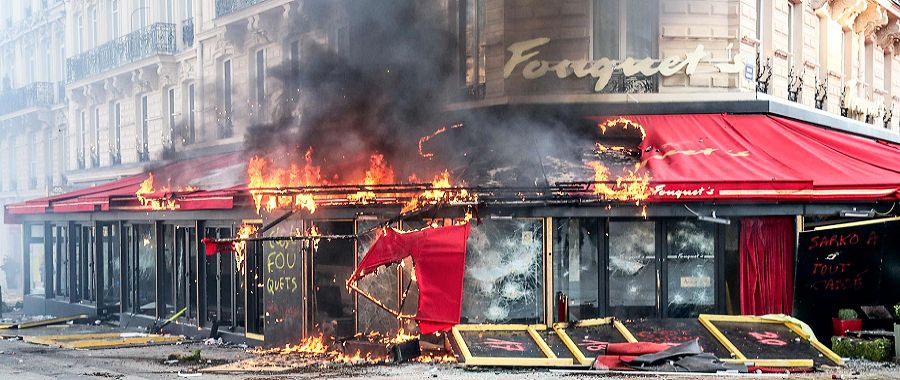 A mobilization "Act 18" of "yellow vests" sounds like an "ultimatum" for President Emmanuel Macron a day after the closing of the "great national debate". Four months of the movement. A mobilization "Act 18" of "yellow vests" sounds like an "ultimatum" for President Emmanuel Macron a day after the closing of the "great national debate". Four months of the movement.
In the morning, hundreds of people converged on the Place de l'Etoile, at the top of the Champs-Elysees, in Paris. Meetings were also organized near the train stations, where protesters from all over France arrived.
Eric Drouet, had indeed invited, in a video, the sympathizers to converge towards the capital, evoking even the reinforcement of sympathizers of Italy, Belgium, Netherlands or Poland.
Some dressed in yellow but others dressed in black and hooded.
Clashes with the police broke out at the end of the morning. The gendarmerie's Twitter account called the "yellow vests" to "dissociate" from the thugs. 
At midday, barricades were on fire and groups were attacking the shops of the Champs-Elysées and restaurants.
The famous Le Fouquet's brewery, listed as an historic monument, was also ransacked, as well as a burned newsstand.
"It's the mobilization of the ultra-violent ones who are there. There are 7000 to 8000 people in Paris. Within them, more than 1500 ultras who came to break and fight. "Said Christophe Castaner.
A major fire was also reported in a building on Roosevelt Avenue, near the Champs. "Two people were saved from the flames.
A woman and her baby were stuck on the second floor, "said the fire department. The fire started from a bank on the ground floor. A fire that left 11 people injured, according to a provisional report.
The investigation will determine whether the incident is the result of clashes on the sidelines of the demonstration of "yellow vests" in the area of the Champs-Elysees.
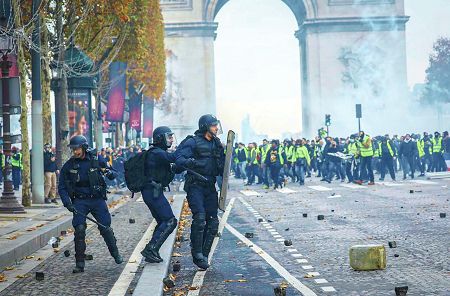 "The individuals who committed this act are neither protesters nor thugs: they are assassins," responded Christophe Castaner on Twitter. 94 people were arrested. "The individuals who committed this act are neither protesters nor thugs: they are assassins," responded Christophe Castaner on Twitter. 94 people were arrested.
The Great National Debate ends, but the Yellow Vests do not totally disarm. The mobilization has been declining for several weeks, but the leaders of the movement have called for a resurgence this Saturday, March 16, for "act 18" presented as that of "the ultimatum".
Paris is the epicenter of the movement. s of people were arrested. The interior minister called for "the utmost firmness". The cap of 100 arrests in Paris has passed.
Everywhere in France14,500 people were mobilized, including 10,000 in Paris, according to the Ministry of the Interior.
There were 7,000 people across the country, including 2,800 in the capital, at the same time last weekend.
A last demonstration of Yellow Vests before other types of actions?
"After this day, at least for me, it will be the end of the demonstrations, it will be real actions for the future," had for its part warned Eric Drouet, a figure of the movement.
|
|
|
|
|
|
|
|
| Garett Skyport for DayNewsWorld |
 |
YELLOW VESTS MIGHT FIND A SECOND BREATH
|
| On Saturday, several multi-event protests took place all over France, before the big national day on March 16th marked the end of the great debate. At 14h, there were 7000 "yellow vests", including 2800 in Paris according to the Interior.
In total, according to the figures of the Ministry of the Interior, 2,800 demonstrators were identified in Paris at 14 hours, against 1320 in the act 16. This increase in participation is also recorded in the regions, since 7,000 people were counted throughout France, against 5,600 on March 2.
While the latter evoked a "decisive act" by multiplying the various actions.
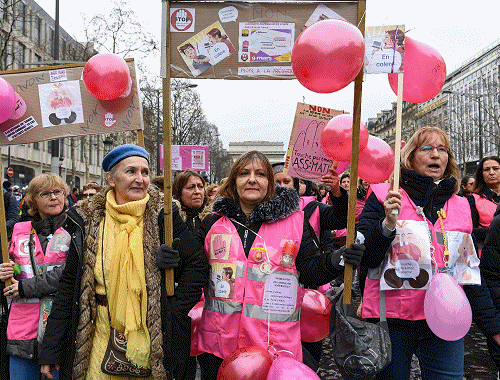 Nearly four months after the beginning of the movement, the "yellow vests" did not flag but last week-end, mobilization was out of breath. For the "act 17", the time is therefore to revive with new actions such as sit-in, flash-mob, parades with feminist collectives ... Nearly four months after the beginning of the movement, the "yellow vests" did not flag but last week-end, mobilization was out of breath. For the "act 17", the time is therefore to revive with new actions such as sit-in, flash-mob, parades with feminist collectives ...
The cortege started at 11 am from the Champs-Elysees towards the Luxembourg Gardens. At the head, the "pink vests", these maternal assistance mobilized since February 2 against the reform of their unemployment compensation, as well as the collective # 8mars15h40 which calls to wear a purple scarf to denounce pay inequalities and sexist and sexual violence.
But on the Champs-Elysees, the situation is somewhat confusing. Part of the procession did not follow the main, led by women.
The avenue was cut in two by a CRS dam with trucks and water cannon, at Galileo Street. Many "yellow vests" remained static for several hours, before being joined a little later by protesters who had left with the first procession, after the dispersion of the latter.
The Parisian sit-in was "to set up our roundabouts in the heart of the capital, where we will be visible to all and heard," explained Priscillia Ludosky. This figure of "yellow vests" participated Saturday morning in a blocking action of the bridge of Iena with the associations on the climate. Under the Eiffel Tower, this Saturday morning, about fifty demonstrators were gathered in front of a banner half yellow, half green, proclaiming: "Climate and social justice same fight."
A sit-in that quickly turned short.
A "giant flashmob" at Terminal 1 of Paris Roissy Airport also took place at midday, to protest against the privatization of Aéroports de Paris. A hundred "yellow vests" danced while protesting against the privatization project of Aéroports de Paris
Elsewhere in France, demonstrations took place in Lyon, Besançon, Strasbourg, Lille, Bordeaux, Montpellier, Avignon, St. Etienne, Poitiers, Quimper.
The events were held without major incident in Lyon, Saint-Brieuc, Caen, Rouen, Dijon, Lille, Strasbourg or Nancy while the atmosphere was more tense in Nantes, Montpellier or at Puy-en-Velay. Around 2000 people marched through the streets of the capital of the Haute-Loire, sometimes with projectile jets on the police.
This is for the "yellow vests" to reconnect with the spirit of the beginnings, when the movement had gathered 282,000 people across France on November 17.
Scheduled on March 16, the "act XVIII" of the movement will take place the day after the official end of the great debate with the objective of bringing together "the whole of France in Paris" by way of "ultimatum" for the government.
|
|
|
|
|
|
|
|
| Alize Marion for DayNewsWorld |
 |
EXCESSIVE USE OF FORCE IN FRANCE
ACCORDING TO THE UN
|
|
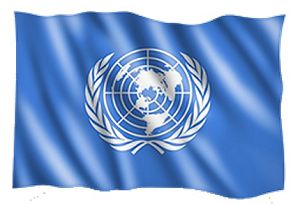
The UN High Commissioner for Human Rights is asking on Wednesday for France to investigate the police violence that has occurred during the Yellow Vest demonstrations since mid-November.
In a speech to the Human Rights Council in Geneva, Michelle Bachelet said that yellow vests are protesting against
"What they consider to be (their) exclusion from economic rights and from (their) participation in public affairs".
"We encourage the (French) government to continue the dialogue and urgently call for a thorough investigation of all reports of excessive use of force," said Michelle Bachelet .
 High Commissioner Michelle Bachelet also recalled that "inequality affects all countries" and that "even in prosperous states, people feel excluded from the benefits of development and deprived of economic and social rights" . High Commissioner Michelle Bachelet also recalled that "inequality affects all countries" and that "even in prosperous states, people feel excluded from the benefits of development and deprived of economic and social rights" .
However, she cited France as a prosperous country, but denounced the violent repression of recent protests in Sudan, Zimbabwe and Haiti.
"France assured Wednesday that it would follow the recommendations of the UN, while" surprising " to be on the same list as Venezuela or Haiti.
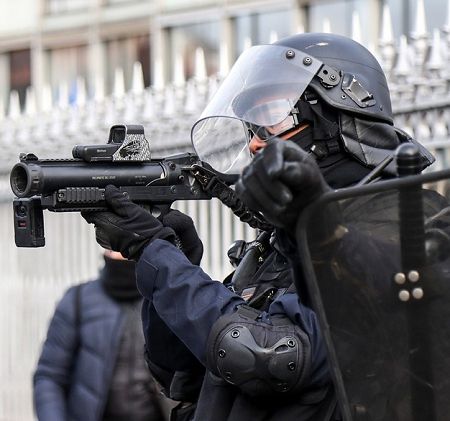 Would it have become a banana republic? Would it have become a banana republic?
"Obviously we will follow the recommendations with the necessary diligence , " said government spokesman Benjamin Griveaux during the minutes of the council of ministers at the Elysee.
"It is necessary, I say it nevertheless, to be astonished all the same to be found quoted in a list between Venezuela and Haiti where there were deaths, I remind it, of the numerous deaths, following demonstrations", a he added.
And how many deaths since the Yellow Vests demonstrations in France?
Benjamin Griveaux also recalls that "162 investigations were opened as of March 1".
The protesters "demand a respectful dialogue and real reforms. And yet, in many cases, they are greeted by violent and excessive use of force, by arbitrary detentions ... ", she lamented.
Several demonstrators claim to have been injured by launcher shots of defense (LBD) in France . Videos taken during events reveal particularly severe injuries, such as the loss of an eye or a hand torn off ...
The High Commissioner for Human Rights is not the first representative of a European or international body to denounce the excessive use of force in demonstrations of "yellow vests".
On February 14, it was up to a group of experts from the UN Human Rights Council to issue a ground-breaking communiqué on the subject, saying that "the right to demonstrate in France has been disproportionately restricted." While giving the figure of 1700 wounded.
On 25 February, it was the Council of Europe's turn to call on France to suspend the use of LBDs.
"The injuries caused by LBD shots reveal a disproportionate use of force, as well as the maladjustment of this type of weapon in the context of law enforcement operations," noted the Commissioner of Human Rights. Man of the ECHR, Dunja Mijatovic, in a ten-page memorandum.
|
|
|
|
|
|
|
|
| Jaimie Potts for DayNewsWorld |
 |
THE AGRICULTURE FAIR AND EUROPE
FARMERS ARE ALWAYS BREASTY
|
| The Agriculture Fair closed its doors this weekend, leaving farmers once more "hungry" (no pun intended), despite the ballet and bowing of almost all politicians. Yet they were treated with all the attention and extreme sympathy of all the French ruling class.
However, this ballet of politics or economic leaders has not reassured the agricultural world which has been for many months in great difficulties either globally or individually (for each farmer).
At the end of the show, several questions remained unanswered:
 CAP (Common Agricultural Policy) CAP (Common Agricultural Policy)
This is the first item of expenditure, ie 37.6% of the budget of the European Union. Since the Lisbon Treaty (2005), the CAP has been part of a five-year binding multiannual framework. But whereas before, it was the Commission alone which controlled all the decisions of the agricultural budget, since 2005 the Parliament holds more power.
With the European elections approaching, it is easy to imagine all the interest that farmers will have in the future of the CAP and the place it will have in the proposals of the programs of the different political parties that will present lists for these elections.
However, the European Commission, by voice, in the Agriculture Committee of Phil Hogan, has already developed its own proposals for the future budget of the CAP for the period 2021-2027.
2021, it's almost tomorrow! The talks have already made good progress, in a period of shortfall of around 12 billion euros caused by the departure of the United Kingdom from the EU, as a consequence of Brexit.
Because, following the first proposals of the European Commission, which provides for a reduction of 5% of the total budget of the CAP France would receive only € 7.147 billion of direct aid after 2020.
The reduction of the CAP budget will therefore have a very negative impact on farmers' incomes ... who see this shift come to fright.
The Commission is aware of this situation. Under (political) pressure in the run-up to the European elections, it dropped the ballast and left each country free (it is not customary) to increase its national contributions "to finance the aid for sustainable development, the safeguarding of diversity, product quality and societal expectations of health ".
But everyone knows that the budget of France is bloodless and that the margins of action are virtually non-existent as a result of the explosion of Yellow Vests.
It is very exactly and for this reason, because it is also in campaign, that Emmanuel Macron walked during 14H30 (a record) the alleys of the Salon of the Agriculture, punctuating his stops of exchanges improvised, promising a Europe that protects, cradling in its arms a kid, named Désir (it does not invent!) Offered by a farmer, promising to regulate the "population of bears and wolves pragmatically", caressing the asses of cows as the Jacques Chirac was doing ... In short! All in all, a vertiginous sum of gossip which has not come out very much and which leaves questions about the concrete intentions of the executive in matters of national agricultural policy.
The Agriculture and Food Law promulgated on November 1, 2018:
Coming into force on February 1, 2019, the law's main objective is to prohibit the sale at cost price of appeal products (Coca Cola, Ricard, Nestle, Nutella, etc.) and to require increases of 10% . According to the law, the resulting increase in turnover should, in theory, better pay agricultural suppliers and the work of farmers. Consumers held their breath, expecting massive increases in their shopping carts.
In fact, the measure has paradoxically benefited large stores once again ... who, using their considerable financial weight, forced manufacturers to lower their prices (3% on average) and which also played on the margins of distributors, not subject to the minimum margins provided by law. Extravagant!
As a result, the peasants are still waiting for the "runoff" promised to them
Certainly the Minister of Agriculture, has raised the tone, recently. He promised controls and sanctions ... a posteriori!
But in detail, too busy also with his obsequious genuflections made to the profession during the Salon de l'Agriculture, he says he has not yet had time to deal with the problem. Farmers will wait again!
The arms passes between ecology and agriculture:
On these two points, the atmosphere was very tense between Nicolas Hulot and Stéphane Travers, the former Minister of Agriculture. Moreover, both of them having resigned in 2018, it was hoped that the knives would return to the cupboards.
What nay! None of this happened. The duel between ecology and agriculture left more beautiful! Didier Guillaume, the new Minister of Agriculture unsheathed the first by denouncing agri-bashing. The reply of François de Rugy was not long in coming: "we must be aware that every time concessions were made to the agricultural world, it caused irritation in the opinion (reference to the Glysophate affair) ".
Poor farmers, drowned under the presidential logorrhea at the Salon de l'Agriculture. Poor farmers fooled once again, because as Charles Pasqua said "the promises are binding only those who receive them".
Ever since Emmanuel Macron was elected, farmers have been empty-handed, systematically.
Also, suicides are linked in the countryside (1 every two days) so that, vote after vote the National Gathering (formerly FN) reap the voices in quantity.
|
|
|
|
|
|
|
|
| Clara Mitchell for DayNewsWorld |
 |
YELLOW VEST MANIFESTATIONS
THE GENDARMERIE DEMARCATED
|
| On Saturday, March 2, 2019, the Yellow Vests planned to demonstrate for the 16th time.
Some claim that the movement is running out of steam. Nothing is less certain, even though Emmanuel Macron called for the calm of Bordeaux where he was this weekend to "glorify" the clap of the end of the mandate of the mayor of the city for almost 20 years, Alain Juppé.
We wish that there will be no violence and especially no injuries, serious or not, today.
For the President of the Republic this violence would be the sole responsibility of the protesters who should stop these demonstrations and present themselves wisely in the places where the National Debate ... calibrated.
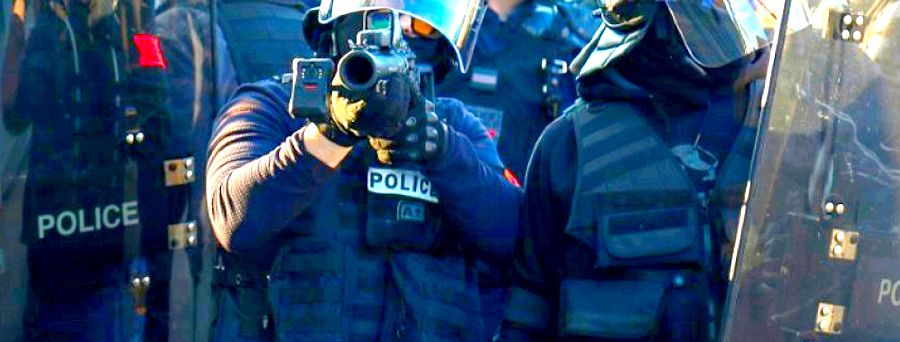 But so far protesters "Yellow Vests" have not evaluated the situation in this form. The most observant of them, the most insightful, just as a certain number of journalists present on the spot drew other conclusions. But so far protesters "Yellow Vests" have not evaluated the situation in this form. The most observant of them, the most insightful, just as a certain number of journalists present on the spot drew other conclusions.
One of these conclusions indicates that the committed gendarmerie forces have since distinguished themselves from "police violence and their famous bounty".
It is in any case the thought, heavy meaning, that has just made the Lieutenant Colonel Lefranc, in a statement published in "The letter of the friends of the Gendarmerie".
And the figures seem to confirm this assessment: the gendarmes who accounted for 73% of the troops involved would have fired only 10% of the rubber bullets which are equipped with the famous LBD. By deduction, the police, especially those of the BAC (Anti-Crime Brigade) would have fired 24 times more. It is these figures, very real, which have allowed some to affirm that during these Saturdays of demonstrations and violence, the gendarmes "who see no way out of the movement of the Yellow Vests" (see Essor Review of the Gendarmerie) stood out.
Better still, the gendarmes would not approve the use of the LBD which Emmanuel Macron justified the use in his interview of January 31, 2019, "because Yellow Vests come to shoot ... some even with rifles"?
Taking colors in the polls, the Head of State even dared this week, qualify the Yellow Vests rioters!
However, even if the Council of State validated in its decision of February 1 the use of the LBD, it is nevertheless necessary to remember that a group of experts of the UN worried about the disproportionate use of the LBD in France, the Council of Europe, for its part, having called for suspending this use!
France, a country of freedom and human rights is therefore nothing exemplary at the moment and that is what would probably justify the position of the gendarmerie forces in the successive episodes of Yellow Vests.
To ensure this analysis, we have taken the history of the beginning of the five-year period of Emmanuel Macron in his relations with the Army, knowing that the Gendarmerie is an Army Corps.
Upon his appointment, Emmanuel Macron manifested his contempt vis-à-vis the General Staff, distancing himself from General de Villiers who eventually resigned.
On July 14, 2018, a significant incident occurred. The Patrouille de France passes over the Champs Elysee with a tricolor very singular flag that none have decoded in figures: 1789 ....
Panic at the highest level of the state which is reinforced "when uncultivated people, poor people and nothings" start demonstrating by blocking roads and highways.
The swagger of the Elysee who had cried out last summer "they come to get me" immediately became afraid. With the help of Florence Parly, the Minister of the Armies, he calls on the reporters in Calvi and Nîmes. The answer falls dry: the General Staff will not engage the troupe against the People of France.
In fear, the Elysée requisition the ban and back of the Police and including BAC, whose policing is not in his remit and whose members do not have, in general, qualifications necessary for handling the LBD.
"These cops, reputed without faith nor law" are very badly received, and this even if some brave as Alexandre Langlois, General Secretary of the Syndicate Vigi-police denounce this police repression, which would be ordered by a certain Minister of the Interior Christophe Castaner said Rintintin or Gaztaner, who would not hesitate to summon on February 20 "the impertinent" before a Council of Discipline for the sole reason that he had denounced these unfair orders.
These historical episodes are meaningful!
The end of the first half of the Yellow Vests game will be whistled in the aftermath of April 15, 2019 when the executive's proposals "drawn" from the analysis of the grievance books opened since December 15, 2018 will fall. probably possible to assess whether the police violence was justified or whether it only fueled the discontent.
To be continued…......
|
|
|
|
|
|
|
|
| Clara Mitchell for DayNewsWorld |
 |
GREAT MESSES OF EMMANUEL MACRON
|
| "The overrepresentation of the government and its supporters on the radio and television broadcasts, especially during the great debate, seriously threatens the balance of representation of the various political expressions that form the basis of our democratic system," he said. writes the Socialist Party in a statement issued on 25 February that accompanied the sending of a referral to the CSA.
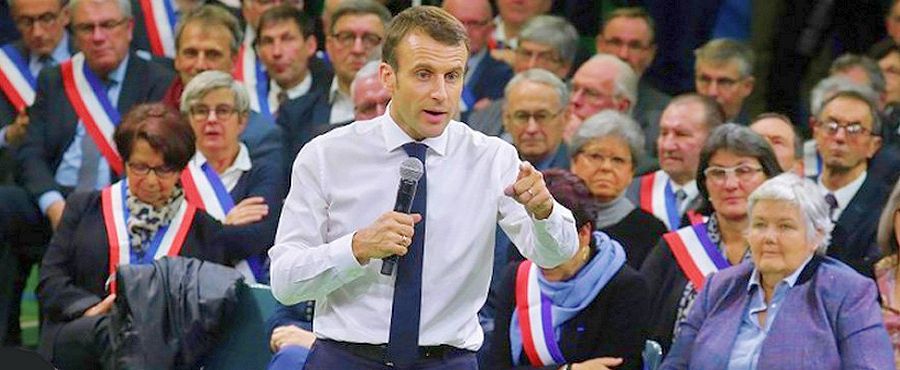 Everyone is wondering how President Macron's prolific speech will be accounted for in the big debate. And for good reason: When Emmanuel Macron speaks in the context of the great debate, his time must be counted because it falls within the framework of what the CSA calls "the debate of national policy". Only his regal interventions do not fall within this field of counting. And info channels devote time to big masses, sometimes broadcasting them in their entirety. Everyone is wondering how President Macron's prolific speech will be accounted for in the big debate. And for good reason: When Emmanuel Macron speaks in the context of the great debate, his time must be counted because it falls within the framework of what the CSA calls "the debate of national policy". Only his regal interventions do not fall within this field of counting. And info channels devote time to big masses, sometimes broadcasting them in their entirety.
The National Front, the Republicans, insubordinate France and recently the Socialist Party have seized the CSA denouncing all a distortion of speaking time with a much too unbalanced airtime in favor of the President of the Republic and his majority.
The rule in force which applies since January 1, 2018, outside the electoral period, as is the case for Europeans only opening in April, is as follows:
Speaking time is broken down into one-third for the executive (president, prime minister, ministers and their collaborators) and two-thirds for political parties according to election results, the number of elected officials and polls.
And the balance demanded of the media must be respected not on a week but on a quarter based on a monthly count sent by the chains to the CSA. At the beginning of March the figures of December are not yet communicated ...
When are the figures for the months of January and February? Not before the Europeans, it seems ...
A thorny issue for the chairman of the CSA Roch-Olivier Maistre
|
|
|
|
|
|
|
|
| Garett Skyport for DayNewsWorld |
 |
CLAIN BROTHERS OR FRENCH VETERANS JIHAD DEAD?
|
French jihadist Fabien Clain was reportedly killed in the afternoon of Wednesday, February 20, in Syria, by an international coalition strike, and his brother, Jean-Michel, was reportedly seriously injured. Fabien Clain was killed by an air strike in Baghouz, the last bastion of the Islamic State terrorist organization in Syria. 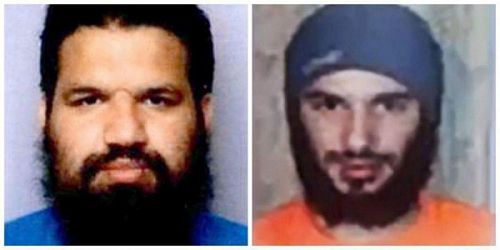
The French government is still waiting for a DNA analysis to formalize his death.
The French authorities have not officially confirmed the death of Fabien Clain.
"During the operations of reconquest of the last stronghold of Daech led by the coalition, it is possible indeed that Fabien Clain was killed, tweeted in the evening the French Minister of the Armies Florence Parly.
If this is the case, the French who remember his calls for murder and his role in the pseudo-Islamic state, will surely be relieved. We remain vigilant, this information is not confirmed, "she added.
The Clain brothers were quickly identified in the claim of the Islamic State group after the attacks of 13 November in Paris as the voices of the message. Fabien Clain, 41, was the voice of the terrorist group's sound message broadcast in the aftermath of the attacks perpetrated by three commandos of men returning from Syria. His brother Jean-Michel, 38, had been recognized in the Anasheeds - religious songs - of the recording.
Veterans of the jihad, they were in the sights of anti-terrorist services for years. After demonstrating their involvement in the attacks of 13-November, the investigating judges issued an arrest warrant against them in June 2018.
Many "high value" targets were reportedly killed by the French or American army on the spot.
|
|
|
|
|
|
|
|
| Carl Delsey for DayNewsWorld |
 |
ASSAULT OF ALAIN FINKELKRAUT ANTISEMITIC ACTS OF YESTERDAY AND TODAY
|
| The rallies took place on Tuesday evening, 19 February 2019, to protest the latest anti-Semitic acts that France has just known.
In Paris, Place de la République, 20,000 people gathered to listen to the few speakers asked to intervene, including former President Nicolas Sarkozy; to listen but also to commune together in memory of the victims of racism and anti-Semitism.
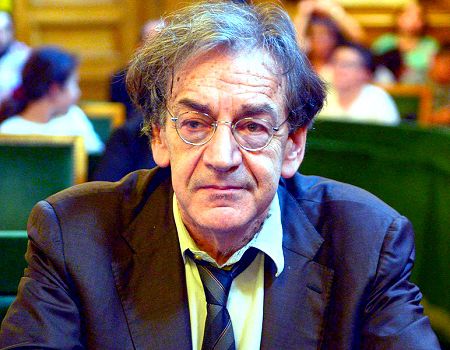 A large number of elected officials joined the movement, including the mayor of Paris Anne Hidalgo, the President of the Region of Ile de France, Valérie Pécresse or the leader of Generation (former PS), Benoit Hamon, initiator of the operation. A large part of Edouard Philippe's government was there, even though the President of the Republic, Emmanuel Macron, had decided not to open the march. A large number of elected officials joined the movement, including the mayor of Paris Anne Hidalgo, the President of the Region of Ile de France, Valérie Pécresse or the leader of Generation (former PS), Benoit Hamon, initiator of the operation. A large part of Edouard Philippe's government was there, even though the President of the Republic, Emmanuel Macron, had decided not to open the march.
All the protesters present called for firmness following the latest violent anti-Semitic acts that France has just known. All also shared the fear, anger or outrage aroused by these acts.
Everything started with insults addressed to Alain Finkielkraut, who returned home after having lunch with the family at the restaurant was found by the greatest chance in front of a group of yellow jackets the previous Sunday. The desecration the same day of a hundred graves of the Jewish Cemetery Quatzenhein, a small village located north west of Strasbourg was also in all heads because of the swastikas that had been discovered there. It is also in this small village, inside the cemetery that the Head of State had chosen to meet the Jewish community.
These have sounded the charge against a reviving anti-Semitism; Had not Christophe Castaner himself announced on 11 February 2019 that anti-Semitic acts were on the rise by 74%, the number of acts having jumped from 311 to 541? In front of the sawn and bare trunk of the tree planted in memory of Ilan Halimi, Christophe Castaner denounced that day "the winds of anti-Semitism that spreads like a poison".
In short! As our excellent colleague, Elisabeth Levy has just stated, the evening was "a festival of republican proclamations". But after all, she added, "any excess of feelings in this area is better than indifference."
But under the background of "kiss us crazy city" there was still a lot of hiccups!
So, in the face of the unitary display and the purity of the cause, many questions arose as to where this resurgence of anti-Semitism came from?
Of course, and since they have been disturbing for several weeks, Yellow Jackets have been accused.
The first attacks came from Benjamin Grivaux, the Minister in charge of Relations with Parliament.
One of his old tweet, dated December 22, 2018 resurfaced: "So we lynch, we sing the Quenelle de Dieudonné in Montmartre, we take the codes of the 1930s to overthrow the Republic, we decapitate the effigy of the President of the Republic…. Behind this one, there is only one face, cowardly, racist, anti-Semitic , putschist "he had written then. Just that!
Benjamin Grivaux in the text, mixing insult and foolishness! But also a tweet expressing the hypocrisy that dominates in France in the heavy atmosphere and aggressiveness that prevails in France.
Because what has actually happened these days, with the aggression of an immense man of culture and academician that is Alain Finkielkraut, who from the very beginning had declared to support the movement of Yellow Vests, which comes from to appear in full light, it is indeed the Islamic anti-Semitism, that some describes as gaucho-islamist.
This ideology is consubstantial with post-modern cultural leftism, well analyzed by Jean Pierre Le Goff. This gaucho-Islamist is the one who killed Ilan Halimi and led the left to close his eyes for years?
In this context we are all more or less obliged to put back to the heart of the debate "the recognition of the lost territories of the Republic and the correlative idea of living together".
We must also remember that the left, all the left, socialist and related had not supported Alain Finkielkraut in 2005! She had even dragged him into the mud, following the riots in which he had denounced, already, the ethnic and religious aspects of these intifadas imported on the national territory. By laziness? By clientelism?
We ourselves will choose clientelism.
For it must not be forgotten that Emmanuel Macron himself had appealed to the suburban Muslim communities through imams. A support that had been very useful, while the one, who is now Head of State, deliberately gave up evaluating whether these supports came from a communitarian ideology that as a "red plague" had developed in suburbs, but also in nurseries (see Baby Lou case), schools, colleges, high schools, swimming pools, the street (with the identity veil), the subway, trains and even in companies obliged by new legislation, to accept the hours of prayer during working hours or even to create, to help, rooms of worship ...
Evidence contrary to that in December 2018 had declared Jean Yves Camus, Director of the Observatory of Political Radicals and researcher at IRIS who still accused in block, only the extreme rights, the newspaper Rivarol, the networks conspiracy internet, the young followers of Dieudonné and Alain Soral, some RN militants suspected of having had an antisemitic past, Robert Faurisson ...
The researcher recently stated with aplomb "that he did not know an antisemite with a left spine"! At the same time, the same researcher considers that the events in the Middle East and the Israeli-Palestinian conflict are not responsible for the antisemitic background noise that has been heard for many years.
Understand that, especially since yesterday, Marlene Schiappa went there, too, of her diatribe by declaring that "she wanted to emphasize the existence of an ideological convergence between the Manif For All and the terrorist attacks". If ridicule killed, she would be dead!
On the other hand, what many of us are beginning to understand is that the dominant LA, which has been insinuating since the end of the 1939-1945 war, is globalist and standardizing, is certainly not the one all citizens of the world, including Isalmists, want.
The vast majority of Yellow Vests, non-racist and non-anti-Semitic, seemed to have understood that the LAW that crushes, impoverishes, enslaves, excludes, crushes is increasingly challenged.
Unfortunately, the return to the forefront of anti-Semitism, "brown plague" for the current majority will inevitably stifle their movement, because of discredited by some "hate Islamists" creating the scandal.
In this ideological maelstrom and like Elisabeth Levy we will have a thought for other groups like the Catholics who also come to suffer terrible images of soiled altars, broken or degraded statues and tabernacles dumped, and this when even though or because the newspapers have not made their own on these supposedly diverse facts, more than sad for them.
In their great majority, the French agnostics, Catholics, Protestants, are all in spite of themselves embarked in the Macronist boat which rocks and which could possibly be sinking unless the French wake up?
To conclude and once again we will repeat the words of Elizabeth Levy who "believes that anti-Semitism today is more a red plague (color blood of Islamist attacks) than a brown plague."
In any case, we will not end without having given our full support to Alain Finkielkraut.
|
|
|
|
|
|
|
|
| Clara Mitchell for DayNewsWorld |
 |
BENALLA CASE OR FAILURE
AT THE HIGHEST OF THE STATE
|
| On 15 February, the Paris Public Prosecutor's Office opened a preliminary inquiry into "obstruction of the manifestation of the truth". Is there "concealment of evidence" in the various investigations against Alexandre Benalla?
Justice is interested in two statements by Alexander Benalla, according to a source close to the survey.
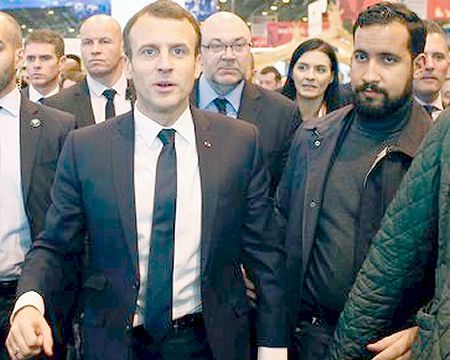 The first is the disappearance of the safe that he owned at his home for his weapons. The first is the disappearance of the safe that he owned at his home for his weapons.
This safe "had to be taken to a safe place by a person but it was not me who took care of that," he told investigators on July 21.
The public prosecutor's office had not found it appropriate to expand the scope of investigations to find this safe no offense in connection with weapons being blamed to the former chargé de mission Emmanuel Macron.
According to Libération, on February 14, Chokri Wakrim was the author of this move.
What the latter denied.
The second statement concerns the removal of SMS with Vincent Crase. The former collaborator of Emmanuel Macron says in this exchange:
"And we erase everything each time. You erased everything in your phone? ".
The announcement of the opening of this inquiry comes a few hours after the Senate Law Commission delivered its report. Justice must work.
This commission calls to seize justice suspecting Alexandre Benalla and Vincent Crase to have lied and three collaborators of Emmanuel Macron to have omitted certain elements voluntarily.
|
|
|
|
|
|
|
|
| Andrew Preston for DayNewsWorld |
 |
INVASIVE UP FROM ANTISEMITISM
IN THE ENTIRE EUROPE
|
| There has been a disturbing rise in anti-Semitism in Europe over the last ten years.
This is evidenced by the European barometer of the EU. In France the Minister of the Interior has announced a leap anti-Semitic acts over a year of 74%, unfortunately illustrated recently by the face of Simone Veil crossed with a swastika, the degradation of trees planted in memory of Ilan Halimi or anti-Semitic insults against the essayist and academician Alain Finkelkraut.
On February 12, 2019 in the Assembly, Prime Minister Edouard Philippe declared: "I share this anger (...) in front of more and more acts, which target the people or the places, the anti-Semitic acts against the memory of Ilan Halimi, the anti-Semitic acts against the memory of Simone Veil, the inscriptions placed here and there on such and such a sign ". This phenomenon is not recent and is not unique to France.
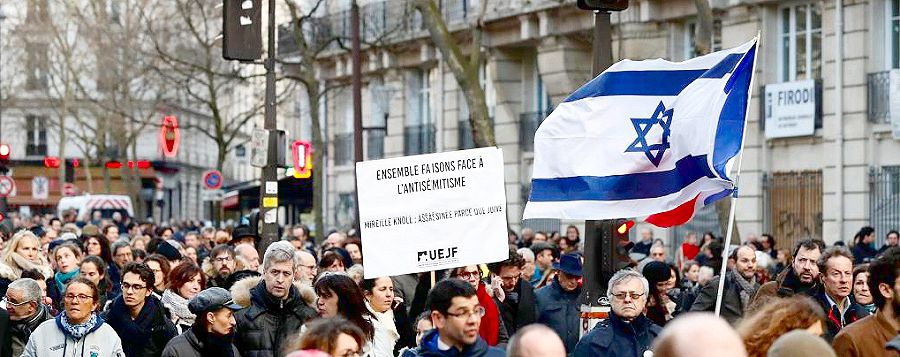 The situation in other European countries is not good either. Germany is no more spared: in 2017, the Ministry of the Interior has noted an increase in anti-Semitic acts. The situation in other European countries is not good either. Germany is no more spared: in 2017, the Ministry of the Interior has noted an increase in anti-Semitic acts.
681 reports during the first semester, 27 more than the previous year (+ 4%). Faced with the worsening of the situation, Germany appointed in May the lawyer and diplomat Felix Klein as the head of the fight against anti-Semitism with the federal government.
According to the Jewish Community Security Trust (CST), which lists antisemitic incidents in the United Kingdom since 1984 and has just published its 2018 report, these acts increased by 16% last year, from 1420 to 1652.
In Poland, on 27 January, the extreme right organized for the first time a demonstration on the site of Auschwitz-Birkenau on the occasion of the annual day in memory of the victims where dozens of Polish nationalists had gathered.
"The Jewish nation and Israel are doing everything to change the history of the Polish nation," said Piotr Rybak of the Polish Independence Movement, the organizer of the protest. "Polish patriots can not admit that," he added. Across Europe, far-right political parties are accused of fanning anti-Semitism.
In the image of the AfD in Germany, several leaders were criticized for making statements pretending to minimize the Holocaust. In Hungary, Prime Minister Viktor Orbán's Fidesz last year led a virulent campaign against migrants, as well as George Soros, the American Jewish billionaire of Hungarian origin.
According to the anti-Semitism barometer of the European Union Agency for Fundamental Rights, published in November 2018, the outbreak of anti-Semitism was almost universal in Europe between 2007 and 2017, with outbreaks simultaneous measures that are not exactly the same from one country to another.
Last January, the Israeli Minister of the Diaspora, Naftali Bennett denounced an increase of these phenomena in the world. "The year 2018 has been marked by records of anti-Semitism on the streets, online and on the political scene in the world," insisted Naftali Bennett.
Attacks that are in 70% of cases, "anti-Israeli nature," he said. Violence against Jews in Europe can therefore be correlated with Israeli - Palestinian tensions such as the summer of 2014 the "Gaza war", or that of 2008-2009. The Israeli report also highlights the number of anti-Semitic acts attributed to neo-Nazis and white supremacists.
Every year, since 2004, in its annual report, the National Consultative Commission for Human Rights has pointed out that the perpetrators of anti-Semitic acts no longer belong, "the great majority of them to groups influenced in a significant way by extremist ideology of the right, but to the backgrounds of Arab-Muslim origin ".
There is a sense of insecurity in Europe's Jewish communities: "Jewish communities too often live in fear of being discriminated against, abused and even abused," said the First Vice President of Commission, Frans Timmermans. "Four in 10 Jews are thinking of leaving Europe," Justice Commissioner Vera Jourova told the Jewish Museum in Brussels.
"When Jews left Europe in the past, it was never a good sign of the state of Europe," she added.
"Several decades after the Holocaust, the European Union remains plagued by shocking and growing levels of anti-Semitism," said in December Michael O'Flaherty, director of the Fundamental Rights Agency (FRA) of the European Union.
Across Europe, the scars of anti-Semitism are becoming more and more visible, so much so that the FRA evokes a "surge" that threatens "not only our Jewish communities, but also the very values of fundamental and human rights on which the European Union was built ".
|
|
|
|
|
|
|
|
| Alyson Braxton for DayNewsWorld |
 |
THE FAREWELL TO THE TEARS OF ALAIN JUPPE
IN "BORDEAUX LA BELLE"
|
| To the amazement of many, and it seems, feigned or not, the person concerned, Alain Juppé has just been named "Sage among the Sages" member of the Constitutional Council to replace Lionel Jospin.
The Constitutional Council comprises 9 members, plus one ex officio member, Valery Giscard d'Estaing, in his capacity as former President of the Republic. It is renewable by 1/3, the unique mandate of a member not exceeding 9 years.
It was necessary at the beginning of the year 2019 to appoint 3 new "magistrates" to replace those positioned on the starting line or deceased.
According to the Constitution, the power of appointment belongs to:
- President of the Republic who has just appointed Jacques Mézard, former Secretary of State, Senator
- Speaker of the Senate who has just appointed Jean Jacques Hyest, Senator
- President of the National Assembly who has just appointed Alain Juppé
It is within the scope of his attributions that Richard Ferrand has appointed Alain Juppé.
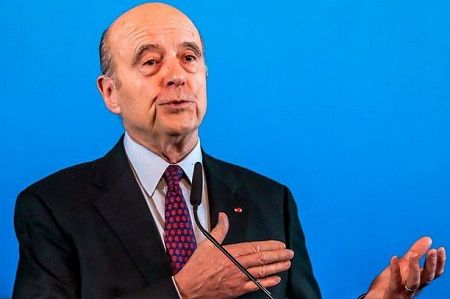 This decision, which was made public on 14 February 2019, immediately gave rise to comments, mostly acidic, with the exception, for example, of François Baroin, a long-time friend of Alain Juppé and President of the Association of Mayors of France. This decision, which was made public on 14 February 2019, immediately gave rise to comments, mostly acidic, with the exception, for example, of François Baroin, a long-time friend of Alain Juppé and President of the Association of Mayors of France.
The fireworks of the critics began the day after the announcement with, the first of them, that we had to notice, namely that of Nicolas Canteloup who did not hesitate to qualify " this democratic bug, agree between reprinted justice ".
It is true that Alain Juppé was convicted in 2004 in the famous case of the fictitious jobs of the mayor of Paris then chaired by Jacques Chirac, but also that Richard Ferrand is today put in review in the context of a dark case of personal enrichment, embezzlement and fraud to the detriment of Mutuelles de Bretagne.
A chabada chabada affair (Ferrand / Juppé) on Valentine's Day!
There was more bad!
Alain Juppe fearing to take "a jerk" in the upcoming municipal elections in Bordeaux, would have preferred to join the paradise (near the Grévin Museum) policies, namely the Constitutional Council or the average age is 70 years and over.
The Constitutional Council is, it is true, in the process of becoming a political cemetery where we recase the friends or those who we wish to see definitively leave the political life or those who through the questions submitted could make the decisions expected by the power.
The next day, Alain Juppé immediately gave a press conference, whose main point, "sobs in his voice" was addressed to the Bordelais to whom he had promised to remain until the end of his mandate?
In the ranks of the Bordeaux opposition, we have obviously hammered the nail: "Pharaonic expenditure (see our previous editions) committed by Alain Juppé, to make Bordeaux, a beautiful, emptied the boxes! Alain Juppé does not leave Bordeaux by the main door; he has simply secured a golden retirement at the Constitutional Council ". The social crisis has indeed passed through the city of Bordeaux where Yellow Vests have massively manifested, the popular layers have been boosted outside the city as a result of the changes promoted by Alain Juppé and its Municipal Council. Bordeaux have seen red for many weeks.
But the rejection of Alain Juppé by the Bordelais may not be the only reason for his departure?
The news fell by means of a sober statement made by the person concerned to the press on 14 February. Even his closest associates were not, it seems, in the secret. In their vast majority the Bordelais were not aware too.
Yet there had been some early warning signs. Alain Juppé, out of rupture for many months with the Republicans, since the election of Emmanuel Macron, had he not announced in January that he would not renew his membership in the party? The rapprochement with the President of the Republic had not materialized by the appointment of his former protégé, Edouard Philippe to Matignon, a symbol!
Yet it is said behind the scenes that the appointment of Alain Juppé to the Constitutional Council would have created collateral damage in the macronie itself and in the macronie of the Elysée more precisely, which for 3 months had expressed its disagreement vis-à-vis Richard Ferrand's intentions and to the end sought to convince him of another choice, to no avail.
The President of the National Assembly who wanted to "make a coup" remained deaf to the recommendations of the Elysee who also organized a game of musical chairs. The appointment of Alain Juppé has, contrary to appearances much upset the Elysee.
Alain Juppe will therefore land on rue Montpensier where he will sit alongside Laurent Fabius, the current President of the Constitutional Council, also convicted in the case of tainted blood.
Having become Sage, Alain Juppé will now be on the reserve and will not be able to support the Macron / LREM list of the next European elections, a support that would certainly have been very useful.
Yet the two men had lunch together on Tuesday, February 12th?
In spite of everything, Alain Juppe, who had been beaten by François Fillon in the primaries of the right, had remained against the odds of a right-wing figure.
As a result, his appointment to the Constitutional Council will leave the field open to those who intend to take over the torch of the current of the social and moderate right he represented, like the example of Valérie Pecresse or Xavier Bertrand, who will certainly not resume the slogan of "happy identity" that made a large part of the right electorate go back.
Because, at this end of the game, it should be noted that Alain Juppé had put the worm in the fruit of the French right that it disintegrated from the inside.
And from this point of view, it will be noted that the one who was "the best of us" is demonstrating the opposite of Edouard Herriot's famous formula "the intelligent man is the one who measures that he can understand. In fact, since the dawn of his political career Alain Juppé has understood nothing of France and the French.
Good luck, Mr. Juppé to the Constitutional Council !
|
|
|
|
|
|
|
|
| Clara Mitchell for DayNewsWorld |
 |
TOWING A DAMAGE OF THE MOVEMENT
AND AN ECLATEMENT OF YELLOW VEST ?
|
| Several events were underway this Saturday afternoon, three months after the start of the movement. At 2 pm, the Ministry of the Interior recorded 10,200 demonstrators throughout France, including 3,000 in Paris. According to the official figures, challenged by the "yellow vests", the mobilization for this day would be down compared to the previous week at the same time, where 12,100 demonstrators had been identified in France by the Ministry including 4000 in Paris
Towards an exhaustion of mobilization
The mobilization decreases overall every Saturday since mid-January. According to the authorities' figures, on 19 January the number of "yellow vests" reached 84,000, they were 69,000 on January 26, then 58,600 on February 2 and finally 51,400 people on February 9. Figures, however, contest the "yellow vests" that had identified Saturday, February 9 at least 110,000 protesters
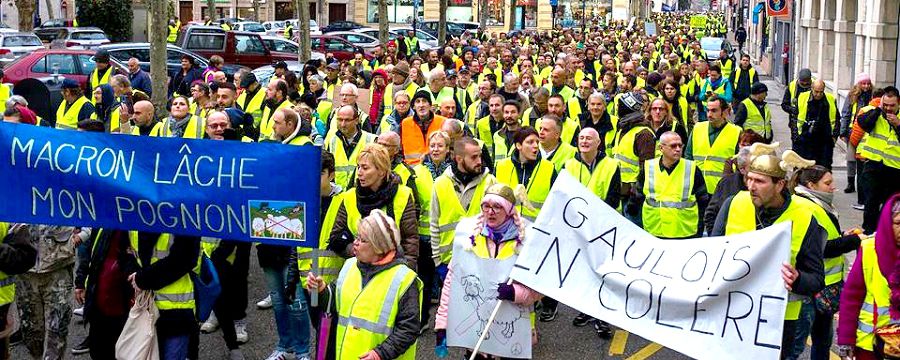 A feeling of weariness among the French A feeling of weariness among the French
This drying up of the mobilization seems to go hand in hand with a feeling of weariness of a majority of French (56%) who wish that the movement stops. If a majority of French (58%) continue to approve the fight of the "yellow vests", two thirds think that the type of mobilization of Saturday does not correspond any more to the initial claims around the purchasing power.
The executive gave $ 10 billion and taxed overtime and satisfied a number of claims. In the same way, the debate responds to this demand to be heard and to express oneself.
In addition, acts of violence are condemned by the population. Even if the tension seemed to diminish 26 people were arrested Saturday in Paris. Clashes took place in Bordeaux, Toulouse, Nantes and Lyon. At Le Mans, the residence of Sarthe MP Damien Pichereau (LREM) was completely destroyed, "and in Rouen, four yellow vests were slightly injured by a car.
In Paris, the writer and essayist Alain Finkielkraut suffered anti-Semitic insults.
Moreover, the movement is struggling to find a unity.
The "yellow vest" Ingrid Levavasseur announced on Wednesday 13 February that she was abandoning the list of the "Citizens' Initiative Rally" (RIC) she wanted to run for the European elections, explaining that she wanted to "get back on track" and " smooth the name RIC "without, however," giving up ". "I officially disassociate myself from the rallying of citizen initiative (which does not mean that I give up presenting a list for European women)," she insisted on her Twitter account.
This is not the first time that the RIC list has known since its debut in January some disappointments. Hayk Shahinyan, had announced "take a step back" at the end of January by renouncing his role as director of the campaign. Two members of the list then announced to give up.
On January 31, it was Brigitte Lapeyronie who was deploring "that his application to the European forces him to abandon the defense of employees." Then Marc Doyer who said he was the target of death threats and "fake news" because of his support for Emmanuel Macron.
Thus emerging figures are challenged or deemed unrepresentative.
The movement is struggling to structure itself politically: four lists of "yellow vests" were announced in early February for the European elections none being complete.
Wednesday, February 13, Ingrid Levavasseur, therefore threw in the towel by abandoning the list of the "Citizens' Initiative Rally" (RIC) she intended to lead. Meanwhile, Hayk Shahinyan, who had withdrawn from the first list led by Ingrid Levavasseur, announced Sunday, February 10, that he was going to found a new party, the Alternative Citizens Movement (MAC)...
|
|
|
|
|
|
|
|
| Alize Marion for DayNewsWorld |
 |
ECLATEMENT OF YELLOW VESTS
DEPARTURE OF INGRID LEVAVASSEUR OF LIST RIC
|
| The "yellow vest" Ingrid Levavasseur announced on Wednesday that she was abandoning the list of the "Citizens' Initiative Rally" (RIC) she intended to conduct for the European elections, explaining that she wanted to "get back on track" and "smooth the name RIC "without however" giving up ".
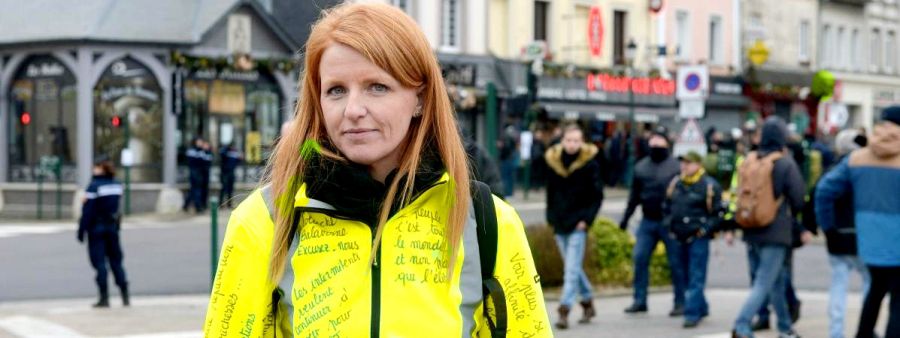 Asked about possible divisions that led to this decision, the 31 year old caregiver said: "Absolutely not, I have companions who follow me, we just smooth the name RIC and we start on a good basis" . Asked about possible divisions that led to this decision, the 31 year old caregiver said: "Absolutely not, I have companions who follow me, we just smooth the name RIC and we start on a good basis" .
"I officially disassociate myself from the rallying of citizen initiative (which does not mean that I give up presenting a list for European women)," she insisted on her Twitter account.
This is not the first time that the RIC list has known since its debut in January some disappointments. Hayk Shahinyan, had announced "take a step back" at the end of January by renouncing his role as director of the campaign. Two members of the list then announced to give up.
On January 31, it was Brigitte Lapeyronie who was deploring "that his application to the European forces him to abandon the defense of employees . " Then Marc Doyer who said he was the target of death threats and "fake news" because of his support for Emmanuel Macron.
Who for a head of the list?
Is not that a little premature?
Difficult to find political solutions...
|
|
|
|
|
|
|
|
| Boby Dean for DayNewsWorld |
 |
ACT THIRTEEN YELLOW VESTS
A CONFUSED AND TENDENT ACT
|
For the 13th time the Yellow Vests paraded in Paris and in the streets of the main provincial cities.
The Ministry of the Interior, which appears to be the only one to have reliable metering measuring instruments, has counted 51400.
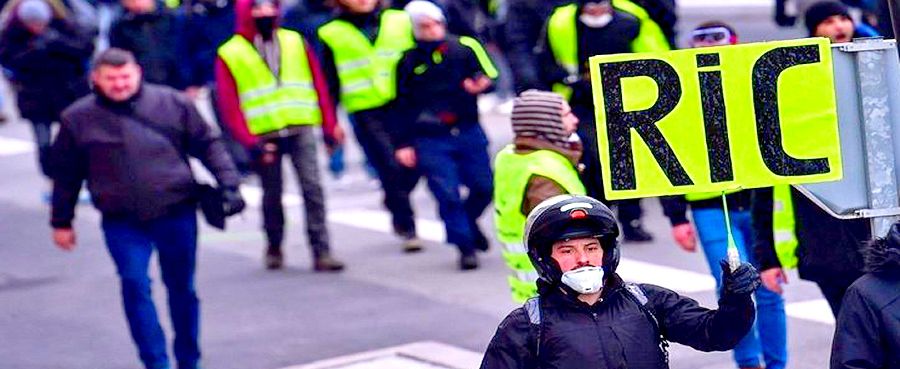
A figure that according to government analysts shows a decline in mobilization.
The Yellow Vests and their supporters have for their part counted 110 000 participants throughout France, yesterday, Saturday, February 9, 2019!
A figure similar to that of last week that does not allow to say that the movement is weakening!
Leaving the Place de l'Etoile around 10:30 am, the Parisian motorcade was once again hit by the police.
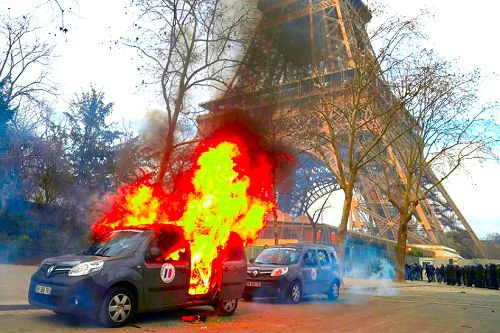 The first tensions occurred at the level of the National Assembly around 1 pm. At jets street furniture the police responded with jets of tear gas. The first tensions occurred at the level of the National Assembly around 1 pm. At jets street furniture the police responded with jets of tear gas.
A demonstrator had his hand torn off during these clashes, a opening grenade GLI-FU ("weapons" that contain 24 grams of TNT) that exploded in his hand.
A Vigipirate car belonging to the Sentinel Force was set on fire near the Champ de Mars at the foot of the Eiffel Tower. Seen from abroad, it was perfectly possible to wonder if Paris Brulait?
The movement of Yellow Vests would give some signs of shortness of breath? Nothing is less certain?
The movement is still largely supported by French public opinion.
According to a survey of YouGov broadcast Thursday, February 7, 2019, 2 French out of 3 still support the Yellow Vests (64%) ... 2 more points in a month and 77% consider mobilization justified (+ 3%).
This poll shows that even if tensions remain all weekend due to (?) Yellow Vests, the situation is not rotten.
This is in any case what has just declared today Nicolas Dupont Aignan (candidate and head of the list of Debout France for the next European elections) on the TV sets of LCI ...
According to the tenor of the French right, the responsibility for this rottenness should be on the account of Emmanuel Macron and his government
|
|
|
|
|
|
|
|
| Clara Mitchell for DayNewsWorld |
 |
TOWARDS THE DIPLOMATIC BREAK
BETWEEN FRANCE AND ITALY?
|
| "Extreme declarations", "baseless and unprecedented attacks" and "repeated accusations" on the part of Rome. These are the main reasons why France has decided to recall its ambassador to Italy for "consultations". Until then, the tensions between Paris and Rome, particularly acute since the arrival of the nationalist and antisystem coalition (the League and the 5-Star Movement) in power in Italy, had been limited to invective or dispute over settled at intergovernmental level.
But the Quai d'Orsay had already denounced Thursday an "unacceptable provocation" after a meeting in France on the sly, t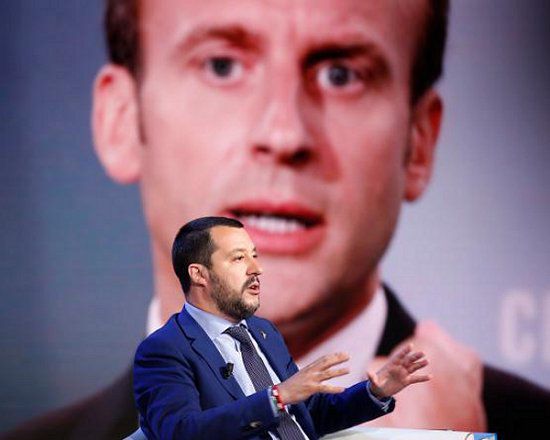 he day before, between the Vice-President of the Italian Council and political leader of the Movement 5 Stars, Luigi Di Maio, and extremist representatives "yellow vests", mobilized for several weeks against President Emmanuel Macron. Mr. Di Maio seeking to unite the anti-elites for the Europeans ... he day before, between the Vice-President of the Italian Council and political leader of the Movement 5 Stars, Luigi Di Maio, and extremist representatives "yellow vests", mobilized for several weeks against President Emmanuel Macron. Mr. Di Maio seeking to unite the anti-elites for the Europeans ...
"The latest interference is an additional and unacceptable provocation. They violate the respect due to the democratic choice, made by a friendly and allied people. They violate the respect that democratic and freely elected governments must have among themselves, "Foreign Ministry spokeswoman Agnès von der Mühll said in a statement.
The strong man of the Conte Matteo Salvini government had hoped that the French people would soon be released from a "very bad president", utterly unpublished remarks by leaders of the founding countries of the European Union. The Italian interior minister is trying to organize a far-right European front against pro-Europeans, notably the French head of state, in view of the 26 May poll.
Today, Matteo Salvini, Minister of the Interior and boss of the Italian far right, reacted to the French ambassador's recall for consultations, assuring that the Rome government did not want controversy. "We do not want to get angry with anyone, polemics do not interest us : we are concrete people and we defend the interests of Italians," wrote Matteo Salvini in a statement.
If the strength of the French reaction has been surprising, since the recall of an ambassador of France in Italy is unprecedented since 1940, this reaction, in the diplomatic scale, is proportionate.
The French ambassador to Rome returned to Paris for "consultations". The recall is first of all symbolic and constitutes the first step towards freezing or breaking off diplomatic relations between two countries.
This French reminder is not a first. On 25 August 2017, Hungarian Foreign Minister Péter Szijjarto announced the Hungarian ambassador's recall for "consultations" in The Hague, after strong criticism by the Dutch ambassador in Budapest against the government. Hungarian. On 6 February 2012, the Belgian ambassador to Syria, Françoise Gustin, was recalled immediately in consultation by the Deputy Prime Minister and Minister of Foreign Affairs Didier Reynders, a few months after the beginning of the conflict. Generally, ambassador reminders are not surprising. They can be done but they are more rare, on the other hand, between European countries.
However, this escalation between two founding member states of the European Union is unprecedented and indicative of the deep political clash that has been undermining Europe for more than three years. "We believe in a Europe that is more united, more united, stronger, facing the great transformations of the world," French President Emmanuel Macron explained in Brussels on 19 November 2018.
With this reminder, the "United Europe" takes a serious blow three months on the back of elections to the European Parliament on May 26.
|
|
|
|
|
|
|
|
| Joanne Courbet for DayNewsWorld |
 |
CASE BENALLA ACT II SCENE 1
NEW DIMENSION
|
|
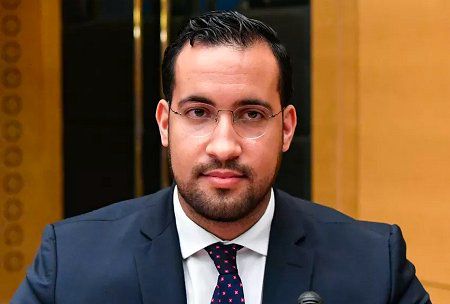
We have so far been accustomed to reporting the soap opera Benalla under the titles of Season (s) 1, 2 or 3.
The chapter which has been open for a few days now leads us to renumber the episodes, it being specified that, considering the turn that the affair has just taken, we will probably have to come back to it.
The National Financial Procuratorate has opened, this Thursday, February 7, 2019, a corruption investigation concerning the signing of a contract negotiated by Alexander Benalla with a Russian oligarch.
On what basis?
First of all, this is a new investigation aimed at Alexandre Benalla, on a subject mentioned by the Médiapart Journal last week when this major media broadcast a discussion dated July 26, 2018 between Alexandre Benalla and Bertrand crushes.
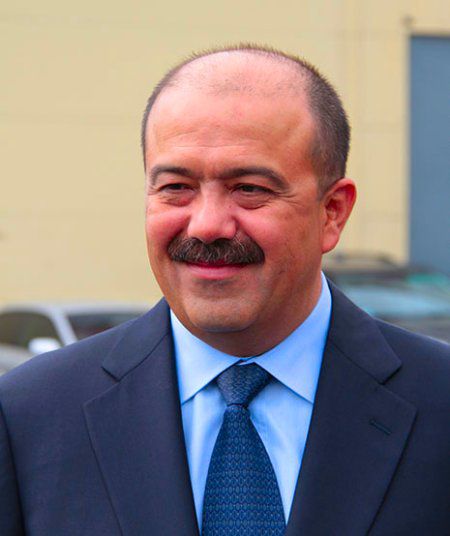 The oligarch concerned is a certain Iskander Makhmudov, close to Vladimir Putin. Iskander Makhmudov is suspected of having links with the Russian mafia. The oligarch concerned is a certain Iskander Makhmudov, close to Vladimir Putin. Iskander Makhmudov is suspected of having links with the Russian mafia.
After the publication of the article Médiapart journalists tried to check with Matignon, the assumption that prevails today, that the conversation was recorded at the home of the Chief of the Security Group Prime Minister (GSPM) .
The recording is overwhelming. It is even more damning that on July 26, 2018, the judicial control of Alexandre Benalla and Bertrand Crase formally forbade them to see each other.
However, on this occasion we have just discovered a central character in the case of Benalla, a character whose name had never appeared before.
It's about 34-year-old Chokri Wakrim, a soldier who is said to be "the course would be opaque".
Our colleague Libération has been investigating for several weeks the latter who would be seriously involved in the famous security contract in question, negotiated with the oligarch Iskander Makhmudov, cited above.
We fell from the chair, taking cognizance of the first elements of Liberation's investigation, which indicates that Chokri Wakrim, first introduced and sober as a friend, is none other than the companion of Marie Elodie Poitout, the head of the Safety of Matignon, promoted to Divisional Commissioner in January 2018.
Several documents consulted by our colleague attest to the proximity between Chokri Wakrim and Alexandre Benalla.
The "sulphurous" soldier accompanied him in the Château of Vincent Miclet in the Dordogne (see our previous editions).
In a video, Emmanuel Macron's "bodyguard" appears during a rifle shooting session in the Château gardens.
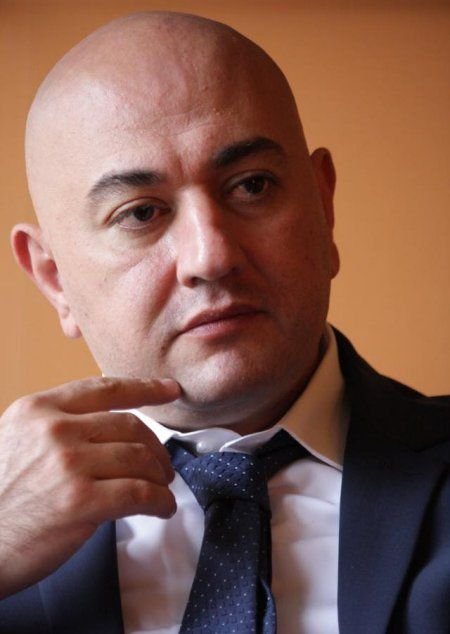 In another video, we see Alexandre Benalla in the Parisian home of Mohamad Izzat Khatab, a sulphurous Syrian businessman. Mohamad Khatab hosted Alexandre Benalla for several weeks after leaving the Elysee Palace. In another video, we see Alexandre Benalla in the Parisian home of Mohamad Izzat Khatab, a sulphurous Syrian businessman. Mohamad Khatab hosted Alexandre Benalla for several weeks after leaving the Elysee Palace.
The proximity of Alexandre Benalla with these individuals raises many questions and the first of which, that the National Prosecutor landed seeking to search the premises of Médiapart, Monday, February 4 after opening a preliminary investigation " for invasion of privacy "and" unlawful possession of devices or devices allowing the interception of telecommunications or conversations ".
On this last blow, Matignon nevertheless claims to be transparent (?) Assuring, in the face of the controversy born of the celerity with which the Paris Public Prosecutor's Office began its investigation, that no instruction had been given in this sense.
The resignation February 7 of Marie Elodie Poitout (who has been on all trips abroad of the Prime Minister) however shows that the situation becomes "critical".
At the Elysee as at Matignon we cut the branches at high speed!
Despite this, the head of Security said "remained serene"?
She just said that she just wanted to protect Edouard Philippe, which did not convince!
This is the reason why it is difficult to believe that Matignon knew nothing and many people are already questioning "the truth" of Edouard Philippe!
The Benalla affair is starting to make an ugly plaster. It would even be becoming a state affair, as Guillaume Larrivé, MP, has just declared, today:
"There is gradually a feeling of nausea vis-à-vis this case, which we saw so far only the visible face of the iceberg.
The state summit has not yet faltered.
But the sewage odors that the successive sequences of the Benalla Affair release, begin to become heavy.
The latest twists have tainted the Executive as Justice.
Therefore, it seems that we will certainly have the opportunity very soon to write the scene 2 of Act II, the malice of macronist power seemingly endless……..
|
|
|
|
|
|
|
|
| Clara Mitchell for DayNewsWorld |
 |
ARMED INTERVENTION OF FRANCE IN CHAD
|
| Prime Minister Edouard Philippe informed Parliament Wednesday night that the French armed forces were conducting offensive operations in Chad against armed groups from Libya.
French aviation has indeed carried out several raids since last weekend in northern Chad. These raids took place east of the Tibesti Massif in the Ennedi region.
 A statement issued by the French army staff on Wednesday, February 6, acknowledges that "from February 3 to 6, 2019, Mirage 2000 of the French armed forces intervened [in the] north-east of Chad, in coordination with the Chadian army, so as to counter the incursion of an armed column from Libya into Chadian territory ". A statement issued by the French army staff on Wednesday, February 6, acknowledges that "from February 3 to 6, 2019, Mirage 2000 of the French armed forces intervened [in the] north-east of Chad, in coordination with the Chadian army, so as to counter the incursion of an armed column from Libya into Chadian territory ".
On several occasions since Sunday, February 3, Paris has indeed launched its Mirage 2000, based in N'Djamena, to bomb a rebel column of the Union of Resistance Forces (UFR) from southern Libya, and that Chadian army did not seem able to stop. In total, French fighter planes reportedly conducted about 20 strikes, according to a military source, and destroyed some 20 vehicles that can transport up to 10 fighters each.
Legal framework of intervention
The head of the government invoked article 35 of the Constitution which defines the conditions for the implementation of the war and the intervention of armed forces abroad. "The French government has decided to involve our armed forces in Chad (...) in response to the request for assistance [from] the President of the Republic of Chad, Idriss Déby Itno". This clarification aims to remove the ambiguity on the legality of the French intervention. Officially, the two countries are bound by a "technical military cooperation agreement" dating back to 1976 and which allows the French military to intervene only if requested.
Technically, these operations in Chad are therefore not part of the fight against terrorism and as part of Operation Barkhane. Nowhere does the official French communiqué mention the mention of a terrorist threat. It is therefore a French intervention in support of an allied regime, in accordance with the rules of international humanitarian law, as specified by the Ministry of the Armed Forces.
Risk of destabilization of Chad and Barkham operation
The critics have quickly rocketed. Interference, defense of a corrupt regime estimate Chadian opponents and French elected officials. But the intervention of the French army aims to avoid the destabilization of Chad by the entry of these rebels.
"The raid of this armed column in the depths of Chadian territory was likely to destabilize this country. The Chadian armed forces are an essential partner of France in the fight against terrorism, both in Mali, within the Minusma, and in the joint force of G5 Sahel through its commitment against Boko Haram [ present in Cameroon, Niger and Nigeria], "said the EMA, without mentioning who was the target.
"The security of Chad and the Sahel are part of the same subregional framework, so the intervention of" Barkhane "is justified," said government spokesman Oumar Yaya Hissein.
These pickup columns actually belong to a rebel Chadian movement, the Union of Resistance Forces, led by President Déby's nephew, Timan Erdimi, and made up of Zaghawa fighters, the ethnic group of the President. They wanted to establish a rear base in northeastern Chad or Sudan. Another rebel group is located in northern Chad: the Military Command Council for the Salvation of the Republic. This CCMSR was born in Libya in 2016 from a split of the UFR. But "since President [Deby] proposed [in 2018] an amnesty to rebels who lay down arms, we consider that there are no more rebels in Chad, but only outlaws, mercenaries and terrorists, "said the spokesman for the government.
Reinforced French device
The tactical French strike force is considerable. The French army can count on the SRI (air intelligence) assets deployed from Niamey. One of the French Reaper drones took part in the actions, providing real-time information on the location and movements of rebel columns. Several drones were mobilized to ensure the permanence of the ISR watch over northern Chad.
Fifty years after Operation Limousin, France continues to fly to the aid of the Chadian regime.
|
|
|
|
|
|
|
|
| Alize Marion for DayNewsWorld |
 |
REFERENDUM OR NOT REFERENDUM
MAY 26 2019
|
| The question of the referendum has become in a few days a sea serpent that feeds all conversations.
Will there be or will there not be a referendum on May 26, 2019, the day of European elections?
What does Emmanuel Macron really have in mind today on this issue?
The question was put on the table by the JDD (Journal du Dimanche) of February 3, which devoted a long analysis to him under the pen of our colleague Hervé Gattegno.
The only thing we can say today is that the government is thinking strongly about this solution to get out of the crisis resulting from the popular revolt of Yellow Vests just offset by the yellow scarves.
 To interpret, we have been forced for some days to rely on confidences cleverly distilled by some close to the President of the Republic or by some learned analysts whose views are often diametrically opposed. To interpret, we have been forced for some days to rely on confidences cleverly distilled by some close to the President of the Republic or by some learned analysts whose views are often diametrically opposed.
We will leave, immediately, aside the confidences of the affidés, not verifiable for the moment. We only know that these confidences are based on the information that the Ministry of the Interior has spoken, late last week with printers and paper manufacturers, "to be caught off guard and be ready the D-day because the final decision will have to be taken very quickly ".
We will analyze only the political and legal opinions including those of some who believe that the rapid organization of a referendum would be an asset for Emmanuel Macron, heckled by a public opinion that overwhelmingly has continued to show his anger. .
The sling of Yellow Vests and the rage she caused to emerge throughout France had caused Emmanuel Macron to lose the first round.
The Great Debate, widely relayed by the media, especially those in power, and the main issues he has emerged have convinced, he seems to the Head of State and prepare the beautiful by organizing to do this. referendum some of whom claim that it could take place on May 26, 2019.
Technically and practically the choice of this date would have advantages. Voters would only have to move once and the organizing councils could limit the material and human burden of their organization.
This scenario is however disputed by the opposition but also by some political experts who consider that the idea of organizing a referendum on May 26 is anything but good. And the arguments are not lacking!
In the first place, because the results of the Great Debate, which began on December 15, 2018, must be published between March 9 and 16, via general meetings of citizens drawn by lot. So we do not really know what are the major issues that will come out of the debate and what will be the issues to be included in the referendum.
Knowing that Christophe Castaner, the Minister of the Interior pleads for a referendum with multiple questions (a QCM of Sciences Po) the time available to organize the campaign risk the day after March 16 to be too short! Moreover, and given that in general, a referendum is a very strong citizen moment it will be necessary that the value of the questions is powerful enough that the result generates something that is not binary and the stake would be summed up to be for or against the line of the President of the Republic
This is also the reason why support for the Head of State has drawn this idea of multiple issues by not limiting them to institutional issues. But even on this point, the analyzes diverge!
Macronist senators like François Patriat (Cote d'Or) argue for the introduction of societal and socio-economic themes, a first in France since the advent of the Fifth Republic.
On the occasion of his informal and unexpected interview last Friday, February 2, 2019, Emmanuel Macron did not close the door to a referendum to be held on May 26, 2019, "to encourage openness to permanent public deliberation". he added "to satisfy the people who want to regain control of their destiny".
In the presidential camp, moreover, some voices were raised to say that the bet was risky. The main risk could be abstention. In 2005, participation in the referendum on the Maastricht Treaty was 30%, a very low turnout, which, if it were to renew itself, may not re-credibilize and re-legitimize Emmanuel Macron.
The fiercest opponents denounce a political maneuver and a political calculation! For Gilbert Collard, lawyer and deputy RN, "the referendum is a good idea that Emmanuel Macron prostitutes"! The opposition forces as a whole denounce the circle and one more smoking.
Yesterday, Tuesday, February 5, two senators have addressed Prime Minister Edouard Philippe present during the current affairs. On this occasion, Edouard Philippe was cautious "in the face of the possibility of a referendum on the day of the European elections which would have the main drawback of calling into question the clarity of the debate on Europe". For Edouard Philippe France has everything to gain from a clear European debate.
Responding to Roger Karouchi (Senator LR) but also Hervé Marseille (Centrist Group), the Prime Minister said he had heard the remark on "a form of disagreement on the idea of a referendum on European elections day. ". "I hear these remarks," he added, "and I take note of them. A number of arguments are perfectly legitimate. Edouard Philippe also said that nothing had been decided and that the reflection and consultations were continuing! It was nevertheless understood on this occasion that there would be more than the thickness of a sheet of cigarette paper between the Elysee and Matignon on the subject.
The appetite for the debate that currently animates French citizens, Yellow Vests or not, advocates for the rapid holding of a referendum, May 26, for example.
But this referendum could be risky with regard to the political survival of Emmanuel Macron. This is what Mattéo Ghisalberti (editor-in-chief of Putsch) has just said, who, like all foreign journalists, observes what is happening in France at the moment and who has just invited the President of the Republic to look at what passed the other side of the Alps in December 2016.
From 2014 the Democratic Party of Mattéo Renzi chained success. The international visibility of the latter had become enormous, with a highlight at the time of the World Expo in Milan. This success gave the impression that nothing was impossible for him, a perception comparable to that of the Elysee at this moment. Despite this, a majority of Italian voters, also forced to live in precarious conditions and hardship, with unvalued wages and unemployment exceeding 10%, rejected the proposal for reform by referendum of the institutions proposed by the Prime Minister (39). years). The majority NON ipso facto led to the fall of Mattéo Renzi.
The French executive should ponder the Italian example, with Italy becoming the laboratory of Europe.
|
|
|
|
|
|
|
|
| Clara Mitchell for DayNewsWorld |
 |
THE MACRON HAVE MADE IT TOO
|
|
Nothing more, it seems for the presidential couple but especially nothing has been going for some time for Brigitte Macron who had been initially relatively spared.
In a few weeks, the wife of the President of the Republic was put on the spot by shock revelations or derogatory comments.
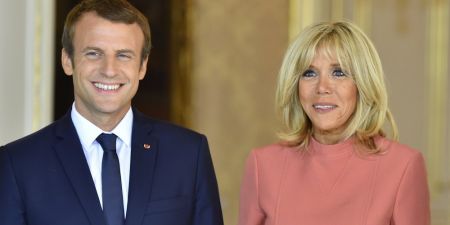 It all started with the statements of Alexandre Benalla who, at the beginning of 2019, in an interview with Médiapart, declared that the First Lady would have continued to exchange SMS, "on various themes" with the bodyguard of her husband, now indicted. It all started with the statements of Alexandre Benalla who, at the beginning of 2019, in an interview with Médiapart, declared that the First Lady would have continued to exchange SMS, "on various themes" with the bodyguard of her husband, now indicted.
Brigitte Macron has formally denied but her allegations have aroused strong reactions including "some were linked to the arrest of Eric Drouet and the desire to quell the scandal".
It will be remembered that in full Benalla business, the First Lady, very very annoyed, had left the Elysee to take refuge in his villa Le Touquet.
She had then made the choice to remain lurking in the shadows and not to be noticed, while still declaring "that she had been stunned" by this business "that she had not seen coming ...".
However, we already knew that Emmanuel Macron, more than ever shifted after the departure of two of his ministers (Nicolas Hulot-Gérard Collomb) could only rely on his favorite asset: his wife!
The First Lady is since, more and more in retreat, even if she says she is solid and "armored".
She was nevertheless very shocked by the surge of hatred against them. She lives very badly this situation and no longer looks at the social accounts. To stay informed (and she is!) She listens to the radio and watches television.
It is nevertheless thanks to social networks that we learned that she had completely redone the hall of the Elysée. Less golden, brighter ... the room has changed. But the cost went wrong in full sequence of yellow vests. "All this for that": € 500,000?
Social networks exclaimed by noting that the tapestries of the Gobelins had disappeared and pointing out that now this famous piece looked like a station hall or, worse, a funeral parlor. It is true that the gray which is dominant and which was the favorite color of Marie Antoinette had not succeeded to the wife of Louis XVI!
Brigitte Macron was again criticized on the occasion of the official trip to Egypt of her husband, whom she accompanied. Past official ceremonies, the couple went to visit the Grand Temple of Abu Simbel. Wearing a mouse gray trousers (?), The First Lady wore Louis Vuitton branded sneakers. According to the Dailymail, these sneakers would have been estimated at 750 €, "the salary of a cashier part time".
Brigitte Macron immediately protested, indicating that these sneakers were lent and that they were intended to highlight the French creators. That does not seem to have convinced you?
Monday, February 4, 2019, will release the highly anticipated book "Madame La Président" at Plon Editions. The book was written by two journalists Ava Djamshide and Nathalie Schuk. Good leaves have already been released on newsstands on February 1 (Elle). This book will rehabilitate may be Brigitte Macron, now also very attacked and who shows, usually according to his relatives of a usually disarming natural.
Moreover, we will know more quickly about the role (or roles) she plays with her husband: Amante! Wife! Mother ! Tutor! Communicating! We already know that, according to Philippe de Villiers, she would be the woman who breathes in the ear of the artist. To be continued !
|
|
|
|
|
|
|
|
| Clara Mitchell for DayNewsWorld |
 |
YELLOW VESTS THE INJURED IN FIRST LINE
|
| Twelfth episode of protest for the movement of "yellow vests" this Saturday.
Every Saturday, tens of thousands of people wear "yellow vests" who gather in France: they claim more purchasing power and denounce the government policy.
For Act XII is planned a "white march" in Paris for injured protesters.
"Today, there are 2,000 of which a hundred seriously affected," says Maxime Nicolle, one of the figures of the dispute. This is confirmed by the militant group "Disarm them".
I 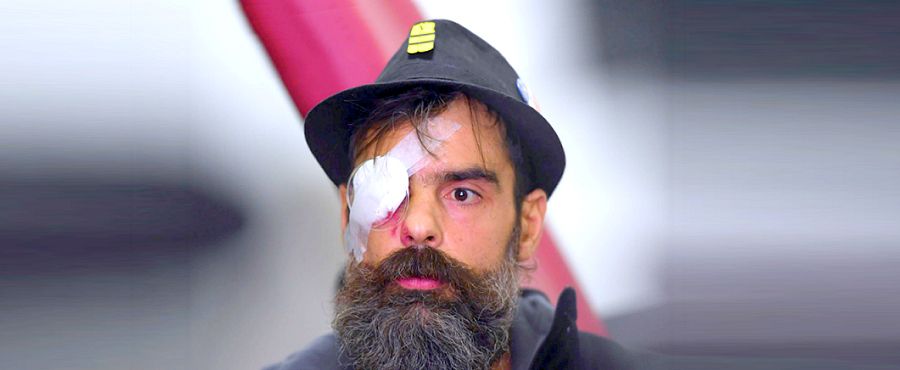 They lost an eye after a LBD firing, a hand after the GLI-F4 tear gas blast, or were injured by DMP dismantling grenades. Among them, Jerome Rodrigues wounded in the eye last week by a shot of LBD or fragments of grenade DMP, he who filmed the rally place de la Bastille. They lost an eye after a LBD firing, a hand after the GLI-F4 tear gas blast, or were injured by DMP dismantling grenades. Among them, Jerome Rodrigues wounded in the eye last week by a shot of LBD or fragments of grenade DMP, he who filmed the rally place de la Bastille.
As much as they are to parade, they denounce the use of these weapons by the police while denouncing "police violence".
The government, for its part, defends the need for these weapons to avoid violent direct contacts and more injuries between protesters and law enforcement.
"What I know is that if we take them away from our police, what's left of them?
They still have the body-to-body or their service weapon. I do not wish that they use their service weapon, and I wish to avoid the body-to-body. ". And the Council of State, seized in urgency, to reject Friday the requests for suspension of the use of the launcher of defense balls (LBD), believing that the risk of violence made it "necessary to allow the police to use these weapons. "
In the capital, several hundred "yellow vests" gathered in the late morning place Felix Éboué, in the XIIth arrondissement; in many provincial towns they met at the beginning of the afternoon.
While the mobilization is declining in Paris, it remains strong in several provincial cities, including Toulouse and Bordeaux. In Valencia, where Emmanuel Macron had moved on January 24, the authorities expect "between 8,000 and 10,000 protesters" for a "regional march" scheduled for Saturday afternoon.
"After Emmanuel Macron's coming last week in Valencia for a charade of debate, they are now 10,000 to want to come," said Nicolas Daragon, mayor LR of Valencia, who fears the presence of a thousand breakers.
|
|
|
|
|
|
|
|
| Alyson Braxton for DayNewsWorld |
 |
BUSINESS BENALLA SEASON 3
NEW REBOUND
|
|

ALain Gibelin, the DOPC (Public Order Director) charged with maintaining order in Paris was, on January 29, 2019, admitted to intensive care.
Alain Gibelin is the high-ranking police officer who made revelations about the Benalla case before the Parliamentary Inquiry Commission, "swearing" (all the people questioned were sworn to tell the truth), wooden cross, cross iron, that his word had more weight than that of Alexander Benalla.
This policeman with a long career and esteemed, had indeed "hinted" that Alexander Benalla had participated in security meetings when he was officially suspended from his duties (for 15 days).
Alain Gibelin had even on this occasion provided additional details by recalling that he had exchanged on the observer status that wished to obtain Alexandre Benalla for the demonstrations of May 1 st .
This exchange took place on the occasion of a luncheon, April 25, 2018, lunch which also attended the Commander of the Elysee, Eric Bio Farina.
At his first hearing before the Parliamentary Committee he had also recalled that he had warned Alexander Benalla on the conditions of regularity of his participation, regularities which were to be satisfied mainly by a prior authorization of the Prefecture to seek by the interested party. On May 1, he added, no request had reached him!
In the same way, Alain Gibelin had assured not to know how Alexandre Benalla had procured his armband and his police radio.
The statements of Alain Gibelin had made a great noise, even within the Parliamentary Commission, but also among all observers of this strange case.
They had made all the more noise that Alexander Benalla had some time later questioned the testimony of the Director of Public Order?
The Elysee then, also denied the statements of Alain Gibelin, the latter, very embarrassed, had felt obliged to step back, and retropedal on the occasion of a second hearing.
The episode made headlines and creates a huge commotion among the police and especially the police in the field. The Benalla affair has since thrown suspicion into the ranks of police officers but has also created a breach of trust with French citizens.
The popularity of Emmanuel Macron had plummeted immediately to reach the end of 2018 its lowest level and the Yellow Vests were, a few weeks later, settled on the roundabouts.
The first announcements on the announcement of the hospitalization of Alain Gibelin came from Aziz Zemouri, journalist in the newspaper "Le Point" on January 29, 2019.
Since then, no major media has communicated about the hospitalization, urgently seems it, Alain Gibelin and the case (in the case) seems to have been placed under Omerta?
As a result, we have to lose ourselves in conjectures! What happened to Alain Gibelin who according to some information distilled with caution would have made a "burn out"? Naturally this did not convince and social networks, with caution, began to get carried away. We read here or there:
"Diplomatic disease or little French political police? You will see that he will die for reasons of state.
Or: "" Another one who risks being killed with 3 bullets in the back "
Or again: "Basically, they grabbed him and put him under chemical shooting; he is not going to stay much of his brain, which is the goal "
And finally: "There are quite a few who have kindly left life this way; burn out or cancer ... it's also an honorable end ... with the Legion of Honor. "
This gives chills in the back!
And we wonder? Why the police who accused the Head of State and who had retracted is today in intensive care. Why the police prefecture refuses to explain the exact reason for the hospitalization of Alain Gibelin?
From the moment when there is no transparency, it is that there is something unspeakable and compromising.
That being the case, along with this disturbing incident, we have just learned that Alexandre Benalla was reported to have lost one of his passports a few hours before returning them. Weird! You said weird!
He would spend happy days abroad, with his small family .. Most likely in London where he had to find Alexandre Djouri, one of the protagonists of the Libyan case in which Nicolas Sarkozy is seriously implicated with 3 bets in exams.
We wish a good recovery to Alain Gibelin, that we would like to see fast standing!
However, we can only be exasperated once again by noting that the Republic of Barbouzes is not over!
Yet Emmanuel Macron had promised us to do politics differently !
|
|
|
|
|
|
|
|
| Clara Mitchell for DayNewsWorld |
 |
130 DJIHADISTS OF SYRIA
SOON TO RETURN TO FRANCE
|
|
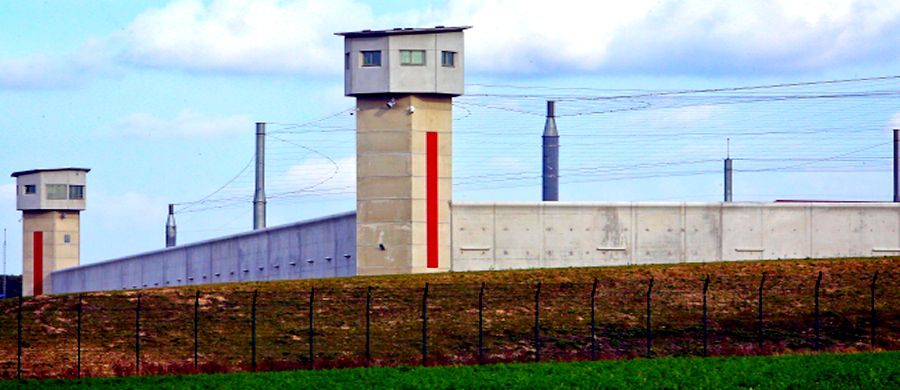
It is a great first. France had never organized such an important repatriation of jihadists. They will be 130 to return to France in the coming weeks.
They are currently being held in camps in Syria under Kurdish surveillance and the French authorities are afraid of losing their track after the withdrawal of US soldiers from Syria. Many of them are known to the French intelligence services.
Jihadists will be "judiciarized"
Asked about the issue on Tuesday 29 January on BFMTV, Christophe Castaner assured that "all those who return to France will be judiciarized and entrusted to judges."
"When the judge thinks that it will be necessary to put them in prison - and that will be the main case - they will be put in jail", continued the Minister of the Interior.
Each case will be examined and judged individually.
On their arrival in France, jihadists who are not the subject of an international arrest warrant will be handed over to the anti-terrorist police to be heard while those who are already wanted will be directly brought before the judge. They will then be indicted and placed in pre-trial detention pending trial.
500 suspects of jihadism already incarcerated in France
To date, more than 500 people are detained in France, in the context of a pre-trial detention or a conviction, for suspicions of jihadism.
French prisons have "impervious" neighborhoods including neighborhoods for the evaluation of radicalization and care.
And this to avoid any proselytism...
|
|
|
|
|
|
|
|
| Andrew Preston for DayNewsWorld |
 |
YELLOW VESTS THE NEW PARTY THE EMERGERS
JACLINE MOURAUD
|
| Jacline Mouraud launches Sunday his political party "Emerging" in Orleans.
Morbihan's Jacline Mouraud, a moderate figure in the yellow vests movement, chose to launch her political party in Orléans.
She had been one of the first to denounce the price of fuel and "hunt down motorists" in a video that became viral.
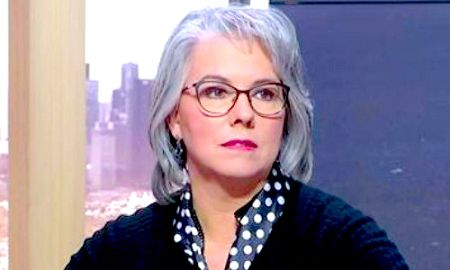 For this founding committee "barely a dozen people" are expected this Sunday, January 27, in Orleans, a city chosen for its geographical location in the center of the country but city of Joan of Arc. For this founding committee "barely a dozen people" are expected this Sunday, January 27, in Orleans, a city chosen for its geographical location in the center of the country but city of Joan of Arc.
"Today is the reign of money. We want to consider everyone by working for a better distribution of wealth, "said the hypnotherapist and artist of 51." We want to redo politics with heart and empathy. "
If this new party does not attempt to stand for the European elections in May - "The Europeans, it is too early, we do not create a project to the French people in a month," said Jacline Mouraud-, he considers, however, to appear in the municipal elections of 2020 and "during potential legislative".
The party's program will be drawn at the beginning of the year before the first elections, with the declared desire to "redo politics with heart and empathy. ". "Today is the reign of money. We want to consider everyone by working for a better distribution of wealth, "said this hypnotherapist and artist of 51 years.
"The time for claims has passed: phase A is done, everyone knows what is happening in France. We must go to phase B, and go into the construction and the proposal. Claiming without offering is a bit incoherent! Said the party's founder.
|
|
|
|
|
|
|
|
| Jenny Chase for DayNewsWorld |
 |
|
RED SCARVES AGAINST YELLOW VESTS ?
|
The "Republican March of Freedoms" is the first major event organized by the "red scarves". Declared in prefecture, it is fixed Sunday, January 27, with a departure at 14 o'clock place of the Republic then a route leading to the place de la Bastille.
According to its initiators it is "Silent France that respects democracy" that comes this Sunday, January 27 to beat the pavement of Paris to "defend [the] freedoms" during a march "Republican, peaceful, joyous and hopeful" .
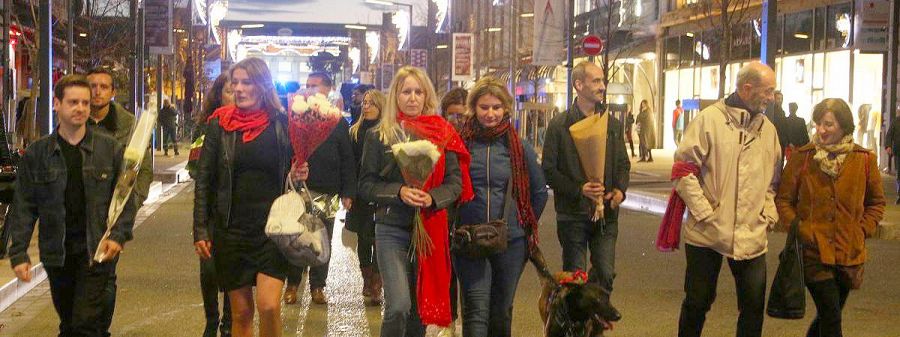 "Red scarves" against "yellow vests"? "Red scarves" against "yellow vests"?
In the aftermath of act XI of the mobilization of "yellow vests" having gathered some 67,000 people throughout France, French people come together to defend "democracy and institutions".
The two leaders of the movement, Laurent Soulie, a Toulouse engineer, and Théo Poulard, a Breton baker, say they simply want to end the "excesses, incivilities, assaults and misdemeanors" of certain "yellow vests". This group was formed in response to the violence that enamelled the demonstrations of "yellow vests", including the rampage of the Arc de Triomphe on December 1st.
But this march does not want to register against the "yellow vests". "The" red scarves "are not anti" yellow vests ", says Theo Poulard, 23 years old. "The causes of" yellow vests "are defensible; myself, I could have gone down the street protesting against rising fuels.
Everyone has the right to express themselves and to manifest. But when we see how it turned, it becomes dangerous. The movement was recovered by the extremes, right or left. We are committed to respect for institutions and democracy. "
"The anger was heard, the claims were legitimate but we denounce the form, systematic violence, hatred against elected officials, journalists. Today, we are no longer in a social challenge, "said Laurent Soulié, at a press point that did not hesitate to say that" what is happening is a putsch ! "
10,000 participants mobilized?
The "scarves rouges" intend to mobilize a maximum of protesters. Some 10,000 people have expressed interest in this event on Facebook and their intention to participate. "If we are 20,000, it will be a success, 40,000 a very big success," said Théo Poulard, vice president of "scarves rouges"
If they defend a citizen movement, many French sees above all a pro-Macron mobilization. "Our call goes beyond all partisan considerations.
We intend to provoke a citizen burst ", assures his side Laurent Segnis, founder of the" blue vests ", rallied to the" scarves red ". This march is "neither pro-Macron nor anti-yellow vests".
It is important to remember, however, that before joining the movement of "red vests" Laurent Soulié had created a Facebook page calling for a march of support to Emmanuel Macron without hiding his sympathy LaREM.
A pro-Macron mobilization?
Officially, the Elysee refuses to encourage this march. The presidential party and the majority stand apart from this initiative, which is sympathetic to it, but comes in opposition to the spirit of appeasement desired for the great national debate.
Many elected members of the majority have already planned to show their support Sunday.
|
|
|
|
|
|
|
|
| Garett Skyport for DayNewsWorld |
 |
"I HAVE SORRY TO ANNOUNCE YOU "
THE DEATH OF MONSEIGNEUR THE COUNT OF PARIS
|
| Jean of Orleans, Duke of Vendome, son of the Comte de Paris , announced, in these terms, from the Royal domain of Dreux the death of his father.
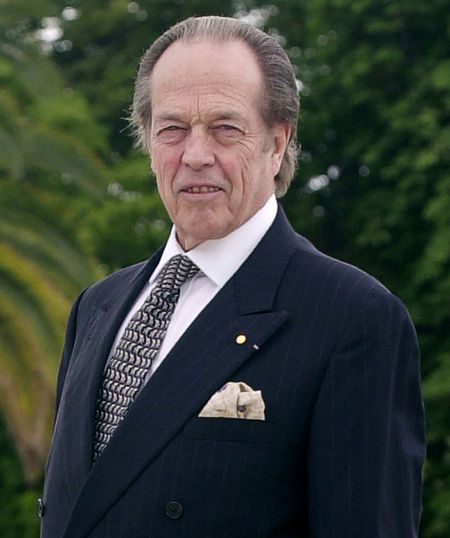 The Count of Paris died on January 21, 2019, a special date for him and for the dynasty he represented. It was indeed that day, in 1793, that Louis XVI, his ancestor was beheaded after being condemned to death by the Convention where sat the cousin of the king, Philippe d'Orléans, nicknamed Philippe Egalité. The Count of Paris died on January 21, 2019, a special date for him and for the dynasty he represented. It was indeed that day, in 1793, that Louis XVI, his ancestor was beheaded after being condemned to death by the Convention where sat the cousin of the king, Philippe d'Orléans, nicknamed Philippe Egalité.
A task for this dynastic branch whose ancestor was accused and remains accused of having voted for the death of the King.
The head of the Maison de France was 85 years old.
It is his second son, Jean who soberly made the announcement, in the preceding terms, of the disappearance of his father, on the social networks.
The Count of Paris, Duke of France called himself Henry VII, to recall that his family, descendant of St. Louis, had ruled for nine centuries over France.
Henri, Philippe Pierre Marie d'Orleans was born June 14, 1933 at the Manor of Anjou, in Woluwe-Saint-Pierre (near Brussels) in Belgium where his parents then resided, following the law of exile which had struck the family since 1886. His mother, Isabelle d'Orléans Braganza was a great-granddaughter of the last Emperor of Brazil.
Although descendant of Louis XIV, the Prince of Orleans belonged to the Orleanist branch of the monarchy.
It must be remembered that the monarchists have been divided since 1871, once peace was made with Germany and after the defeat of Sedan.
The Orleanists (junior branch of the Bourbons) are liberal supporters of a constitutional and parliamentary monarchy while the legitimists represented by the last Bourbon, Louis XVIII are conservatives still in favor of an authoritarian power by divine right. The direct dynasty of the Bourbons died out with Louis XVIII who had no descendants and who had to leave the throne following the Revolution of 1830.
The branch of the Bourbons could however have continued if the Duke of Chambord, future Henry V, son of the Duchess of Berry and Ferdinand d'Artois, murdered at the exit of the Opera on February 3, 1820 had not created, very clumsily the incident of the tricolor flag that helped the arrival in power of Marechal Mac Mahon, a Republican.
This affair of the flag will definitely found the Republic.
The Count of Paris, considered by the Orleanists as the head of the House of France will leave a modest but real footprint.
The life of Henry of Orleans has been complicated. After having been born in a manor in the suburbs of Brussels, the Count of Paris had a childhood (like that of his brothers and sisters / they are 11) wandering between Brazil, Morocco, Spain, Portugal until the repeal of the law of exile in June 1950. This law allowed the return to France of the family.
Henri d'Orléans passes his baccalaureate at the end of high school at Montesquieu high school in Bordeaux where he was registered, the law of exile not yet reported, thanks to the intercession of President Auriol.
Although attracted by the arts and sport, the heir to the throne will Sciences Po then a military career, Noblesse oblige!
His first union with Princess Marie Thérèse of Württemberg on July 5, 1957 in Dreux, was a disaster. He divorced Princess Marie Thérèse in 1984 after having five children, including two disabled children (their mother had contracted toxoplasmosis in Algeria).
Henri d'Orléans will exercise his military skills in the French army by fighting first in Algeria, then integrating the General Secretariat of Defense before being assigned to a regiment of hussars in the Federal Republic of Germany.
The Count of Paris is however a touch to everything: bank, perfume (area in which he was supported by Pierre Cardin). His side epicurean and science lover inclines him to the kitchen and old grimoires, fantasies that did not have the good fortune to please his father who dismissed him on the occasion of his remarriage with the one he has truly loved, Micaêla Cousino Quinones de Léon (a daughter of a Great of Spain). It was a marriage of love and discord!
Henri d'Orléans will regain his status as dolphin after the cancellation in 2008 of his first marriage by the Holy See, a decision that will allow him to religiously marry Macaëla.
He is the second son of Henri de France who will succeed his father, the eldest son, François, Count of Clermont, disabled and unable to rule having died on December 31, 2017.
Upon the announcement of the death of Henry of Orleans, the Royalists were able to proclaim: "The King is dead, Long live the King".
The Count of Paris will be buried in the Funeral Chapel of Dreux where his ancestors, of the lineage of Orleans, are buried since the beginning of the XIX century.
|
|
|
|
|
|
|
|
| Clara Mitchell for DayNewsWorld |
 |
MANIFESTATION OF YELLOW VESTS
AGAINST GREAT NATIONAL DEBATE ?
|
|
Some 27,000 yellow vests, according to figures from the Ministry of the Interior, have demonstrated across France. Many rallies took place this Saturday, January 19th for the tenth act of the Yellow Vests.
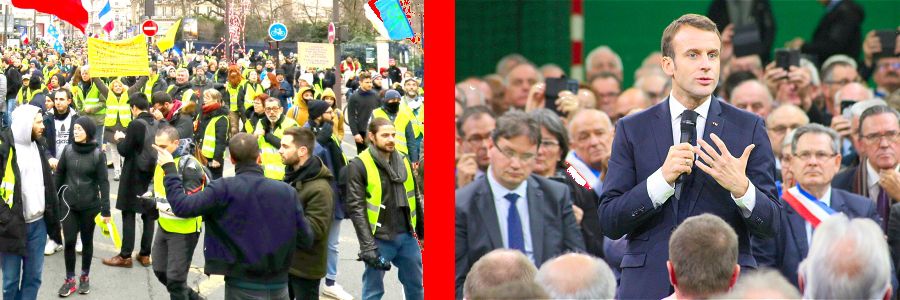 This new mobilization Saturday is also the first since the launch of the Great National Debate. In Paris, the procession, framed and structured, started quietly towards noon towards the Invalides. Clashes at the end of the procession took place between the police and the rioters, some of blacks dressed in masks who had come to battle. This new mobilization Saturday is also the first since the launch of the Great National Debate. In Paris, the procession, framed and structured, started quietly towards noon towards the Invalides. Clashes at the end of the procession took place between the police and the rioters, some of blacks dressed in masks who had come to battle.
Events are also taking place in other cities, such as Toulouse, Marseille, Bordeaux, Rennes and Angers.
An important security device has been put in place while the controversy swells on the accumulation of serious injuries of demonstrators caused by the launchers of defense balls. About 80,000 police and gendarmes were mobilized, including 5,000 in Paris, according to the police headquarters.
The yellow jackets that marched peacefully this Saturday, January 19 do not seem to want to "change rooms" and move to the "Great National Debate", as called by the Secretary of the Interior Christophe Castaner.
Social discontent continues to speak on the street.
|
|
|
|
|
|
|
|
|
| Jenny Chase for DayNewsWorld |
 |
BENJAMIN GRIVEAUX VEST YELLOW PARISIAN ?
|
|
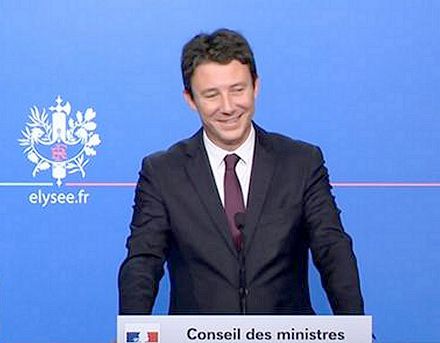
The level of remuneration of politicians, a particularly sensitive subject, is one of the demands of "yellow vests":
they want to reduce the salaries of elected officials and senior officials so that they are closer to "the reality of the French".
After the salary of Chantal Jouanno, it is that of Jacques Toubon that has been pinned recently. And to the ambitious spokesman of the government, Benjamin Griveaux, to assert in front of the camera of Brut Wednesday not be able to own an apartment in Paris with his salary of 7900 euros net per month. "I do not live in a castle.
I am a tenant. I do not own property in Paris because the price per square meter is too expensive. I did not inherit, I do not have any money hidden, "said the former deputy from Paris," I do not have a car. I do not dress in very expensive costumes, I can give you great addresses not far from here, that's it, it's like that.
We must bring down this kind of myth, "insists Benjamin Griveaux. The purpose of this release?
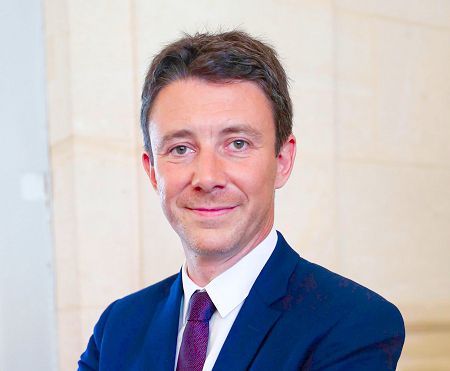 Bring down the myth of the remuneration of politicians decried by the "yellow vests". The former local elected representative and MP assures him: Bring down the myth of the remuneration of politicians decried by the "yellow vests". The former local elected representative and MP assures him:
"It's not a financial benefit to be elected. ". Secretary of State also states that he divided his salary
"By three" - or rather "two and a half", he rectifies - entering the government.
"Before, I was in a big box and I made a very good living," he says, then Unibail-Rodamco's director of communications and public affairs. His remuneration was at that time more than 20,000 euros monthly.
But these statements can not seem very indecent for a smicard who earns only € 1,525.47 gross per month?
They have in any case triggered an outcry of outrage on social networks even if some users have been keen to recall the excessive price per square meter in Paris.
Like Benjamin Martinez, a surfer who posted on Facebook that "7,900 € / month to relay the word of the government of the 5th power of the world, it is not excessive especially when you see the cost of living in Paris".
And know that he is not, as he himself says, sympathetic to LaREM.
Let's keep the sense of humor like the many Internet users who offered a pot to this notary and lawyer son, who is himself married to a lawyer from the Paris Bar.
And we bet he was better communicator at his former employer Unibail-Rodamco this time !
|
|
|
|
|
|
|
|
| Garett Skyport for DayNewsWorld |
 |
CASE OF BENALLA ALEXANDRE BENALLA DEFERE BEFORE A JUDGE AFTER HIS GUARANTEE
|
|

Certainly Alexandre Benalla is giving trouble to the authorities so much so that this Friday Christophe Castaner attacked directly to the latter:
"His behavior annoys me when we discover that, including to ask for official documents, he would have produced false documents. He vituperated.
Placed in custody on Thursday, January 17, the former chargé de mission of the Elysée was referred to the Paris prosecutor's office on Friday to be presented to an examining magistrate for a possible indictment.
A possible forgery
It is for the justice system to clarify how the diplomatic and service passports in Mr. Benalla's possession were obtained and used.
A judicial inquiry was opened Friday morning, said the prosecutor's office, which had launched on 29 December a preliminary investigation for "breach of trust" and "use without right of a document justifying a professional quality." The former deputy chief of staff of the Elysée is also being prosecuted for
"Performing an activity under conditions that create confusion in the public mind with the exercise of a public office".
The investigation was launched after the Ministry of Foreign Affairs transmitted an article 40 concerning suspicions about the improper use he had made of two diplomatic passports after his dismissal from the Elysee Palace.
Indeed, with the diplomatic passports that the holder should have returned after his dismissal on August 1, Mr. Benalla had traveled to Cameroon, Congo or Israel alongside the businessman Philippe Solomon.
And he had used them almost twenty times between August 1st and December 31st. The first time, from August 1st to 7th, and the others in October, November and December, "said the President of the Republic's chief of staff, Patrick Strzoda, visibly annoyed. , Wednesday in front of the senators,
Moreover the investigation was extended Wednesday to the heads of "false, use of forgery and undue receipt of an administrative document", following a report transmitted by the services of the Presidency of the Republic.
According to Mr Strzoda, Mr Benalla, who was still in office at the Elysee Palace, sent a letter to the Foreign Affairs Ministry to the Chief of Staff of the Elysée to obtain a service passport.
"The chief of staff is not the author of this note," said Strzoda, during his hearing before the Senate commission of inquiry, adding: "This is an additional document that comes to feed a file that , in my opinion, is already very heavy.
However, according to the Penal Code, forgery in public writing by a person entrusted with the public authority or charged with a public service mission acting in the performance of his duties or his mission is a crime punishable by fifteen years. criminal imprisonment and a fine of € 225,000.
A very heavy and explosive file that certainly cringe at the top of the state and could reveal dysfunctions at the Elysee.
|
|
|
|
|
|
|
|
| Garett Skyport for DayNewsWorld |
 |
SEEN FROM HERE (USA)
BENALLA'S CRYPT TELEPHONE
|
| In the episode of the new French television series produced by the Elysee a beautiful story of encrypted mobile phone just spice up this series to rebound.
Good to be more serious and not take all this to the second degree even if it can make you laugh must say things!
 First of all a clarification if you want to eat a pizza, it is totally impossible to order one with such a device. Indeed, an encrypted phone only allows to call another encrypted phone of the same type (having the same encryption) that belongs to a series broadcast to a group of users so that the conversations they can exchange between them do not can be the object of any listening of some kind !!! First of all a clarification if you want to eat a pizza, it is totally impossible to order one with such a device. Indeed, an encrypted phone only allows to call another encrypted phone of the same type (having the same encryption) that belongs to a series broadcast to a group of users so that the conversations they can exchange between them do not can be the object of any listening of some kind !!! 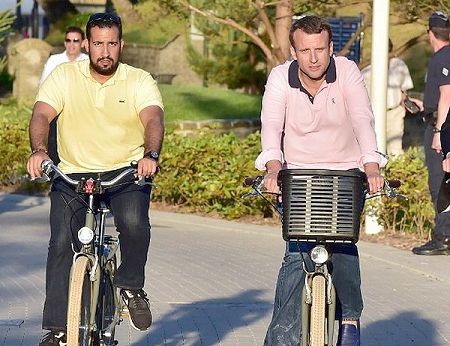
Indeed the use of listening equipment (scanner, various receiver ...) will certainly receive a signal but this signal is encrypted it becomes a noise without interest!
The progress of cryptographic computing with complex mathematical algorithms allows for such powerful encryption that even with Hyper-Calculators, breaking cryptography to retrieve information can take years (200/300 years or more) which makes vain any attempt of listening !!!
As you begin to understand also this type of phone is only of interest to call that some people holding this type of phone.
Question to ask
Who owns one of his phones that can be called?
Ministers, some very high officials (Defense, Security, etc ...), and of course the members of Elysee, and finally the President of the Republic.
Not the encrypted phone of Mr Alexandre Benalla could not serve him to order a pizza !!
Another question to ask
Who could Alexander Benalla call who owns such a phone ???
Surely friends he has kept in power !!!!
In any case I hope that his few lines have opened your eyes and allow you to analyze the rest of this story, to think, not to believe and not to drink everything that can be served on a platter like cash !!!
Speaking of money, and in this matter as in many others, the promises are binding only those who want to believe them !!!
So open your eyes and ears, think first, be careful the best illusionists are not the family of the great Merlin the enchanter but in the caste of men and women politicians !!!
|
|
|
|
|
|
|
|
| Steve McQuillan for DayNewsWorld |
 |
FRANCE DEPLOYS ITS SHIELD ANTI BREXIT
|
|
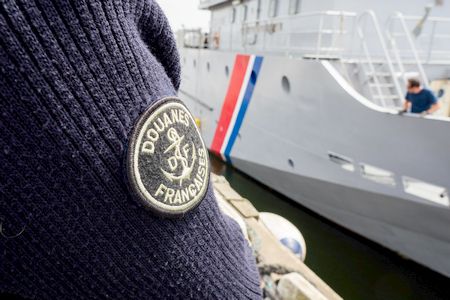
A hard Brexit of with the Old Continent becomes the most likely outcome after the vote of the British deputies.
Also Édouard Philippe announced Thursday the triggering of a "plan linked to a Brexit without agreement" to counter the eventuality "less and less unlikely" of a brutal exit of the United Kingdom Union European.
This plan "includes legislative measures and legal measures that aim to ensure that there is no interruption of rights and that the rights of our fellow citizens or our businesses are effectively protected," said the chief. of the government.
After the National Assembly the day before, the Senate must definitively adopt a bill of authorization to this effect on Thursday.
The government will then submit to the Council of Ministers five orders to be adopted within three weeks
These include protecting the interests of French citizens residing in the United Kingdom, finding a status for British citizens in France and again introducing measures to reinstate border controls.
Fifty million euros will be invested in ports and airports, "the places most concerned by the changes to make given the hard Brexit," said Edouard Philippe.
"Six hundred recruitments will be made in the coming weeks," he added, referring to customs officers, veterinarians and government officials "who will, once again, be at the height of the stakes, to be at the level of the necessary controls, "he insisted.
A plan to accompany the fishing sector, which is "most likely to be hit hard by this exit without agreement", is also planned.
"The responsibility of the government is that our country is ready, that the interests of our citizens are preserved and defended," assured the Prime Minister.
|
|
|
|
|
|
|
|
| Jenny Chase for DayNewsWorld |
 |
CASE BENALLA THE PASSPORTS OF DISCORD
|
|
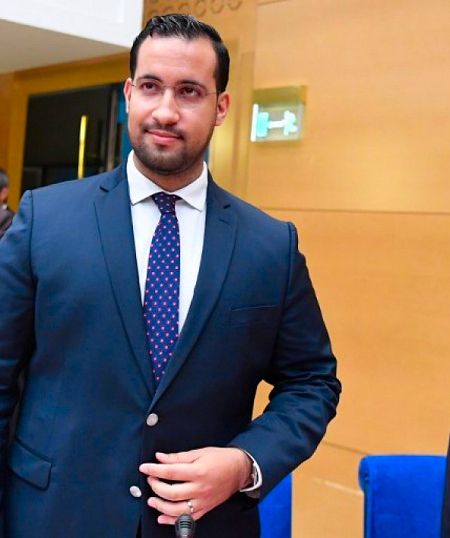
In fact, the revelations about Alexandre Benalla never stop raining. And this character got a service passport thanks to a fake! And this borderline character has made about twenty trips abroad!
As Wednesday begins the second round of hearings of the Senate inquiry committee on the Benalla affair, Le Canard chained up, published today, reveals that the former representative of the Elysee has kept his phone encrypted "secret-defense" until January 11, as well as a service passport.
Licensed after his indictment for "violence voluntary" on May 1 protesters, Alexandre Benalla had to return the phone and passport to his departure from the Elysee.
But, strange fact, never the Elysee would have asked for the restitution.
It should be noted that the service passport facilitates the crossing of borders by allowing in particular to travel without visa in certain countries.

So despite the recent return on January 9 of the two diplomatic passports that still had Benalla after his dismissal, the latter could still use a service passport to travel with ease abroad ...
As for the phone, it is a Teorem phone, a mobile flapper, archaic design, but ultra secure.
Developed by the Directorate General of Armament (DGA) and Thales Group and worth 2500 euros, it is used by the highest officials of the state, including the President of the Republic and some military officials, for make important calls.
For keeping this valuable equipment, a former collaborator could face up to three years in prison and 45,000 euros fine, according to the satirical weekly.
Why so many favors granted to Alexander Benalla who, after his dismissal, went, remember, in several African countries and in Israel?
This Wednesday, the Senate commission of inquiry into the Benalla affair is to hear again Patrick Strzoda, chief of staff of Emmanuel Macron, and Christophe Castaner, and for the first time Jean-Yves Le Drian, following the revelations on the Alexander Benalla's use of diplomatic passports.
Alexandre Benalla will have to explain himself Monday, January 21 before the senators on the use made of his passports.
Clarifications will also be requested by the commission concerning possible private activities, particularly in the security field, by the former ex-chargé de mission and his sidekick, Vincent Crase, former employee of LaREM and squadron leader in the gendarmerie operational reserve.
Hard to get rid of the plaster Benalla .....
|
|
|
|
|
|
|
|
| Garett Skyport for DayNewsWorld |
 |
FRANCE QUESTIONS ABOUT THE GREAT DEBATE
|
| On Tuesday and March 15th, Emmanuel Macron is launching in Grand Bourgtheroulde (Eure), the "great national debate", a consultation announced at the end of November to try to get out of the "yellow vests" crisis. In his letter to the French, released on Sunday, the President of the Republic set the framework for this consultation and called "the largest number" to participate in order to find solutions for the future of the country on major issues.
 The organizers of the debate The organizers of the debate
The role of organization is vested in a duo of ministers. Sébastien Lecornu and Emmanuelle Wargon, respectively Minister in charge of Local Government and Secretary of State for the Minister of Ecological and Solidarity Transition, have been appointed by Prime Minister Edouard Philippe.They will be responsible for coordinating the mission of the great national debate. The first will deal with mayors, the second with representatives of civil society. Taking an "essential" role according to the President of the Republic in his letter to the French they are "in charge of making live the debate and to follow the evolution", officialized Matignon.
A replacement at short notice after the resignation of Chantal Jouanno, president of the National Commission of Public Debate (CNDP) caught up in a controversy over her salary (14.666 euros gross per month), salary she has retained.
The guarantors of independence
To avoid unwanted intervention by the executive on the final report of the grand debate through its two ministers, this mission will also be conducted by a panel of five personalities supposed to guarantee the independence and transparency of the operation.
Two of these five will be appointed by the government, while the other three will be appointed respectively by the President of the National Assembly Richard Ferrand (LRM), the President of the Senate, Gérard Larcher (LR), and that of the Economic Council, and the environment (EESC), Patrick Bernasconi.All five guarantors to ensure "the regularity of the method and that of the work of analysis and synthesis of contributions collected" and formulate "all the recommendations they deem necessary for meet the requirements of transparency and impartiality, "according to the Prime Minister's Office.
The organization
"We wanted, in the organization of this debate, that it can be held closer to the French. Not in Paris, not in the major regional capitals, not in classic places of debate, but close to the French, "said the Prime Minister.
Everyone can organize a debate whether it's a neighborhood, a village or a region or an association. It can be based on a methodological "kit" that includes maps and data to organize a debate.
These meetings must be declared seven days before their holding by specifying the date, the place and the number of participants expected.
All contributions will be remitted to allow a thorough analysis and thus feed a restitution placed under the control and responsibility of the guarantors.
The participation
Many tools are deployed to allow the greatest number of French to take part in the discussions.
The elected officials of communes have made available during a month of notebooks of grievances in their town hall to collect the requests of their administered. In addition, meetings of local initiatives must be held in various locations (town halls, markets, train stations or workplaces). One or more themes (among the four selected by the government) will have to be chosen during these meetings.
From Tuesday, the great national debate will "unfold" from "local initiatives meetings". These public meetings "will allow everyone to debate, to be heard and to convince," says the statement.
At the end of the various exchanges, citizens will be drawn to discuss and analyze, at local initiative meetings, the proposals that have emerged. From 1 March, "regional citizens' conferences will be organized, bringing together French people drawn by lot in each region to representatives of various stakeholders," according to the government statement. The participants will be able to give their opinion on "what emerges from the first weeks of the great national debate and will thus feed the reflection on the follow-up to be given".
Setting up a digital platform
A digital platform, granddebatnational.fr, already exists and can be used from Tuesday, with all the practical information. Debates will therefore also take place on the Internet. The
The French can also send their contributions by post to Mission Grand Debate, 244 boulevard Saint-Germain, 75007 Paris. Finally, a toll-free number, the 0800.97.11.11 and the 01.82.71.03.39 for the Overseas and the calls of French citizens abroad, are also dedicated to the questions of individuals.
The themes
In his letter, the chair proposes to frame the debate around 35 questions. Four main themes are proposed: purchasing power and taxation, democracy and citizenship, state reform and ecological transition. Emmanuel Macron suggests reflecting on the citizens' initiative referendum (RIC) or the annual immigration quotas.
Certainly "no forbidden questions", but many sensitive issues can not be renegotiated as the removal of the ISF, the right of asylum, abortion, the death penalty and marriage for all.
"This is an unprecedented exercise that should allow the French to say what they want. It must be well organized, with principles of transparency and impartiality, "said Philippe in the court of Matignon after the release of the communiqué.
The great debate "will lead to concrete translations in the daily life of our compatriots," said Edouard Philippe. Emmanuel Macron has promised to respond in the month following its scheduled end on March 15, before the European elections on May 26.
|
|
|
|
|
|
|
|
| Jaimie Potts for DayNewsWorld |
 |
LETTER TO THE FRENCH
FOR AN UNEMPLOYED DEMOCRATIC EXERCISE
|
|

The President of the Republic has published this Sunday evening his "letter to the French" in view of the great national debate to be officially launched Tuesday, January 15. He is speaking directly to his compatriots to launch this unprecedented democratic exercise. It is, after a ninth day of mobilization of "yellow vests", to "transform the anger in solutions".
In this long missive Emmanuel Macron proposed 32 questions as an example "at the heart of our questions" ensuring that "there are no forbidden questions".
The letter from Emmanuel Macron.
Letter to the French
Dear French, dear French,
my dear compatriots,
In a period of questioning and uncertainty like the one we are going through, we must remember who we are.
France is not a country like the others.
The meaning of injustice is more vivid than elsewhere. The need for mutual aid and solidarity stronger.
At home, those who work pay for retirees' pensions. At home, a large number of citizens pay an income tax, sometimes heavy, which reduces inequalities. At home, education, health, security, justice are accessible to all regardless of the situation and wealth. The vagaries of life, such as unemployment, can be overcome, thanks to the effort shared by all.
That is why France is, of all nations, one of the most fraternal and the most egalitarian.
It is also one of the freest, since everyone is protected in his rights and in his freedom of opinion, conscience, belief or philosophy.
And every citizen has the right to choose those who will bear his voice in the conduct of the country, in the design of laws, in the major decisions to be taken.
Everyone shares the fate of others and everyone is called to decide the fate of all: it is all that, the French nation. How not to feel the pride of being French?
I know, of course, that some of us today are dissatisfied or angry. Because taxes are too high for them, public services too far away, because wages are too low for some to be able to live with dignity because of the fact that our country does not offer the same chances of succeeding according to the where the family comes from. All would like a more prosperous country and a more just society.
This impatience, I share it. The society we want is a society in which to succeed one should not need relationships or fortune, but effort and work.
In France, but also in Europe and in the world, not only a great anxiety, but also a great trouble have won the spirits. We must answer them with clear ideas. But there is a condition for this: to accept no form of violence. I do not accept, and do not have the right to accept pressure and insult, for example on the people's elected representatives, I do not accept and do not have the right to accept the indictment such as the media, journalists, institutions and officials. If everyone attacks everyone, society gets rid of it!
In order for hopes to dominate fears, it is necessary and legitimate for us to rest together the great questions of our future.
That is why I proposed and I launch today a great national debate that will run until March 15.
In recent weeks, many mayors have opened their town halls so that you can express your expectations. I had many feedbacks that I could take into account. We will now enter a larger phase and you will be able to participate in debates near your home or express yourself on the internet to put forward your proposals and your ideas. In France, overseas and with French residents abroad. In villages, towns, neighborhoods, on the initiative of mayors, elected officials, community leaders, or ordinary citizens ... In parliamentary assemblies as regional or departmental.
Mayors will have an essential role because they are your elected representatives and therefore the legitimate intermediary of the expression of citizens.
For me, there are no forbidden questions. We will not agree on everything, it's normal, it's democracy. But at least we will show that we are a people who are not afraid to speak, to exchange, to debate.
And perhaps we will discover that we can agree, mostly, beyond our preferences, more often than we think.
I have not forgotten that I was elected on a project, on major orientations to which I remain faithful. I always think that we must restore France's prosperity so that it can be generous, because one goes with the other. I always think that the fight against unemployment must be our top priority, and that employment is created first and foremost in companies, so that we must give them the means to develop. I still think that we need to rebuild a school of trust, a renovated social system to better protect the French and reduce the inequalities at the root. I still think that depletion of natural resources and climate change compel us to rethink our development model. We must invent a new productive, social, educational, environmental and European project that is more just and more effective. On these major orientations, my determination has not changed.
But I also think that from this debate can come a clarification of our national and European project, new ways of looking at the future, new ideas.
In this debate, I hope that the greatest number of French people, the greatest number of us, can participate.
This debate will have to answer key questions that have emerged in recent weeks. That is why, with the Government, we have chosen four major themes that cover many of the major issues of the nation: taxation and public spending, the organization of the state and public services, the ecological transition, democracy and citizenship. On each of these themes, proposals, questions are already expressed. I wish to formulate some that do not exhaust the debate but seem to me at the heart of our questions.
The first topic deals with our taxes, our expenses and public action. Tax is at the heart of our national solidarity. He is the one who finances our public services. It pays teachers, firefighters, police, military, magistrates, nurses and all the public servants who work for you. It makes it possible to pay to the most fragile social benefits but also to finance some big future projects, our research, our culture, or to maintain our infrastructures. It is also the tax that pays the interest on the very important debt that our country has incurred over time.
But taxes, when they are too high, deprive our economy of resources that could usefully invest in businesses, thereby creating jobs and growth. And he deprives the workers of the fruit of their efforts. We will not revisit the steps we have taken to correct this to encourage investment and make work pay more. They have just been voted and are just beginning to show their effects. Parliament will evaluate them in a transparent way and with the necessary hindsight. On the other hand, we must question ourselves in order to go further. How could we make our tax system fairer and more effective? What taxes do you think should be lowered first?
We can not, in any case, pursue tax cuts without lowering the overall level of our public spending.
What are the savings that you think are priorities?
Should we remove some public services that are outdated or too expensive compared to their utility? Conversely, do you see new needs for public services and how to finance them?
Our social model is also questioned. Some consider it insufficient, others too expensive because of the contributions they pay. The effectiveness of training as employment services is often criticized. The government has started to respond to it, after wide consultations, through a strategy for our health, to fight against poverty, and to fight against unemployment.
How to better organize our social pact? Which objectives should be prioritized?
The second subject on which we must make decisions is the organization of the State and public authorities. Public services have a cost, but they are vital: school, police, army, hospitals, courts are essential to our social cohesion.
Are there too many administrative levels or levels of local government? Should we reinforce decentralization and give more power of decision and action closer to the citizens? At what levels and for which services?
How would you like the state to be organized and how can it improve its action? Should we review the functioning of the administration and how?
How can the state and local authorities improve to better respond to the challenges of our most troubled territories and what do you propose?
The ecological transition is the third theme, essential to our future. I am committed to objectives of preserving biodiversity and combating global warming and air pollution. Today no one disputes the urgent need to act quickly. The longer we delay questioning ourselves, the more painful these transformations will be. Making the ecological transition helps to reduce the expenditure on household fuel, heating, waste management and transportation. But to succeed in this transition, we must invest heavily and support our most modest fellow citizens.
National solidarity is necessary so that all the French can achieve this.
How do we finance the ecological transition: by taxes, by taxes and who should be concerned in priority?
How do we make concrete solutions accessible to all, for example to replace the old boiler or old car? What are the simplest and most financially sustainable solutions?
What are the solutions to move, to lodge, to heat oneself, what are the solutions to move, to lodge, to warm themselves, to feed oneself which should be conceived rather at the local than national level? What concrete proposals would you make to accelerate our environmental transition?
The issue of biodiversity is also an issue for us all.
How do we guarantee scientifically the choices we have to make in this regard? How to share these choices at European and international level so that our producers are not penalized compared to their foreign competitors?
Finally, it is clear that the period that our country is going through shows that we need to give more strength to democracy and citizenship. Being a citizen means helping to decide the future of the country by electing representatives at the local, national or European level. This system of representation is the foundation of our Republic, but it must be improved because many do not feel represented at the end of the elections. Should it recognize the white vote? Should we make voting compulsory?
What is the right dose of proportional to the parliamentary elections for a fairer representation of all political projects?
Should and in what proportions, limit the number of parliamentarians or other categories of elected?
What role should our assemblies, including the Senate and the Economic, Social and Environmental Council, play in representing our territories and civil society? Should we transform them and how?
In addition, a great democracy like France must be able to listen more often to the voice of its citizens.
What changes would you like to make citizen participation more active, democracy more participative, and should more and more directly associate unelected citizens, for example by lot, with public decision-making?
Should we increase the use of referendums and who should have the initiative?
Citizenship is also about living together.
Our country has always known how to welcome those who have fled wars, persecutions and sought refuge on our soil: it is the duty of asylum, which can not be called into question. Our national community has also always been open to those who, born elsewhere, chose France in search of a better future: this is how it was built. However, this tradition is today shaken by tensions and doubts related to immigration and the failures of our integration system.
What do you propose to improve integration in our Nation? What are you proposing to improve integration in our Nation? When it comes to immigration, once our asylum obligations are fulfilled, do you want us to be able to set annual targets set by Parliament? What do you propose to answer this challenge that will last?
The question of secularism is still in France subject to important debates. Secularism is the primary value so that different beliefs, religious or philosophical, can live together in harmony and harmony. It is synonymous with freedom because it allows everyone to live according to their choices.
How to strengthen the principles of French secularism, in the relationship between the state and the religions of our country? How to ensure respect by all of the reciprocal understanding and intangible values of the Republic?
In the coming weeks, I invite you to debate to answer these crucial questions for the future of our nation. I want to talk about any concrete topic that you would feel could improve your daily life.
This debate is an unprecedented initiative of which I am determined to draw all the conclusions. This is neither an election nor a referendum. It is your personal expression, corresponding to your history, your opinions, your priorities, which is here required, without distinction of age or social condition. It is, I believe, a great step forward for our Republic to consult its citizens in this way. To guarantee your freedom of speech, I want this consultation to be organized in complete independence, and be framed by all the guarantees of loyalty and transparency.
This is how I intend to transform anger with you.
Your proposals will therefore make it possible to build a new contract for the Nation, to structure the action of the Government and the Parliament, but also the positions of France at European and international level. I will report to you directly in the month following the end of the debate.
French, French, I wish that as many of you as possible can participate in this great debate in order to make a useful contribution to the future of our country.
In trust,
Emmanuel MACRON
|
|
|
|
|
|
|
|
| Carl Delsey for DayNewsWorld |
 |
WHEN YELLOW VEST PRIVILEGE DIRECT TO TRADITIONAL MEDIA
|
| We are aware of the mistrust of the yellow vests vis-à-vis the traditional media whose journalists in the field are systematically attacked by the latter and sometimes even prevented from covering the mobilization. Several deliveries of regional newspapers of the Center France group printed on the spot were prevented, notably those of the Journal du Center and that of an edition of the Republic of the Center by yellow vests. The latter, for the information, turn preferably towards the social networks which favor the direct one.
 The live or the codes of the reality show The live or the codes of the reality show
The first appointment of "yellow vests" with the Prime Minister, on November 30, had already fallen into the water for a direct question: "I asked several times that this interview be filmed and broadcast in Direct on television, this was denied, "Jason Herbert, one of the appointed representatives, told the press to justify leaving the meeting. "With the live we have time to show things over the long time".
In the Facebook groups and on Twitter, the main personalities of the movement, which begins its act IX this Saturday, January 12, multiplies the speeches face camera, live, and are followed by many netizens.
On "Vécu", a Facebook page launched in late December, the young "yellow vest" Gabin Formont, live in the demonstrations, broadcasts what protesters have to say, without taking them back or correcting factual errors. Self-proclaimed "the media of yellow vests", Vécu has attracted no less than 30,000 Internet users since its launch in December. "We stay in the truth but we show another side," Gabin Formont told Loopsider.
The reporter Rémy Buisine has developed this follow-up live and in vertical video from the movement "Nuit debout" in 2016. Become a journalist for the online media Brut, he films the events live for hours, on a motorcycle, armed with his smartphone . Rémy Buisine, who records millions of views with his videos, is the only journalist to be cheered by the "yellow vests".
Faced with the "mistrust" and the "thirst for transparency" of "yellow vests", "the live is a kind of anti-institutional promise," says the philosopher Vincent Cespedes, who launched in 2016 a platform of citizen videos. "They reject the essence of journalism: editorialization, the point of view," said Vincent Cespedes, in favor of live images that reflect certain codes of reality. Videographers who are successful among the "yellow vests" "immerse themselves with benevolence, questioning only the people who make the event," continues the philosopher. A posture also adopted by the Russian media RT, which is followed by many protesters.
An immediate speech
At the beginning of the movement, very quickly invited on the television sets, the Yellow Vests were "constrained by the media device of the emissions", according to the semiologist Marie-France Chambat-Houillon. They prefer him "an immediate speech." "There is in the traditional media time constraints, a regime of representation of the facts," says the semiologist. "The live gives a greater margin of freedom in its interpretation to the viewer, who can find out in other media elsewhere. The confrontation of points of view is only in comments. "
Going to the end of logic, ex-paparazzo Marc Rylewski's mission is to challenge people in the street, asking them about their salary, their positions or fantasized collusions, before spreading the news. videos on the Internet.
"I have lived in America for years and have seen that they can practice journalism far more in your face," says Marc Rylewski.
|
|
|
|
|
|
|
|
| Jaimie Potts for DayNewsWorld |
 |
THE CYNISM OF EMMANUEL MACRON
AT THE TIME OF ACT IX YELLOW VESTS
|
On the eve of a new day of mobilization of "yellow vests", the little murderous sentence of the president of the republic has aroused many reactions.
In front of the master bakers, Emmanuel Macron praised, Friday, January 11, "the meaning of the effort", lamenting that "the troubles that our society goes through are sometimes due to the fact that far too many of our fellow citizens think we can get Something "without this effort being made" 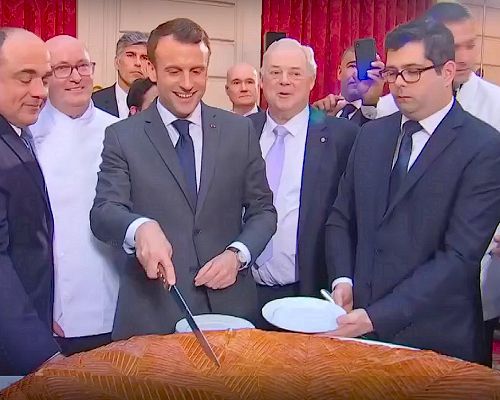 . .
"And if there is not this sense of effort, has taken the head of state, the fact that every citizen brings his stone to the building by his commitment to work, our country can never fully recover its strength, its cohesion, which makes its history, its present and its future. Learning is at the heart of this philosophy. "
While Emmanuel Macron did not directly discuss the movement of "yellow vests" during this statement, many politicians have made the link with the demonstrations of Saturday, November 17.
"At this stage, it is not clumsiness, but a cynical provocation: President Emmanuel Macron seeks to excite popular anger to cleave and pose as the only alternative to the far right and extreme left. This is outrageous, "indignant MP LR Julien Aubert on Twitter.
For his part, Laurent Wauquiez, president of the Republicans, said on Twitter that "in this period where the priority is the return to serenity, the president must have a sense of responsibility and not cause further tension."
The first secretary of the Socialist Party said that "At first we believe that it is a fake, not a president does not throw oil on the fire while the country lives on, and then if ... "
"Macron recurs in insult against his people! "
For his part the president of the Patriots, Florian Philippot, on Twitter replies with derision "Let's make sense of the effort tomorrow: ActeIX! ".
often forgotten that beside the rights of everyone in the Republic (...) there are homework. "
Monday the president of the republic must publish his letter to the French.
|
|
|
|
|
|
|
|
| Garett Skyport for DayNewsWorld |
 |
YELLOW VESTS OR A STRONG MOBILIZATION
SATURDAY, JANUARY 12th
|
|
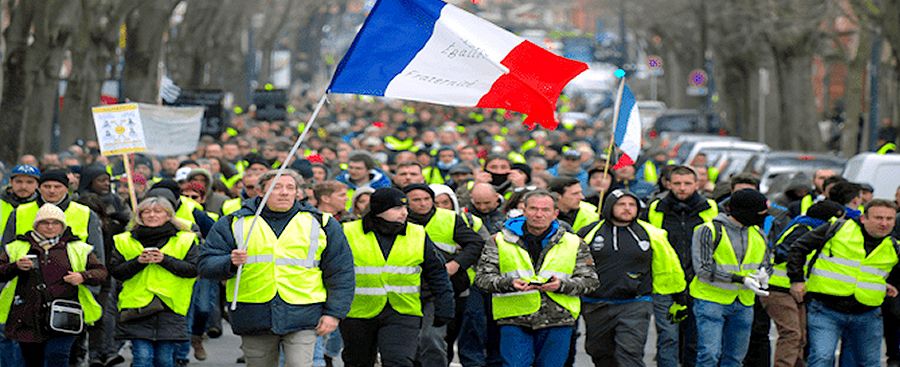
In Paris, the prefect of police said he feared "more radical" for "act 9" of the movement of yellow vests while on the whole territory, the national police provides a level of mobilization close to that of rallies. before the holidays.
While the number of people mobilized fell during the weekends of the end of December, the demonstrations of Saturday, January 5 were marked by a further rise in participation with more than 50,000 protesters according to the authorities.
If Paris remained privileged these last weeks, some yellow vests wish to relocate the event in province and Bourges seems designated. The question of a call to a national gathering in a city other than Paris has indeed regularly fueled the discussions on Facebook after the violence of November 24 and December 1.
The two figures of the movement Priscillia Ludosky and Maxime Nicolle chose Bourges, the capital of the Cher, as epicenter of the mobilization of 12 January.
This prefecture is "a city a little less known to the police to avoid that there is 'nassage' (encirclement, ed) in fact, that the tension goes up," said Breton, better known under the pseudonym of Fly Rider, in an interview with the Konbini media.
The other reason for this choice is the geographical position in the center of France Bourges as announced the name of the event "Act 9: Rally of Yellow Vests in the center of France."
Thursday evening, no request for permission to protest had been filed, according to the prefecture, while 2700 participants said they wanted to go on Facebook and 13,000 people were interested this Friday morning.
The prefect of Cher has announced Friday, the ban of any demonstration in the city center of Bourges for the day Saturday.
In a statement, Catherine Fourrier stresses that the "predictable magnitude" of Saturday's demonstration promises "incommensurate with the previous peaceful marches that have taken place in the commune of Bourges in recent weeks" and which gathered, at the more, 400 people according to the prefecture.
[12/01/2019] Arrested by C. FERRIER @ Prefet18 prohibiting any event inside the city center of Bourges (see annex). pic.twitter.com/cr3eU7txCu
- Prefect of Cher (@ Prefet18) January 11, 2019
Mayor MRSL of the city, Pascal Blanc, for its part, published an open letter Friday morning in which it details the measures taken, in agreement with the prefecture. He has removed some of the parking meters and decided to close several public places on Saturday.
If the city of Bourges is targeted, Paris is also. The road driver Eric Drouet, another figure in the movement of yellow vests, seems to favor Paris. The meeting place, announced at La Défense on Facebook - should be revealed at the last moment, as on other Saturdays so as to catch the police force by surprise.
"Acts 9: Paris Nous Revoila !!!" collects 3100 participants and 16.000 interested people this Friday morning while "Act 9 All in Paris" gathers 2800 participants and 19.000 interested.
The Paris police chief, Michel Delpuech, said that the police system would return to its level of mid-December, with 80,000 police and gendarmes mobilized, including 5,000 in Paris and the mobilization of 14 armored vehicles.
"We believe that the mobilization will be stronger than last Saturday on the one hand and that the behavior within the groups that will be present will be marked by more radical, more temptations of violence", for its part announced the prefect of police .
The security system for rallies on Saturday, in Bourges as in Paris, but also in other cities in France promises to be "considerable" according to Prime Minister Philippe.
In addition, the protesters also expect a resumption of blockages and some call to withdraw their money from banks.
Contrary to what the government was hoping for, the movement is not running out of steam and seems to be bouncing back.
|
|
|
|
|
|
|
|
| Britney Delsey for DayNewsWorld |
 |
YELLOW VESTS POT VS POT
|
|
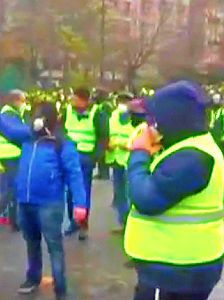 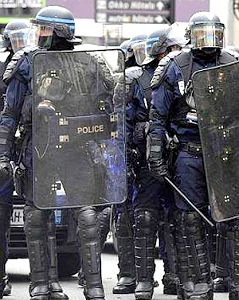
The money collected will be donated to the Amicale of the National Police, a "mutual aid association" that works for gendarmes, police and firefighters and can distribute it between the police injured, explained the former Secretary of State. "I am pleasantly surprised, it proves that there are many people in this country who do not condone acts of violence. The average donation being 27 euros, it proves that it is a political commitment in the service of the police. I wish we exceeded the million, "said Renaud Muselier this Thursday morning.
This kitty symbolizes "A political commitment in the service of the police".
"Participate in the pot for the police, gendarmes and firefighters! We must protect and help our law enforcement agencies. We owe them so much! Explains the accompanying text of the pot, published on the site Leetchi.
Renaud Muselier says he wants to support the 1,050 police officers, gendarmes and firefighters wounded since the beginning of the yellow vests movement. "It is now a question of defending the fundamental values of France which are inscribed on the pediment of our town halls: Liberty, Equality, Fraternity! Can we read in the description of the pot.
The money collected will be donated to the National Police Association, a "mutual aid association" that works for the police but also for police and firefighters. These donations will be divided between the injured security forces, said a spokesman for Renaud Muselier.
Tuesday, faced with the many reactions of outrage, the Leetchi platform has decided to close the pot support to Christophe Dettinger, the boxer accused of hitting a gendarme during "Act 8" of the mobilization of "yellow vests" . More than 117,000 euros had been collected.
For his part, Eric Drouet, one of the figures of the movement of "yellow vests", launched on Wednesday, a jackpot of support to injured protesters, via the Paypal platform.
Would the jackpots symbolize the break between the silent French and the Yellow Vests as suggested by some commentators ?
|
|
|
|
|
|
|
|
| Britney Delsey for DayNewsWorld |
 |
IN FRANCE GOVERNMENT SLIP-UP
ABOUT THE HOUSING TAX
|
| When is the end of the housing tax for everyone? No one can say it today after the new slip-up in government communication.
After opening the door on Sunday, January 6, during the program "The Great Rendez-Vous" to maintain the housing tax for the 20% of the most affluent households, this is Tuesday, January 8 the Minister of the Economy and Finance, Bruno Le Maire, wants to "clarify" his positions saying they had been "misunderstood"!
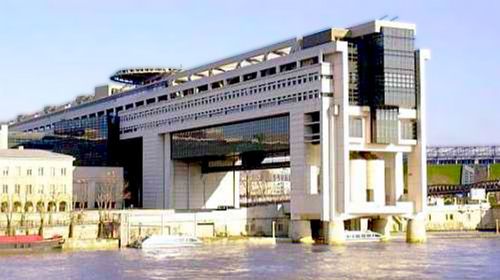 We must go "after the abolition of the housing tax," said Tuesday the Minister of Finance Bruno Mayor, seeming to distance himself from the assumption of a maintenance of this tax for the 20% of households the richer as he had mentioned two days ago at the "Grand Rendez-Vous" Europe 1-CNews-Les Echos. We must go "after the abolition of the housing tax," said Tuesday the Minister of Finance Bruno Mayor, seeming to distance himself from the assumption of a maintenance of this tax for the 20% of households the richer as he had mentioned two days ago at the "Grand Rendez-Vous" Europe 1-CNews-Les Echos.
"I said Sunday that we had to go after the abolition of the housing tax. Going to the end of the abolition of the housing tax means going to the end of the abolition of the housing tax, "insisted the minister at a conference in Bercy on the green economy. Brilliant palpation ...
On Sunday, Bruno Le Maire had, in fact, assured that Bercy could review his copy if a request in this direction was to be formulated in the context of the national debate launched by Emmanuel Macron under the pressure of yellow vests. Criticism by the latter had indeed emerged against the government's fiscal policy deemed unequal.
"It is essential" that this suppression "be completed (...) but we can very well ask the French is what you think that for the richest 20% it is legitimate or not to remove the tax of housing" said the tenant Bercy Sunday.
"If we answer no to every request of the French, that we are not able to listen to the request for justice, we will not succeed the great debate, which should open in the coming weeks," he had justified. .
To the Minister of Action and Public Accounts, Gérald Darmanin, to give his informed opinion by favoring that the better-off remain subject to this local tax recalling that "the abolition of the housing tax is up to 2.500 euros of income if you are single.
But the Constitutional Council, in its opinion on the 2018 budget law, had not he questioned the feasibility of maintaining this local tax for the 20% of the wealthiest French, given the principle of equality before tax? Not taking a stand, he left the question open.
It is the government spokesman Benjamin Griveaux who, adding his own score, seems to have decided:
"We can not always explain that we must involve those who have more and, when it does, invoke equality before the tax," he said Monday on France Inter. "It is a question of law that has been raised by the Constitutional Council and will be decided in the context of a debate in Parliament. "
Is this again a deception towards the French citizen already bending under the burden of taxes?
|
|
|
|
|
|
|
|
| Abby Shelcore for DayNewsWorld |
 |
YELLOW VESTS
POPULAR CLASS AGAINST OLIGARCHY
|
The first demonstration of the yellow vests took place on November 17, 2018. That Saturday, the mobilization was marked by an undeniable success. Since, although some comments had estimated from the end of December, that the movement began to weaken and was going to be exhausted, it is clear that today, January 5, 2019, it took again more end of last year and Eric Drouet under the threat of a sentence possibly very vigorous.
A provocation whose power should have abstained. The streets of Paris, like those of a large number of provincial towns, are richly colored with yellow and blue, yellow vests against the police ... The images are once again shocking! All the more shocking that Emmanuel Macron promised in his vows of December 31, 2018 that he would fully assume his mission of guarantor of security and public liberties.
 The Republic in March does not like the movement, we know, the reason put forward mainly based on the urban violence noted on December 12, 2018, but also on the acts of vandalism or the destruction of permanence of some LREM deputies . The Republic in March does not like the movement, we know, the reason put forward mainly based on the urban violence noted on December 12, 2018, but also on the acts of vandalism or the destruction of permanence of some LREM deputies .
Faced with looting and destruction we see again today, January 5, 2019 an identical situation with the same comments seeking to disqualify the movement.
So almost two months since France is boiling, not far from sinking into chaos. But it is almost two months since Emmanuel Macron still did not understand the deep reasons for this movement of Yellow Vests, a movement straight out of deep anger that has since ignited French citizens who had not yet obtained the right to express their claims.
On the other hand, it must be recognized that the claims of Yellow Vests appear more and more consistent. Reason why the movement is hardening, taking for example the first revolts of the French Revolution of 1789 ...
This revolt was, week after week, fueled by the silences, clumsiness and scorn of the President of the Republic and his government. Hence the desire of a hundred rebels to approach the Elysee, bunkerized, panicked and silent, this for the purpose that Emmanuel Macron "hear the sounds of anger with his own ears and not through media outlets ".
But what today begins to be defined as an insurrection has been mainly nourished by the successive infringements of freedoms, those "stolen before the movement begins" and expressed by this proclamation made to the Head of State: "with our cash you take our liberties.
It is freedom that we are talking about today, in the foreground and in opposition to beautiful words and hollow words.
The warnings with fines and imprisonment, consecrated by nearly 300 actual subsequent convictions of which a certain number to prison, all being the expression of a ruthless repression, did nothing about it.
"The people" no longer accept the obstacles to the fundamental freedom of movement, but also freedom of expression.
And we understand it; the latest index of Libertex published in November 2018, placed France in 7th place, behind Hungary and Russia in terms of interference with freedom of expression! And on this point the written conclusions of Libertex are worrying.
Until now, we have never heard such overtly repressive speech in France, against a social movement (before being political?) That denounces frontally the impoverishment and rampant downgrading of a whole section of society. , not concerned before and objecting: "What about freedom when we are still forced to work to pay more (more taxes and more taxes) while the 15th of the month we have more nothing ! "
The crystallization of the discontents expressed by this jacquerie, this revolt against the costly life were opposed to the incomprehension of the power vis-à-vis "the true life of real people".
It is this misunderstanding that has been described in his latest book, "No Society" Christophe de Guilly, a book devoted to the evolution of Western middle classes.
Christophe de Guilly is a geographer (trained at Panthéon-Sorbonne) who joined the cohort of philosophers, demographers, sociologists and other reputed political scientists from the left but who at one point, in their soul and conscience broke with ideology dominant as it appeared to them to be encysted in the denial of reality.
The explosion of the Yellow Vest movement has just revealed the long-standing opposition between the ruling class and the popular class, the "middle class" being nothing more than a myth.
Obviously the highlighting of this confrontation between social classes has nothing to do with Marxist theory, "has been".
But this opposition between these two social classes is the expression of the social disintegration observed for decades under the blows of globalization (which is not happy for all) of immigration and multiculturalism.
According to a recent survey, it is well over 50% of French people who, today, mark their attachment to more identity, more security (including financial) more sedentarity and rooting both geographical and cultural ; and it is not the application of the "Quart d'heure de haine" as narrated by Georges Orwell in his 1984 masterpiece that will allow the media-political caste to be out of reach of the movement, which has just led to a deep movement of anger (to be related to the hateful glances evoked by the President of the Republic on the occasion of his wishes to the nation).
In fact, the "herd of morons that manifests" could be the sign of the "Twilight of France from above" (subject and title of one of the books of Christophe de Guilly), putting the representative of the said France of High in May 2017, in great danger.
We suspect that this threat has even become obvious to many, just a few months away from the next European elections, so obvious that it is proven that the government is accused of having turned its eyes on "the riffraff" (in the words of Some politicians) from the suburbs who meanwhile quietly continue his traffic of all kinds, in many urban ghettos in which the armored vehicles requisitioned to protect places of power against a visit of Yellow Vests, have never gone, even occasionally.
To be even clearer and to conclude, we affirm that the suburbs where "the riffraff" is a chance for France, according to Christophe Castaner, suburbs who live off the hook, traffic of all kinds and some of their inhabitants have looted under the eyes of the cameras the upscale shops of the gentrified city centers (the stolen goods will be as usual resold fallen from the truck) did not worry the Minister of the Interior or even the Elysee, unlike Yellow Vests.
It is true that they are in great need of this suppletive militia, which is indispensable for "taking charge in the next elections" and for punching in the face of frightened sores ... who no longer hold the reins of power as firmly as they do. we could hope for it.
|
|
|
|
|
|
|
|
| Clara Mitchell for DayNewsWorld |
 |
|
CURING SANCTIONS AGAINST UNEMPLOYED OR HUNTING OF UNEMPLOYED FRENCH
|
|

while Emmanuel Macron called, as recently as two days ago, the "unity found" of the French during his vows, he is far from sure that the new decree of application of the law For the freedom to choose one's professional future, there is no unanimity among those who are also called to "accept reality".
Five months after the final adoption, an important implementing decree that specifies practical terms of the text, has indeed been discreetly published in the Official Journal, Sunday, December 30. It states a tightening of sanctions against jobseekers who fail to fulfill their obligations in their job searches.
The reality for the unemployed is likely to be under even more cruel days than hitherto: these sanctions are more severe than what the government initially announced in March.
1 ° The notions of "reduction" and "suspension" of the allowance (which made it possible to retain one's rights) disappear from the labor code in case of insufficient job search.
 While gradual sanctions, such as suspension of the allowance for one month after a first refusal of offer considered "reasonable", (then two months the second time and four months the third time) had been mentioned by the executive , the sanction will not be the suspension but rather the removal of the allowance from the first breach. While gradual sanctions, such as suspension of the allowance for one month after a first refusal of offer considered "reasonable", (then two months the second time and four months the third time) had been mentioned by the executive , the sanction will not be the suspension but rather the removal of the allowance from the first breach.
This control must be done via a digital "logbook", where jobseekers will provide monthly information on their job search. A device tested for one year in two or three regions from mid-2019,
2 ° And in addition to the abolition of allowances during the cancellation, this decree also entails a modification of the definition of what is a "reasonable" job offer by limiting the possibilities of refusing a job that is too poorly paid. The text "repeals the definition of previously received salary that was taken into account in determining the reasonable offer of employment". A formulation of jurist who conceals the fact that it will no longer be possible to refuse a job center offer on the grounds that the salary is lower than the one he received during his last job.
3 ° The control and the sanctions will be organized by a single entity which is called Pole employment whereas the control of the effective search for employment and its sanction were legally the responsibility of the regional direction of the Ministry of Labor. Pôle emploi could until now only suspend unemployment benefits in the event of absences at the convocations.
The hardening of the sanctions is justified "simply in a logic which is a logic of justice", according to the spokesperson of the deputies of the Republic in march (LaRem) Aurore Bergé ... but these measures do not bother to worry the unions . "Emmanuel Macron has not changed in his desire to" hunt "the unemployed, continuing to blithely mix the 0.4% fraud and the vast majority of unemployed who seek to work with dignity," says Denis Gravouil ( CGT) in the World.
Why stigmatize the whole of the unemployed for a handful of free riders while it is obvious that France does not generate more emplosi. Indeed a country that has destroyed its industry and relies only on its services can not work! Moreover, was the industry not a consumer of services?
The vast majority of the French political class, which too often takes the German model as the squaring of the circle, should not it pose questions because if, admittedly, Germany owns service companies it also has an industry of high performance ubiquitous in the economic fabric of the country. The industry in Germany represents a very strong GDP.
If France wants to get out of this situation and find full employment it is obvious that it must reindustrialise.
|
|
|
|
|
|
|
|
| Andrew Preston for DayNewsWorld |
 |
BENALLA CASE
SEASON II
|
|
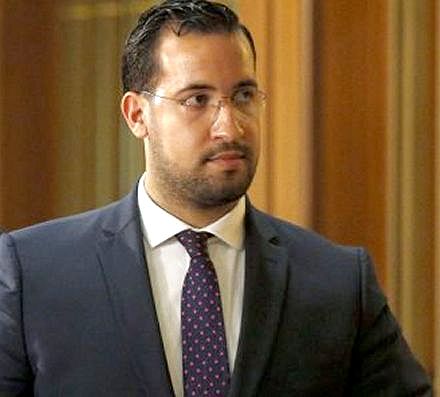
The first season of the Benalla affair drove Emmanuel Macron into the polls.
Since then, we have just started the act two which may last once more over time and we wonder: what will it be this time in a few weeks, in the explosion period yellow vests, a popular movement that visibly bends but does not break?
The first act of the soap opera Benalla was reduced to a news item, stinking certainly but caused by a disconcerting casting error.
In a few days from what we read or hear here and there, the case could really turn to the state affair.
First remark, this case Benalla sticks to Emmanuel Macron as the plaster of Captain Hadock and the head of state is once again in a situation of great political risk Alexandre Benalla has publicly become the black cat of the President.
Because this case Benalla, season 2, this time asks many questions, even more questions than the first.
It all started with Alexandre Benalla's trip to Chad in early December, a trip revealed by our colleague Médiapart. We learn on this occasion that the Elysee was aware (or could not be unaware) of this trip, since the Embassy of France had made public, via the publication of "The Letter of the Continent" ( African) published on December 12, 2018.
Emmanuel Macron was in turn in Chad on 22 and December 23, 2018, that is about two weeks later, and that the passage of his former adviser did not question him or worried?
In N'Djamena, the capital of Chad, the 27-year-old was received by President Idriss Deby himself and his brother Oumar, the head of the Directorate General of the Strategic Reserve.
It is easy to deduce that in this function, Oumar Deby has the upper hand on Chad's military orders ...
Alexandre Benalla, who had arrived from Yaounde, the capital of Cameroon by private plane, was expected at the airport. All business done, he went quietly, two days later, to Istanbul in Turkey.
The nights at the Djamena Hilton were settled by a discreet (?) Franco-Israeli businessman, a specialist in private diplomacy in Africa, Philippe Hababou Solomon, the former special adviser to the former South African president , Jacob Zuma!
This "old road" seemed to have taken a liking to young Alexandre Benalla. The two men would have known through a common knowledge that would have contacted the former advisor Emmanuel Macron after the scandal this summer. Alexandre Benalla would be today at the confluence of the networks françafricains and israeloafricain?
But who exactly is Philippe Hababou Solomon?
Jeweler by training (Place Vendôme) Philippe Hababou Solomon owns a network of friends and a long judicial locker like Oubangui Chari. After doing business in the United States, then in Tel Aviv, he returned to France to buy in 2002 AeroLyon, an operation that ended in 2004 landed on the office of the Prosecutor of the TGI of Paris.
Philippe Solomon (this is how he calls himself) meets and collaborates during his various activities with Thierry Herzog, the lawyer of Nicolas Sarkozy (with whom he spent holidays ... only once he specifies) ), Bernard Tapie for which he tries a rescue operation of one of his companies, Brice Hortefeux, Patrick Balkany, Loic The Floc Prigent, the former boss of the Elf affair, the Russian billionaire Arkadi Gaydamak, but also Bill Clinton at the time of the Monica affair, a few emissaries from the Gulf, but also, moreover, what is the strangest Captain Barril and the founder of GIGN Christian Prouteau.
But, moreover, Alexandre Benalla stayed this summer at Vincent Miclet, the gatsby of France Africa in the luxurious villa that he owns in Marrakech. One of Vincent Miclet's three Bentley Mulsanns was waiting for him at the Marrakech airport, driven by a white-glove driver, to take him to the palm grove protected by large walls, called the "Golden Horse Estate", built nearby. of the Palace of the King of Morocco.
Vincent Miclet who knows Philippe Solomon, is the 180 th fortune of France.
The first meeting between Vincent Miclet and Alexandre Benalla took place in Paris in 2017 thanks to the help of a former girlfriend of the former adviser to the Elysee.
You said 2017? Yes ! Yes ! I said 2017. But then? The attacks explaining that Alexander Benalla did indeed use his functions, his position and the doors that it opened to him to do business are therefore accurate?
It therefore seems very obvious and logical to ask today the question of what Alexander Benalla was doing in Chad, a few days before Emmanuel Macron's trip, in addition to the possession of two diplomatic passports that he still had not returned!
And once again, we affirm, the Elysee could not ignore these details!
Vincent Miclet who was born in Chad (his parents were cooperating and his mother worked at the French embassy) has for some time been suspected of embezzling 400 million dollars in Angola.
We have our heads spinning and we understand even better the mistrust of yellow vests (and many French citizens) vis-à-vis the elite, yellow vests parading today, once again in Paris and the major cities province to express their great anger.
We do not want to believe the latest statements of the Elysee recalling "that Alexander Benalla is not an official or unofficial emissary".
It is also not believed that the visit to Chad of Alexandre Benalla would be a mere coincidence. Chance has a good back!
On the other hand, it is even better to understand why Alexandre Benalla began to release his sulphates: "I will not be silent anymore," he warned in his umpteenth statement to AFP in response to "the defamatory remarks made by some people in Elysee ". 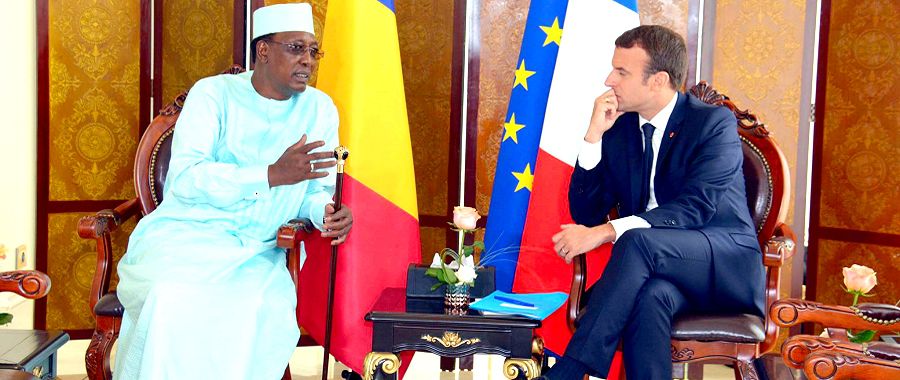
We still do not believe (or understand too well!) Why Alexandre Benalla has kept his two diplomatic passports (issued end of May 2018 for a period of 10 years) and why the Ministry of Foreign Affairs as the Elysee did not eager to ask him for it.
In such a maelstrom we want to laugh or smile on this beautiful joke whose scenario is swelling, if only through it is the credibility of France and its interests generals who are at stake.
Also, we grit our teeth when we hear the Elysée harden, by letter, the tone against Alexandre Benalla or the deputy LREM Bruno Questel wishing the opening of an administrative investigation of the Ministry of Foreign Affairs ... just that ... what on what , is it a new coincidence, the Minister of Foreign Affairs, Jean Yves Le Drian has just seized the Parquet of Paris ... against Alexandre Benalla ...
All indications are that Alexandre Benalla is not a man like the others, even if the power has sought to play down his role and the importance of the case (remember there is little Emmanuel Macron claimed the indulgence for his former advisor).
The turn that the Benalla affair has just taken with regard to its relations with almost exclusively authoritarian regimes risks discrediting not only the President of the Republic (it is already done) but also the France whose citizens have been expressing since the beginning of December. their anger.
|
|
|
|
| Clara Mitchell for DayNewsWorld |
 |
BENALLA CASE
ALEXANDRE BENALLA'S BUSINESS VOICES
|
Alexandre Benalla was reopened, just six months after being dismissed from the Elysee and indicted for
"willful violence" and "prohibited port and without right of insignia regulated by the public authority" and "recel images from a videoprotection system ", after his participation in a muscled arrest May 1st.
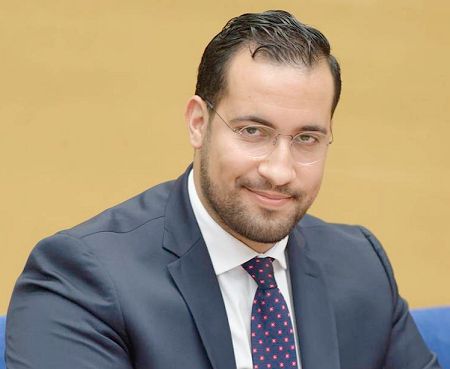 The former deputy chief of staff of the Elysee, would have visited Chad in early December. The former deputy chief of staff of the Elysee, would have visited Chad in early December.
He met with the Chadian president and his brother Oumar Déby, who is in charge of leading the Chadian strategic reserve (DGRS).
It was in his new quality of businessman and consultant that he would have gone there.
But Emmanuel Macron, during his official visit to Chad a few days later on December 22, thought it best to explain to his African counterpart that the former collaborator of the Elysée Alexandre Benalla, was "in no way an intermediary official or official "of the French Presidency.
"Only the Minister of Foreign Affairs, Jean-Yves Le Drian, the diplomatic adviser to the President, Philippe Etienne, and Franck Paris, his adviser Africa, can claim the Head of State" on the continent, recalled the presidency of the Republic Tuesday.
The annoying coincidence of the agendas questions.
The Elysee was not aware of this move after the fact that the thirty-year-old businessman claims to have been unaware of the presidential visit. Alexandre Benalla evokes "a combination of circumstances". "I did not know that the President of the Republic was going to Chad a few days later," he says on a radio station.
The mission of the former advisor also.
Alexandre Benalla would have reconverted in international relations having no connection with the Elysee. "I do consulting assignments. All that I do is legal "he still asserted" particularly shocked and scandalized by the irresponsible remarks made by 'the Elysee', implying that I would have in the course of my travels in Africa could prevail a function, title, or power for the purposes of professional solicitation. "
What also caused trouble is that Alexandre Benalla Chad was accompanied by half a dozen people on board a private plane, paying the fees by Carte bleue, including his stay at the Hilton Hotel N N'Djamena. .
According to Benalla he was in N'Djamena with a delegation of foreign entrepreneurs - mainly from the Middle East - likely to create 3,000 jobs in Chad for an industrial project representing an investment of 250 million euros.
"I went to Chad, accompanying a foreign economic delegation in the context of investments they will make on the spot, all the expenses concerning this trip was taken in charge by the head of this delegation," he said. -he assures
These activities related to personalities abroad are obviously not new. In July, Le Monde had already revealed that in March 2017, in parallel with his activities as safety officer for candidate Emmanuel Macron, Alexandre Benalla had assured the protection of Iraqi Sheikh Jamal al-Dhari during his visits to Paris.
Benalla would have traveled for business also in several other African states...
|
|
|
|
|
|
|
|
| Alyson Braxton for DayNewsWorld |
 |
CLOCK OF EMMANUEL MACRON WITH FRENCH MILITARY FROM BARKHAN FORCE TO CHAD
|
| In Niger last year at the same time, Emmanuel Macron went to N'Djamena, Chad, on Saturday and Sunday, accompanied by Minister of Armies Florence Parly, to celebrate with the soldiers of the Barkhane force before meeting the President. Chadian, Idriss Déby, ally of France in the fight against terrorism in the Sahel.
Last year, he had woken up with the 500 or so French Barkhane soldiers based in Niamey, Niger. The traditional Christmas meal will be prepared by the head of the kitchens of the Elysee, Guillaume Gomez who tweeted Thursday the photos of the supplies brought on the spot for the occasion.
 This trip shows the strategic importance for France of this Sahel-Saharan strip where many issues, including diplomatic, security, migratory issues, are colliding. This trip shows the strategic importance for France of this Sahel-Saharan strip where many issues, including diplomatic, security, migratory issues, are colliding.
On the N'Djamena base, where the Operation Barkhane command post is located, as well as an air detachment and support and transmission elements, the Head of State and the Minister of Armies must meet General Frederic Blachon, commander of Barkhane since July, for a record of operations.
Operation Barkhane, launched by France in the Sahel since 2014 and currently has 4500 soldiers, has managed to push back the positions of jihadists in the region, according to the Elysee. Most of the terrorist groups in Northern Mali have been defeated, however, in the center of the country and in neighboring Burkina Faso and Niger.
France plans to increase its partnership with the new G5 Sahel anti-Jihadist force, set up with the support of France between five Sahel countries (Mauritania, Niger, Mali, Burkina Faso, Chad). Of the 400 million euros pledged by the international community for the deployment of this force alone 100 million euros have been paid.
Emmanuel Macron and Idriss Déby will lunch together on Sunday to take stock of the deployment of the G5 Sahel force and the growing presence of Russia in Central Africa feared by France, former colonial power in the region.
Emmanuel Macron will close his visit with a meeting Sunday morning with Chadian women in the House of Women in N'Djamena, "only place in the Sahel dedicated to women," according to the Elysee.
"This place of rather exceptional local mobilization on the equality between men and women, which proposes professional trainings, will be the occasion of a meeting with a very structured and very demanding civil society", noted the French presidency. In Chad 80 % of women are illiterate and 70% married before their 18th birthday.
|
|
|
|
|
|
|
|
| Andrew Preston for DayNewsWorld |
 |
AFTER THE ANGER OF YELLOW VESTS
THE CRIS OF ANGER OF POLICE IN FRANCE
|
|

The growing malaise of the police is back on the scene. After an intense month of demonstrations and the constant management of the terrorist threat, police unions are asking for a "return on investment". They are received this Tuesday by Christophe Castaner.
The unions have waved on Monday, December 17 the specter of a social movement within the police who denounce their working conditions and remuneration.
The three major peacekeeping organizations and senior officers, the main body in the National Police, each called for action in the coming days. SGP-Police-FO unit on Saturday, December 15, called for an "act I" of the mobilization in January, echoing the weekly demonstrations of "yellow vests". 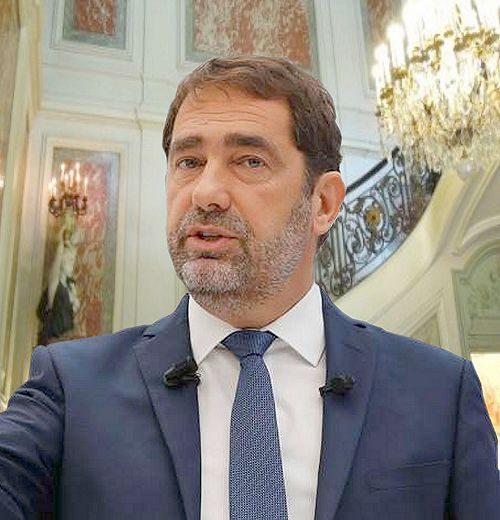
National Police Alliance decreed Monday, December 17, a "black day" Wednesday, 19: officials to close the police stations and to answer only emergency calls. Finally, the UNSA-Police lobbied on Tuesday and summoned his troops to do the "minimum service" on Tuesday, December 18, by not verbalising the offenders.
For its part the Ministry of the Interior has reacted very quickly knowing the high rate of unionization of the profession. "The unions will be received Tuesday in Beauvau by the Minister" Christophe Castaner, says the Ministry of the Interior. Secretary of State for the Interior Laurent Nuñez assured Monday night that "the door is open" for the unions for a meeting "on the topics they wanted".
But it is unlikely that all claims will be honored so long the list of claims can be honored as long as the list of claims is provided and engages heavy budgets. The exceptional bonus for agents mobilized for "yellow vests" announced by Emmanuel Macron was not enough.
Among the "social advances" claimed include the payment of some 23 million overtime, a state effort on the assumption of certain social security contributions, an increase of 115 euros on 1 January for all guards peace in particular, like the "yellow vests" close to the smic.
The claims go far beyond the financial aspect. The unions demand that a global reflection be made on the working conditions of police officers with the implementation of a "Marshall Plan" of the police.
If the demands are not fulfilled at the beginning of the year, SGP-Police-FO Unit will call the other organizations for a big demonstration on the 26th of January.
|
|
|
|
|
|
|
|
| Jenny Chase for DayNewsWorld |
 |
CASE BENALLA VINCENT CRASE WOULD HAVE RECEIVED
3OO OOO EUROS FROM A NEAR POUTINE
|
|
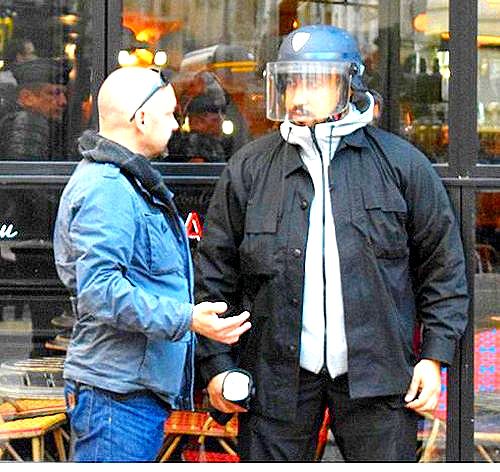
No new upswing in the Benalla affair. Vincent Crase, the security agent of the Elysee Palace would have received a large sum from a Russian oligarch close to Vladimir Putin suspected of links with the mafia.
He had been implicated on 19 July in the violence against protesters on 1 May at the Place de la Contrescarpe. The annoying detail: the payment was made before his dismissal on July 31, 2018.
The Benalla affair is experiencing another embarrassing rebound for the Élysée.
Indeed, on June 28, Vincent Crase received the sum of 294,000 euros from a Russian oligarch close to Vladimir Putin while he was at the same time still security agent for the Republic in March (LREM) and with the 'Elysium.
This sum would have been paid to the Mars Conseil company, a luxury concierge offering services to wealthy clients, from the driver to the bodyguard. Vincent Crase is the only shareholder.
The contract concerned the protection of relatives and property of Mr. Makhmudov, who is at the head of an industrial empire and owner of several properties in France.
.Connections with the Moscow Mafia?
This Russian oligarch, close to Vladimir Putin, is the 211th world fortune, according to Forbes magazine. But the Russian businessman is especially suspected "by several European magistrates to be linked to the Russian mafia," says Mediapart, and more particularly to the Moscow crime group Ismajlovskaya, known as one of the most dangerous in the world.
The amount of the transaction attracted the attention of Tracfin, the Ministry of the Economy's service in charge of the fight against money laundering and the financing of terrorism.
To fulfill the contract, Vincent Crase had recourse to the security company Velours, the former employer of Alexandre Benalla. The latter told Le Point that "Vincent Crase [presented] it to the leaders of Velvet in 2012.
He knew them before [him]. "He himself worked for the company from 2013 to 2015.
Alexandre Benalla has denied any involvement and added "[have nothing] to do with this story.We continue to want to get dirty while this contract is the private and professional life of Mr. Crase who is my friend, displeased to some. "
|
|
|
|
|
|
|
|
| Garett Skyport for DayNewsWorld |
 |
EMMANUEL MACRON
WILL IT BE SO CALLED
THE ANGER OF YELLOW GILETS
|
|
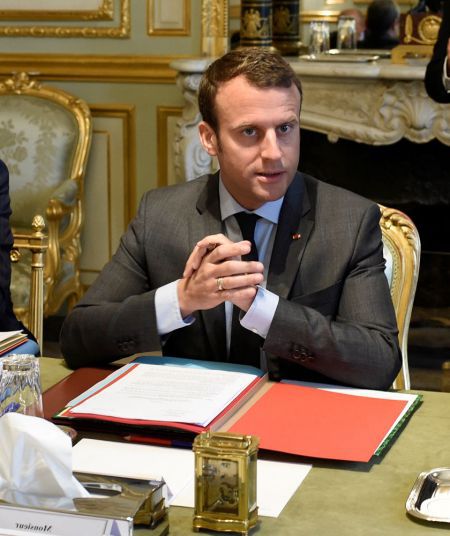
That is the main question that arises today as we write. Will Act V of Saturday, December 15, 2018 mark the end of the play that began on November 17?
Emmanuel Macron who, in the wake of a devastating and violent act IV, hoped to think so if one believes the terms of his intervention of December 10 which was meant to be a turn.
Some hope, tired by the disorder and economic losses caused by several weeks of popular fury.
As far as we are concerned, we will be more careful!
While the violence and daring of the rioters indignant many French, including French wearing a yellow vest, but they also frightened the country's external partners.
Of course Emmanuel Macron's recent promises were a start, marking a shift that certainly favored the decline in the physical mobilization of yellow vests, especially in Paris.
But the fact remains that the social measures announced have been for many of them only measures, fuzzy contours surcrot which can not, in view of the overall situation, be satisfied only by a process of budgetary cavalry .
The coup de maitre of the yellow vests was to force "Jupiter" to change .. finally .. of course, a feat for the one swore by Europe and the World, in contemptuous and haughty terms. "Jupiter" was forced to make concessions, finally!
It was time unless, as François Bayrou, the mentor of the Head of State often says, "when it's late, it's already too late".
Emmanuel Macron, like his Prime Minister, Edouard Philippe lost much in this revolt of yellow vests.
Both have unscrewed in the polls. According to the last of the FIFG published in "Le Journal du Dimanche" yesterday, December 16th, the percentage of disaffected Emmanuel Macron increased once more by 3%, passing the number of these from 73 to 76 %. This is a lot, 18 months of a presidential election that was to renew and refresh the French political life. 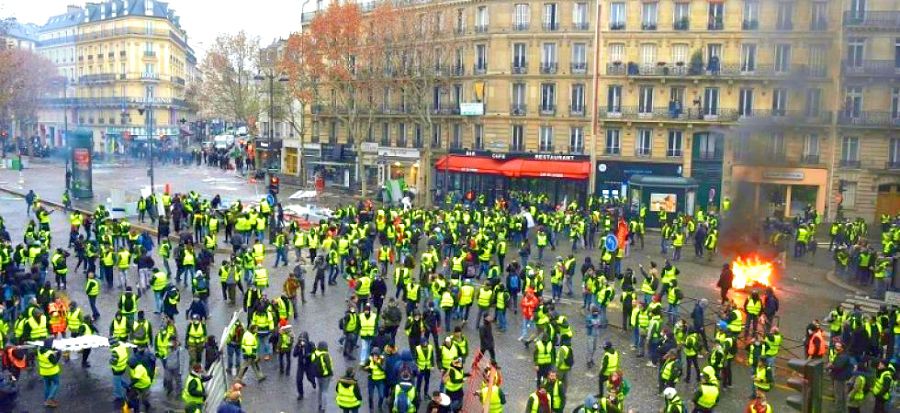
Reading these% it is easy to understand that the decrease in the participation of the yellow vests in the demonstrations in Paris (and Province) on Saturday (15/12/2018) can in no way be interpreted as a landing in gentleness that would allow the Head of State to extricate himself from the most serious political crisis of the quinquennium.
In fact, the decrease in participation is explained by the fact that the cold reigns at the end of 2018; that there is the approach of the holidays and that the police and safety devices of previous Saturdays frightened more than one (which were not obviously breakers).
It is in this context that the former Minister of Sports, Chantal Jouanno was entrusted with "operational coordination" of the great public debate and announced by the President of the Republic.
It will be recalled first of all, and not only for the record that the Public Debate Committee, chaired since 2016 by Chantal Jouanno herself, created in February 1995, which saw its missions extended in 2016, will have a budget in 2019 4 million euros that its managers consider yet insufficient.
Nothing else! For a much smaller blow, the yellow vests have had the merit of opening the public debate!
One thing is certain, is that contrary to announcements made a few days ago by the executive "there will be no big public debate next week". It's already starting badly! Especially when one learns that the issue of immigration which was originally to be the 5th theme debated, has disappeared, relegated it appears to be a sub-theme?
The battle is far from won for Emmanuel Macron, knowing moreover that the Truce confectioners will be short.
In certain geographical areas the yellow vests have remained physically the weapon at the foot, while at the same time the digital agoras will not stop.
It is therefore unlikely that Emmanuel Macaron capitalizes on the parenthesis that has just opened, thanks to the end of year festivities.
The social crisis has revealed in depth that the current governance arrangements are outdated, which explains in large part the great anger that has erupted but has been brewing for a long time, anger provoked by feelings of loss of meaning, and , for fear of downgrading and the future.
|
|
|
|
|
|
|
|
| Clara Mitchell for DayNewsWorld |
 |
FRANCE JORDAN BARDELLA
THE GREAT FAVORITE OF THE NATIONAL MEETING FOR EUROPEAN ELECTIONS
|
| Rumors are rife around the name of the spokesman for the National Gathering.
The boss of the former FN would she chose the young regional councilor of Ile-de-France Jordan Bardella as head of list in the European elections next May? It is in any case the rumor that circulates but it will be necessary to wait for the "convention" organized by the National Rally on January 13, Mutualité to have confirmation.
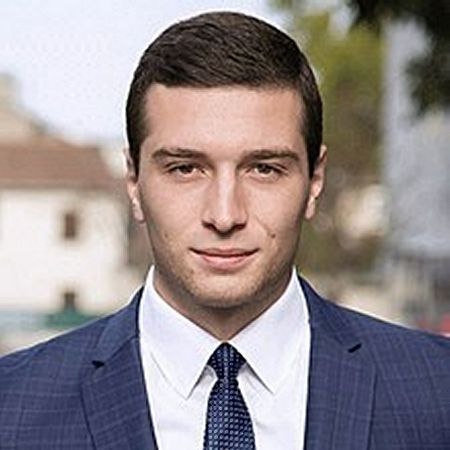 Jordan Bardella, 23, has a blistering political career with a full resume. Born in Drancy in 1995, he grew up in Seine-Saint-Denis. Jordan Bardella, 23, has a blistering political career with a full resume. Born in Drancy in 1995, he grew up in Seine-Saint-Denis.
It is in this department that his political commitment is born. He joined the National Front at age 16, then became departmental secretary of Seine-Saint-Denis at age 19 before being elected regional councilor of Ile-de-France at age 20. Noticed by Marine Le Pen it reaches in September 2017, after the resignation of Florian Philippot , the party spokesman, only 22 years old.
A few months later, in March 2018, he took the national leadership of "Generation Nation", the young movement of the far-right party.
Jordan Bardella, whose family is of Italian origin, masters the Italian language. This allowed him to form important links with the League of Matteo Salvini, the populist and Eurosceptic Italian party. At the end of September, Mr. Bardella participated in the League meeting in Genoa.
Bardella's choice is not unanimous at the National Rally summit. For some of the party's caciques, Jordan Bardella's youth may be a disadvantage at a time when the inexperience of the head of state is pointed to as a weakness. For others this youth is the perfect symbol to position itself as the main opponent to Emmanuel Macron. "The new world is us. "
In any case the Bardella option would present significant assets for the leader of the French far-right. Not only this "loyal apparatchik", unlike many of the leaders of his party, has no "pan" judicial to his credit, but still not giving shade to Marine Le Pen, it would allow the latter to ensure the campaign on the front line, tour that it is already towards the presidential 2022.
Driven by the news around the movement of "yellow vests", Marine Le Pen would nevertheless rely more and more on the option Bardella to try to consolidate the polls that currently give it top European elections in May 2019.
According to the latest figures published by Ifop on Sunday, Marine Le Pense is 24% against 18% for Walkers and 11% for Republicans.
|
|
|
|
|
|
|
|
| Alyson Braxton for DayNewsWorld |
 |
YELLOW VESTS AND
THE CITIZEN INITIATIVE REFERENDUM
|
|
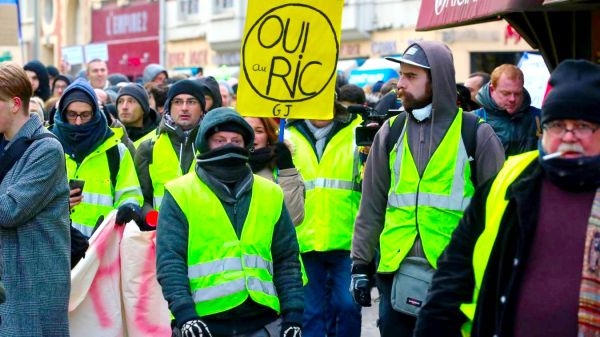
If the complaints of "yellow vests" are characterized by their heterogeneity, a claim, however, seems almost unanimous.
The representatives of the yellow vests claim the introduction in the Constitution of the popular or popular initiative referendum, the RIC.
This device is presented as the solution to give the floor back to the people.
The referendum already exists in our institutions in different forms.
1 ° The referendum initiated by the executive or the parliamentarians.
Article 11 of the Constitution of the Fifth Republic, adopted on October 4, 1958, makes it possible to organize a referendum on "any draft law on the organization of public authorities, including the approval of a Community agreement, or tending to authorize the ratification of a treaty ". The initiative then falls under the government or a joint proposal of the National Assembly and the Senate. A constitutional revision in 1995, broadened the referendum object to the bills on economic, social or environmental policy.
2 ° The constitutional referendum.
Governed by Article 89, it allows the approval or rejection of a revision of the Constitution. Its use by the president is not mandatory. The latter may prefer the vote of the Congress (meeting of the National Assembly and the Senate in Versailles).
3 ° The referendum of shared initiative.
The constitutional reform of 2008 under the five-year term of Nicolas Sarkozy has already included the possibility, under strict conditions, of "referendums of shared initiative". To organize these referendums, it is necessary "a fifth of the members of Parliament, supported by a tenth of the voters registered on the electoral lists", ie at least 185 deputies and senators (on 925) and more than 4.5 million voters. Difficult to implement, the provision has never been applied, even if a website has been designed to support any "referendum bill".
For protesters yellow vests must go further in the powers of the referendum. They propose the establishment of a citizens' initiative referendum, or "RIC", so that citizens can be consulted on the main economic and social orientations, in the image of what exists in Switzerland or Italy. The idea is to give back power to the people by allowing him to reinvest the political field between two elections, the five-year period does not allow it.
The "RIC" would in particular "give the people the right to draft or repeal a law on the subject he chooses". Even to revoke the mandate of an elected official and even that of the president.
The terms of this are detailed:
"Creating a readable and effective site, supervised by an independent control body where people can make a proposal for a law. If this bill obtains 700,000 signatures then this bill will have to be discussed, completed and amended by the National Assembly, which will have the obligation (one year to the day after obtaining 700,000 signatures) to submit it. to the vote of all the French. "
A claim also defended by several political parties in various forms. This referendum aims at facilitating the consultation of the people, without involving Parliament upstream.
The review of the draft constitutional revision will resume in March, at the end of three-month local consultations decided by the executive face the movement of "yellow vests" to leave the door open to additions. |
|
|
|
|
|
|
|
| Britney Delsey for DayNewsWorld |
 |
ATTACK IN STRASBOURG 3 DEATH AND 13 INJURED
|
|
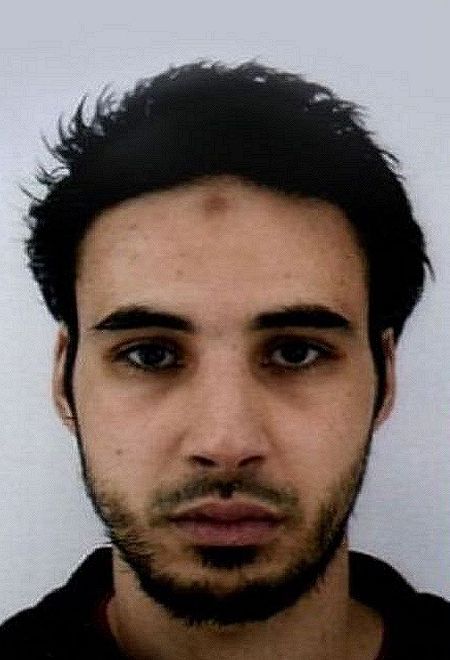
At the beginning of the evening, shots were fired in the city center of Strasbourg, near the Christmas market.
The provisional toll is three deaths, nine serious and five minor injuries.
The gunman, fugitive and actively searched, has been identified and is stuck S.
A manhunt is underway with nearly 350 police and gendarmes on the heels of the assailant who escaped by taxi.
He was to be arrested that morning in a case of attempted homicide and extortion. At his grenades were discovered Tuesday morning at his home. He had already been convicted in France and Germany for common law offenses.
The Antiterrorist Section of the Paris Public Prosecutor's Office seized the investigation and opened an investigation into "assassinations and attempted assassinations in connection with a terrorist enterprise" and "criminal terrorist criminal conspiracy".
.
The Paris prosecutor goes to Strasbourg.
Interior Minister Christophe Castaner, who is monitoring the situation, said that
" The security and rescue services are mobilized. Do not spread rumors and follow the advice of the authorities.
The "White Plan" is activated in Strasbourg hospitals
"The President of the Republic has been informed in real time of events in Strasbourg.
He therefore decided to shorten his current meeting and wanted the Minister of the Interior to go there, "said the Elysée.
The city hall and the Ministry of the Interior invited the inhabitants to stay at home.
"Avoid the area of the police station", then added the prefecture, which specifies that the people of the sector Neudorf and the park of the Star must remain confined. The city center is currently closed.
The Vigipirate plan was raised to the "emergency bombing" level.
|
|
|
|
|
|
|
|
| Britney Delsey for DayNewsWorld |
 |
ATTACK IN STRASBOURG 3 DEATH AND 13 INJURED
|
|

At the beginning of the evening, shots were fired in the city center of Strasbourg, near the Christmas market.
The provisional toll is three deaths, nine serious and five minor injuries.
The gunman, fugitive and actively searched, has been identified and is stuck S.
A manhunt is underway with nearly 350 police and gendarmes on the heels of the assailant who escaped by taxi.
He was to be arrested that morning in a case of attempted homicide and extortion. At his grenades were discovered Tuesday morning at his home. He had already been convicted in France and Germany for common law offenses.
The Antiterrorist Section of the Paris Public Prosecutor's Office seized the investigation and opened an investigation into "assassinations and attempted assassinations in connection with a terrorist enterprise" and "criminal terrorist criminal conspiracy".
.
The Paris prosecutor goes to Strasbourg.
Interior Minister Christophe Castaner, who is monitoring the situation, said that
" The security and rescue services are mobilized. Do not spread rumors and follow the advice of the authorities.
The "White Plan" is activated in Strasbourg hospitals
"The President of the Republic has been informed in real time of events in Strasbourg.
He therefore decided to shorten his current meeting and wanted the Minister of the Interior to go there, "said the Elysée.
The city hall and the Ministry of the Interior invited the inhabitants to stay at home.
"Avoid the area of the police station", then added the prefecture, which specifies that the people of the sector Neudorf and the park of the Star must remain confined. The city center is currently closed.
The Vigipirate plan was raised to the "emergency bombing" level.
|
|
|
|
|
|
|
|
| Alize Marion for DayNewsWorld |
 |
THE ANNOUNCEMENTS OF EMMANUEL MACRON
|
At nearly four weeks of slingshot of "yellow vests" the President of the Republic broke the silence to speak in a televised speech.
Faced with the finding of "the state of economic and social emergency" France Emmanuel Macron announced several measures, Monday, December 10, during a televised speech recorded at the Elysee.
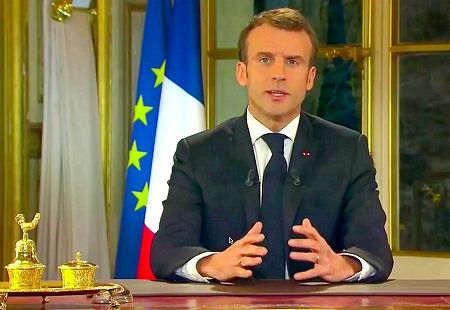 "We want a France where we can live worthily from our work, on this point we went too slowly I ask the government and the parliament to do what is necessary so that we can live better of his work from the beginning of the year next. "Conceded the head of state judging the claims of the yellow vests legitimate. "We want a France where we can live worthily from our work, on this point we went too slowly I ask the government and the parliament to do what is necessary so that we can live better of his work from the beginning of the year next. "Conceded the head of state judging the claims of the yellow vests legitimate.
A mea culpa-culpa hollow but does not hide its intentions not to change course.
He declined the following measures:
1 ° Increase of 100 euros per month of the smic thanks to the premium of activity.
"The wage of a worker at the SMIC will increase by 100 euros per month from 2019 without it costing one more euro for the employer," he said. However, no details have been provided on this increase, which is added to the increase of 1.8% expected in January. Currently the monthly gross minimum is € 1,498.47, or € 1,184.93 net . With the automatic revaluation, it was to increase to 1,210 euros net in January.
The 80 euros difference comes from the activity bonus paid by the state via the family allowance funds. This bonus was already planned before the "yellow vests", with the base 30 euros in April 2019, 20 euros in October 2020 and 20 euros in October 2021, or 70 euros by the end of the five-year period. A simple advance on the calendar ... 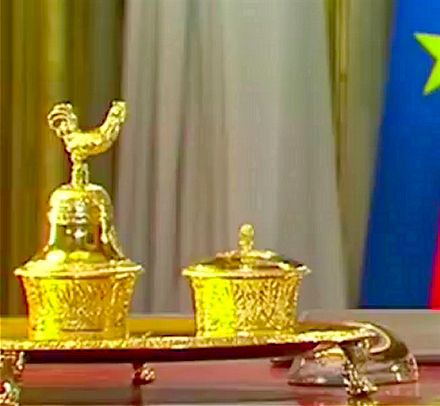
2 ° Increase in the activity premium
The activity bonus paid to some 2.6 million people, will increase by 30 euros in April 2019 and 20 euros in 2020. This "boost" for compensation between 0.5 and 1.2 smic.
3 ° Cancellation of the increase of the CSG for retirees receiving less than 2,000 euros per month
The increase in the generalized social contribution, contribution on all income financing Social Security ,, "suffered this year" (in 2018), will be canceled for retirees receiving less than 2 000 euros net per month instead of 1 280 euros.
The CSG had increased from 6.6% to 8.3% of pensions without compensation in contrast to assets and civil servants.
4 ° An end-of-year bonus requested from employers "who can"
The government will also "ask all employers who can pay an end-of-year bonus to their employees," which will be tax-free.
5 ° The tax exemption for overtime
Overtime will be "paid without taxes or charges from 2019", a measure taken by Nicolas Sarkozy and repealed by Francois Hollande. These are the hours worked beyond the legal duration of the 35 hours. They are often increased by 25%.
6 ° No recovery of the ISF
Emmanuel Macron does not return to the abolition of wealth tax (ISF) at the beginning of his five-year term replaced by the property tax estate (IFI).
7 ° The fight against tax evasion
The head of state reaffirmed that the leaders of large French companies will pay "their taxes in France".
These measures, evaluated between 10 and 13 billion euros, must be presented Wednesday at the National Assembly by Prime Minister Edouard Philippe.
|
|
|
|
|
|
|
|
| Britney Delsey for DayNewsWorld |
 |
YELLOW VESTS THE DESTRUCTION OF RADARS
STRONG INCREASE
FROM THE BEGINNING OF THE MOBILIZATION
|
| Automatic radars crystallize the anger of Yellow Vests since the beginning of their movement on November 17th.
Half of the automatic radars would be out of order in France whether they are ransacked, painted or covered with tarpaulins. The phenomenon had already begun last summer with the passage to 80 km / h refused by motorists and had been imposed by the Prime Minister despite severe warnings of elected officials.
Of the 3,275 automatic radars implanted along the roads of France one count has 1,500 radars concerned.
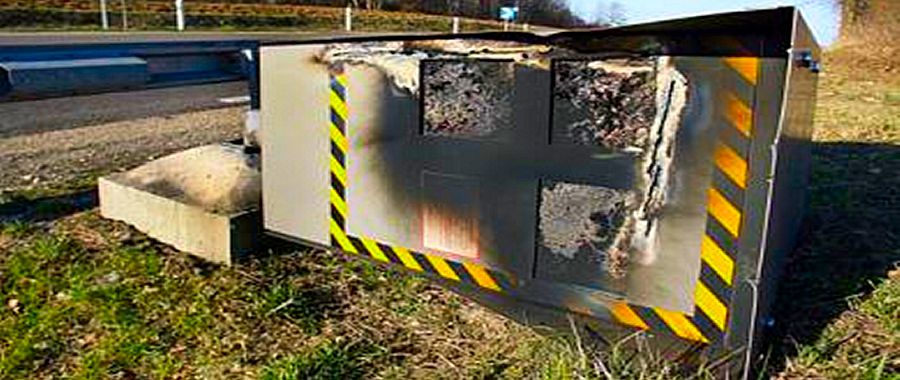 From the first week of mobilization 20% of the automatic devices - 600 cabins - no longer worked. In some rural departments, destruction affects almost all devices. From the first week of mobilization 20% of the automatic devices - 600 cabins - no longer worked. In some rural departments, destruction affects almost all devices.
250 cabins have been destroyed since the beginning of the movement. Just last night, there were still six destroyed in the Ain, Isère and Martinique. By way of comparison, in its last report, the Court of Auditors noted that in 2017, 40 radars had been completely destroyed over the whole year.
The road safety delegation, attached to the Ministry of the Interior, refuses to communicate on these figures for fear of "contagion" while agreeing that degradation has experienced a sharp increase since November 17.
The ministry, which emphasizes its concern about the possible consequences for road safety, is trying to repair the damaged cabins promptly.
Economically the fallout is heavy. The loss of revenue for tax services would amount to several million euros.
The replacement of radars will weigh down the bill. It is necessary to count for a conventional radar between 60.000 and 80.000 euros, for an autonomous radar, 75.000 euros, more than double for a radar section, its price of up to 200.000 euros
The perpetrators of automatic radar damage are liable to up to 7 years in prison and a fine of 100,000 euros. But it is difficult to apprehend them.
|
|
|
|
|
|
|
|
| Andrew Preston for DayNewsWorld |
 |
TOWARDS A NEW SATURDAY BLACK IN FRANCE
|
| while the Elysee said fear of protests "of great violence" this Saturday during "Act 4" Yellow Vests, 89,000 members of the police are mobilized, including 8,000 in the streets of the capital .
Since this morning, demonstrations have multiplied throughout France. The Interior Ministry, which had anticipated a level of violence "at least equal" on 1 December, particularly in Paris, sent 89,000 law enforcement personnel throughout France, including 8,000 in Paris, as well as twelve armored gendarmerie.
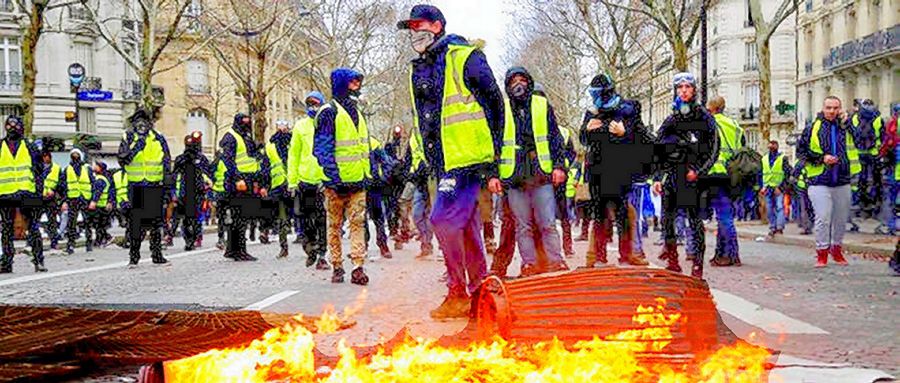 The events that took place around Place de l'Etoile on the 1st of November and in the western part of Paris, on 8th December, have created new gathering places like the east and south of the capital. In the Champs-Elysées, the situation remained calm all morning. Then the processions spread throughout the north-west of Paris, The events that took place around Place de l'Etoile on the 1st of November and in the western part of Paris, on 8th December, have created new gathering places like the east and south of the capital. In the Champs-Elysées, the situation remained calm all morning. Then the processions spread throughout the north-west of Paris,
The Secretary of State to the Minister of the Interior, Laurent Nuñez, announced at midday 31,000 demonstrators in France, and 1,000 arrests throughout the territory. At 4:45 pm, the Paris prefecture announced 673 arrests, including 551 police custody.Julien Coupat was arrested Saturday morning, on the sidelines of act 4 "yellow vests" in his car in the 19th arrondissement of Paris.
The former leader of the "Tarnac group" was arrested by the ISB, who had been following him for several weeks. He was taken into custody by the head of "participation in a group formed to commit violence or degrading".
In the car were a yellow vest, a mask and bombs of paintings. The forty-year-old is one of the 1,000 or so arrests that the police have made on this Saturday of protests throughout France. Secretary of State to the Minister of the Interior Laurent Nuñez announced that 29 leaders of the ultra-right, ultra-left and the fringe radicalized "yellow vests" were arrested on Friday night and this morning.
In Paris, the police prefecture reports 55 wounded people, including 3 among the police.
In Lyon, yellow vests joined the march for the climate, and some 7,000 people marched. Clashes erupted in Toulouse, Nantes, Bordeaux and Besançon. The situation seemed quieter in Lille and Marseille.
|
|
|
|
|
|
|
|
| Boby Dean for DayNewsWorld |
 |
YELLOW VESTS
INSURRECTION AT THE DOORS OF FRANCE
|
"The insurrection is at the gates of France and we do not want there to be deaths this weekend," explained the yellow vest Benjamin Cauchy.
Despite the suspension of several tax measures, the call for "Act IV" of the mobilization of "yellow vests", Saturday, December 8, is maintained on social networks so that the fear of a surge of violence and dead tears the executive.
 After the 4 dead and more than 800 injured recorded since the beginning of the movement on November 17, the executive anticipates a "very great violence" for this new day of mobilization. According to the Elysee, several thousand people are expected in Paris "to break and kill." After the 4 dead and more than 800 injured recorded since the beginning of the movement on November 17, the executive anticipates a "very great violence" for this new day of mobilization. According to the Elysee, several thousand people are expected in Paris "to break and kill."
The Elysee, however, refuses to receive yellow jackets  are free "who asked to see him Friday to try to defuse the social sling before Saturday. "Yellow jackets have already failed the Prime Minister," said the Elysee, which enjoins spokesmen for the movement to address the Prime Minister. are free "who asked to see him Friday to try to defuse the social sling before Saturday. "Yellow jackets have already failed the Prime Minister," said the Elysee, which enjoins spokesmen for the movement to address the Prime Minister.
"The door of Matignon remains open" he recalls. Jacqueline Mouraud and Benjamin Cauchy are part of the "yellow vests" who launched an appeal in the JDD to condemn the violence and propose a way out of crisis "constructive" to the government. They are aware of the risk of insurrection in which lies France.
Indeed, the tension only goes up.
Some demonstrations of high school students who joined the social protest movement escalated into scenes of violence with incidents such as clashes with the police and burning cars near the settlements.
A in Mantes-la-Jolie in the Yvelines, in a sensitive neighborhood, 151 high school students, adolescents or young adults were arrested for "participation in an armed crowd". These arrests took place after new incidents on Thursday near Saint-Exupery high school, where two cars were burned and violent clashes broke out with the police. 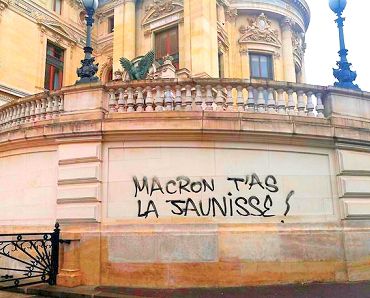
A video of this arrest turned on social networks and scandalized more than one policy: "When I saw these images myself, I was obviously shocked," responded Jean-Michel Blanquer. The Minister of National Education, however, called for "putting the images in their context" stating that "there were shocking images because we are in a climate of exceptional violence."
For the event scheduled Saturday in Paris Eric Drouet, a spokesman for the movement, influence Facebook, calls to "return to Paris" "near places of power, the Champs-Elysees, the Arc de Triomphe, Concorde". .. "Next Saturday, it's over. Next Saturday, this will be the final result.
Saturday, it is we who will have the stranglehold on all this, it is we who will decide what will happen, "he explains in a video. The driver calls to invest the Elysee. An investigation for "provocation to the commission of a crime or offense and organization of an illegal event" has also been opened by the Paris prosecutor.
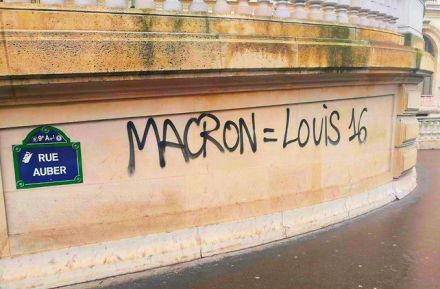 How to deal with a possible surge of violence this Saturday during the event? How to deal with a possible surge of violence this Saturday during the event?
Saturday, December 8, the security system is radically revised compared to Act III.
While 65,000 members of the security forces, including 5,000 in Paris, had been deployed on Saturday, December 1, Édouard Philippe said Thursday that more than 89,000 members of law enforcement would be mobilized this Saturday in France, including 8,000 in the capital. In fact 100% of the number of police personnel namely police relief, territorial brigades, the BAC or the security companies and intervention.
A "dozen armored vehicles" wheeled gendarmerie (VBRG) will also be used in Paris to clear the barricades and blocked lanes in particular.
These vehicles, which were used in 2005 during the riots in the suburbs, as well as this year in Notre-Dame-des-Landes, will be 4 × 4 armored vehicles of 13 tons that can carry 13 gendarmes equipped with a blade.
During his press conference Friday, Christophe Castaner however did not want to detail the device in the details for "security reasons".
The "yellow vests" would end up between "an ultra-rogue who dreams of revolution and an ultragauche who advocates insurrection," according to a source at the Ministry of the Interior.
And polls are worrying with 37% of French respondents who say "understand" the violence. Will the executive's call for calm, transpartisan and republican suffice to stem the emergence of an insurrectional movement?
|
|
|
|
|
|
|
|
| Garett Skyport for DayNewsWorld |
 |
THE YELLOW VESTS WILL THE GOVERNMENT BEGINNER STOP THE SOCIAL TENSIONS ?
|
To try to appease the social revolt and not relive new scenes of riots on Saturday, Prime Minister Edouard Philippe announced Tuesday the suspension of several fuel tax increases and the freezing of the increase in tariffs. gas and electricity during the winter.
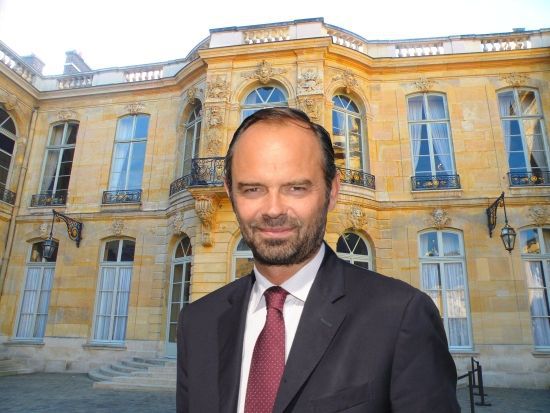
"The increases in three tax measures were to come into effect on January 1 ... I suspend them for six months.
They will not apply, "said Philippe. "No tax deserves to endanger the unity of the Nation. He also argued.
Also the carbon tax, the convergence of the taxation between gasoline and diesel as well as the alignment on the taxation of the individuals of the taxation of GNR (diesel of entrepreneurs) are they momentarily only suspended and not simply withdrawn.
"In this time we want to identify and implement just and effective support measures.
If we do not find them, we will draw the consequences, "added the Prime Minister.
No increase either of electricity and gas "during the consultation and therefore during the coming winter".
These measures taken late, the government has counted badly on a decay of the movement, will they be enough to calm the game?
The answer is no .
The few concessions are not enough anymore. The power is today grappling with a broader protest made of various claims, sometimes contradictory. (the reduction of all taxes, the increase of the Smic as pensions, the abolition of the Senate for example).
And it is not the "great concertation in the territories" from December 15 to March 1 announced Emmanuel Macron a week ago that will resume dialogue with the French.
Trust is definitely broken.
|
|
|
|
|
|
|
|
| Garett Skyport for DayNewsWorld |
 |
YELLOW VESTS IN FRANCE
HOW TO EXIT THE CRISIS FOR THE EXECUTIVE?
|
| After the violence in Paris during the third day of mobilization of "yellow vests", the government, obviously overwhelmed by a deep social anger that he had not anticipated, trying to regain control.
Barely arrived from the G20 President Emmanuel Macron went to the scene of the violence before congratulating the police in the presence of Prime Minister.
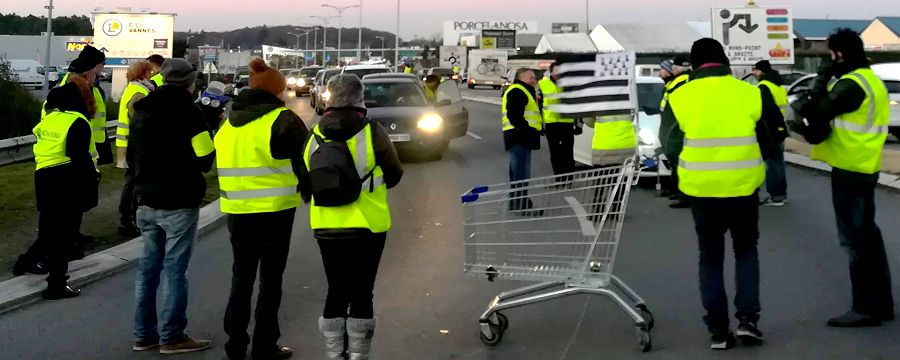 A crisis meeting was convened Sunday at midday at the Elysee Palace by Emmanuel Macron Matignon. The police have never known such an outburst of violence, he was asked by the head of state to the Minister of the Interior, Christophe Castaner, to lead "a reflection on the possible need for a adaptation of the law enforcement apparatus in the coming days ". Emmanuel Macron also reaffirmed his willingness to leave no act unpunished. A crisis meeting was convened Sunday at midday at the Elysee Palace by Emmanuel Macron Matignon. The police have never known such an outburst of violence, he was asked by the head of state to the Minister of the Interior, Christophe Castaner, to lead "a reflection on the possible need for a adaptation of the law enforcement apparatus in the coming days ". Emmanuel Macron also reaffirmed his willingness to leave no act unpunished.
In order not to turn a deaf ear, the head of state urged his prime minister Edouard Philippe to receive, on Monday, "the party leaders represented in Parliament and representatives of the demonstrators".
The head of government will again receive a delegation of yellow vests, because it has expressed its willingness to enter into a dialogue with the government.
A group meeting between LaREM MPs "exceptional" is also on the agenda on Tuesday morning at the National Assembly in the presence of Edouard Philippe.
The President of the Republic, who has not made any statement so far, is thus reconnecting with the "old world", that of the intermediary bodies to get out of the blockage.
Will this extended hand of the executive suffice to calm the spirits?
For the opposition as part of the yellow vests a strong gesture to the government is expected from the government, starting with a moratorium or a freeze on rising fuel taxes.
If part of the majority is convinced that backing away now would be the end of the reformist quinquennium, others believe that the executive has no choice but to give in. How far ? Among the disparate requests for yellow vests are also the increase of the Smic or the restoration of the ISF.
"The government is not entitled to a third black Saturday," warned the Senate Speaker, Gerard Larcher at a time when we deplore 3 dead and 263 wounded in France.
|
|
|
|
|
|
|
|
| Garett Skyport for DayNewsWorld |
 |
EMMANUEL MACRON CUTTING THE DIALOGUE
FROM WITH A FRANCE
|
| In a long speech the head of state addressed the "yellow vests" claiming to understand their anger. But does he think this is understanding when it is argued that previous governments did not have enough consideration for them, the yellow vests, to protect them by offering them the energy transition?
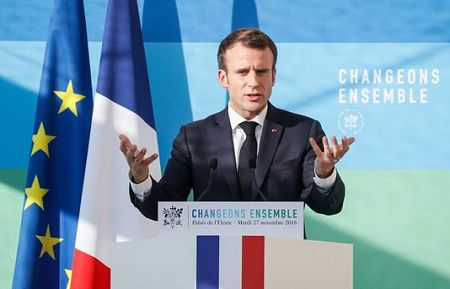 Certainly the head of state addressed them: "I do not confuse the breakers with citizens who want to get a message." But did he really understand the "social alarm" Certainly the head of state addressed them: "I do not confuse the breakers with citizens who want to get a message." But did he really understand the "social alarm"
do not change course on ecological transition, not giving up taxes. He merely presented his transformation program to "detoxify fossil fuels".
Also in these announcements, the head of state mixes the main lines of the EPP (the multi-year programming of energy) and the answers -rares- more short-term to the movement of the yellow vests. The president dwelt on the process of the electricity mix, reducing France's dependence on nuclear power.
He notably announced the closure of two nuclear reactors in addition to those of Fessenheim. France will develop solar, wind power and reduce energy consumption. He pleaded for a popular ecology and launched a large consultation at the local level with elected representatives, associations and "yellow vests".
But that yellow vests do not dream. Nothing for the ends of difficult months. Nothing to lower the energy bill of the French. In the face of the slingshot, the Elysee recreates a "new system" (which existed under Lionel Jospin) to regulate the carbon tax, which will allow the government, after Parliament's approval, to "erase" the taxation of fuel in the event of soaring oil prices.
If Emmanuel Macron hears the anger of the citizens, he does not seem to want to extinguish it, not wanting to give up anything. "We have to hear the protests of social alarm, but we must not do it by renouncing our responsibilities for today or tomorrow," he said. But "the situation of citizens who live in rural or peri-urban areas" will not be heard, it seems. Two representatives of the "yellow vests" are received this Tuesday evening at the Ministry of Ecology and meet the Minister of Ecological Transition François de Rugy.
And "yellow vests" escaping political parties as well as trade unions continue their struggle. Does the government count on the slowdown of the movement?
|
|
|
|
|
|
|
|
| Jenny Chase for DayNewsWorld |
 |
DELEGATION OF YELLOW VESTS AND SOCIAL PACT OF EMMANUEL MACRON
|
| Emmanuel Macron has not yet spoken directly to the "yellow vests", which led on Saturday their second big day of protest. However, the executive has been facing a spontaneous protest against rising fuel prices for the last ten days, which has gradually widened to a more comprehensive denunciation of taxes and has given rise to demonstrations and blocking operations. across France. A second, Saturday, gathered more than 106,000 people, including the Champs-Elysees.
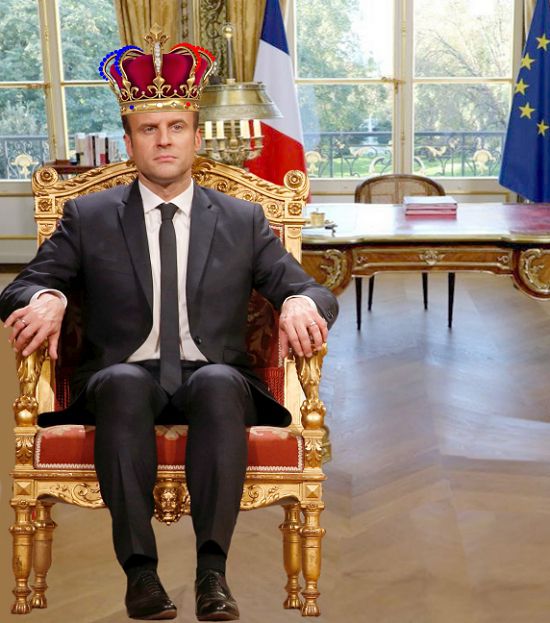 But the Elysee has already announced wanting to stay the course of ecological transition, but with a "social pact" support. These measures, detailed this Monday in the Council of Ministers, will be presented Tuesday by the Head of State. But the Elysee has already announced wanting to stay the course of ecological transition, but with a "social pact" support. These measures, detailed this Monday in the Council of Ministers, will be presented Tuesday by the Head of State.
Emmanuel Macron has condemned the violence whose images on the Champs-Elysees have been around the world, the head of state acknowledged Sunday in Brussels: "There is no project of society and it will not There is no political project - at national and European level - if we do not provide a clear answer to our middle classes and working classes. "
They were still more than 100,000 "yellow vests" to demonstrate Saturday against the rise in fuels and the decline in purchasing power.
The president, for his part, wants to renew the dialogue to "give a new direction in terms of the energy transition". And he "will give a new method to make this transition as fair as possible," said a spokeswoman for the Elysee. The executive thus plans to "build a social pact of the ecological transition" which would rest on two pillars namely the mobilization of intermediate bodies absent from the movement that directly the French "through a tour of France" to involve local actors .
Emmanuel Macron also plans to rely on the creation of a "High Council for Climate" he will officially install Tuesday, said the Elysee. One more denounce his detractors.
But the head of state will he really loosen the vice?
The accounting vice or the Bercy lock first.
In the government there are indeed those who, like François Bayrou and several shadow advisers, urge Emmanuel Macron to refocus his policy towards more social while Bercy is bent on the criteria of Brussels. Gérald Darmanin and Bruno Le Maire have in fact repeated that, certainly, it was necessary to hear the anger of the street while stressing that the coffers of the state were empty ...
And what about the outstretched hands of unions, associations, NGOs?
They have so far been kept at bay by the head of state, who preferred to place himself in direct line with his people. But it's a failure! Emmanuel Macron has therefore clearly suggested that the summit on the ecological transition, this Tuesday at the Elysee, would lead to a new mode of consultation ...
In the absence of an answer that will be wanted, Tuesday, at the same time "economic, social, but also cultural and of sense", according to the president of the republic, does not it prepare itself an umpteenth clogging which will not restrain social discontent?
That is without counting with the "delegation" of eight "official communicators" of the movement which was created to "engage a serious and necessary contact with the representatives of the State and its government", announces a statement published Monday . This delegation addresses "two main proposals" to the government: "downward revision of all taxes" and "creation of a citizens' assembly" to discuss the themes of the ecological transition, the "taking into account the voice of citizens" , the increase of the purchasing power or the precariousness, details this text.
Not sure that the supporters of Bercy always have the last word. Laborious classes, dangerous classes, it must be remembered.
|
|
|
|
|
|
|
|
| Alize Marion for DayNewsWorld |
 |
THE TIME OF TRUTH FOR EMMANUEL MACRON
FACING THE MAYORS OF FRANCE
|
| The 101st Mayors' Congress opened in an atmosphere of discontent and malaise in the absence of Emmanuel Macron, despite his promise made a year ago. Instead, the head of state sent a letter to the city council explaining his roadmap. What was badly perceived by all the mayors, seeing only a form of arrogance while local elected officials are more likely to make their scarf. Indeed, a mayor in two would not intend to run again in 2020, according to a recent Cevipof survey.
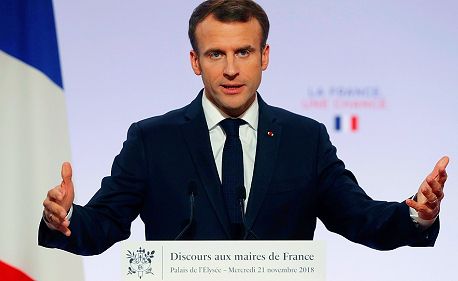 Rather than go to the congress of the Association of Mayors of France, organization led by Sarkozyist François Baroin, too politicized organization in the eyes of the Elysee, the President of the Republic must receive, this Wednesday at the Elysee, the Association of Mayors of France surrounded by the Prime Minister, Edouard Philippe and the Minister of Territorial Cohesion, Jacqueline Gourault. He also invited several hundred mayors to the Elysee, where he has to deliver a speech. Many of them will not go there. Rather than go to the congress of the Association of Mayors of France, organization led by Sarkozyist François Baroin, too politicized organization in the eyes of the Elysee, the President of the Republic must receive, this Wednesday at the Elysee, the Association of Mayors of France surrounded by the Prime Minister, Edouard Philippe and the Minister of Territorial Cohesion, Jacqueline Gourault. He also invited several hundred mayors to the Elysee, where he has to deliver a speech. Many of them will not go there.
The hour of truth between the executive and the Association of Mayors of France (AMF)?
The AMF's office - about 20 members including its president, François Baroin - will go to the Elysee to express his complaints to the President of the Republic, Emmanuel Macron. And they are multiple: from the integral compensation of the abolition of the tax of dwelling to the constitutional revision by passing in particular by the law NOTRe, the revival of the housing, the helped jobs, the contracting, the endowments ... Closing of the congress On November 22, the president of the AMF will put to the vote a resolution to set up a common platform of negotiations with the departments and regions to weigh against the state.
"We will work with the departments and regions on a common platform," warns Mr. Baroin, determined to give content to the alliance formed in late September, under the label United Territories, with the Assembly of departments of France (ADF) and Regions of France. "We want a working method and a timetable," adds the mayor (LR) of Troyes. This is a chance for the state, what we propose. It's up to him, but we need an answer on all these topics before the end of the first half of 2019, because after we enter the pre-municipal period. "
What will Emmanuel Macron answer to the many demands?
The executive will no doubt repeat this formula at the end of the presidential letter: "That is why I will always stand by you. Because to be at the side of the mayors of France is to be at the side of the French. Perhaps they will say more about the bill to overhaul local taxation planned for the first quarter of 2019 ...
But for the majority of mayors a reception at the Elysee, Wednesday, does not replace a visit to the congress of mayors, Porte de Versailles.
The elected officials on the ground, they know the population well and could have traced in exchanges with the room of the precious information. It does not govern alone.
Especially since the deputies en Marche as a transmission belt are powerless, the party Republic en Marche has little anchor on the ground.
|
|
|
|
|
|
|
|
| Jenny Chase for DayNewsWorld |
 |
COUNTRIES ACCOUNT EMMANUEL MACRON
AN INVESTIGATION OPEN ON THE LREM
|
| It is the national commission of the accounts of campaign which was alerted on the unknown origin and trouble of 144 000 € of donations paid to the LREM party of Emmanuel Macron which opened on Tuesday 20 November 2018 a preliminary investigation
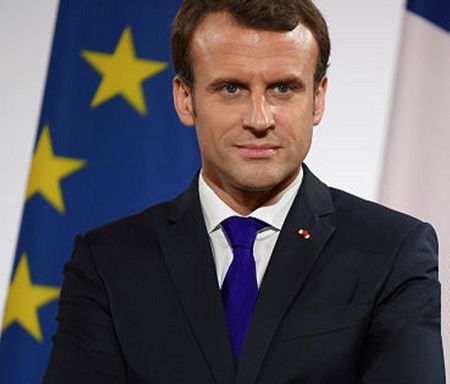 What does Emmanuel Macron risk if an offense is established? What does Emmanuel Macron risk if an offense is established?
Alerted by the national commission of campaign accounts and political financing (CNCCFP), the Paris prosecutor opened a preliminary investigation.
The amount of these donations paid in checks, bank transfers or electronic payments, whose origin remains unknown, amounts to 144,000 euros.
The justice was informed last November 12th of this anomaly, when the CNCCFP finished peeling the receipts of receipts transmitted by the association in charge of the financing of the party LREM and the presidential campaign.
Suspicions of fraud or illegal financing, these are the assumptions.
The Paris magistrates entrusted the files to the investigators of the Central Office of fight against corruption (OCLCIFF),
Initially, it will be a question of identifying the mysterious contributors and to make sure that none has paid more than 7500 €, indeed the maximum sum that a donor can offer to a political party.
Finally, it will be necessary to establish, if necessary, a violation of the legislation on the transparency of public life.
Already in September 2018, a complaint from Anticor had led to an investigation into the integrity of Emmanuel Macron's campaign accounts, which was closed for lack of proof!
This is not the first time that LREM campaign accounts are in the crosshairs of justice.
Faced with this investigation that starts Jean-Luc questions Mélenchon wonders?
"Will there also be house searches?"
"The file of members and donors will be confiscated too?"
"Or will it be openly double standards?"
Alas, if an offense is established, Emmanuel Macron does not risk anything, because, in French law, the President of the Republic is irresponsible for all acts that he has done in this capacity.
He also enjoys inviolability which prevents any administrative, civil or criminal proceedings against him for acts committed outside his presidential functions.
This inviolability ends one month after the end of his term.
This disposition inherited from the monarchy has been affirmed in all Constitutions since that of 1791.
Irresponsibility can, however, be challenged by the International Criminal Court in cases of genocide, crimes against humanity, the crime of aggression and the crime of war.
The President of the French Republic may finally be dismissed by parliamentarians meeting in the High Court "in case of breach of his duties manifestly incompatible with the exercise of his mandate".
But for now it seems obvious that for violations of the campaign accounts, Emmanuel Macron risk nothing, only a few lampists risk convictions and still ...........!!!
|
|
|
|
|
|
|
|
| Simon Freeman for DayNewsWorld |
 |
IN FRANCE NURSES IN THE STREET
|
| A new social front to manage for the government. This Tuesday, 16 nursing organizations sign a call to strike.
Feeling the big "forgotten" of the government, it is after yellow vests and white blouses that come down, Tuesday, November 20, in the street. A day of mobilization that dissociates itself from the movement of "yellow vests".
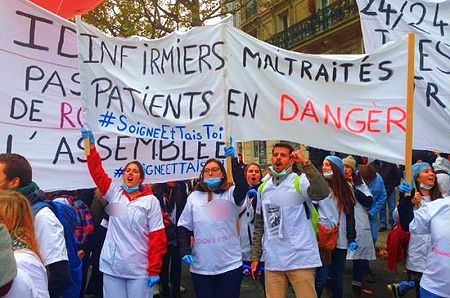 It is the disappointment born of the presentation of the health plan in September by the president Emmanuel Macron, a catalog of measures "decided around the only doctors" that left the anger. It is the disappointment born of the presentation of the health plan in September by the president Emmanuel Macron, a catalog of measures "decided around the only doctors" that left the anger.
Macron's medical assistants deemed irrelevant
In the viewfinder of the nurses actually the announcement of the creation of 4,000 positions of medical assistants. They will be trained in one year to support the liberal doctors by relieving them of simple medical tasks, such as blood pressure, and thus free them from medical time. For an annual cost estimated at nearly 200 million euros for Social Security. Why create a new profession instead of relying on the 660,000 existing nurses?
Moreover, the funding of medical assistant positions should have "been used to create posts in nursing homes", institutions particularly under pressure in this area. "It would have been more consistent to spend this money creating residential accommodation for dependent elderly people (Ehpad), a place where working conditions are execrable," say the sixteen organizations in a joint document.
The tensions also concern, in terms of status, the prerogatives provided for advanced practice nurses (IPA), that is to say extended skills. This new position was to open professional perspectives but in fact it will concern only a minority of professionals who will be kept "under the yoke of the medical profession", regrets the vice-president of the FNI, Daniel Guillerm, the outlines of the profession having have been cut off by doctors, worried about the questioning of the path of care.
An ingratitude which is also found in the lack of valorization of the acts of the liberal nurses. The ambulatory turn taken to reduce hospital deficits and the performance of certain acts at home, is, according to the unions, not assumed by the health insurance, which does not return to current rates.
In a country with an aging population and experiencing medical desertification in certain areas of France, the Macron Health Plan does not seem to meet the challenges ahead.
|
|
|
|
|
|
|
|
| Andrew Preston for DayNewsWorld |
 |
THE SILENCE OF EMMANUEL MACRON
FACING YELLOW VESTS
|
| The "yellow vests" continue their mobilization on Monday 19 November and protesters are now blocking several oil depots throughout France.
One thing is certain: the prime minister, invited the "20 hours" of France 2 Sunday night, in the aftermath of the movement against rising fuel taxes has not responded to the demands of the protesters.
"We heard anger but we also heard suffering, the lack of prospects, the idea that the authorities for a long time did not respond to the concerns and the feeling of downgrading, abandonment felt by a part of the population, "acknowledged Philippe about Saturday's mobilization.
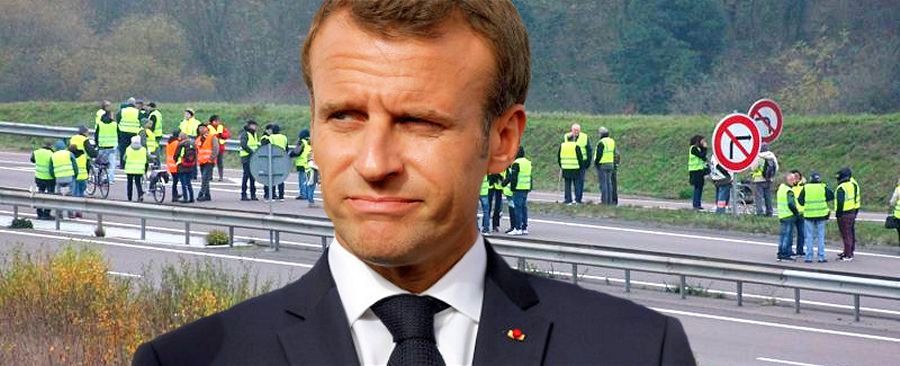 He returned to the duty of security that was to be guaranteed for citizens deploring scenes of "very violent" and a heavy balance sheet including a death. "Security has been a constant of our attitude," said the head of government. He returned to the duty of security that was to be guaranteed for citizens deploring scenes of "very violent" and a heavy balance sheet including a death. "Security has been a constant of our attitude," said the head of government.
But it does not seem to take into consideration the demands of the protesters, reaffirming the commitments made by Emmanuel Macron to lower taxes and pay better work, even more taxing pollution ...
For his part Emmanuel Macron s'immure in the silence pursuing his travels abroad. It is true that its maintenance on the aircraft carrier did not have the desired effects. What strategy then to adopt on the side of the executive to defuse this movement of "yellow vests" that continues on Monday?
Questioned during his visit to Belgium by a journalist on the movement of yellow vests, Emmanuel Macron said that he "would not answer" this question and that it was not the place. "I will respond in due course but this is not the place today," continued the President of the Republic. And yet the Head of State had a special predilection to launch the French a few vexations well felt from foreign stands.
An Elyos silence of impotence in the face of rising anger that could be translated into European ballot boxes.
The "yellow vests" prepare the sequel, an event entitled "Act 2 All France in Paris".
|
|
|
|
|
|
|
|
| Britney Delsey for DayNewsWorld |
 |
WHAT FUTURE FOR YELLOW VEST ?
|
| Elected from right and left are the government to hear the anger of the French while this Sunday the mobilization of yellow vests continue in the regions.
The ongoing mobilization
Indeed demonstrators having even, for some, decided to spend the night there set up snail operations as on the A1 in the Pas-de-Calais, the Setques toll, already occupied Saturday, is still a place of demonstration this Sunday morning with a "toll free" operation.
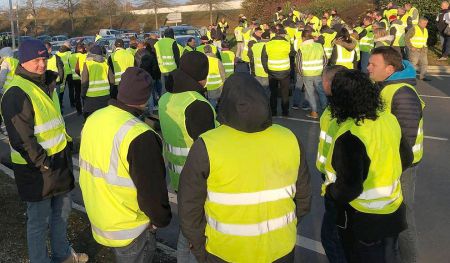 In the south of France, several dams have reformed just like in Alsace. The blocks continue so this Sunday. According to the Ministry of the Interior, 150 actions are currently carried out in the territory. In the south of France, several dams have reformed just like in Alsace. The blocks continue so this Sunday. According to the Ministry of the Interior, 150 actions are currently carried out in the territory.
Vinci reports about fifty meeting points on its motorway network, including the A10, A62, A9 or A7 and observes points of tension.
But what future for this social movement?
In the aftermath of the national "yellow vests" movement, which mobilized at least 400,000 people in more than 2,000 assembly points nationwide, there is the question of how long it will last.
If this day of mobilization was an opportunity for the French to express their anger over the rise in taxes as the government with the slogan "Macron resignation", if the policies of the opposition parties have pointed power in place, Gerald Darmanin, Minister of Action and Public Accounts, in the context of the "Forum" of Radio J broadcast Sunday has certainly said that "the government heard this event, which is important, who wanted to show that there was a cheap tax on the French.
But he completely cleared the government that can not be accountable for past increases, a "legacy" that Emmanuel Macron must "manage".
Government maintains its course
"The truth," the minister argued, "is that we are in the position where we are the first to put forward the fact that we are lowering taxes. For its part, the Minister of Energy Transition, in the aftermath of this popular action, announced not to give up the increase in fuels for the sake of ecology.
"In terms of ecological taxation, we will continue the planned trajectory. Do not do it would be unconscious, "said the Minister of ecological transition and solidarity, François de Rugy, in an interview this Sunday in Paris. The image of the executive takes a hit. According to a poll published by the Journal du Dimanche,.
It seems that the government does not want to back down while the French who do not perceive any tax reduction, do not hear it as well.
Other upcoming events?
Faced with this attitude of denial on the part of the government, the popularity of Emmanuel Macron drops again who loses 4 points in November, reaching his lowest score at 25% of popularity, and Edouard Philippe drops by 7 points to 34%.
Without a leader and without supervision by political and trade union organizations, this self-organized movement is in fact unpredictable. Although the sequence of events is not yet written, however, it appears with certainty that some "yellow vests" want to continue the movement.
Thus Laetitia Dewalle, figure of the movement of yellow vests in the Val d'Oise: "Until the state takes into account our demands," she hammered. She hopes the truckers or paramedics will take over in the week, and intends to mobilize again next weekend.
This social fronde of the French sounds like a serious warning to the government.
|
|
|
|
|
|
|
|
| Jaimie Potts for DayNewsWorld |
 |
YELLOW VESTS AN INDIED SOCIAL MOVEMENT
585 000 PROTESTERS IN FRANCE
|
"Our level of anxiety is maximum," said Christophe Castaner.
|
|
|
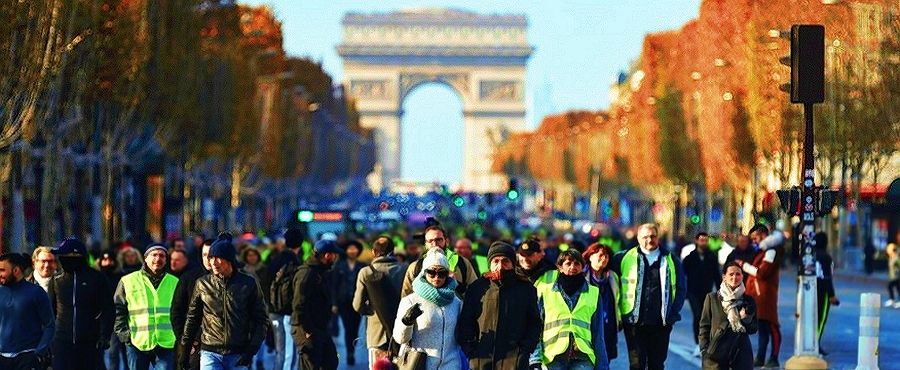 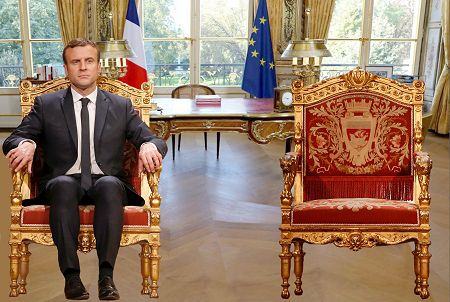
The day of mobilization of "yellow vests" began with a drama, Saturday, November 17.
A protester died in Pont-de-Beauvoisin, Savoie, at the level of an undeclared dam, announced the Minister of the Interior, Christophe Castan er. 
A motorist driving his daughter to the doctor hit a woman 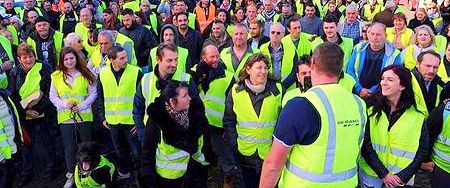 e. e.
Panic when the protesters started banging on her car, she stepped on them, said the interior minister.
In shock, the driver was taken into custody.
47 people were injured, three of them seriously. 24 people were arrested for rebellion or because they were trying to force the protesters' barrages, 17 of which were held in custody.
"Our level of anxiety is maximum," said Christophe Castaner urging the s protesters to "take all the provisions of prevention and security . "
In the middle of the day, around 2,000 gatherings were organized throughout France, with
Some 585,000 protesters also communicated Mr. Castaner with several blocked access points.
The forces of authority used tear gas.
A new, unprecedented social phenomenon that wants to be peaceful.
|
|
|
|
|
|
| Britney Delsey for DayNewsWorld |
 |
YELLOW VESTS AGAINST GOVERNMENT AUTISM ?
THE SLINGSHOT RUMBLES
|
|
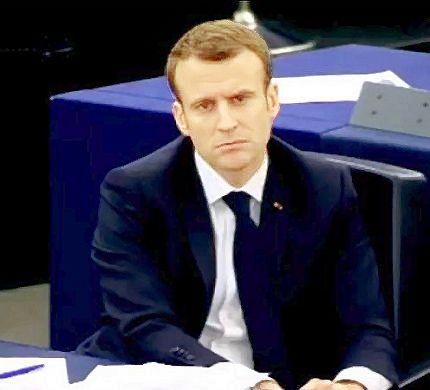
Hundreds of collectives have called for a road blocking day on Saturday to protest rising fuel prices.
Calls for blocking Saturday, November 17 multiply for several weeks on social networks, including Facebook.
This diffuse, apolitical movement, which aggregates many discontents, intends to paralyze the country to make itself heard by the government.
And the government is expressing concern. Monday Muriel Pénicaud had expressed his fears for "the safety of people" during the mobilizations, recalling that the "yellow vests" were not a "structured" organization .
"When there are strikes and demonstrations, there are responsible people who make it possible for those who are demonstrating to be safe," the minister told Public Sénat.
"There, we are not sure, it is still necessary that people are protected and we do not know what will happen."
Tuesday the Minister of the Interior, Christophe Castaner, shares the same concern about the upcoming movement . "What is difficult is that we do not have a trade union organization that is used to organizing a demonstration.

For example, a demonstration is declared in the prefecture. There, very few declared it. I call those who listen to us to declare it. I call those who listen to us to declare the place of the demonstration. The government intends to be firm. Christophe Castaner has warned that the police will intervene to lift any "total blockage".
"I ask that there be no total blockage. (...) Wherever there will be a blockage, and therefore a risk for safety interventions and also free movement, we will intervene " , he warned, while ensuring that no event will be prohibited " if it does not threaten public order and if it does not hinder freedom of movement "
While the mobilization has received support from oppositions, including the National Assembly, Debout France, insubordinate France or the PS, its magnitude remains difficult to measure today.
Movement with unknown contours without leader, without union or political leadership, the call of "yellow vests" also worries the Elysée. "I'm always suspicious of these movements where everything is mixed , " Emmanuel Macron said Friday, November 9 during his memorial roaming.
In an interview recorded Monday in Verdun and broadcast Tuesday, November 6, the president warned against a form of "demagoguery . "
"I'm always suspicious of these big calls for mobilization to block everything, because usually we find a little bit of everything ," he said, scratching the "people" once again.
"Things that have nothing to do together and people who do not have many plans for the country, except to put it to a standstill," he added.
Yet during his pilgrimage in eastern and northern France Emmanuel Macron rubbed himself against the anger of the French. He has been criticized for the purchasing power, the rise in taxes or the decline in pensions. The French have not ceased to express their "ras-le-bol" general.
For a month now, more and more people are putting their safety vests behind their windshields to signal their dissatisfaction.
This demonstration of the "yellow vests" planned Saturday to fight against the increase of the fuel tariffs, points in fact the failure of the intermediate bodies which, in our representative democracy, are supposed to serve as link between the citizens and the power. Much more than a simple tension related to the mere decline in purchasing power, there is the feeling that the transmission belts of political parties, unions and municipalities no longer work.
Public opinion is no longer channeled by structures capable of responding to this mounting anger. The latter does not result only from the French but a series of poorly accepted measures: speed limit to 80 km / h, multiplication of taxes, controls, in a word the tax racket of the middle classes but also classes popular today that pushes the movement of yellow vests
Yet the government seems autistic. Where the Minister of the Interior only wants to see it as "a form of political demonstration" and "the recovery of the National Gathering", rather scolds a deep anger that can explode at any moment. . And it is not the barely veiled threats of a Castener, Minister of Interior fresh three weeks, which will repel the inclinations of the French.
|
|
| |
|
|
|
|
|
| Andrew Preston for DayNewsWorld |
 |
STRONG INCREASE IN ANTISEMITIC ACTS
IN FRANCE
|
|
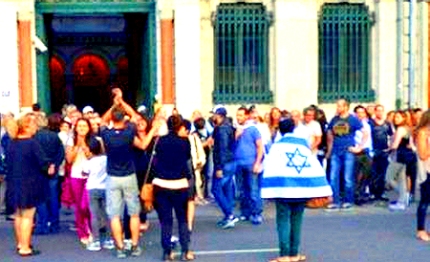
French Prime Minister Edouard Philippe discusses the "relentless" figures of anti-Semitic acts over the last nine months in a forum published on Facebook on Friday.
After two years of decline, anti-Semitic acts in France are up sharply (+ 69%) in the first nine months of 2018!
"Every aggression perpetrated against one of our fellow citizens because he is Jewish sounds like a new breakage of crystal," the head of the government continues in this rostrum published exactly eighty years after the fatal Crystal Night against Jews in Germany, November 9, 1938.
These figures are all the more worrying because they "are trend-setting, homogenous over nine months," says Frédéric Potier, the inter-ministerial delegate to the fight against racism, anti-Semitism and anti-LGBT hatred.
They include about two-thirds of threats and one-third of action without counting anti-Semitic content on the Internet. This increase in antisemitic acts also affects other countries such as the United States with the Pittsburgh bombing in late October or Germany.
Francis Kalifat, the president of the Representative Council of Jewish Institutions in France, showed no surprise at this increase not hesitating to speak of "cancer that gangrene our society. "
To effectively curb this phenomenon, it is to strengthen the fight against cyberhaine.
The government is preparing for 2019 an amendment to the law to strengthen the fight against the cyberhaine, putting pressure on operators Net.Furthermore a national team will be mobilized "permanently" to the Ministry of Education to intervene in schools facing antisemitism.
"A network of investigators and magistrates specifically trained in the fight against hate" will also be tested before being extended to the national level.
This fight against anti-Semitism must not let anything pass.
|
|
|
|
|
|
|
|
| Alize Marion for DayNewsWorld |
 |
VIOLENT ACTION PROJECT
AGAINST PRESIDENT MACRON
|
|
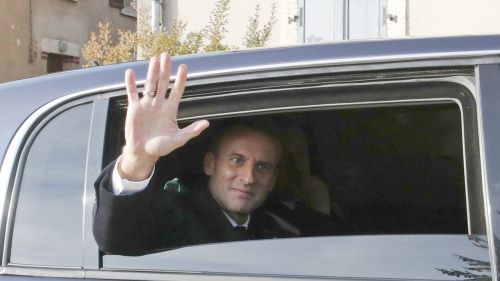
Emmanuel Macron was on Tuesday in Verdun, northeastern France, as part of ceremonies marking the centenary of the end of the First World War.
On Monday, during the installation of the new Director of the DGSI, Nicolas Lerner, the Minister of the Interior Christophe Castaner said he was "attentive" to the threats coming in particular from "extremist movements of right and left, very active on our territory
On Tuesday, six people who apparently planned an attack on French President Emmanuel Macron were arrested and now face preliminary terrorism charges.
"This investigation is aimed at a project, imprecise and ill-defined at this stage, violent action" against the President of the Republic, said an investigator.
The suspects were reportedly arrested in the Alps, in Brittany and near the border with Belgium. Their intention to attack Mr. Macron.
No further details are available regarding the six suspects. It is also not known whether they worked together or separately.
Investigations in progress must establish the reality and exact nature of this threat
Many world leaders are expected in France at the end of the week for the 100th anniversary of the signing of the armistice of 11 November.
|
|
|
|
|
|
|
|
| Boby Dean for DayNewsWorld |
 |
THE FABLE OF EMMANUEL MACRON
ON FUELS IN FRANCE
|
| The discontent continues to grow in recent weeks with petitions gathering hundreds of thousands of signatures and a call to block the roads on November 17th. Movement supported by some elected officials, including the National Rally and Republicans.
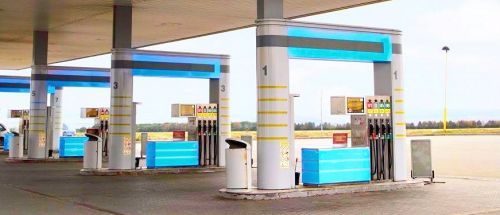 Asked about this slur anti-tax Emmanuel Macron certainly said "understand" this "anger" in an interview recorded Monday in Verdun and broadcast Tuesday morning on Europe 1 while putting in. Asked about this slur anti-tax Emmanuel Macron certainly said "understand" this "anger" in an interview recorded Monday in Verdun and broadcast Tuesday morning on Europe 1 while putting in.
on guard Tuesday against a form of "demagoguery". "I'm always suspicious of these big calls for mobilization to block everything, because we usually find a little bit of everything ," he said, scratching the "people" once again. "Things who have nothing to do together and people who do not have a lot of plans for the country, other than to stop it, " he added.
The fact remains that the president is aware of the citizens' ill-being and tries to provide answers from DIY projects such as the redesign of the energy check or the tax exemption of transport aids, promising to "improve" the aid for the most vulnerable households. modest. He mentions the daily lives of those who have to do "30 or 40 kilometers every day to go to work".
Created to replace the social tariffs for electricity and gas, the energy check will be increased in 2019 to 200 euros per year on average, against 150 euros this year. It is paid to about 3.7 million households in precarious situation .
The extension of the tax exemption of the transport aid set up in the Hauts-de-France to the whole of France could be put in place all over France. Not sure that this announcement of tax transfer does not please the regions!
As for the rise in fuels, it is justified.The President defended the increase in taxes on diesel "to reduce the gap with the unleaded, because it is no longer justified" . The government is going in the right direction. You have to tax work less, which is the case: you have seen your contributions that have fallen, and you will continue to see this movement, and we must tax more what pollutes, " said the head of state who did not fail to emphasize the dependence of fuel prices on the global geopolitical situation. "When it goes up, more than three quarters of the explanation, it's not taxes, it's the rest of the world. And we think about the situation with Iran.
Wanting to clarify things in this interview to Europe 1 on the sidelines of his "memorial roaming" to celebrate the Great War, Emmanuel Macron is not the most worried preferring to denounce "this type of movement, because aggregate all forms demagoguery, all things that have nothing to do. There are people who do not have many plans except to put the country to a standstill, "he denounces.
The increase in fuel taxes will continue as planned, the government to work hard to defuse the grumbling of citizens ... must we understand!
|
|
|
|
|
|
|
|
| Jenny Chase for DayNewsWorld |
 |
VICTORY OF NO TO INDEPENDENCE
NEW CALEDONIA
|
| About 175,000 voters in this French archipelago, colonized in 1853 and with large reserves of nickel, were asked to say whether they wanted "that New Caledonia attains full sovereignty and becomes independent". The "no" to independence in the referendum in New Caledonia was 56.4%. The polls predicted a much sharper "no" victory, over 60% of the vote.
The inhabitants were waiting for this referendum since the Nouméa agreements, some of them voting for the first time.
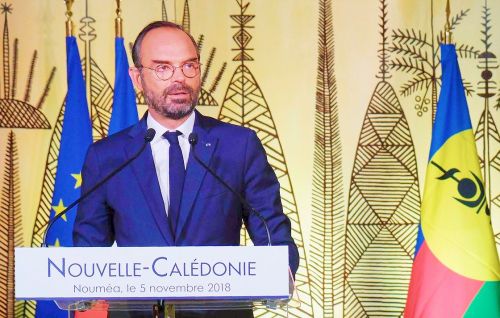 After counting all the votes of the referendum on the independence of this territory, held Sunday, November 4, the "no" has won 56.4% of the vote, according to the High Commission of the Republic in New Caledonia with a high participation rate of 80.63%. After counting all the votes of the referendum on the independence of this territory, held Sunday, November 4, the "no" has won 56.4% of the vote, according to the High Commission of the Republic in New Caledonia with a high participation rate of 80.63%.
Emmanuel Macron expressed Sunday his "immense pride that we have spent this historic step together" after New Caledonia has chosen by referendum to stay in the French fold.
The result of this election nonetheless highlights the deep political and sociological divides that are fracturing Caledonian society. In the southern province concentrating most of the population and wealth, with very marked inequalities, the non collects 73.7%. In Noumea itself, the "capital" , it reaches 80.5%.
On the other hand, yes is very much in the northern province with 75.8% and in the Loyalty Islands with 82.2%.
The unitary campaign led by the two independentist components represented in the Congress (FLNKS-Union calédonienne and National Union for Independence) mobilized part of their electorate, which until then had tended not to vote.
Especially among young people, who wanted on the occasion of this election to express a strong sense of identity and a pride of their community belonging. Still on the separatist side, let us note the failure of the call to take part in the vote launched by the Labor Party of Louis Kotra Uregeï and supported by the Union of Kanak and Exploited Workers Union (USTKE).
The polls predicted for several weeks a very wide gap, the score of non-independentists being evaluated in a range of 60% to 70%. According to the final results published by the Office of the High Commissioner, the "no" capped at 56.40%, the "yes" reaching an unexpected 43.6%. Another balance of power that is in line with previous elections, which averaged similar results across the four provincial elections held from 1999 to 2014. With the exception of the next consultation, the three provincial assemblies will be appointed in May 2019.
The dynamics of the separatists are therefore clear and their score much better than expected. Although the Kanaks are a minority in New Caledonia, where the statistics on ethnic origin are legal, and that this movement is increasing (44.83% of the population in 1989 and 39.05% in 2014), their score is numerically superior.
The economic problems of New Caledonia, whose "counter economy" , colonial survival, is in the hands of half a dozen oligarchic families must be settled as soon as possible ...
|
|
|
|
|
|
|
|
| Kelly Donaldson for DayNewsWorld |
 |
EMMANUELLE WARGON AN EX-LOBBIYSTE
FROM DANONE TO THE ECOLOGICAL TRANSITION
|
| The Mélenchon case , which completely overshadowed the recent cabinet reshuffle, has diverted our attention somewhat from it even though it should have given rise to a more detailed study of the pedigree of some ministers.
There is indeed a lot to say !
That is why we wanted to fill this gap and to study the case of Emmanuelle Wargon, a 47 year old enarque who has just arrived with arms and luggage to replace Sébastien Le Cornu as Secretary of State for the Ecological and Solidarity Transition.
But who is Emmanuelle Wargon, knowing that his appointment has just caused a public outcry not reassuring?
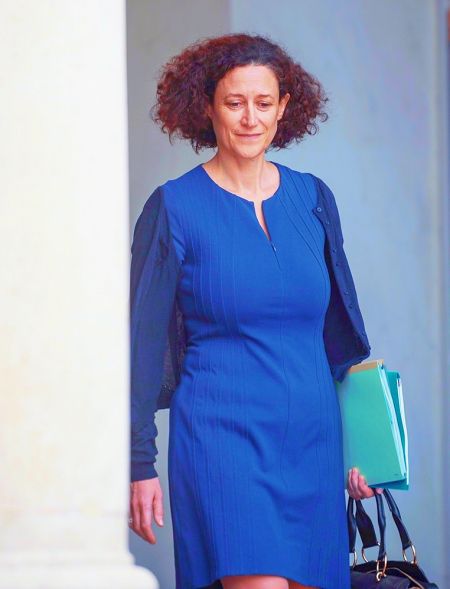 Emmanuelle Wargon , formerly of Sciences Po and HEC, is the only daughter of Lionel Stoleru, a Romanian polytechnician, who died on November 30, 2016 in Paris. Lionel Stoleru was a politician, minister of Valery Giscard d'Estaing (who wanted to send half a million supernumerary immigrants back home, a measure that Simone Veil opposed and led Lionel Stoleru to write a book at disruptive title: Immigration, a chance for France) and François Mitterrand. Lionel Stoleru was the father of the RMI, an idea he brought back from the USA to have it accepted by Michel Rocard. Emmanuelle Wargon , formerly of Sciences Po and HEC, is the only daughter of Lionel Stoleru, a Romanian polytechnician, who died on November 30, 2016 in Paris. Lionel Stoleru was a politician, minister of Valery Giscard d'Estaing (who wanted to send half a million supernumerary immigrants back home, a measure that Simone Veil opposed and led Lionel Stoleru to write a book at disruptive title: Immigration, a chance for France) and François Mitterrand. Lionel Stoleru was the father of the RMI, an idea he brought back from the USA to have it accepted by Michel Rocard.
Emmanuelle Wargon who made the ENA was the comrade of a certain Edouard Philippe (Promotion Marc Bloch) Prime Minister Emmanuel Macron since June 2017. This accuracy is important as will be discussed later.
Emmanuelle Wargon was unknown to the general public only a few weeks ago, just before her appointment as Secretary of State for the Ecological and Solidarity Transition, and just before, too, that Nicolas Hulot resigned in the tumult that we knew because he wanted to escape the crumbling macronie. It replaced in this function Sebastien Le Cornu, who was called, with a view to the reconquest of the territories, with Jacqueline Gourault, became Minister in the Government Philippe 2 to be Minister of Cohesion of the Territories and relations with the Local Authorities (precise mission: calinotherapy of local elected officials!). Recall that Sébastien Le Cornu, reserve policeman was the commander of Alexandre Benalla, the man at the center of the state scandal this summer.
Since October 16, 2018, the appointment of Emmanuelle Wargon has not ceased to be controversial. And this controversy originated in his academic and professional curriculum.
After having been a senior civil servant (referendary adviser to the Court of Auditors) she went through the Ministry of Health, as technical advisor to the Minister Delegate for Health (Jospin government), Bernard Kouchner (who since October 16 does not dry up in praise of the Philip 2) government to become then Martin Hirsch's Director of Cabinet.
In 2015, Emmanuelle Wargon made a professional turn 180 ° from public action to the private economy. She becomes indeed that year, Director of Communication at Danone, that is to say, lobbyist. His appointment as a Minister is a perfect illustration of retro-ramouflage or when a senior official passed to private returns to perform important functions in the heart of the state!
And that's where it hurts !
Because in fact in this post, she has not only promoted the CEO of Danone, Franck Riboud. It also holds, for example, the microphone at the 11 th Forum de Convergence, an international organization advocating "zero exclusion, zero carbon, zero poverty" . The intention is laudable! But we are disappointed when we learn that Jean Marc Borello, the good old king of the "social" network is at the head of Convergence, while waiting "for the prediction of the Mage Attali on the advent of a peaceful world arrives with Jerusalem for Capital ". But Jean Marc Borello (who was a professor at Sciences Po Emmanuel Macron) has been, and still is, a powerful supporter of the Head of State.
We swim in full euphoria globalism ...!
For all that, it did not escape us, with such an appointment, that the campaign for the European elections started on October 16, 2018;
Everything is said in these few words!
Remains the political means to obtain for the Macron clan to achieve its goals!
And, for the second time, we argue that's where the rub is still!
We must indeed recall the statements of Nicolas Hulot, affirming during his spectacular and unexpected resignation of the government Philippe 1 that the lobbies were at the doors of power. In fact, the appointment of Emmanuelle Wargon has just revealed that the lobbies were no longer at the doors of power but inside it.
The former minister of ecological transition could indeed not say as well!
Groupe Danone is one of the biggest polluters in the world in terms of plastics. Last week, Break Free From Plastics, a coalition of 1,300 environmental organizations from around the world, revealed that of the 180,000 tonnes of plastic waste collected between June and September 2018 in the environment of 42 countries, those produced by Danone were in fourth position. after those of Coca Cola, Pepsi and Nestle. According to the WWF-NGO, Danone is one of the 25 companies that deplete ecosystems the most.
In fact, in the field of lobbying, Emmanuelle Wargon has joined other ministers such as Brune Poirson, former executive of Veolia, a company that received in 2013, the award (anti) Pinocchio friends of the Earth, in the category "One for all, and all for me", as well as Murielle Penicaud, who would have won 1 million euros on the back of 900 Danone licensees, and who is on his side already pinned following the revelations on insider trading which she would have been guilty of organizing Emmanuel Macron's trip to Las Vegas.
Of course the new Minister, Emmanuelle Wargon, defended herself. With her hand on her heart, she recently declared that her work as a lobbyist had always been done in the greatest transparency and that she would deport herself in case of necessity?
Except that the worm is already in the fruit because of the suspicion that concerns it.
This being the case, it is questioned that Emmanuelle Wargon accepted her appointment so easily, whereas in the past she had been a rapporteur before the Ethics Commission. The plasticity of his personality, as the alleged elasticity of his ethics are surprising because of their disturbing nature?
Because it makes sense perfectly know the definition of the conflict of interest?
All this could be a theoretical controversy, if we had not seen and heard Emmanuelle Wargon defend in July 2018 (that is to say, very recently) palm oil, which public knowledge has caused the deforestation of a large area like New Zealand in Indonesia, transforming the tropical forest into a "green desert", and causing the disappearance of rare species such as orangutan, or pygmy elephants but also, and it is more serious, the expulsion of Indonesian peasants and their impoverishment. A subject yet suitable for Convergence ... What have he thought?
In her defense the Minister said that palm oil was used by Danone for the composition of infant milk (to bring breast milk), which should be added palmic acid, a hydrogen saturated fatty acid that would not present no risk of toxicity for babies but which would be the cause of ... obesity.
Faced with this situation, Emmanuelle Wargon, who is not an expert on environmental issues, defended herself again, declaring "that today her only commitment is to serve the general interest and to put herself at the service of ecological transition ". For the moment we only ask to believe it!
It was understood, however, that she was going to be a good little soldier for Emmanuel Macron, a president who has just received the United Nations "Earth Champion" award.
It remains to be seen whether this president will not be too "pale green" in the eyes of experts and NGOs that defend the environment when France fails to achieve its climate objectives ?
|
|
|
|
|
|
|
|
| Clara Mitchell for DayNewsWorld |
 |
FRANCE NO WAVE OR OMERTA FACE
VIOLENCE AT SCHOOL
|
| Responsibility of families, specialized structures, use of disciplinary councils, coordination with the Interior ... this is the little music of the Minister of Education that promises several measures to stem violence in schools.
"It's a phenomenon that is growing, I've done some studies for ten years that show a very significant growth of aggression vis-à-vis the staff of the National Education" , says on our branch Georges Fotinos, former Inspector General of National Education (IGEN).
"This is a phenomenon that has rarely been taken into account by the administration and the minister," he laments, assuring however that "we are breaking a taboo that is the physical and moral respect of the teacher ".
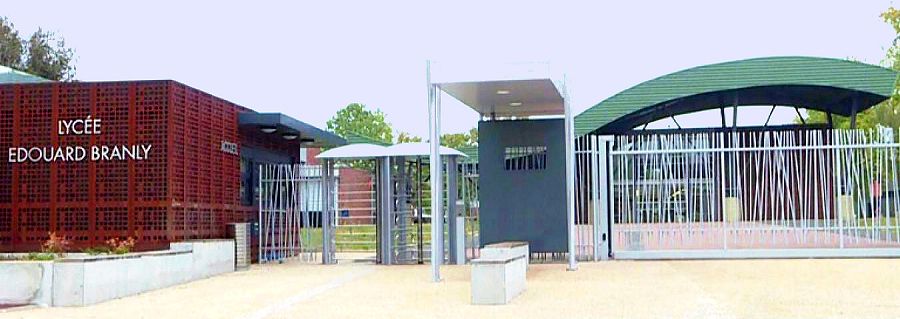 The word is released in the teachers. Hundreds of teachers denounce on Twitter, since Sunday, October 21, the lack of reactions of the National Education face the violence that they undergo. The word is released in the teachers. Hundreds of teachers denounce on Twitter, since Sunday, October 21, the lack of reactions of the National Education face the violence that they undergo.
So since this case, teachers are coming out of silence on Twitter with the hashtag #pasdevague.
Jean-Michel Blanquer promises a "battery of answers" after the aggression of a teacher Thursday, October 18 at the high school Edouard-Branly of Créteil, in Val-de-Marne. A 15-year-old student pointed at his teacher with a dummy weapon so that she would note it. He was indicted on Sunday for "aggravated violence . "
The Minister of Education promises Monday a coordination with the Ministry of the Interior, which he will meet the new minister this week in order to "set up a strategic committee . " The stated goal is to coordinate security inside and outside schools. But is not that the display? Because this violence has been known for many years and was voluntarily put under the carpet.
It takes more than the reaction on the part of the government, it takes reaction!
"We will restore order and authority in all institutions that are in a degraded situation , " promises Jean-Michel Blanquer, which encourages the management of institutions to hold disciplinary councils "as soon as necessary" : it will be the case for the young incriminated to Créteil, as soon as the return of the holidays of All Saints' Day.
"Empower" the families of the incriminated miners too! Family allowances could be withdrawn when the family no longer plays its role, as proposed by MP Eric Ciotti LR.
Following the broadcast of the video filming the incident that took place in Creteil, right and far right policies called for a "firm government response " on Monday. The video is "scandalous and shocking but it is the result (...) of years of laxity that finally leads to lost generations and a form of fatality," said Rachida Dati, MEP Republicans (LR), on Public Senate. LR MP Eric Ciotti proposed the removal of "family allowances to parents of disruptive students".
On the far right, National Rally President Marine Le Pen said teachers have been "silenced for too long"
."Congratulations to those who break the omerta," she wrote on Twitter, referring to #pasdevague.
|
|
|
|
|
|
|
|
| Britney Delsey for DayNewsWorld |
 |
REMANDING IN FRANCE OF THE GOVERNMENT
OR THE ARRIVAL OF SECONDS KNIVES
|
| Expected for two weeks, the government reshuffle was announced on Tuesday morning.
Among notable movements, Christophe Castaner is promoted to the Interior, Didier Guillaume arrives at Agriculture and Marc Fesneau will deal with Relations with Parliament.
After two weeks of floating, the government reshuffle was announced Tuesday morning.
This movement of musical chairs was to be known Monday, but the deadly floods of the Aude forced the executive to shift by one day the appointment of new members of the government, now composed of 35 members, against 31 previously.
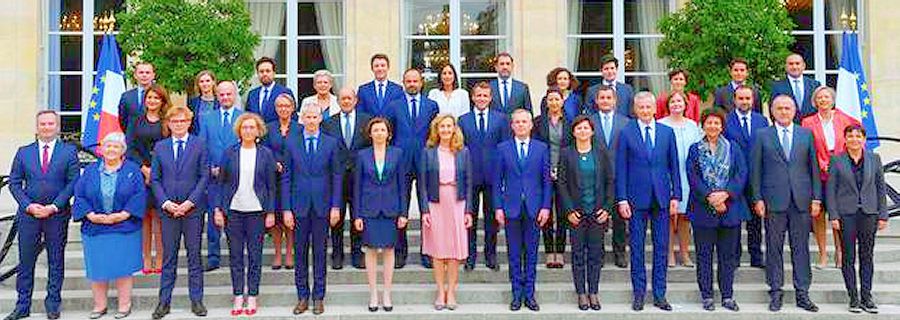 What to remember What to remember
It would be a "renewed team but whose political mandate remains the same" according to the Elysee
Indeed Christophe Castaner is appointed in the Interior and will be supported by Laurent Nunez, current boss of the interior intelligence.
A pair: Support from the first hour Emmanuel Macron, delegate general of La République en marche, he is supported by Laurent Nuñez, current head of the General Directorate of Internal Security (DGSI), the domestic intelligence, after being prefect police station.
Didier Guillaume becomes Minister of Agriculture, Franck Riester replaces Françoise Nyssen in Culture. Exit Nyssen and Travert.
The latter, who leaves the government, could assume responsibilities within The Republic in progress. In Relations with Parliament, he is replaced by Marc Fesneau, current president of the MoDem group in the National Assembly.
New young secretaries of state are appointed.
On the side of the new secretaries of state, the government records several arrivals of young personalities:
Emmanuelle Wargo: 46 years old, Secretary of State to the Minister of State François de Rugy, Minister of the Ecological and Solidarity Transition, replaces Sébastien Lecornu. She was a former advisor to Bernard Kouchner before joining the Danone Group's Communications Department.
Christelle Dubos: 42 years Secretary of State to the Minister of Solidarities and Health Agnès Buzyn. Graduate of the social sector, she was until now LREM deputy of the Gironde, elected in June 2017.
Agnès Pannier-Runacher: 44 years old, Secretary of State to the Minister of the Economy and Finance Bruno Le Maire. She was up to now number 2 of Compagnie des Alpes, a leisure company and subsidiary of the Caisse des Dépôts et Consignations.
Gabriel Attal: 29 years old, is appointed Secretary of State to the Minister of National Education and Youth Jean-Michel Blanquer. He was until now LREM deputy of Hauts-de-Seine, elected in June 2017, as well as spokesman of the presidential movement.
Opposition from left and right criticized a reshuffle, epilogue of a "pathetic soap opera" according to Republican spokesman Laurence Sailliet. " All that for this.
It is a perimeter that tightens around the very close to the President and the Prime Minister and serves the last circle of its last supporters " criticizes the head of the EELV David Cormand, while the LFI MP Alexis Corbière evokes a " tinkering " and a " DIY, " which allows " second knives " to enter the government for the communist Ian Brossat.
A cosmetic reorganization that does not bring out any strong personality. The new world has its limits ! |
|
|
|
|
|
|
| Andrew Preston for DayNewsWorld |
 |
FRISKING AT MELANCHON AND LFI OR
A POLITICAL POLICE ?
|
| Mélenchon denounces a "coup" after the raids on Tuesday morning. The home of the insubordinate France leader was searched in two cases.
Searches were held Tuesday morning at the headquarters of the insubordinate France (LFI) and the Left Party, as well as at Jean-Luc Mélenchon and former assistants of the LFI, said France insubordinate Tuesday.
According to a source close to the case, these searches are conducted by the Central Office of fight against corruption and offenses in two preliminary investigations initiated by the Paris prosecutor.
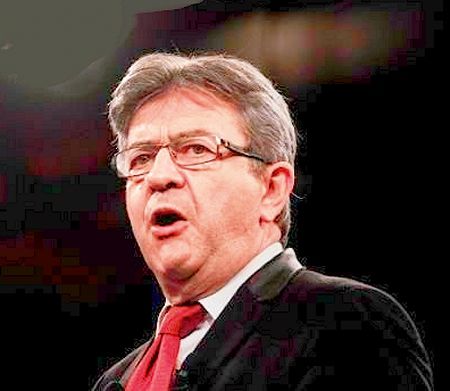 The first concerns alleged fictitious jobs of European parliamentary assistants. The second is on the campaign accounts of Mr. Mélenchon during the presidential election following the report of the President of the National Commission of Campaign Accounts and Political Financing. The first concerns alleged fictitious jobs of European parliamentary assistants. The second is on the campaign accounts of Mr. Mélenchon during the presidential election following the report of the President of the National Commission of Campaign Accounts and Political Financing.
The LFI has denounced a "political, police and judicial coup against Jean-Luc Mélenchon and La France rebellious" , and an "attack on the basis of fanciful elements".
"We are raided by everyone. The general secretary of the group in the Assembly, my former assistants who saw the cops come out at 7:00 am, pick up their phones and take their computers. At the headquarters of the left party of which I am a member, at the headquarters of the movement, France rebels, " protested Mr. Mélenchon in a video posted on Facebook.
"This is the beginning of the new Minister of the Interior (Christophe Castaner) and the Minister of Justice (Nicole Belloubet), this is what they are doing throughout the country, to intimidate and frighten. I ask you not to be afraid, and to protest, because it's not justice, it's not the police, " he added. The beginning of a call to civil resistance ...
Moreover, Jean-Luc Mélenchon called for a rally in front of the headquarters of LFI in Paris at 11:30. In a statement, LFI stresses that the investigation into the fictitious jobs of the European Parliament was opened as a result of "a denunciation of a right-wing elected, Sophie Montel, who admitted herself that she was not serious. She spoke indeed of a snub .
"Regarding the campaign accounts for the 2017 presidential election, the National Commission of Campaign Accounts validated on February 13, 2018 the accounts of Jean-Luc Mélenchon without any irregularities. This is not the case for those Emmanuel Macron for which irregularities were noted. In order to publicly prove his honesty, Jean-Luc Mélenchon asked on June 8, 2018 the re-examination of all the campaign accounts ", justifies the movement.
Jean-Luc Mélenchon has called the Prime Minister virulently from the rostrum of the National Assembly. Edouard Philippe then answered him.
Jean-Luc Mélenchon first clarified his position: "I do not complain about being searched, I complain about this staging and this concrete result to which we come. He then defeated the second part of his legal troubles, denouncing in the National Commission of Campaign Accounts "a way to denounce people and send them to the pillory" "This, what I have to say to you, is it still the rule of law? He asked himself.
"I hear in your question an emotion and anger that I think I can understand. It is the emotion and anger of a citizen, in this case a politician, in good faith, because I believe in your good faith, who is confronted with a judicial procedure. You are not the first, Mr. President Mélenchon to suffer this emotion and this anger. Answered Edouard Philippe.
"It is up to me, as Prime Minister, because I am respectful of the law and the constitutional text, to make the independence of justice prevail in all circumstances. Independence which means that there is no individual instruction given to the prosecutor, which makes that the decisions of the prosecutor are subject to the control of a judge of freedoms and detention, obviously perfectly independent, " he said. .
However, this concomitance between the appointment of Mr. Castener as head of the Ministry of the Interior and the raids undertaken have as a taste of political police for some. |
|
|
|
|
|
|
| Joanne Courbet for DayNewsWorld |
 |
WANTED ! MINISTERS
|
| Following the unexpected resignation of the Minister of the Interior, Gérard Collomb, Emmanuel Macron has since been looking for candidates to occupy the various chairs of ministers who have become vacant.
The situation is serious. Emmanuel Macron is looking for a government that can not be found, which combines his objectives and those of the Prime Minister. Hence the suspense that France has been living since October 2, 2018!
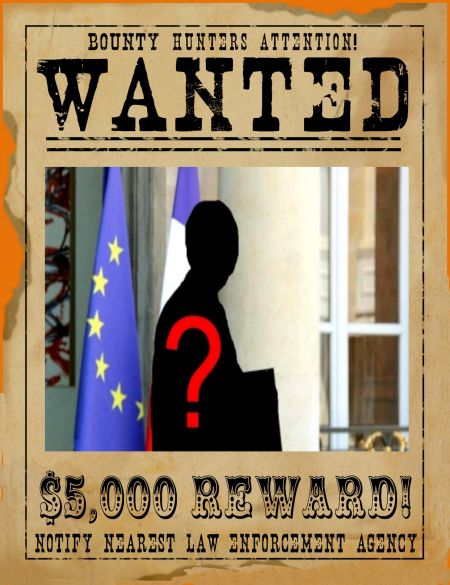 The operation is all the more complicated as the Prime Minister, Edouard Philippe has decided not to resign and that of his government, suggesting that relations between the two men are no longer good. The operation is all the more complicated as the Prime Minister, Edouard Philippe has decided not to resign and that of his government, suggesting that relations between the two men are no longer good.
Despite the protests, the hand on the heart, made by the Prime Minister on October 10, 2018, on the occasion of the session of current affairs in the government ("there is no beginning of the ½ of a cigarette sheet between the President of the Republic and me ") it seems indeed that the two men do not walk very exactly on the same path and that from this point of view the resignation of Gerard Collomb does not seem to be " an insignificant incident that would not obstruct the future, " as stated.
It will therefore probably take almost fifteen days to designate a new government .... The decision should be taken upon the return of the Head of State of Armenia where he went to preside a summit on the Francophonie.
In this unprecedented episode of ministerial reshuffle, Matignon claims the pure and simple application of Article 8 of the Constitution which grants him the prerogative of the choice of his ministers, the President of the Republic having only the charge of their appointment. This is the literal exegesis of our institutions.
In fact, since the birth of the Fifth Republic, it is the President of the Republic who has always (with the exception of periods of cohabitation) chosen members of his government, generally from the majority out of the polls after the legislative elections.
However, constitutionally, the President of the Republic can not dismiss his Prime Minister.
Except that it is a tradition that, at the time of his appointment, a minister (like the Prime Minister) signs in blank a letter of resignation carefully kept in a safe to serve as needed.
Do not worry, we're not there yet!
However, the situation seemed somewhat difficult, so we took the initiative to write a job description to help recruit a new Minister of the Interior and new ministers.
Vacancies
1. Minister of the Interior: Research for employment in fixed-term contracts:
- Man or woman of authority (with a handle!) Able to hold the dragée high to the numerous unions of policemen or gendarmes which populate the ministry and which hold a considerable number of sensitive information which could be dangerous
- Man or Woman having close ties with the Freemasonry, because many are the policemen or the gendarmes who attend the lodges of the different masonic Obediences
- Man or Woman dedicated to the cause of the President of the Republic and very flexible backbone.
- Brave man or woman accepting daily, without complaining and without protest a role of punching Ball
- Man or Woman trained in arm wrestling, entirely subject to the orders and protection of the President of the Republic (a certificate of capacity will be required).
- Man or Woman, not necessarily technically competent, but capable of understanding the presidential visions and the political stakes that are emerging: penal reform / prisons, fight against Islamism, preparations for the European and municipal elections and having a good knowledge of the map electoral process which should be modified following the constitutional reform ...
- Man or Woman with a thick shell to face the blows (including low) and orders or whims of a President of the Republic deemed "narcissistic and psychopathic" . Note, the shell will not be incompatible with the flexible spine, but it will require continuing education ... (imposed).
2- Ministers or Secretary of State: the recruitment will take place in fixed-term also
Nearly identical qualities will be required; given the specificity of each department, a technical plus is requested. The technicality will not be the essential criterion, however, the advisers of the Elysee already having the main purpose "to ensure this obligation" in the areas assigned to them.
Important and to conclude: we have only wanted to make our meager contribution to the fight against the current political and institutional disorder. We wish, for the good of France and the French, the victory of the clairvoyants, wherever they come from; otherwise "it is democracy that will be hidden under our feet. » (Henri Guaino)
|
|
|
|
|
|
|
|
| Clara Mitchell for DayNewsWorld |
 |
There are no translations available.
LE FEUILLETON ROCAMBOLESQUE
DE LA DEMISSION (OU FUITE ?)
DE GERARD COLLOMB
|
|
«Cirque Pinder », « Grand Guignol », « Mauvais Vaudeville » …C’est le spectacle ubuesque auquel les députés ont assisté mardi 2 octobre 2018, pendant la session des questions au gouvernement et au moment même où le Premier Ministre, Edouard Philippe assurait aux députés « que les institutions fonctionnent et que tous les ministres sont au travail ». « Chaque ministre qui compose ce gouvernement doit se consacrer à son travail » ajoutait-il même en répondant à une question posée par Eric Ciotti sur la première démission, refusée, de Gérard Collomb et devant une « standing ovation » des députés LREM. Il était 15 h.
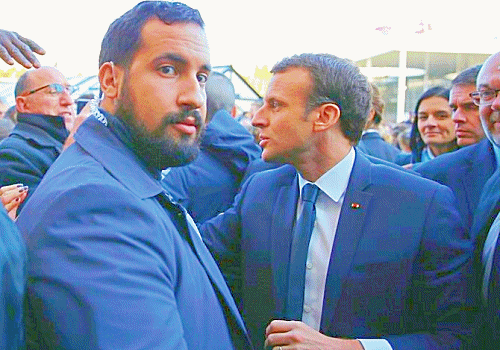 A cet instant, Gérard Collomb était absent de l’hémicycle. Et pour cause : il préparait de la Place Beauvau l’annonce du maintien de sa démission qu’Emmanuel va finir par accepter. A cet instant, Gérard Collomb était absent de l’hémicycle. Et pour cause : il préparait de la Place Beauvau l’annonce du maintien de sa démission qu’Emmanuel va finir par accepter.
Une heure après … patatras…il était donc 16 h ! Le chef du gouvernement était contraint de prendre acte, en direct (les questions d’actualités sont diffusées en ligne) de la démission de son ministre, assurant « qu’il allait désormais exercer la totalité des attributions constitutionnelles qui sont les siennes ». En clair, Edouard Philippe reconnaissait qu’il devait trouver un remplaçant à Gérard Collomb….
Sur FR3, Gérard Collomb est revenu il y a quelques heures sur cet instant improbable dans une vie ordinaire d’élu : l’annonce de sa démission devait être publiée vers 18 h, le 2 octobre. Elle est sortie plus tôt, juste au moment où le Premier Ministre intervenait dans l’hémicycle. Ce dernier a donc pris en pleine figure, l’annonce faite par le Figaro suite à l’entretien que Gérard Collomb leur avait réservé plus tôt dans la journée.
« Je comprends pour lui que cela a du être un moment de solitude » a commenté un peu plus tard Gérard Collomb, qui a indiqué qu’il s’était excusé depuis auprès du Premier Ministre.
En mettant le Président de la République au pied du mur pour le contraindre d’accepter sa démission, Gérard Collomb a sans conteste, signé le départ du gouvernement le plus improbable de ces dernières années. « De mémoire, je n’ai jamais rien vu d’équivalent » vient de confesser le politologue Bruno Cautrès, lequel a ajouté « que la démission de Gérard Collomb a quelque chose de mystérieux …surtout quand c’est l’ancien monde qui claque la porte ».
Un Président n’a pas le pouvoir de retenir un ministre contre son gré. Il n'est néanmoins pas normal, à ce niveau de l’Etat, d’assister à la double démission d’un ministre dans un entretien de Presse, glisse le chercheur du CEVIPOF.
Problème en effet ! C’est la seconde fois en l’espace de 2 mois que l’Elysée est contraint de subir un tel camouflet. L’abdication improvisée, en direct, sur France Inter de Nicolas Hulot avait pourtant, on le croyait, fixé un nouveau standard en matière de transgression protocolaire. La forme surprenante du renoncement de Nicolas Hulot, avait au demeurant été mise très vite, mise sur le compte de la personnalité de cette figure populaire ?
Il n’en est pas de même avec Gérard Collomb, dont le départ n’a pas, dans un premier temps, trouvé de justification.
Depuis l’annonce de la démission de l’ex-ministre de l’Intérieur, on s’est perdu en conjecture. Faute d’explication, c’est la piste municipale qui s’est imposée tout d’abord. A l’appui de cette explication lyonnaise, la présence mardi dernier, Place Beauvau du Maire de Lyon, Georges Képenekian.
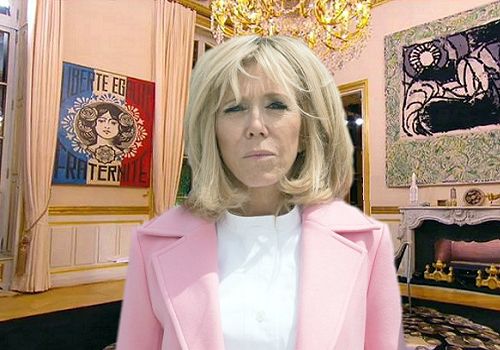 Depuis Georges Képenekian a démissionné du fauteuil de Maire pour permettre à Gérard Collomb de se faire réélire dans la fonction dont il avait démissionné lors de sa nomination au poste de Ministre de l’Intérieur. Depuis Georges Képenekian a démissionné du fauteuil de Maire pour permettre à Gérard Collomb de se faire réélire dans la fonction dont il avait démissionné lors de sa nomination au poste de Ministre de l’Intérieur.
L’analyse n’a cependant pas convaincu. Les élections municipales auront lieu en 2020, après les élections européennes de 2019. Gérard Collomb aurait donc eu largement le temps de se préparer pour un quatrième mandat à Lyon après ces dernières élections.
En fait, l’affaire Benalla serait au cœur du délitement des relations entre Emmanuel Macron et Gérard Collomb.
D’après le journaliste Jean Michel Apathie, la rupture entre les deux hommes serait intervenue le 10 septembre, à l’occasion d’un diner à l’Elysée. Ce dernier réunissait Gérard Collomb d’un coté, de l’autre coté Brigitte Macron et Emmanuel Macron.
Ce soir là, Brigitte Macron aurait reproché assez vivement à Gérard Collomb de ne pas les avoir soutenus dans l’affaire Benalla.
Jean Michel Apathie a fait l’annonce de l’événement ce mardi 3 octobre 2018 sur l’antenne d’Europe 1. L’Elysée a immédiatement démenti…Mais les Français qui ont entendu l’annonce n’en on pas cru leurs oreilles : ce serait donc Brigitte Macron qui mènerait la danse ?
C’est en tout cas la démonstration que vient d’en faire l’hebdomadaire « The economist » qui vient de consacrer sa première page à la Première Dame dans son édition d’Octobre/Novembre.
L’hebdomadaire présente Brigitte Macron en totalement look, toute de noir vêtue, « en James Bond Girl ». Elle est décrite dans l’hebdomadaire britannique comme « la femme qui prend des galons » (Brigitte comes of age). Dans la biographie d’Emmanuel Macron que vient de signer Sophie Pedder, l’ancienne professeure de français est qualifiée « d’agent provocatrice ». En James Bond Girl provocatrice, elle serait donc devenue la confidente et la conseillère d’Emmanuel Macron, comme le fut la Marquise de Pompadour au XVIII siècle avec Louis XV…
Ainsi va la France en ce moment !
Les péripéties politiques que le pays vient de vivre en quelques jours, compte-tenu du point de vue des Anglais sur la Première Dame de France, viennent en effet de signer l’état de délabrement dans lequel évolue la monarchie républicaine française, coupée du terrain et évoluant dans l’entre-soi des courtisans.
Telle est aussi, incarnée après de nombreuses dérives, la Constitution de là Vème République dont on fête aujourd’hui le 60ème anniversaire (1958).
|
|
|
|
|
|
|
|
| Clara Mitchell pour DayNewsWorld |
 |
There are no translations available.
LE MACRONISME EN DANGER
|
|
Depuis l'élection d'Emmanuel Macron, sept ministres ont quitté son gouvernement. En outre le Président perd son troisième ministre d'État depuis son arrivée, après la démission de François Bayrou en juin 2017 et celle de Nicolas Hulot en septembre, Gérard Collomb a annoncé lui-même dans l'Express son départ avant les européennes, en septembre dernier, pour la mairie de Lyon ; Puis sa démission effective mercredi 3 octobre.
C'est Edouard Philippe qui s'est vu demander d'assurer l'intérim, en attendant de trouver un successeur au ministre de l'Intérieur. La passation de pouvoir du mercredi matin a été glaciale.
 Le mercredi après-midi, le chef de l'État a assuré qu'il n'y avait pas de crise politique après le départ de Gérard Collomb. «Rien de ce qui se passe depuis 48 heures ne s'apparente à une crise politique. L'État fonctionne», a déclaré le président, selon des propos rapportés par le porte-parole du gouvernement, Benjamin Griveaux. Le mercredi après-midi, le chef de l'État a assuré qu'il n'y avait pas de crise politique après le départ de Gérard Collomb. «Rien de ce qui se passe depuis 48 heures ne s'apparente à une crise politique. L'État fonctionne», a déclaré le président, selon des propos rapportés par le porte-parole du gouvernement, Benjamin Griveaux.
S'il ne s'agit pas d'une crise d’État parce que la Constitution, dont Emmanuel Macron célébrera les 60 ans aujourd’hui, protège le président, il s'agit bien cependant d'une crise de l'exécutif, donc du gouvernement et de l'Élysée
En effet il est inédit sous la Ve République, qu'un ministre annonce sa démission plusieurs mois à l'avance surtout de la part d'un ministre d'État, numéro deux du gouvernement et titulaire du poste régalien de l'Intérieur.
De plus cette annonce intempestive n' a contribué qu' à affaiblir davantage l'autorité du chef de l'État, déjà bien écornée par l'affaire Benalla. Selon l'article 8 de la Constitution, n'est-ce pas au Président de nommer les membres du gouvernement et mettre fin à leur fonction, sur proposition du Premier ministre ? Gérard Collomb « le plus fidèle des fidèles » court-circuitait ainsi non seulement le président mais aussi le chef du gouvernement en leur imposant sa volonté politique .
Il s'agit bien d'une crise gouvernementale inédite qui vient couronner un été des plus désastreux pour la présidence. Le départ de M. Collomb, qui a défié le pouvoir, a plongé ce dernier, déjà fragilisé dans ses derniers retranchements.
Désormais Emmanuel Macron doit reprendre la barre. Il lui faut certainement procéder à un remaniement plus large tout en trouvant une personnalité forte pour le ministère de l’Intérieur dans un contexte de menace terroriste et de pression migratoire. Et des collaborateurs compétents dans les autres postes ministériels, et non des fidèles de la première heure.
Cette réorganisation à l'Élysée suffira-t-elle à réinstaller autorité du Chef de l'Etat ?
Emmanuel Macron est également attendu sur les réformes, sa marque de fabrique. A l'évidence il sera difficile de surmonter une crise de telle ampleur !
«Le Titanic s'enfonce de plus en plus vite et l'orchestre a arrêté de jouer», a ainsi ironisé Éric Ciotti, député Les Républicains (LR.)
|
|
|
|
|
|
|
|
| Garett Skyport pour DayNewsWorld |
 |
A SELFIE ALEXANDRE BENALLA TAKES THE POSE WITH A PISTOL
|
 Alexander Benalla takes the pose, gun in hand without authorization port. Alexander Benalla takes the pose, gun in hand without authorization port.
Here is Benalla who finds himself once again in the visor of revelations. But this time, it is he who has his finger on the trigger.
More specifically, the former collaborator of the Elysee was photographed on April 28, 2017.
He drew his weapon for a selfie with a waitress at a restaurant where the candidate Macron was moving, according to revelations from Mediapart.
An inconvenient fact for the person who was not allowed to carry a pistol, not having received a weapon from 13 October 2017.
The interested party had also made the request " to acquire and hold weapons in the HQ of En Marche! during the campaign. The police prefecture had agreed.
But swearing his great gods he would never unsheathe by pure deontology.
" No never. We are not mabouls, there is a risk for the reputation of the candidate ... " he had replied to a reporter.
But he has indeed drawn his Glock in front of the waitress of the restaurant
Les Archives in Poitiers in this period between the two rounds.
He was then "director of safety and security" , and therefore had no authorization to carry weapons outside the headquarters of En Marche! "I never had a picture taken with any weapon during the campaign,"
he said before denouncing a "fake news" and a "photomontage"
. In the middle of the presidential campaign, Alexandre Benalla, who told senators "never having been Emmanuel Macron's bodyguard", carried a weapon during the candidate's travels.
What lies in this bad political soap opera!
|
|
|
|
|
|
|
|
| Jenny Chase for DayNewsWorld |
 |
BENALLA CASE
HIGH VOLTAGE BETWEEN SENATE AND EXECUTIVE
|
| On September 19, Benalla was to be heard by the commission of inquiry of the Palais du Luxembourg. The object of this commission: to seek to establish really its functions at the Elysee. The former chargé de mission initially refused to go there, then he agreed, saying "forced".
The former bodyguard Emmanuel Macron finally agreed to appear before the senators, although unwillingly : "I am forced.
They explain to me that they will send me gendarmes and policemen. So, I will come to the convocation. Because they threaten me, in a direct way.
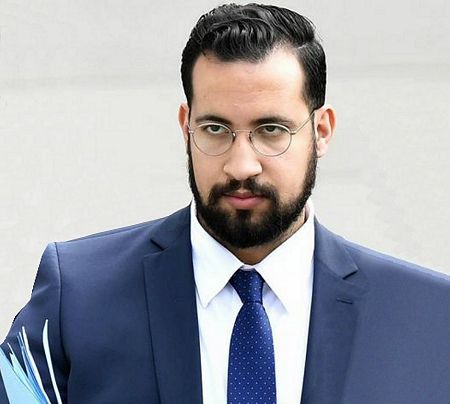 I will come to explain to the commission of inquiry. But she has no rights. It flouts our democracy. Said Alexandre Benalla on France-Inter. I will come to explain to the commission of inquiry. But she has no rights. It flouts our democracy. Said Alexandre Benalla on France-Inter.
Nevertheless, he ended up giving in to the force of law. Any parliamentary commission of inquiry has a right of direct quotation, which obliges any person summoned to accept the convocation :
an order of 17 November 1958 states that "the person who does not appear or refuses to testify or to take an oath before a commission of inquiry is liable to two years' imprisonment and a 7500 euro fine". The president of such a commission may even compel the person summoned to appear by a bailiff or a police officer
His lawyer criticizes this hearing imposed on his client and sought all "possible remedies" , saying that "many people today used Alexandre Benalla as the torpedo to swing Emmanuel Macron.
The lawyer is not the only one to criticize this hearing. Emmanuel Macron himself and several of his followers oppose this initiative of the senatorial commission of inquiry.
The president and ministers are increasing pressure on senators, whom they accuse of using the affair to weaken the head of state.
Indeed Emmanuel Macron called on Tuesday, September 11th, the president of the Senate to ask him to guarantee the institutional balances, estimating in essence that the Senate commission on the Benalla affair was moving away from it.
Gerard Larcher 's entourage confirmed the call of the President of the Republic, without revealing its content. The interview focused, among other things, on the senate commission of inquiry, but also on legislative subjects, simply specified the presidency of the Senate. On the other hand the Elysée refused any comment.
Asked about this call, the delegate general of the Republic in motion, Christophe Castaner, on the contrary assured that it was for the president to recall the separation of powers, " the essence of the Fifth Republic . "
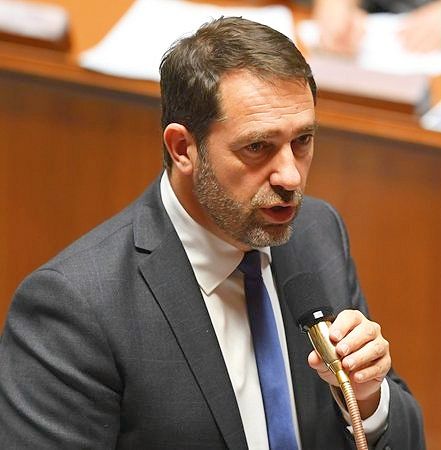 "There is today - and this was the meaning of the exchange between the President of the Senate and the President of the Republic - some people who confuse the mission of Parliament, which is to control the government, with a mission, that the Parliament would self-attribute - to control the executive and the presidency of the Republic " according to Christophe Castaner, delegate general of LREM "There is today - and this was the meaning of the exchange between the President of the Senate and the President of the Republic - some people who confuse the mission of Parliament, which is to control the government, with a mission, that the Parliament would self-attribute - to control the executive and the presidency of the Republic " according to Christophe Castaner, delegate general of LREM
The delegate general of the Republic en march, himself fired, senators on Friday morning at a press conference. "A commission of inquiry that has political ambitions" and thinks "that it can play its role of controlling the government to bring down a President of the Republic would commit a constitutional fault ," he said. If some think that they can arrogate to themselves a power of impeachment of the President of the Republic, they are themselves threats for the Republic ". he continued.
For Gerard Larcher the Senate is in his role, neither more nor less, in the perimeter that was granted him seeking to dismiss anyone.
Minister of Justice Nicole Belloubet in turn warned the Senate commission of inquiry against the risk of "encroachment on the judicial field" during its work on the Alexandre Benalla case. In an article published in Le Monde, Nicole Belloubet warns: "An interference of the executive power in a judicial procedure would be shocking," she wrote. "All that concerns the presidential function can not be the subject of a commission of inquiry. "It would in fact make the head of state (...) accountable to Parliament. The Constitution forbids it formally. She added. The custody of the Seals had already taken part in the debate on Tuesday, saying that "there can be no interference" between a commission of inquiry and a judicial inquiry.
But the judicial information evoked by Ms. Belloubet does not make the hearing of 19 September illegitimate. According to the law, a parliamentary commission of inquiry "can not be created on facts that have given rise to legal proceedings and as long as these proceedings are in progress" . Thus, the commission of inquiry in charge of the Benalla case must, in order not to "interfere" with the work of justice, focus on facts in the margin of the subject of the ongoing judicial inquiry, in this case the violence that has occurred. during the Paris demonstration of May 1, 2018. Philippe Bas, the chairman of the commission, said he wanted to "remove the inconsistencies that remain" in this case.
These particular questions could arise: Who authorized Mr. Benalla to go on the ground on May 1st? Who knew about this authorization? What were then the exact functions of Mr. Benalla at the Elysee? Shadow areas for many ...
The three senators LREM members of the commission of inquiry of the Senate on the Benalla affair announced that they would not take part in the hearing of the former collaborator of the Élysée on Wednesday seeing there "a diversion of mission".
In opposition, insubordinate France leader Jean-Luc Melenchon blasted "the unprecedented escalation of tensions between the executive and the Senate".
"The battle of Macron, Castaner and Benalla with the Senate is unheard of ," he reacted on Facebook.
|
|
|
|
|
|
|
|
| Britney Delsey for DayNewsWorld |
 |
THE POOR PLAN OF EIGHT BILLION EUROS LEFT THE POLICY OF EMMANUEL MACRON
|
|
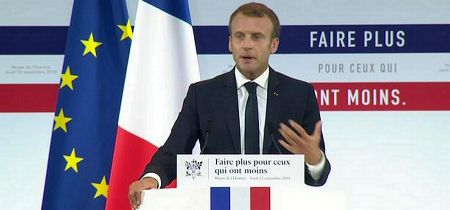
Starting with a tribute to anti-poverty associations, President Emmanuel Macron wanted to stimulate a social turning point in his policy, even if he inscribed it in the logical continuation of his policy of the past 15 months. In fact, in 2016, France has some 8.8 million poor people, or 14% of the population, according to INSEE.
Poor people are those who receive less than 1,026 euros per month (for a single person), ie less than 60% of the median income of the population.
Hence the need for the state to intervene. The cost of the "poverty plan" is estimated at eight billion euros over four years.
What are the main lines of this "national strategy for preventing and combating poverty" ?
The public authorities will tackle two main pillars of action:
1 ° That of education to prevent precariousness
2 ° That of professional reintegration.
The main measures therefore concern childhood and access to employment with a main advertisement, the creation of a universal income of activity.
Education is a priority for the executive for whom it is a question of "refusing social fatality". To do this we must "fight against this determinism that, from childhood, destroyed life trajectories (...). There is in every child, starting with a child who is born in a poor family, a Mozart who is assassinated because it is decided that he has no chance of becoming Mozart, " said the head of the State, taking up an expression of Saint-Exupéry in his novel Terre des Hommes
The President went into detail to outline these two priorities
1 ° meals in the canteen at 1 euro for the most disadvantaged children "by developing meals to one euro" in small towns and priority neighborhoods,
2 ° More nurseries in priority neighborhoods
some more specifically with vocation of professional insertion going from 40 at present to 300 nurseries by 2020. children. A total of 50 million euros will be spent on child welfare.
3 ° Increase in the number of insertion contracts by economic activity (IAE), subsidized contracts addressed to people away from employment. It will increase from 100,000 to 240,000 over 4 years.
4 ° The training obligation will increase from 16 to 18 years with additional resources so that local missions can better identify dropouts in the school system by offering them training.
5 ° The creation of a "public integration service" as a one-stop shop for those who subscribe to the active solidarity income (RSA). "The objective is to 'rehumanise' the return to work path , " said Emmanuel Macron, an objective for which "the state must regain its place" .
Finally the President announced an expected measure namely the creation of a universal income of activity, via a law in 2020, to get out of the "scrub of existing aid (which) does not help out of poverty . "
6 ° This new system will merge several social benefits - from RSA to APL to disabled adult allowance - and will be subject to "rights and duties". The contours of this income are yet to be defined but we know that it will be subject to "rights and duties". "Simple, fair and transparent", it "guarantee (a) a minimum threshold of dignity" to all.
The "poverty plan" singularly distorts its political discourse, but are public policies best placed to overcome poverty?
|
|
|
|
|
|
|
|
| Garett Skyport for DayNewsWorld |
 |
|
PRESIDENT OF THE NATIONAL ASSEMBLY IN FRANCE: RICHARD FERRAND PLEBISCITE
|
"It's a vote of confidence and adherence to the proposals I was able to make," Richard Ferrand told reporters just after the announcement of the results. "You will forgive me for not being a woman," he added.
|
|
|
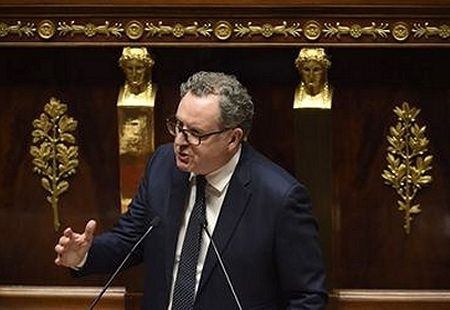
The deputies elected unsurprisingly their candidate for the presidency of the hemicycle, it is Richard Ferrand largely designated by the majority party for this post.
Because of the absolute majority of his party, the nominee is assured of being elected president by all deputies on Wednesday.
He won with 187 votes out of 299 votes and 291 votes cast.
He will replace François de Rugy to hold the helm
Candidate of the Elysee Palace, he was preferred to the other three contenders:
the former secretary of state under Hollande and current chair of the Assembly's sustainable development committee Barbara Pompili (EELV) won 85 votes;
the elected of Isère Cendra Motin fifteen voices, and the deputy of Tarn Philippe Folliot (ex-UDI) four voices.
"I am not a darling, but a democratically elected man. ".
We will remember ! Notice to school children!
|
|
|
|
|
|
| Andrew Newton for DayNewsWorld |
 |
ATTACK ON THE KNIFE IN PARIS
ISLAMIST INSPIRATION?
BY AFGHAN SEVEN INJURED
|
|
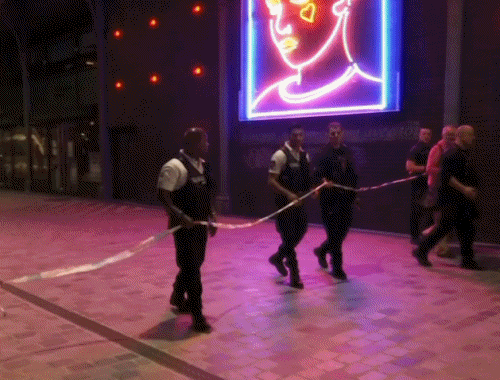
A man attacked several people in Paris on Sunday night.
Seven wounded are to be deplored, including four in a state of absolute urgency. The facts took place on the quai de Loire, along the basin of Villette, in the 19th district of the capital, around 22:48.
At 22:56, the perpetrator was arrested by the police.
The man attacked several people with knives and iron bars.
Witnesses of the scene, who played petanque, intervened, one of them throwing a ball that reached him in the head.
Moments later, the attacker attacked two other passers-by, British tourists.
The aggressor would be a man "a priori of Afghan nationality" . An investigation was opened for "attempted homicide" .
The investigations were entrusted to the judicial police. For the moment the terrorist track is not retained.
Gerard Collomb " wanted to salute the great reactivity and courage shown by many citizens during the attacks committed yesterday evening shortly before 23 hours in the 19th arrondissement of Paris. "
|
|
|
|
|
|
|
|
| Paul Emison for DayNewsWorld |
 |
There are no translations available.
DEGRINGOLADE DE LA COTE DE POPULARITE D'EMMANUEL MACRON
|
|
La cote d'Emmanuel Macron se trouve au plus bas après la démission de Nicolas Hulot. A 34% elle est à la même époque de son mandat très en dessous de celle de Nicolas Sarkozy (47%). Il faut dire que la séquence estivale Benalla n'a pas arrangé ses petites affaires et que les Français ont découvert les coulisses d'un pouvoir gangrené par les petits arrangements entre amis des plus malsains et les rivalités les plus sordides.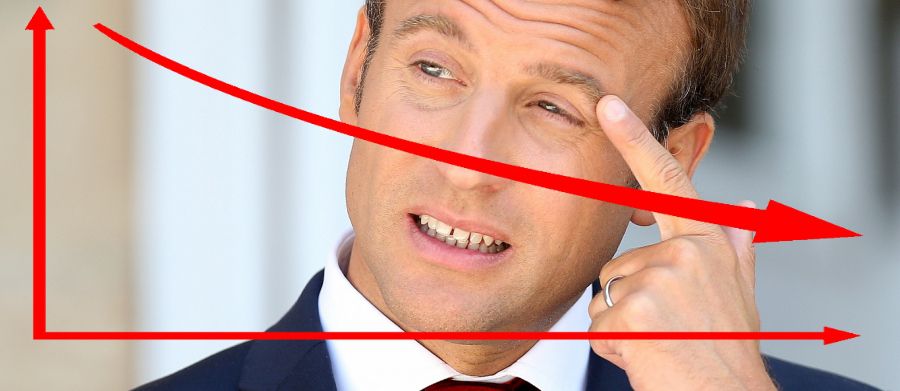
La popularité du chef de l'Etat, ainsi que celle de son Premier ministre chute en effet de 5 points, selon le baromètre mensuel BVA pour Orange, RTL et La Tribune, diffusé vendredi 31 août. Avec respectivement 34% et 38% d'opinions favorables, le président de la République et Edouard Philippe sont à leur plus bas niveau dans ce baromètre depuis leur prise de fonction.
Seules 28% des personnes interrogées considèrent que la politique de l'exécutif est "juste" et 27% "efficace".
Emmanuel Macron cède du terrain auprès de toutes les tranches d’âge, mais surtout chez les Français de 50 à 64 ans, qui ne sont plus que 29% à lui faire confiance (-8), et les plus de 65 ans (33%, –5).
La cote de confiance des ministres du gouvernement suit cette tendance, avec une baisse de quatre points de la confiance dans le gouvernement, également à son plus bas niveau depuis son entrée en fonction (26%).
Au lendemain de sa démission,Nicolas Hulot devient lui la personnalité politique en qui les Français ont le plus confiance avec 47% d’opinion favorable (+5), loin devant Alain Juppé (36%, pas d’évolution) et devant Xavier Bertrand (30%, -1) .
Surtout, plus de deux Français interrogés sur trois (66%, +7 par rapport à juillet) ont désormais une « mauvaise opinion » d'Emmanuel Macron et 61% (-7) d'Edouard Philippe.
Comment pourrait-il en être autrement après toutes les petites phrases assassines et méprisantes lancées à l'égard des Français depuis l'étranger. Drôle de façon d'aimer son pays …jusqu'aux gaulois réfractaires . Nous vous faisons grâce de la liste exhaustive de ses petites gentillesses...
'Et à l'ancien présentateur d'"Ushuaïa Nicolas Hulot de dire : « C'est chiant du matin au soir »!!
Et à l'animateur télé Stéphane Bern de menacer, vendredi 3 août, de quitter à la fin de l'année la mission sur le patrimoine que lui a confiée Emmanuel Macron s'il estimait finalement n'être qu'un « cache-misère » ou un « pantin ».
« Si je vois que je ne sers à rien, que je n'étais qu'un pantin et qu'on s'est servi de moi, je reviendrai à mon travail" » en continuant le combat pour le patrimoine, a-t-il confié dans un entretien de presse régionale tout en rappelant qu'il était engagé dans ce domaine « quand le président Macron n'était pas encore né » !!.
Et les Français ont-ils envie également d'être des marionnettes ?
|
|
|
|
|
|
|
|
| Garett Skyport pour DayNewsWorld |
 |
MESS AT THE TOP OF THE STATE
IN THE HELL OF BERCY
FOR THE COLLECTION OF TAX AT SOURCE
|
|

When everything seemed ready for the introduction of the withholding tax in January, the president expressed doubts on Thursday in Finland. Doubts that sow the shambles, four months from the deadline.
Is the withholding tax really going to be implemented on January 1, 2019? Theoretically, this is what the timetable for the reform provides. But the head of state has expressed doubts. "I rather intend to bring this reform to an end but I have asked the competent ministers to answer all the questions that still arise, before giving a final directive , " said Tuesday, from Finland, the president of the Republic.
The administration is ready and let it know
And this worry at the top of the state makes Bercy cringe ...
For proof barely one hour after the declaration of Emmanuel Macron in Helsinki, Bercy split, on Twitter, a non-diplomatic message to the Head of State : "We are confident that all the answers to his questions will be brought to him and that the calendar will be held #goodspasrefractaire " . This is to say the atmosphere that reigns in this government where everyone hates cordially
The president fears negative repercussions in the opinion. With the deduction at source, the salary will indeed be reduced by the tax on the pay slip in January and some could see a loss of purchasing power, even if in fact it will not be the case.
For the "Gauloispasréfrractaire" a brief explanation of the withholding tax:
Withholding tax is expected to come into effect at the beginning of 2019. The major interest of the withholding tax is to collect the real-time household tax, that is at the time of the payment of the income. taxable. Currently, as the tax is levied a year late, taxpayers who see their income drop (retirement, unemployment), must wait one year before their tax will drop, which puts them in a difficult situation.
The Terra Nova think tank considered that such a reform is "useful for the economy" (which is not spared is consumed) but also allows to "strengthen" the effect of social stabilizers (a person falling in unemployment will no longer have to pay the same tax) and "improve the efficiency of tax policy" (by removing the important time lag between the vote of a measure and its financial impact on households).
But let's be clear: the executive begins to doubt in the final stretch not only because of a possible computer bug, but above all because of the popularity of Emmanuel Macron who seems to be afraid of his shadow.
The executive is worried about the effects of the psychological shock of the declining pay statement. This year, the government decided to immediately apply a tax increase and spread the reductions in employee contributions. And after the introduction of eight new taxes ... and soon the tax on salt (the Gabelle)!
|
|
|
|
|
|
|
|
| Jaimie Potts for DayNewsWorld |
 |
There are no translations available.
COMMENT REMPLACER NICOLAS HULOT APRES LE RAPPORT CHOC SUR LE NUCLEAIRE ?
|
|
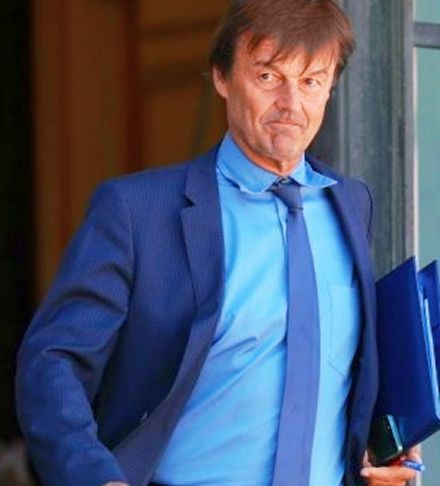 «Sa volonté de ménager la chèvre écologique et le chou productiviste n’a pas contribué à créer la condition d’une politique écologique cohérente » écrivent 10 ONG après la démission de Nicolas Hulot, dans une tribune publiée jeudi 30 août sur France Info. «Sa volonté de ménager la chèvre écologique et le chou productiviste n’a pas contribué à créer la condition d’une politique écologique cohérente » écrivent 10 ONG après la démission de Nicolas Hulot, dans une tribune publiée jeudi 30 août sur France Info.
Emmanuel Macron « aurait tort de mésestimer le symbole que représente cette démission surprise » qui est « le symptôme d’une immense incompréhension », conseillent dix ONG écologistes au président Emmanuel Macron sur la question de la transition écologique.
Elles ajoute que « la transition écologique n’est ni une promenade de santé ni un supplément d’âme pour politiciens sans imagination ».
Selon elles, « la volonté d’Emmanuel Macron de ménager la chèvre écologique et le chou productiviste n’a pas contribué à créer la condition d’une politique écologique lisible et cohérente » . .
« En matière écologique, nous ne pouvons plus soutenir l’agriculture biologique et “en même temps” le glyphosate, la sobriété énergétique et “en même temps” le nucléaire, une redynamisation des centres-villes et “en même temps” (le mégacomplexe) Europacity et l’artificialisation des terres agricoles, la nécessaire préservation de la biodiversité et “en même temps” la baisse du prix du permis de chasse, la mise en œuvre de la COP21 et “en même temps” la multiplication des projets autoroutiers, les fermes-usines et “en même temps” une agriculture paysanne, le libéralisme et “en même temps” l’écologie ».
Sauf qu'un rapport choc sur le nucléaire commandé par le ministre de l’Économie, Bruno Le Maire, et le désormais ancien ministre de la Transition énergétique, Nicolas Hulot, a bien vu le jour et il contredit NicolasHulot !
En e ce rapport prône rien de moins que la construction de six réacteurs nucléaires de type EPR à compter de 2025. pour le « le maintien des capacités industrielles de la filière nucléaire en vue de potentielles nouvelles constructions de réacteurs »,selon la lettre de mission à l'origine du rapport Ni Bercy ni l'entourage de Hulot n'a d'ailleurs souhaité réagir.
Nicolas Hulot a, lors de l'annonce de sa démission mardi, fustigé l'énergie atomique, « cette folie inutile économiquement, l'énergie atomique, « cette folie inutile économiquement, techniquement, dans laquelle on s'entête ».Le ton est donné !
La France prépare actuellement sa « programmation pluriannuelle de l'énergie » (PPE) pour les périodes 2018-2023 et 2024-2028. « de l'énergie" (PPE) pour les périodes 2018-2023 et 2024-2028.
« Le gouvernement a logiquement engagé plusieurs missions et expertises préparatoires à ses décisions. Ce sujet sera examiné dans le cadre de la préparation de la PPE au cours de l'automne », a indiqué le ministère de la Transition écologique et solidaire, en réaction à ces informations.
Nicolas Hulot devait sans doute pressentir ce nouveau coup dur. Et après avoir dû avaler bien des couleuvres, il lui était impossible d'avaler un cobra. Il avait prévenu.
|
|
|
|
|
|
|
|
| Andrew Preston pour DayNewsWorld |
 |
MACRON
REFRACTORY GAULOIS TO CHANGE
|
|
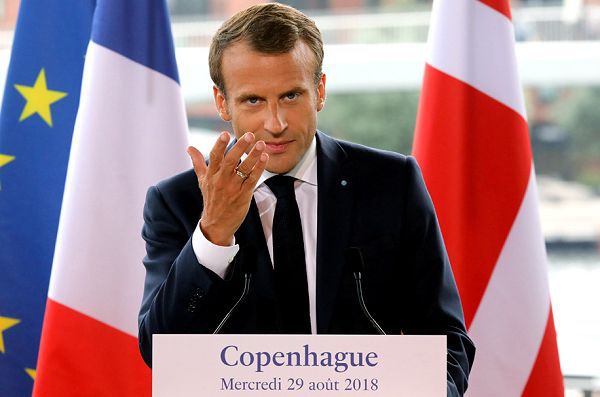
When he praised Denmark for being both "completely open to the rest of the world and attached to its own culture" he launched a pique for France which "has never been itself closed to rest of the world ".
Emmanuel Macron, on a state visit, did not fail to compare the Danes, "Lutheran people" open to transformations, and the French, "Gauls refractory to change", claiming identities both national and European.
He has constantly evoked before the French community in Denmark his admiration for the Danish model of "flexicurity", while conceding that the cultural differences between French and Danish did not allow to copy the identical Danish model. "It's not about being naïve, it's about a culture, a people marked by its history.
This Lutheran people, who has experienced the transformations of recent years, is not exactly the Gaul who is resistant to change! Though ! But we have in common that part of European that unites us, "he quipped.
Did he want to respond to the nationalists who, from Hungary to Italy, loudly claim their identity during their recent meeting?
The fact remains that the head of Emmanuel Macron also during his visit to Denmark talked a lot about identity.
First, there were the French who "hate reforms" in Romania. Then there were the "slackers", in front of the French community of Athens. In order not to make the adage "never two without three" lie, Emmanuel Macron has offered a new critical exit for the French from abroad.
But the French president believes he has succeeded since his election to provoke a "cultural change" among the French who "have regained a taste for risk," he declared before the Danish employers in good? Ambassador of France.
Always delicate to dance to the rhythm of "at the same time". To the French to judge.
|
|
|
|
|
|
|
|
| Garett Skyport for DayNewsWorld |
 |
A HIGH RISK RETENT FOR MACRON
|
| Growth was confirmed at 0.2% in the second quarter, although it did capped at 0.2% in France in the second quarter, mainly because of a drop in consumption, which is running out of steam.
An air hole crossed for several months by the French economy, struggling to regain momentum after a very dynamic 2017, marked by quarterly growth rates of 0.7%.
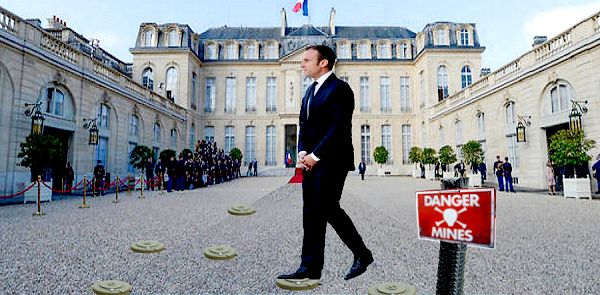 For good reason: household consumption fell by 0.1% between April and June. Consumption of goods thus fell by 0.3% while that of services capped at 0.1%, with a 2.7% drop in transport, "mainly in rail transport". For good reason: household consumption fell by 0.1% between April and June. Consumption of goods thus fell by 0.3% while that of services capped at 0.1%, with a 2.7% drop in transport, "mainly in rail transport".
French economic growth slowed sharply in the second quarter of 2018, compared to the encouraging results of 2017. With a rise of 0.2% between April and June, the government's target of reaching 2% economic growth in 2018 therefore seems more and more unattainable.
Is the economic downturn important?
According to a recent INSEE report, French gross domestic product (GDP) grew by only 0.2% in the second quarter of 2018, compared to the first three months of the year. This figure is not encouraging, compared to the 0.7% rebound recorded between October and December 2017, which strongly challenges the government's goal of 2% growth in 2018.
"These numbers speak for themselves. Between last year and today, we see a huge slowdown in growth: it has almost been divided by three, "says Patrick Artus, director of research and studies at Natixis. An air hole with explanations related to international markets with the slowdown by a "rising price of oil and energy" , the uncertain policy of Donald Trump, including the customs barriers implemented in the sector of international trade, the fear of a new crisis with Italy or Brexit. As many uncertainties that weaken investments
But that's not all: these external elements do not explain everything.
In France, "the economic slowdown is more present than elsewhere," says economist Mathieu Plane, OFCE. This deceleration is closely linked to the tax calendar. The measures put in place in the first quarter of 2018 (increase in the CSG, taxation on tobacco, tax on hydrocarbons) had a very negative impact on the purchasing power of households.
"There is currently a huge recruitment problem in French companies, which slows the pace of job creation , " Patrick Artus adds.
Public finances
The government could not keep its growth forecasts, announced before the summer break by Gérald Darmanin. Even The goal of 1.7% is seems too optimistic for some experts.
Another problem: the goal of reducing the public deficit to 2.3% this year, in line with the promises made by France to the European Commission, seems unachievable.
The employers were seduced by the arrival in power of Emmanuel Macron, a president deemed pro-business, but now the French bosses are now doubting.
This former banker of business promised to "transform France" and revive growth previously sluggish. But even if decisions are going in the right direction (relaxation of the rules and tax exemption for overtime), executives are now waiting for the Pact Act on corporate financing, profit-sharing and employee participation.
The president of Medef Geoffroy Roux de Bezieux, "We prefer proofs of love to declarations of love," said boss bosses, who sees in a postponement of nine months of a drop in charges announced Monday a "very bad signal.
Given the growth that is slowing to only 1.7% this year according to INSEE, instead of the 2% expected by the government gives terror to the government ..
In just three months, Emmanuel Macron plummeted from 64% to 34% of favorable opinions in the French population, according to an Ifop survey for the JDD. For the man who saw himself as "Jupiterian president", the fall in popularity is overwhelming.
Not to mention business ... A high risk return ...
|
|
|
|
|
|
|
|
| Alyson Braxon for DayNewsWorld |
 |
KNIFE ATTACK ON TRAPPES (FRANCE) TWO DEATHS AND A SERIOUS INJURY TERRORISM OR PSYCHIATRY?
|
|
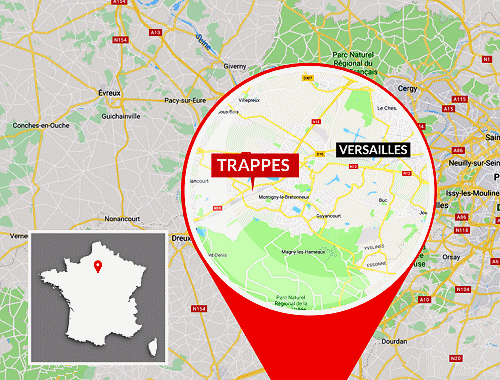
They were killed and at least one other seriously injured, Thursday, August 23, during a knife attack in Trappes (Yvelines), said a police source.
The author of the stab wounds was shot.
It was filed S, convicted in 2016 for "apology of terrorism . "
Several witnesses claim to have heard this man shout "Allah Akbar" at the time of the facts.
The mother and sister of the attacker are among the victims.
An attack claimed by the Islamic State group .
"The author of the attack (...) is one of the fighters of the Islamic State," said the jihadist formation in a statement shortly after the announcement of the death of the attacker.
The authorities are on site.
Despite a statement of claim by the terrorist organization Daesh, the hypothesis of a family drama is retained: it would be an act committed by a person suffering from "major psychiatric disorders" However the profile of the attacker, shot by the police, calls on anti-terrorist agencies who continue to monitor the progress of the investigation.
After stabbing her older sister and her mother, who was seriously wounded, a neighbor Kamel S., 36, yells at the arrival of the police: "Allahou akbar! If you enter, I smoke you all! "
The first elements may suggest terrorist action, especially since Abu Bakr al-Baghdadi, the leader of ISIS in Syria and Iraq, who was being given for dead, called for the fight against unbelievers ". In a message broadcast on encrypted telegram, he called for continued "jihad".
Kamel S. was known to the intelligence services. He was registered with the FSPRT, the so-called "radicalized" file , and was subjected to surveillance by means of a form S. He had also been implicated, in the aftermath of the Nice attack, for "direct apology and public of an act of terrorism " . An employee at RATP in Nanterre had initiated a disciplinary procedure leading to his dismissal.
But the Interior favors the gesture of "unbalanced" rather than that of a jihadist.
After his father's death there was a family dispute over the inheritance that led to a complaint.
Moreover he was known for his psychiatric problems and had been interned at Charcot de Plaisir hospital. Kamel S. separated from her partner and returned to live with her mother in Trappes
The investigation was entrusted to the Criminal Brigade of the judicial police of Versailles.
Terrorist act or act of a mental imbalance?
|
|
|
|
|
|
|
|
| Paul Emison Trappes for DayNewsWorld |
 |
WHEN THE POPULARITY OF MACRON TOUCHES THE BACKGROUND
|
|
|
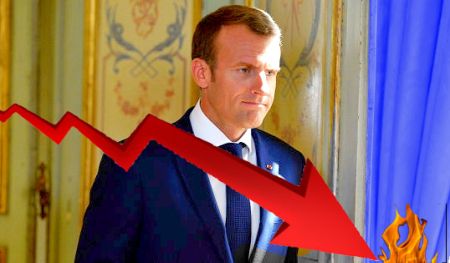
Macron 's popularity is now at its lowest after the Benalla state affair, which reveals serious dysfunctions in a Republic that can not help but that could be astonishing.
In the YouGov barometer for Le HuffPost and Cnews in August, the action of the President of the Republic is supported by only 27% of French, down five points from July!
No effect World Cup despite the coronation of the team of France. It must be said that "after a year of mandate, Emmanuel Macron disappointed, much disappointed
For, humiliations into exasperation, the behavior of the Head of State have dissatisfied, angry, tense, irritated ... Gay Pride pornographic Elysee for July 14, embarrassing exhibitionism of the celebration of the World Cup football and a few other incidents, caused by the goats who were elected at the Palais Bourbon in June 2017 in the wake of the presidential election, have done the rest.
The Benalla affair is in fact only a Macron affair, which testifies to the courtesy that the King had granted himself and granted to his courtiers. According to our sister Clara Maybac
The drama of the end of July around the actions of some of his staff hits a blow all the harder it is not the first receipt.
He loses points in each political formation. His management of the crisis, the successive lies of collaborators, the sudden denials or amnesias did not deceive anyone.
That they come to get me ... Just go to contemplate the pool of Fort Brégançon, a whim of the presidential couple.
|
|
|
|
|
|
|
|
| Garett Skyport for DayNewsWorld |
 |
BENALLAGATE
EMMANUEL MACRON SEE IT REPRESENT THE INVOICE OF THE MYSTIFICATION OF 2017?
|
|

Obviously, the last protrusion of Emmanuel Macron's playground, in the form of an arm of honor: "that they come to look for me" seems to have been revealing a mistake of tactics that will be expensive.
One of the answers came, against all odds, from the search of the offices of the Elysee. Never seen ! Remember?
In much more serious circumstances, Jacques Chirac had held the judges of instructions, come to search the palace of the Elysee, at a distance, in front of the doors of the Castle.
But the very first answer came from the newspaper "Le Monde" owned by the banker Matthieu Pigasse.
Matthieu Pigasse? Those who know him are still wondering if he is genius or imposture!
Matthieu Pigasse was born 50 years ago. Born in May 1968, it is an Enarque stranded in a merchant bank, but the most prestigious of them, the Lazard Bank that he manages 121 Boulevard Haussmann in Paris.
Matthieu Pigasse defines himself as a Punk banker, sailing without barriers, with rage in his heart and full pockets, between business, media and politics.
Everything is said about Matthieu Pigasse who nourished from his adolescence Elysian ambitions, the same at the same age as those of his enemy forever, Emmanuel Macron, his double in younger.
No wonder, therefore, that at the first misstep of the tenant of the Elysee, it is the World, via Ariane Chemin, who fired the first red ball, because the animal Pigasse has tenacious grudge.
It is not surprising that Matthieu Pigasse, who in his time had conquered Dominique Strauss Khan and who declares himself on the left, has repeatedly declared himself convinced, "that it was more interesting to advise countries in crisis rather than 'to be on the side of institutions'.
It is also known that Matthieu Pigasse and his newspaper le Monde, which he co-owns for several months with Xavier Niel, is still in the circles of power and its conquest.
It is therefore natural that Le Monde has supported Emmanuel Macron in 2017, Le Monde and Matthieu Pigasse himself as well as his friends around the world and their knowledge.
But Matthieu Pigasse had from the second round (he did not go to vote in the second round) warned "that there would be a second round because the story Macron is not over."
Here we are ! And this is why we must now try to understand the U-turn of the World (and Matthieu Pigasse) who sent a destructive missile on the existence and behavior of the Chairman's Screamer, who has just summarily invoked the Article 73 of the Code of Criminal Procedure in order to minimize the skewings of offenses he has committed.
The missile Ariane Path is not free, it is impossible today to believe that nobody (or people) has (together) pressed the button ...
The choice of Emmanuel Macron for the 2017 presidential elections was, it must be remembered, that of the High Public Service and the support of the media oligarchy, which via the Enchainé Duck had launched a few weeks before the first round, the raid that we know about François Fillon, a bad candidate who in addition defended himself like a sleeve.
But after a year in office, Emmanuel Macron disappointed, much disappointed
For, humiliations into exasperation, the behavior of the Head of State have displeased, angry, tense, irritated ...
The pornographic Gay Pride at the Elysée for July 14, the awkward exhibitionism of the celebration of the World Cup football and a few other incidents, caused by the goats who were elected at the Palais Bourbon in June 2017 in the stride of the presidential, did the rest.
The Benalla affair is in fact only a Macron affair, which testifies to the courtesy that the King had granted himself and granted to his courtiers.
The investigating judges gave the charge.
They had already, a few weeks earlier, spoiled the holidays of Murielle Pénicaud, the Minister of Labor, otherwise designated as the Shiva of the government, named after the Hindu goddess who represents with her firecracker hair, destruction for the purpose of creation of a new world, placing it under the status of assisted witness in the Business France affair (case related to the financing of Emmanuel Macron's election campaign), thus placing the summer of the President and his government under the sign " of a murderous summer ".
Except, that in any case, the Elysee is already Ko standing!
|
|
|
|
|
|
|
|
| Clara Mitchell for DayNewsWorld |
 |
FIRE BLOCKING MONTPARNASSE STATION
|
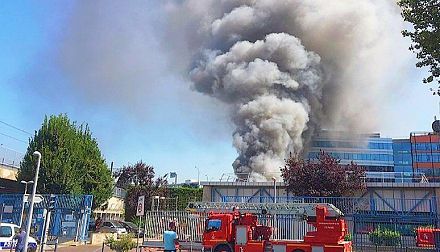
Friday, July 27, 2018, we could see in the Parisian sky a huge black smoke and an awful smell that came from Issy les Moulineaux around 11:30.
This fire was quickly stopped but caused the interruption of traffic train station Montparnasse.
Thousands of travelers are blocked. The trains start to work again.
Traffic should return to normal tomorrow. This is due to the electrical transformer company RTE that caught fire.
In addition, homes located nearby are still without electricity (Clamart, Chatillon, Vanves, Issy les Moulineaux). |
|
|
|
|
|
|
|
| Mia Kennedy for DayNewsWorld |
 |
EXCHANGE OF TEXTOS LIGHTING THE BENALLA CASE
|
|
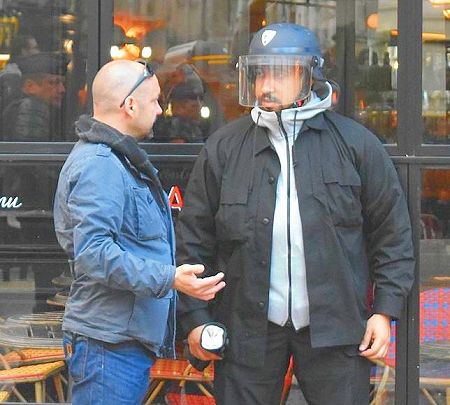
It is a series of SMS, that Le Monde has managed to obtain, which gives a new light to the Benalla affair occupying the French political scene for nearly a week. Finally, we know who proposed to the project manager at the Elysee then to go to the May Day demonstration equipped with police equipment.
According to the SMS exchanges consulted by the journalists of the daily newspaper it would be the chief of staff of the police headquarters, Laurent Simonin - also indicted in the procedure for "breach of professional secrecy" and "misappropriation of images from a videoprotection system "- which would have allowed Benalla to come to the demonstration.
Mr. Benalla was therefore invited not by the prefecture but by a senior officer of the prefecture, Laurent Simonin, who did not refer to his hierarchy.
On March 26, at 11:33 am, Mr. Simonin sent a text message to Mr. Benalla: "Hello Alexandre.
The first of May will see a major demonstration with a black block at the head of procession.
Like last Thursday, there will be hot moments between the far left and the police.
I will be responsible for May Day as I was last Thursday.
I suggest you to participate in the field with one of the intervention units as an observer if your schedule permits.
You told me to be interested and I already did it with the prefect Latron two years ago .
"You just have to warn Yann Drouet of your coming so that the prefect of police is aware," adds Mr. Simonin, referring to the former chief of staff of the police chief of Paris.
"If it's possible for you," says the SMS , "I'll take care of finding you a helmet, gas mask and other protections if you want. Good to you. Laurent ".
"Good warm-up for tomorrow"
Friday, April 27 in the late afternoon, Mr. Benalla sent, still via texting, his measurements to Mr. Simonin, for equipment.
Monday, April 30, at 7:36, Mr. Simonin informed Mr. Benalla that the "Censier School [was] evacuated in 35 minutes this morning at 04:30".
"Tolbiac record beaten and good warm-up for tomorrow.
We took a black block banner.
On Tuesday, May 1st, at 13:52, Mr. Simonin sends a text to Mr. Benalla to communicate "the number of your companion Philippe.
Call him when you arrive at rue de la Cité .
He attaches the coordinates of Philippe Mizerski, commissioner of the direction of the public order and the circulation (DOPC) to the Paris police prefecture which "framed" the Elysée project manager all the day of May 1st.
The reality of the events that have unfolded since then begins to clear, even if contradictions remain.
Alexandre Benalla said he received two days before May 1 a bag containing all the equipment he had during the event: "a helmet, a leather belt, a gas mask, a police armband and a blue coat marked police and a rank captain on it. He says he also received "rangers and a radio" but we do not know at this point who provided it.
The French daily newspaper Le Monde is once again on the initiative.
|
|
|
|
|
|
| Jenny Chase for DayNewsWorld |
 |
BENALLA CASE A CASE WHO SHAKES THE REPUBLIC
|
|
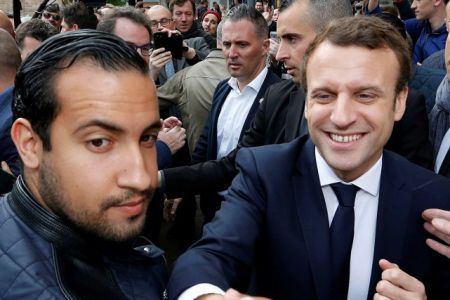
At the time we write, there has been a lot of water under the bridges since the Benalla affair broke out, in the evening of July 18, 2018, following the publication of an excellent article published by Le Monde under the pen of our sister Ariane Chemin.
But since then, the political class at first, then the whole of the French citizens went from surprise to surprise as the multiple twists which enamelled the political life for 5 days exploded.
Let's go back to the unfolding of the case and to the facts that have raised more and more vivid criticisms, even to mention the existence of a parallel police force under the orders of the Elysée.
And let us also observe beforehand that the affair could only break out thanks to the Press, which nevertheless had to wait for the cessation of the inertia of the services of the State due to the bridges of the month of May and that falls the pressure of the World Cup, so that everyone understands the seriousness of the situation.
So, the affair gets underway after the social media broadcast of images filmed by a former parliamentary candidate in Isère, showing Alexandre Benalla, beating up, after throwing him on the ground, a demonstrator present at the events of May 1, Place de la Contrescarpe in Paris. These images, become "viral" .It are further confirmed by the official videos.
And the scandal begins when we learn that in his capacity as Project Manager, Alexandre Benalla is also the bodyguard of the President of the Republic and responsible for the safety of his private and public travel. 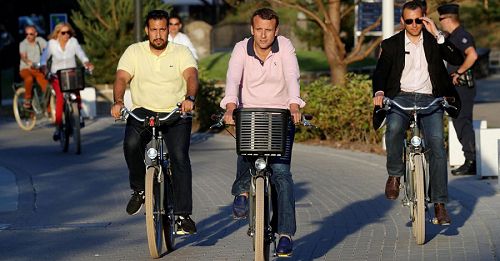
The tone goes up a notch in the afternoon of May 19 when after heated debate in the National Assembly, peppered with suspensions of meetings, the deputies of France Insoumise (Mélenchonistes) get the executive, put under pressure the creation of a commission of inquiry by transformation of the Commission of laws, this because of the urgency.
For its part, the Senate also sets up its own commission of investigations.
Since yesterday, Monday, July 23rd, (day of Saint Brigitte) the hearings began before the commissions of inquiry; that of the National Assembly, public, is diffused, is broadcasted on the chains of TV of information and that of Public Senate.
And we learn beautiful!
First of all, who is Alexandre Benalla?
The exact name of Alexandre Benalla is Lahcene Benalhia. Lahcene was born in Evreux in 1991. He is now 26 years old. He grew up in the Madeleine ZUP, a sensitive neighborhood of this well-known Norman town. His parents are from Morocco.
During his studies at the Collège Foch de l'Aigle, in the Oise, he acquired a reputation as a violent, impulsive, fiery brawler as witnessed by a former student. 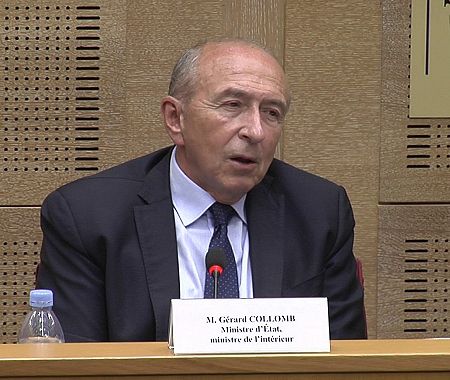
But Alexandre Benalla likes politics.
He obtained his Bac and at the end of two years of university studies, he joined the ranks of the Socialist Party in 2010 where he often provides security and policing operations during the party's demonstrations. .
In 2012, he puts himself at the service of the candidate Hollande; he is engaged during the campaign of the presidential elections and participates in the service of order of the meetings of the candidate. It is also François Hollande who would have helped him to frenchify his surname and his name.
During the term of François Hollande, he spent a few days as chauffeurs on behalf of Arnaud Montebourg who turned manu militari after he caused an accident in his presence and wanted to flee without recognizing his responsibility. (Hit and run).
Alexandre Benalla is among the first to join Emmanuel Macron when he declares his candidacy for the presidential elections of May 2017. We know the rest ... Emmanuel Macron elected, Alexandre Benalla is hired immediately as chargé de mission to the Presidency of the Republic. It is Patrick Strzodal who would have signed the decision, this in his soul and conscience, to hire the
Patrick Strzodal, who is a former prefect and who should claim his rights to retirement in October, assumed the role of fuse ...
Alexandre Benalla is said to be sensitive to the Muslim cause; in any case, what has just revealed a lawyer, usual defender of the great figures of banditry, Karim Achoui, who has been around for 2 years. Note that Karim Achoui who was removed from the Paris Bar in 2012 is now in Algiers.
So a security officer beats two protesters is certainly deplorable, but over the days we understood that the scandal was elsewhere, because it is the entire Macron system that these days is "indicted".
And we learn that Alexander Benalla is not just an obscure advisor to the President of the Republic; he is also a man of confidence, which earned him all the prebends that would have been granted to him and which are scandalous today.
Alexandre Benalla always accompanies Emmanuel Macron in his public but also private trips: he accompanies him to the sea, to the mountains ... he had to follow the Presidential couple during his holidays at Fort Brégançon. He performs these duties even though the President of the Republic enjoys the official protection of a dozen police officers. But it seems that it has become indispensable to Emmanuel Macron, to whom he gives daily special services ...
Because how to explain that a simple bodyguard benefits:
Of a Renault Talisman luxury car with flashing light Type VO
From an office apartment in Quai Branly, where François Mitterrand had housed his mistress and his daughter Mazarine
Access to the Command Room of the Presidency of the Republic
Access badge of the "vice presidency" level in the National Assembly (to terrorize the deputies in march who do not agree with the orders)
A recent firearms clearance (the previous two had been refused because of the bodyguard's personality
An unofficial title of "real chief of security" Emmanuel Macron, a function that allowed him to give orders to the police hierarchy that he "terrorized" it seems, acting like a little cowboy 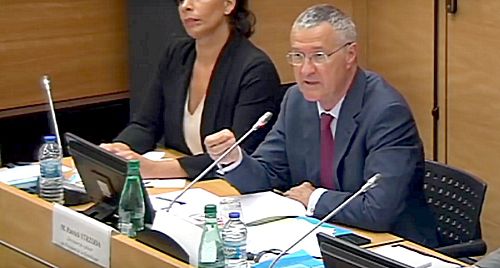
A possible future appointment to the functions of sub-prefect, nothing that to 26 years
More recently, a prominent role in the reorganization / overhaul of protection services (reform of the GSPR) with a long-term promise to take the lead
But because of all these prebends, abnormal in the world of police and intelligence, Chouchou-Kakou was not in the odor of sanctity and the first opportunity, relayed by the press allowed some to settle their accounts.
The case is turning to state scandal!
Except that for the Elysee there is no state affair, no case of parallel police, no business of barbouzes, but only a case of individual drift.
Despite the elements of language that were given to MEPs LREM statements of Gerard Columbus yesterday (Ben my colon, he knew nothing and ignored everything!) And that of the Prefect Michel Delpuech weakened the theory of the Elysee whose role appears more and more disturbing.
Over the days and hours, the future darkens for Emmanuel Macron, who sends his nerves to the front on the example of the Prime Minister, Edouard Philippe who has just been questioned vigorously this afternoon at the National Assembly during current issues in government.
Benalla could become the blessed lampblower to whom the blame will be attributed, all the faults, those which have already been worth to him to be dismissed without any other form of lawsuit and presented to a judge of instruction following a custody.
Funny game of fake asses!
This case, which reflects the feeling of all power that reigns at the Elysee since the election of Emmanuel Macron may end badly, the state lies becoming more and more obvious.
It may end badly indeed, because as everyone knows "the wife of Caesar should not be suspected".
|
|
|
|
| Clara Mitchell for DayNewsWorld |
 |
A SCANDAL OF STATE WITH THE CASE OF "COW BOY" BENALLA OR THE DYSFUNCTIONING OF THE JUPITERIAN POWER
|
|

Benalla was an obscure collaborator on paper, but now revelations from the world have suddenly brought him to light.
The setting aside of justice (until the revelations of the World), but also the way in which the sovereign powers aiming at the order and security of the presidency were organized around Alexandre Benalla, made this individual compromising for the Macronian power that hung up until now in its superb.
Alexandre Benalla has been indicted since Sunday, July 22 by an examining magistrate in charge of unraveling the skein of responsibility in the beating of protesters on May 1.
He is only 26 years old, and this young activist LREM was carried by the victory of his mentor in May 2017 to a post of "assistant to the chef de cabinet".
He became thanks to the confidence he enjoyed from Emmanuel Macron a powerful protagonist of power, omnipresent closer to the head of state and his wife.
He thus organized the small group in charge of the private sphere which each president gets, dedicated to the secret affairs of the head of the State. "Dedicated" to the Head of State on all fronts, it seems, he had previously served in the ranks of the police service of the PS before enjoying a nearby rarely seen for a civilian suddenly in charge of protecting the President of the Republic and his wife. Note that he had no real training in the matter ... But he had undeniable power in the device of the Elysee:
Permit to detain and then carry weapons, shooting sessions with the president's protection teams, boxing training with the GSPR, the Elysee car, access to the National Assembly to name a few. Alexandre Benalla also benefited from an office apartment in Branly quai, in a residence of the Republic in which 180 000 euros of work would have been done for the renovation.
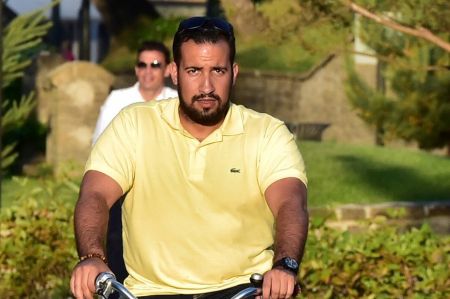 Why so many favors? Why so many favors?
Previously he lived in the small world of private security and he even renewed in 2014 his card CNAPS, the regulator of private security companies.
But his powers at the Elysee Palace were such that this 26-year-old man " could recruit or have a security officer fired with a simple snap of his fingers," as one union boss pointed out. Along with "privates" or bouncers of clubs, he had hired former military officers who had become cops, some of whom had become available to serve as big boys during Emmanuel Macron's campaign in 2017.
It was the " band of Alexander," as Le Monde described it: Vincent Crase, also indicted following the events of May 1; Pierre-Yves Baratier, a former soldier; Christian Guédon, a former GIGN, who became the 2017 campaign for En Marche, " siege" of Emmanuel Macron, that is to say, the security officer seated next to the driver of the president; Stéphane M., a soldier who became a police officer, also passed through the Macron campaign, propelled to the GSPR.
And, at the request of Macron, under the leadership of his dircab Patrick Strzoda (another secret adviser nicknamed "the ninja"), Benalla was entrusted with the task of thinking about a reorganization of the close protection of the Head of State and Security of the Elysée Palace - walking on the borders of the SDLP and the military command of the presidency!
We are witnessing the dysfunction of the Jupiterian power, which quickly fell out of favor ...
Do not be surprised! |
|
|
|
|
|
|
| Garett Skyport for DayNewsWorld |
 |
FRENCH NATIONAL DAY
|
 |
|
|
|
|
|
No comment !
|
|
| Paul Emison for DayNewsWorld |
 |
WILL MACRON / JUPITER BE OBLIGED
TO DESCEND FROM THE OLYMPE?
|
|
|
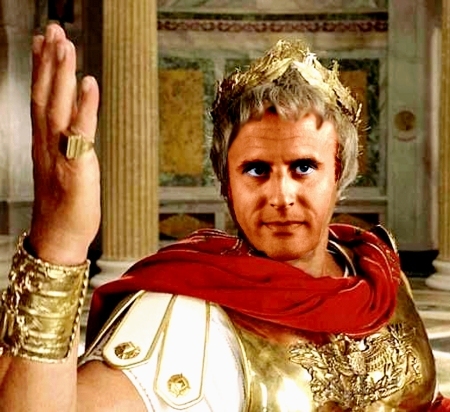
Elected with 66.10% of the votes in the second round of the presidential elections of 2017, Emmanuel Macron just dropped violently in the latest polls in late June / early July 2018).
At the beginning of July, the total number of French people who approve of his action is only 27%, ie almost 50% loss of confidence and esteem, in a little over a year, which is a lot!
The image of the President of the Republic has deteriorated considerably and his political action is more disavowed than ever. The French judge severely today the Head of State.
Controversy and disenchantment stem as much from Emmanuel Macron's personality as from the political choices he has made since he was elected.
Regarding his personality, the young 40-year-old head of state, impresses less and less; he passes in the eyes of the French "like a stranger to the Elysee".
His image has worn out very quickly and the French today describe a distant president, arrogant, contemptuous, haughty, too literary, without empathy and insensitive to their problems.
The micro-polemics on the lifestyle of the presidential couple that have multiplied in recent weeks, proceed from these feelings this while a number of French have seen, for most of them, their purchasing power back .
The replacement of the dishes of the Elysee has provoked violent criticism, since the average French learned by the Enchainé duck of June 27, 2018, that the Presidency of the Republic has 5365 pieces of dishes for large diners, to which you have to add myriads of plates, cups and saucers for more intimate lunches and dinners. The very official commission of proofing which did not finish its last inventory even enumerated 83 464 pieces of porcelain of Sèvres, at the disposal of the presidential residences. And there has never been a problem with broken parts; upon request, the Manufacture replaces for free and identically.
It was the same with the Brégançon pool, an equipment that the former Presidents of the Republic had never demanded so far. It is also mainly for this reason that the last whim of the couple Macron has been the subject of squeaky comments, the argument invoked officially concerning the protection of the intimacy of the couple not convinced, after the photos, in couples' swimwear, taken on a public beach and published in 2016 on the cover of Paris Match. Communication has its limits. The French have begun to understand his mechanics and his real usefulness.
Also proceeds from this analysis, the reframing at Mont Valerian a schoolboy, whose humiliation in front of cameras was very poorly perceived in the moment. But the lesson of respectability given by Emmanuel Macron to this young college student goes even worse in recent days following his official visit to Nigeria.
Back at the age of 26, when he had just been admitted to the ENA, (Léopold Serdar Senghor promotion) Emmanuel Macron did his obligatory internship at the French Embassy in Abuja (Nigeria). During this training he had visited Shine, an emblematic night club of the African capital. And it is remembering this time, he had his official visit of July 3, 2018, visit to which he wished to give a relaxed, far from the formal parties. Thus, having fallen jacket and tie he was spotted on the dance floor of the nigth-club, unfolding chthonic infernal swaying (expression from Greek mythology) not consistent with the image usually returned by a President of the Republic of good presentation. However lucidly claiming the grotesque of the situation, he also challenged the spectators present, saying that "what happens in Shine, stay in Shine". Close the bench! There is nothing to see ! The holidays have already begun for the Macron couple.
So, the warning that followed all these events turned out to be severe.
But the political choices of management and reform of the Head of State are also beginning to worry.
So far, the French had not yet wanted to speak too much, giving the President of the Republic time to implement the reforms he had proposed, "at the same time" before judging.
But gradually the first effects of the new policy are felt and in the absence of concrete results, with simultaneous tax levies increasingly unbearable, especially for the middle classes, the choices of the President of the rich have just raised winds bad who are turning against him.
The anti-macron waves have been observed by all polling institutes and the President of the Republic has already taken sea packets, fueled by this strong current of discontent.
Concretely, the policy of Emmanuel Macron is indeed considered globally inefficient and it is not certain that the speech before the congress will change this perception.
But this time on the other hand, the President of the Republic will not be able to say that it is the fault with Mélenchon .... or that of Laurent Wauqiez .... or even that of Marine Le Pen, which one or the other do not benefit from this turnaround for the moment.
In any case, mechanically it has provoked even more sarcasm and criticism, which the French have not failed to hear and understand ... or even to notice.
Even worse, even the "chiefs" supporters are beginning to doubt. The rating of Emmanuel Macron in early July 2018 fell by 7% among its supporters.
So that the embarrassment and worry begin to worry ... well ... the Elysee Palace, especially since Philippe Philippe also dropped by 5% in the same polls, the fall of the executive mechanically entailing Moreover, that of the entire government team (-3%) which records its lowest level with 27% of confidence votes.
Certainly at the beginning of summer, the French installed on the beaches will be a little disconnected from the reality and forget politics; but the fear of a crystallization of discontent begins to become clear among some of Emmanuel Macron's relatives.
The good student Macron disappeared radars and a good result of France on the occasion of the World Cup football will not be enough to go up the slope? This especially if it is still turbulent in the cabin of the plane France.
|
|
|
|
|
|
|
|
|
|
| Clara Mitchell for DayNewsWorld |
 |
FILES S WOULD HAVE ACCESS
AT NUCLEAR POWER PLANTS IN FRANCE
|
|

More than disturbing the observation made by a member of the parliamentary committee of inquiry on safety and security of facilities that made his report public Thursday, July 5:
S data have had access to nuclear power plants, according to a deputy.
"The experts heard [...] think that the danger could come from within" .
The findings of the report indicate:
"The surveys on the agents of EDF are well done, on the French subcontractors, quite well done but on the foreign subcontractors, they are very questionable"
is what points out the deputy of the Ardèche, Hervé Saulignac ( PS) vice-chairman of the parliamentary committee.
According to the member, "Obviously, there were S data that had access to the plants through subcontractors".
But knowing that the rate of outsourcing in French power plants is around 80 to 90% ...
|
|
|
|
|
|
|
|
| Alize Marion for DayNewsWorld |
 |
ROUSING TRIBUTE TO THE NATION
SIMONE VEIL TO THE PANTHEON
|
|

Simone Veil and her husband Antoine entered the Pantheon on Sunday after a moving ceremony.
Carried by members of the Republican Guard, the coffins of Simone and Antoine Veil went up, under a blazing sun, the street Soufflot towards the Pantheon, where the couple entered Sunday, July 1st. Simone Veil is the fifth woman to be buried in this republican temple, after Sophie Berthelot in 1907, Marie Cuie in 1995, Germaine Tillion and Geneviève de Gaulle-Anthonioz in 2015.
The convoy rocked from 10:30 am Sunday of the memorial of the Shoah, then stopped on the Edmond Rostand square, at the foot of the street Soufflot, covered with a blue carpet, color of peace and Europe. The coffins then went up the street, under the applause of a crowd of diverse, consisting of families, elderly but especially younger audiences, many came from 9 am Sunday morning.
The three major battles led by Simone Veil, the fifth woman on the list of Great Men, resulted in three judgments: the first for women's rights was the adoption of the law authorizing the voluntary termination of pregnancy, in 1974, the second for Europe, of which she was the first woman to take the presidency of parliament, in 1979 and the third to mark the memory of the deportation, of which she is one of the survivor.
On arrival at the Place du Pantheon, around 11:30 am, ninety-two singers sang "Le Chant des Marais" , then let the President of the Republic give a speech for half an hour. "The decision to bring Simone Veil to the Pantheon was not only mine but that of his family, but that of all French," said Emmanuel Macron early in his speech.
"She who had lived the unspeakable experience of savagery and arbitrariness knew that only dialogue and concord between peoples would prevent Auschwitz from reborn on the cold ashes of its victims, hammered the president. When she decides to testify, it is first of all to pay homage to the righteous of France. To recall the incredible courage of French families who, at the risk of their lives, had hidden Jewish children , "he adds.
Covered with the French flag, the coffins are then entered through the monumental portal of the Pantheon in the presence of the President of the Republic and his wife Brigitte, two sons still alive of the couple Veil and their descendants.
The bodies of Antoine and Simone Veil will be buried in the sixth vault of the Pantheon, Monday, July 2, during a private ceremony. They will sit alongside Jean Moulin, André Malraux, René Cassin and Jean Monnet.
The Parisians came in large numbers to pay a last tribute to one of the favorite personalities of the French .
|
|
|
|
|
|
|
|
| Emily Jackson for DayNewsWorld |
 |
CARAMBA!
THE FLOATING ARC FLAG ON PARIS
ON THE OCCASION OF THE "MARKET OF PRIDE"
|
|
 Preliminary declaration ... we wanted to use our freedom of expression, unconditional, by commenting on the events that took place in Paris, since the Fête de la Musique. And who says free, does not mean insulting, abusive, defamatory or discriminatory! We respected this principle! Preliminary declaration ... we wanted to use our freedom of expression, unconditional, by commenting on the events that took place in Paris, since the Fête de la Musique. And who says free, does not mean insulting, abusive, defamatory or discriminatory! We respected this principle!
Formerly Paris was the city of Enlightenment. It became these days the city Rainbow, to our astonishment ... critical.
It is Emmanuel Macron who opened his transformation, on June 21, 2018 on the occasion of the Festival of the Music and the adventures of the concert which took place in the courtyard of the Elysée where Nicola Sirkis occurred, the leader of the group "Indochina", concert after which the presidential couple agreed to be photographed surrounded by the LGBT community.
The example was given and ..
François de Rugy, the President of the National Assembly followed the movement by making the Palais Bourbon stand out with Rainbow flags.
But the Lady of the Town Hall who had not thought about it did not remain in the rest. She did even stronger! she painted the pedestrian crosswalks in the colors of the Rainbow, a story that the lesson returned by the feet in case it would not have entered by the head, forgetting stupidly that the dogs were likely to stain the multicolored bands.
In his Palace of Luxembourg, Gerard Larcher however did not flinch! The Senate has proudly planted, its traditional flags, the French flag and the European flag, with its twelve stars on a blue background, the flag symbol of the Virgin Mary as it appeared to Saint John in the Apocalypse: " a great sign appeared in the sky, a woman clothed with the sun, the moon under her feet and on her head a crown of twelve stars ... "
Gerard Larcher has therefore not yielded to LGBT lobbying, while in the same week the government had removed the religious associations from the official list of lobbies; but obviously lobbying is like cholesterol, there is good and bad?
Since, in retaliation, tags and graffiti infamous appeared here and there, in the Marais district more particularly.
 Anne Hidalgo therefore immediately took the necessary decisions to measure this outbreak of violence "which she said has disfigured Paris ." " The rainbow passages will be repainted " she just said, adding "we will even make some additional" , all to calm the fire that had declared on Paris during the press conference held by the LGBT spokesperson, a press conference that looked like a nuclear fire. Anne Hidalgo therefore immediately took the necessary decisions to measure this outbreak of violence "which she said has disfigured Paris ." " The rainbow passages will be repainted " she just said, adding "we will even make some additional" , all to calm the fire that had declared on Paris during the press conference held by the LGBT spokesperson, a press conference that looked like a nuclear fire.
All of these events, where everyone overplayed his score, sounded like a whirlwind that curled ridicule.
And in this room it is the presidential couple that has been the most pointed and has made the most costs.
And yet! The intention of Brigitte and Emmanuel had not been to add their chic and trendy stone to the Fête de la Musique! neglecting in passing the French / basic voter, supposedly uneducated who understands nothing of modern art!
It was to forget that France is in full social decomposition and that many French, not necessarily the least advised, declared themselves offended by the histrionism that the capital has just lived, all camps confused; a histrionism triggered by the highest level of the state and declined in a provocative way, sign in our opinion of the stubborn "peopolisante" presidential attitude that has prevailed since the 2017 elections.
And quickly, it appeared to us that these French were more and more numerous, in all strata of society.
Several voices that carry are indeed raised to criticize this situation, like the example of Philippe Bilgger, honorary magistrate, who has just declared: "I am tired of the decadence of a society which reverses with a masochistic voluptuousness and with the help of a higher authority, the fundamental values, even though the said higher authority should, on the contrary, maintain them, safeguard them and protect them from vulgarity ".
We share this point of view!
|
|
|
|
|
|
|
|
| Clara Mitchell for DayNewsWorld |
 |
CARAMBA !
LE DRAPEAU ARC EN CIEL A FLOTTE SUR PARIS A L’OCCASION
DE LA « MARCHE DES FIERTES »
Déclaration liminaire… nous avons voulu user de notre liberté d’expression, inconditionnelle, en commentant les événements qui se sont déroulés sur Paris, depuis la Fête de la Musique. Et qui dit libre, ne veut pas dire insultant, injurieux, diffamatoire ou discriminatoire ! Nous avons respecté ce principe !
Autrefois Paris était la ville des Lumières. Elle est devenue ces derniers jours la ville Arc en Ciel, à notre grand étonnement…critique.
C’est Emmanuel Macron qui a ouvert sa transformation, le 21 juin 2018 à l’occasion de la Fête de la Musique et des péripéties du concert qui s’est déroulé dans la cour de l’Elysée où s’est produit Nicola Sirkis, le leader du groupe « Indochine », concert à l’issue duquel le couple présidentiel a accepté de se faire photographier entouré de la communauté LGBT.
L’exemple était donné et ..
François de Rugy, le Président de l’Assemblée nationale a suivi le mouvement en faisant pavoiser le Palais Bourbon avec des drapeaux Arc en Ciel.
Mais la Dame de l’Hôtel de Ville qui n’y avait pas pensé n’est pas restée en reste. Elle a fait encore plus fort ! elle a fait peinturlurer les passages piétons aux couleurs de l’Arc en Ciel, histoire que la leçon rentre par les pieds au cas où elle ne serait pas entrée par la tête, oubliant étourdiment que les chiens étaient susceptibles de maculer les bandes multicolores.
Dans son Palais du Luxembourg, Gérard Larcher n’a toutefois pas bronché ! Le Sénat a conservé fièrement plantés, ses traditionnels drapeaux, le drapeau français tricolore et le drapeau européen, avec ses douze étoiles sur fond bleu, le drapeau symbole de la Vierge Marie telle qu’elle est apparue à Saint Jean dans l’Apocalypse : « un signe grandiose est apparu dans le ciel, une femme revêtue du soleil, la lune sous ses pieds et sur sa tête une couronne de douze étoiles … »
Gérard Larcher n’a donc pas cédé au lobbying LGBT, alors que dans la même semaine le gouvernement avait fait radier les associations religieuses de la liste officielles des lobbies ; mais visiblement le lobbying est comme le cholestérol, il y a le bon et le mauvais ?
Depuis, en représailles, des tags et des graffitis infâmes sont apparus ici et là, dans le quartier du Marais plus particulièrement.
Anne Hidalgo a donc pris immédiatement les décisions qui s’imposaient, à la mesures de cette flambée de violences « qui selon elle a défiguré Paris ». « Les passages Arc en Ciel seront repeints » vient-elle de déclarer, ajoutant « nous en feront même quelques uns supplémentaires » , tout ceci pour calmer l’incendie qui s’était déclaré sur Paris à l’occasion de la conférence de Presse tenue par la porte parole LGBT , conférence de Presse qui avait pris l’air d’un incendie nucléaire.
Tous ces événements ou chacun a surjoué sa partition ont ressemblé à une pantalonnade qui a frisé le ridicule.
Et dans cette pièce c’est le couple présidentiel qui a le plus été pointé du doigt et en a fait le plus les frais.
Et pourtant ! L’intention de Brigitte et Emmanuel n’avait-elle pas été d’ajouter leur pierre chic et branchée à la Fête de la Musique ! négligeant au passage le français/électeur de base, supposé inculte qui ne comprend rien à l’art...moderne !
C’était oublié que la France est en pleine décomposition sociale et que de nombreux français, pas forcement les moins avisés, se sont déclarés offensés par l’histrionisme que la capitale vient de vivre, tous camps confondus; un histrionisme déclenché par le plus haut niveau de l’Etat et décliné sur un mode provocateur, signe selon nous de l’attitude présidentielle « peopolisante » abrutissante qui règne depuis les élections de 2017.
Et rapidement, il nous est apparu que ces français étaient des plus en plus nombreux, dans toutes les strates de la société.
Plusieurs voix qui portent se sont en effet élevées pour critiquer cette situation, à l’exemple de Philippe Bilgger, magistrat honoraire, qui vient de déclarer : « j’en ai assez de la décadence d’une société qui inverse avec une volupté masochiste et avec le concours d’une autorité supérieure, les valeurs fondamentales, alors même que ladite autorité supérieure devrait au contraire les maintenir, les sauvegarder et les protéger de la vulgarité ».
Nous partageons ce point de vue !
Normal 0 21 false false false FR X-NONE X-NONE
A PART OF THE LIFELINE MIGRANTS
WELCOMED IN FRANCE
|
|
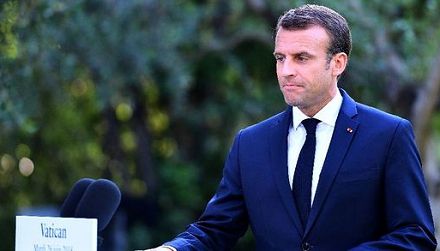
The ship Lifeline , chartered by the German NGO of the same name, has been waiting for a week for a port to welcome it. It will finally land in Malta, then the 230 migrants on board will be divided between several European countries, including France, Italy and Portugal.
Indeed, Emmanuel Macron announced that France would be part of states welcoming passengers at a press conference after his visit to the Vatican and his meeting with Pope Francis. "France will be one of the few (EU) member states that will take people who are now on the Lifeline when they arrive in a European port and OFPRA is already on its way to Malta to this mission, " confirmed Emmanuel Macron during a press conference at the Vatican.
He wanted to clarify that it will be "dozens of individuals per country" host. Economic migrants or political refugees? And the countries of Visegrad?
In parallel, the French president has not failed to criticize the German NGO Lifeline for having "acted in violation of all the rules and the Libyan coastguard" and "the game of smugglers". "We can not accept this situation durably because in the name of the humanitarian it means that there is no control. In the end we make the game of smugglers by reducing the cost of risks of passage, " said Emmanuel Macron.
Giuseppe Conte, President of the Italian Council of Ministers, which hosts part of the migrants, also denounced the non-compliance with the rules of international law and announced that the ship will be "subject to an investigation to ensure its nationality and respect rules of international law on the part of its crew " .
The fact remains that the President of the French Republic still sets no course in its migration policy and remains once again in the ambiguity, saying simply that France acts by European solidarity.
|
|
|
|
|
|
|
|
| Britney Delsey for DayNewsWorld |
 |
ACTIVE SOLIDARITY INCOME (RSA)
AGAINST SEVEN HOURS OF VOLUNTEERING
|
|
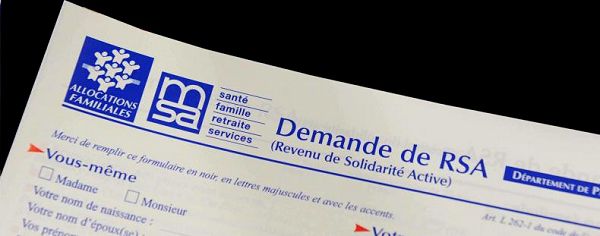
In 2016, the departmental council of Haut-Rhin, had taken a controversial step: to force the beneficiaries of the RSA to achieve seven hours of volunteer work per week in exchange for RSA Solidarity Income.
Anyone without resources can claim, without conditions.
This controversial measure by both the prefect of the time and the associations helping people in need was declared illegal by the Administrative Court of Nancy and its Court of Appeal in 2016.
But the highest French administrative court, the Council of State has considered, this Friday, June 15, that it is not illegal to ask beneficiaries to volunteer, at the risk of being deprived of the RSA.
Seven hours of volunteering a week in exchange for the RSA, which corresponds to an allowance of 550 euros per month: this is the measure validated by the Council of State
For the Conseil d'Etat, the court "erred in law by relying, in order to annul the deliberation (of the departmental council, ed), on the fact that the beneficiary of the active solidarity income (...) could not to be offered volunteer actions as part of his integration ".
The RSA must be "individually tailored", it can "legally provide for volunteer actions provided that they can contribute to a better professional integration of the beneficiary and remain compatible with the search for a job".
As a result, the decision of the Council of State breaks the cancellation of the deliberation and returns the case to the Administrative Court of Appeal of Nancy.
And beware of fraudsters who will simply be removed their allowance.
Now chaired by Brigitte Klinkert, "the departmental council of Haut-Rhin expresses its satisfaction following this decision" of the Council of State, he said in a statement. positive, "says the county council.
A method that could inspire other departments in the coming months.
|
|
|
|
|
|
|
|
| Kelly Donaldson for DayNewsWorld |
 |
OFF-STANDARD ARMS TRAFFIC
DETARTMENT IN ALL FRANCE
|
|

A survey of the interregional specialized jurisdiction of Rennes (Jirs), assisted by Europol, revealed a new illegal trade in the circles of clandestine resellers.
Assault rifles, handguns and submachine guns
An extraordinary netting carried out 600 gendarmes has allowed the seizure of 700 pieces.
In two days, the latter - accompanied by their colleagues specialized in the search for explosives and firearms and by the judicial division of the gendarmerie based in Pontoise - raided 113 homes.
No less than 250 handguns, more than thirty assault rifles and nearly 50 machine guns were found often hidden in false partitions, cut books or fake hot water balloons.
The operation also found explosives and rocket launchers. 90 suspects were heard and 34 people were taken into custody and 4 people were also indicted.
This is the third transaction in an investigation that began two years ago and is preceded by two other transactions.
In all not less than 1,900 weapons of all types were seized that "fed the crime" under cover of a collection ...
|
|
|
|
|
|
|
|
| Carl Delsey for DayNewsWorld |
 |
RAIL REFORM IN FRANCE VOTED BY TWO CHAMBERS OR UNTIL THE END OF THE INTER-UNION
|
|

Fight by railway workers since early April, the reform of the SNCF is in the process of being definitively adopted.
Indeed the National Assembly adopted last Wednesday, by a very large majority of 452 votes against 80, and 27 abstentions. In addition to the majority The Republic On the Move (LRM) -MoDem and the IDU-Agir, three quarters of the deputies The Republicans (LR) voted for. The leftist groups (Socialists, Communists and Insubmis) and the elected National Front spoke against it.
Ultimate step of his parliamentary career, the Senate will vote on Thursday the bill that plans to transform the SNCF into a public limited company, to set the schedule for opening to competition at the European level and to remove the hiring to the status of railway employee in the historical enterprise.
For three months the two chambers have retouched the text, in the background of consultations with the unions, with new guarantees for employees of the rail group including the non-transferability of the capital of SNCF, SNCF Réseau and SNCF Mobilités of the company to avoid a privatization feared and a recovery of 35 billion euros of debt claimed by the unions and screaming. In addition, the mechanism favoring the voluntary service of transferred employees has also been relaxed, since the unions have also obtained a right of return for the transferred railway workers. They can return to SNCF between three and eight years after their departure, and then regain their status if they wish. Concessions have been made by the government.
The final adoption Thursday in the Senate, a majority on the right, will be a formality, after the agreement between senators and senators on a common version of the text Monday joint committee.
Yet the inter-union continues to call the railroads to continue mobilization, already the longest for thirty years and to mobilize "massively" on June 28, the last day of the calendar set for work stoppages two days out of five.
What does she want more, since, on the other hand, the senators have not moved on the "intangible" principles of the reform, namely the opening to competition, the end of the railway status for new recruits and the legal transformation of the SNCF?
Since the beginning of the week, calls to stop the strike have multiplied. Unions "must measure their responsibility for all those who will pass the baccalaureate" next week, launched Tuesday. The CFDT-Cheminots and UNSA-Ferroviaire had also called Tuesday to suspend the conflict during the baccalaureate period (18 to 25 June inclusive), at least on TER and RER.
Minister of Transport, Elisabeth Borne, assured to have "conducted this reform with determination and in a spirit of dialogue", criticizing those seeking to "feed anger". Patrick Jeantet, CEO of SNCF Réseau, said "the strike was intended to change or for some to reject this law. This law has been passed by Parliament, so yes, this strike must stop. "
But the CGT-Cheminots seems to know only the extremism!
|
|
|
|
|
|
|
|
| Jaimie Potts for DayNewsWorld |
 |
REASONS FOR BLOCKING 14 REFINERIES
BY FRENCH FARMERS
|
|

The first agricultural union , the FNSEA, and the Jeunes Agriculteurs (JA) called on their members to occupy a total of 14 strategic sites for three renewable days.
Since Sunday evening, Total Feyzin refineries near Lyon, Gonfreville-l'Orcher near Le Havre and Grandpuits (Seine-et-Marne) are blocked by farmers like the oil depots of the Rhone port Edouard Herriot, the port of Rhine, as well as Vatry (Marne), Lespinasse near Toulouse, Coignières (Yvelines) and Cournon in the Puy-de-Dôme.Depuis Monday morning access to the deposits of Dunkirk (North), Grigny (Essonne) , Gennevilliers (Hauts-de-Seine) and another Total refinery in Donges (Loire-Atlantique) is also blocked.
Farmers are protesting unfair competition, they say, for palm oil imported from Southeast Asia into the biofuel market . Indeed the total biorefinery of La Mède (Bouches-du-Rhone), which should start this summer, provides for the import of 300 000 tonnes of palm oil for its operation to the detriment of the French biofuels sector. While imported palm oil costs 15% less than rapeseed oil or sunflower oil produced in France, the production of the latter does not respect French and European standards.
" We are not against imports (...) but we want, for the consumer, that the government is consistent and that imports are made to the same standards, otherwise French agriculture will disappear," said Samuel Vandaele, Secretary General of the JA.
For their part, the environmental associations denounce the use of palm oil for two reasons: it is partly responsible for the destruction of 2.3% of equatorial forests and, on the other hand, considered to be more harmful than diesel when used as fuel.
In a statement, the environmental association Greenpeace points to the decision of the Minister of Ecological Transition who validated the project. "Nicolas Hulot now appears to be in favor of agrofuels produced from palm oil, writes Greenpeace, while they are responsible for three times more emissions of greenhouse gases than fossil fuels" .
But the government does not intend to reconsider the authorization given to Total to import palm oil.
"The government will not come back on it," Travert said, adding that he will receive the FNSEA and the Jeunes Agriculteurs on Tuesday. France would not want to offend Indonesia and Malaysia, potential buyers of military equipment ...
However, no shortage of fuel is to be feared in the immediate future, with France having a total of seven refineries in operation as well as 200 fuel depots. In addition, the state has strategic stocks for three months.
|
|
|
|
|
|
|
|
| Alyson Braxton for DayNewsWorld |
 |
THE PAST INQUITING AN IRAQI REFUGEE
IN FRANCE
|
|

A 33-year-old Iraqi, who has been in France for more than a year, was arrested last March and indicted by anti-terrorist judges. The man would be a cadre of the Islamic State.
Indicted for "war crimes".
Ahmed H. is believed to have been a member of the Islamic State group, and even to have been a cadre. He is therefore indicted for "assassinations in connection with a terrorist enterprise" and for "war crimes" .
According to the Iraqi authorities, Ahmed H. administered the Samarra region, a zone north of Baghdad, on behalf of ISIS. He was reported to have mainly participated in the massacre of 1,700 people near Tikrit in June 2014. Hundreds of Iraqi army recruits, mostly Shiites, had been kidnapped and executed by jihadists one by one.
He had obtained refugee status in France.
In June 2016, Ahmed H., 33, arrived in France. The way in which he has reached Europe from Iraq is still unclear, but it seems that he has passed through Hungary and then Germany. He moved to France with his family. He obtained his refugee status in June 2017 from the French Office for the Protection of Refugees and Stateless Persons (Ofpra) and obtained in the process and as required by law, a ten-year resident card.
But since last February, he was the subject of an international arrest warrant.
Ahmed H. was given for dead, wrongly. According to the Iraqi authorities, he actually left the country at the end of 2014. Baghdad then alerted the international military coalition and France about its possible presence in Europe.
A red notice Interpol then triggered the action of intelligence and justice. From the summer of 2017, Ahmed H. is followed by the DGSI (Directorate General of Internal Security). He is under surveillance to be finally arrested on March 6 in Lisieux (Calvados), where he resided. On November 6, a judicial investigation is opened against him. He totally denies the accusations. But according to the investigators, Ahmed H. would have the profile of a former supporter of Daesh who belonged to anti-Shiite hate organizations.
France competent to judge the alleged terrorist.
While the facts of which he is accused took place in Iraq, the alleged terrorist will be judged in France, because of the "universal competence" . In other words, the French State is considered competent to try an offense that has not been committed on its territory, in the case of important crimes under international law.
In Iraq he was risking the death penalty.
|
|
|
|
|
|
|
| Alizé Marion for DayNewsWorld |
 |
VOTE BY THE SENATE OF THE RAIL REFORM
|
|
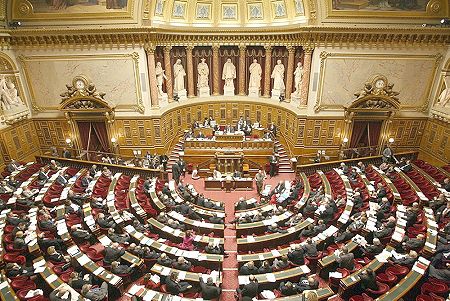
The SNCF reform was passed in first reading in the Senate on Tuesday, after a solemn vote on the bill "for a new railway pact". 240 senators spoke for the text, 85 against and 18 abstained.
The upper house introduced the amendments demanded by the reformist unions on the social aspect of the reform.
As soon as the text was examined in committee, the senators had modified the reform with four objectives: the preservation of TGV services deemed essential, the strengthening of the guarantees offered to employees, the means of a successful opening to competition and the maintenance of a high level of safety and security within the railway system.
In session, all of these provisions were confirmed, including the conclusion by the State of public service contracts to meet the objectives of regional development, the device favoring the volunteering of employees transferred, and the non-transferability of capital. SNCF, SNCF Réseau and SNCF Mobilités. The unions also obtained a right of return for the transferred railway workers. They can return to SNCF between three and eight years after their departure, and then regain their status if they wish.
At the same time, the state promised to take back the SNCF debt to the tune of 35 billion in order to reach the "balance (financial) before the end of the five-year period".
Senators, however, did not move on these "intangible" principles of the reform, namely the opening to competition, the end of the railway status for new recruits and the legal transformation of the SNCF.
The adoption of the reform amended by the Senate does not end the parliamentary marathon of the text. The bill will then continue its journey with a joint committee scheduled for June 13 that will allow members of Parliament and senators to try to agree on a common version.
Will the adoption, on Tuesday, of the law by the senators be able to put an end to a strike which already cost more than 400 million euros to the SNCF?
|
|
|
|
|
|
|
|
| Andrew Preston for DayNewsWorld |
 |
THE RIGHT ARM OF MACRON FOUND BY A COMPLAINT FOR CORRUPTION
|
|
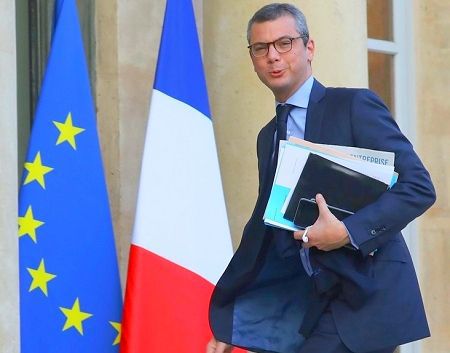
The Secretary General of the Elysée, Alexis Kohler, is in the crosshairs of justice for corruption. Alexis Kohler is the subject of a complaint for "illegal taking of interest" , "influence peddling" and "passive bribery" filed by the association Anticor at the national financial prosecutor's office this Friday because of his family ties with the shipowner Italian-Swiss MSC.
Based on Mediapart's revelations in early May, we learn that Alexis Kohler is linked to Aponte, the Italian family founder and owner of Mediterranean Shipping Company (MSC).
The mother of Alexis Kohler is none other than the first cousin of Rafaela Aponte, who co-founded MSC with her husband, Gianluigi, in 1970.
The senior official is a close cousin of the major shareholders of this shipping group.
The anti-corruption association intends to denounce the close family and professional ties that exist between the right arm of President Emmanuel Macron and the Italian-Swiss shipowner MSC, a major customer of the French shipyards of Saint-Nazaire.
Mr Kohler and the shipowner MSC, a private Italian-Swiss group, have been conducting a series of negotiations in recent years, while the senior official held key positions in the Ministry of Economy. Moreover when he "pantouflé" in August 2016, it was to join the group MSC in Geneva as financial director of this Italian group under Swiss law.
Christophe Castaner refused Monday to talk about "case" Alexis Kohler.
Alexis Kohler, the most powerful official in France, will he be accountable to justice?
|
|
|
|
|
|
|
|
| Britney Delsey for DayNewsWorld |
 |
REJECTION TO GRAVER IN LAW THE PROHIBITION
GLYPHOSATE BY THE ASSEMBLY IN FRANCE
|
|
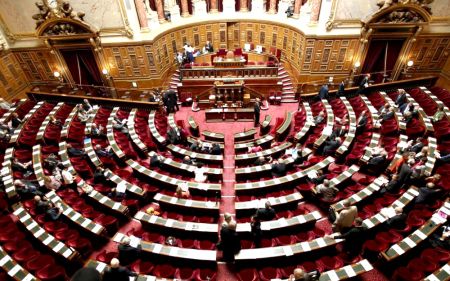
When Emmanuel Macron promised that the substance, the active ingredient of Monsanto Roundup, would be banned in France "as soon as alternatives have been found, and at the latest in three years" , the Assembly refused to inscribe the drug. 'ban of glyphosate in the law.
The National Assembly has voted against the herbicide ban during the review of the draft law on agriculture and food, the night of Monday to Tuesday.
The amendments to ban the herbicide for 2021 were criticized by the right and center deputies.
While Emmanuel Macron was committed to it, the parliamentarians did not follow the president.
The government wants a solution for farmers first. 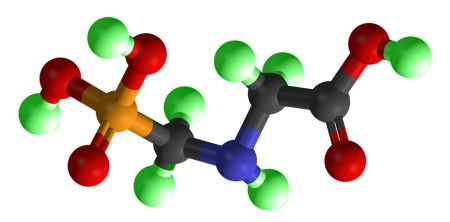
The amendments to ban the herbicide for 2021 were criticized by the right and center deputies.
To engrave in the marble of the law this prohibition was the goal of Matthieu Orphelin, deputy LREM and close to the minister of the ecological transition and solidarity, Nicolas Hulot. His amendment was rejected (20 deputies for, 63 against).
Yet this substance is considered probable carcinogen by the World Health Organization.
The proposal had, however, been accompanied by possible derogations so that certain sectors of agriculture do not suffer from a ban on this too brutal substance.
On the other hand, measures to reduce pesticides (prohibition of rebates, rebates and rebates, framing of advertising ...) may comfort the environmentalists since the deputies did not reject them.
They deigned to give their approval to an extension of the scope of the prohibition of neonicotinoids - insecticides "bee killers" - to chemical substances whose modes of action are identical.
On the backdrop of "scientific controversy over its dangerousness" , the Minister of Agriculture, Stéphane Travert considered it necessary to "deepen the knowledge" on glyphosate itself, in view of the next European debate.
The troubled relations between politics and some lobbies may have their share in this wait-and-see attitude denounced by the Member of Parliament for Deux-Sèvres, Delphine Batho.
|
|
|
|
|
|
|
|
| Kelly Donaldson for DayNewsWorld |
 |
THE FAR WEST IN THE FRENCH QUARTERS ?
|
|


The scene is that of a detective film ? !!
Well, think again she happened in a northern district of Marseille in France.
And these kinds of scenes never publicized are most frequent in these places where drug trafficking is rampant.
 Men armed with Kalashnikovs arrived at full speed in a black sedan in the city of Busserine, a sensitive city of Marseille located in the 14th district on Monday afternoon. Men armed with Kalashnikovs arrived at full speed in a black sedan in the city of Busserine, a sensitive city of Marseille located in the 14th district on Monday afternoon.
Then deploying as a commando fired shots in this hotbed of drug trafficking.
Arrival of the police officers of the anti-crime brigade:
The first police crew was intercepted by a car carrying two criminals - one armed with a "Kalashnikov long weapon", the other with a handgun - who fired at him. air, detailed police prefecture.
Arrival of a second police car in reinforcement: 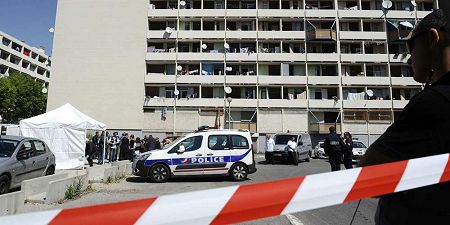 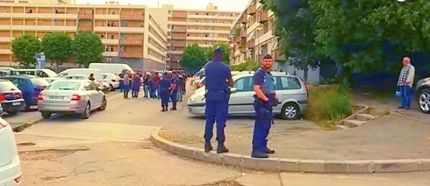
it is blocked by another vehicle with four men on board who "put in play" the two policemen, continued the same source.
One of the police then fired, smashing a window of the vehicle of the criminals who fled.
The public prosecutor Xavier Tarabeux reports that "according to a testimony, a person was abducted".
" The perpetrators were hooded," he added. The investigation was entrusted to the judicial police.
Are we still in a state of law?
|
|
|
|
|
|
|
|
| Paul Emison for DayNewsWorld |
 |
DISCUSSION ON SOCIAL AID IN FRANCE
|
|

Bercy, the French Ministry of Finance, on the lookout for the least economy to meet its budget commitments plank on the reduction of social assistance, ensures the site of the newspaper Le Monde Friday.
In this document, entitled "Transform social benefits" , and that Le Monde quotes repeatedly, the budget estimates that social assistance is "a growing weight" for public finances, in the order of 26% of expenditures .
Savings of 60 billion
"Several approaches" are "possible to control the dynamics," says the note, which reviews a series of tracks. Among them: a revision of the "eligibility rules" of benefits, a better consideration of people's wealth in the calculation of allowances, or deindexation of social minima on price trends.
The daily says it has obtained an internal memo from the budget department, responsible for drafting the budget of the French state, while the Ministry of Public Accounts was quick to say that these proposals did not emanate from the government !!
"This is a technical working document of the administration" , it was explained. According to the entourage of the Minister of Action and Public Accounts Gérald Darmanin, these are only "technical work" that would not be at the "political level".
Cautious precautions, gossip and lies: the Department of Budget within the Ministry of Bercy would study the freeze or decline of several social benefits, including scholarships on social criteria (BCS), the allowance adults with disabilities (AAH), the Personal Housing Assistants (APL) or Personal Assets Allowance (APA).
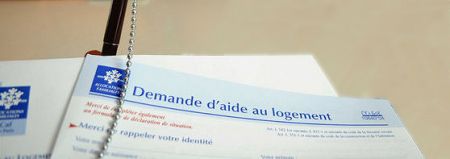 Potentially explosive tracks. Potentially explosive tracks.
These proposals come as the government has committed to implement large savings - initially estimated at 60 billion euros over the entire five-year period - to meet its objectives of reducing the fiscal deficit.
A committee of experts, called CAP 2022 (Public Action Committee 2022), is to submit a report listing the possible avenues for savings in the public sphere. A document expected at Matignon early June.
Among them: a revision of the "eligibility rules" of benefits, a better taking into account of people's wealth in the calculation of allowances, or the deindexation of social minima on the evolution of the prices to encourage the return to employment for handicapped.
Arbitrations during the summer!
Savings of 60 billion savings!
The personalized allowance for autonomy (APA). Several devices are thus reviewed, such as the personalized allowance for autonomy, intended for the elderly. This service could be refocused "on priority audiences" to ensure its "sustainability" in "a context of demographic aging , " suggests the note cited by Le Monde.
For personal housing assistance (APL) for students, considered "untargeted", failing to take into account the real resources of beneficiaries, the budget office proposes to integrate social minima and family benefits in the resources used to based on their calculation "as of 2020".
Finally, regarding the allowance for adults with disabilities (AAH), Bercy's internal note proposes to modify "the award criteria" , to "review the stock more periodically" of beneficiaries and to "effectively encourage the resumption of activity. "
Grumbling against the social policy of the government in France, stigmatized " president of the rich" Macron would have no qualms to continue to carry out an unjust policy against the poor and the middle classes as denounced his opponents, right as left.
These measures were in fact part of a "list of measures called the" museum of horrors ", measures generally refused by the predecessors and that we try to replace," explained former Budget Minister Christian Eckert .
A political time bomb about which Bercy's high-ranking civil servants, also known as "the guardians of the Treasury," a treasure of which they know how to gorge themselves on out-of-class salaries and non-taxable bonuses, would be well thought out!
|
|
|
|
|
|
|
|
| Garett Skyport for DayNewsWorld |
 |
POSSIBLE COMPLICES
IN THE ATTACK ON THE KNIFE IN PARIS
|
|
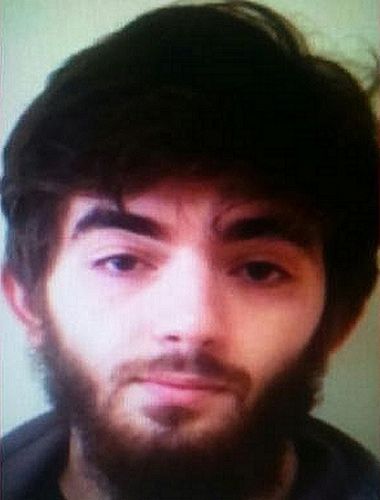
The investigators continue to search, Monday, May 14, the possible complicities that could benefit Khamzat Azimov, who sowed terror and killed a man Saturday night in full Paris.
This knife attack was claimed by the Islamic State.
A passerby, aged 29, was killed and four people were wounded in the knife attack on Saturday night near the Opera House in Paris. 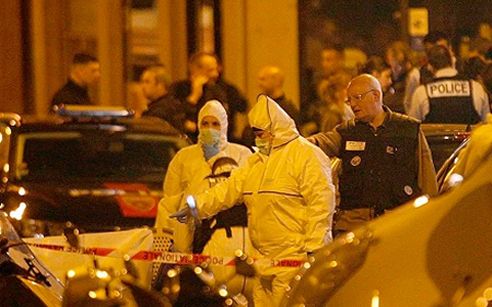
The assailant's parents were placed in custody on Sunday morning. The family home, located in the 18th arrondissement of the capital, was raided.
One of his friends, also aged 20, was arrested and detained in Strasbourg Sunday, where the Azimov family lived for several years. A search was conducted in the afternoon at the home of the individual.
This individual wanted to go fight and his girlfriend went to Syria.
|
|
|
|
|
|
|
|
| Paul Emison for DayNewsWorld |
 |
AT THE SNCF BIG DISTURBANCES AND
OPERATIONS FROZEN
|
|
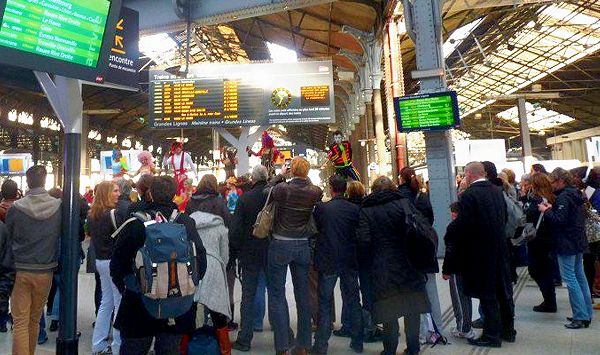
The day of May 13 promises to be "very difficult" for users of the SNCF.
The inter-union CGT-Unsa-SUD-Rail-CFDT wants to make Monday a big day against the reform of the SNCF.
The publication of the note opening a breach for possible privatization has set fire to the powders.
Laurent Berger claims that "the non-transferability" of the SNCF is enshrined in the law, the general secretary of the CFDT wanting to avoid a "cut-off sale" of the public railway group.
"I ask that the government say very clearly that there will be no transferability of any subsidiary whatsoever to the SNCF," he said on Cnews.
Laurent Berger reacts to the internal work note published by Le Parisien this Sunday. This document opens a breach for a possible privatization of the company.
To challenge the reform of the railway company, railway workers are called by the unions on a Monday "without trains and without a railwayman" .
According to the management, travelers can count on an average TGV, a TER or a Transilien out of three and Intercités out of five, with contrasting situations according to the regions.
By the very admission of the management, it is to be expected that the strikers called by the unions will be "a start of mobilization" on a day "without trains and without railway workers" and to vote for or against the railway reform.
The "very disturbed traffic" on all lines and non strikers prevented from going to work ...
|
|
|
|
|
|
|
|
| Carl Delsey for DayNewsWorld |
 |
ATTACK ON THE KNIFE IN PARIS BY A RECORD S
|
|
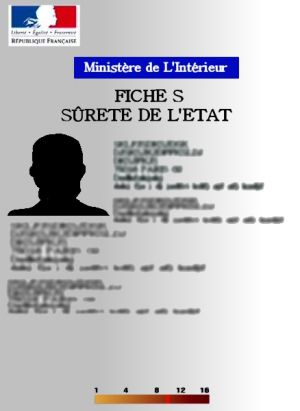
A knife attack claimed by the Islamic State took place shortly before 9 pm, rue Monsigny, in the 2nd arrondissement, in the heart of Paris, near the Opera House. It is a tourist area with bars, restaurants and theaters very popular on Saturday nights.
A man armed with a knife shouted "Allah Akbar" by killing a passerby and injuring four people in the middle of Paris, before being shot dead by the police.
The assailant born in Russia in 1997, then naturalized French was stuck S.
The author of the attack has been identified. This is a French, born in 1997 in Chechnya (Russia) with brown hair, wearing an uncut beard, dressed at the time of the facts of a black jogging pants. His parents were placed in custody Sunday morning. He did not have a criminal record.
"The author of the attack in Paris is a soldier of the Islamic State," according to a statement issued by the SITE Intelligence group to the agency EI Amaq.
Two of the four wounded, a 34-year-old man and a seriously injured 54-year-old woman, were transferred to Georges Pompidou Hospital in Paris. A 26-year-old woman and a 31-year-old man were also slightly injured.
The 34-year-old seriously wounded "was operated on" and "rescued," Interior Minister Gérard Collomb, who went to his bedside at the hospital on Sunday around 2 am, said. The other three wounded are "out of danger," he added.
A large security perimeter was quickly put in place.
The police officers on the scene were threatened by the attacker. One of the officers uses his electric impulse pistol before one of his colleagues fires twice and mortally wounds the assailant on rue Monsigny.
The investigation was opened for under "assassination" and "assassination attempts on persons holding public authority" , "in connection with a terrorist enterprise , " said the prosecutor of Paris.
On Twitter, the Minister of the Interior, Gerard Collomb, hailed "the coolness and responsiveness of police forces that neutralized the assailant." "My first thoughts are with the victims of this heinous act, " he wrote.
|
|
|
|
|
|
|
|
| Paul Emison for DayNewsWorld |
 |
FROM YEAR ONE TO YEAR TWO
FOR EMMANUEL MACRON
|
|
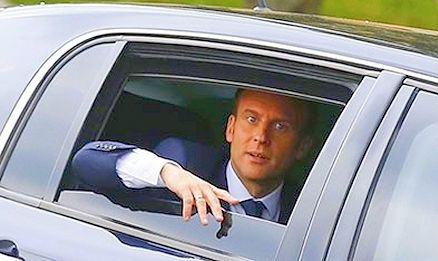
One year ago the President was at the Louvre Pyramid for his victory on May 7, 2017. In a year of reforms at a running pace the Head of State does not intend to give up and intends to continue his action at same tempo.
Emmanuel Macron assumes that he is pursuing the policy for which he was elected on May 7, 2017. " I do not take anyone traitor, I do what I said", he justifies regularly.
In a year, the President has dealt with many issues of the law of moralization of public life, the reform of the Labor Code by ordinances, the law of internal security, the asylum and immigration law, the reform of the SNCF, reform of unemployment insurance, through the reform of vocational training ... The list is long.
It is on the same path that the President wants to go for the second year without letting go of anything.
In 15 days announcements for the suburbs after the report of Jean-Louis Borloo handed. Then pension reform, a vast project: transforming the 37 special schemes into one system!
But these "reform at the hussar" leave behind tensions, discontent that exist for citizens who feel on the side of the road without landmarks ...
Prisons, hospitals must already be the subject of a plan planned for this summer.
The program of the second year of the exercise of power looks busy and led at the same pace.
But we will have to get results.
The first reforms of the President must begin to bear fruit for this second year, say political scientists.
If the first results are not felt, this leaves room for the counter-power, that is to say the expression of oppositions. There is already some doubt about the effects on purchasing power and unemployment.
The "great social project" promised for 2018 by Emmanuel Macron during his vows to the French, on December 31st, should allow to balance his action which has hitherto been rather addressed to the "leaders of the rope".
|
|
|
|
|
|
|
|
| Alyson Braxton for DayNewsWorld |
 |
THE CHALLENGE OF NEW CALEDONIA
|
|
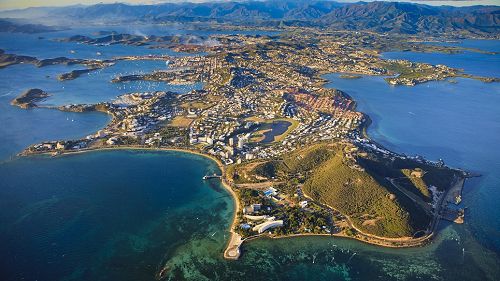
Emmanuel Macron has multiplied the memory sequences, while affirming not wanting to "take sides" at six months of referendum on the independence of New Caledonia. President above the fray, he refuses to take sides for the referendum.
After three days of travel, the presidential trip ended on Saturday with the speech of Emmanuel Macron.
In front of 300 guests handpicked, the President of the Republic played the equilibrists to not offend anyone while sending a strong signal to those who are tempted by independence. Emmanuel Macron does not give his preference:
"It is not up to the Head of State to take a stand on an issue that is only posed to Caledonians.
Such a position would only disturb and skew the debate. " Said the President of the Republic, before the government of New Caledonia, elected officials, customary leaders, representatives of civil society and economic leaders, meeting at the theater of the island, Noumea, Saturday.
But Emmanuel Macron however called the Caledonians to "do not back history," and recalled that France "would not be the same without New Caledonia . "
The president has not failed to recall the threat of another forced attachment in case of independence, a connection to China:
"In this part of the world, China is building its hegemony step by step. It is not a question of raising fears, but of looking at reality. "
The head of state then draw the future of a new Caledonia that would remain French, for which he has a development project and a role to play in its regional strategy.
He showed "the ambition of France in the great Indo-Pacific region, which includes New Caledonia" , "a vision" he "wants to carry for France and for all of you" .
He cited all the many ecological and economic potentialities of New Caledonia, such as nickel, tourism, bio-diversity and the sea.
The cleavage for or against independence continues to structure New Caledonian politics.
|
|
|
|
|
|
|
|
| Andrew Preston for DayNewsWorld |
 |
MACRON PARTY OR 160 000 PARTICIPANTS
ACCORDING TO THE ORGANIZERS
|
|
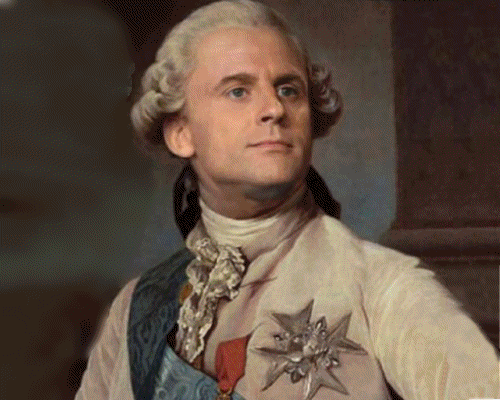
On Friday Jean-Luc Mélenchon had promised a "moment of quiet fraternity" to "send a clear message to (Emmanuel) Macron and the economic circles around him, that of determination and the will not to yield anything" .
Jean-Luc Mélenchon spoke at the parade, calling for a new day of mobilization at the end of the month by launching: "May 26, by the millions, surge, be the human tide that changes history! ".
François Ruffin wanted "a place of festive protest" : this Saturday, several thousand protesters, 160,000 according to the organizers, gathered on the Place de l'Opera in Paris.
An orchestra has set up in front of the Garnier opera house, and in the neighborhoods the shops have remained open to make "the party in Macron", at the call of France's deputy François Ruffin.
The procession has shaken in calm child and should end around 8 pm with another concert, Place de la Bastille.
Some 2,000 police and gendarmes are on the ground to prevent the black blocks from getting into the procession, as was the case on May 1st. Four arrests on the sidelines of the demonstration. Four individuals were arrested for "carrying a prohibited weapon", as part of "preventive controls", says the Paris police headquarters.
Some protesters came with their family, and picnics in the middle of banners with LFI slogans:
" Down with the president of the rich," "no to the social coup," "for ecological planning," "Manif pot-au-feu, it's even better warmed."
Other events take place in Toulouse, Bordeaux, Strasbourg and Rennes.
|
|
|
|
|
|
|
|
| Britney Delsey for DayNewsWorld |
 |
"MACRON FESTIVAL" OR THE MOBILIZATION OF 2,000 MEMBERS OF FORCES OF THE ORDER
|
|
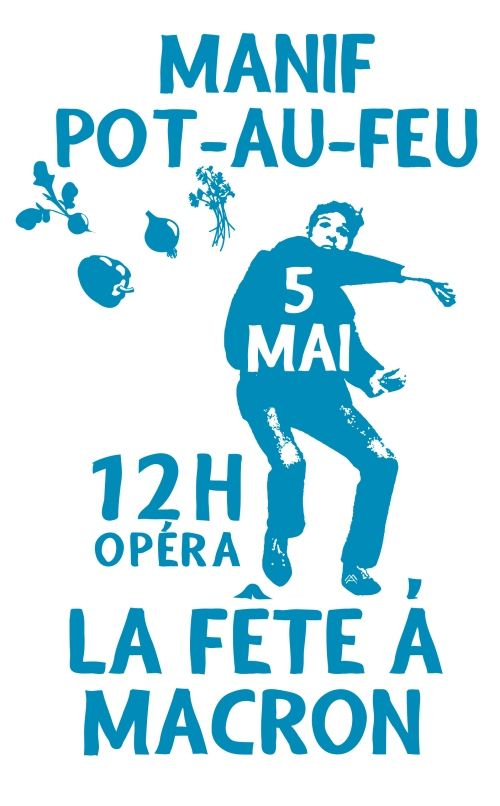
Paris police chief Michel Delpuech announced on Friday (May 4th) that 2,000 gendarmes and policemen would be mobilized to provide security during the "Macron Feast" organized on Saturday May 5th at the initiative of French MP François Ruffin.
Michel Delpuech confirmed the announcement of Gerard Collomb "a consistent and powerful device" composed of 2,000 members of the police will be deployed Saturday, as part of the event planned to "party at Macron" organized in Paris announced the police chief on Friday, May 4.
"This is the translation of the extra effort the government wants ," he added.
This is a more important device than the 1,500 men mobilized to ensure the safety of the May Day demonstration, which could not prevent the serious violence that resulted in nearly 300 arrests and 109 police custody. .
In the aftermath of an urban guerrilla caused by some 1,200 "black blocks" of which only 7 were retained, profiles surprising as a centralist among others ...
At the parade of May 1, the Minister of the Interior, Gerard Collomb, under fire of the critics, had promised "even more forces of the order at the next demonstrations"
On the initiative of the unrepresented deputy François Ruffin, Saturday's demonstration to "party at Macron" will take place
"in a particular context following the violence and abuse committed during the demonstration on May 1 by a black block of 1,200 people, " said the prefect.
But no call for violence on social networks.
But, "there is every reason to think that individuals (...) will try again to integrate into the demonstrations to constitute a black bloc. "
He added threat of black blocks so far.
By cons requisitions of the prosecutor, checks may be conducted "upstream" of the event for the arrest of "all persons" carrying objects that may constitute weapons by destination.
The procession will leave the Place de l'Opera to reach the Place de la Bastille and disperse at Bastille around 19 hours. The organizers' order service will consist of 150 people, Delpuech said, citing figures provided by Ruffin.
|
|
|
|
|
|
|
|
| Alyson Braxton pour DayNewsWorld |
 |
EMMANUEL MACRON A PRESIDENT
WHO HAS A GREAT MAJORITY OF FRENCH
|
|
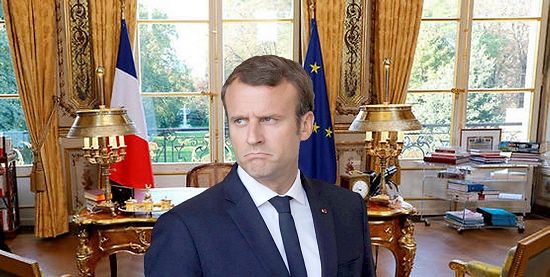
One year ago, the head of state did not convince the majority of French people. Far from it, he is overwhelmed by criticism even if he is credited with having restored the presidential function damaged by François Hollande.
Authoritarian and bonapartist, his aura suffers from a poor social and economic record.
Behind an action that wants to follow the speed of globalization, no one knows his overall vision. Does he know him himself?
A myriad of decisions, laws, reforms, most often passed into force, join together, as well as the dissatisfaction that some would like corporatists, begin to aggregate. Reform of the Labor Code, reform of the baccalaureate, doubling of classes in CP, redesign of the ISF, reform of apprenticeship and vocational training, hardened immigration laws, removal of the RSI, reform of the SNCF. .
The daily life of the French is becoming more and more difficult and they do not perceive the positive consequences: amputations of pensions for some, strike in a hurry, occupation of universities, a form of confusion and discontent set in.
The label of president of the rich and cities for nearly two thirds of the French population sticks to the skin. Emmanuel Macron's desire to demonstrate the opposite with well-targeted movements in deep France does not change his perception. Carabistouilles certainly but where is my dictionary. These varied and diverse stagings that break with tradition make him an effective President ask the French?
For the economy the rise in public spending of 0.6% is disturbing. .
The French social model seems to be crumbling ...
To this we add the revelations that start to transpire in the press ... on the financing of his presidential campaign ...
TO BE CONTINUED...
|
|
|
|
|
|
|
|
| Garett Skyport for DayNewsWorld |
 |
UNIVERSAL NATIONAL SERVICE
OR A PREPARATION FOR ACTIVE LIFE
|
|

The project is more social than military, according to Emmanuel Macron. Thus, it would be possible to prepare young people for " their entry into professional life as in their life as a citizen," he says. This service would be a means of " detecting difficulties, particularly illiteracy".
A mandatory month for an entire age group, from age sixteen: these are the methods recommended by a report on the implementation of the National Universal Service (SNU) last Thursday to the Head of State.
The service would include a mandatory phase of about a month, part of which would be in boarding, followed by an optional phase geared towards commitment. The mandatory period will be devoted to sports activities, teaching first aid and reflexes in case of crisis, as well as the transmission of civic and republican values.
The working group chaired by General Daniel Menaouine advocates the establishment of a period of "brewing" in an internship dedicated to learning first aid and sports activities. The military character of the SNU would therefore be very distant. Out of the question for example to learn the handling of weapons.
Even if the republican melting pot does not work, society breaks down and class differences become more pronounced, the learning of life in common, social cohesion will not be achieved through this record-breaking time. a month in a boarding school. This "service" of one month would be the only one of obligatory nature, the commitment by the civic service or the reserve remaining based on the voluntary one. For the military it is clear that they " do not have to train citizen-soldiers who will never fight, nor to put in the right way 800 young people supposedly little engaged" .
In addition, the problem of the infrastructure and supervision necessary to accommodate 800,000 young people each year remains for its part. Who to take care of it? The report also recommends that " defense education" be provided in middle and high schools. ..
The cost is estimated between 2.4 and 3.1 billion euros per year, up to 10 billion including the infrastructure ... but the military already very solicited and lack of means worry. The executive, however, assured that the blow of this device would not be taken from the budget of the Defense. So how budgeted?
What is the feasibility of the promise of candidate Macron. As a result, there are "significant reserves" , including the price of the project, and the effectiveness of a project on "one month".
|
|
|
|
|
|
|
|
| Andrew Preston for DayNewsWorld |
 |
MONT SAINT-MICHEL EVACUATED
TO SEARCH FOR A SUSPECT
|
|
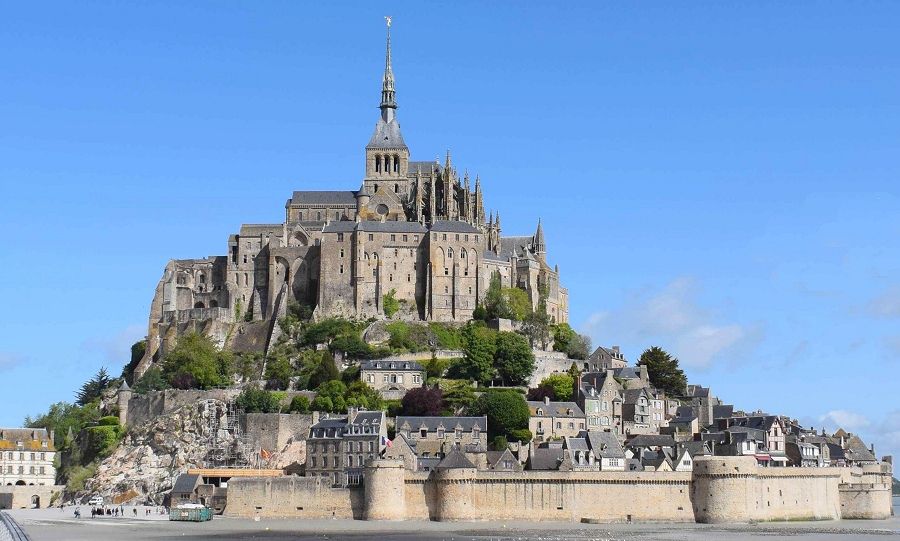
Mont-Saint-Michel was evacuated this Sunday morning. The gendarmes then blocked access to the "Merveille" to search the monument. These "precautionary" measures were taken after an individual made threats against the police this morning on the edge of the Mount and once entered the enclosure. The search having given nothing, the prefect authorized the reopening of the places.
Some witnesses speak of a dark-robed man crying to "kill cops". The traders gave the alert.
"I then ordered the evacuation of the Mont as a precaution , explained the Prefect of the Channel, Jean-Marc Sabathé, because nobody knows the real intentions of this individual. I also raked house by house to make sure it is not there.
About 50 gendarmes were deployed, two helicopters flew over Mount and the Caen Research Section was seized.
At approximately 11:30, the site was evacuated. Only the religious communities remained confined in the abbey, protected by the gendarmes. Religious services were canceled. The abbey was searched, as were the houses and shops.
. It would be "a young man between 20 and 30 years who was dressed in a white t-shirt and dark pants," according to a photo taken by a firefighter. He would also carry a backpack.
The video surveillance tapes were peeled by the investigators, but nothing has filtered so far.
The public prosecutor of Coutances, Cyril Lacombe, announced the opening of a flagrance investigation opened for death threats against a person depositary of the public authority.
The following is what the préfet said: "I came to kill cop. "
|
|
|
|
|
|
|
|
| Boby Dean for DayNewsWorld |
 |
MANIFESTO AGAINST THE NEW
ANTISEMITISM IN FRANCE
|
| 300 personalities denounce " a low-noise ethnic cleansing". A manifesto "against the new anti-Semitism" published this Sunday in the columns of the Parisian demand that " the fight against this democratic bankruptcy" becomes "national cause".
" We demand that the fight against this democratic bankruptcy of anti-Semitism become a national cause before it is too late. Before France is no longer France, " reads in this text signed by politicians right and left (from former President Nicolas Sarkozy to Manuel Valls), artists (Charles Aznavour, Françoise Hardy), religious leaders and personalities.
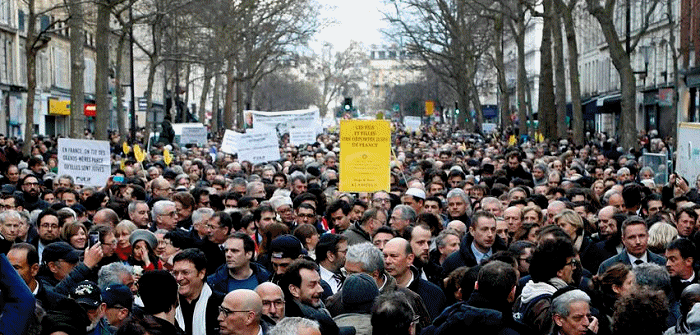 "In our recent history, eleven Jews have been murdered - and some tortured - because Jews by radical Islamists , " they write, referring to the assassination of Ilan Halimi in 2006, the killing in a Jewish school Toulouse in 2012, the attack on the Hyper Cacher in 2015, Sarah Halimi's death in Paris in 2017 and, recently, the murder of an octogenarian in the capital, Mireille Knoll. "In our recent history, eleven Jews have been murdered - and some tortured - because Jews by radical Islamists , " they write, referring to the assassination of Ilan Halimi in 2006, the killing in a Jewish school Toulouse in 2012, the attack on the Hyper Cacher in 2015, Sarah Halimi's death in Paris in 2017 and, recently, the murder of an octogenarian in the capital, Mireille Knoll.
"It's an ethnic cleansing"
" The Jewish French are 25 times more likely to be attacked than their fellow Muslims," reads the manifesto. " Ten percent of the Jewish citizens of Ile de France - that is about 50,000 people - have recently been forced to move because they were no longer safe in some cities and because their children could not more frequent school of the Republic. It is a low-level ethnic cleansing in the country of Emile Zola and Clemenceau " , according to this manifesto.
Targeting mainly this "new anti-Semitism", the signatories ask " that the verses of the Qur'an calling for the murder and punishment of Jews, Christians and unbelievers be decapitated by the theological authorities, as were the inconsistencies of the Bible and the Catholic anti-Semitism abolished by (the Council) Vatican II, so that no believer can rely on a sacred text to commit a crime ". " We expect the Islam of France to open the way," they write.
"We demand that the fight against this democratic bankruptcy of anti-Semitism become a national cause before it is too late. Before France is no longer France, " reads this text.
The manifesto denounces that "to the old anti-Semitism of the far right is added the anti-Semitism of a part of the radical left that found in anti-Zionism the alibi to turn the executioners of the Jews into victims of society" .
It also targets the neighborhoods, under the effect of an identity or even radical Islam where the Jew is viscerally hated. This is why the signatories asking "that the verses of the Koran calling for the murder and punishment of Jews, Christians and unbelievers are decimated by theological authorities, as were the inconsistencies of the Bible and the Catholic anti-Semitism abolished by (the council) Vatican II, so that no believer could rely on a sacred text to commit a crime"
. In its latest report, the National Consultative Commission on Human Rights (CNCDH) noted a "persistence of traditional anti-Semitic prejudices linking Jews to money, to power and accusing them of their communitarianism".
|
|
|
|
|
|
| Britney Delsey for DayNewsWorld |
 |
JUSTIN TRUDEAU IN OFFICIAL VISIT TO FRANCE
|
|
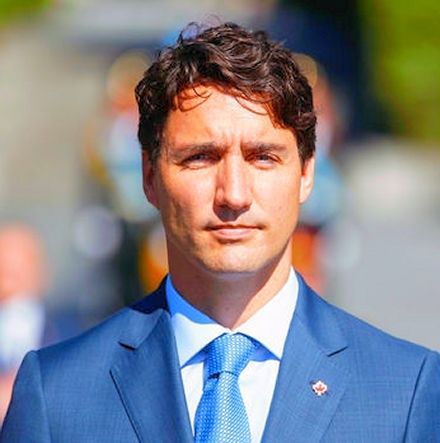
A while Justin Trudeau begins an official visit to France, during which he must speak in front of the National Assembly, the Canadian Prime Minister has no right to miss! His media image was largely damaged by the fiasco of his recent trips to China and India, where for two years he had been relatively flawless in his politically cool media strategy.
Justin Trudeau, whose youth, access to power and methods of communication are found in the career of Emmanuel Macron, will meet on Monday with his French counterpart.
In the footsteps of a Barack Obama, he perfectly knew how to take advantage of social networks, able to disseminate this image this impeccable image of the modern left.
During this new international tour, which also leads to Peru and Great Britain, Justin Trudeau makes a 48-hour stopover between Paris and Lima.
The Franco-Canadian relationship that the two states describe as "exceptional partnership", "solid, old, narrow collaboration" , was revealed last year at the G7, and will be highlighted during this visit.
In agreement on the fight against global warming with the implementation of the Paris agreement but also on the fight against terrorism. A few months ago, the French president convinced Canada to join him in Mali.
An official visit that will be made on the basis of many economic issues, including the recent Comprehensive Economic and Trade Agreement (CETA), concluded between Canada and the European Union, but also with, on the table, issues such as climate , Syria or relations with Russia.
Tuesday speech by the Canadian Prime Minister at the National Assembly ...
|
|
|
|
|
|
|
|
| Carl Delsey for DayNewsWorld |
 |
PASSING MACRON VIRAL WEAPONS
FROM THE TOP OF HIS SUPERB HAS NOT CONVINCED
|
|
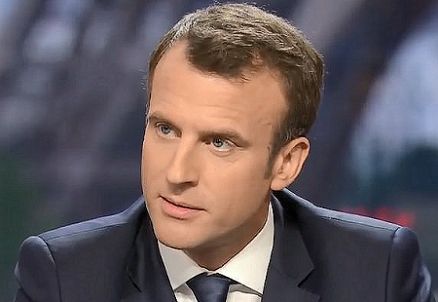
The virulent exchanges between Emmanuel Macron on one side and Jean-Jacques Bourdin and Edwy Plenel on the other raised the tension. Electric atmosphere: macronism no longer convinces!
3Your role is to make in this country that everything is more egalitarian, " attacks Jean-Jacques Bourdin.
After several extremely tense exchanges, Emmanuel Macron was questioned by Jean-Jacques Bourdin about the numerous injustices he sees in the country . "Am I going to tell you that everything in the country is right? No. Do I hear the anger of the employees? Yes, " hammered the head of state first. Then, while the journalist of RMC / BFMTV considered that the mission of the president was "very simple" in the matter, the tenant of the Elysee was annoyed. "Thank you for giving me instructions on what I should do. I am very sensitive to that. "
"Thank you for giving me instructions on what I should do," says Emmanuel Macron.
The journalists and the president surrendered to each other. Jean-Jacques Bourdin had promised not to spare the President of the Republic: he was waiting for him firmly. But it is Edwy Plenel who has most mistreated Emmanuel Macron during his interview this Sunday evening broadcast on BFMTV and Mediapart.
First exchange, first duel: questioned about Syria and the risk of participating in a military escalation by allying with Donald Trump, Emmanuel Macron dryly replied to the journalist marked left: "From where I am, we can not content to give moral lessons ".
Edwy Plenel reproaches him for having "divided" the country by multiplying the social fronts. "You called your movement In March, should not you have called it 'In Force'? Attacked Edwy Plenel. Replied the President of the Republic 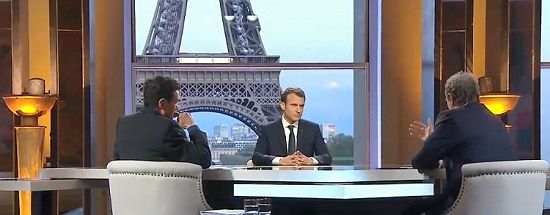
Asked by Edwy Plenel, a proponent of a constitutional change of regime, on the weakness of Parliament's powers, Emmanuel Macron invited him to present himself "in front of the people" if he wishes to "change the constitution".
The ZAD: another highlight with the Médiapart journalist "As in Larzac, things have been created. There are groups of young people who invent alternatives, they invent other solutions, including ecological , " says Edwy Plenel. Then the president gets angry with the zadistes who do not respect the republican laws.
"I'm going to sit in your living room and say it's an alternative farming project! " , Replies the president to the journalist who evokes the destruction of 100 names, a farm that had filed a collective agricultural project, not individual as claimed by the prefecture. "To illegally occupy a public domain for no reason is not the rule of law," says Macron. A small allusion to Minister Hulot and the president's reply fuse: "You are not the ventriloquist of any minister" asserts the president to Edwy Plenel.
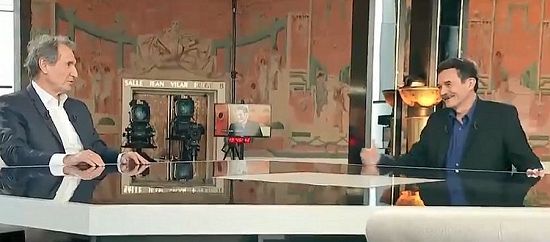 Driven to its limits, Emmanuel Macron went so far as to criticize the "intellectual dishonesty" of his detractors. Driven to its limits, Emmanuel Macron went so far as to criticize the "intellectual dishonesty" of his detractors.
Emmanuel Macron played a boxing match against two heavyweights in the news on Sunday night. Edwy Plenel, founder of Mediapart, and Jean-Jacques Bourdin, RMC / BFMTV's featured interviewer, interviewed him on many topics for two and a half hours. The spirits are warming up. Hard to agree on the set. Edwy Plenel gets annoyed. "You are not the teacher, and we are not the students," he says.
An interview with the American, the same style On the occasion of his first birthday as president, Plenel reminds Macron that he was not "elected by a majority membership in your program" .JP Bourdin asks him about the derives from Islam and the fear of the French face new morals introduced by Islam in France.
The President of the Republic repeatedly criticized the questions of journalists, deeming them "oriented" or "demagogic. "The questions may displease you but we are here to do it." Bourdin: We accept ?!
"Islam is there, many fellow citizens are afraid of this new fact. My deep conviction is to pacify religions. Next to it is feeding, radical Islam. We must distinguish between the two. "Young people tempted by jihad is one of the biggest challenges. The problem is that women and men use religion, associations, to inculcate that in young children. When this indoctrination goes as far as propaganda for terrorism, we can close them, " says Emmanuel Macron about radicalization.
A "reconquest work" in some neighborhoods was "one of the greatest challenges of our nation". "We must be intractable because it is a leprosy of society," denounced the head of state, speaking of the indoctrination that was spreading in some schools.
TO BE CONTINUED |
|
|
|
|
|
|
| Alyson Braxton for DayNewsWorld |
 |
THE GRUMBLING OF THE FRENCH GOES UP
|
|
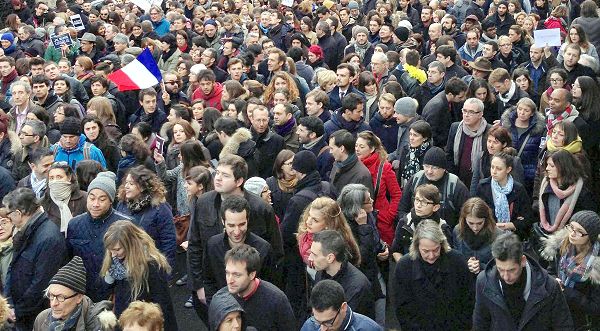
If three quarters of the French, according to the Elabe survey, say they are in favor of opening the SNCF to competition, considering that the public company "does not modernize sufficiently and improve its services", the government has not won part.
And the survey also reveals that 78% of respondents say that the various mobilizations facing the executive "will increase in the coming weeks" . And 74% anticipate a spread of this challenge to other categories of people. The staff of the Ephad, emergency workers, pensioners, civil servants, students, SNCF agents ... every week its strike, and at each strike the impassibility of the government leading drums beating its reforms with orders and according to the magic word "assuming" even with an imperturbable steadiness of reckless spending like that of the Prime Minister's € 350,000 chartered plane for gaining an hour's travel while more than 5,000 homeless people were counted in the only capital.
But the two-day strike sequence every five days will punctuate the next three months and may focus on expressions of social discontent.
"Today, the challenge goes beyond the SNCF and wins the whole of the policy of the government, analyzes Bernard Sananes, the president of Elabe. There is not yet coagulation of struggles, but already aggregation of discontent. "
For the executive, a crucial battle is going on with the continuation of the five-year period and its reforms. And the risk of a social showdown of a magnitude other than the only showdown at the SNCF.
Indeed the hotbeds of disputes multiply. On the corporate side, besides Carrefour, there is always Air France. There are also the universities where the challenge is spreading. The March 22 action day, which seven out of nine public service federations had called for, also confirmed a stir.
A communication battle
The battle of the SNCF will be hard. And how the executive will deal with it will depend on the outcome of the reforms.
In this battle, "the essential thing is to keep the opinion," said, at the announcement of the reform, a government adviser .. If the hostility to the strike retains a majority, short, among the French - 53% among them estimate the "unjustified" movement according to an Ifop poll for the "JDD" published Sunday - it has crumbled by 5 points in two weeks, even before the start of the intermittent strike.
On Monday, LREM parliamentarians have stepped up to the plate, such as Gabriel Attal, to denounce "gréviculture" , to brag about the "concessions" of the executive and to point to the "conservatism" of the strikers. In short, try to make public opinion a "transformation" battle against "blocking". And hope, as the government does in the face of the pace of the strike, to see, in the course of the games that will be replayed each time, an erosion of the movement.
But the unions of railwaymen threaten to harden the strike at the SNCF. On Thursday evening, after a new meeting with the government that lasted more than six hours, the unions of railway workers, who protest against the reform of rail, denounced a "masquerade" evening and promise to again a long strike. Users of the SNCF are not at the end of their sentence. .. And the government either ...
|
|
|
|
|
|
|
|
| Jenny Chase for DayNewsWorld |
 |
THE BATTLE OF THE TUESDAY RAIL
|
|

If the normal traffic Monday remains normal until Monday evening, as of Tuesday the big mess will start for the users of the SNCF and this during several months: 12% of the TGV  barely will be insured Tuesday by the SNCF 28% of transiliens, 13% of intercités and 30% of TER. barely will be insured Tuesday by the SNCF 28% of transiliens, 13% of intercités and 30% of TER.
And rebels on April 8 and 9, April 13 and 14, April 18 and 19, and so on. For its part, SUD-Rail calls for an indefinite strike, renewable by 24 hours, from Monday 20h.
A "strike that will be followed" according to the unions with a rate of 48% of strikers on Tuesday and 77% among drivers!
Thus, on the first day of the strike, nearly eight in ten train drivers will not work, and many lines will be idle or even stop.
The RERs are no exception to the rule with 50% of insured RER A, 28% of RER B insured, only 14% for RER D and 30% of RER E insured. No trains to Spain, Italy or Switzerland.Branches, such as the R or U lines not served at all !! A strike scheduled until June 28 ...
A strike of more than the SNCF which has a blocking power of the country and takes the users hostage. Kick-off especially of three months of bumpy strike, with a succession of days worked and days of strike. The "battle of the rail" is thus launched.
From Tuesday, April 3, railway workers are called to strike to protest against the reform of SNCF requested by the government.
If the strike against the reform of the French rail giant is expected to follow very closely, the fact remains that opening to European competition is coming very quickly.
An unprecedented standoff between SNCF management and railway workers regarding the accounting of strike days.
For the head of the SNCF, Guillaume Pépy, this strike will lastingly "penalize the life of many French" , and therefore considering that despite the "18 times two days", it is in his view a single strike, the change in the count of strike days will take this into account. Unacceptable for employees.
"The management of the SNCF wants to be able to retain [on wages note] the days of rest between the different movements, to weigh down the bill and socially break the strikers" ton Laurent Brun, the CGT Cheminots who intends to seize the Work inspection.
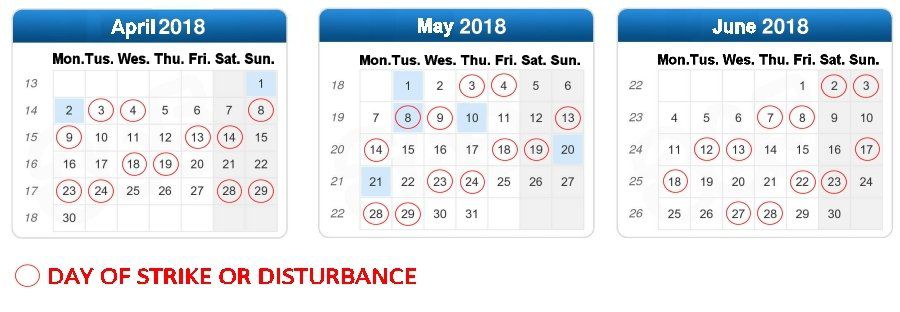
But is it more acceptable to take a population that has to go to work as a hostage to maintain the privileges of another century in a world in the throes of commercial change?
|
|
|
|
|
|
|
|
| Jenny Chase for DayNewsWorld |
 |
A MATERNAL SCHOOL INTENTIONALLY
BURNED IN A DISTRICT
|
"When you are told that education is a priority for our neighborhoods, that a child without school is a child without landmarks, that every time a thug destroys us, we are all dirty, listen to us " , she tweeted in the day Catherine Arenou, the LR mayor of the city.
|
|
|
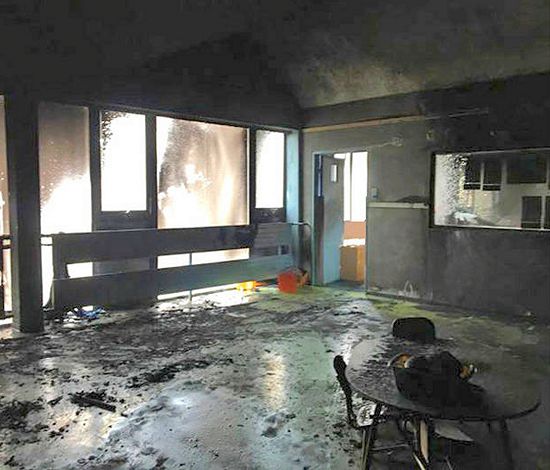
A fire ravaged several rooms of the Roland-Dorgelès kindergarten in Chanteloup-les-Vignes, in the Yvelines, on the night of Saturday to Sunday.
One of the four classes and the dormitory of the kindergarten school that housed 80 children was destroyed by the flames making the latter "unusable", according to Catherine Arenou, the mayor (LR) of the city. Kindergarten is just a ruin.
There is "nothing more unbearable than to attack a place of education for young children," lamented the mayor, who on Monday goes with his deputies and city employees to clean up and save what can still be furniture.
Arson: The school's doors were fractured that night, and firefighters arrived on the scene. The police of Conflans-Sainte-Honorine was in charge of the investigation
There is "nothing more unbearable than to attack a place of education of young children," reacted Catherine Arenou, the mayor LR of the city.
Note that this criminal act comes days after the resignation of Stéphane Gatignon, ecologist Mayor of Sevran (Seine-Saint-Denis), who intended to denounce the inadequacy of public policies in the suburbs.
|
|
|
|
|
|
| Carl Delsey for DayNewsWorld |
 |
TRIBUTE TO ARNAULD BELTRAME
"HIS MEMORY WILL LIVE, I WILL KEEP IT"
|
"Yes the commitment to serve and protect can go to the ultimate sacrifice, yes it makes sense and this sense gives meaning to our life," said Wednesday the President.
|
|
|

A national tribute was made this Wednesday to Arnaud Beltrame, policeman turned hero after giving his life to save a hostage, during the terrorist attacks in the Aude. 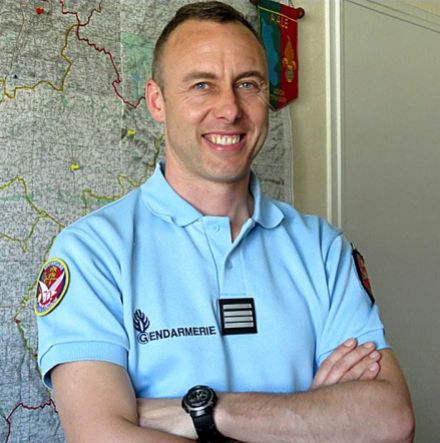
Emmanuel Macron pronounced a eulogy before giving him the legion of honor.
This national homage was paid to the Invalides to Lieutenant Colonel Arnaud Beltrame, who saved a hostage by voluntarily taking his place during the terrorist attacks in Carcassonne and Super U de Trèbes.
 Emmanuel Macron delivered a eulogy from a platform on the Esplanade des Invalides before handing the legion of honor to the gendarme posthumously. Emmanuel Macron delivered a eulogy from a platform on the Esplanade des Invalides before handing the legion of honor to the gendarme posthumously.
"To accept to die to save innocents is the intimate spring of this transcendence that bore it. There, was that greatness that stunned France. This greatness radiated from his person.
The President of the Republic soberly recalled the unfolding of the attack in Carcassonne and Thebes, pointing out that Colonel Beltrame had made of his life "a greater ideal and this ideal was France".
"He joins the brave procession of the heroes he cherished," he added.
"Yes, commitment makes sense," said the president, speaking to French youth.
The head of state assured his determination to fight this blind obscurantism that strikes innocent people.
"It's not only the terrorists we fight, it's also this everyday Islamism that is clandestinely acting on weak and unstable minds. It's an enemy »
 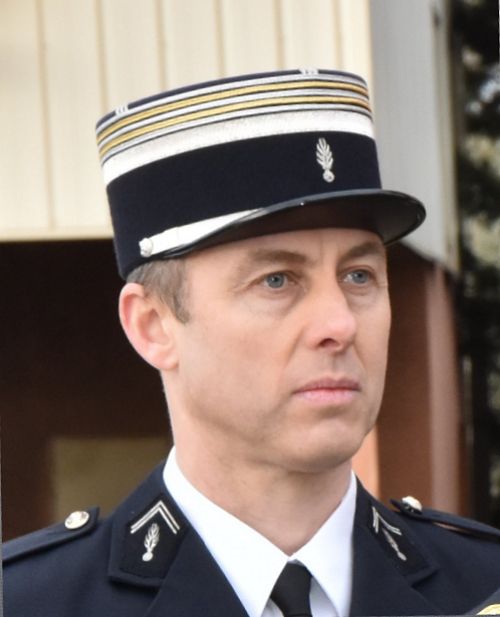 During the ceremony, he was elevated to the rank of Commander of the Legion of Honor. During the ceremony, he was elevated to the rank of Commander of the Legion of Honor.
He was also posthumously decorated with the medals of homeland security, the national gendarmerie and the one for act of courage and devotion as well as promoted colonel.
France salutes the ultimate sacrifice of this hero of the Fatherland who has spent all his life putting his energy at the service of the nation.
|
|
|
|
|
|
| Joanne Courbet for DayNewsWorld |
 |
A WHITE MARKET IN PARIS TO FIGHT AN INTOLERABLE ANTISEMITISM
|
| There is no word to describe the horrific murder of a Jewish Parisian octogenarian in his Paris apartment.
Two men were indicted on Tuesday for " antisemitic homicide" , four days after the murder of a Jewish woman in her Paris apartment.
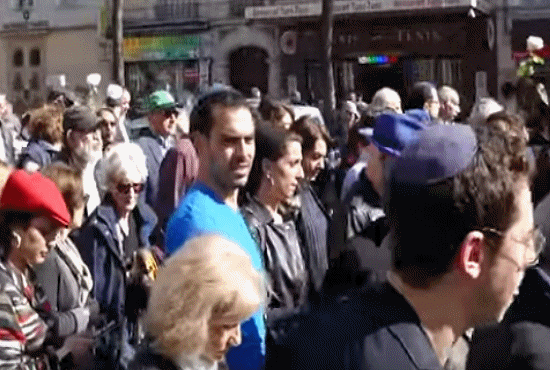 On Tuesday morning, March 27, 2018, the two suspects arrested during the weekend for the murder of an octogenarian were indicted for "intentional homicide on the basis of the true or supposed belonging of the victim to a religion and on no one vulnerable". They were remanded in accordance with the prosecution's submissions. On Tuesday morning, March 27, 2018, the two suspects arrested during the weekend for the murder of an octogenarian were indicted for "intentional homicide on the basis of the true or supposed belonging of the victim to a religion and on no one vulnerable". They were remanded in accordance with the prosecution's submissions.
The body of Mireille Knoll, 85 years old, was found stabbed and partially charred Friday just before 19:00 in her apartment in the eleventh arrondissement where she lived alone. In addition the suspects intended to put the fire to the apartment, fire starts having been located.
The first suspect, born in 1989 and known to the police for rape and sexual assault cases, is a neighbor who used to visit the victim. The second indicted, aged 21 and known for theft with violence, was also in the building on the day of the murder.
This death aroused great emotion within the Jewish community to which the victim belonged. "We are all really shocked. I do not understand how one can kill a woman who has no money, and lives in a HLM, " reacted the son of the victim.
The number of anti-Semitic acts remains worrying in France. In April 2017, Sarah Halimi, a 65-year-old Jewish woman, was killed in Paris by her neighbor with cries of "Allah Akbar", interspersed with insults and verses from the Koran. The young man had beaten her, before defenestrating her. It took several months of judicial struggle to ensure that the antisemitic character of the murder was finally retained by the investigating judge at the end of February 2018.
The Representative Council of Jewish Institutions in France (Crif), which expects "the authorities the utmost transparency in the ongoing investigation," called for a "white march" in tribute to the victim Wednesday afternoon in Paris.
The number of anti-Semitic acts is very worrying in France: the Jewish community in France, which represents less than 1% of the population, is the target of one third of the hate crimes recorded in the country. Violence is pointing upward with an increase in "acting out".
|
|
|
|
|
|
|
|
| Alyson Braxton for DayNewsWorld |
 |
WASTE IN ALL KINDS !
SPRING CLEANING
|
|

Spring has arrived and everywhere in France, municipalities or associations organize with their technical services or roads but especially with volunteers, who arouse admiration, cleaning, become traditional, spring, our environment.
Our admiration! First of all because the work is ungrateful and sometimes not very "ragouting" ; but also because it is discouraging, because year after year, they are the same or almost the same waste that we find on roadsides or highways, in ditches, along beaches, in footpaths etc. . always the same bottles of Coca Cola, always the same cans of beer, always the same bags of garbage that we got rid of not paying or paying less tax garbage collection, always the same reliefs of meal etc ..
When is not worse, because we often find large appliances, old mattresses, old furniture, computer waste, site rubble or more ...?
All developed countries are affected by this phenomenon, but thanks to these activists for the protection of our environment, near or farther, and cleaning operations that are renewed year after year, our environment has managed globally to maintain a similar appearance. clean.
In any case, the first criticisms relate to our way of life and our consumption patterns: too much packaging, too much planned obsolescence, too many paper ads that cause massive deforestation that we know, too much waste of all kinds ...
Certainly an awareness is taking place .... In the richest countries in particular but for the poorest, it is still something else. But!
These types of pollution have recently raised more serious questions in the wake of particularly disturbing situations that have just emerged; we will mention two.
- The existence of the plastic continent adrift in the Pacific. This "continent" was first identified by IFRIS researchers in an expedition led by Baptiste Monsaingeaon, a postdoctoral researcher and member of the Scientific Council of the "Garbage Lives" exhibition at Mucem in Marseille.
This continent is as big as 6 times the size of France. The boats that approach it, to study it, are forced to rush on like ice-breakers, so thick is it in the center. At first he was preoccupied by his proven or possible danger because he has been drifting for a long time in the middle of the Pacific Ocean. It is growing by 8 million tons of waste every year.
This clump of plastic waste, essentially, should be cleaned up according to the obligations in force in some specific environmental treaties, but this remains insufficient because many obligations are still to be defined, to write, to vote, to act in these treaties or in new treaties.
Outside the Annual General Meeting of the  United Nations that took place from 19 to 25 September 2017 (that is to say unofficially), the actors in the fight against this ecological disaster have called for the recognition of this island trash that could become ... the 196 th country member of the UN ... with his flag (?) his passport for all his citizens, namely the 118,000 people who signed the petition handed over to Antonio Guerres, Secretary General of the UN, all for a look and funding is finally granted to it. United Nations that took place from 19 to 25 September 2017 (that is to say unofficially), the actors in the fight against this ecological disaster have called for the recognition of this island trash that could become ... the 196 th country member of the UN ... with his flag (?) his passport for all his citizens, namely the 118,000 people who signed the petition handed over to Antonio Guerres, Secretary General of the UN, all for a look and funding is finally granted to it.
Beyond this, several initiatives have emerged to organize the collection of this waste, in particular that of P.Pod of the "Abondant Seas" Foundation or Océan Clean-up who propose a concept using marine currents to bring waste to recovery platforms.
A San Francisco-based company, "Méthod Products" has also organized the recovery of waste on this continent, waste that once collected are recycled plastic packaging for liquid soap.
It remains and will remain however to treat the microparticles of plastic, which absorbed by the body, are mutagenic and factor of cancers. The problem will remain on this point, more difficult to solve.
- Second worrying question, too. China has recently closed its "trash" . The decision has created panic in rich countries. The situation is similar to a disaster scenario for the environment of countries that used to export their waste to Cathay (former name given to China). China's decision took effect on January 1, 2018. It was announced about six months ago.
China was indeed until now the first destination for the recycling of waste and of course its decision has just created a wave of shock within the European Union (EU) which exported (although already summarily sorted) near 85% of its waste (especially plastic) to the Asian continent.
It is therefore urgent to find alternative or alternative solutions to other countries; we are already talking about India (Emmanuel Macron did he talk about the French garbage cans, at the foot of the Taj Mahal, during his visit from March 9 to 12 to the Indian president, Ram Nath Kovid, or did he remain that to more noble subjects (?): defense, security, space, energies ... for a deep cooperation.We also talk about Pakistan?
While waiting for future agreements, some companies already store their waste of recovery ... on parking lots ??
The EU unveiled in January 2018 that, as far as it is concerned, its recycling strategy for all packaging was the subject of a study within a horizon of ... 2030 for its operationality ?? It was time!
But by then?
Certainly the decision of China had a merit: to force everyone to question themselves and to invent new solutions to recycle waste or even to manufacture less. But it will take more personal discipline for everyone.
Because, HOMO DETRITUS only became aware of the situation very late.
Also, given the amount of waste that is collected each year on beaches, along roads and highways, in woods or isolated places, we can only congratulate (and welcome) the existence of these cleansing commandos who each year devote a minimum day to picking up the trash of everyday life that some of our fellow citizens, without education, and unscrupulous cast daily (the night most often for discretion and because at night all cats are gray). Ashamed !
|
|
|
|
|
|
|
|
| Clara Mitchell for DayNewsWorld |
 |
DEATH OF LIEUTENANT-COLONEL ARNAUD BELTRAME IN HIS HERITAGE
|
|

A rnaud Beltrame, the lieutenant-colonel of gendarmerie who had replaced a hostage held by the jihadist assailant in the Aude, died Saturday, bringing to four deaths the death toll of Radouane Lakdim deadly in Carcassonne and Trebes.
Shortly after this hostage-taking, the 45-year-old policeman gave himself up instead of a woman whom the assailant had taken as a "shield".
Seriously injured by the assailant, Arnaud Beltrame succumbed to his injuries.
Emmanuel Macron paid tribute to him, declaring that he had "fallen as a hero" and deserved "respect and admiration from the whole nation".
"Death for the fatherland. France will never forget her heroism, her bravery, her sacrifice " , had tweeted shortly before the Minister of the Interior Gerard Collomb.
According to his brother, Cédric Beltrame, "he gave his life for someone else, he certainly knew that he had practically no chance, he was nevertheless very aware of what he did" , did he testify on RTL?
|
|
|
|
|
|
|
|
| Andrew Preston for DayNewsWorld |
 |
THE COUNTER-ATTACK OF NICOLAS SARKOZY,
FORMER FRENCH PRESIDENT EXAMINED
|
|
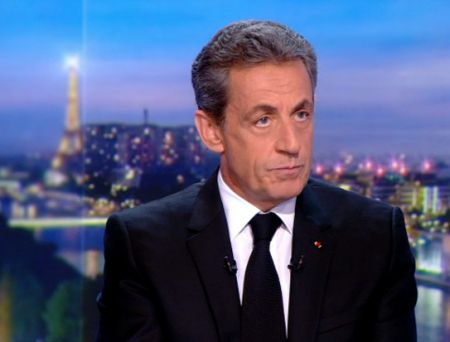
The former President of the Republic, indicted in the investigation of alleged Libyan financing of his 2007 campaign, came this Thursday evening to the newspaper of 20h TF1.
He appeared, although very tense, extremely offensive during his televised speech.
"First, I mean the depth of my indignation. I did not come to talk about politics. I owe the French the truth I never betrayed their trust, " he said in the preamble.
Speaking the day after the end of his detention in Nanterre, in the Hauts-de-Seine, Nicolas Sarkozy has essentially resumed elements already given to the investigating judges at the end of his two days of custody at view, according to the transcript published Thursday by the French newspaper Le Figaro.
"There is no material evidence, only hatred, mud, mediocrity, malice and slander," he added.
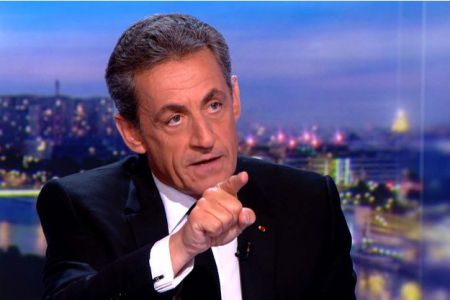 "I will break this band (...) and I do not intend to give him a centimeter of land," said Nicolas Sarkozy who wants to do battle and we can only understand it from a man who spent more than 150 hours in custody about funding his presidential campaign. "I will break this band (...) and I do not intend to give him a centimeter of land," said Nicolas Sarkozy who wants to do battle and we can only understand it from a man who spent more than 150 hours in custody about funding his presidential campaign.
He did not fail to make the history of the lawsuits around his 2007 presidential campaign.
"Between 2011 and 2013, I was sued and questioned about my 2007 campaign, this time because it would have been financed with money from the abuse of an old lady," she said. he said, recalling the case Liliane Bettencourt in which he benefited from a dismissal. ", he added.
For him it is France and the presidential office that are questioned and addressing his fellow citizens : "I ask a question to the French: how is it that there is no evidence?
There is only hatred, mud, mediocrity, slander .
The absence of material evidence is a revelation of the most important. The French news site Mediapart reportedly also reported a fake ....
Can we build an instruction on testimonies of sulfur men or belonging to the family of the former Libyan dictator Muammar Gaddafi?
Nicolas Sarkozy does not hesitate to call them "mafia, murderers and delinquents".
"It will take me a year, two years, ten years but I will break this band, I will not leave him an inch of ground" hammered the former President of the Republic determined.
"I will make my honor triumph," Nicolas Sarkozy said.
One can only understand the determination and the indignation of a former head of state who was subjected to a police custody for the least unjustified to the extent that he could have been heard as a free auditor ...
|
|
|
|
|
|
|
|
|
|
| Paul Emison for DayNewsWorld |
 |
THE STRIKE OF WEAR CHOSEN BY THE PATMINOTS INJUSTIFIED BY THE MAJORITY OF FRENCH
|
|

while that the Inter of Air France called for a strike on March 23 and 30, the rail unions (CGT, Unsa, CFDT, SUD-rail) opted for a strike of attrition calling for a strike of 36 days spread over three months. A long-term strike in an "innovative" mode, two days out of five. The mobilization runs from April 3 to June 28, which includes the spring break and the various bridges in May.
"The Inter union finds that the government has no desire to negotiate" and "takes the responsibility for (an) intensive conflict over a very long period," said Laurent Brun of the CGT Cheminots, at the end of a meeting of more than two hours with the three other unions. It is "an innovative mobilization", for its part pointed Didier Aubert of the CFDT Cheminots.
The representative unions of the SNCF do not shrink from a hard strike that will disrupt a public service borrowed daily by 4.5 million users they take as hostages. CGT, Unsa, SUD Rail and CFDT on Thursday called for an extendable strike "two days out of five as of April 3." The movement, which will last until June 28, will affect the spring break and the various bridges in May.
Thursday will be held in Paris a national demonstration of railwaymen, the same day as the officials. Unions expect 25,000 railway workers, almost one in five.
By choosing the use of a strike to oppose the will of the government to reform the SNCF not sure that the railways will create empathy of the French who 63% disapprove of this strategy and consider "unjustified" the threat of a strike that can be renewed according to an Odoxa survey for BFM Business, Challenges and Aviva Assurances.
Prime Minister Edouard Philippe has clearly asked SNCF to " align its costs with European standards", when "running a train in France is 30% more expensive than elsewhere". 
Especially since it is urgent to prepare the opening of the sector to competition in 2019.
Not only do railroaders refuse to abandon the status of railway workers for new entrants, but they also reject the "work program" given by SNCF President Guillaume Pepy to Transport Minister Élisabeth Borne for reorganization. from the public group. Mr. Pepy had explained that he planned to negotiate with his troops a " business pact" as La Poste did in 2015.
This program is based on seven pillars, the basis of the "strategic project" that management must present in July. He had mentioned the main topics he planned to tackle by the summer: encourage the versatility of trades and "build the jobs of tomorrow" , make work organization more flexible especially at the local level, strengthen industrial productivity, decentralize social dialogue and reduce costs. So many friction with trade union organizations already scalded by the presentation Wednesday in the Council of Ministers of the bill allowing the use of orders to accelerate the reform of the railway sector.
Minister of Transport Elisabeth Borne lamented a "decision that clearly aims to penalize users," deeming it "incomprehensible" while Guillaume Pepy, chairman of the public company, said the strike was "a little off from the concerted action."
The president of the company is committed to publish every day at 17 hours the list of trains that will circulate the next day. The head of SNCF also promised to set up passenger routing solutions based on carpooling, by mobilizing buses, coaches and VTCs. "We will be fully mobilized," he said, calling for a continuation of the discussions between the government and the unions because according to him, "there is a lot of grit to grind" to find a solution.
For the Minister of Relations with Parliament, Christophe Castaner, the risk of strike at the SNCF should not prevent the reform of the public company regretting that previous governments have retreated "for fear of demonstrations".
Valérie Pécresse, president (Republicans) of the Ile-de-France region, asked that the minimum service be "respected" . "We passed a law on minimum service [in 2007]. If the minimum service is not performed by the SNCF, it will refund travelers, " she said on RTL, referring to " one train in three at peak hours. "
Here is the provisional calendar of disturbances:
|
|
|
|
|
|
|
|
| Alyson Braxton for DayNewsWorld |
 |
CUTTING ANTITERRORIST NET IN FRANCE
|
|
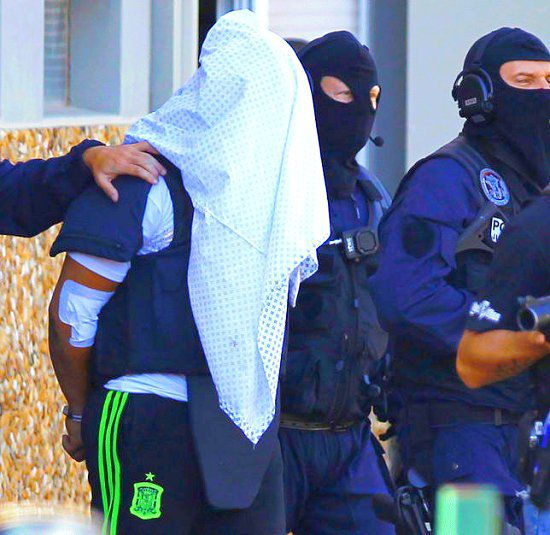
A new anti-terrorist trick.
The Grenoble PJ and the Anti-Terrorist Branch (Sdat) arrested on Tuesday morning in the Grenoble area four men and a woman suspected of being linked to Istrian jihadists left in recent years in Syria.
The operation, conducted on rogatory commission of a judge of Paris instruction, aims to clarify their links, including financial, with "two men left in Iraq-Syria", according to sources close to the case and judicial.
The five suspects were detained by police officers of the Counter-Terrorism Branch.
The 53-year-old mother of one of the jihadists who went to Syria - and under arrest warrant - is among those in police custody.
the investigations are aimed at clarifying the links that the five detainees may have with individuals who have left for the Syrian-Iraqi zone, as well as the financial support they have been able to provide.
According to the French government about 1700 French have gone to join the Iraqi-Syrian jihadist areas since 2014.
|
|
|
|
|
|
|
|
| Paul Emison for DayNewsWorld |
 |
MAYOTTE ON THE EDGE OF EXPLOSION
|
The Overseas Minister, Annick Girardin, resolved to go to the 101st department of France on Monday 11 March to open a dialogue with the organizers of a "general strike" begun on 20 February on the future of the department. Just arrived, she exchanged with the demonstrators. "I came with answers on security and immigration issues," she said. It is accompanied by a mediators mission, composed of the former prefect of Mayotte Jean-Jacques Brot, connoisseur of overseas, the State Councilor Jean Courtial, who had already made a mission in 2013 on the future New Caledonia, and General Lambert Lucas, Commander of the Overseas Gendarmerie.
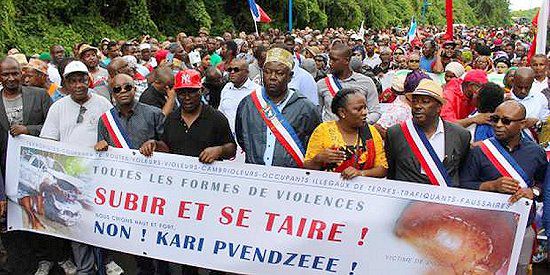 For three weeks indeed, a major popular movement shakes Mayotte, French confetti in the Indian Ocean. The island has already experienced two protest movements since the departmentalization of 2011: in 2011 against the cost of living and in 2016 for the harmonization of social status. For three weeks indeed, a major popular movement shakes Mayotte, French confetti in the Indian Ocean. The island has already experienced two protest movements since the departmentalization of 2011: in 2011 against the cost of living and in 2016 for the harmonization of social status.
But today the archipelago is on the verge of explosion for other reasons.
The "general strike" paralyzes the 101st French department, as well as roadblocks, snail operations, while mayors threaten to close the schools, or even not to organize the by-election scheduled for March 18.
At the initiative of this strike, we find a Maoist inter-union (CGT Ma, CFDT, FAEN, FO, Trade Union Confederation of Families, SNUipp, Solidaires, CFE-CGE) and the Collective of the citizens of Mayotte. This general strike, which is entering its fourth week, aims to denounce a climate of crisis generated mainly by the problems of insecurity and uncontrolled immigration.
Protesters denounce insecurity, especially around and inside schools. On February 19, dozens of armed youths attacked the Kahani high school in Mamoudzou, and the security forces had to intervene and evacuate the students. This violent episode had shaken the island and pushed the staff of three high schools to exercise their right of withdrawal. Bus drivers followed, denouncing the repeated stomping of their vehicles by young offenders. A rise of 4.7% in "violence related in part to the brawling between young people and violence from the school environment" was observed this year according to the Prefecture, a figure reduced according to the population .
The Mahorais denounce more widely the strong illegal immigration from the Comoros, 70 km from its coast. Far from rejecting the French Republic for the membership to which they fought, the Mahorais want, on the contrary, that the Republic assumes its responsibilities and its duties towards them.
According to MP Mansour Kamardine (LR), insecurity in Mayotte has "exploded" because of the "lack of effectiveness of the fight against mass illegal immigration and insufficient means to fight against the insecurity of services of State".
The protest movement is partly due to the very particular situation of the department: the economy there is much more favorable than in the neighboring islands, which attracts many migrants.
In 2015, just over four adults living in Mayotte out of ten were of foreign nationality (41%) and half of them were in an irregular administrative situation, according to data from INSEE. They come mainly from three Comoros islands (the great Comore, Mohéli and Anjouan) independent since 1975, located next to Mayotte, remained French. This strong migratory pressure over the past ten years has created inter-community tensions.
The Mahoran population accused not only Comorians of theft, violence but also to be responsible for the saturation of schools where, due to lack of classes, children go to classes by rotation and that of hospitals on the island. Ten thousand births take place every year, recently said government spokesman Benjamin Griveaux, "twice as big as the largest maternity hospital in Île-de-France" ...
Moreover the department knows other difficulties.
The Minister of Overseas recognizes it herself: Mayotte is "the territory of all challenges" . "It is 84% of people who live under the poverty line, (...) it is four times more population in thirty years, (...) and yes to be at the rendezvous, we would need create a class a day . " The unemployment rate is also very high: 26% - in the sense of the International Labor Office (ILO) - compared to 9.2% at the national level.
In the face of growing protest, French Overseas Minister Annick Girardin announced the establishment of a priority security zone (ZSP) and a series of measures to improve the security of the department (sending security reinforcements by example). The minister also assured that a conference on the future of Mayotte would open.
These solutions did not convince the population, who remains mobilized at the arrival of the minister who had to assert its legitimacy.
. The protesters presented 50 measures including education, such as downsizing schools and placing the entire department into a strengthened priority education network. Many claims also relate to illegal immigration, health and welfare.
The mayors of the 17 municipalities of the island presented a "convergence plan" over ten years, amounting to about 1.8 billion euros.
|
|
|
|
|
|
|
|
| Joanne Courbet for DayNewsWorld |
 |
SALAH ABDESLAM OUT OF HIS SILENCE
TO CLEAR ONE OF HER FRIENDS
|
| S alah Abdeslam came out briefly of his silence but to clear one of his friends to whom he agreed to be confronted. This is Ali Oulkadi, indicted for having served as a driver in the aftermath of the attacks.
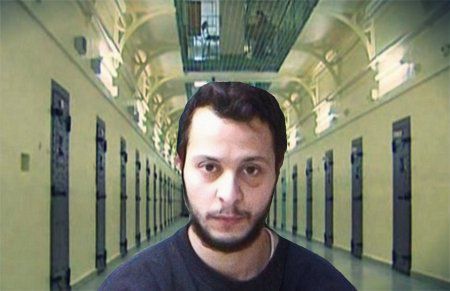 Salah Abdeslam, who refused to attend the end of his trial in Belgium last month, Salah Abdeslam, who refused to attend the end of his trial in Belgium last month,
On Friday morning, he accepted a confrontation with Ali Oulkadi, one of the three men who had allowed him to escape the police on 14 November 2015, at the Paris courthouse.
In the presence of his friend he spoke briefly before the French judge in charge of the investigation to declare that he understood the situation of Ali Oulkadi, but that he could do nothing for him and that he could do nothing to himself.
The detainee, the only surviving member of the jihadist commandos of the 13 November 2015 attacks, however, said he had never asked for help from Ulikadi, and had never telephoned him. He explained that on November 14, his photo was not yet available everywhere, and that Ulkadi "could not know" that he had become "the enemy number one".
But the investigation shows that Ali Oulkadi was contacted by Hamza Attou, himself called, with Mohammed Amri, by Salah Abdeslam on November 13. They had to recover Salah Abdeslam in the French capital.
On 14 November, Ali Oulkadi reportedly drove Salah Abdeslam to the apartment on Rue Bergé, where the explosive belts were made. The most watched prisoner in France also confirmed the statements of Ali Oulkadi claiming never to have returned to this apartment, while a trace of his DNA was found on a fork ... .Interrogated on the fact of knowing if Ali Oulkadi had therefore played no role in the attacks, Salah Abdeslam did not respond.
Ali Oulkadi was indicted in July 2016 for criminal conspiracy to commit a terrorist attack, and incarcerated in Maubeuge. The investigating judges suspect him of having been aware of Salah Abdeslam's actions.
On the way from Paris, he told Amri and Attou that he wanted to blow himself up like his brother Brahim (member of the commando des terrasses), but that his explosive vest had not worked.
|
|
|
|
|
|
|
|
| Boby Dean for DayNewsWorld |
 |
PIKES OF SARKOZY AGAINST
MACRON'S POLICY
|
| G erard Larcher invited the former head of state to the Palais du Luxembourg to "take stock of what worked and what did not work" in the 2008 constitutional revision that he himself had carried out when he was in office. 'Elysium. Nicolas Sarkozy was heard in a hearing by senators Tuesday on its constitutional reform of 2008.
Officially, it was therefore only "a return of experience" to help prepare the constitutional reform wanted by Emmanuel Macron and challenged by elected officials right.
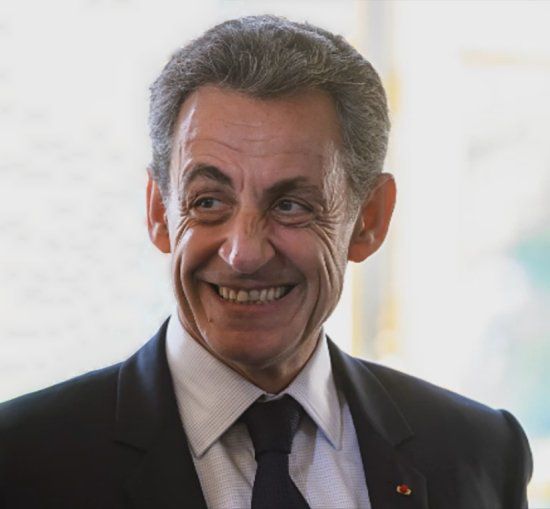 But Nicolas Sarkozy did not fail to make some strong criticisms against Emmanuel Macron who also intends to reform the institutions. He has issued several warnings to Emmanuel Macron. Finish benevolence! But Nicolas Sarkozy did not fail to make some strong criticisms against Emmanuel Macron who also intends to reform the institutions. He has issued several warnings to Emmanuel Macron. Finish benevolence!
He made a strong criticism of the Macron method by denouncing the systematic use of prescriptions. Orders have already been used for the Labor Law, and could be used again for the SNCF. "I have never been in favor of the ordinances which, in the past, instead of buying time have made it lose" , slice Nicolas Sarkozy while adding that "a strong government does not have to fear the dialogue with the Parliament ' .
He also openly criticized the use of the referendum to get his project approved. "The referendum and the constitutional reform, that can not work , " said the former head of state who himself chose to vote the Parliament in 2008, not to use the referendum.
This dialogue with the Parliament, Nicolas Sarkozy wishes for the constitutional reform while Emmanuel Macron does not exclude to go through a referendum to overcome differences with the right. In evoking his own institutional reform in 2008, Nicolas Sarkozy clarified the role of a President. "It was up to me to convince Parliament, and it was up to him to decide," he asserts. And Nicolas Sarkozy to recall his weekends spent on the phone to convince parliamentarians of the merits of his reform.
The former president has therefore posed as a defender of the role of Parliament against an executive power almighty. "We were talking about the omnipresident (about me). Apparently, I did school, " he said ironically about Mr. Macron.
And to conclude in a message we can not be clearer: "A strong democracy is a balanced democracy, where the opposition has rights. A strong majority must accommodate a powerful opposition. »... A word to you ...
|
|
|
|
|
|
|
|
| Larry Ricky for DayNewsWorld |
 |
FRANCE IS NOT FINISHED WITH ATTACKS
|
|
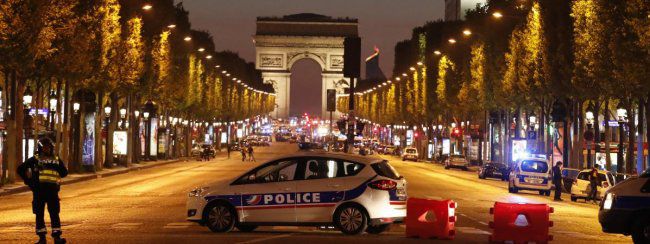 
Them plans of attacks, one against a sports center the other against armed forces, have been foiled in France since the beginning of the year, said Sunday the Minister of the Interior Gerard Collomb.
"Since 1 January, we have foiled two plans of attacks, which were not yet fully finalized," said Gérard Collomb in Le Grand Rendez-vous (Europe 1-C-News-Les Échos) 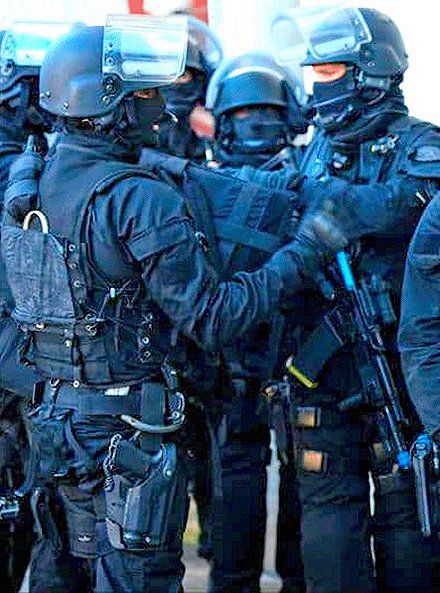 . .
The Interior Minister did not wish to give further details, adding that the attacks were aimed at the south and west of France.
Referring to the plan to attack the "big sports equipment" he said the target was undoubtedly "youth" while adding that " Today we are all targeted." 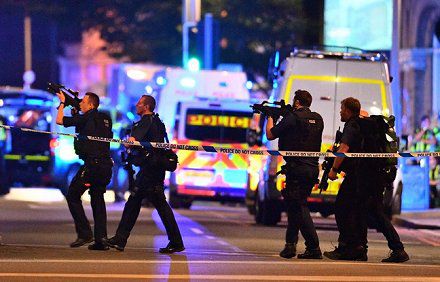
 Those arrested for these two projects were not only "followed" , which made it possible to thwart the attacks but also included in the "Report Card for the Prevention of Terrorist Radicalization" (FSPRT). Those arrested for these two projects were not only "followed" , which made it possible to thwart the attacks but also included in the "Report Card for the Prevention of Terrorist Radicalization" (FSPRT).
This announcement follows a few days ago the presentation of the "bill for a controlled immigration and an effective right of asylum " Wednesday, February 21 in the Council of Ministers considered "lax" by the Republicans, de-radicalization being the subject of measures.
The Interior Minister also said that three mosques were closed today in France, Marseille, Aix-en-Provence and Sartrouville (Yvelines) "because there was apology for terrorism."
And adding that not only that terrorism would last several years but also that the IS was now trying to plan "attacks on Western soil to make forget (his) defeat" military in Iraq and Syria in the face of the international coalition .
But the threat of attack is all the more worrying as individuals likely to act are on French soil. "The threat is mainly caused by individuals present in France: either vealists who have been prevented from going to Syria or Iraq, or first-time terrorists who can take action without there being any warning signs ", declared in October the boss of the DGSI, Laurent Nuñez.
A little booster shot that should not make us forget that the authorities only show us part of the iceberg.
|
|
|
|
|
|
|
|
| Paul Emison for DayNewsWorld |
 |
There are no translations available.
GRAND CHAMBOULEMENT AU LYCEE EN FRANCE
|
|
Le ministre de l'Éducation, Jean-Michel Blanquer, met la dernière main à sa réforme du baccalauréat ce diplôme vieux de 210 ans en France
Le nouveau bac , concernant les bacs généraux et technologiques, sera organisé autour d'un grand oral, quatre épreuves écrites dont le français et la philosophie, des épreuves ponctuelles prises en compte dans la moyenne finale. « Le président de la République avait dit quatre épreuves terminales et le reste en contrôle continu. Bien entendu, cela reste l'ossature de la réforme que nous allons faire", avait-il déjà assuré, dimanche 28 janvier.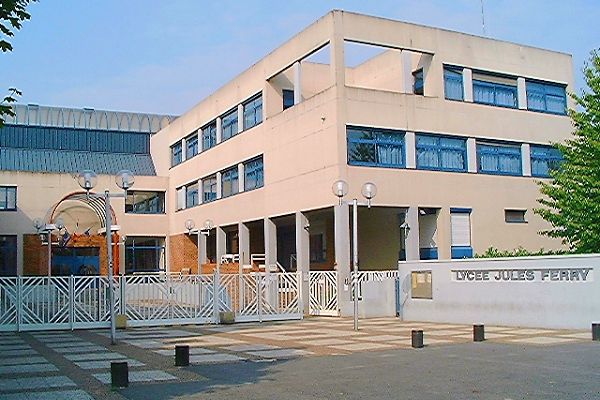
Il s'agit maintenant de faire en sorte que la finalité du bac soit la préparation de l'enseignement supérieur et non plus la conclusion de l'enseignement secondaire..Près d'un tiers des bacheliers redoublent leur première année d'études, et un quart d'entre eux arrêtent leurs études au bout d'un an. D'où la nouvelle optique.
Ce bac "nouvelle version" entrera en vigueur en juin 2021 et touchera en conséquence les élèves de seconde dès la rentrée prochaine.
Au lieu des 12 voire 16 épreuves obligatoires et des deux épreuves facultatives, ne resteront plus que quatre épreuves à la fin de la terminale rebaptisée pour l'occasion « classe de maturité ».
Les élèves passeront deux épreuves de leur spécialité après les vacances de printemps, puis deux épreuves communes en juin : la philosophie, ainsi qu'un grand oral. Ils obtiendront alors 60% de la note totale.Une nouvelle épreuve fait ainsi son apparition: le grand oral, baptisé « oral de maturité »
Cette réduction drastique du nombre d'épreuves du baccalauréat s'accompagnera d'un contrôle continu c'est-à-dire basé sur les notes de première et de terminale, ainsi que sur des "bacs blancs" ponctuels.
L’arbitrage de M. Blanquer suit le rapport Mathiot dans le sens où il abandonne bien les séries.Les séries L, ES et S disparaissent et sont remplacées par un tronc commun : français, philosophie, histoire, géographie, deux langues vivantes et du sport. Se dessine un lycée à la carte. Il y a des ajouts en lien avec le rapport Villani-Torossian, dont des maths renforcées en terminale (« mathématiques complémentaires » et « mathématiques renforcées ») pour ceux qui se destinent a des voies scientifiques.
Et pour le rattrapage, que les plus inquiets se rassurent : il est maintenu. Les candidats qui n'ont pas obtenu assez de points auront toujours cette deuxième chance à l'oral
Un baccalauréat allégé, davantage personnalisé,mais plus inégalitaire?
|
|
|
|
|
|
|
|
| Carl Delsey pour DayNewsWorld |
 |
There are no translations available.
L'ORGANISATION D'UN ISLAM DE FRANCE
EST-ELLE POSSIBLE ?
|
|
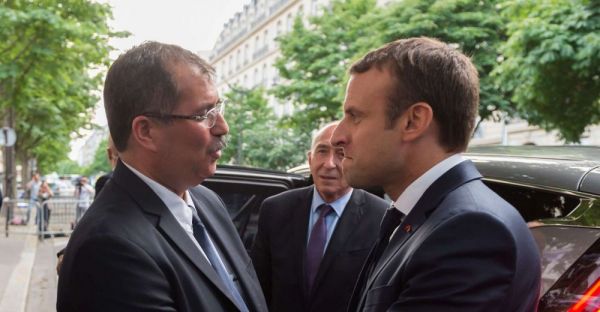 Le défi de l'organisation de l'islam de France a été lancé par Emmanuel Macron. Le défi de l'organisation de l'islam de France a été lancé par Emmanuel Macron.
Une nouvelle réflexion sur «l'islam de France» par un nouveau chef de l'État: cela fait plus de deux décennies que les chefs d'Etat s'attellent tour à tour à cet exercice mais en vain .
Sur le fond il n'y a rien à expliquer :
création d'instances réellement représentatives d'une religion connue pour ses divisions, financement régulé des lieux de culte et renforcement des contrôles de leurs comptes, formation d'imams «de France» pour remplacer les religieux venus d'ailleurs ou les imams «autoproclamés», indépendance de «l'islam de France» par rapport aux États étrangers
Dans un entretien au Journal du dimanche, le président de la République a annoncé que «c'est durant ce premier semestre 2018 (qu'il) souhaite poser les jalons de toute l'organisation de l'islam de France».
Il se contente d'expliquer sa méthode. «Ma méthode pour progresser sur ce sujet, c'est d'avancer touche par touche. (…) Je ne dévoilerai une proposition que quand le travail sera abouti.» ,explique-t-il.
Son but : dépassionner les débats.« Avancer touche par touche. »
Telle est la méthode prônée par Emmanuel Macron pour repenser l’organisation de l’islam en France.
Macron réussira-t-il mieux là où ses prédécesseurs ont échoué ?
L'urgence est bien réelle.
En décembre dernier, un responsable musulman des Bouches-du-Rhône déclarait au Figaro: "Le courant salafiste a pris le terrain en France. Il y a un vide avec notamment le problème des imams qui ne parlent pas français…"
|
|
|
|
|
|
|
|
| Andrew Preston pour DayNewsWorld |
 |
There are no translations available.
AMBITIEUX RATTRAPAGE
DANS LA LOI DE PROGRAMMATION MILITAIRE
|
« Les précédentes LPM demandaient des efforts aux armées. Cette fois, on demande un effort à la nation pour les armées », fait-on savoir au ministère de la défense
|
|
|
|
Alors que la France est engagée tous azimuts depuis des années au Sahel (opération Barkhane), au Levant (Chammal) et sur le territoire national (Sentinelle) et que l'armée avait subi quelque 60 000 suppressions de postes entre 2005 et 2015, il était temps de rattraper dans la nouvelle Loi de Programmation Militaire (LPM) le retard accumulé par rapport aux autres pays.
 L'État veut mettre 300 milliards d’euros sur la table d’ici à 2025 pour préparer l'avenir : le nouveau projet de loi de programmation militaire (LPM) français prévoit donc de consacrer 295 milliards d’euros à la défense de 2019 à 2025. L'objectif visé : 2 % du PIB en 2025. L'État veut mettre 300 milliards d’euros sur la table d’ici à 2025 pour préparer l'avenir : le nouveau projet de loi de programmation militaire (LPM) français prévoit donc de consacrer 295 milliards d’euros à la défense de 2019 à 2025. L'objectif visé : 2 % du PIB en 2025.
Dans le détail : le budget de défense français, de 34,2 milliards d’euros en 2018, connaîtra une augmentation de 1,7 milliard d’euros par an jusqu’en 2022. Puis 3 milliards par an à partir de 2023.
Mais force est de constater que ces dernières « marches » sont programmées après la prochaine élection présidentielle donc incertaines.
Le général De Villiers, invité sur France 3, n'a pas manqué de le souligner. « Nous sommes sur une pente à 1,7 milliard jusqu’en 2022 et ensuite la pente est à 3 milliards à partir de 2023 […] Évidemment, nous avons l’expérience, il faudra être vigilant » sur l’exécution de ces engagements, a lancé le général non sans raison.
Pour l’heure, ce sont 198 milliards d’euros de besoins, de 2019 à 2023, qui sont « couverts de manière ferme »,réplique-t-on au ministère.
1°La création de quelque 6 000 postes civils et militaires d’ici 2025
3 000 postes d’ici cinq ans avec le renforcement des effectifs de la cyberdéfense (1 500 postes) et du renseignement (1 500 postes).
2°L'amélioration des conditions de vie
Davantage de crédits pour les petits équipements des militaires comme des gilets pare-balles de dernière génération, des treillis ignifugés par exemple , pour l’entretien du matériel et des infrastructures. Une manière de fidéliser quelque 200 000 militaires français.
3° La modernisation accélérée des matériels devenus obsolètes. Au menu figure le renouvellement accéléré des véhicules blindés médians de l’armée de Terre (programme Scorpion), dont 50 % des nouveaux modèles seront livrés d’ici 2025. Les VAB, 40 ans au compteur, doivent être remplacés par les blindés Griffon avec150 exemplaires supplémentaires.
Quatre pétroliers ravitailleurs de nouvelle génération, dont deux d’ici 2025 et 19 patrouilleurs au lieu de 17 -pour la surveillance des zones économiques exclusives françaises outre-mer- devraient revenir à la Marine.
A l’armée de l’Air est promis le renouvellement accéléré de sa flotte d’avions ravitailleurs par 15 A330 MRTT, alors que ses KC-135 volent depuis plus de 50 ans.
4°Le lancement d' études sur le remplacement de l’unique porte-avions français, le Charles de Gaulle retiré normalement du service à l’horizon 2040. Seront également lancées des études sur le système de combat aérien du futur et sur le char de combat du futur.
5° Sur le plan de la dissuasion nucléaire, clé de voûte de la défense française la LPM annonce le renouvellement des deux composantes de la dissuasion nucléaire (futur sous-marin lanceur d’engins de 3e génération, nouveau système d’armes pour les forces aériennes stratégiques).
Certes une « loi de programmation militaire du rattrapage et de l’ambition » pour «arrêter la lente érosion de nos capacités militaires», selon les propos d'Emmanuel Macron mais comme le rappelle le général de Villiers qui a donné sa démission en juillet pour des coupes budgétaires, il faut rester vigilant sur ces promesses...
|
|
|
|
|
|
| Alize Marion News World |
 |
There are no translations available.
VOYAGE SOUS PRESSION
LES DEUX JOURS D'EMMANUEL MACRON EN CORSE
|
|
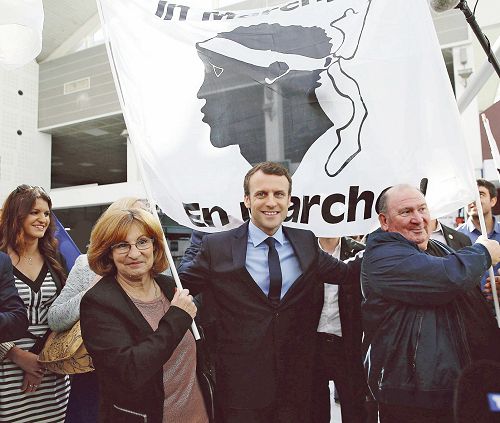 Lors de son premier déplacement officiel sur l’île, le président de la République a rendu hommage au préfet Erignac, assassiné lâchement il y a vingt ans jour pour jour. Lors de son premier déplacement officiel sur l’île, le président de la République a rendu hommage au préfet Erignac, assassiné lâchement il y a vingt ans jour pour jour.
Il a commémoré la mort du préfet de la Corse abattu par un commando nationaliste le 6 féve préfet.. o Un olivier a été planté avec, gravée au sol, l'inrier 1998, à Ajaccio. Le chef d’Etat a présidé une cérémonie sur les lieux tout en rebaptisant la place attenante « place Claude-Erignac » accompagné de la veuve et des deux enfant de feu lscription « un homme, une place ». Emmanuel Macron était accompagné par Jacqueline Gourault, la « Madame Corse » du gouvernement, Gerard Collomb, le ministre de l'Intérieur et Marlène Schiappa, secrétaire d'Etat chargée de l'Egalité entre les femmes et les hommes dont une partie de la famille est corse.
Etaient présents également d’anciens préfets de la région et de nombreux élus insulaires, dont Gilles Simeoni, qui fut l’un des avocats d’Yvan Colonna, condamné à la perpétuité pour l’assassinat de Claude Erignac. Le ministre de l'Intérieur de l'époque, Jean-Pierre Chevènement, était également convié.
Une absence remarquée :celle du nationaliste et indépendantiste corse Jean-Guy Talamoni. « Compte tenu de mon parcours (...) non seulement ma présence serait déplacée mais elle n'est sûrement pas souhaitée par les proches du préfet Erignac », a estimé l'élu nationaliste.
Les Corses attendent une clarification de la position de l'Elysée lors d’une rencontre avec le président de l’exécutif, l’autonomiste Gilles Simeoni, et avec celui de l’Assemblée territoriale, l’indépendantiste mardi 6 février en fin de journée à Ajaccio.
On sait déjà qu'il n'y aura ni amnistie ni rapprochement des prisonniers en Corse
« C'est la justice de la République qui a été rendue, et elle sera suivie, sans complaisance, sans oubli, sans amnistie », a-t-il prévenu en réponse à Jean-Guy Talamoni, plaidant pour l'amnistie de « tous les prisonniers » corses, y compris Yvan Colonna.
Un agenda serré :mardi à 19 heures, Emmanuel Macron rencontrera donc les deux dirigeants de l'île, Jean-Guy Talamoni et Gilles Simeoni, plébiscités aux élections territoriales en décembre.
Puis président de la République rencontrera des élus d'autres tendances politiques, comme le maire LR d'Ajaccio Laurent Marcangeli.
En fin il prononcera un discours sur sa vision de la Corse, mercredi après-midi à Bastia.
« Il y a une fenêtre historique pour sortir de la logique de conflit », a reconnu, lundi, Gilles Simeoni. Mais « pour un dialogue, il faut être deux. Et pour l’instant, nous avons été les seuls à avoir donné des signes tangibles que nous voulions ce dialogue.
|
|
|
|
|
|
|
|
| Alize Marion pour DayNewsWorld |
 |
There are no translations available.
TRICASTIN
« LA PIRE CENTRALE NUCLEARE DE FRANCE »
|
|
 Thierry Gadault et Hugues Demeude, auteurs du livre Nucléaire, danger immédiat (Ed. Flammarion Enquête) ont enquêté sur le parc nucléaire français. Le JDD publie des extraits de cet ouvrage. Pour les deux enquêteurs la situation est alarmante. Thierry Gadault et Hugues Demeude, auteurs du livre Nucléaire, danger immédiat (Ed. Flammarion Enquête) ont enquêté sur le parc nucléaire français. Le JDD publie des extraits de cet ouvrage. Pour les deux enquêteurs la situation est alarmante.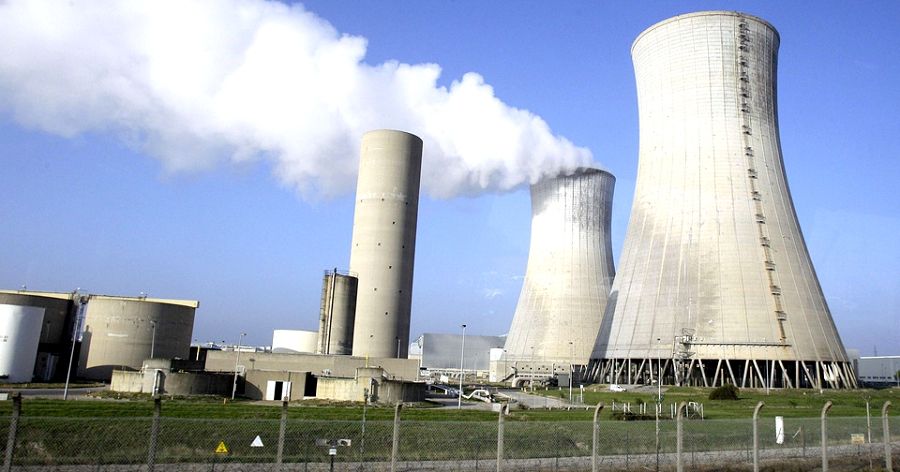
La centrale du Tricastin (Drôme), le long du Rhône à 50 km d’Avignon,s'avère être celle qui recèle le plus de danger en France, « avec son réacteur 1 » .
Et de poursuivre :
« Ce réacteur cumule tous les problèmes : défauts sous revêtement, absence de marge à la rupture, et dépassement des prévisions de fragilisation à quarante ans », soulignent-ils.
Et d'ajouter :
« Sans oublier le risque d'inondation catastrophique en cas de séisme, comme l'a relevé en septembre 2017 l'Autorité de sûreté nucléaire (ASN), qui a arrêté d'office le fonctionnement des quatre réacteurs de la centrale en attendant qu'EDF fasse, enfin, les travaux de renforcement de la digue du canal de Donzère-Mondragon. »
En effet Tricastin se situe en contrebas du canal, à six mètres en dessous du plan d'eau si bien que l'on ne peut exclure un « accident de type Fukushima »
EDF avait annoncé en novembre 2017 un nouveau report du redémarrage de la centrale nucléaire du Tricastin arrêtée depuis le début d’octobre à la demande de l’Autorité de sûreté nucléaire (ASN) en raison de travaux de renforcement d’une digue pour protéger le site d’éventuelles inondations. L’énergéticien avait entrepris les travaux de renforcement de la digue du canal de Donzère-Mondragon. Il existe « un risque de rupture d’une partie de la digue pour les séismes les plus importants étudiés », précisait à l’époque l’ASN.
Le 5 décembre dernier, après avoir constaté les réparations menées par EDF pour renforcer la digue du canal, l’ASN a autorisé le redémarrage des réacteurs de la centrale nucléaire de Tricastin.
La cuve du réacteur 1 de la centrale drômoise arrive donc en tête du top 5 des cuves les plus dangereuses du pays que les auteurs établissement en annexe de leur livre. Devant Le Bugey 5 (Ain), Saint-Laurent-des-Eaux B1 et B2 (Loir-et-Cher) et Blayais 1 (Gironde).
« Aujourd’hui, la question n’est plus de savoir si un accident grave est possible en France mais quand il aura lieu », pointent les deux journalistes indépendants qui disent tenir ce constat d'un haut cadre d’EDF.
|
|
|
|
|
|
|
|
| Paul Emison pour DayNewsWorld |
 |
There are no translations available.
UNE REVOLUTION DANS LA FONCTION PUBLIQUE
|
|
Un changement d'époque avec ce big-bang ?
On a déjà eu droit aux réformes du droit du travail et des impôts sur le capital, et voilà qu'est annoncée la petite dernière par Gérald Darmanin : la réforme de la fonction publique avec un terme qui fait peur à certains, l'expression de «plan de départs volontaires» dans la fonction publique faisant appel à une approche plutôt managériale de l'entreprise.
«Nous allons étudier avec les organisations syndicales, une fois que cette réforme de l’Etat aura été adoptée (la possibilité) d’imaginer avec les agents publics un plan de départs volontaires pour ceux qui souhaiteraient partir, en conséquence de la réforme de l’Etat», a-t-il indiqué lors d’une conférence de presse avec le Premier ministre Edouard Philippe.
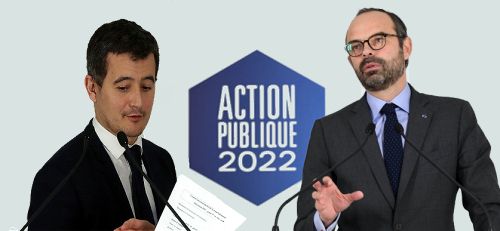 La France compte trois fonctions publiques : celle de l'Etat pour 2 millions de fonctionnaires, celle de la territoriale pour 2 également et enfin celle hospitalière qui réunit quelque 1,5 millions, toutes trois avec des statuts différents. La France compte trois fonctions publiques : celle de l'Etat pour 2 millions de fonctionnaires, celle de la territoriale pour 2 également et enfin celle hospitalière qui réunit quelque 1,5 millions, toutes trois avec des statuts différents.
Ce qui les unit se trouve dans l'emploi à vie, garanti dès l'embauche à tous les titulaires et une quasi absence de mobilité, moins de quatre agents sur cent changeant chaque année de poste.
Cette annonce tombe dans un moment de crise au sein des maisons de retraite comme au sein des gardiens de prison ou des policiers. De plus une autre vague de mécontentement traverse l'ensemble de la fonction publique d'État avec le gel du point d'indice, socle de la rémunération du fonctionnaire, et le rétablissement du jour de carence en cas d'absence supprimé sous le quinquennat de Hollande.
Mais à noter qu'aucun projet n’est encore mis sur la table et que tout reste flou pour l'instant. Ce plan sera à «imaginer avec les agents publics» eux-mêmes et destiné à «ceux qui souhaiteraient partir, en conséquence de la réforme de l'État» , déclare le ministre de l'Action et des Compte publics . Et le premier ministre de préciser: «Nous allons prendre le temps du dialogue» dans le cadre d'une «grande concertation» qui s'étendra sur toute l'année.
Le gouvernement entend réduire les effectifs de 120.000 postes dans la fonction publique d'ici à 2022 pour dégager 4,5 milliards d'euros d'économies par an à partir de 2020. On se trouve loin du logiciel de François Fillon qui voulait la suppression de 500 000 postes. Loin encore du non remplacement des départs de fonctionnaires à la retraite prôné par Nicolas Sarkozy.
Mais sur quel modèle ? Le modèle de la Suisse laquelle a supprimé toute fonction publique, celui de l'Italie avec des hauts fonctionnaires choisis tous les deux ans ( étendre le recours aux contractuels pour les fonctions d'encadrement pour le gouvernement), celui de l'Allemagne qui privilégie les fonctions régaliennes ?
Le sujet sera abordé lors d'une concertation avec les syndicats de fonctionnaires qui débutera le 6 février.
Immédiatement, syndicats et opposition sont montés au créneau.«Cette confirmation déguisée d'une suppression massive de postes publics augure mal du rétablissement de l'emploi dans un pays qui est encore enfoncé dans le chômage de masse», a réagi l'Unsa. «Le gouvernement choisit de s'attaquer frontalement aux fondamentaux de la fonction publique» selon Solidaires.La C GT fulmine tout en taxant ce projet d'«insupportable et inacceptable».
Soulignons que cette idée figurait déjà dans un livre publié en 2015 des journalistes Laurent Bazin et Alba Ventura, où E ; Macron évoquait ses velléités réformatrices. «La fonction publique, ce n'est pas un sanctuaire! Il faut la moderniser. En finir avec les grands corps d'Etat. Il faut mieux payer les gens mais avec moins de garanties... Moins nombreux mais mieux payés et plus mobiles!», assurait le ministre de l'Économie de l'époque. «Je ne vois pas ce qui justifie que des cadres de mon ministère aient un emploi à vie et pas le responsable cyber-sécurité d'une entreprise! Ce n'est pas adapté au monde réel!»
"Ce n'est pas la fin de la fonction publique", a déclaré le président depuis la Tunisie, jugeant que cette modernisation pose "les conditions de la pérennité véritable" de la fonction publique.
|
|
|
|
|
|
|
|
| Alize Marion pour DayNewsWorld |
 |
There are no translations available.
INQUIETANTE RESURGENCE D'ACTES
DE VIOLENCE ANTISEMITE EN FRANCE
|
|
 Les actes racistes, antisémites et antimusulmans ont baissé en 2017 tandis que les actions violentes sont en augmentation notamment à l’égard des juifs, a indiqué mercredi le ministère de l’Intérieur dans un communiqué. Les actes racistes, antisémites et antimusulmans ont baissé en 2017 tandis que les actions violentes sont en augmentation notamment à l’égard des juifs, a indiqué mercredi le ministère de l’Intérieur dans un communiqué.
Le premier ministre, Edouard Philippe, a dénoncé, mercredi « une nouvelle forme d’antisémitisme violente et brutale », deux jours après l’agression d’un jeune garçon juif de 8 ans à Sarcelles (Val-d’Oise) portant une kippa à Sarcelles.
Ce dernier a été molesté par deux jeunes d'une quinzaine d'années-musulmans, semblerait-il- alors que l'enfant se rendait à du soutien scolaire.
Le parquet de Pontoise a annoncé, mardi, avoir « retenu le mobile antisémite ». « Ils l’ont fait chuter au sol et lui ont porté des coups », a ajouté une source policière.
« Les auteurs n’ont rien verbalisé durant l’agression et n’ont dérobé aucun objet appartenant à la victime, dont la kippa était visible »,selon le parquet.
L’enquête a été confiée à la sûreté départementale.
Cette agression a certes été condamnée par le chef de l’Etat, le premier ministre et le ministre de l’intérieur. « Un petit garçon de 8 ans a été agressé aujourd’hui à Sarcelles. Parce qu’il portait une kippa. A chaque fois qu’un citoyen est agressé en raison de son âge, de son apparence ou de sa confession, c’est toute la République qu’on agresse », a réagi Emmanuel Macron sur son compte Twitter.
Gérard Collomb y est allé également de son petit couplet de condamnation. Il condamne « avec la plus grande fermeté [cette] lâche agression » « contraire à nos valeurs ».. Toujours place Bauveau :« Toutes ces actions constituent de véritables insultes à la République, qu’il nous faut sanctionner et continuer de combattre sans relâche », note le ministère dans son communiqué.
Mais condamner verbalement suffit-il à enrayer de tels dérapages ? Comment peut-on tolérer ce type d'acte de violence gratuite dans notre république laïque ?
On est heureux d'apprendre que l’année écoulée a enregistré un recul du nombre d’atteintes aux sépultures et aux lieux de culte chrétiens et musulmans après une hausse continue de 2008 à 2016. Une hausse de 22 % par rapport à 2016 a été cependant enregistrée pour les lieux de culte juifs...
Le bilan global fait état de 950 actes racistes, antisémites et antimusulmans en 2017 contre 1 128 en 2016, soit un repli de 16 %. Dans le détail, les actes antimusulmans connaissent la plus forte baisse (– 34,5 %, avec 121 faits) devant les actes racistes (– 14,8 %, avec 518 faits) et les actes antisémites (– 7,2 % avec 311 faits). « Cette baisse globale ne doit cependant pas masquer l’augmentation des faits […] d’actions violentes », a précisé le ministère de l'Intérieur.
Il s'avère peu tolérable pour nos valeurs les plus fondamentales que le conflit israélo-palestinien se reproduise sur le territoire français.
Pas étonnant que le président du Consistoire, Joël Mergui,ait dénoncé mi-janvier avec grande inquiétude cette « forte recrudescence d’actes antisémites » appelant le ministre de l’intérieur à
« enrayer » cette « dangereuse spirale »........
|
|
|
|
|
|
|
|
| Alyson Braxton pour DayNewsWorld |
 |
There are no translations available.
QUAND EMMANUEL MACRON SE RESSOURCE
AUPRES DES AGRICULTEURS
|
|
 Après les cimes de la station huppée de Davos et son forum économique, Emmanuel Macron a directement enchaîné avec un déplacement de deux jours dans le Puy-de-Dôme pour présenter ses vœux au monde agricole sinistré. Après les cimes de la station huppée de Davos et son forum économique, Emmanuel Macron a directement enchaîné avec un déplacement de deux jours dans le Puy-de-Dôme pour présenter ses vœux au monde agricole sinistré.
Mais le Président n'y voit là aucune contradiction «Il n'y a pas de divorce entre le local et mondial», a-t-il affirmé dès jeudi matin en arrivant en Auvergne. À la croisée du local et du mondial, il a pris comme modèle Michelin qui montre, selonl ui, qu'il n'y a pas de divorce entre les territoires et la stratégie mondiale .
« C'est un acteur économique emblématique qui montre qu'on peut être un acteur du local et du mondial », a dit le chef de l'État, pour qui « c'est très important de montrer qu'il n'y a pas de divorce entre les territoires et la stratégie que nous avons dans le monde, qu'on a à accompagner nos entreprises pour qu'elles réussissent évidemment en France, mais aussi à l'international, parce que ça crée des emplois localement ».
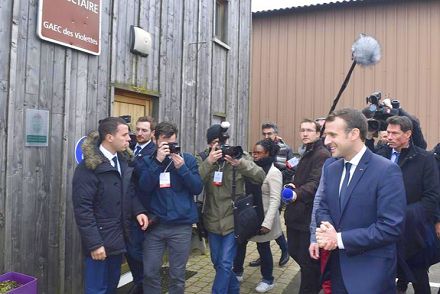 Et ensuite de montrer que, dans le domaine agricole comme dans les autres secteurs dont il s'est saisi, Emmanuel Macron souhaite réformer. Et ensuite de montrer que, dans le domaine agricole comme dans les autres secteurs dont il s'est saisi, Emmanuel Macron souhaite réformer.
Si la France reste le premier producteur agricole européen elle perd de plus en plus pied face à ses concurrents proches ou lointains, la production agricole ayant globalement reculé de 6,6% en 2016 et il est temps que le problème agricole soit pris à bras-le-corps comme l'attendent les agriculteurs avec la présentation du projet de loi issu des États généraux de l'alimentation la semaine prochaine.
L'occasion donc pour Emmanuel Macron de livrer «sa vision pour une transformation en profondeur de l'agriculture française»
Les négociations tarifaires font partie d'un des défis majeurs à relever : les clients transformateurs et la grande distribution, dont les enseignes se livrent une guerre sans merci se fait au détriment des producteurs.
Le président a annoncé que le gouvernement réunirait distributeurs, industriels et agriculteurs pour discuter des négociations commerciales et a menacé de dénoncer ceux qui ne respecteraient pas les bonnes pratiques instaurées par la charte signée le 14 novembre. Le projet de loi présenté en Conseil des ministres mercredi comportera les mesures issues des EGAcomme encadrement des promotions à 33 % des volumes, la lutte contre les prix abusivement bas, le relèvement du seuil de revente à perte de 10 % et l’intégration des coûts de production des agriculteurs dans les prix , la possibilité pour les éleveurs de fixer leurs prix en tenant compte de leurs coûts de revient et de la situation des marchés.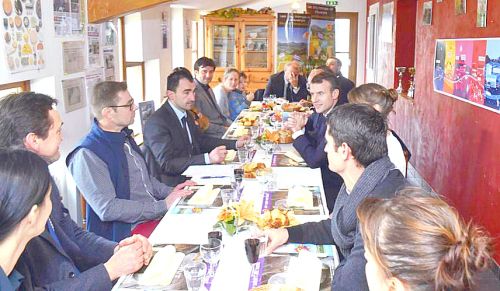
«Chaque agriculteur doit être rémunéré au juste prix payé.», a martelé le Président en rappelant que certains agriculteurs vivaient avec 200 ou 300 euros par mois. Le revenu de 30% de des paysans est inférieur à 350 euros par mois ; 20% d'entre eux ne peuvent même pas se verser un salaire ; et ,sans surprise, 1.300 exploitations ont été abandonnées en 2016
Après avoir souligné que la France dépendait d’importations extérieures en matières de soja non OGM, le président de la République a estimé que le pays avait besoin d’une « vraie filière protéines » d’ici « les cinq ans à venir ». « Il nous faut aussi une vraie stratégie nationale de souveraineté alimentaire », a déclaré Emmanuel Macron.
Il s'agit donc de réorienter la production des oléoprotéagineux (colza, tournesol...) vers l'alimentation animale ou humaine plutôt que l'énergie, en construisant une «filière protéines» d'ici cinq ans.
Sur la crise sanitaire de Lactalis, Emmanuel Macron a assuré que l'État fera «toute la lumière» sur l'affaire du lait contaminé aux salmonelles et qu'il faudra en «tirer toutes les leçons.» «Il n'y aura aucune tolérance de l'Etat», a-t-il déclaré.
Le président de la République a également promis un plan d’investissement de 5 milliards d’euros pour l’agriculture, mais les syndicats agricoles se demandent si les producteurs les plus fragiles en bénéficieront alors que le nombre de défaillances d’exploitations continue d’augmenter.
A propos du glyphosate, ce pesticide très décrié, mais source d'inquiétude pour le monde agricole l'interdiction totale d'utilisation se fera d'ici trois ans et pour les 10 % de producteurs français sans alternative, on pourrait envisager une dérogation à cette interdiction...
«Agriculteur ce n'est pas un métier, c'est une vie. La France a besoin de passionnés, d'engagés, c'est la force d'un peuple», selon le Président...certes
|
|
|
|
|
|
|
|
| Alyson Braxton pour DayNewsWorld |
 |
There are no translations available.
RECONQUETE DES ARMEES LORS
DES VOEUX DE MACRON
|
|
Comment le chef des armées peut-il tourner la page de la démission du général de Villiers?
En annonçant l'augmentation du budget de la Défense lors de la présentation de ses vœux aux armées depuis le bâtiment de projection et de commandement Dixmude, amarré à Toulon le Président de la République a voulu faire amende honorable face aul départ fracassant du chef d'Etat-major des armées, Pierre de Villiers, en désaccord avec l'annulation de 850 millions d'euros de crédits en 2017.
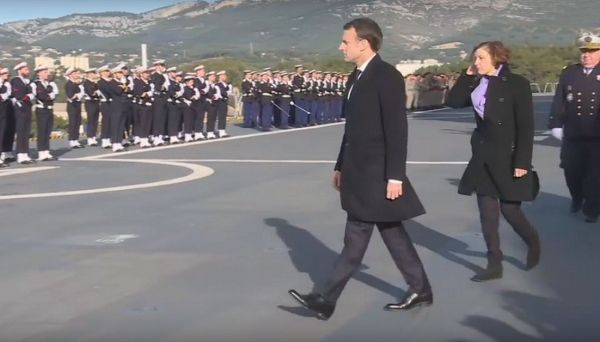 Ce dernier a, depuis, sorti un livre, Servir (éd. Fayard) dans lequel il raconte les coulisses de son départ. Un petit carton en librairie, avec plus de 120.000 exemplaires vendus fin décembre. Pour Emmanuel Macron, il était donc indispensable d'apaiser les relations avec la Grande Muette. Ce dernier a, depuis, sorti un livre, Servir (éd. Fayard) dans lequel il raconte les coulisses de son départ. Un petit carton en librairie, avec plus de 120.000 exemplaires vendus fin décembre. Pour Emmanuel Macron, il était donc indispensable d'apaiser les relations avec la Grande Muette.
C'est que le d épart du général symbolisait avant tout une crise générale très profonde des armées.
Alors il a su jouer des violons pendant une bonne heure devant un parterre de fantassins et leurs petites familles au complet à Toulon, dans le Var. Il a grimpé sur navire Dixmude et a parlé parlé parlé
Loin de l’idée du président d’être hostile, au contraire.
Compatissant : « Je pense à vos familles. (...) Je vous le dis, les yeux dans les yeux. (...) J’attache la plus grande importance à votre vie. (...) Être militaire n’est pas une vie comme les autres. (...) Vous êtes des repères dans la société. » .qQuatre verres d'eau bus par le Président pour cette introduction. Puis il a évoqué ses dernières visites de celle aux soldats blessés à l'hôpital Percy de Clamart le jour-même de son investiture à Gao au Mali, en passant par Tapa en Estonie ou Istres . « Je veux pouvoir vous regarder les yeux dans les yeux », lance-t-il. Comme un aveu...
Enfin après ce petit moment de calinothérapie, il en est venu au budget tant attendu : une augmentation du budget de la Défense en 2018 de 1,8 milliard d'euros, un "effort budgétaire inédit" qui doit permettre d'atteindre en 2025 2% du PIB. "
Le premier principe qui guidera la loi de programmation militaire (LPM) présentée en février au Conseil des ministres sera d'améliorer les "conditions de vie" des soldats. A l'armée de terre, un "effort" sera consacré aux véhicules.
la marine bénéficiera de plus de patrouilleurs et de pétroliers ; l'armée de l'air de plus de ravitailleurs et d'avions de renseignement. Quant au service national universel il ne sera pas financé sur le budget de la Défense.
Puis phase volontariste et autoritaire du Président : de l'opération séduction on est passé à l’opération « je veux et j’exige » : « Je veux une France forte. (...) Je veux une France qui protège. (...) Je veux une France fidèle à ses engagements de l’alliance atlantique. (...) Je veux une France qui soit moteur. »
Outre des efforts budgétaires, le président a tenu à rassurer sur ses intentions et sa capacité à tenir ses promesses. Des moyens supplémentaires seront également débloqués pour renforcer le renseignement militaire et les "capacités de cyberdéfense". Enfin, Emmanuel Macron a évoqué le "renouvellement" de la dissuasion nucléaire.
"La LPM annoncée est ambitieuse, elle va permettre de sortir du cycle de sous-financement", se réjouit Michel Goya. L'un des points importants, selon cet expert, est la fin annoncée de la sous-budgétisation des opérations extérieures (Opex). "Depuis des années, nous sous-estimons systématiquement le coût des opérations extérieures. Je ne veux plus de bataille budgétaire", a annoncé le président de la République qui fait passer l'enveloppe Opex de 450 millions d'euros à 1,1 milliard d'euros
Mais "Réintégrer ses 1,1 milliard d'euros dans le budget de la Défense, c'est très bien pour la sincérité des comptes publics, reconnaît le député (LR) François Cornut-Gentille, rapporteur spécial des crédits de la Défense à l'Assemblée nationale. Mais ce sera fait au détriment du reste. Cela ne correspond donc pas complètement à l'avancée qu'on nous vend."
En clair: le budget de la Défense augmente mais doit financer des coûts pris en charge jusqu'alors par d'autres ministères !!!
Et sans compter que le desserrage des cordons de la bourse est accompagné d'avertissements. "Chaque dépense sera évaluée à l'aune de son utilité opérationnelle", a prévenu Emmanuel Macron, réclamant "la plus grande exigence collective" de la part des Armées...
"Avec 1,8 milliard d'euros d'augmentation du budget chaque année, il annonce de bonnes nouvelles à moyen terme. Mais à ce rythme, on n'arrive pas à 2% du PIB à la fin du quinquennat, assure l'élu LR. On y arrive en augmentant le budget de 3 milliards par an après 2022." C'est-à-dire une fois le quinquennat fini. Et de conclure: "C'est du Hollande."
|
|
|
|
|
|
|
|
| Alize Marion pour DayNewsWorld |
 |
There are no translations available.
AUCUNE CONCESSION POUR
LES MIGRANTS DE CALAIS
|
|
Macron va tenter de convaincre Londres de l'aider davantage.En effet Emmanuel Macron rencontre Theresa May ce jeudi 18 janvier près de Londres. Comment modifier les accords du Touquet en vigueur depuis 2004 en vertu desquels la frontière britannique est fixée sur la côte française, où les agents britanniques effectuent des contrôles.
Certes dans ce cadre, le Royaume-Uni a dépensé plus de 100 millions de livres (113 millions d'euros) ces trois dernières années. Mais c'est largement insuffisant selon la France. Un porte-parole de Downing Street a fini par reconnaître mercredi que ces accords étaient "très bénéfiques au Royaume-Uni".
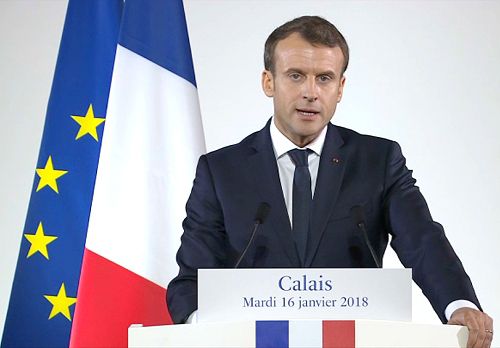 Calais où s'est rendu mardi 16 janvier le Président Macron n'était pas dû au hasard :ville symbole Calais a accueilli la « jungle »( 8 000 réfugiés et migrants désireux de gagner la Grande-Bretagne) avant d' être démantelée il y a un an. Calais où s'est rendu mardi 16 janvier le Président Macron n'était pas dû au hasard :ville symbole Calais a accueilli la « jungle »( 8 000 réfugiés et migrants désireux de gagner la Grande-Bretagne) avant d' être démantelée il y a un an.
Le chef de l’Etat a fermement confirmé qu’il n’entendait pas modifier son cap en la matière. « Notre ligne est claire : à chacun nous devons garantir un accueil digne et humain, à tous nous devons donner une réponse rapide, mais, à ceux qui ne sont pas admis, nous devons faire en sorte qu’ils regagnent effectivement leur pays », a-t-il réaffirmé.
Malgré les associations de défense Emmanuel Macron n’a cédé aucun pouce de terrain à ses détracteurs. De plus il est en phase avec l’opinion majoritaire des Français.
Sa venue au Royaume-Uni doit donner lieu à la signature d'un « nouveau traité » qui complétera les accords du Touquet, a annoncé l'Élysée. « Les Anglais vont participer aux dépenses », a déclaré jeudi sur CNews le ministre français de l'Intérieur, Gérard Collomb. « La frontière restera à Calais, mais les Anglais vont envoyer davantage de forces conjointes de manière à ce que les trafics se fassent mieux »
La première ministre britannique Theresa May sait donc à quoi s’attendre en accueillant ce jeudi le président français Emmanuel Macron pour un sommet bilatéral portant principalement sur les questions de sécurité des frontières et de défense.
Le gouvernement britannique devrait annoncer une augmentation de 44,5 millions de livres (50,5 millions d'euros) sa contribution financière au contrôle de la frontière à Calais, en réponse à la demande française.
"Cet argent doit être investi dans l'amélioration de la sécurité à la frontière", a déclaré un porte-parole de l'exécutif britannique. "Tout comme nous investissons pour nos frontières dans le reste du Royaume-Uni, il est normal de surveiller en permanence si nous pouvons renforcer les contrôles en France et en Belgique, pour s'assurer qu'ils soient aussi sécurisés que possible", a-t-il ajouté.
Theresa May doit également annoncer une augmentation du nombre de mineurs isolés étrangers (MIE) pris en charge par le Royaume-Uni qui a accueilli 893 mineurs vulnérables selon l'ONG France Terre d'Asile, conformément aux attentes de la France.
Les deux dirigeants vont aussi aborder les questions militaires pour montrer que, malgré le Brexit, l’Entente Cordiale va être maintenue et renforcée. Le Royaume Uni a ainsi annoncé l’envoi de trois hélicoptères de la Royal Air Force et de personnels pour épauler les forces françaises dans la région du Sahel.
"Les discussions que nous devons avoir aujourd'hui montrent qu'une relations solide entre nos deux pays, est dans l'intérêt du Royaume-Uni, de la France et de l'Europe", a déclaré Theresa May. "Ce sommet se déroule alors que le Royaume-Uni se prépare à quitter l'UE, mais cela ne signifie pas qu'il quitte l'Europe", a-t-elle redit.
|
|
|
|
|
|
|
|
| Britney Delsey pour DayNewsWorld |
 |
There are no translations available.
LA PECHE ELECTRIQUE EN QUESTION
|
|
La pêche électrique doit être interdite. C'est en tout cas la conclusion d'un vote du parlement européen, ce mardi 16 janvier.
Mais le chemin avant une interdiction définitive sera d'autant plus long d'autant que les chercheurs ne sont pas certains des effets
D'autres réunion auront lieu au sein des instances européennes avant une possible interdiction totale.
Toujours est-il que ce mardi les dérogations accordées depuis 2007 ont sauté...
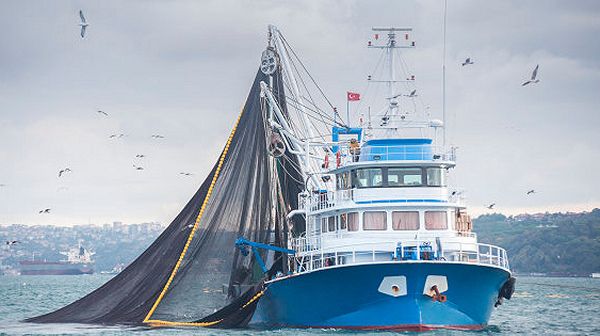 La pêche électrique, à la différence de la peche classique, ne drague pas autant les fonds marins, mais envoie des impulsions électriques :les poissons qui vivent au fond de la mer se convulsent et. remontent alors pour être pris dans les filets. La pêche électrique, à la différence de la peche classique, ne drague pas autant les fonds marins, mais envoie des impulsions électriques :les poissons qui vivent au fond de la mer se convulsent et. remontent alors pour être pris dans les filets.
Des poissons étourdis vivant tels la sole, le turbot, la barbue et la plie qui sont très rémunérateurs.
Selon une étude de 2013, commandée par le gouvernement néerlandais, pionnier du secteur et ferveur défenseur de cette technique,il faut bien le dire , la pêche électrique avait un impact environnemental plutôt positif dans la mesure où les bateaux de pêche consommaient entre 37% et 49% de carburant en moins et rejetaient moins de poissons non voulus (57%).
De plus seuls les poissons de bonne taille remontaient à la surface sous le coup de l'impulsion. Il s'est également avéréque les es filets n'ayant pas besoin de draguer le fond des océans cela semble donc moins nocif pour les fonds marins, ces derniers étaient davantage épargnés.
Alors quels sont les véritables enjeux de la polémique ?
Mais des sujets d'inquiétude persistent. Par exemple, l'étude sur les morues a montré que les poissons de la taille souhaitée (les plus gros) souffraient dans la majorité des cas de blessures vertébrales propices à des hémorragies et des fractures.
"Les chalutiers électriques produisent des captures d'une qualité déplorable, stressées et souvent marquées d'hématomes consécutifs à l'électrocution. Les poissons sont de si mauvaise qualité qu'on ne peut rien en faire", soutenaient ses détracteurs dans une tribune du 11 janvier .
D'ailleurs, la Chine en 2001 a interdit la pêche électrique après des années de pratique intensive, notamment en raison d'une « utilisation non régulée avec une puissance électrique excessive et de mauvais paramètres ».
C'est pourquoi le Conseil International pour l'Exploration de la Mer (CIEM), une organisation internationale scientifique, qui a publié son avis sur la question en février 2016, préconise une meilleure régulation . « Le contexte de régulation existant n'est pas suffisant pour prévenir l'introduction de dommages potentiels ».
La question du réglage des appareils en fonction de l'intensité, de la fréquence ou du temps d'exposition font réagir les animaux marins de différentes manière. Existe-t-il dans ce cas-là un « bon » dosage ?
Actuellement, la réglementation européenne permet à chaque Etat membre d’équiper en filets à électrodes jusqu’à 5 % de sa flotte de chalutiers à perche dans le cadre du projet expérimental. Ardents défenseurs de cette technique, les Pays-Bas comptaient, en fin d’année, 84 navires pratiquant la pêche électrique sur 304, soit 28 % de leur flotte.
Cette autorisation européenne est critiquée par ceux-là même qui l'ont autorisée à titre expérimental.
D'ailleurs, était de cet avis... en 2006, a rappelé récemment l'association Bloom, qui a mené la lutte contre la pêche électrique. Le comité avait été interrogé sur la question d'une dérogation à des fins de recherche en Europe.
Dans son rapport, le comité européen scientifique sur la pêche affirmait en2006 que "si le développement de cette technologie ne doit pas être entravé, il y a un certain nombre de problèmes à résoudre avant que toute dérogation soit accordée". Et pourtant, en 2007, l'Union européenne a accepté l'expérimentation de la pêche électrique à hauteur de 5% du parc de chalutiers en mer du Nord.. 84 licences avaient été attribuées par l'Union Européenne dans le cadre de l'expérimentation.
Mais voilà la France pour qui 35% de la flotte de chalutiers à perche hollandais de plus de 18 mètres ont une licence argue que « cela revient essentiellement à permettre une pêche commerciale sous un déguisement de recherche scientifique ».
Début octobre, Bloom, association française spécialisée dans la défense des océans et de la pêche durable, a déposé plainte contre les Pays-Bas auprès de la Commission européenne, les accusant d’avoir illégalement autorisé des navires à pratiquer la pêche électrique. En effet le pays aurait outrepassé cette dérogation. « Le nombre de décisions d'autorisations de pêche délivrées par les Pays-tiliser le courant électrique impulsionnel dépasse très largement le nombre maximal autorisé », selon l'ONG.
«A l’heure où les Etats européens ont souscrit aux objectifs de l’UE et de l’ONU visant à mettre en œuvre une pêche durable, la pêche électrique, interdite ailleurs dans le monde, émerge en Europe à contretemps de l’histoire», dénoncent ces parlementaires.
Du côté des pêcheurs à Dunkerque ou Boulogne-sur-Mer, la concurrence des Pays-Bas pose également problème, avec notamment de moins en moins de soles, laissant planer des risques économiques et sociaux ainsi qu'environnementaux.
Le Parlement européen s'est finalement prononcé contre la pêche électrique. Une pratique qui soulève de vives oppositions en Europe ;
Le Parlement européen a demandé mardi l'interdiction de la pêche électrique dans l'Union européenne. Par 402 pour, 232 contre et 40 abstentions, les députés se sont opposés à une proposition de la Commission qui souhaitait étendre cette pratique à une large échelle après avoir été expérimentée en mer du Nord, essentiellement par des bateaux de pêche néerlandais. Un compromis doit désormais être trouvé avec la Commission et le Conseil de l'Europe.
Les négociations promettent d’être longues....
|
|
|
|
|
|
|
|
| Joanne Courbet pour DayNewsWorld |
 |
There are no translations available.
LE SORT DES DJIHADISTES FRANCAISES EN SYRIE
|
Si les "droits de la défense sont assurés", les djihadistes françaises en Syrie "seront jugées là-bas", a déclaré le porte-parole du gouvernement, Benjamin Griveaux au micro de Jean-Jacques Bourdin.
|
|
|
Si "dans la partie kurde de la Syrie, dans le Kurdistan syrien", "il y a des institutions judiciaires qui sont en capacité d'assurer un procès équitable avec des droits de la défense assurés, elles seront jugées la bas", a déclaré Benjamin Griveaux ce matin.
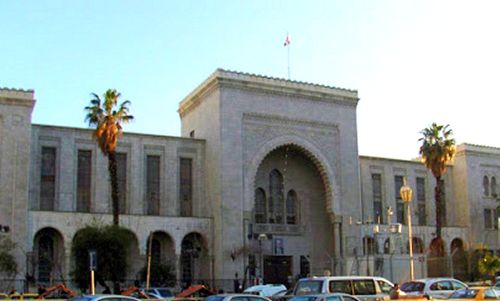 Cette déclaration intervient, alors que Emilie König, une djihadiste française, arrêtée en Syrie par les forces kurdes il y a deux jours, a demandé mercredi à être rapatriée et jugée en France. La Bretonne, âgée de 30 ans, était la Française la plus recherchée des services de renseignements. Une trentaine de djihadistes français seraient arrêtées. Cette déclaration intervient, alors que Emilie König, une djihadiste française, arrêtée en Syrie par les forces kurdes il y a deux jours, a demandé mercredi à être rapatriée et jugée en France. La Bretonne, âgée de 30 ans, était la Française la plus recherchée des services de renseignements. Une trentaine de djihadistes français seraient arrêtées.
Or d'après les informations de sources proches du dossier, Émilie König et d'autres Françaises « ont été arrêtées, et a priori elles ne se sont pas rendues d'elles-mêmes, elles ont été arrêtées en combattant ».
Donc pour les autorités françaises, aucune obligation de les rapatrier en France.
Le gouvernement affirme enfin ce jeudi clairement que les jihadistes françaises doivent être jugées en Syrie -avec pour seule condition celle d'un procès équitable avec des garanties pour que les droits de la défense soit assuré- alors que jusqu'à présent l'exécutif entendait regarder les profils "au cas par cas".
Il y a plusieurs semaines d'ailleurs, le ministre des Affaires étrangères Jean-Yves Le Drian avait déjà affirmé que ceux arrêtés en Irak seraient jugés par Bagdad. La France considère en effet l'Irak comme un pays souverain. "S'il y a des prisonniers en Irak, les choses sont simples, c'est aux autorités judiciaires irakiennes de traiter la situation des hommes et des femmes combattantes", avait-il déclaré.
Les autorités kurdes veulent coopérer avec la France.
Khaled Issa ,représentant du Kurdistan syrien en France, est prêt à coopérer avec la France.
« Si Paris veut récupérer ses ressortissantes, les autorités kurdes trouveront un accord pour les remettre. » « Si la France préfère laisser le soin à nos institutions de les juger, alors nous nous en chargerons. Nous avons les structures compétentes pour le faire, dans le respect du droit international », a-t-il assuré.
"Les autorités kurdes ont formalisé un système judiciaire qui se veut garant des principes du droit international, ils n'appliquent pas la peine de mort", explique Jean-Charles Brisard, directeur du Centre d'analyse du terrorisme.
Par contre une exception : les mineurs doivent être jugés impérativement en France.
C'était déjà l'avis rendu par Georges Fenech, ancien député LR qui a présidé la commission d'enquête de l'Assemblée nationale relative aux moyens mis en œuvre par l'Etat pour lutter contre le terrorisme. "Je suis favorable à leur rapatriement pour qu'ils soient jugés en France. Le critère de nationalité doit pouvoir s'appliquer", explique-t-il.
Les enfants qui sont les victimes des agissements de leurs parents, ceux qui sont pénalement responsables -de 13 à 18 ans- doivent être rapatriés.
|
|
|
|
|
|
| Paul Emison pour DayNewsWorld |
 |
There are no translations available.
UN HOMMAGE NATIONAL
POUR JOHNNY HALLYDAY LE ELVIS FRANCAIS
|
|

Emmanuel Macron a indiqué qu’un "hommage sera rendu" à Johnny Hallyday.
Face à l’émotion provoquée par la mort de Johnny Hallyday chacun lui rend à sa façon hommage.
En déplacement en Algérie, ce mercredi, le chef de l’Etat Emmanuel Macron a indiqué qu’"un hommage" lui sera rendu, sans préciser, à ce stade, s’il s’agirait ou un non d’un hommage national :
"il faudra voir avec la famille", a-t-il souligné.
Une certitude, il assistera en compagnie de son épouse Brigitte Macron, aux obsèques du chanteur.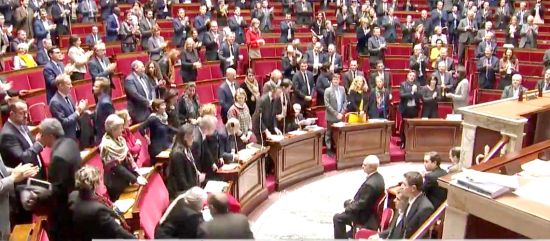
Sachant que, pour l’heure, la date de la cérémonie n’est pas encore connue.
En déplacement en Algérie, Emmanuel Macron a indiqué qu’un "hommage sera rendu" à Johnny Hallyday.
Mais sans préciser s’il s’agirait d’un hommage national
Le chef de l’Etat a indiqué qu’"un hommage" lui serait rendu, sans préciser, toutefois la nature.
Lui, par contre assistera en compagnie de son épouse Brigitte Macron, aux obsèques du chanteur. Sachant que, pour l’heure, la date de la cérémonie n’est pas encore connue.
En début d’après-midi, l’Assemblée nationale a elle aussi rendu hommage à Johnny Hallyday par des applaudissements .
François de Rugy, le président de l’Assemblée, ouvrant la séance des questions d’actualité au gouvernement par ces mots :
"A l’image des Françaises et des Français, nous avons tous quelque chose de Johnny Hallyday".
|
|
|
|
|
|
|
|
| Joanne Courbet pour DayNewsWorld |
 |
There are no translations available.
A PROPOS DU NUAGE DE GAZ RADIOACTIF DE RUTHENIUM DETECTE SUR LA FRANCE ET L'EUROPE
|
|
Entre la fin du mois de septembre et le début du mois d’octobre 2017, plusieurs réseaux de surveillance ont détecté dans l’air un produit radioactif, le Ruthénium 106.
C’est le Sud Est de la France qui aurait été le plus touché. Le nuage radioactif a en effet été détecté par les stations de surveillance de Nice (Alpes Maritimes), d’Ajaccio (Corse du Sud) de la Seyne sur Mer (Var).
 Depuis le 13 octobre, précise l’IRSN (Institut de Radioprotection et de Sureté Nucléaire) il n’a plus été détecté de Ruthénium 106 dans l’air. Dont acte ! Depuis le 13 octobre, précise l’IRSN (Institut de Radioprotection et de Sureté Nucléaire) il n’a plus été détecté de Ruthénium 106 dans l’air. Dont acte !
Comme pour l’affaire de Tchernobyl, la France n’a pas fait l’objet d’une vigilance adaptée pendant cette période. Personne n’a tiré la sonnette d’alarme sur ce nuage.... qui n’a pas tenu compte des frontières, une fois de plus ! Le vilain !
Parallèlement, aucun prélèvement de sol n’a eu lieu pour approfondir le problème et connaitre l’origine de cette contamination atmosphérique. Il a simplement et une fois de plus été déclaré, qu’au regard de la quantité ( ?) de Ruthénium contenu dans le nuage qui a survolé la France, « le nuage radioactif était sans conséquence sur la santé humaine et l’environnement ».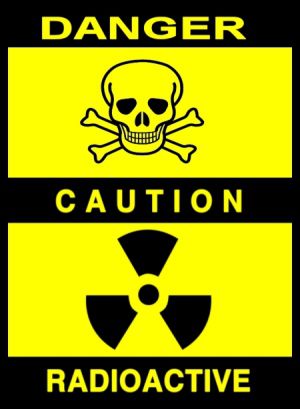
La déclaration provient des milieux politiques et administratifs officiels, en charge de la communication ?
Rappelons tout de même, au passage, qu’il faut un an pour que le taux de radioactivité soit divisé par 2...
A l’opposé, Bruno Charveyron, ingénieur en physique nucléaire et directeur de la Commission de Recherche et d’Information Indépendante sur la radioactivité (CRIRAD) estime inquiétant et invraisemblable que l’on ne sache toujours rien, plus d’un mois après, sur l’origine de ce rejet.
Aucun pays ne s’étant manifesté ou n’ayant pas déclaré l’origine de la pollution, des questions ont commencé à tourner.
La pollution pourrait elle avoir une origine uniquement atmosphérique. Cette probabilité a très vite été écartée, car aucune chute de satellite n’a été signalée.
Alors, peut-être une source terrestre ?
L’hypothèse la plus probable de l’origine de cette pollution serait à rechercher dans une installation de traitement de combustibles radioactifs ou d’une installation fabriquant du Ruthénium 106, un produit généralement destiné au milieu médical.
Le nuage viendrait selon quelques experts de l’Est de l’Europe !
Des avions de reconnaissance sont ils alors allés survoler ce secteur géographique, jusqu’à l’Oural, limite probable de l’origine de la pollution ?
Si oui !
Ces avions ont- ils repéré une source de rejet au Nord Est des sources de la Volga ?
Mais, la Russie a dénié rapidement toute responsabilité de ce genre le 10 novembre ?
Au demeurant, selon les scientifiques il est très improbable que ces rejets proviennent d’une Centrale Nucléaire, les mesures effectuées n’ayant pas révélé la présence d’autres radionucléides dans ceux ci ?
On sait cependant que le Ruthénium est utilisé pour la fabrication de catalyseurs utilisés eux mêmes pour la fabrication des bio-alcools, mais aussi de l’hydrogène... très explosive...
On sait aussi que le mot « Ruthénium » est dérivé du nom latin Ruthénia , lequel décrivait dans l’Antiquité une zone géographique couvrant la majeure partie de la Grande Russie, de l’Ukraine, du Belarus, plus une partie de la Pologne et de la Slovaquie.
Le Ruthénium est défini selon un adage slave, comme « le charme slave de la catalyse, de l’électronique et de la métallurgie », une pensée du jour récemment publiée, par provocation peut-être, désignant indirectement toute la zone Sud Ouest de la Grande Russie.
La piste Russe, malgré les dénégations des autorités russes, pourrait donc se confirmer ?
Pour conclure, on insistera à nouveau sur l’insuffisance des mesures de radioprotections qui auraient pu nous éclairer, que ce soit au plan national comme au plan européen.
Mais la gravité ponctuelle de la situation n’a pas été portée, volontairement ou pas, à la connaissance des citoyens, ne serait-ce que pour leur déconseiller de consommer des produits susceptibles d’avoir subis une contamination, comme par exemple certains produits alimentaires en provenance de l’Europe de l’Est... à l’exemple des champignons...Et on est pourtant en pleine saison !
|
|
|
|
|
|
|
|
| Clara Mitchell pour DayNewsWorld |
 |
There are no translations available.
VASTE COUP DE FILET ANTITERRORISTE
EN FRANCE ET EN SUISSE SIMULTANEMENT
|
|
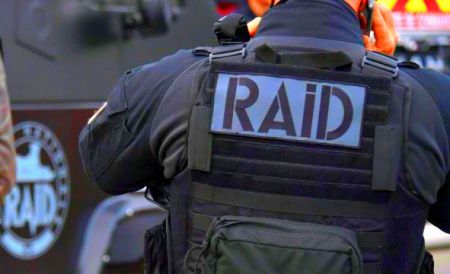
Une importante opération antiterroriste s'est déroulée mardi 7 novembre simultanément dans les deux pays la France et la Suisse dans le cadre d'une étroite coopération, et a permis d'interpeller ce matin neuf personnes, âgés de 18 à 65 ans, dans les Alpes-Maritimes et en région parisienne et une personne en Suisse afin de déjouer un attentat potentiel.
Ces individus participaient à un groupe de discussion de la messagerie cryptée Telegram, fréquemment utilisée par les djihadistes, dans lequel ils tenaient des propos inquiétants, selon des sources policières .
Ils étaient pour la plus plupart connus des services de renseignement. Parmi les personnes interpellées apparaissent deux frères déjà bien connus des services pour leur radicalisation.
Une information judiciaire a été ouverte le 19 juillet 2017 visant des faits susceptibles d'être qualifiés 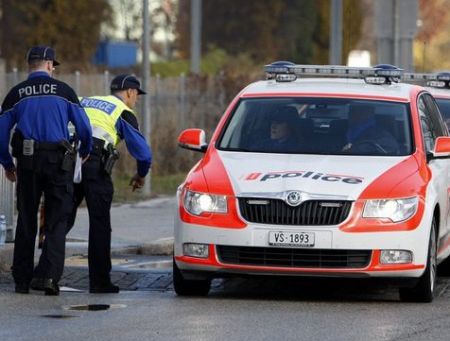
« d'association de malfaiteurs en vue d’une entreprise terroriste criminelle et provocation directe à la commission d'un acte de terrorisme par un moyen de communication au public en ligne. »
Les investigations ont été confiées à la Sous direction antiterroriste SDAT et à la Direction générale de la sécurité intérieure (DGSI).
En ce qui concerne l'individu arrêté en Suisse, elles ont par ailleurs mis en évidence que ce dernier avait dans ce cadre des contacts avec des individus demeurant en France avec qui il évoquait notamment des projets d'actions violentes aux contours mal définis à ce stade, selon nos sources.
Cet homme arrêté en Suisse était également en lien sur les réseaux sociaux avec un adolescent de 13 ans, soupçonné de préparer une attaque jihadiste au couteau.
Ce jeune Français, arrêté en région parisienne la nuit précédant la fête de la musique le 21 juin, avait été mis en examen par un juge antiterroriste et écroué.
Sur les réseaux sociaux, il avait proclamé son allégeance" au groupe Etat Islamique (EI).
Les perquisitions et les auditions, qui ne font que commencer,et permettront de préciser les contours des projets d'attentats qu'ils s'apprêtaient à commettre.
|
|
|
|
|
|
|
|
| Paul Emison pour DayNewsWorld |
 |
There are no translations available.
UNE CERTAINE ARROGANCE
ASSUMEE DU PRESIDENT MACRON ?
|
|
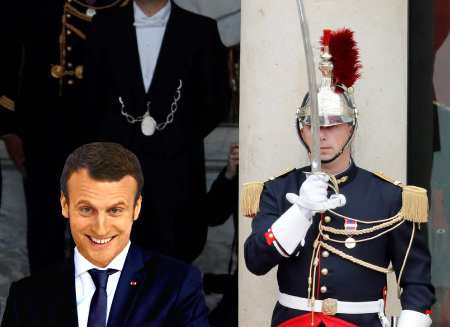 Le célèbre New-York- Time n'a pas hésité à tacler l'arrogance du Président français pas plus tard que dimanche . Le célèbre New-York- Time n'a pas hésité à tacler l'arrogance du Président français pas plus tard que dimanche .
Ce dernier dit assumer ses propos alors qu'à plusieurs reprises Emmanuel Macron déclenche des polémiques après l'utilisation de mots jugés par par beaucoup déplacés.
La seule exception connue à cette règle c'est lorsqu'il avait traité d' « illettrés » les employées de l'abattoir Gad lors de sa première interview en tant que ministre de l'Economie sur Europe 1. Il s'était senti obligé de présenter « ses excuses les plus plates » aux employées et « ses regrets » devant le Parlement allant jusqu'à réitérer quelques mois plus tard, alors à nouveau sur le site de l'entreprise, ses excuses .
Puis en déplacement à le Cross d’Etel, dans le Morbihan, il y avait eu le trait d’humour des plus douteux sur "Le kwassa-kwassa pêche peu, il amène du Comorien", les kwassa-kwassa étant des bateaux de pêche à Mayotte. L'Elysée s'était senti obligé de réagir : "C'est une plaisanterie pas très heureuse sur un sujet grave. C'est complètement regrettable et malvenue", avait alors tenté d' expliquer l'entourage, mais Emmanuel Macron, lui, ne s'était pas abaissé à s'excuser !
A ce florilège de déclarations plutôt mal perçue par les personnes concernés, il ajoute alors qu’il présente son projet de développement du transport en autocar : « Quand on me dit « Les pauvres voyageront plus facilement », j’ai tendance à penser que c’est une caricature, mais les pauvres qui ne peuvent pas voyager voyageront plus facilement, parce que l’autocar c’est huit à dix fois moins cher. » Ou lors de l' inauguration de la Station F, devant un parterre d'entrepreneurs, il n’hésite pas à les opposer à « ceux qui ne sont rien » .
Et voilà que lors de visite à l’étranger, il récidive. Déjà en Roumanie il y a quelques semaines, il avait annoncé que la France n'était pas pas réformable. Pas plus tard que lors de son déplacement en Grèce où Emmanuel Macron appelle de ses vœux une refondation de l'Europe il traite ceux qui s'opposent à sa réforme « de fainéants,cyniques et extrêmes ».
À la veille de la grande manifestation contre la loi travail, les déclarations d’Emmanuel Macron sur « les fainéants, les cyniques, les extrêmes », n’en finissent pas de faire des vagues.
Il y a eu déjà eu des expressions malheureuses sous des mandats précédents telles la «France d'en-bas, la France d'en-haut », « les sans dents » et maintenant en peu de temps et même prononcées depuis l'étranger des expressions relevant d'un certains mépris ou plutôt « d'une forme de provocation » qu' Emmanuel Macron dit assumer complètement sans aucun regret ?
"Mon discours était très clair", a-t-il affirmé, en précisant que, avec le mot "fainéants", il avait dénoncé "tous celles et ceux qui pensent qu'on ne doit pas bouger en Europe et en France". Une explication quelque peu différente de celle apportée par son porte-parole Christophe Castaner samedi tentant d'expliciter la pensée du Président qui visait "la posture de la fainéantise" de "ceux qui n'ont pas eu le courage de faire les réformes nécessaires". Une manière de cibler ses prédécesseurs...
Mais qu'en pensent les Français ?
"Qui qu'il ait visé, il y a forcément une part de mépris et ce n'est pas nouveau chez Emmanuel Macron", a taclé Olivier Faure, patron du groupe PS à l'Assemblée en réponse à une question de LCP sur les propos tenus par le Président, vendredi dernier en Grèce.
Alors, maladresse ou stratégie politique ?!
A vous lecteurs d'en juger ........
|
|
|
|
|
|
|
|
| Larry Ricky pour DayNewsWorld |
 |
There are no translations available.
ENFIN AU TOUR DE LA FRANCE D'ARMER SES DRONES
|
|
 Après l’Italie, la Grande-Bretagne et bientôt l’Allemagne, la France a enfin à son tour pris la décision incontournable d’armer ses drones de surveillance. Après l’Italie, la Grande-Bretagne et bientôt l’Allemagne, la France a enfin à son tour pris la décision incontournable d’armer ses drones de surveillance.
« J'ai décidé de lancer le processus d'armement de nos drones de renseignement et de surveillance », a annoncé mardi la nouvelle ministre des Armées, Florence Parly à Toulon.
« A l'avenir, les drones armés permettront d'allier en permanence la surveillance, l'endurance dans la discrétion et la capacité de frappe, au moment le plus opportun », a-t-elle ajouté .
Avec cette décision qui divisait le gouvernement précédent, la France ne fait que rejoindre le club des nations déjà dotées de cette capacité .
Il était temps qu'une telle décision soit prise dans la mesure où la France a pâti, après l'opération Serval au Mali, de l'absence de ces aéronefs autonomes et de longue endurance utilisés dans le cadre de la surveillance du théâtre des opérations.
Les Etats-Unis utilisent les drones pour des frappes ciblées depuis la guerre du Golfe qui remonte aux années quatre-vingt dix !
La France possède des drones américains le système américain MQ 9-Reaper n'ayant pas développé son propre système. Il s'avère donc nécessaire de définir le système d'armes qui va pouvoir être utilisés. Ces drones armés Reaper dits de « moyenne altitude et longue endurance » (MALE) ne seront donc pas fonctionnel avant 2019 !!! La France doit demander l'autorisation au Congrès américain d'armer ces futurs appareils, toute exportation d'arme passant aux Etats-Unis par un vote des parlementaires.
Le général André Lanata, chef d'état-major de l'armée de l'air, a souligné que les règles d'engagement seront les mêmes que celles exigées pour autoriser un tir par un avion Rafale, un canon Caesar ou un lance-roquettes.
« Les drones sont déjà dans la boucle du feu puisqu'ils désignent les cibles et guident les missiles Hellfire des hélicoptères et des bombes des Mirage », explique-t-il.
« Les drones de surveillance sont devenus des moyens incontournables dans les opérations que nous menons au Sahel où les Reaper permettent de surveiller, identifier et suivre les cibles, a précisé Mme Parly. Mais dès lors qu’il s’agit de traiter ces cibles, il faut faire appel à d’autres moyens, avions ou hélicoptères de combat. »
La lutte contre les groupes djihadistes en Afrique exige une réponse efficace !!!
Dans une volonté de réduction de sa dépendance aux moyens américains, la France s’était engagée en 2015 dans un projet de drone MALE armé européen pour 2025, avec l’Allemagne, l’Italie et l’Espagne...
Le général Lecointre a quand même mis en garde contre les "réflexes de régulation budgétaire sauvages" et jugé extrêmement dangereux »de laisser à la seule charge des Armées le financement des Opex. » reprenant en quelque sorte le discours de son prédécesseur, le général Pierre de Villiers, qui a démissionné en juillet après un rappel à l'ordre honteux du président Emmanuel Macron
Responsable des opérations, le chef d'état-major des armées a "aussi des responsabilités en matière de cohérence générale à la fois de la programmation et des engagements budgétaires", a-t-il souligné à l'Université d'été de la Défense.
|
|
|
|
|
|
|
|
| Alize Marion pour DayNewsWorld |
 |
There are no translations available.
GROGNE CHEZ LES CRS CHARGES DE LA PROTECTION
DE LA MAISON DU TOUQUET DU COUPLE MACRON
|
|
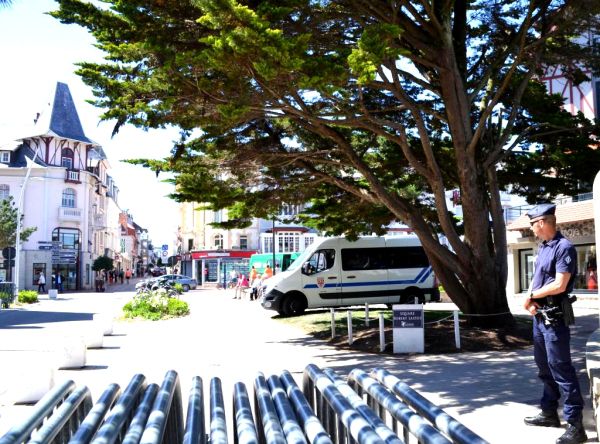 La colère enfle chez les CRS chargés de surveiller tous les jours de l'année la maison des Macron au Touquet . La colère enfle chez les CRS chargés de surveiller tous les jours de l'année la maison des Macron au Touquet .
La maison d'Emmanuel Macron au Touquet se voit en effet surveillée en permanence par une équipe de policiers dépendant des compagnies républicaines de sécurité (CRS)
Les CRS sont contrariés en raison des nouvelles consignes qui leur sont imposées.
Les CRS chargés de surveiller la maison d'Emmanuel Macron au Touquet ont reçu pour consigne jeudi dernier, juste avant la venue du président pour le week-end, de se faire plus discrets.
En clair: ils ne doivent plus patrouiller avec leurs fusils d'assaut, qui devront rester dans leurs voitures.
Ces armes G 36 mis à disposition depuis les attentats de 2015 permettent de faire face aux tirs de kalachnikovs en cas d'attaque.
Ces instructions choquent les CRS en poste, qui estiment leur sécurité moins bien assurée. Pas étonnant que le syndicat Alliance est monté au créneau pour dénoncer cette nouvelle directive y voyant « un affront » et « une remise en cause [du] professionnalisme » des CRS. Ce nouvel ordre intervient après des plaintes des riverains,jugeant cette présence constante d'agents de police oppressante. En mai dernier, Daniel Fasquelle, le maire du Touquet, s'était déjà montré réticent à cette forte présence des forces de l'ordre :
« Il faut éviter de perturber inutilement les Touquettois et les vacanciers. Les gens viennent ici pour la tranquillité, le cadre de vie. Alors s'ils voient des policiers partout… Il y a 4 000 emplois qui dépendent directement du tourisme, il ne faut pas l'oublier », avait-il affirmé lors d'un entretien pour La Voix du Nord
Mais comment protéger efficacement une maison mitoyenne avec d'autres maisons ?
Et comment ne pas mettre en danger la vie des CRS privés de leurs armes en plein contexte terroriste?
|
|
|
|
|
|
|
|
| Carl Delsey pour DayNewsWorld |
 |
There are no translations available.
SCANDALE EN FRANCE ! LA LIBERTE DE LA PRESSE ATTEINTE !! UN JOURNALISTE ET PHOTO-REPORTER FRANCAIS PLACE EN GARDE A VUE POUR AVOIR VOULU PHOTOGRAPHIER LE COUPLE MACON !!!
|
|
La presse française en ce mois août rapportait qu’Emmanuel Macron « s’activait » pour faire » libérer Loup Bureau , notre confère journaliste emprisonné en Turquie par Recep Tayyip Erdogan.
Rappelons que Loup Bureau a été interpellé à la frontière de l’Irak et de la Turquie, alors qu’il était en train de faire un reportage sur les combattants Kurdes Syriens des YPG (Unités de Protection du Peuple), considérées comme une organisation terroriste par Ankara.
La déclaration et l’intervention d’Emmanuel Macron ont été saluées comme un beau plaidoyer en faveur de la liberté de la Presse et de l’indépendance des journalistes, toutes deux fondamentalement nécessaires à l’exercice de la démocratie.
Le 15 août 2017 Emmanuel Macron vient de porter plainte pour harcèlement, violation de domicile et atteinte à la vie privée contre un journaliste qui avec des confrères avait suivi pendant un quart d’heure le convoi présidentiel, puis pris position pour faire des photos , devant la résidence marseillaise située dans le quartier huppé de Marseille, le Roucas-Blanc , où le couple présidentiel passe ses vacances.
Or, après intervention vigoureuse des agents de sécurité attachés à Emmanuel Macron, un photo-reporter à été embarqué le 14 août au poste de police et placé pendant six heures en garde à vue.
« Ils ont fouillé tout mon matériel, mes sacs... ; ils ont retiré mes lacets de chaussures et ma montre », proteste ce dernier.
Le photo-Reporter ajoute « qu’il a été traité comme un criminel » parce qu’il ne voulait pas coopérer..
Le but de la manœuvre a été clairement de faire peur !
De le faire taire !!
Avec menace à la clé de « mise au trou » !!!
On sait depuis longtemps qu’Emmanuel Macron et ses équipes veulent bouter les journalistes hors de l’Elysée..
De là à adopter les mêmes méthodes que celle de l’odieux dictateur qui règne sur la Turquie depuis quelques années, nous pensions qu’il y avait un pas, un grand pas, infranchissable, en France, patrie des Droits de l’Homme.
Et bien !
Détrompez-vous !!
Emmanuel Macron vient de franchir sans état d’âme, le cap, à la grande surprise de beaucoup, qui n’avaient pas imaginé que les vacances du Président étaient en passe de devenir un secret d’Etat !!!
Souvenons- nous en effet des photos d’Emmanuel et Brigitte de l’année dernière, en maillot de bain !!!
Sauf que ces photos, ont bien servi la communication de celui qui n’était alors, en 2016, que candidat à la présidence de la République !!!
Alors !!! Erreur en Turquie, Vérité en France ?
On s’aperçoit, comme certains l’avaient pronostiqué, que le comportement d’Emmanuel Macron et ses harangues au Peuple français, ne répondent qu’aux intérêts du moment. Ses attitudes de circonstance, opportunistes, ne sont en fait fondées sur aucune éthique et font fi des principes de droits élémentaires, la communication étant le seul fil conducteur de tout cela.
En tout état de cause, on ne peut, tous, qu’être énormément surpris par cet incident et ceci même si l’Elysée vient de démentir toute pression sur le journaliste.
Heureusement nous autres Journalistes Américains nous sommes protégés par les lois sur la presse et en particulier par le Premier et Quatrième Amendements !!!!
|
|
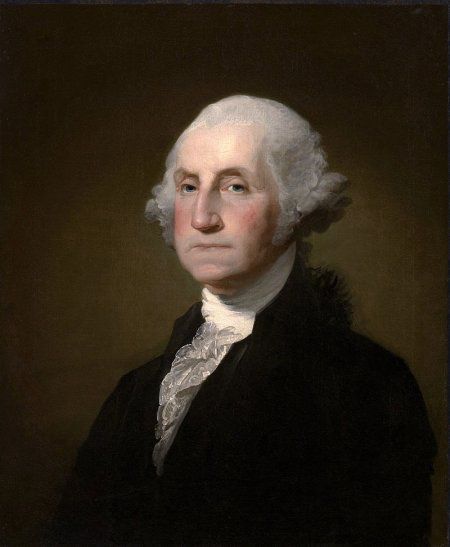
|
|
|
First Amendment
Congress shall make no law respecting an establishment of religion, or prohibiting the free exercise thereof; or abridging the freedom of speech, or of the press; or the right of the people peaceably to assemble, and to petition the Government for a redress of grievances.
|
|
|
Premier Amendement
« Le Congrès n'adoptera aucune loi relative à l'établissement d'une religion, ou à l'interdiction de son libre exercice ; ou pour limiter la liberté d'expression, de la presse ou le droit des citoyens de se réunir pacifiquement ou d'adresser au Gouvernement des pétitions pour obtenir réparations des torts subis. »
|
| La presse internationale entière est atterrée par cet événement que personne n'aurait penser pouvoir se produire en France, qui fut l'un des berceaux de la liberté, de la démocratie, des droits de l'homme....... !!!!!!
Toute notre équipe rédactionnelle se joint à l'ensemble nos confrères de la presse (Américaine) et aux équipes de journalistes de toutes les nations au monde dans le soutien de notre confrère Français qui vient de subir ce qui ne devrait jamais se produire dans une démocratie !!!!
Cela appelle à se poser des questions :
Que se passe- t-il en France ?
Qui est Vraiment Emmanuel Macron ??
La France est-elle encore une démocratie ???
|
Fourth Amendment
The right of the people to be secure in their persons, houses, papers, and effects, against unreasonable searches and seizures, shall not be violated, and no Warrants shall issue, but upon probable cause, supported by Oath or affirmation, and particularly describing the place to be searched, and the persons or things to be seized.
|
|
Quatrième Amendement
« Le droit des citoyens d'être garantis dans leurs personne, domicile, papiers et effets, contre les perquisitions et saisies non motivées ne sera pas violé, et aucun mandat ne sera délivré, si ce n'est sur présomption sérieuse, corroborée par serment ou affirmation, ni sans qu'il décrive particulièrement le lieu à fouiller et les personnes ou les choses à saisir. »
|
|
|
|
|
| |
|
Dieu protège l’Amérique son peuple !
La constitution protège son peuple et sa liberté !!
Vive l'Amérique !!!
Liberté pour toute la presse dans le monde !!!!
To be Continued.....!!!!!
A suivre....!!!!!
|
|
|
| Clara Mitchell pour DayNewsWorld |
 |
There are no translations available.
EN FRANCE PETITION CONTRE
UN STATUT DE PREMIERE DAME
|
|
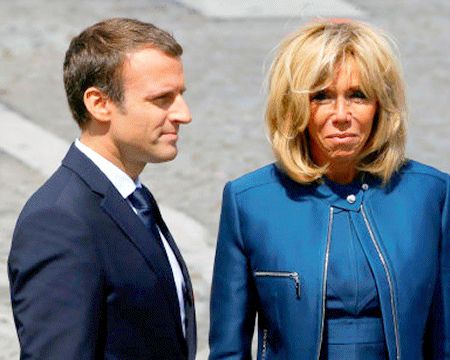 Une pétition « contre le statut de première dame », lancée il y a deux semaines sur Internet, a réuni plus de 150 000 signatures, ce qui peut donner bon espoir de faire barrage au projet du président français. Une pétition « contre le statut de première dame », lancée il y a deux semaines sur Internet, a réuni plus de 150 000 signatures, ce qui peut donner bon espoir de faire barrage au projet du président français.
« Aucune raison pour que l'épouse du chef de l'État puisse obtenir un budget sur les fonds publics », affirme cette pétition sur change.org, lancée par Thierry Paul Valette, qui se présente comme « artiste peintre et auteur » et « citoyen engagé ».
« Brigitte Macron dispose à l'heure actuelle d'une équipe de deux à trois collaborateurs, ainsi que de deux secrétaires et deux agents de sécurité et cela est suffisant », affirme encore le texte qui met en avant le contexte d'« économies » que souhaite réaliser le gouvernement.
« Nous dénonçons farouchement toutes les attaques sexistes envers Brigitte Macron », ancienne professeure de théâtre du président, de 25 ans son aînée, « et nous ne remettons nullement en cause ses compétences », assure le texte.
« Cependant, dans une période de moralisation de la vie politique française », avec l'adoption début août d'un projet de loi qui interdit les emplois familiaux de collaborateurs pour les ministres et parlementaires, « nous ne pouvons décemment cautionner l'initiative d'un statut spécifique à l'épouse » du chef de l'État.
Cette pétition, adressée au chef de l'État et à son premier ministre Édouard Philippe, a réuni plus de 152 000 soutiens.
Pendant la campagne présidentielle, Emmanuel Macron avait indiqué que sa femme aurait « un rôle public », s'il était élu à l'Élysée, pour « sortir d'une hypocrisie française », mais sans être « rémunérée par le contribuable ».
La question du statut de la première dame s'était invitée la semaine dernière à l'Assemblée nationale, lors de l'examen des projets de loi de moralisation de la vie politique. Les députés de gauche radicale avaient défendu, en vain, un amendement pour que des moyens ne puissent être donnés aux conjoints du président, comme aux membres du gouvernement ou des parlementaires.
La ministre de la Justice, Nicole Belloubet, avait alors rappelé qu'Emmanuel Macron s'était prononcé pour « une plus grande transparence sur le rôle et les moyens mis à la disposition » du conjoint du chef de l'État. Mais elle avait jugé que le projet de loi en discussion n'était « pas un véhicule approprié pour définir ce statut ».
|
|
|
|
|
|
|
|
| Paul Emison pour DayNewsWorld |
 |
STRENGTHENING THE INFLUENCE OF FRANCE
THROUGH THE OLYMPIC GAMES OF 2024?
|
|
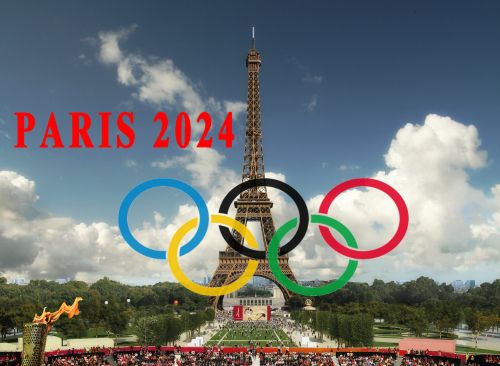
The President of the Republic Emmanuel Macron has enthusiastically carried to Lausanne the candidacy of France for the Jo of 2020 against Los Angeles only other city in contention. However, Los Angeles and the IOC announced on Monday (July 31st) an agreement for the organization of the 2028 Olympic Games.
The victory for 2024 in Paris seems assured . This double allocation should be ratified on 13 September in Lima, Peru.
The mayor of Paris Anne Hidalgo declared "very optimistic" for the continuation.
Many candidate cities have defected to the organization of these games : the leaders of Boston, Budapest, Rome and Hamburg have feared the risks of inflation of organizational costs . Moreover, public opinion rejects more and more The idea of spending such sums of money in the organization of such events.
For example, a citizens' petition with more than 200,000 signatures forced Budapest to withdraw from the Olympics.
This petition demanded that the city withdraw its candidacy of the Olympic Games so that the money spent for these games is rather invested in the education and health systems of the country. Hamburg had also withdrawn its candidacy after a referendum won by the "no" to 51.7%.
Over the past three decades, all budgets have been exceeded. The London Games in 2012 cost 11 billion euros instead of the 4.8 billion expected. The Beijing and Sochi Olympics saw their budget boom from respectively a budget of 2.6 billion to 32 billion and from 8.8 to 36 billion euros! According to the Japanese media, the costs of organizing the Tokyo Olympic Games in 2020 could reach 13.8 billion euros instead of the 2.3 billion originally planned. Only Los Angeles, the sole candidate for the 1984 Games, had respected its projected budget.
A budget of 6.2 billion euros is planned for Paris rather large compared to those proposed since 1988, with an average of about 4.5 billion euros . The French capital ranks second after Rio and its 9.5 million euros.
"Many cities have abandoned, in Europe and elsewhere, because public opinion is no longer convinced, even if the Olympic and Paralympic Games remain the most important planetary event , " said Mayor of Paris Anne Hidalgo
In France, too, public opinion questions itself. According to Frédéric Viale, a member of the collective "No to the 2024 Olympics in Paris ", "The Games have always been ruinous and they will be ruinous for Paris." As with every edition, the budget has been minimized and security costs have not A surplus of at least 5 billion euros is expected. " he Had also put a petition online to ask for a referendum on the Parisian candidature. ..
Why do you want to see the Olympics in Paris at a time when several economists are questioning the economic spin-offs mentioned in particular by the study of the Limoges Center for Sports Law and Economics? Economic considerations are highlighted by this study. It is hoped that some 247,000 jobs will be created, and an estimated profitability of around 10 billion euros (3.5 billion euros reported by tourism, 1 billion euros by ticketing, etc.).
It is true that the French capital already owns 93% of the competition sites provided for in the Paris project. It remains to build the media village and that of the athletes, as well as the aquatic center.
But the rise of terrorism in France will require a strong deployment of the security forces, post making considerably increase the invoice.
Anne Hidalgo and Emmanuel Macron also highlight the strengthening of the "soft power" of France and its leaders.
The members of the bidding committee Paris 2024 also place the Paris Olympics under the sign of ecology and are counting on a public health stake the practice of the very weak sport of the French which would increase thanks to the enthusiasm of the latter by the event athletic.
|
|
|
|
|
|
|
|
| Kelly Donaldson for DayNewsWorld |
 |
There are no translations available.
APRES MACRON AU CONGRES EN GRANDE POMPE
AU TOUR DE PHILIPPE
|
|
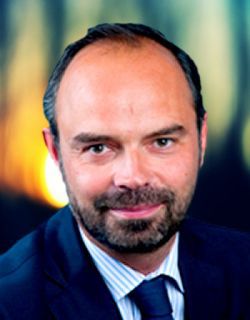 L'intervention solennelle d'Emmanuel Macron au Congrès de Versailles n'a pas vraiment convaincu : le chef de l'Etat a fait un discours d'une heure et demie sur les domaines réservés qui sont les siens. L'intervention solennelle d'Emmanuel Macron au Congrès de Versailles n'a pas vraiment convaincu : le chef de l'Etat a fait un discours d'une heure et demie sur les domaines réservés qui sont les siens.
Son Premier ministre Edouard Philippe doit,quant à lui, "donner corps" à sa vision ce mardi.
"le discours de la méthode" de l'exécutif sur les volets économique et social est du reste très attendu.,
La déclaration de politique générale sera prononcée à 15H00 à la tribune de l'Assemblée nationale par l'ancien maire du Havre.
"Le président va fixer le cap lundi. Et moi j'expliquerai mardi comment on atteint ce cap", résumait ce week-end le Premier ministre .
"Ca sera un discours de la méthode, un discours politique d'exécution: ce qu'on va faire, comment on peut le faire et, ce qu'a déjà largement expliqué le président, pourquoi on va le faire.
C'est, même si le terme est souvent galvaudé, un discours pédagogique", selon l'entourage du chef du gouvernement.
|
|
|
|
|
|
|
|
| Joanne Courbet pour DayNewsWorld |
 |
There are no translations available.
BOYCOTT PAR LA FRANCE INSOUMISE ET LES COMMUNISTES DU CONGRES DE VERSAILLES
|
|
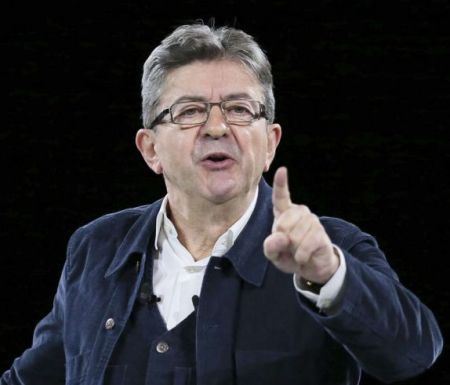 Plusieurs parlementaires comptent boycotter le Congrès de Versailles devant lequel Emmanuel Macron doit s’exprimer lundi. Plusieurs parlementaires comptent boycotter le Congrès de Versailles devant lequel Emmanuel Macron doit s’exprimer lundi.
Comment marquer leur protestation au moment du Congrès ? Peut-être par un rassemblement symbolique place de la République à Paris.
Beaucoup de faste pour servir la com présidentielle, «dérive monarchique», mauvaise manière faite au Premier ministre…
Un choix critiqué par l'opposition. Les députés de La France insoumise et l'ensemble des parlementaires communistes boycotteront ce rendez-vous.
Voilà annoncée la décision qu’ont ainsi prise en bloc les députés de La France insoumise.
«Nous avons discuté pour savoir où pouvions-nous donner le signal d’alerte le plus fort», contre ce que Jean-Luc Mélenchon appelle «la monarchie pharaonique présidentielle», explique le président du groupe à l’Assemblée.Même lee délai (jusqu’à lundi 17 heures) dont disposent les députés s'avère bien trop court pour déposer leurs amendements sur la loi d’habilitation sur les ordonnances pour réformer le code du travail, Mélenchon prévient : «La violence que nous avons subie ne peut pas rester sans réplique, nous la retournons contre ceux qui nous la font subir. Nous nous rebellons et nous n’irons pas.»
Les parlementaires communistes ont eux aussi prévu de bouder le Congrès, «une mascarade qui infantilise le Parlement», s’agace le député Pierre Dharéville. Leur parti appelle à un rassemblement lundi à Versailles du «tiers état»."Nous n'irons pas à Versailles adouber le monarque présidentiel" et "valider le court-circuit du travail de l'Assemblée", ont fait valoir les élus PCF.
Depuis la révision constitutionnelle de 2008, le président de la République peut s’exprimer devant les sénateurs et députés réunis en congrès depuis l’aile du Midi, où les présidents de chaque groupe parlementaire peuvent s’exprimer à tour de rôle, sans procéder à un vote. Nicolas Sarkoy l’a fait à l’été 2009, puis François Hollande deux jours après les attentats de novembre 2015.Emmanuel Macron a décidé, quant à lui, de faire un rituel annuel, abandonnant l'habituelle interview télévisée du 14 juillet !!!
Mais c’est la date choisie par Emmanuel Macron qui a choqué l’opposition : en tout début de mandat et surtout la veille de la déclaration de politique générale que doit prononcer Edouard Philippe à l’Assemblée.
|
|
|
|
|
|
|
|
| Boby Dean pour DayNewsWorld |
 |
FOR OR AGAINST OFFICIAL PHOTO
PRESIDENT MACRON?
|
|
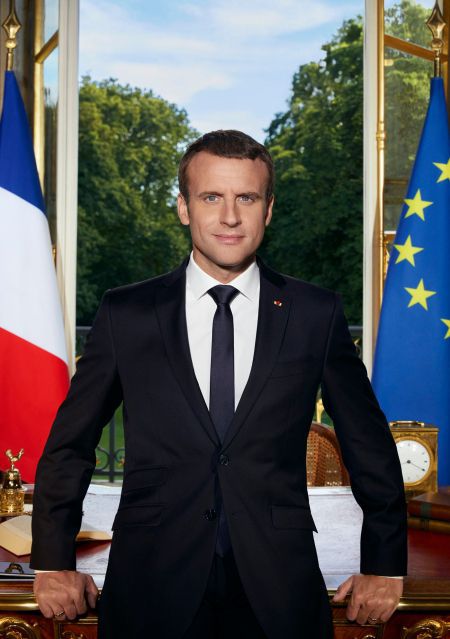
M acron unveiled this game i on Twitter his official portrait . The photo was taken in his office.Il the place where he works the most regularly, the Golden Salon.
The President of the Republic is wearing a dark suit, a blue tie. It appears framed by the French and European flags. The Head of State leans against his desk, in front of a window open on the garden of the Elysee.
The position of the new head of state breaks with those of his predecessors . The first two presidents of the Fifth Republic, Charles de Gaulle and Georges Pompidou, had opted for a very solemn photograph, necklace grandmaster of the Legion of Honor around the neck.
While Nicolas Sarkozy, Jacques Chirac were frozen, Francois Hollande had wanted to give movement to the picture walking in the park of the Elysee. Emmanuel Macron, leader of En marche!, He no longer works, he is facing France and ready to work. He is openly transmitting an action message.
Note the position of the office . Previously, it was placed perpendicular to the window. The new head of state is now back to his window, in the light.
This official photo of Emmanuel Macron has nevertheless been criticized by professional photographers.
The result is not unanimous. This shot is signed by Soizig de la Moissonière the photographer who follows since the beginning of his campaign the former candidate of En marche! He says a lot about the new resident of the Élysée. We know that this portrait is intended to include all 36,000 town halls in France.How important.
If the symbolism behind the stereotype shows a consummate art of political communication , the photographers are more critical of the final result of the work of Soizig de la Moissonière. Why?
A quality can be attributed certainly without context to Emmanuel Macron: the application with which he works his image . The official photo of the President of the Republic does not deviate from this rule. "Sleeve shirts, up to the tip of the flags, everything is set to the millimeter. "
The framing certainly meets the two-thirds rule, a height standard. We see a Emmanuel Macron totally in front and only his look of a cold blue and piercing, a determined look, strikes the eye ... Emmanuel Macron is placed in the center. Everything is perfectly aligned . But the photo is saturated with symbols and objects: the phones, the open book (It's about War memoirs of General de Gaulle, ndrl), the other two piled up (The Red and the Black Stendhal and Les Nourritures André Gide, ndrl), the inkwell surmounted by a cock or the clock. This overloaded decorum gives us an impression of suffocation.
Light , the basis of photography, is also very worked. Three projectors face the president. A central and two lateral for a strong light No doubt: Emmanuel Macron is wearing and makeup, extremely powdered as in his campaign picture;
What does the staging translate?
The stance as well as the staging is that of an entrepreneur and translates the "sense of (his) commitment" and its action.
The presence of the European flag n ° : Emmanuel Macron explained himself, Thursday, during a visit to Berlin: "It was the meaning of the campaign that I carried in our country, it is the sense of my commitment."
"France can not succeed without a strong Europe and Europe can not move forward if there is not a strong and responsible France, it is also what this photo says, (...) that we have a bound destiny, "he continued.
This photo is reminiscent of the official portrait of Barack Obama . Moreover, since the presidential campaign has not it clearly posted Barack Obama as the main reference?
|
|
|
|
|
|
|
|
| Joanne Courbet for DayNewsWorld |
 |
There are no translations available.
|
DES RATEES DANS LES LEGISLATIVES EN FRANCE
AVEC UNE FORTE ABSTENTION
32% POUR MACRON, 400 DEPUTES ENVIRON?
|
|
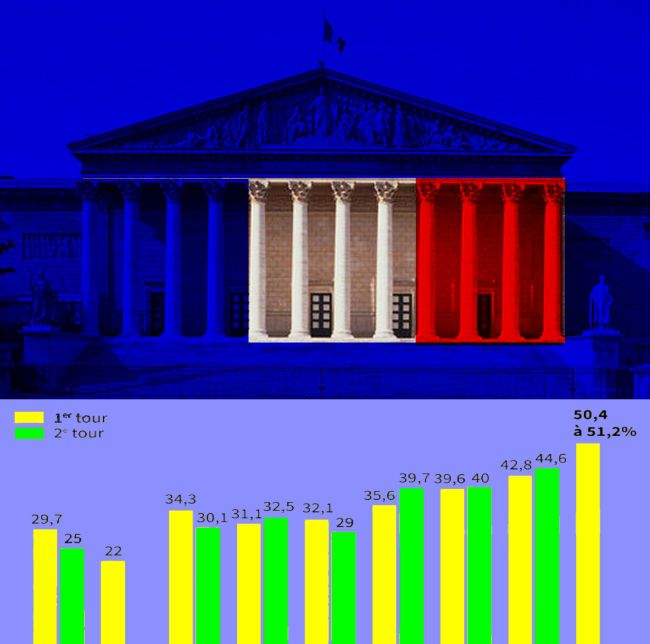 Premier constat : Premier constat :
la participation en forte baisse par rapport à 2012
A 17h ce dimanche, la participation s’établissait à 40,75 % au premier tour des élections législatives 2017, contre 48,31 % en 2012.
L'abstention finale atteindrait 50% selon l'Ifop, 50,5% selon Ipsos et 51% selon Elabe. Estimations publiées à trois heures de la fermeture des derniers bureaux de vote dans les grandes villes.Ce matin, résultat officiel: plus de 51%!
L'élection des 577 députés de la 15ème législature sous la Vème République, scrutin pourtant clef pour Emmanuel Macron semble boudée alors qu'il faut choisir parmi 7887 candidats et que 40 % des députés sortants ne se représentent pas.
Le second tour aura lieu le 18 juin. L'Assemblée sera profondément renouvelé
Le parti La République en Marche (LREM) va tâcher d'obtenir une majorité à l'Assemblée nationale face aux appétits de revanche du Front national , de la droite et des « Insoumis » de Jean-Luc Mélenchon.
C'est le premier chiffre qui marque le premier tour de ces élections législatives 2017 : un taux d'abstention record sous la Ve République, situé entre 50 et 51% selon les projections des instituts. Un record qui n'est pas sans conséquences...Jamais les Français n'avaient aussi massivement boudé les urnes pour des élections législatives .La nouvelle offre politique n'a pas vaincu le scepticisme des citoyens.
Si peu de députés devraient être élus dès ce dimanche 11 juin, il y aura également peu de triangulaires. Un mois après l'élection d'Emmanuel Macron, ces législatives devraient donner lieu à un profond renouvellement des visages à l'Assemblée nationale, alors que près de 40% des députés sortants ont renoncé à se représenter.
Les 32,2% obtenus selon les estimations par l'alliance entre La République en Marche et le MoDem représentent un score historiquement bas . En effet jamais un président de la République n'avait obtenu un pourcentage aussi faible lors des élections législatives qui suivaient son accession à l'Elysée.
Parmi les principaux enjeux à surveiller : les six membres du gouvernement en lice (Bruno Le Maire, Richard Ferrand, Marielle de Sarnez, Christophe Castaner, Annick Girardin, Mounir Mahjoubi) devront démissionner s'ils s'inclinent dans leur circonscription, selon la règle fixée par le président.
Plusieurs ex-candidats à la présidentielle, dont Jean-Luc Mélenchon à Marseille, Marine Le Pen à Hénin-Beaumont Plusieurs ex-candidats à la présidentielle, dont Jean-Luc Mélenchon à Marseille, Marine Le Pen à Hénin-Beaumont et Benoît Hamon à Trappes, tentent eux de se relancer après leurs échecs respectifs.
Les Républicains arrivent en deuxième position avec un score de près de 21,56 %, suivi par le Front National (13,2 %).
La France insoumise de Jean-Luc Mélenchon cumule près de 11 % des votes, alors que le Parti socialiste recueille près de 10 % des suffrages.. Le Parti communiste et Europe-Ecologie-les Verts sont au coude-à-coude avec seulement 3% des suffrages.
Effondrement abyssal des socialistes!
LR et l'UDI obtiendraient 95 à 115 sièges et l'ensemble PS-PRG-EELV-Divers gauche serait laminé avec 22 à 32 sièges. La France insoumise et le PCF totaliseraient entre 11 et 21 députés et le Front national, entre 5 et 15.
Une assemblée de novices ne rendrait pas service au président.
"Lorsque les majorités sont larges et que ceux qui ont cette majorité n'ont pas nécessairement l'expérience ou n'ont pas nécessairement l'approche politique qui doit prévaloir face à un contexte particulièrement difficile, alors il peut y avoir des perturbations", analyse Bernard Cazeneuve. Les discours sont de la même tonalité à droite. ironi "Un parti unique, ce n'est jamais une bonne solution. C'est pas bon pour la libre discussion démocratique",selon Alain Juppé.
Baroin et Mélenchon appellent à la mobilisation pour éviter des « pouvoirs concentrés » dans « un seul et même parti »
"Il reste une semaine pour mettre en lumière les différences qui existent entre nos candidats et ceux d'En Marche, projet contre projet (...) Notre pays attend un pouvoir équilibré et non concentré entre les mains d'un seul parti", a déclaré le président des Républicains à l'issue du premier tour des élections législatives.
Il faudra encore patienter une semaine avant que ces élections législatives ne livrent leur verdict définitif.
|
|
|
|
|
|
|
|
| Joanne Courbet pour DayNewsWorld |
 |
There are no translations available.
LE PRESIDENT MACRON ET LES FOOTBALLEURS
|
|
 Le nouveau président Emmanuel Macron ne fait rien comme les autres. Le nouveau président Emmanuel Macron ne fait rien comme les autres.
Lors de la Coupe de France de football jouée au Stade de France samedi soir :
Entre les équipes de football Paris Saint-Germain contre l'équipe d'Angers le Président de la République Emmanuel Macron est descendu sur le stade pour saluer chaque équipe et donner le coup d'envoi.
Depuis Jacques Chirac aucun président de la République n'était descendu sur le stade de peur de se faire huer.
L'équipe de football d'Angers s'est bien battue mais c'est Paris Saint-Germain qui a gagné.
Notre nouveau président a félicité les deux équipes, été voir aussi l'ancien président Monsieur Nicolas Sarkozy qui adore le foot et félicité chaque joueur aussi. 
Personnellement j'étais très triste que l'équipe de football d'Angers ne gagne pas, je les avais rencontré avant, c'est une équipe très sympathique.
Le matin avant le match je les ai vu jouer aux échecs avec un petit garçon pour se relaxer, discuter des différentes stratégies.
Et tous ces joueurs ne m'ont dit que du bien de l'équipe de Paris Saint-Germain pour qui ils ont un profond respect.
À bientôt mia Kennedy.
|
|
|
|
|
|
|
|
| Mia Kennedy pour DayNewsWorld |
 |
There are no translations available.
PASSATION DE POUVOIR EN FRANCE
|
"Les Français ont choisi l'espoir et l'esprit de conquête", a lancé le plus jeune président de la République jamais élu en France, à 39 ans
|
|
|
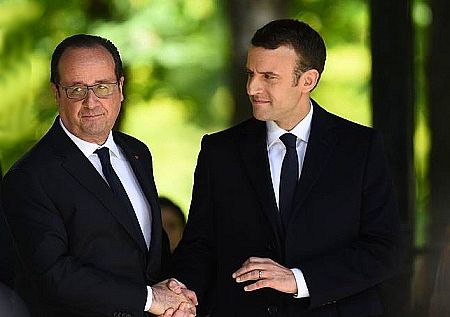 "Je veux rendre aux Français leur confiance en eux, depuis trop longtemps affaiblie", a-t-il insisté, dans son premier discours d'investiture "Je veux rendre aux Français leur confiance en eux, depuis trop longtemps affaiblie", a-t-il insisté, dans son premier discours d'investiture
Lors de cette cérémonie solennelle, sous les ors de la Salle des fêtes du palais de l'Elysée, Emmanuel Macron a fixé son cap soulignant aussi le "rôle immense" de la France, qui doit "corriger les excès du cours du monde et veiller à la liberté".
Le ton est donc donné dès son investiture dimanche:Emmanuel Macron veut redonner "confiance" aux Français et de "refonder" l'Union européenne,
Il a longuement développé sa première exigence, affirmant que la France n’était « pas déclinante ». « Tout ce qui concourt à la vigueur de la France et à sa prospérité sera mis en œuvre: le travail sera libéré, les entreprises soutenues, les initiatives encouragées, la création et l'innovation seront au cœur de mon action. » « Les Françaises et Français qui se sentent oubliés par ce vaste mouvement du monde devront se voir mieux protégés ». « La laïcité républicaine sera défendue (…) L’Europe dont nous avons besoin sera refondée et relancée car elle nous protège et nous permet de porter dans le monde nos valeurs ». Il veut aussi que « le pays retrouve une vitalité démocratique »: « les citoyens auront voix au chapitre, ils seront écoutés. »
Sa deuxième exigence,consiste à « donner l’exemple d’un peuple sachant affirmer ses valeurs et ses principes qui sont ceux de la démocratie et de la République ». Cet objectif sera possible pour lui lorsque les Français auront « su dépasser ensemble (leurs) craintes et (leurs) angoisses ».
Alors seulement, « le monde entier sera attentif à la parole de la France ».
Puis Emmanuel Macron rend hommage à ses prédécesseurs : Du « général De Gaulle qui œuvra pour redresser la France et lui rendre dans le concert des nations »en passant par Georges Pompidou « qui fit de notre pays une puissance industrielle majeure », Valéry Giscard d’Estaing « qui su faire entrer la France et sa société dans la modernitésans oublier François Mitterrand. la réconciliation du Jacques Chirac « nous donnant le rang d’une nation sachant dire non aux prétentions des va-en- guerre ». Nicolas Sarkozy « ne comptant pas son énergie pour résoudre la crise financière » pour conclure avec François Hollande qui a protégé « les Français dans un monde frappé par le terrorisme ».
Le sortant devait livrer à l'entrant quelques secrets d'Etat,et bien entendu les codes de l'arme nucléaire.
Selon le protocole Emmanuel Macron a été élevé à la dignité de grand-croix de la Légion d'honneur avant de se voir présenter le Grand collier de Grand maître de la Légion d'honneur.
Parmi les quelque 300 invités de cette investiture, étaient présents les corps constitués , des représentants des partenaires sociaux, des prix Nobel ainsi qu'une centaine de proches.
Une petite dizaine de "marcheurs" de la première heure seulement, Richard Ferrand, Christophe Castaner, Renaud Dutreil, Gérard Collomb, Sylvie Goulard ou François Patriat, et de nombreuses personnalités dont Nathalie Kosciusko-Morizet, Pierre Gattaz ou Elisabeth Guigou.
Emmanuel Macron avait également invité le compagnon de Corinne Erhel, députée des Côtes-d'Armor décédée le 5 mai lors du dernier meeting de la campagne, celui de Xavier Jugelé, le policier tué le 20 avril sur les Champs-Elysées lors d'une attaque jihadiste - et auquel il a ensuite rendu hommage en faisant une halte sur les lieux de son assassinat.
La cérémonie s'est poursuivie : dans les jardins de l'Elysée, le nouveau président a passé en revue les troupes tandis que 21 coups de canon étaient tirés depuis l'Esplanade des Invalides.
Puis Emmanuel Macron est sorti pour remonter seul les Champs-Elysées à bord d'une jeep militaire jusqu'à la place de l'Etoile.
Comme le veut la tradition, il a ravivé la flamme sur la tombe du Soldat inconnu, sous une pluie battante !
Près de 1.500 policiers et gendarmes étaient mobilisés, leurs nerfs mis à rude épreuve par le premier bain de foule du nouveau locataire de l'Elysée sur les Champs-Elysées.
Le nouveau chef de l'Etat à "la certitude intime que nous pouvons ensemble écrire une des plus belles pages de notre histoire".
|
|
|
|
|
|
| Britney Delsey pour DayNewsWorld |
 |
There are no translations available.
LE CONSEIL CONSTITUTIONNEL A ANNULE 4 691 BULLETIN SUR L'ENSEMBLE DE LA FRANCE EN RAISON DES DIFFERENTES IRREGULARITES.
|
Ainsi des 201 suffrages exprimés à Nantillé en Charente-Maritime, lors du premier tour de l'élection présidentielle. La participation y avait atteint 80%. Mais le procès-verbal complet n'a pas été reçu dans les temps.
Celui envoyé à la préfecture de Charente-Maritime à l'issue du dépouillement était incomplet. a voulant rattraper son erreur la mairie a bien envoyé le document complet le lendemain matin mais il était trop tard pour parvenir dans les temps au Conseil constitutionnel.
Jacques Bizot, le maire de la commune, reconnaît sa responsabilité légale .
Et qu'en est-il des autres annulations ?
Après avoir statué sur les réclamations mentionnées dans les procès-verbaux des opérations de vote, opéré diverses rectifications d'erreurs matérielles, procédé aux redressements qu'il a jugé nécessaires et aux annulations énoncées ci-après
;
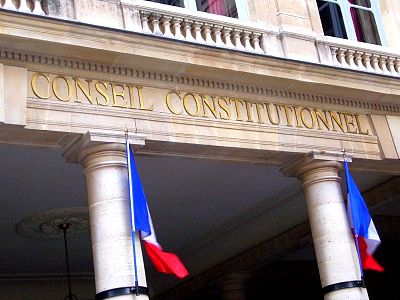 LE CONSEIL CONSTITUTIONNEL S'EST FONDÉ SUR CE QUI SUIT : LE CONSEIL CONSTITUTIONNEL S'EST FONDÉ SUR CE QUI SUIT :
- Sur les opérations électorales :
1. Dans le bureau de vote n° 2 de la commune de L'Ajoupa-Bouillon (Martinique), dans lequel 218 suffrages ont été exprimés, le délégué du Conseil constitutionnel a constaté, lors de son passage, que seul le président du bureau de vote était présent. Alors même que les deux assesseurs n'ont été absents qu'une partie de la journée, une telle irrégularité est de nature à entraîner des erreurs et peut favoriser la fraude. Par suite, il y a lieu d'annuler l'ensemble des suffrages émis dans ce bureau.
2. Dans le bureau de vote n° 50 de la commune Les Abymes (Guadeloupe), dans lequel 251 suffrages ont été exprimés, la composition du bureau de vote, en l'absence d'assesseur, ne respectait pas les conditions prévues par l'article R. 42 du code électoral. Cette irrégularité s'étant poursuivie en dépit des observations faites par le magistrat délégué du Conseil constitutionnel, il y a lieu d'annuler l'ensemble des suffrages émis dans ce bureau.
3. Dans la commune de Celles-lès-Condé (Aisne), dans laquelle 59 suffrages ont été exprimés, ni les mentions du procès-verbal, qui ne font état d'aucune différence entre le nombre des émargements, le nombre de bulletins trouvés dans l'urne et le nombre de suffrages exprimés, ni les feuilles de pointage jointes, que les scrutateurs n'ont d'ailleurs pas signées ni même remplies, ne prennent en compte ni n'expliquent la jonction au même procès-verbal d'un nombre important, au regard du nombre des votants et du nombre des suffrages exprimés, de bulletins nuls et de bulletins blancs. Le Conseil constitutionnel n'étant pas en mesure d'exercer son contrôle sur la régularité des votes dans cette commune, il y a lieu d'annuler l'ensemble des suffrages émis dans cette commune.
4. Les procès-verbaux des opérations électorales de la commune de Louan-Villegruis-Fontaine (Seine-et-Marne), de la commune de Leychert (Ariège) et du bureau de vote n° 25 de la commune d'Acoua (Mayotte), dans lesquels ont été respectivement exprimés 302, 83 et 150 suffrages, n'ont pas été transmis à la préfecture après le dépouillement du scrutin en méconnaissance de l'article L. 68 du code électoral. Ce manquement rend impossible le contrôle de la régularité et de la sincérité du scrutin. Il y a donc lieu d'annuler l'ensemble des suffrages émis dans ces communes et ce bureau de vote.
5. La commune de Nantillé (Charente-Maritime), dans laquelle 201 suffrages ont été exprimés, n'a transmis à l'issue immédiate du dépouillement qu'un procès-verbal incomplet en méconnaissance de l'article L. 68 du code électoral. Ce manquement rend impossible le contrôle de la régularité et de la sincérité du scrutin. Il y a donc lieu d'annuler l'ensemble des suffrages émis dans cette commune.
6. Dans le bureau de vote n° 3 de la commune d'Ecouen (Val d'Oise), dans lequel 1 021 suffrages ont été exprimés, les électeurs étaient invités à signer la liste d'émargement avant de déposer leur bulletin dans l'urne, en méconnaissance des dispositions du dernier alinéa de l'article L. 62-1 du code électoral. Cette irrégularité a été constatée peu avant la clôture des opérations de vote par le magistrat délégué du Conseil constitutionnel. Dans ces conditions, il y a lieu d'annuler l'ensemble des suffrages émis dans ce bureau de vote.
7. Dans le bureau de vote n° 2 de la commune de Saint-Sauveur-Lendelin (Manche) et dans la commune de Lamastre (Ardèche), dans lesquels ont été respectivement exprimés 532 et 1 566 suffrages, la présentation d'un titre d'identité n'a pas été exigée des électeurs comme le prescrit l'article R. 60 du code électoral pour les communes de plus de 1 000 habitants. Cette irrégularité s'est poursuivie en dépit des observations des magistrats délégués du Conseil constitutionnel. Cette méconnaissance délibérée et persistante de dispositions destinées à assurer la régularité et la sincérité du scrutin doit entraîner l'annulation de l'ensemble des suffrages émis dans ce bureau et cette commune.
8. Le procès-verbal des opérations électorales du bureau de vote n° 155 de la commune de M'Tsamboro (Mayotte), dans lequel 183 suffrages ont été exprimés, ne comporte pas la mention des résultats obtenus par les candidats à l'issue du dépouillement. Ces résultats ne figurent pas non plus sur le procès-verbal du bureau centralisateur de la commune. Ce manquement rend impossible le contrôle de la régularité et de la sincérité du scrutin. Il y a donc lieu d'annuler l'ensemble des suffrages émis dans ce bureau de vote.
9. Le procès-verbal des opérations électorales dans la commune d'Uza (Landes), dans laquelle 125 suffrages ont été exprimés, a été établi après suppression des rubriques prévues pour recevoir, le cas échéant, les observations et réclamations des membres du bureau, candidats, remplaçants et délégués des candidats, électeurs du bureau et personnes chargées du contrôle des opérations, en méconnaissance de l'article R. 52 du code électoral et de l'article 30 du décret du 8 mars 2001. Ce manquement rend impossible le contrôle de la régularité et de la sincérité du scrutin. Il y a donc lieu d'annuler l'ensemble des suffrages émis dans cette commune.
10. La commission départementale de recensement de l'Essonne a retranché des résultats de trois bureaux de vote cinq suffrages qu'elle a considérés comme irrégulièrement exprimés en faveur de M. François Fillon et de M. Nicolas Dupont-Aignan au motif que les bulletins de vote présentaient une police de caractère différente de celle des autres bulletins. Si l'article 23 du décret du 8 mars 2001 prévoit que les bulletins de vote doivent être d'un modèle uniforme, les bulletins litigieux présentent des différences peu marquées affectant la seule police de caractère. En l'état de ce constat et en l'absence de fraude établie, il y a lieu de rectifier les résultats issus des travaux de la commission et de majorer de quatre le nombre de suffrages exprimés en faveur de M. Fillon et de un le nombre de suffrages exprimés en faveur de M. Dupont-Aignan.
11. Dans le bureau de vote n° 2 de la commune du François (Martinique) et dans le bureau de vote n° 13 de la commune du Robert (Martinique), la commission de recensement a retranché du nombre des bulletins blancs et du nombre des bulletins nuls le nombre de ces bulletins qui ne lui avaient pas été transmis. En raison de la faiblesse des discordances relevées et en l'absence de fraude, il convient de s'en tenir au nombre des bulletins blancs et nuls tel qu'il résulte du procès-verbal des opérations électorales.
12. La commission départementale de recensement de la Meuse a retranché du résultat du candidat arrivé en tête dans les bureaux de vote de Chardogne, Inor et Rupt-en-Woëvre, ainsi que dans le bureau de vote n° 3 de Lachaussée, des suffrages qu'elle a considérés comme irrégulièrement exprimés, mais qui ne pouvaient être attribués à un candidat déterminé. Cette opération n'entrait pas dans ses attributions. En raison de la faiblesse des discordances relevées et en l'absence de fraude, il convient de s'en tenir au nombre de suffrages effectivement émis dans ces bureaux. Par suite, il y a lieu de rectifier les résultats issus des travaux de la commission et de majorer de quatre le nombre de suffrages exprimés en faveur de Mme Marine Le Pen et de un ceux exprimés en faveur de M. Emmanuel Macron.
- Sur l'ensemble des résultats du scrutin :
13. Aucun candidat n'a recueilli la majorité absolue des suffrages exprimés au premier tour de scrutin.

LE CONSEIL CONSTITUTIONNEL DÉCLARE :
Article 1er. - Les résultats du scrutin pour l'élection du Président de la République, auquel il a été procédé les 22 et 23 avril 2017, sont les suivants :
Électeurs inscrits : 47 582 183
Votants : 37 003 728
Bulletins blancs : 659 997
Un scrutin peut donc être annulé a posteriori. «Dans le cas où le Conseil constitutionnel constate l’existence d’irrégularités dans le déroulement des opérations, il lui appartient d’apprécier si, eu égard à la nature et à la gravité de ces irrégularités, il y a lieu soit de maintenir lesdites opérations, soit de prononcer leur annulation totale ou partielle», explique ainsi l’institution sur son site.
A l’échelle d’un bureau de vote, l’annulation totale ou partielle des résultats n’a rien d’exceptionnelle. Tout électeur a le droit de contester la régularité du scrutin lorsqu’il vient glisser son bulletin dans l’urne. Des magistrats, délégués du Conseil constitutionnel, sont également présents dans les bureaux pour veiller à ce que tout soit en ordre. Le plus souvent, les votes ne sont pas pris en compte car l’identité de l’électeur n’a pas été vérifiée ou qu’il ne s’est pas plié à la règle de l’isoloir. Rien de très frauduleux, donc.
Plus les résultats sont serrés, plus les irrégularités ont de poids
Les candidats, eux, peuvent contester dans un délai de 48 heures «l’ensemble des opérations électorales» . Les irrégularités constatées doivent être d’une ampleur telles qu’elles pourraient changer l’issue du scrutin. A cette échelle, on peut d’ailleurs supposer qu’elles ne seraient pas le fait de maladresses et d’erreurs mais bien volontaires. «donc le Conseil constitutionnel pourrait décider d’annuler l’élection.»
Plus les résultats sont serrés donc, comme ils sont annoncés cette année, plus les irrégularités constatées ont de poids
Le choix serait tout aussi délicat si l' on constatait des irrégularités de vote conséquentes, selon Pascal Jan.
«Si on maintenait le résultat, on risquerait un procès en illégitimité et si on annulait, on serait sûr de voir les candidats sélectionnés contester ce choix et tirer à boulet rouge.» d'après un confrère.
|
|
|
|
|
|
|
|
| Joanne Courbet pour DayNewsWorld |
 |
There are no translations available.
TERRIFIANTE UOIF POUR UNE FRANCE GANGRENEE ?
|
|
Pour le quotidien américain New-York Times, le face à face Marine Le Pen-Emmanuel Macron a plus eu l’air d’une "empoignade dans le style de la télévision américaine qu’une discussion raisonnée telle que les Français en ont pris l’habitude".
Emmanuel Macron et Marine Le Pen se sont livrés un duel télévisé sans merci, à quatre jours du second tour.
D’emblée, la candidate du Front national a accusé Emmanuel Macron de "complaisance" sur le fondamentalisme islamique au cours d'un vif échange sur la sécurité et le terrorisme.
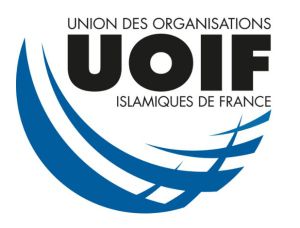 "Il faut éradiquer l’idéologie du fondamentalisme islamiste et vous ne le ferez pas parce que vous êtes soumis à eux", a lancé la candidate du Front national. Le Front national ne ménage pas ses efforts pour faire d'Emmanuel Macron le candidat du communautarisme. "Il faut éradiquer l’idéologie du fondamentalisme islamiste et vous ne le ferez pas parce que vous êtes soumis à eux", a lancé la candidate du Front national. Le Front national ne ménage pas ses efforts pour faire d'Emmanuel Macron le candidat du communautarisme.
A l'instar de Marine Le Pen qui, mardi 25 avril sur TF1, l'accusait d'être "entre les mains des communautaristes [...] les plus dangereux, comme l'UOIF." Une déclaration qui s'appuie notamment sur les velléités et relations prêtées à cette fédération trentenaire qui réunit 250 associations musulmanes et prône "une lecture authentique et ouverte de l'islam".
Qu'est l'UOIF ?
L’Union des organisations islamiques de France (UOIF) est une fédération musulmane française.Parmi les organisations liées avec l'UOIF on trouve l'Association des musulmans de Lorraine, l'Association cultuelle lyonnaise ou encore l’Association des musulmans des Alpes-Maritimes (AMAM).Membre du Conseil français du culte musulman, depuis les élections de 2003, l'UOIF détient une vice-présidence et la présidence de onze des vingt-cinq conseils régionaux du culte musulman (CRCM)
Comme toutes les structures liées aux Frères musulmans, elle est inscrite en novembre 2014 sur la liste des groupes terroristes publiée par les Émirats arabes unis avec 81 autres organisations dans le monde entier dont plusieurs actives légalement au sein de l'Union européenne !!!
À la suite du congrès de l'UOIF de février 2017 au Bourget, l'UOIF vote son renommage en « Musulmans de France »
Organisation Terroriste donc pour depuis 2004 les Émirats arabes unis à qui l'ont vend nos rafales...
Mais y a-t-il véritablement un lien entre cette fédération controversée d'associations musulmanes et le candidat d'En Marche !, comme veut le faire croire Marine Le Pen ?
Parmi ces relations, celles avec les Frères musulmans, dont l'UOIF, si l'on suit les accusations de représentants politiques tels que Marine Le Pen, mais aussi Christian Estrosi ou Manuel Valls, serait une vitrine hexagonale. Mais quelle vitrine !!?
En France Macron s'est refusé à l'interdire et pour cause : UOIF a apporté son soutien à Emmanuel Macron. Pour balayer le spectre le plus large électoralement on mangerait, semble-t-il dans n'importe quelle main. EXTREMMEMENT DANGEREUSE ET IRRESPONSABLE POUR UN FINALISTE QUI SE VOIT DEJA PRESIDENT . "Marine Le Pen lui a parlé de Mohamed Saou, un proche de l'UOIF qui est dans son équipe et que Macron avait soutenu, pensant être hors antenne, en disant que 'c'était quelqu'un de radical mais de bien'. « Or, je ne sais pas comment on peut trouver quelqu'un de radical et de bien. » conclut avec bon sens l'avocat Gilles-William Goldnadel ce jeudi dans Les Grandes Gueules. N'y-a-t-il pas des moyens plus loyaux de conquérir l'électorat musulman déjà acquis au socialisme majoritairement ? et donc au hollandisme II incarné par Macron !
Mais bien pire quand on soulève le couvercle !!! Le financement de l'islam en France :
Certes l’UOIF affirme que seuls 30% de ses fonds proviennent de sources étrangères. C'est déjà trop. La politologue Fiammetta Venner constate POURTANT dans son ouvrage OPA sur l'islam de France : les ambitions secrètes de l'UOIF, publié en 2005, est qu’une grande partie des fonds dits d’origine française proviennent en réalité des grands mécènes du Golfe persique.
 De quoi faire froid dans le dos. Mais ne le savait-on pas déjà avec les fonds du golfe versés aux associations des banlieues?! De quoi faire froid dans le dos. Mais ne le savait-on pas déjà avec les fonds du golfe versés aux associations des banlieues?!
De même les donateurs qataris versent une grande partie des fonds dédiés par l’UOIF à leurs acquisitions immobilières, comme le décrit le chercheur et maître de conférences en sciences politiques Haoues Seniguer dans un entretien accordé au quotidien Libération :
« Il est avéré que des membres de l’UOIF se rendent dans le Golfe pour lever des fonds. L’argent transite sous la forme de liquidités ou d’investissements dans des murs ou projets en lien étroit avec la vision islamique de l’émirat. Il peut s’agir de mécènes qataris évoluant autour des cercles dirigeants du Qatar, dans la mesure où le régime qatari est de type néopatrimonial, oligarchique, où le privé et le public sont donc imbriqués. »
POUR INFO:
Récemment, le Qatar a financé (4,4 million d'euros) la construction de la mosquée Assalam de Nantes, gérée par l’Association islamique de l’Ouest de la France (AIOF), un satellite régional de l’UOIF; ainsi que la mosquée As Salam de Mulhouse, administrée par l’Association des musulmans d'Alsace, aussi été érigée grâce à un don de 2 millions d’euros de la part de l'ONG Qatar Charity; de même le Qatar finance la future grande mosquée à Marseille
Encore plus vicieux : Dans le cadre de sa stratégie de financement, l'UOIF a engagé un processus d'autonomisation financière. Elle a investi le marché du halal à effet de générer du flux de trésorerie tant sur le marché français qu'à l'export. Officieusement, ce marché représenterait un chiffre d'affaires de 5 milliards d'euros par an. Elle détiendrait un monopole de fait pour l'exportation vers les pays du Golfe.
Des clous dans les gaudiots d'Emmanuel Macron !?
En apportant son soutien à Emmanuel Macron l'Union des organisations islamiques de France (UOIF) savait-elle combien de clous elle mettrait dans les gaudiots du candidat En Marche ! ? Interrogé sur le sujet, le président Amar Lasfar concède bien que la confrérie internationale des Frères musulmans, porteuse d'un message conservateur et rigoriste, est soupçonnée de vouloir combattre en sous-main pour imposer en France un islam politique et contraire aux valeurs la France. Des accusations que ne nie d'ailleurs pas Benjamin Griveaux, porte-parole d'Emmanuel Macron, interrogé sur le sujet régulièrement. Bravo pour la franchise.
En effet, l'UOIF traîne comme un boulet des polémiques
liées à des invités lors d'un rassemblement, en février 2016, à Lille. A l'époque, elle avait dû déprogrammer en catastrophe trois orateurs aux discours particulièrement arriérés sur la place de la femme dans la société, quand ils ne s'avéraient pas ouvertement antisémites et homophobes.
Bref, un sujet éminemment sensible, alors que le Front national réclame à corps et à cri l'interdiction de l'UOIF. De nombreuses voix se sont élevées avant l'organisation à Lille, dimanche 7 février, d'un rassemblement placé sous l'égide de l'UOIF auquel doivent participer 5000 personnes. En cause : l'invitation de plusieurs prédicateurs connus pour des propos contraires aux valeurs républicaines. Des invitations polémiques qui ont fini par être annulées.
es participations des trois prédicateurs, le Syrien Mohamed Rateb Al-Nabulsi, le Marocain Abouzaïd Al-Mokri et le Saoudien Abdallah Salah Sana'an, ont finalement été déprogrammées de la réunion de l'UOIF. Une décision prise "en réponse à la polémique et dans un souci d'apaisement", a fait savoir ce mardi soir le président de l'UOIF, Amar Lasfar. Et peut-être, aussi, sous la pression du ministère de l'Intérieur. Dans un communiqué , Bernard Cazeneuve a prévenu l'UOIF que "tout propos tombant sous le coup de la loi donnera lieu à des poursuites immédiates et fera l’objet des sanctions appropriées".
PETIT RAPPEL :
A cinq jours de la "9e Rencontre annuelle des musulmans du Nord", organisée par l'Union des organisations islamiques de France (UOIF), les appels se multiplient pour demander au ministre de l'Intérieur, Bernard Cazeneuve, l'interdiction du rassemblement. En cause : des invités au passif très polémique.Des voix contre les "prédicateurs de haine"
Le député Nicolas Dupont-Aignan (DLF) avait appelé l'UOIF à "déprogrammer ses intervenants qui prêchent la haine", sans quoi "la République devra prendre ses responsabilités et interdire cette manifestation". "Je ne peux pas supporter […] qu'on laisse s'exprimer des orateurs qui portent dans leurs paroles la négation même du pacte républicain", a affirmé, dans le même sens, le député PS Jérôme Guedj. Dans un communiqué publié mardi, le FN a également dénoncé "une provocation insupportable et un crime contre la sécurité nationale". Laurence Marchand-Taillade (PRG), présidente de l'Observatoire de la laïcité dans le Val-d'Oise, est aux premières loges dans cette mobilisation. Elle appelle à une manifestation à Lille, le 7 février , jour de la conférence, contre "les prédicateurs antisémites, sexistes, homophobes et pro-jihad".
Sources uniquement journalistiques de bon ton et de spécialistes citées ne m'en déplaise !
QU'EN PENSER SINON QUE LA FRANCE DE DEMAIN RISQUE DE VIVRE DE DROLES DE MOMENTS !
|
|
|
|
|
|
|
|
| Joanne Courbet pour DayNewsWorld |
 |
There are no translations available.
AVEC 1,93 ENFANT PAR FEMME LA FRANCE RESTE
EN TETE DE L'EUROPE MEME SI
ELLE ACCUSE UNE LEGERE BAISSE
|

La France compte 66,991 millions d'habitants au 1er janvier 2017, selon l'Insee. 2016. Avec 13% de la population de l'Union européenne, la France reste le deuxième pays le plus peuplé après l'Allemagne (16% de la population de l'UE).
Le solde naturel (différence entre les naissances et les décès) s’établit à 198 000 .Le solde migratoire, lui, atteint 67 000 personnes supplémentaires en 2016.
Le nombre des naissances baisse pour la deuxième année consécutive avec 785 000 naissance.
On observe une baisse particulièrement pour les femmes âgées de 25 à 29 ans due à des études plus longues et à une insertion dans le marché du travail toujours plus tardive et plus précaire.
.L'âge moyen à la maternité s’établit en 2016 à 30,4 ans.
En France, 5 % des bébés ont une mère de plus de 40 ans .De plus la population féminine en âge de procréer est en diminution, la classe du baby-boum vieillissant.
Un impact des réformes de la politique familiale pourrait également avoir joué à la marge.
La population française vieillit représentant 19,2% de la population.
Elle a augmenté de trois points en dix ans, et de quatre points en vingt ans, soit trois points de plus que dix ans auparavant et l'âge de longévité s'établit à 85,4 ans pour les femmes et 79,3 ans pour les hommes. |
|
|
|
|
|
|
|
| Paul Emison pour DayNewsWorld |
 |
There are no translations available.
LEGISLATIVES
LE PS ET LA MENACE MACRON AUX IDEES
|
|
Les candidats socialistes qui ne soutiendraient pas la personne désignée lors de la primaire se verraient retirer l'investiture PS pour les législatives.
La menace est réelle. Si un candidat socialiste soutient Emmanuel Macron ou un prétendant autre que celui désigné par la primaire de la Belle Alliance populaire, adieu l'investiture du parti annonce Christophe Borgel, secrétaire national aux élections.
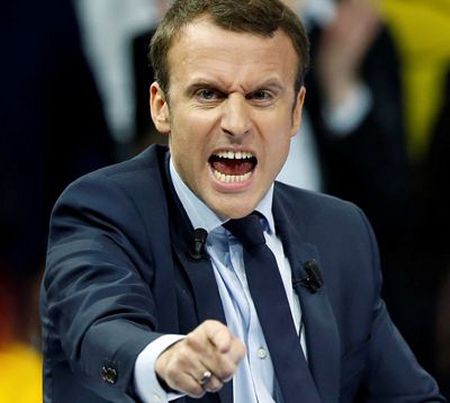
L'ancien ministre de l'Économie est candidat à l'élection présidentielle après avoir fondé son parti En marche !Il aurait l'appui de plusieurs députés socialistes, dont Richard Ferrand, secrétaire général d'En marche !, ou encore Stéphane Travert, Corinne Erhel et Christophe Castaner, tous se revendiquant de la double appartenance PS et En marche !.
Les soutiens socialistes de Macron exclus du PS
Évoquant un « danger mortel » pour le PS, Christian Paul a interpellé les représentants de son parti présents pour qu'aucun ne soutiennent En Marche !
À terme, les députés ayant rallié Emmanuel Macron pourraient aussi être exclus du PS. Christophe Borgel dit avoir « bon espoir que ce cas ne se présente pas ». Le PS a investi ses candidats dans 400 circonscriptions. Environ 150 restent « gelées » jusqu'à février, notamment dans la perspective d'accords électoraux avec des partenaires.
Que pense Macron ?
Du creux sans aspérité...
La place de la religion dans la société et dans sa vie personnelle, la droite et la gauche, le débat sur la déchéance de nationalité, le projet européen...
Extraits choisi d'une interview réalisée par un confrère.
La place de la religion dans la société :
« Chaque individu est libre de croire de manière très intense. Je ne demande à personne d’être discret dans sa pratique religieuse Mais en tant que citoyen, l’attachement aux règles républicaines est un préalable. C’est notre socle commun. (…) Ceux qui veulent réduire l’histoire de France à l’affrontement entre un monothéisme et d’autres religions font fausse route, tout comme ceux qui veulent lutter contre toute forme de spiritualité. Je ne crois ni à la République érigée en croyance religieuse ni à l’éradication des religions. »
Le pape François :
« le pape François a pris des décisions courageuses qui rejoignent mes valeurs, en particulier sur les migrants. Il a rappelé le devoir de l’Europe et le distinguo d’un point de vue géopolitique, moral et philosophique entre un migrant et un réfugié »
.La déchéance de nationalité
« C’est un rapport philosophique au bien et au mal qui a déterminé mon positionnement. Penser rassurer le peuple en prétendant chasser le mal radical en dehors de la communauté nationale est une promesse dangereuse et intenable. Car il y a du mal radical en nous et il continuera à vivre. La clé c’est éduquer et prévenir, même si c’est très dur dans ces moments-là. (…) ».
Son positionnement de droite et de gauche :
« Mon obsession n’est pas de rénover le logiciel de la gauche, mais de faire renaître le projet d’émancipation et les valeurs universelles que la France a toujours portés dans son histoire. L’une des clés que j’ai trouvées est de faire vivre le rassemblement de progressistes le plus large possible ». Pour faire court il se sentirait plus proche d'Alain Juppé.
L’Europe :
« Nous renouons actuellement avec la guerre des religions qui oppose l’Europe catholique et l’Europe calviniste et qui historiquement a toujours conduit l’Europe à sa perte. Les pays de culture catholique, dont la France fait partie, disent :
Cela fait quatre ans qu’on s'use dans cette guerre de religion et de culture. C’est ce qui a chaque fois a tué l’Europe. »
Que dire de ces discours sans aspérités et qui se veulent apaisants et philosophique ?
A vous de juger chers lecteurs...
|
|
|
|
|
|
|
|
| Joanne Courbet pour DayNewsWorld |
 |
|
|